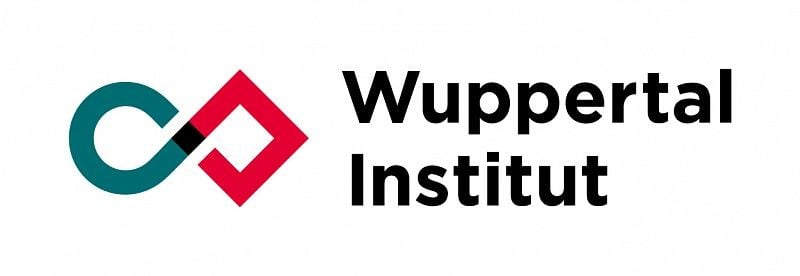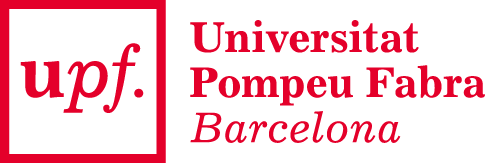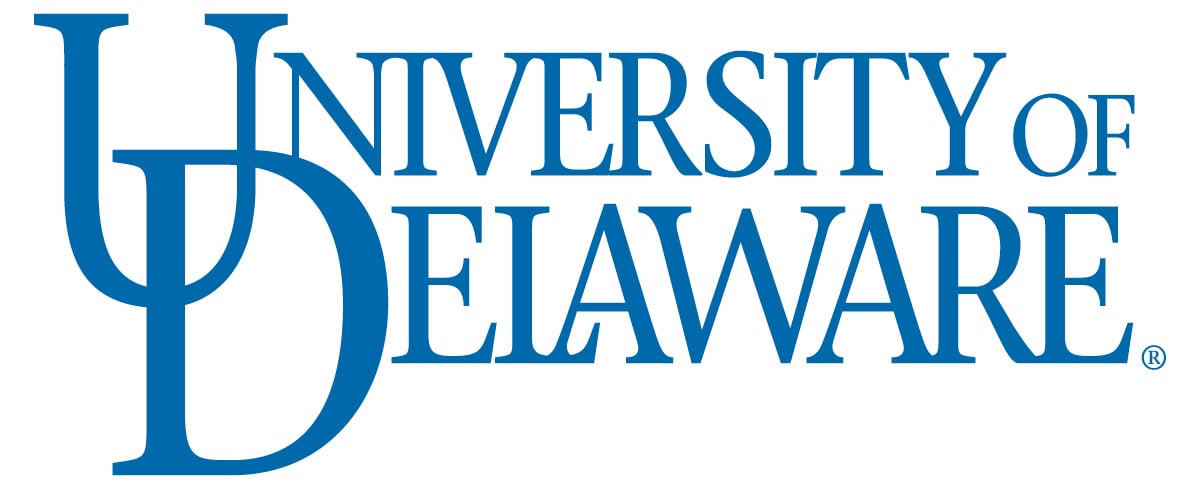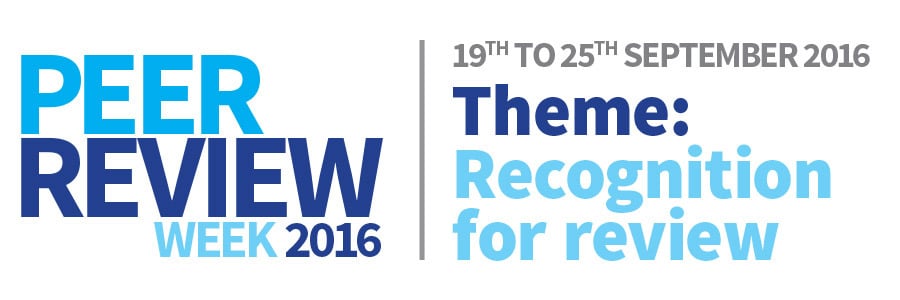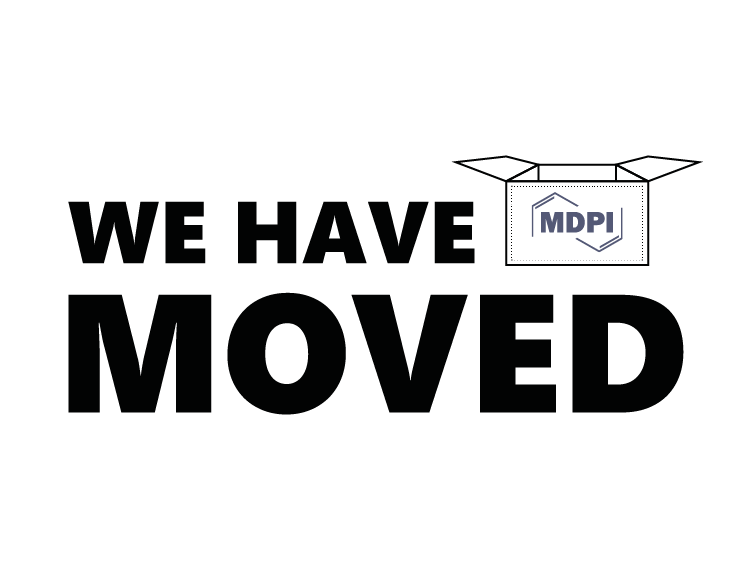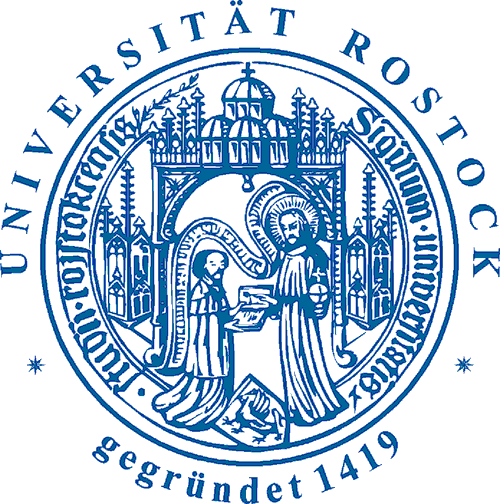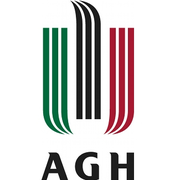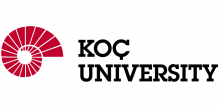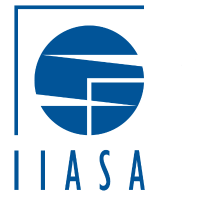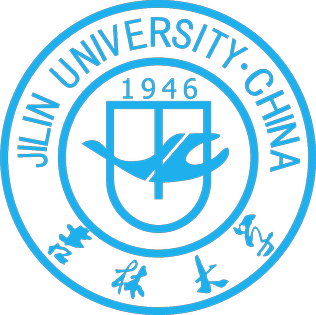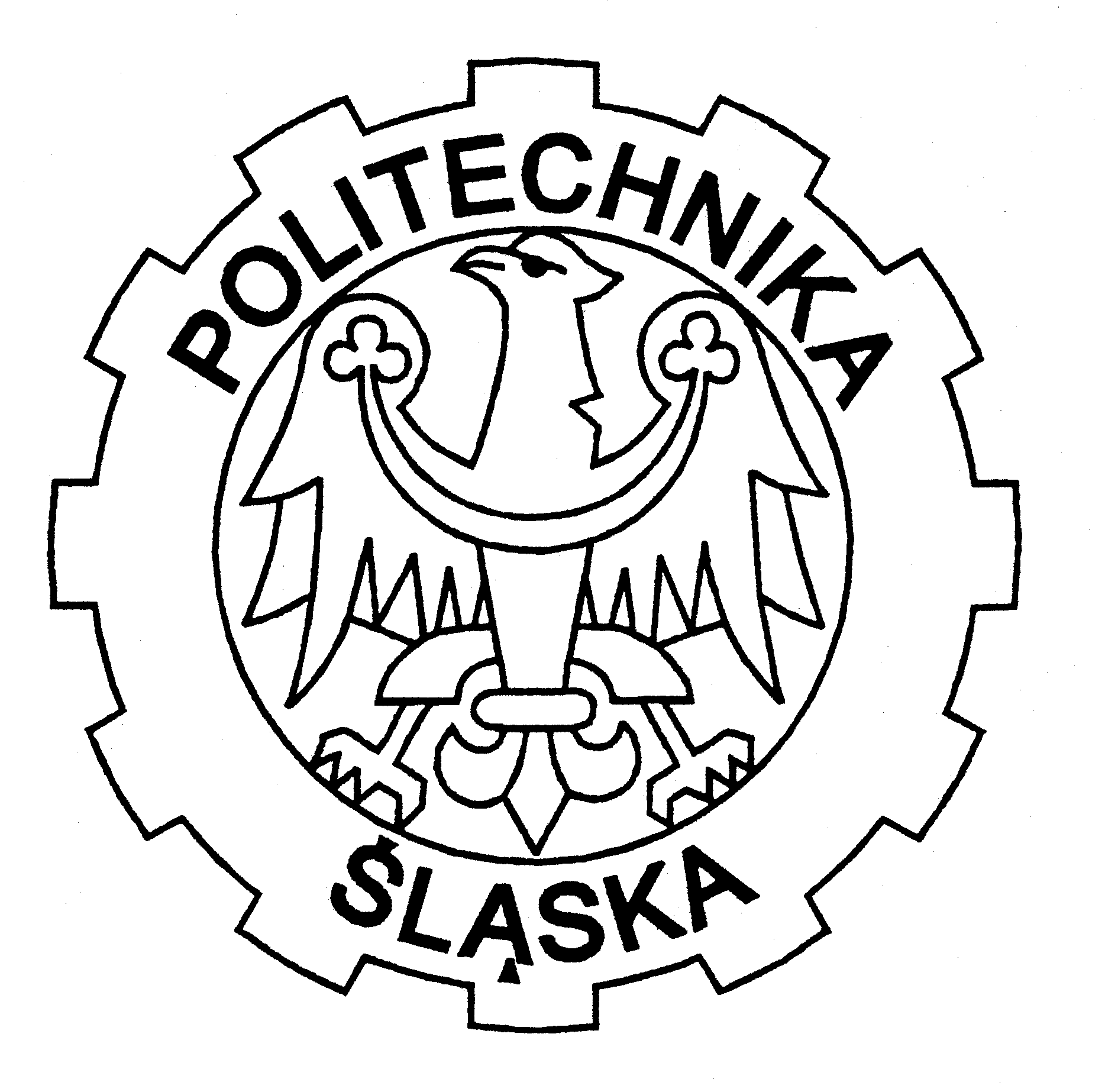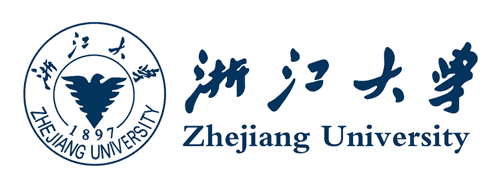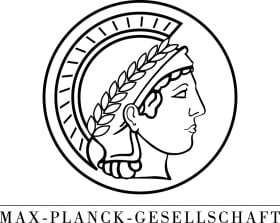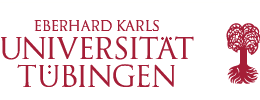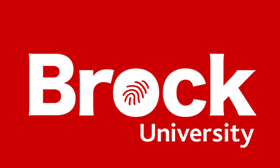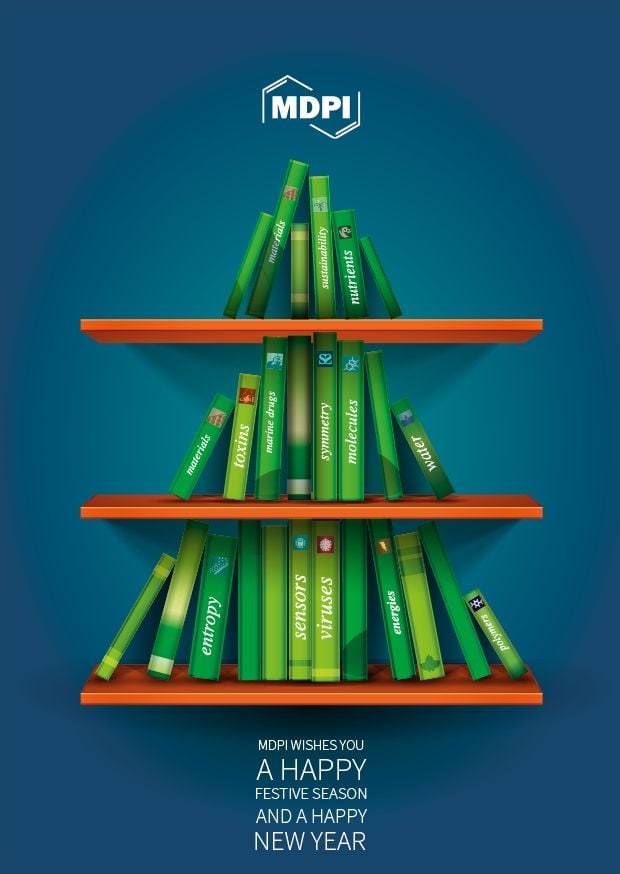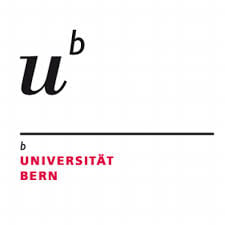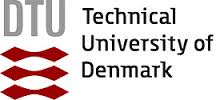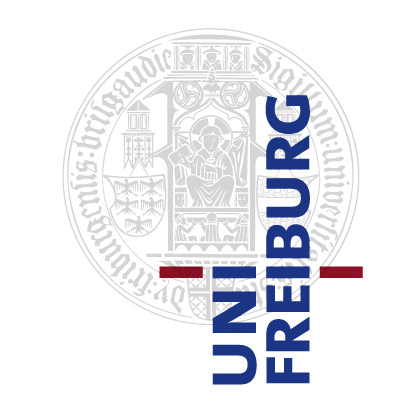
Journal Menu
► ▼ Journal Menu-
- Biomolecules Home
- Aims & Scope
- Editorial Board
- Reviewer Board
- Topical Advisory Panel
- Instructions for Authors
- Special Issues
- Topics
- Sections & Collections
- Article Processing Charge
- Indexing & Archiving
- Editor’s Choice Articles
- Most Cited & Viewed
- Journal Statistics
- Journal History
- Journal Awards
- Society Collaborations
- Conferences
- Editorial Office
Journal Browser
► ▼ Journal BrowserNeed Help?
Announcements
15 November 2024
Prof. Dr. A. Douglas Kinghorn Appointed Chair of the 2024 Tu Youyou Award Committee

We are honored to announce that Prof. Dr. A. Douglas Kinghorn will serve as the Chair of the 2024 Tu Youyou Award Committee.

Name: Prof. Dr. A. Douglas Kinghorn
Affiliation: College of Pharmacy, The Ohio State University, USA
Prof. Dr. Kinghorn is a leading expert in pharmacognosy and natural products research. He is recognized for his key contributions to discovering bioactive compounds from plants, especially in anticancer, cancer chemopreventive, and substances with a sweet taste and taste-modifying agents. His prolific contributions include over 590 peer-reviewed works and edited or co-edited 40 scientific volumes.
The 2024 Tu Youyou Award Committee, under Prof. Dr. Kinghorn's guidance, will focus on identifying innovative research in the fields of natural products chemistry and medicinal chemistry. The committee will aim to identify groundbreaking work with the potential to lead to significant advancements in these areas.
We are confident that, with Prof. Dr. Kinghorn at the helm, the 2024 Tu Youyou Award will continue to inspire excellence and innovation in the related fields.
About the Tu Youyou Award
Established in 2016, the Tu Youyou Award seeks to honor those who excel in the fields of natural products chemistry and medicinal chemistry. This award offers a total prize of CHF 100,000, which will be equally divided among the winners if there is more than one, with each recipient receiving an award medal.
The 2024 Tu Youyou Award remains open for nominations until 31 December 2024. We encourage all eligible candidates to participate in this prestigious recognition, as this award not only honors individual achievement but also encourages further scientific exchange, exploration and discovery in critical areas of medicine.
If you are interested in participating, please visit the Tu Youyou Award website for more information on the nomination requirements.
5 November 2024
MDPI INSIGHTS: The CEO's Letter #17 - OA Week, Basel Open Day, Beijing Graphene Forum

Welcome to the MDPI Insights: The CEO's Letter.
In these monthly letters, I will showcase two key aspects of our work at MDPI: our commitment to empowering researchers and our determination to facilitating open scientific exchange.
Opening Thoughts

Open Access Week: Forging the Future of Open Access through Global Reach and Collaboration
From 21 to 27 October, we celebrated International Open Access Week (OAW), highlighting the importance of making research accessible to everyone. This campaign reinforced our commitment to advancing open access (OA) and showcased how we are helping research communities worldwide adopt OA as their standard.
“OA publishing is now a cornerstone of global research”
Throughout the week, we featured MDPI’s efforts to support quality open research through blog posts on topics such as how Research Integrity Promotes OA Practices, our Preprints.org platform, and supporting societies with different OA models. These initiatives capture our commitment to making research more inclusive and accessible to all.
OA publishing is now a cornerstone of global research, with more researchers choosing OA over traditional paywalled models, and embracing new, community-driven models.
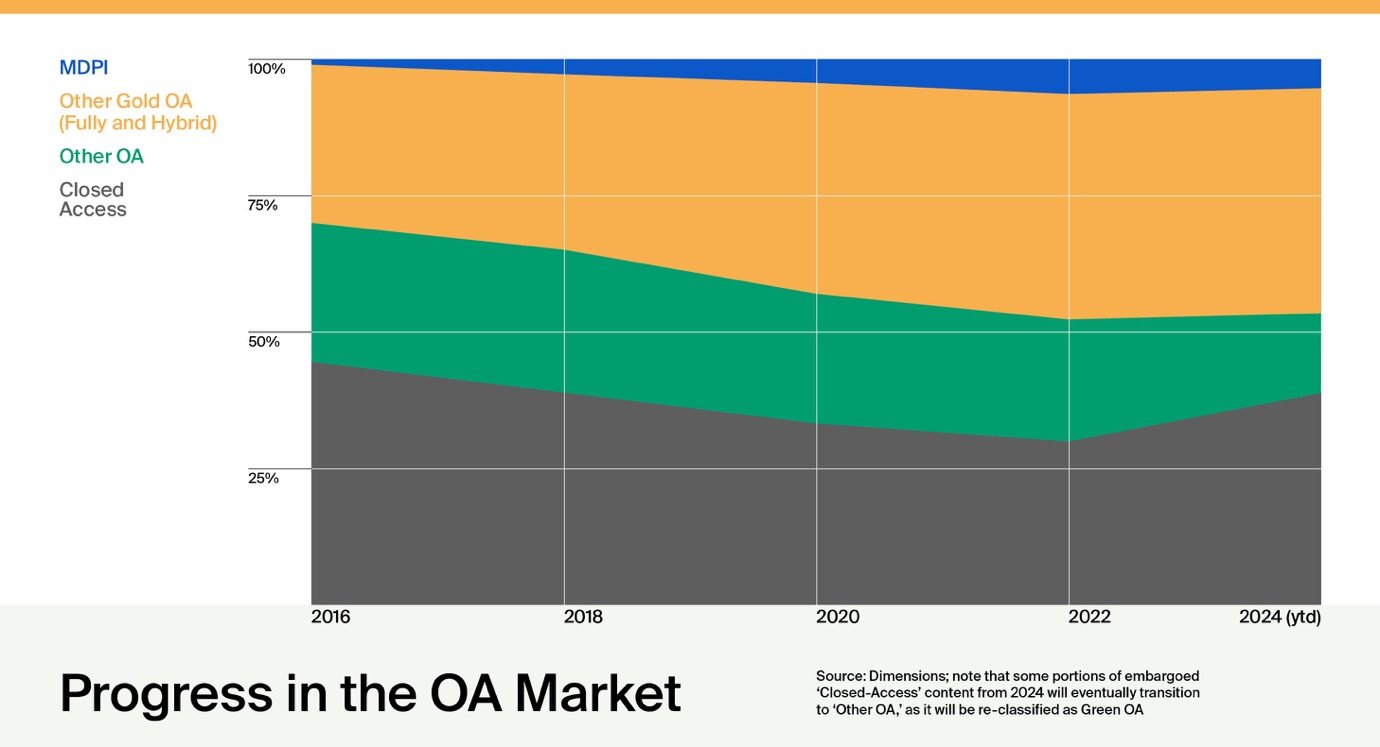
Benefits of Open Access and Open Research
- Accelerated Discoveries: OA speeds up scientific progress by allowing immediate access to findings, enabling researchers to build on each other’s work faster.
- Community-Led Innovation: Open research empowers communities to manage their own platforms, creating collaboration and shared knowledge.
- Increased Visibility: OA broadens the reach of your research, leading to greater recognition, collaboration, and impact.
- Cross-Disciplinary Connections: By removing financial and geographical barriers, OA unites diverse fields, sparking innovation across disciplines.

MDPI Singapore Celebrates Open Access Week
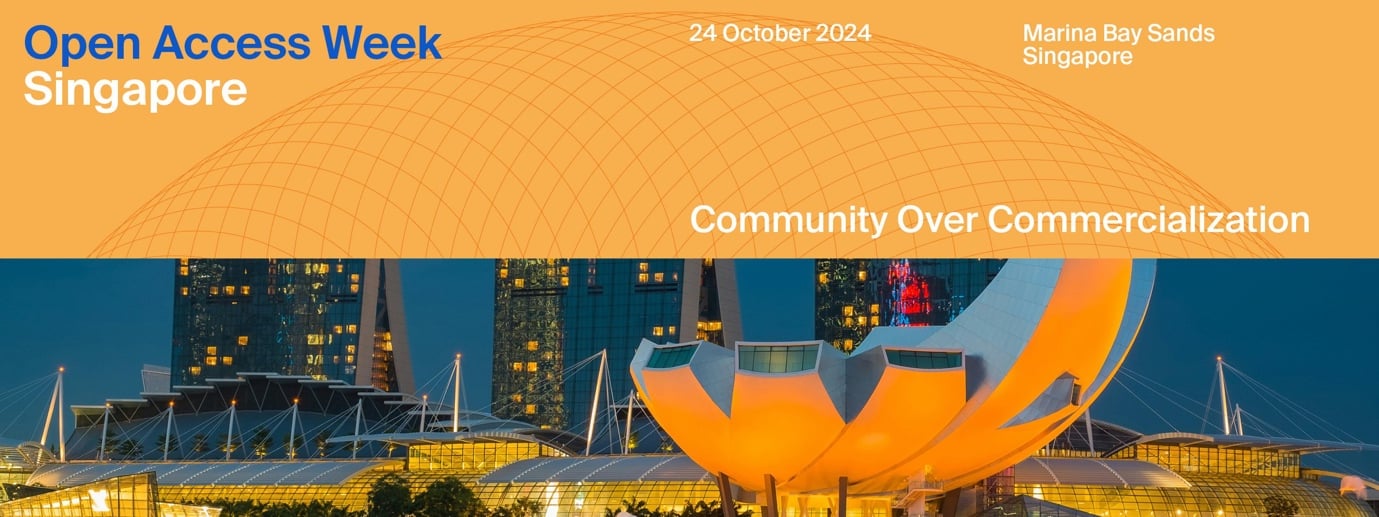
MDPI Singapore also hosted its first-ever OAW event at the Marina Bay Sands Convention Centre, bringing together academics, researchers, and students to discuss the future of open scholarship. Conversations focused on the potential of new publishing models, alternative funding strategies, and the importance of communicating research to wider audiences.
As OA evolves, MDPI remains a committed partner in advancing open science and creating a transparent, inclusive research environment. For a full recap of the week’s highlights and resources, visit our campaign page.

Impactful Research

MDPI Connection to Nobel-Winning Protein Research
David Baker, an American biochemist, and Demis Hassabis and John M. Jumper, two scientists from Google DeepMind, have been awarded the 2024 Nobel Prize in Chemistry for their groundbreaking advancements in better understanding the structure of proteins, the molecular engines of life’s processes.
One half of the prize was awarded to Professor David Baker from the University of Washington for his development of revolutionary protein design software enabling the creation of novel proteins for vaccines, nanomaterials, and sensors. Prof. Baker co-authored a 2016 paper in MDPI’s Toxins journal on protein-based therapeutics.
Meanwhile, DeepMind’s Demis Hassabis and John M. Jumper received recognition for AlphaFold, the AI model that predicts protein structures from amino acid sequences, fulfilling a long-held scientific dream.
“We congratulate this year’s Nobel laureates for their groundbreaking contributions to the study of life”
Nobel Prize Laureates Entrust MDPI with Their Research
As at October 2024, 45 Nobel laureates had contributed to more than 115 articles across
35 MDPI journals. The privilege of hosting the research of such contributors, who significantly influence the open access movement, resonates deeply with our editorial teams.
We are proud to list the names of Pierre Agostini, Hiroshi Amano, Werner Arber, Aaron Ciechanover, Robert H. Grubbs, Oliver Hart, Gerard ‘t Hooft, Michael Houghton, Harald zur Hausen, Katalin Karikó, Jean-Marie Lehn, Gérard Mourou, Ferid Murad, Shuji Nakamura, William Nordhaus, Kostya S. Novoselov, Giorgio Parisi, Charles M. Rice, Alvin E. Roth, Donna Strickland, K. Barry Sharpless, George F. Smoot, Anne L’Huillier, Drew Weissman, Kurt Wüthrich, Ada Yonath, Tomas Lindahl, Thomas C. Südhof, Stanley B. Prusiner, Roger Kornberg, Robert F. Engle, Richard J. Roberts, Ōmura Satoshi, Kenneth J. Arrow, John B. Goodenough, Jennifer Doudna, Hamilton Othanel Smith, Eric R. Kandel, Carlo Rubbia, Bernard Feringa, Barry J. Marshall, Anthony J. Leggett, Andrew Victor Schally, and David Baker.
Notable MRNA Published in Cells
On 7 October 2024, the 2024 Nobel Prize in Physiology or Medicine was jointly awarded to Victor Ambros and Gary Ruvkun for the discovery of microRNA and its role in post-transcriptional gene regulation.
MicroRNAs are proving to be fundamentally important for how organisms develop and function. Some interesting papers about microRNA research are published in the MDPI journal Cells. I invite you browse through the notable papers related to microRNA research in Cells.
Inside MDPI
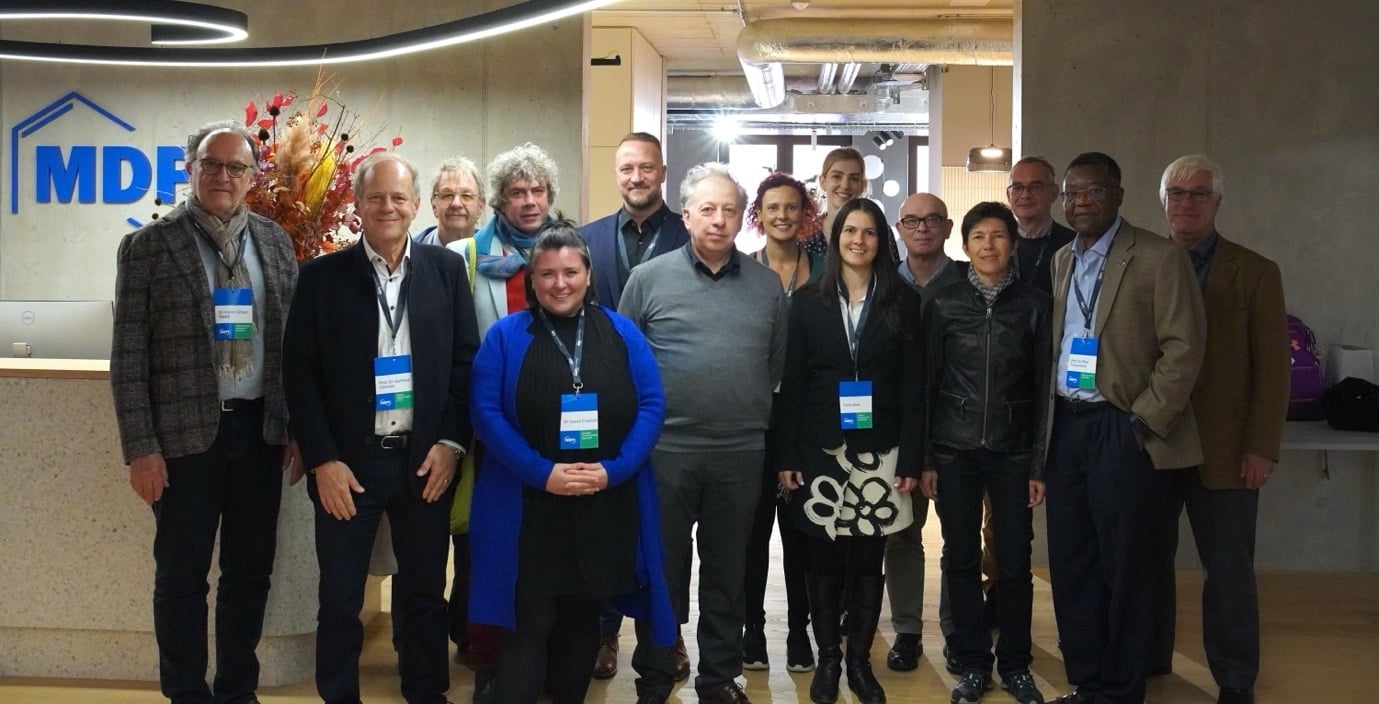
Basel Open Day
On 21 October, we held the Basel Open Day at our headquarters, welcoming a group of journal Editors-in-Chief (EiC) and Editorial Board Members (EBMs) for a full-day workshop. The event featured presentations and discussions on MDPI’s latest editorial updates, data integrity policies, society collaborations, and local market insights.
The following MDPI journals were represented during the visit: Physics, Journal of Personalized Medicine (JPM), Sci, Remote Sensing, Animals, Cells, Buildings, Histories, Sensors, and International Journal of Environmental Research and Public Health (IJERPH).
This was a great opportunity to showcase our new office space while gathering feedback from leading journal stakeholders. To get everyone on the same page, we took 60 minutes for round-table introductions, which helped set a collaborative tone and ground us in MDPI’s mission of disseminating open science.
“This was a great opportunity to gather feedback from leading journal stakeholders”
The general feedback from the day highlighted positive developments around our editorial and ethics policies, as well as areas for improvement, including flexibility regarding reviewer deadlines. There was a genuine appreciation and push for our ongoing efforts to share more about MDPI, including company updates and promoting high-quality research through our blog, announcements, and social media channels, which we have been growing and expanding.
Our Basel Open Day was a positive experience, bringing together key journal stakeholders and gathering insights to guide MDPI’s continued engagement with the academic community. We look forward to hosting future events of this kind and welcoming more scholars to our headquarters in Basel, Switzerland.
Coming Together for Science

ncRNA 2024 Conference in Basel
I am pleased to share that we held Non-coding RNA World 2024: Exploring Mechanisms, Designing Medicines (ICM 2024) in Basel, Switzerland this past 7–9 October.
The three-day event attracted just over 100 attendees, including two Chairs, 10 invited speakers and two keynotes from Prof. Mauro Giacca and Prof. Ling-Ling Chen. Of the presentations on site, there were 35 posters and 44 oral presentations.
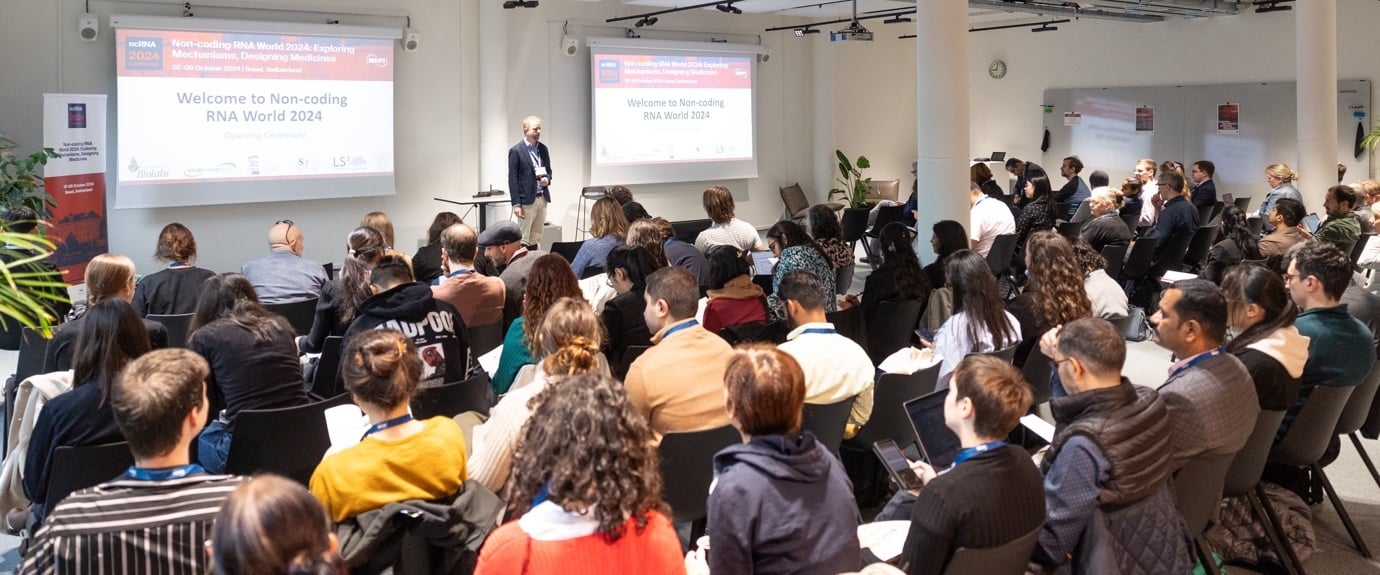
The overall feedback was positive, with people enjoying the intimate event and the unique activities offered, including a guided tour around Basel’s Old Town (a must-see for anyone visiting the city) and a memorable conference dinner.

It was cool to see the winners of the 2024 Nobel Prize in Physiology or Medicine announced during the conference days. This was exciting for attendees, as the winners discovered a new class of RNA molecules (miRNAs). As one invited speaker put it, “It's exciting to be among fellows when something that important for the field is announced.”
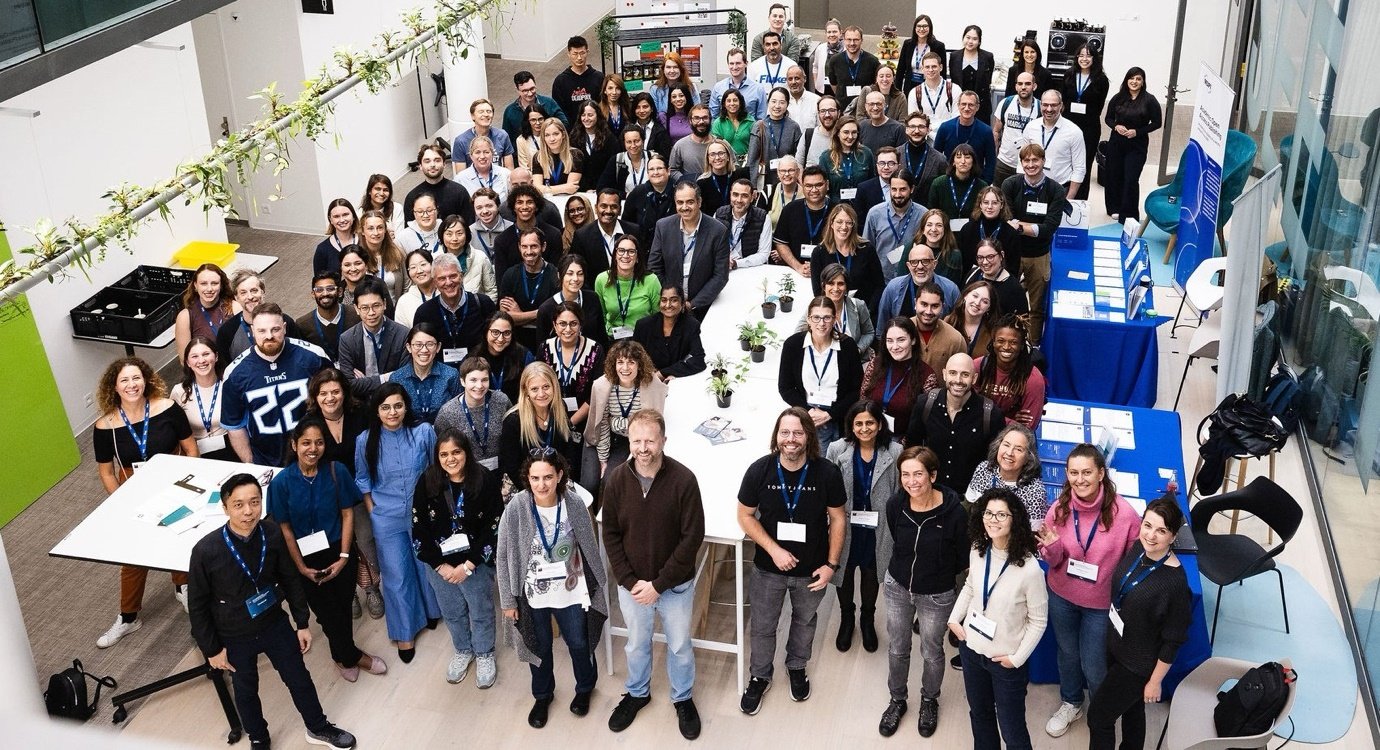
“It's exciting to be among fellows when something that important for the field is announced”
Every attendee receives a conference survey, and I’m always pleased to see a high percentage of ‘Very Satisfied’ responses when asked about ‘treatment from conference personnel’. Kudos to our conference team for meeting our attendees’ needs. These events are a great opportunity for us to reach new audiences, as 92% of the respondents had never been to an MDPI conference, so I am thrilled to see us connecting with a new demographic of your researchers in the RNA field.
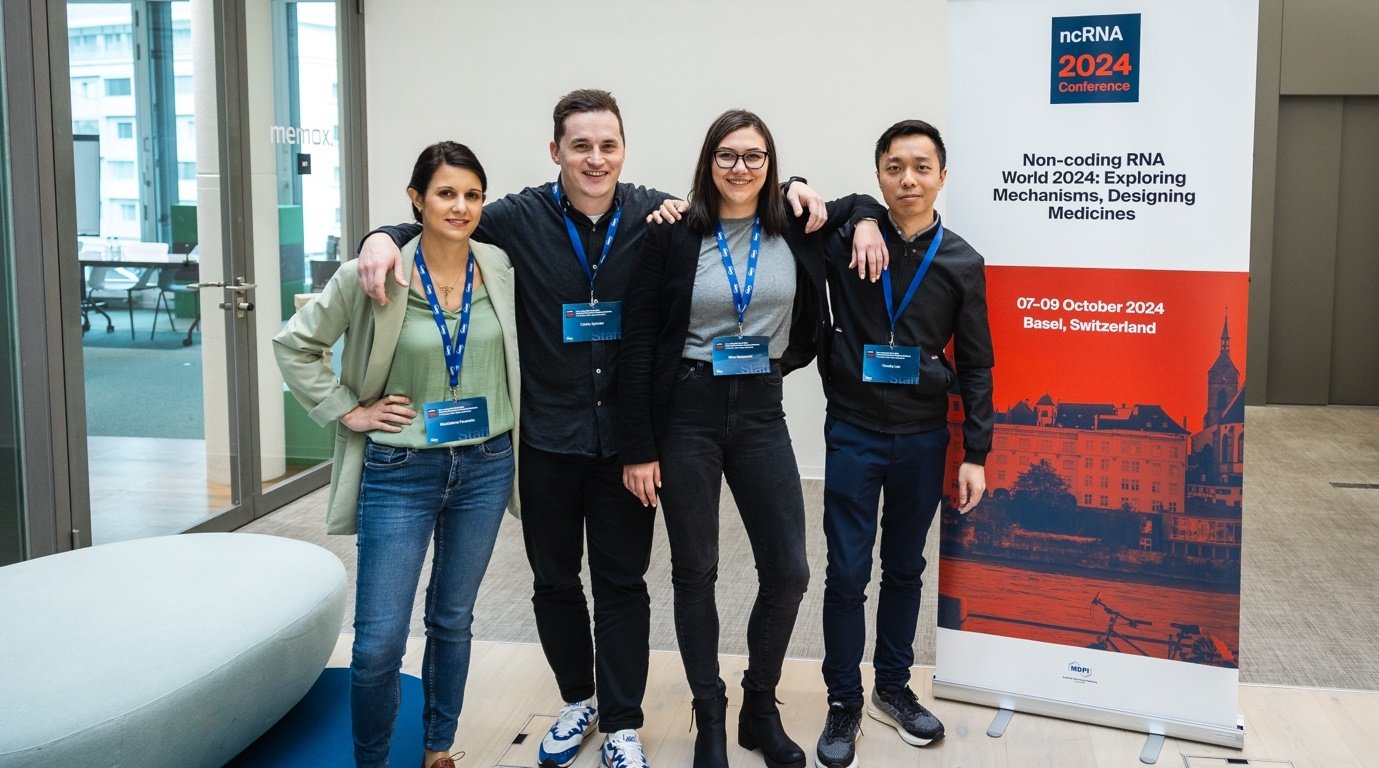
A special thank-you to our partnering societies The Epigenetics Society, The French Society of Genetics, LS2 / USGEB (Union of Swiss Societies for Experimental Biology), and The RNA Biology Group, as well as to our sponsors New England Biolabs and Arraystar for their support of the ncRNA 2024 conference. I am also pleased to report that we presented two awards, including the Best Presentation Award and two Best Poster Award, recognizing the contributions of our participants.
Upcoming In-Person Event
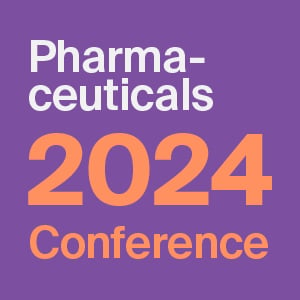
27–29 November 2024
Pharmaceuticals 2024 – Recent Advances in Pharmaceutical Sciences Towards a Healthy Life
Location: Barcelona, Spain
The discovery of new molecules, their properties, and actions to enhance human health and quality of life.
Find more upcoming MDPI events here.
Closing Thoughts

Beijing Graphene Forum 2024
I am pleased to share that we had a successful time at the Beijing Graphene Forum 2024, which drew around 1,000 attendees, including Konstantin Novoselov (2015 Nobel Prize in Physics) and other high-profile scholars in materials science and chemistry. It was a great opportunity to present MDPI on the big stage, with university presidents from institutions such as Peking University also in attendance.
I had the honour of awarding Prof. Zhongfan Liu, Chairman of the Chemical Science Committee, with a medal and presenting certificates to the members of the Chemical Science Committee; this is an important initiative to help expand MDPI’s journals and influence in China. These are highly respected scholars, and we enjoyed connecting with them over lunch as well.
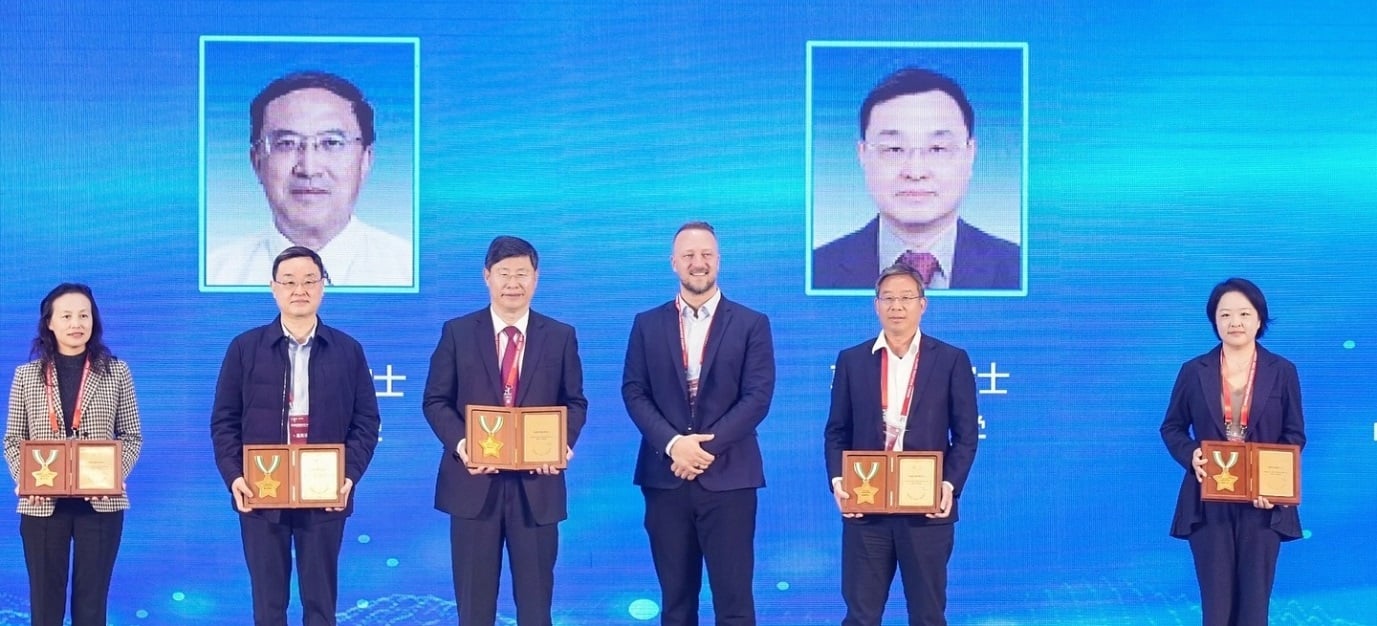
“This is an important initiative to help expand MDPI’s journals and influence in China”
I also had the chance to speak about MDPI and open access, giving a five-minute speech during the opening ceremony and a 20-minute presentation at the close. MDPI hosted a sub-forum where both academic scholars and MDPI members shared insights, and we engaged with attendees at our MDPI booth.
This was a great opportunity to spotlight MDPI as the main publishing partner for the event, and I was proud to represent us on stage. We also met with scholars to discuss topics such as their publishing needs and institutional policies, open access, impact journals, and IOAP.
Chief Executive Officer
MDPI AG
17 October 2024
Biomolecules | Highly Cited Papers in 2022–2023 in the Biomacromolecules Sections
As all of the articles published in our journal are open access, you have free and unlimited access to the full text. We welcome you to read our most highly cited papers published in 2022 and 2023 in the biomacromolecules Sections, which are listed below:
The biomacromolecules contains four Sections:
- “Biomacromolecules: Proteins”;
- “Biomacromolecules: Lipids”;
- “Biomacromolecules: Carbohydrates”;
- “Biomacromolecules: Nucleic Acids”.
1. “Industrial Production of Proteins with Pichia pastoris—Komagataella phaffii”
by Giovanni Davide Barone, Anita Emmerstorfer-Augustin, Antonino Biundo, Isabella Pisano, Paola Coccetti, Valeria Mapelli and Andrea Camattari
Biomolecules 2023, 13(3), 441; https://doi.org/10.3390/biom13030441
Full text available online: https://www.mdpi.com/2218-273X/13/3/441
2. “Reactive Oxygen Species and NRF2 Signaling, Friends or Foes in Cancer?”
by Ruolei Wang, Lirong Liang, Misaki Matsumoto, Kazumi Iwata, Atsushi Umemura and Feng He
Biomolecules 2023, 13(2), 353; https://doi.org/10.3390/biom13020353
Full text available online: https://www.mdpi.com/2218-273X/13/2/353
by Elisa Rafaela Bonadio Bellucci, Camila Vespúcio Bis-Souza, Rubén Domínguez, Roberto Bermúdez and Andrea Carla da Silva Barretto
Biomolecules 2022, 12(10), 1506; https://doi.org/10.3390/biom12101506
Full text available online: https://www.mdpi.com/2218-273X/12/10/1506
4. “Biomolecules from Macroalgae—Nutritional Profile and Bioactives for Novel Food Product Development”
by Laura E. Healy, Xianglu Zhu, Milica Pojić, Carl Sullivan, Uma Tiwari, James Curtin and Brijesh K. Tiwari
Biomolecules 2023, 13(2), 386; https://doi.org/10.3390/biom13020386
Full text available online: https://www.mdpi.com/2218-273X/13/2/386
5. “An Interpretable Machine-Learning Algorithm to Predict Disordered Protein Phase Separation Based on Biophysical Interactions”
by Hao Cai, Robert M. Vernon and Julie D. Forman-Kay
Biomolecules 2022, 12(8), 1131; https://doi.org/10.3390/biom12081131
Full text available online: https://www.mdpi.com/2218-273X/12/8/1131
6. “DNA Methylation in Regulatory T Cell Differentiation and Function: Challenges and Opportunities”
by Lu Bai, Xiaolei Hao, Julia Keith and Yongqiang Feng
Biomolecules 2022, 12(9), 1282; https://doi.org/10.3390/biom12091282
Full text available online: https://www.mdpi.com/2218-273X/12/9/1282
7. “Dual Nanostructured Lipid Carriers/Hydrogel System for Delivery of Curcumin for Topical Skin Applications”
by Rosa Calderon-Jacinto, Pietro Matricardi, Virginie Gueguen, Graciela Pavon-Djavid, Emmanuel Pauthe and Violeta Rodriguez-Ruiz
Biomolecules 2022, 12(6), 780; https://doi.org/10.3390/biom12060780
Full text available online: https://www.mdpi.com/2218-273X/12/6/780
8. “Phenolics from Defatted Black Cumin Seeds (Nigella sativa L.): Ultrasound-Assisted Extraction Optimization, Comparison, and Antioxidant Activity”
by Abdelkrim Gueffai , Diego J. Gonzalez-Serrano, Marios C. Christodoulou, Jose C. Orellana-Palacios, Maria Lopez S. Ortega, Aoumria Ouldmoumna, Fatima Zohra Kiari, Georgia D. Ioannou, Constantina P. Kapnissi-Christodoulou, Andres Moreno et al.
Biomolecules 2022, 12(9), 1311; https://doi.org/10.3390/biom12091311
Full text available online: https://www.mdpi.com/2218-273X/12/9/1311
9. “Electrophilic Aldehyde 4-Hydroxy-2-Nonenal Mediated Signaling and Mitochondrial Dysfunction”
by Sudha Sharma, Papori Sharma, Tara Bailey, Susmita Bhattarai, Utsab Subedi, Chloe Miller, Hosne Ara, Srivatsan Kidambi, Hong Sun, Manikandan Panchatcharam et al.
Biomolecules 2022, 12(11), 1555; https://doi.org/10.3390/biom12111555
Full text available online: https://www.mdpi.com/2218-273X/12/11/1555
10. “Mechanical Properties and Functions of Elastin: An Overview”
by Hanna Trębacz and Angelika Barzycka
Biomolecules 2023, 13(3), 574; https://doi.org/10.3390/biom13030574
Full text available online: https://www.mdpi.com/2218-273X/13/3/574
17 October 2024
Biomolecules | Highly Cited Papers in 2022–2023 in the Section “Natural and Bio-derived Molecules”

As all of the articles published in our journal are open access, you have free and unlimited access to the full text. We welcome you to read our most highly cited papers published in 2022 and 2023, which are listed below:
1. “Epigallocatechin-3-Gallate (EGCG): New Therapeutic Perspectives for Neuroprotection, Aging, and Neuroinflammation for the Modern Age”
by Ashley Payne, Samuel Nahashon, Equar Taka, Getinet M. Adinew and Karam F. A. Soliman Biomolecules 2022, 12(3), 371; https://doi.org/10.3390/biom12030371
Full text available online: https://www.mdpi.com/2218-273X/12/3/371
2. “Targeting Apoptotic Pathway of Cancer Cells with Phytochemicals and Plant-Based Nanomaterials”
by Atif Khurshid Wani, Nahid Akhtar, Tahir ul Gani Mir, Rattandeep Singh, Prakash Kumar Jha, Shyam Kumar Mallik, Shruti Sinha, Surya Kant Tripathi, Abha Jain, Aprajita Jha et al.
Biomolecules 2023, 13(2), 194; https://doi.org/10.3390/biom13020194
Full text available online: https://www.mdpi.com/2218-273X/13/2/194
3. “Postbiotics and Their Health Modulatory Biomolecules”
by Emma Scott, Kim De Paepe and Tom Van de Wiele
Biomolecules 2022, 12(11), 1640; https://doi.org/10.3390/biom12111640
Full text available online: https://www.mdpi.com/2218-273X/12/11/1640
4. “Therapeutic Effects of Citrus Flavonoids Neohesperidin, Hesperidin and Its Aglycone, Hesperetin on Bone Health”
by Adriana de Cássia Ortiz, Simone Ortiz Moura Fideles, Carlos Henrique Bertoni Reis, Márcia Zilioli Bellini, Eliana de Souza Bastos Mazuqueli Pereira, João Paulo Galletti Pilon, Miguel Ângelo de Marchi, Cláudia Rucco Penteado Detregiachi, Uri Adrian Prync Flato, Beatriz Flavia de Moraes Trazzi et al.
Biomolecules 2022, 12(5), 626; https://doi.org/10.3390/biom12050626
Full text available online: https://www.mdpi.com/2218-273X/12/5/626
5. ”The Benefits of Anthocyanins against Obesity-Induced Inflammation”
by Chanya Ngamsamer, Jintana Sirivarasai and Nareerat Sutjarit
Biomolecules 2022, 12(6), 852; https://doi.org/10.3390/biom12060852
Full text available online: https://www.mdpi.com/2218-273X/12/6/852
6. “Oroxylin A: A Promising Flavonoid for Prevention and Treatment of Chronic Diseases”
by Anjana Sajeev, Mangala Hegde, Sosmitha Girisa, Thulasidharan Nair Devanarayanan, Mohammed S. Alqahtani, Mohamed Abbas, Samir Kumar Sil, Gautam Sethi, Jen-Tsung Chen and Ajaikumar B. Kunnumakkara
Biomolecules 2022, 12(9), 1185; https://doi.org/10.3390/biom12091185
Full text available online: https://www.mdpi.com/2218-273X/12/9/1185
7. “By Modulating the Hormonal Balance and Ribonuclease Activity of Tomato Plants Bacillus subtilis Induces Defense Response against Potato Virus X and Potato Virus Y”
by Svetlana V. Veselova, Antonina V. Sorokan, Guzel F. Burkhanova, Sergey D. Rumyantsev, Ekaterina A. Cherepanova, Valentin Y. Alekseev, Elena R. Sarvarova, Albina R. Kasimova and Igor V. Maksimov
Biomolecules 2022, 12(2), 288; https://doi.org/10.3390/biom12020288
Full text available online: https://www.mdpi.com/2218-273X/12/2/288
8. “Polyphenol and Tannin Nutraceuticals and Their Metabolites: How the Human Gut Microbiota Influences Their Properties”
by Marco Fabbrini, Federica D’Amico, Monica Barone, Gabriele Conti, Mariachiara Mengoli, Patrizia Brigidi and Silvia Turroni
Biomolecules 2022, 12(7), 875; https://doi.org/10.3390/biom12070875
Full text available online: https://www.mdpi.com/2218-273X/12/7/875
9. “Ginsenoside and Its Therapeutic Potential for Cognitive Impairment”
by Hui Feng, Mei Xue, Hao Deng, Shiqi Cheng, Yue Hu and Chunxiang Zhou
Biomolecules 2022, 12(9), 1310; https://doi.org/10.3390/biom12091310
Full text available online: https://www.mdpi.com/2218-273X/12/9/1310
10. “Correlation of Serum Acylcarnitines with Clinical Presentation and Severity of Coronary Artery Disease”
by Olga Deda, Eleftherios Panteris, Thomas Meikopoulos, Olga Begou, Thomai Mouskeftara, Efstratios Karagiannidis, Andreas S. Papazoglou, Georgios Sianos, Georgios Theodoridis and Helen Gika
Biomolecules 2022, 12(3), 354; https://doi.org/10.3390/biom12030354
Full text available online: https://www.mdpi.com/2218-273X/12/3/354
17 October 2024
Biomolecules | Highly Cited Papers in 2022–2023 in the Section “Molecular Biomarkers”

As all of the articles published in our journal are open access, you have free and unlimited access to the full text. We welcome you to read our most highly cited papers published in 2022 and 2023, which are listed below:
1. “Lipid Peroxidation and Antioxidant Protection”
by Luca Valgimigli
Biomolecules 2023, 13(9), 1291; https://doi.org/10.3390/biom13091291
Full text available online: https://www.mdpi.com/2218-273X/13/9/1291
2. “Oxidative Stress in Healthy and Pathological Red Blood Cells”
by Florencia Orrico, Sandrine Laurance, Ana C. Lopez, Sophie D. Lefevre, Leonor Thomson, Matias N. Möller and Mariano A. Ostuni
Biomolecules 2023, 13(8), 1262; https://doi.org/10.3390/biom13081262
Full text available online: https://www.mdpi.com/2218-273X/13/8/1262
3. “Are There Betel Quid Mixtures Less Harmful than Others? A Scoping Review of the Association between Different Betel Quid Ingredients and the Risk of Oral Submucous Fibrosis”
by Nicola Cirillo, Peter Hung Duong, Wee Teng Er, Casey Thao Nhi Do, Manikkuwadura Eranda Harshan De Silva, Yining Dong, Sok Ching Cheong, Elizabeth Fitriana Sari, Michael J. McCullough, Pangzhen Zhang et al.
Biomolecules 2022, 12(5), 664; https://doi.org/10.3390/biom12050664
Full text available online: https://www.mdpi.com/2218-273X/12/5/664
4. “NETosis and Nucleosome Biomarkers in Septic Shock and Critical COVID-19 Patients: An Observational Study”
by Laure Morimont, Mélanie Dechamps, Clara David, Céline Bouvy, Constant Gillot, Hélène Haguet, Julien Favresse, Lorian Ronvaux, Julie Candiracci, Marielle Herzog et al.
Biomolecules 2022, 12(8), 1038; https://doi.org/10.3390/biom12081038
Full text available online: https://www.mdpi.com/2218-273X/12/8/1038
5. “Relationship between 4-Hydroxynonenal (4-HNE) as Systemic Biomarker of Lipid Peroxidation and Metabolomic Profiling of Patients with Prostate Cancer”
by Matea Nikolac Perkovic, Morana Jaganjac, Lidija Milkovic, Tea Horvat, David Rojo, Kamelija Zarkovic, Marijana Ćorić, Tvrtko Hudolin, Georg Waeg, Biserka Orehovec et al.
Biomolecules 2023, 13(1), 145; https://doi.org/10.3390/biom13010145
Full text available online: https://www.mdpi.com/2218-273X/13/1/145
6. “Complement as a Biomarker for Systemic Lupus Erythematosus”
by Masahiro Ayano and Takahiko Horiuchi
Biomolecules 2023, 13(2), 367; https://doi.org/10.3390/biom13020367
Full text available online: https://www.mdpi.com/2218-273X/13/2/367
7. “Identification of Metabolism-Associated Biomarkers for Early and Precise Diagnosis of Oral Squamous Cell Carcinoma”
by Yuhan Wang, Xiaoxin Zhang, Shuai Wang, Zihui Li, Xinyang Hu, Xihu Yang, Yuxian Song, Yue Jing, Qingang Hu and Yanhong Ni
Biomolecules 2022, 12(3), 400; https://doi.org/10.3390/biom12030400
Full text available online: https://www.mdpi.com/2218-273X/12/3/400
8. “Impact of Polyphenols on Inflammatory and Oxidative Stress Factors in Diabetes Mellitus: Nutritional Antioxidants and Their Application in Improving Antidiabetic Therapy”
by Michal Krawczyk, Izabela Burzynska-Pedziwiatr, Lucyna A. Wozniak and Malgorzata Bukowiecka-Matusiak
Biomolecules 2023, 13(9), 1402; https://doi.org/10.3390/biom13091402
Full text available online: https://www.mdpi.com/2218-273X/13/9/1402
16 October 2024
MDPI's Newly Launched Journals in September 2024
Five new journals covering a diverse range of subjects launched their inaugural issue in September 2024. Like other journals in MDPI’s portfolio, these journals are dedicated to sharing the latest research through open access, reflecting our commitment to making knowledge accessible to all.
We extend our sincere gratitude to the Editorial Board Members for their dedication to the launch and development of our new journals. Each journal will ensure its high-quality output via excellent editorial and rigorous peer-review processes so that the published articles achieve significant impact and broad visibility.
We invite you to explore and learn more about these new journals below.
| Journal | Founding Editor-in-Chief | Journal Topics (Selected) |
| Prof. Dr. Nejat Düzgüneş, University of the Pacific, USA | Editorial | view inaugural issue | biological therapy and stem-cell therapy; drug therapy; chemotherapy; radiation and other nonsurgical therapeutic strategies | view journal scope | submit an article | |
| Prof. Dr. Magda Tsolaki, Greek Federation of Alzheimer’s Disease, Greece; Aristotle University of Thessaloniki, Greece | Editorial | view inaugural issue | surgical/procedural complications; complications; perioperative adverse events; postoperative adverse events | view journal scope | submit an article | |
| Prof. Dr. Steven R. Fassnacht, Colorado State University, USA; Cooperative Institute for Research in the Atmosphere, USA | Editorial | view inaugural issue | ice as a mineral; atmospheric ice; sea ice; freshwater ice; ice sheets; ice caps and ice shelves | view journal scope | submit an article | |
| Dr. Francisco Epelde, Hospital Universitari Parc Tauli, Spain; University Autonoma of Barcelona, Spain | Editorial | view inaugural issue | hospital management; hospital facilities; hospital services; hospital risk management; health law | view journal scope | submit an article | |
| Prof. Dr. Nicola Ferri, University of Padova, Italy | Editorial | view inaugural issue | lipids in cells and whole organisms; lipid structure and function; lipid products and processes; dietary lipids and nutrition | view journal scope | submit an article |
We wish to thank everyone who has supported the development of open access publishing. You are welcome to send an application here or contact the New Journal Committee ([email protected]) if you would like to create more new journals.
4 October 2024
MDPI INSIGHTS: The CEO's Letter #16 - UNGA79 Science Summit, OASPA, Peer Review Week

Welcome to the MDPI Insights: The CEO's Letter.
In these monthly letters, I will showcase two key aspects of our work at MDPI: our commitment to empowering researchers and our determination to facilitating open scientific exchange.
Opening Thoughts

MDPI Joins the Science Summit at UNGA79 (23–27 September 2024, New York)
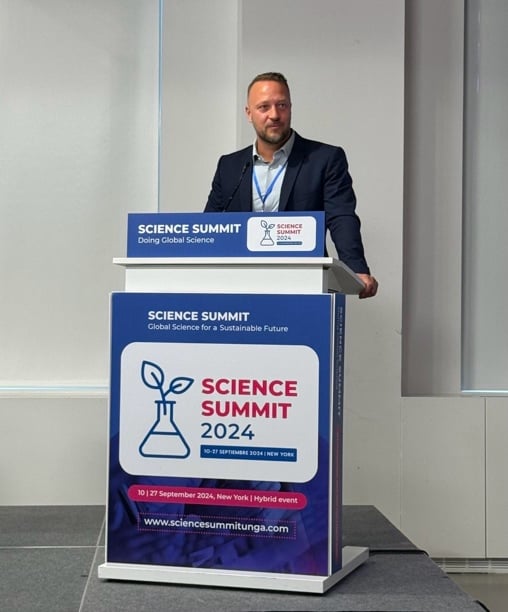
On Friday 27 September, I had the privilege of giving the opening talk at the “Youth at the Science Summit” panel during the Science Summit conference, held in New York at the 79th session of the United Nations General Assembly (UNGA). Together, we discussed the future of science, publishing, innovation, and sustainable development.
It was a great opportunity to learn from our young leaders, whose voices must be included in the conversation as science shapes the future of artificial intelligence, climate mitigation, healthcare, technology, and more. This was also a powerful reminder of how essential global collaboration is in solving the major challenges we face. I left inspired by the dedication of these young researchers to making the world a better place!
Today’s youth are not just the leaders of tomorrow – they are already leading the change today.
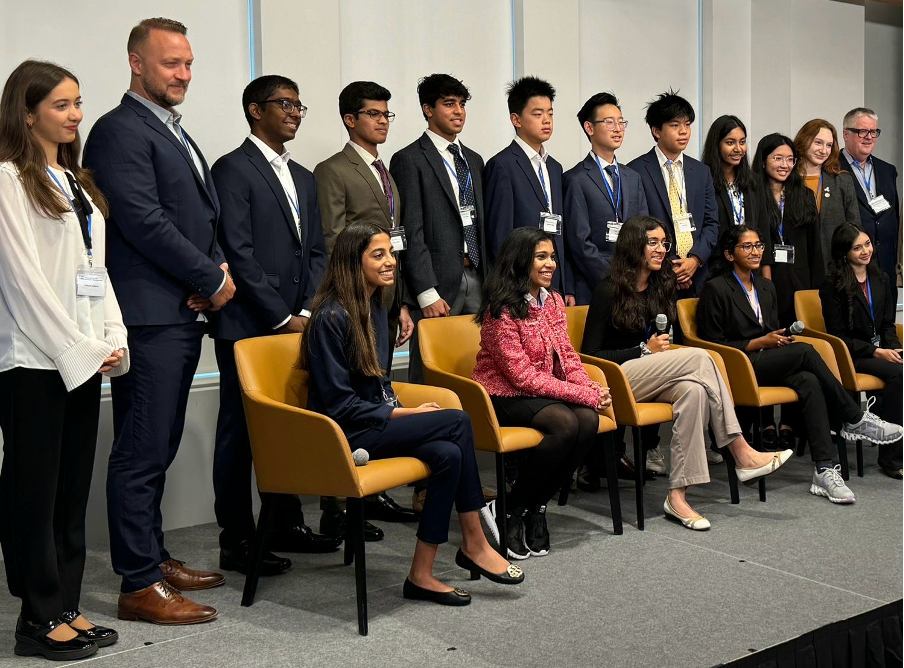
Stefan Tochev (second from left) at the UNGA Science Summit 2024: “A great opportunity to learn from our young leaders.”
MDPI Supports the Future Generation of Scientists
This aligns with MDPI’s mission to support the next generation of scientists and early-career researchers by recognizing their achievements through our various MDPI awards, including the Young Investigator Awards, Best PhD Thesis Awards, Travel Awards, and more.
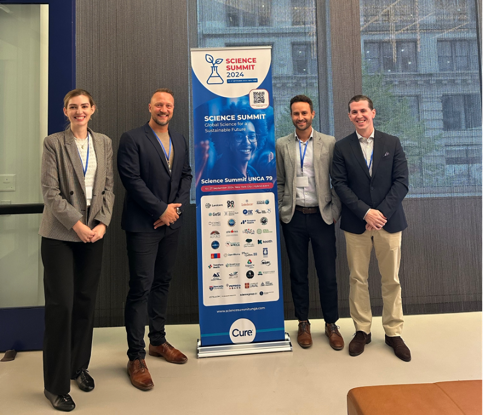
Our presence at this global event showed our commitment to advancing Open Science as a key driver for sustainable development. As a leading Open Access (OA) publisher, MDPI’s role at the summit was to emphasize the critical importance of democratizing scientific knowledge, making it accessible to all, and promoting global collaboration.
Through OA publishing, we aim to address pressing global challenges such as climate change, public health, and inequality, in line with the United Nations Sustainable Development Goals (SDGs).
“We aim to address pressing global challenges”
MDPI and the SDGs
In 2020, the SDG Publishers Compact was launched to accelerate implementation of the SDGs by promoting content that informs, develops, and inspires action. MDPI joined this initiative in 2021 and subsequently launched the MDPI SDG Hub in 2022, offering free access to recent research within the scope of each of the 17 SDGs.
During the summit, we highlighted the connection between Open Science and the SDG Publishers Compact, supporting the core objective to “Leave No One Behind” (LNOB). The transformative promise of the SDGs relies heavily on the Open Access model, which serves as a fundamental enabler of Open Science. We advocate for the wider adoption of Open Science practices in order to achieve the SDGs by 2030.
Impactful Research
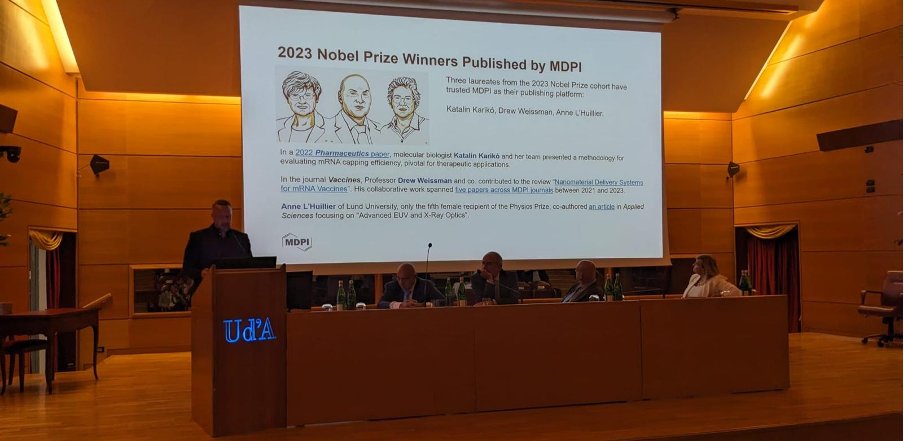
Presenting at the 1st International Conference of Environmental Medicine
In September, MDPI and our journals IJERPH and Diseases sponsored and participated in the 1st International Conference of Environmental Medicine: Environmental Threats to Human Health: From Genetics to Epigenetics, held in Chieti, Italy.
The conference was organized in collaboration with various societies, including the Italian Society of Environmental Medicine (SIMA), one of more than 160 societies partnering MDPI journals.
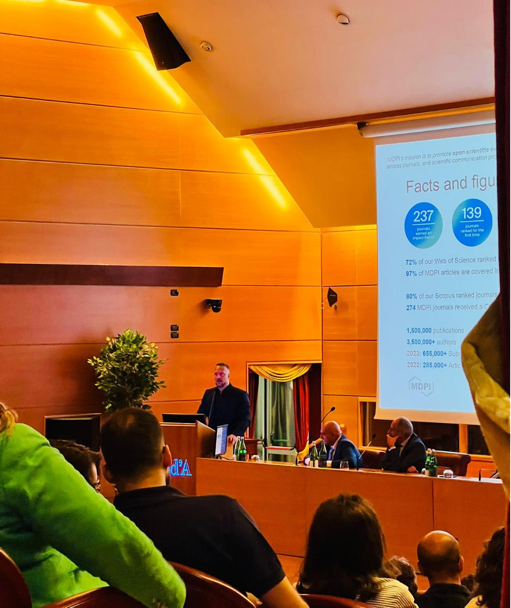
The conference brought together influential figures from the Italian scholarly community, such as Antonio Felice Uricchio (President of the National Agency for University Research Assessment [ANVUR]), Alessandro Miani (President of SIMA), and Liborio Stuppia (Director of ‘Gabriele d’Annunzio’ University of Chieti-Pescara), among others.
MDPI was the sole publishing sponsor of the conference, at which I had the opportunity to present on behalf of the company. I provided an overview of MDPI, covering key facts and figures, the peer-review process, our strong collaboration with the Italian market, and insights into Nobel Prize winners who have published with MDPI, ahead of Sir Richard Roberts’ Nobel lecture.
“As at September 2024, 44 Nobel laureates have contributed to over 115 articles across 35 MDPI journals”

The keynote speaker at the event was Sir Richard Roberts, Nobel Laureate and 1993 Nobel Prize winner in Medicine, recognized for his discovery of split genes.
Nobel Laureates’ Contributions to MDPI
As at September 2024, 44 Nobel laureates have contributed to over 115 articles across 35 MDPI journals. I’ll share more details on this in the October newsletter.
Hosting such prominent figures in their respective fields, who play a significant role in advancing the OA movement, of which we are leaders in, resonates deeply with our editorial teams.
Sponsoring and supporting academic conferences is something we do on a large scale, and it continues to grow. Attending and speaking about MDPI shows our commitment by taking the time to connect with the scholarly community in person.
MDPI’s Presence in Italy
Italy ranks third globally in total MDPI publications, with nearly 130,000 contributions. We collaborate with about 12,000 Editorial Board Members in Italy, over 6,100 of whom have an H-index of more than 25.
We have 83 Editors-in-Chief and 209 Section Editors-in-Chief from Italy. We also support 20 Italian universities through our Institutional Open Access Program (IOAP) agreements with major institutions such as Sapienza University of Rome, the University of Milan, and the University of Pisa, among others.
Inside MDPI

Celebrating Peer Review Week, 23–27 September 2024
As we conclude another productive month at MDPI, I am pleased to highlight our participation in this year’s Peer Review Week (PRW), which took place from 23–27 September 2024. This global, community-driven celebration underscores the vital importance of peer review in maintaining the integrity and reliability of academic work. PRW provide a platform for institutions, publishers, and scholars to come together and reflect on the processes that uphold the quality of scholarly communication.
“We remain committed to enhancing the peer review process”
The theme for PRW 2024 was ‘Innovation and Technology in Peer Review.’ At MDPI, we were proud to contribute through various online and in-person events, including webinars from Europe, Asia-Pacific, and a roundtable discussion on innovation and technology in peer review. These events offer an opportunity to explore new tools and technologies that are shaping the future of peer review, particularly the integration of AI. As a company, we remain committed to enhancing the peer review process with innovative solutions while preserving the essential human expertise that makes it effective.
Peer Review Innovation and Technology at MDPI
Our efforts to improve peer review extend beyond the activities of this week. We also released a blog article discussing New Tools for Advancing Research Integrity and Peer Review, where we highlight two tools that MDPI has developed to support research integrity: Eureka – Reviewer Recommender and Online Proofreader. We are continually refining SuSy, our in-house submission system, to provide a seamless experience for authors and reviewers alike.
Listening to MDPI’s Authors and Reviewers
We highly value the time of our reviewers, and so do the authors who contribute to our journals. Our editorial process is bolstered by a network of dedicated reviewers, a team of over 6,000 diligent, well-trained staff members, and an in-house article submission platform designed to ensure efficient processes.
We make it a point to continually improve the experiences of both our authors and our reviewers throughout the entire editorial process, from submission to publication. This is why we regularly ask for feedback by conducting surveys. Here is what some of our respondents recently had to say about working with MDPI:
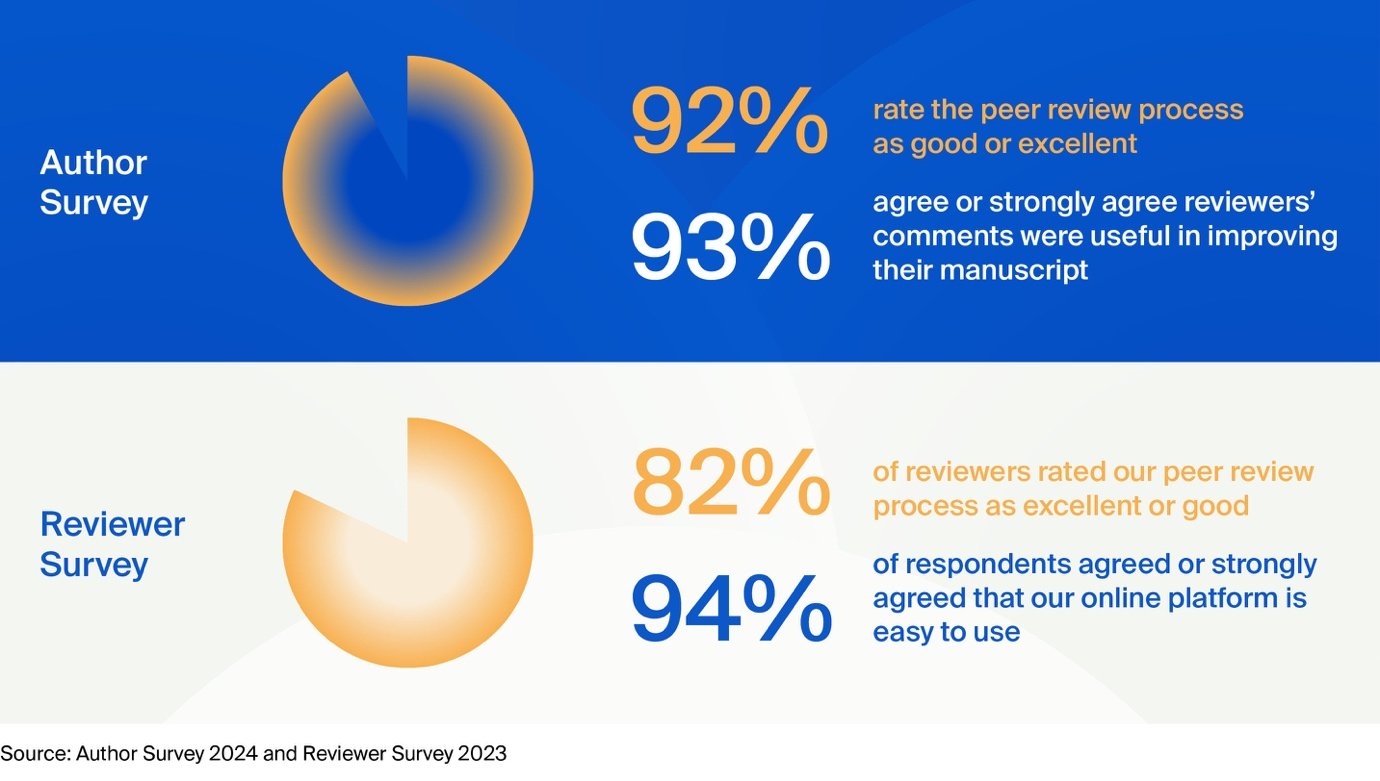
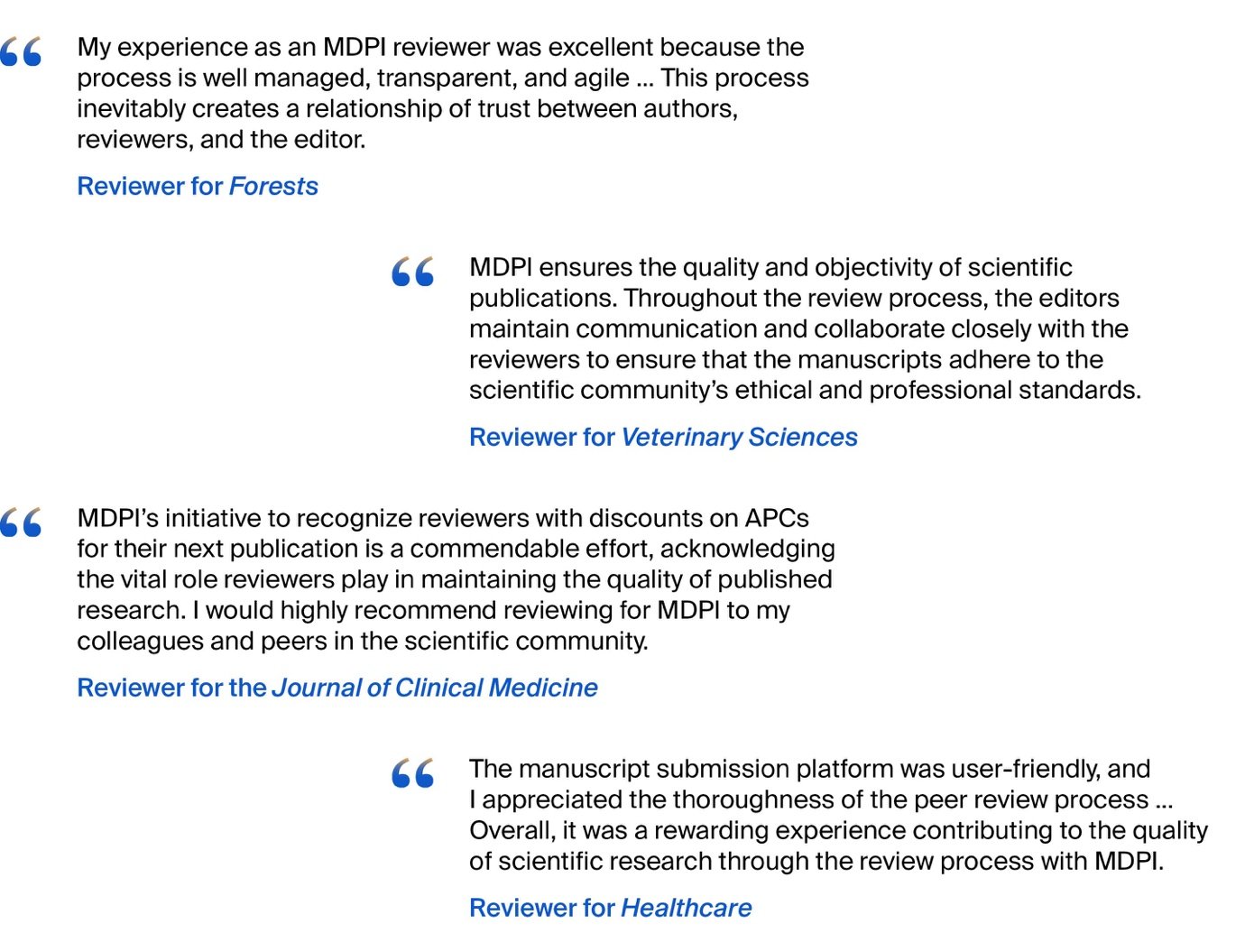
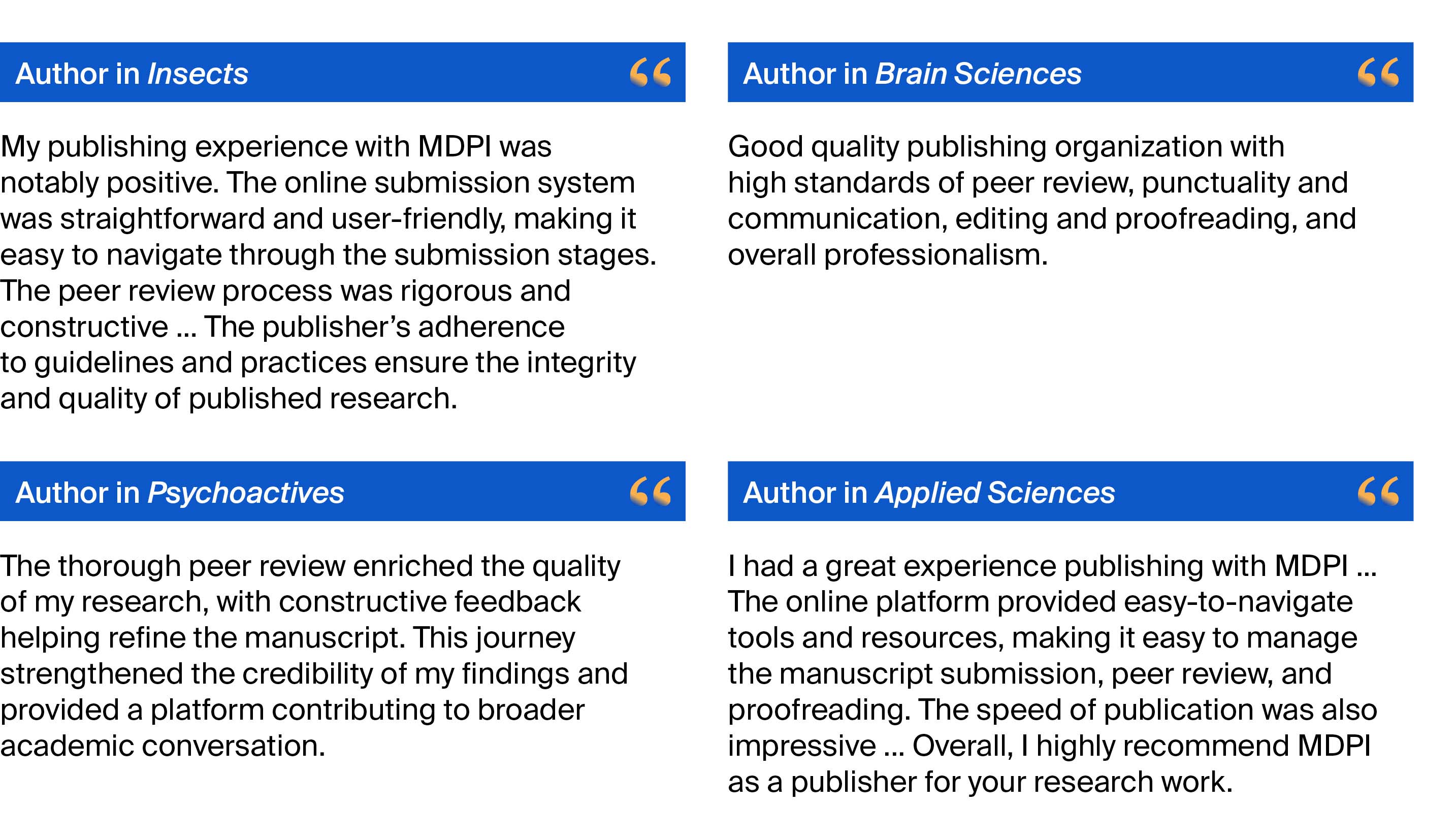
Coming Together for Science

ICM 2024 – Advances in Material Innovation
I am pleased to share that we held The 5th International Conference on Materials: Advances in Material Innovation (ICM 2024) in Basel, Switzerland this past 25–27 September.
This intimate event brought together leading scientists, researchers, and industry experts to exchange insights on recent advancements in materials characterization, processing, and manufacturing. Key focus areas included nanotechnology in material sciences and engineering, optical, electrical, and magnetic materials, soft, biological, and biomaterials, fibres, membranes, thin films, sensing materials, as well as materials and devices for energy and solar fuels. In addition, discussions featured the integration of AI and machine learning in materials research.
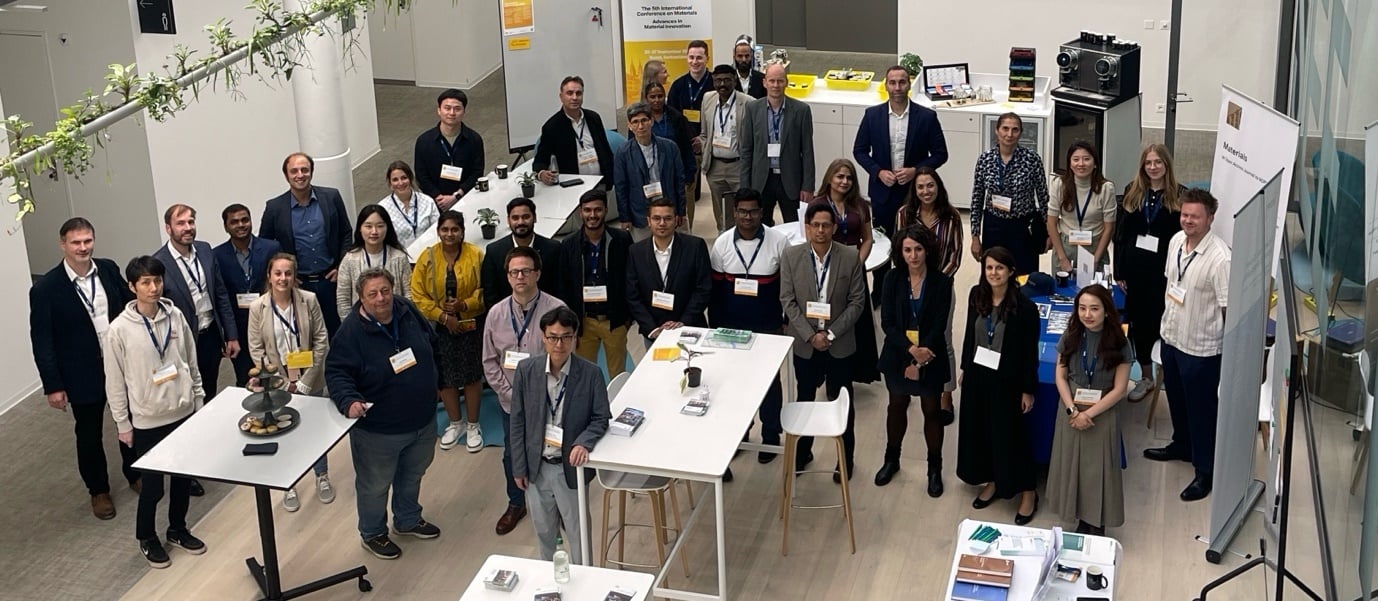
We received 90 abstract submissions. Over the course of the three-day event, 18 posters were displayed, and 34 talks were delivered, including three plenary speeches, seven invited talks, and 24 selected oral presentations.
A special thank-you to our partnering societies The Polish Membrane Society and The North American Thermal Analysis Society, as well as our sponsor, Nanomegas, for their support of the ICM conference. I am also pleased to share that we presented three awards, including the Best Presentation Award and two Best Poster Awards, recognizing the outstanding contributions of our participants.
Upcoming In-Person Event
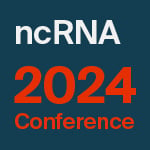
7–9 October 2024
Non-coding RNA World 2024: Exploring Mechanisms, Designing Medicines
Location: Basel, Switzerland
ncRNA 2024 will explore the latest advances in the field, covering topics from basic biology to medical and technological applications.
Find more upcoming MDPI events here.
Closing Thoughts
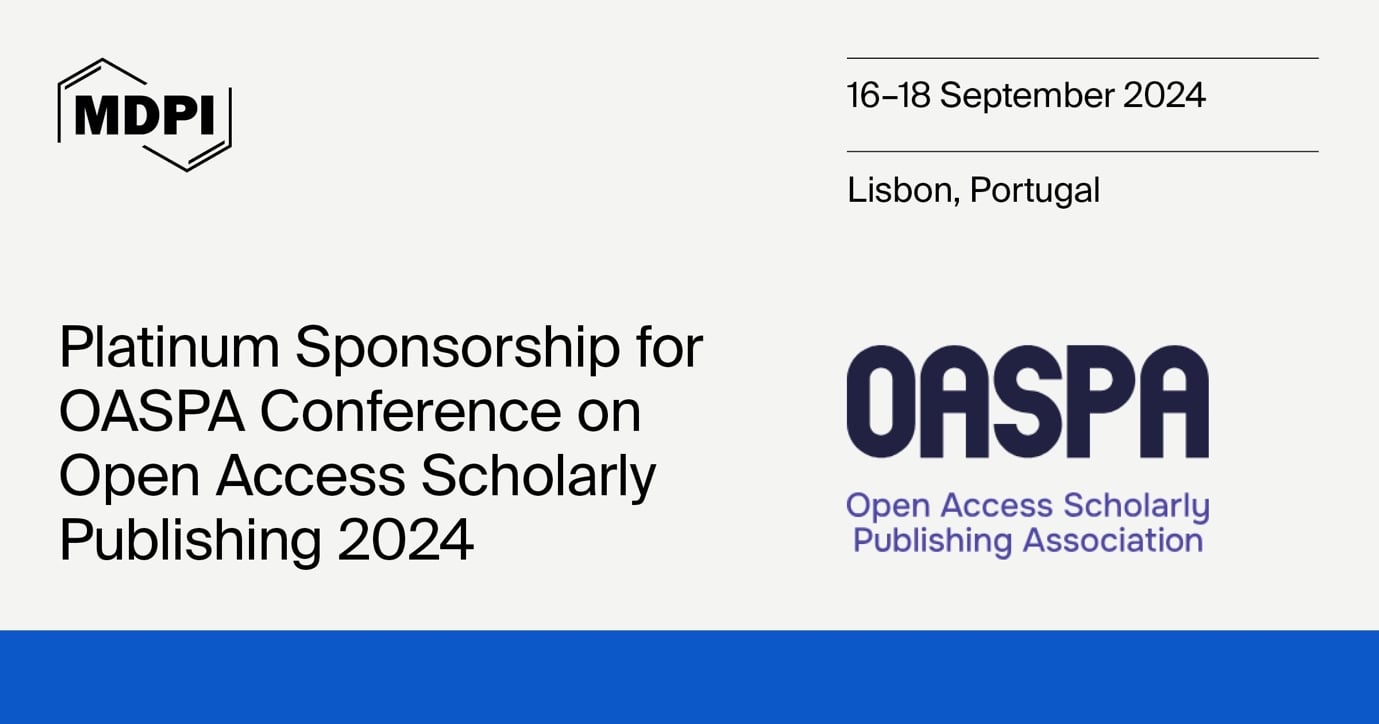
Reflections from OASPA 2024 Conference in Lisbon (16–18 September)
Amidst my September travels, I also had pleasure of attending the OASPA 2024 Conference in Lisbon from 16–18 September. It’s the first in-person Open Access Scholarly Publishing Association (OASPA) event in five years, and being in the sunny city of Lisbon made it even better! MDPI has long been a member of OASPA, and attending this conference gave us an opportunity to connect with other key members of the organization to see the latest developments in the OA movement.
“I believe that publishers have a lot to offer in terms of data and insights”
Main Themes from OASPA 2024
The main themes covered were equity and inclusivity, diamond OA, AI and openness, OA books, research integrity, and how OA can address broader societal challenges such as climate change. While it was great to see the latest developments in these areas, it was also clear that certain voices were missing, particularly those of major publishers. Although it’s not easy to incorporate every perspective, I believe that publishers, including MDPI, have a lot to offer in terms of data and insights. During the membership meeting, a few of us raised the point that large-scale publisher input could add value to these discussions.
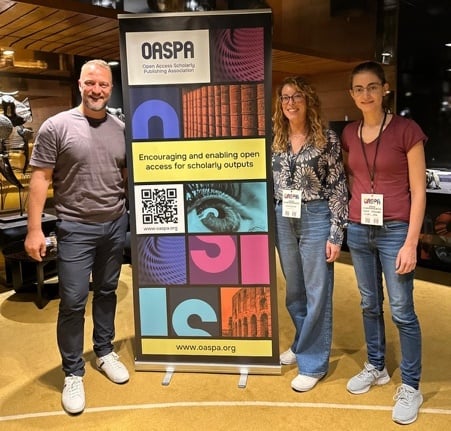
It’s important to participate in industry conferences such as OASPA in order to be part of the discussions and remain at the forefront of the OA movement.
It’s an opportunity to build meaningful relationships with organizations that share our commitment to OA.
While sponsorship is one way to show our support, it’s clear that being part of the conversation through participating in the OASPA groups and committee is what really makes a difference.
It took the last 20 years for more than 50% of the world's research to be published via open access. This provides a sobering reminder that flipping the remaining 50% will be a big challenge.
An important takeaway for me was that there is no "one-size-fits-all" solution for OA challenges: different regions and different stakeholders need different forms of support, whether it is infrastructure, funding, education, or policy, for example. I also enjoyed Rebecca Ross' presentation on how OA can drive action on climate. A few panellists shared the need for transparency in the peer-review process, advocating for open review reports, which is something we have been offering since 2014.
Speaking of openness, we are excited to celebrate Open Access Week 2024 with the scholarly community from 21–27 October. I look forward to sharing a recap of our activities in the next newsletter.
Chief Executive Officer
MDPI AG
29 September 2024
MDPI New Journal Proposal—Invitation to Shape the Future of Open Science Together

As a leader in open access publishing, MDPI is eager to explore new collaboration opportunities, including the launch of new journals and the transfer of existing ones. At present, MDPI publishes over 400 journals, more than 160 of which have established partnerships with academic organizations. Additionally, we publish 19 association journals.
In order to enhance exchange and cooperation with scientific researchers and share the results of open science, MDPI invites experts and scholars from various fields to submit proposals for new journal collaboration opportunities. If your proposal is approved, you could take on the role of Editor-in-Chief, Deputy Editor-in-Chief, or Editorial Board Member of the journal. This position allows you to manage the manuscript review process alongside our editorial department, participate in calls for papers, strengthen your network with scholars in the field, expand scientific research cooperation, enhance your personal and academic influence internationally, and play a leading role in academia.
Once the new journal is online, MDPI will provide a variety of promotional channels to market the journal internationally.
MDPI will offer various promotional channels to enhance its visibility and promote it internationally.
How can you determine the theme of a new journal?
- Assess research hotspots/academic frontiers;
- Assess pioneers in the field/key research directions of universities;
- Determine whether MDPI has already established a journal in the field.
You can browse MDPI’s existing journals at the following link: https://www.mdpi.com/about/journals.
Advantages of collaborating with MDPI:
- MDPI is a global leader in open-access publishing with extensive academic resources.
- MDPI offers a professional publishing team that provides comprehensive support throughout the publishing process.
- MDPI’s diverse promotional platforms and channels help journals quickly increase their international visibility and influence.
We invite you to submit new journal proposal here, and contribute to academic development! In addition, if your institution (university, institute, college, national key laboratory, society, etc.) intends to establish a journal, you can also submit a draft to MDPI on its behalf.
27 September 2024
MDPI’s 2023 Travel Awards—Winners Announced

MDPI journals frequently grant travel awards to empower junior researchers to showcase their latest research at academic conferences, thereby amplifying their impact within their research fields.
We extend our heartfelt congratulations to the 103 recipients of MDPI's 2023 Travel Awards from different countries and territories for their exceptional presentations. These outstanding individuals were selected by the journal editors based on the strength of their research proposals and the anticipated impact of their presentations at academic conferences. We commend their exceptional contributions and wish them continued success in their academic endeavors.
MDPI will continue to provide support and recognition to the academic community. To learn more about the list of awardees, please visit the following pages:
- Biology and Life Sciences;
- Chemistry and Materials Sciences;
- Engineering;
- Environmental and Earth Sciences;
- Medicine and Pharmacology;
- Public Health and Healthcare;
- Others.
About MDPI Awards:
To reward the academic community, especially young researchers, and enhance communication among scientists, MDPI journals regularly offer various awards to researchers in specific fields. These awards, serving as a source of inspiration and recognition, help raise the influence of talented individuals who have been credited with outstanding achievements and are making a significant contribution to the advancement of their fields.
To explore more MDPI awards, please click here.
11 September 2024
Meet Us at the Non-coding RNA World 2024: Exploring Mechanisms, Designing Medicines, 7–9 October 2024, Basel, Switzerland

MDPI will be attending the Non-coding RNA World 2024: Exploring Mechanisms, Designing Medicines (ncRNA 2024) in Basel, Switzerland, which will take place from 7 to 9 October 2024. The conference will cover a broad range of topics, from basic biology to medical and technological applications. The sessions will take molecular biology through the topics of disease mechanisms, therapies, technologies, and bioinformatic approaches. Each session will be anchored by leading international speakers.
The following MDPI journals will be represented:
- Biology;
- Biomedicines;
- Biomolecules;
- Cells;
- Epigenomes;
- Genes;
- Life.
If you are attending the conference, please visit our booth. Our delegates look forward to meeting you in person and answering any questions that you may have. For more information about the conference, please visit the following link: https://sciforum.net/event/ncRNA2024.
11 September 2024
MDPI’s 2023 Best PhD Thesis Awards—Winners Announced

MDPI’s Best PhD Thesis Awards are granted to promising young scholars whose PhD theses are deemed exceptional within their respective research fields. These awards aim to encourage young scholars to continue their outstanding accomplishments and further contribute to their field.
We extend our heartfelt congratulations to the 54 winners of the 2023 Best PhD Thesis Awards and wish them success with their future research endeavors.
MDPI will continue to provide support and recognition to the academic community. To learn more about all the awardees and their research projects in your field of study, please visit the following pages:
About MDPI Awards:
To reward the academic community, especially young researchers, and enhance communication among scientists, MDPI journals regularly offer various awards to researchers in specific fields. These awards, serving as a source of inspiration and recognition, help raise the influence of talented individuals who have been credited with outstanding achievements and are making a significant contribution to the advancement of their fields.
To explore more MDPI awards, please click here.
10 September 2024
Biomolecules | Highly Cited Papers in 2022–2023 in the Section “Chemical Biology”

As all of the articles published in our journal are open access, you have free and unlimited access to the full text. We welcome you to read our most highly cited papers published in 2022 and 2023, which are listed below.
1. “PI3K–AKT-Targeting Breast Cancer Treatments: Natural Products and Synthetic Compounds”
by Yeqin Yuan, Huizhi Long, Ziwei Zhou, Yuting Fu and Binyuan Jiang
Biomolecules 2023, 13(1), 93; https://doi.org/10.3390/biom13010093
Full text available online: https://www.mdpi.com/2218-273X/13/1/93
2. “The Multifaceted Role of Aquaporin-9 in Health and Its Potential as a Clinical Biomarker”
by Inês V. da Silva, Sabino Garra, Giuseppe Calamita and Graça Soveral
Biomolecules 2022, 12(7), 897; https://doi.org/10.3390/biom12070897
Full text available online: https://www.mdpi.com/2218-273X/12/7/897
3. “Macrophages in Skin Wounds: Functions and Therapeutic Potential”
by Seen Ling Sim, Snehlata Kumari, Simranpreet Kaur and Kiarash Khosrotehrani
Biomolecules 2022, 12(11), 1659; https://doi.org/10.3390/biom12111659
Full text available online: https://www.mdpi.com/2218-273X/12/11/1659
4. “Rosmarinic Acid and Related Dietary Supplements: Potential Applications in the Prevention and Treatment of Cancer”
by Jiachao Zhao, Liwei Xu, Di Jin, Yu Xin, Lin Tian, Tan Wang, Daqing Zhao, Zeyu Wang and Jing Wang
Biomolecules 2022, 12(10), 1410; https://doi.org/10.3390/biom12101410
Full text available online: https://www.mdpi.com/2218-273X/12/10/1410
5. “Vitamin D3 Stimulates Proliferation Capacity, Expression of Pluripotency Markers, and Osteogenesis of Human Bone Marrow Mesenchymal Stromal/Stem Cells, Partly through SIRT1 Signaling”
by Ana Borojević, Aleksandra Jauković, Tamara Kukolj, Slavko Mojsilović, Hristina Obradović, Drenka Trivanović, Milena Živanović, Željko Zečević, Marija Simić, Borko Gobeljić et al.
Biomolecules 2022, 12(2), 323; https://doi.org/10.3390/biom12020323
Full text available online: https://www.mdpi.com/2218-273X/12/2/323
6. “Cytochromes P450 of Caenorhabditis elegans: Implication in Biological Functions and Metabolism of Xenobiotics”
by Lucie Larigot, Daniel Mansuy, Ilona Borowski, Xavier Coumoul and Julien Dairou
Biomolecules 2022, 12(3), 342; https://doi.org/10.3390/biom12030342
Full text available online: https://www.mdpi.com/2218-273X/12/3/342
7. “Progress in Investigational Agents Targeting Serotonin-6 Receptors for the Treatment of Brain Disorders”
by Pradeep Jayarajan Ramakrishna, Anil Shinde, Abdul Rasheed Mohammed, Venkata Ramalingayya Grandhi, Vijay Benade, Vinod Kumar Goyal, Renny Abraham, Venkat Jasti and Jeffrey Cummings
Biomolecules 2023, 13(2), 309; https://doi.org/10.3390/biom13020309
Full text available online: https://www.mdpi.com/2218-273X/13/2/309
8. “The Complex Biological Effects of Pectin: Galectin-3 Targeting as Potential Human Health Improvement?”
by Lucas de Freitas Pedrosa, Avraham Raz and João Paulo Fabi
Biomolecules 2022, 12(2), 289; https://doi.org/10.3390/biom12020289
Full text available online: https://www.mdpi.com/2218-273X/12/2/289
9. “Biomarker Characterization and Prediction of Virulence and Antibiotic Resistance from Helicobacter pylori Next Generation Sequencing Data”
by Joana S. Vital, Luís Tanoeiro, Ricardo Lopes-Oliveira and Filipa F. Vale
Biomolecules 2022, 12(5), 691; https://doi.org/10.3390/biom12050691
Full text available online: https://www.mdpi.com/2218-273X/12/5/691
10. “Inhibitors of the Cancer Target Ribonucleotide Reductase, Past and Present”
by Sarah E. Huff, Jordan M. Winter and Chris G. Dealwis
Biomolecules 2022, 12(6), 815; https://doi.org/10.3390/biom12060815
Full text available online: https://www.mdpi.com/2218-273X/12/6/815
10 September 2024
Biomolecules | Highly Cited Papers in 2022–2023 in the Section “Molecular Biology”

As all of the articles published in our journal are open access, you have free and unlimited access to the full text. We welcome you to read our most highly cited papers published in 2022 and 2023, which are listed below.
1. “Molecular Biomarkers in Cancer”
by Virinder Kaur Sarhadi and Gemma Armengol
Biomolecules 2022, 12(8), 1021; https://doi.org/10.3390/biom12081021
Full text available online: https://www.mdpi.com/2218-273X/12/8/1021
2. “Recent Advances in Poly(α-L-glutamic acid)-Based Nanomaterials for Drug Delivery”
by Yu Zhang, Wenliang Song, Yiming Lu, Yixin Xu, Changping Wang, Deng-Guang Yu and Il Kim
Biomolecules 2022, 12(5), 636; https://doi.org/10.3390/biom12050636
Full text available online: https://www.mdpi.com/2218-273X/12/5/636
3. “Melittin-Based Nano-Delivery Systems for Cancer Therapy”
by Anqi Wang, Yuan Zheng, Wanxin Zhu, Liuxin Yang, Yang Yang and Jinliang Peng
Biomolecules 2022, 12(1), 118; https://doi.org/10.3390/biom12010118
Full text available online: https://www.mdpi.com/2218-273X/12/1/118
4. “Recent Advances in Strategies for Addressing Hypoxia in Tumor Photodynamic Therapy”
by Liang Hong, Jiangmin Li, Yali Luo, Tao Guo, Chenshuang Zhang, Sha Ou, Yaohang Long and Zuquan Hu
Biomolecules 2022, 12(1), 81; https://doi.org/10.3390/biom12010081
Full text available online: https://www.mdpi.com/2218-273X/12/1/81
5. “Targeting Oxidative Stress Involved in Endometriosis and Its Pain”
by Lauren Clower, Taylor Fleshman, Werner J. Geldenhuys and Nalini Santanam
Biomolecules 2022, 12(8), 1055; https://doi.org/10.3390/biom12081055
Full text available online: https://www.mdpi.com/2218-273X/12/8/1055
6. “Role of Fibroblasts and Myofibroblasts on the Pathogenesis and Treatment of Pelvic Organ Prolapse”
by Zeliha Guler and Jan Paul Roovers
Biomolecules 2022, 12(1), 94; https://doi.org/10.3390/biom12010094
Full text available online: https://www.mdpi.com/2218-273X/12/1/94
7. “Methacrylated Cartilage ECM-Based Hydrogels as Injectables and Bioinks for Cartilage Tissue Engineering”
by Kevin Behan, Alexandre Dufour, Orquidea Garcia and Daniel Kelly
Biomolecules 2022, 12(2), 216; https://doi.org/10.3390/biom12020216
Full text available online: https://www.mdpi.com/2218-273X/12/2/216
8. “Cellulose Nanofiber-Based Aerogels from Wheat Straw: Influence of Surface Load and Lignin Content on Their Properties and Dye Removal Capacity”
by Ramón Morcillo-Martín, Eduardo Espinosa, Laura Rabasco-Vílchez, Laura M. Sanchez,Jorge de Haro and Alejandro Rodríguez
Biomolecules 2022, 12(2), 232; https://doi.org/10.3390/biom12020232
Full text available online: https://www.mdpi.com/2218-273X/12/2/232
9. “Wood Waste from Fruit Trees: Biomolecules and Their Applications in Agri-Food Industry”
by Maria Jose Aliaño-González, Julien Gabaston, Victor Ortiz-Somovilla and Emma Cantos-Villar
Biomolecules 2022, 12(2), 238; https://doi.org/10.3390/biom12020238
Full text available online: https://www.mdpi.com/2218-273X/12/2/238
10. “Effects of Glucose Metabolism, Lipid Metabolism, and Glutamine Metabolism on Tumor Microenvironment and Clinical Implications”
by Longfei Zhu, Xuanyu Zhu and Yan Wu
Biomolecules 2022, 12(4), 580; https://doi.org/10.3390/biom12040580
Full text available online: https://www.mdpi.com/2218-273X/12/4/580
10 September 2024
Biomolecules | Highly Cited Papers in 2022–2023 in the Section “Molecular Genetics”

As all of the articles published in our journal are open access, you have free and unlimited access to the full text. We welcome you to read our most highly cited papers published in 2022 and 2023, which are listed below.
1. “Folic Acid, Folinic Acid, 5 Methyl TetraHydroFolate Supplementation for Mutations That Affect Epigenesis through the Folate and One-Carbon Cycles”
by Yves Menezo, Kay Elder, Arthur Clement and Patrice Clement
Biomolecules 2022, 12(2), 197; https://doi.org/10.3390/biom12020197
Full text available online: https://www.mdpi.com/2218-273X/12/2/197
2. “Acetylation, Phosphorylation, Ubiquitination (Oh My!): Following Post-Translational Modifications on the Ubiquitin Road”
by Rachel E. Lacoursiere, Dania Hadi and Gary S. Shaw
Biomolecules 2022, 12(3), 467; https://doi.org/10.3390/biom12030467
Full text available online: https://www.mdpi.com/2218-273X/12/3/467
3. “Plasma Exosome-Derived microRNAs as Potential Diagnostic and Prognostic Biomarkers in Brazilian Pancreatic Cancer Patients”
by Anelis Maria Marin, Sibelle Botogosque Mattar, Rafaela Ferreira Amatuzzi, Roger Chammas, Miyuki Uno, Dalila Luciola Zanette and Mateus Nóbrega Aoki
Biomolecules 2022, 12(6), 769; https://doi.org/10.3390/biom12060769
Full text available online: https://www.mdpi.com/2218-273X/12/6/769
4. “Glycemic Control and the Heart: The Tale of Diabetic Cardiomyopathy Continues”
by Miriam Longo, Lorenzo Scappaticcio, Paolo Cirillo, Antonietta Maio, Raffaela Carotenuto, Maria Ida Maiorino, Giuseppe Bellastella and Katherine Esposito
Biomolecules 2022, 12(2), 272; https://doi.org/10.3390/biom12020272
Full text available online: https://www.mdpi.com/2218-273X/12/2/272
5. “Next-Generation Sequencing Gene Panels in Inheritable Cardiomyopathies and Channelopathies: Prevalence of Pathogenic Variants and Variants of Unknown Significance in Uncommon Genes”
by Cristina Mazzaccara, Raffaella Lombardi, Bruno Mirra, Ferdinando Barretta, Maria Valeria Esposito, Fabiana Uomo, Martina Caiazza, Emanuele Monda, Maria Angela Losi, Giuseppe Limongelli et al.
Biomolecules 2022, 12(10), 1417; https://doi.org/10.3390/biom12101417
Full text available online: https://www.mdpi.com/2218-273X/12/10/1417
6. “Optimized AAV Vectors for TMC1 Gene Therapy in a Humanized Mouse Model of DFNB7/11”
by Irina Marcovich, Nicholas K. Baer, Olga Shubina-Oleinik, Rachel Eclov, Clayton W. Beard and Jeffrey R. Holt
Biomolecules 2022, 12(7), 914; https://doi.org/10.3390/biom12070914
Full text available online: https://www.mdpi.com/2218-273X/12/7/914
7. “Myocardial Inflammation as a Manifestation of Genetic Cardiomyopathies: From Bedside to the Bench”
by Giovanni Peretto, Elena Sommariva, Chiara Di Resta, Martina Rabino, Andrea Villatore, Davide Lazzeroni, Simone Sala, Giulio Pompilio and Leslie T. Cooper
Biomolecules 2023, 13(4), 646; https://doi.org/10.3390/biom13040646
Full text available online: https://www.mdpi.com/2218-273X/13/4/646
8. “Advances and Challenges in Spatial Transcriptomics for Developmental Biology”
by Kyongho Choe, Unil Pak, Yu Pang, Wanjun Hao and Xiuqin Yang
Biomolecules 2023, 13(1), 156; https://doi.org/10.3390/biom13010156
Full text available online: https://www.mdpi.com/2218-273X/13/1/156
9. “Epigenetic Reprogramming of the Inflammatory Response in Obesity and Type 2 Diabetes”
by Federica Zatterale, Gregory Alexander Raciti, Immacolata Prevenzano, Alessia Leone, Michele Campitelli, Veronica De Rosa, Francesco Beguinot and Luca Parrillo
Biomolecules 2022, 12(7), 982; https://doi.org/10.3390/biom12070982
Full text available online: https://www.mdpi.com/2218-273X/12/7/982
10. “Grapevine DMR6-1 Is a Candidate Gene for Susceptibility to Downy Mildew”
by Carlotta Pirrello, Giulia Malacarne, Marco Moretto, Luisa Lenzi, Michele Perazzolli, Tieme Zeilmaker, Guido Van den Ackerveken, Stefania Pilati, Claudio Moser and Lisa Giacomelli
Biomolecules 2022, 12(2), 182; https://doi.org/10.3390/biom12020182
Full text available online: https://www.mdpi.com/2218-273X/12/2/182
10 September 2024
Biomolecules | Highly Cited Papers in 2022–2023 in the Section “Molecular Medicine”

As all of the articles published in our journal are open access, you have free and unlimited access to the full text. We welcome you to read our most highly cited papers published in 2022 and 2023, which are listed below.
1. “NAFLD: Mechanisms, Treatments, and Biomarkers”
by Fatiha Nassir
Biomolecules 2022, 12(6), 824; https://doi.org/10.3390/biom12060824
Full text available online: https://www.mdpi.com/2218-273X/12/6/824
2. “Nano-Based Approved Pharmaceuticals for Cancer Treatment: Present and Future Challenges”
by Francisco Rodríguez, Pablo Caruana, Noa De la Fuente, Pía Español, María Gámez, Josep Balart, Elisa Llurba, Ramón Rovira, Raúl Ruiz, Cristina Martín-Lorente et al.
Biomolecules2022, 12(6), 784; https://doi.org/10.3390/biom12060784
Full text available online: https://www.mdpi.com/2218-273X/12/6/784
3. “Biological Effects of Human Exposure to Environmental Cadmium”
by Massimiliano Peana, Alessio Pelucelli, Christos T. Chasapis, Spyros P. Perlepes, Vlasoula Bekiari, Serenella Medici and Maria Antonietta Zoroddu
Biomolecules2023,13(1), 36; https://doi.org/10.3390/biom13010036
Full text available online: https://www.mdpi.com/2218-273X/13/1/36
4. “Oxidative Stress and NRF2/KEAP1/ARE Pathway in Diabetic Kidney Disease (DKD): New Perspectives”
by Daniela Maria Tanase, Evelina Maria Gosav, Madalina Ioana Anton, Mariana Floria, Petronela Nicoleta Seritean Isac, Loredana Liliana Hurjui, Claudia Cristina Tarniceriu, Claudia Florida Costea, Manuela Ciocoiu and Ciprian Rezus
Biomolecules2022, 12(9), 1227; https://doi.org/10.3390/biom12091227
Full text available online: https://www.mdpi.com/2218-273X/12/9/1227
5. “The Role of Tryptophan Dysmetabolism and Quinolinic Acid in Depressive and Neurodegenerative Diseases”
by Knut Hestad, Jan Alexander, Helge Rootwelt and Jan O. Aaseth
Biomolecules2022, 12(7), 998; https://doi.org/10.3390/biom12070998
Full text available online: https://www.mdpi.com/2218-273X/12/7/998
6. “Recent Advances of Tubulin Inhibitors Targeting the Colchicine Binding Site for Cancer Therapy”
by Mohammed Hawash
Biomolecules2022, 12(12), 1843; https://doi.org/10.3390/biom12121843
Full text available online: https://www.mdpi.com/2218-273X/12/12/1843
7. “Cerebral Iron Deposition in Neurodegeneration”
by Petr Dusek, Tim Hofer, Jan Alexander, Per M. Roos and Jan O. Aaseth
Biomolecules2022, 12(5), 714; https://doi.org/10.3390/biom12050714
Full text available online: https://www.mdpi.com/2218-273X/12/5/714
8. “Progesterone as an Anti-Inflammatory Drug and Immunomodulator: New Aspects in Hormonal Regulation of the Inflammation”
by Tatiana A. Fedotcheva, Nadezhda I. Fedotcheva and Nikolai L. Shimanovsky
Biomolecules2022, 12(9), 1299; https://doi.org/10.3390/biom12091299
Full text available online: https://www.mdpi.com/2218-273X/12/9/1299
9. “The Impact of Zinc and Zinc Homeostasis on the Intestinal Mucosal Barrier and Intestinal Diseases”
by Yan Wan and Bingkun Zhang
Biomolecules2022, 12(7), 900; https://doi.org/10.3390/biom12070900
Full text available online: https://www.mdpi.com/2218-273X/12/7/900
10. “The Role of JAK/STAT Pathway in Fibrotic Diseases: Molecular and Cellular Mechanisms”
by Jia Liu, Faping Wang and Fengming Luo
Biomolecules2023, 13(1), 119; https://doi.org/10.3390/biom13010119
Full text available online: https://www.mdpi.com/2218-273X/13/1/119
10 September 2024
Meet Us at the 2024 International Conference of the Korean Society for Molecular and Cellular Biology, 8–11 October 2024, Jeju, Republic of Korea

The 2024 International Conference of the Korean Society for Molecular and Cellular Biology will be held from 8 to 11 October 2024, in Jeju, Republic of Korea. The conference is organized by the Korean Society for Molecular and Cellular Biology, and promises a rich tapestry of scholarly exchange across various disciplines within biological and biomedical sciences.
The conference will feature four top keynote speakers in the field of life sciences, including two Nobel Prize winners, and scientists from more than thirty countries around the world participating in more than twenty scientific sessions on a variety of topics. The agenda includes symposiums showcasing pioneering research in life sciences, dedicated sessions for young academics, such as graduate students, postdoctoral researchers, and research professors, and a Bio Job Fair.
The following MDPI journals will be represented at the conference:
- International Journal of Molecular Sciences;
- Antioxidants;
- Biophysica;
- Current Issues in Molecular Biology;
- Kinases and Phosphatases;
- Metabolites;
- Microorganisms;
- Proteomes;
- Bioengineering;
- Biomedicines;
- BioMed;
- Biomolecules;
- Cancers;
- Genes;
- Journal of Molecular Pathology;
- Organoids;
- Plants;
- Non-Coding RNA;
- Sci;
- Journal of Fungi.
If you are attending this conference, please feel free to start an online conversation with us. Our delegates look forward to meeting you in person at booth #99 and answering any questions that you may have. For more information about the conference, please visit the following link: https://www.ksmcb.or.kr/icksmcb2024/main.html.
3 September 2024
MDPI INSIGHTS: The CEO's Letter #15 - CHORUS, Best Paper Award, August Events

Welcome to the MDPI Insights: The CEO's Letter.
In these monthly letters, I will showcase two key aspects of our work at MDPI: our commitment to empowering researchers and our determination to facilitating open scientific exchange.
Opening Thoughts

I am pleased to share that MDPI is now an Affiliate Member of CHORUS, a not-for-profit organization dedicated to ensuring public access to articles reporting on U.S. government-funded research. This partnership highlights our long-standing commitment to advancing Open Access (OA) publishing and meeting funders’ open research requirements.
Read the full announcement here.
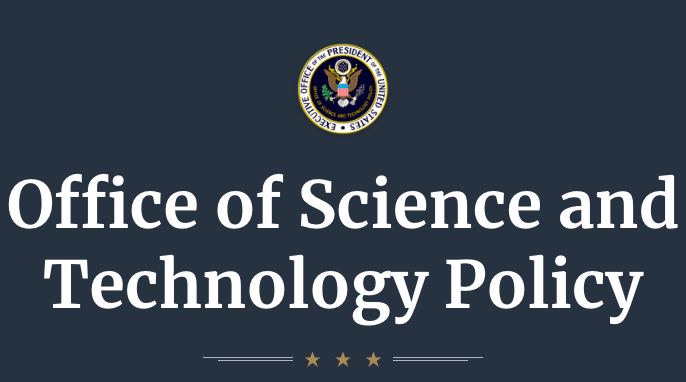
With the White House Office of Science and Technology Policy (OSTP) 2022 memorandum calling for immediate public access to all federally funded research by 2026, this partnership positions MDPI to further support academic institutions in adhering to national mandates while providing authors with fully compliant (CC-BY) OA journals.
The CHORUS platform went live in July 2014 and includes NASA, the U.S. Department of Energy, the U.S. Department of Defense, the U.S. Geological Survey, and the National Science Foundation.
“This partnership positions MDPI to further support academic institutions in adhering to national mandates”
Joining CHORUS perfectly aligns our mission as the leading OA publisher, which is to drive transparency and innovation in scholarly publishing, with that of CHORUS itself, which is to advance Open Access research. It will also support MDPI publications from organizations such as NASA, with 1,200 research papers published by NASA-affiliated authors as at 31 August 2024.
Impactful Research
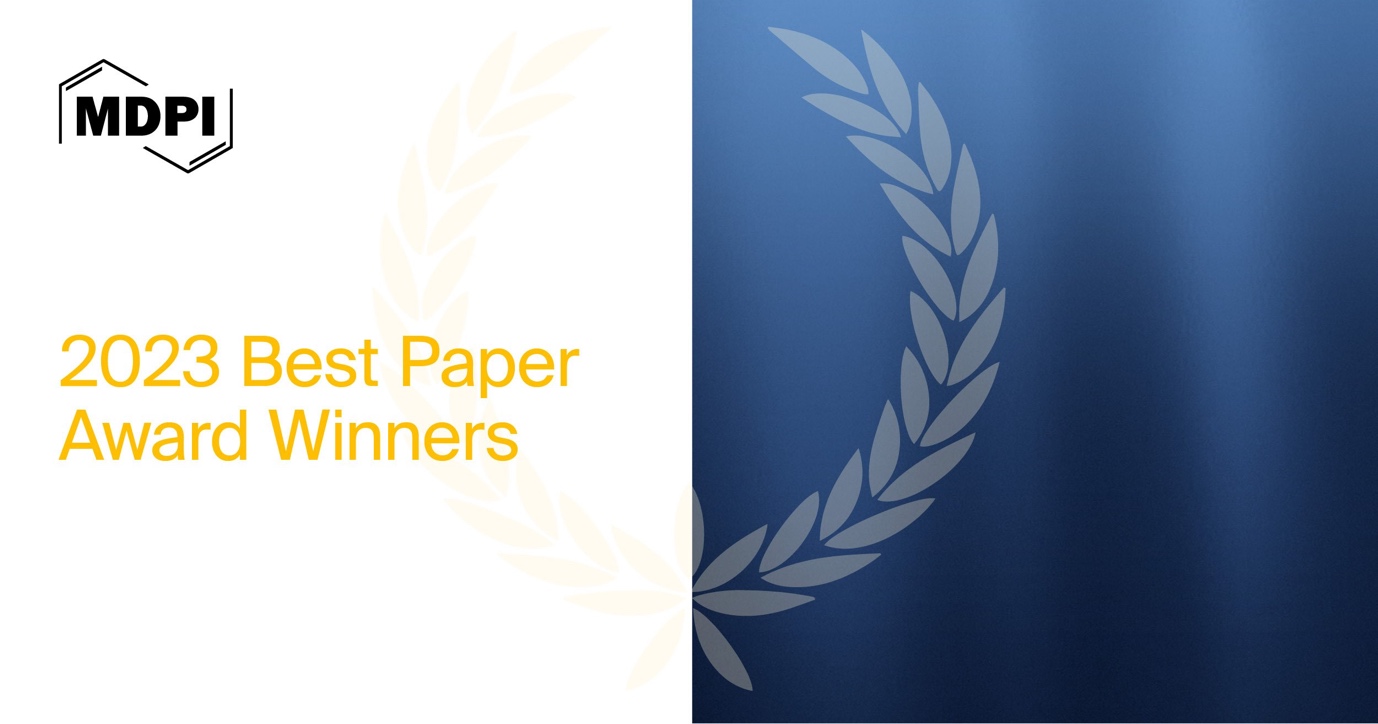
MDPI’s Best Paper Awards—Award-Winning Papers in 2023 Announced
MDPI is committed to supporting and recognizing the academic community and is proud to announce the recipients of the 2023 Best Paper Awards, which recognize high-quality papers of significant scientific merit and impact. Each year, the editors of our journals carefully select papers that showcase outstanding scientific achievement.
This year, 115 Best Paper Awards were presented, chosen from 346 exceptional papers in a highly competitive selection process. Congratulations to the authors for their remarkable contributions!
To learn more about all the awardees and their research projects, visit the following pages:
- Biology and Life Sciences
- Business and Economics
- Chemistry and Materials Sciences
- Computer Sciences and Mathematics
- Engineering
- Environmental and Earth Sciences
- Medicine and Pharmacology
- Public Health and Healthcare
- Social Sciences, Arts and Humanities
- Physical Sciences
About MDPI Awards
MDPI regularly offers various awards to recognize researchers, particularly young scientists, and to promote communication within the scientific community. These awards exist to inspire and acknowledge talented scientists who have made significant contributions to advancing their fields.
To find out more MDPI awards, please click here.
“Our awards exist to inspire and acknowledge talented scientists”
Inside MDPI

MDPI AI Team Presented at EuroSciPy 2024 in Poland
As part of the CEO Letter, I hold dear this ‘Inside MDPI’ section, where I have an opportunity to highlight various projects, teams and updates within our organization. As such, I’m happy to showcase the following presentations from members of MDPI’s Artificial Intelligence (AI) team, which were recently presented at the EuroSciPy 2024 (16th European Conference on Python in Science). This conference took place in Szczecin, Poland from 26–30 August.
“This event was a great opportunity to reinforce our commitment to innovation and excellence in publishing”
MDPI colleagues Frank Sauerburger (AI Tech Leader) and Daniele Raimondi (Senior Data Scientist) both presented at the conference. Frank discussed MDPI’s AI infrastructure, while Daniele showcased a new methodological approach we have been developing to track the journey of rejected academic manuscripts. This approach combines AI, data science and analytics to improve the identification of manuscripts and authors, enhancing our understanding of publishing dynamics.
This event was a great opportunity to reinforce our commitment to innovation and excellence in publishing. It also allowed us to contribute to the academic discussion on integrating AI and data science into scholarly communication.
From data analysis in Jupyter Notebooks to production applications: AI infrastructure at reasonable scale – Frank Sauerburger
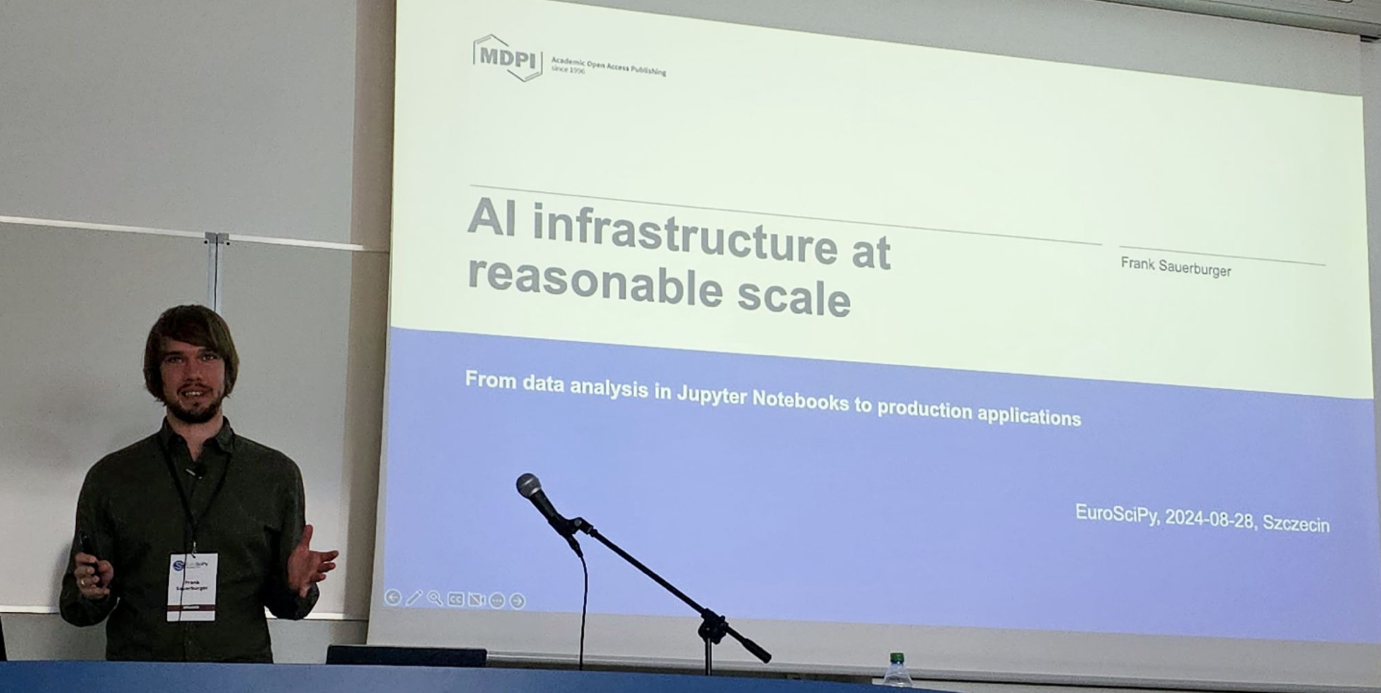
Frank’s presentation on MDPI’s AI infrastructure provided a chance to showcase the advanced technological frameworks that power our operations. Given the technical and academic focus of EuroSciPy, this talk demonstrated how MDPI’s AI capabilities are not only cutting-edge but also central to driving efficiency and innovation in scholarly publishing. Engaging with the EuroSciPy community helps position MDPI as a leader in applying AI within the publishing industry, fostering potential collaborations and attracting interest from top researchers.
A Qdrant and Specter2 framework for tracking resubmissions of rejected manuscripts in academia – Daniele Raimondi
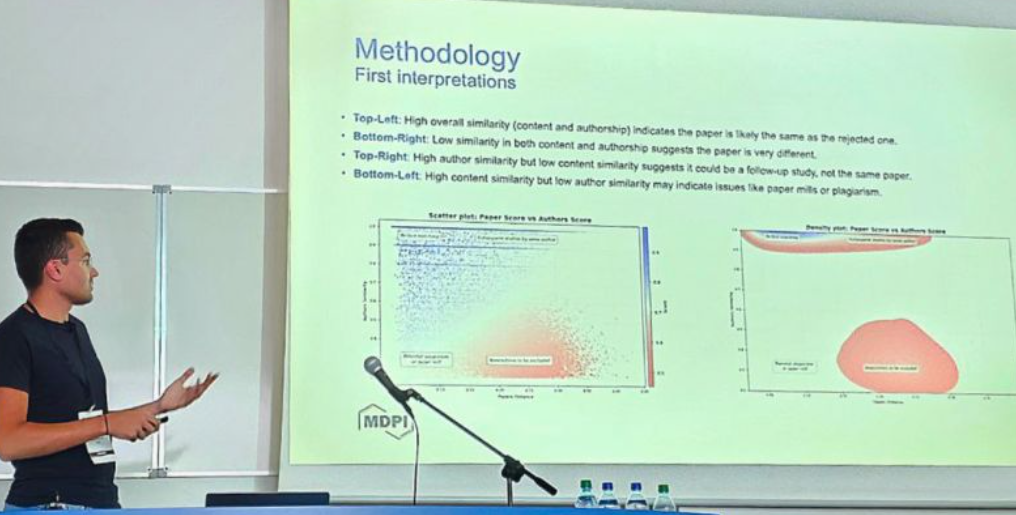
Daniele’s talk on the novel methodological approach that combines AI, Data Science, and Analytics was crucial in highlighting how MDPI is advancing the precision and effectiveness of manuscript and author identification. This approach is pivotal in enhancing our understanding of publishing dynamics and ensuring the quality and integrity of the academic content we manage. By presenting at EuroSciPy, we had the opportunity to engage with an audience deeply involved in scientific computing, gaining feedback and insights that could further refine our methodologies.
Thank you, Frank and Daniele, for representing MDPI so well!
I will share more about MDPI’s AI team and projects in upcoming CEO Letters, as we have a well-rounded AI and Data Team working on an exciting suite of AI products for MDPI and the scholarly community at large.
Coming Together for Science
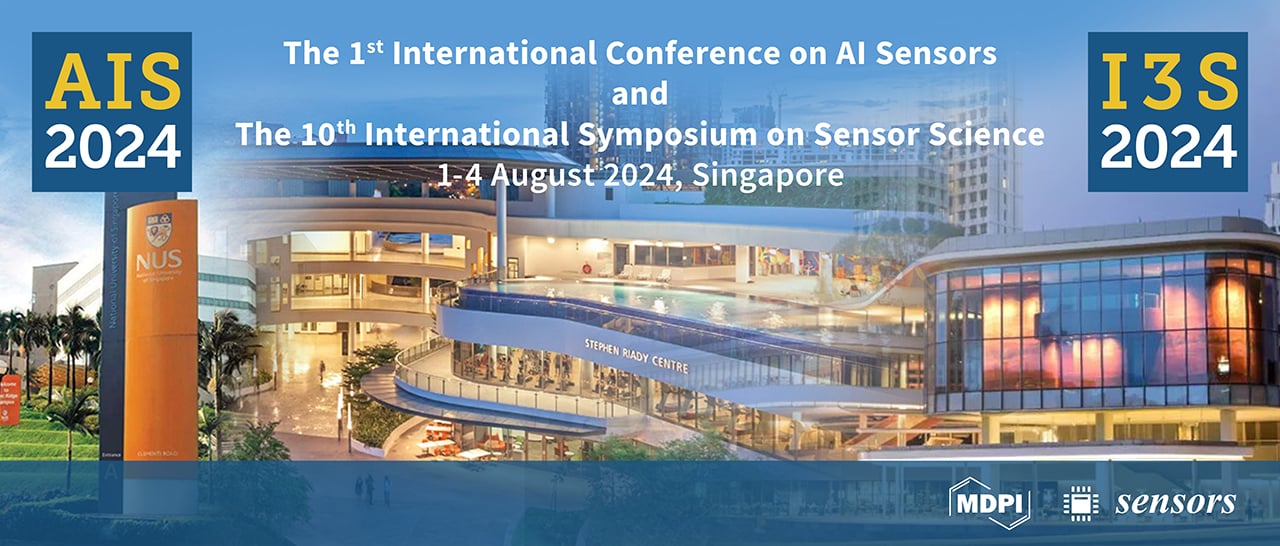
The 1st International Conference on AI Sensors & The 10th International Symposium on Sensor Science
I am pleased to share the success of our MDPI conference The 1st International Conference on Artificial Intelligence (AI) Sensors and the 10th International Symposium on Sensor Science in Singapore this past 1–4 August.
With nearly 400 attendees, the event brought together researchers and industry experts from China, Singapore, Japan, Korea, Taiwan, India and other countries to share their findings on the latest developments in sensors, sensing technology, artificial intelligence for sensing applications and AI-enhanced sensing systems.
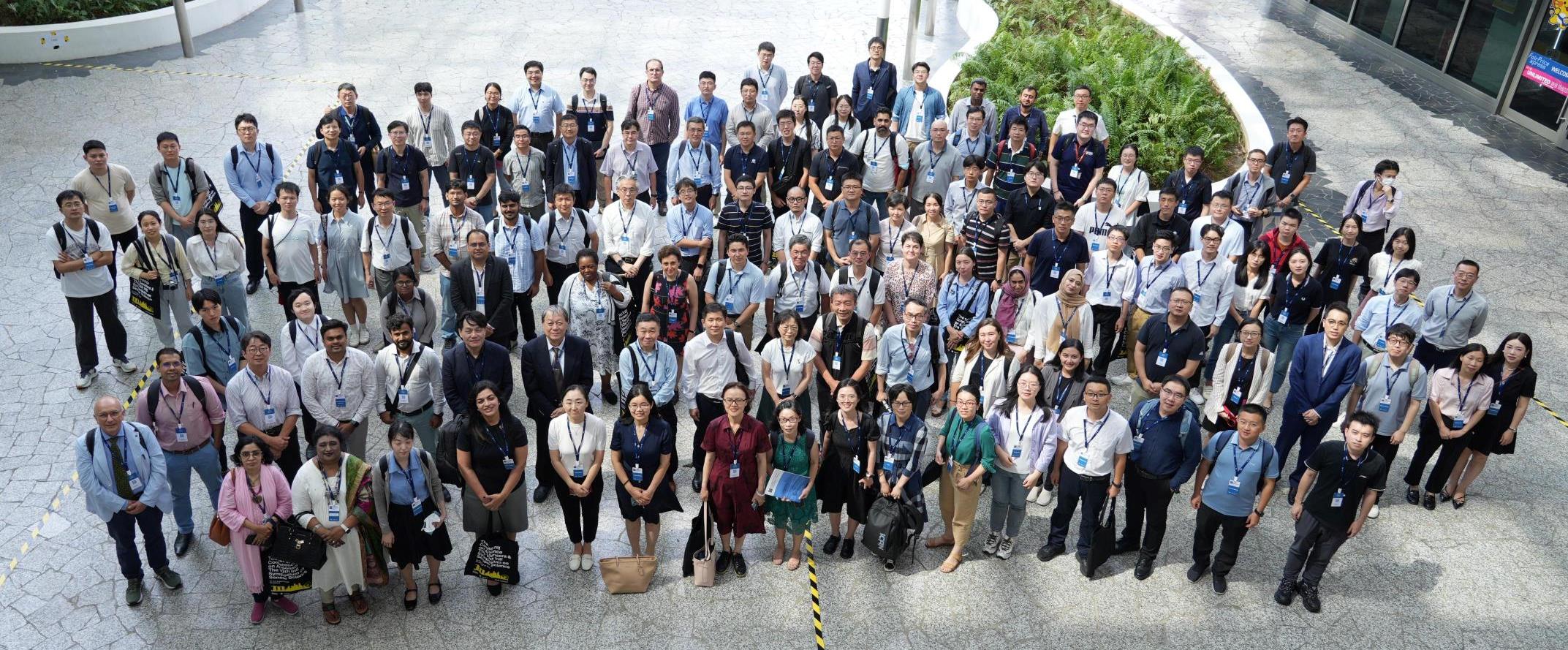
We accepted a total of 355 abstracts, featuring 772 authors from 28 countries. Over the course of the four-day event, 66 posters were displayed and 296 talks were delivered, including 4 plenary talks, 46 keynote speeches, 122 invited talks, and 124 selected oral presentations. View the event gallery here.
I am pleased to announce the winners of the four awards, including Best Presentation and Best Poster, recognizing the contributions of our participants during the conference.
Looking ahead, the 2nd International Conference on AI Sensors and Transducers is scheduled to take place from 29 July to 5 August, 2025, in Bangkok, Thailand.
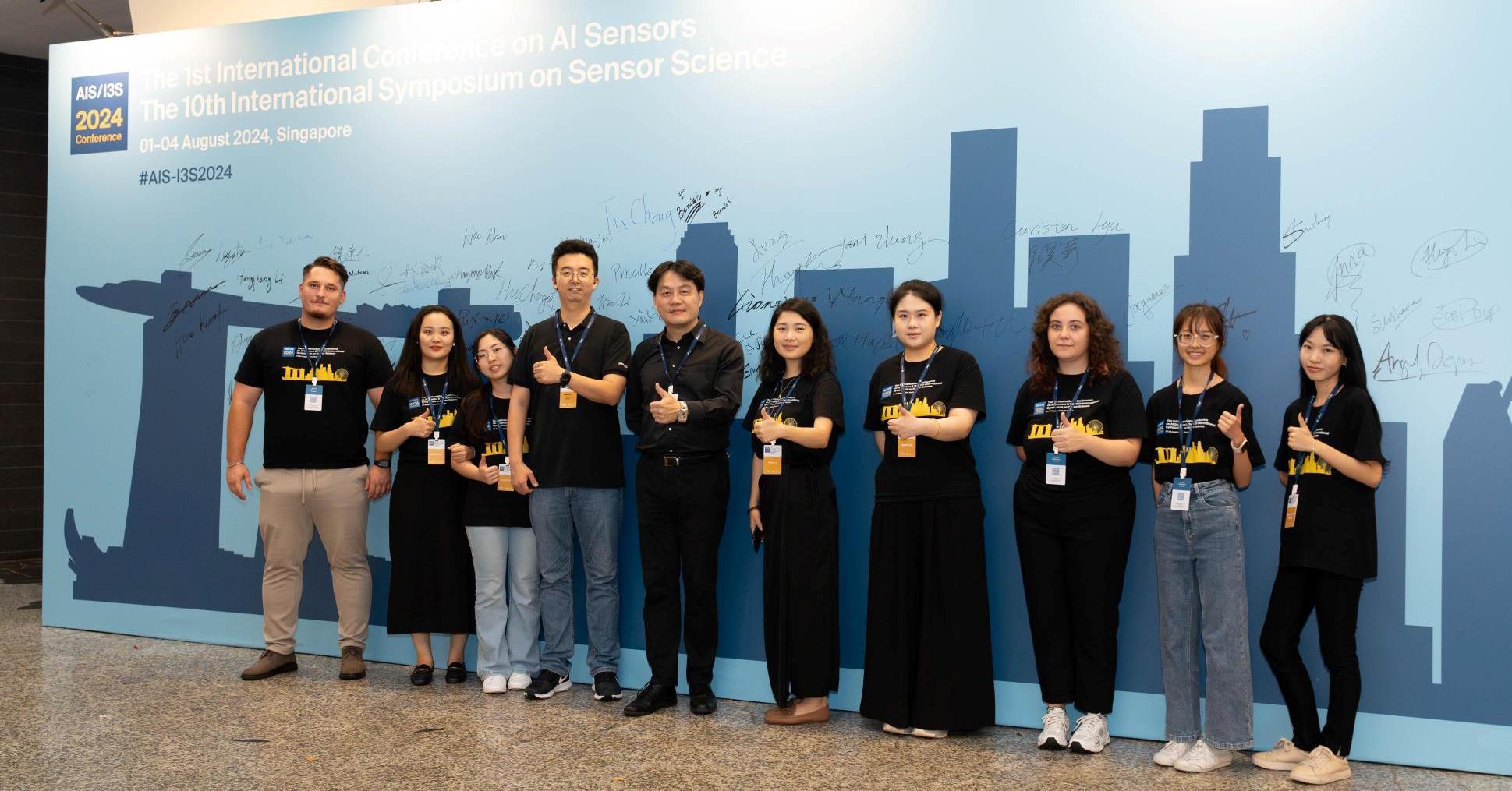
Thank you to our Conference team, including Ionut Spatar, Teodora Nicoleta Cremene, Ang Kai Lin, Benjamin Tay, Leong Jin Yue Esther, Wong Jolin, Judith Wu, Alethea Liu and Flora Li, who were involved in making this event a success. A big thank-you also goes to our local MDPI colleagues for their support: Yu Nwe Soe, Hen Chu Yang, Kwah Zhi En Watcharapong, Zephan Yang, Daphne Neo, Huimin Cheng, Nathan Li and Ting Yin.
Upcoming In-Person Event
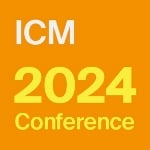
25–27 September, 2024
The 5th International Conference on Materials: Advances in Material Innovation
Location: Basel, Switzerland
ICM 2024 will unite experts to share insights on recent advancements in Materials Characterization, Processing and Manufacturing.
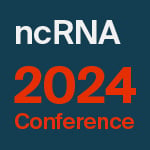
7–9 October, 2024
Non-coding RNA World 2024: Exploring Mechanisms, Designing Medicines
Location: Basel, Switzerland
ncRNA 2024 will explore the latest advances in the field, covering topics from basic biology to medical and technological applications.
Find more upcoming MDPI events here.
Closing Thoughts

The 2nd Sustainable Publishing Forum
In 2022, the International Association of Scientific, Technical and Medical Publishers (STM) outlined three goals to reflect the academic community’s shared aspirations: promoting Open Science, maintaining research integrity and fulfilling social responsibility. Open Science has evolved from the Open Access movement of the early 2000s to become a preferred model in academic publishing. Publishers and academic journals play a crucial role in ensuring research integrity, with efforts to prevent misconduct markedly on the increase now.
As the world faces sustainability challenges, the academic publishing industry is increasingly committed to contributing the achievement of the United Nations Sustainable Development Goals (SDGs). Many publishers are implementing strategies to support these objectives, including ours, which you can view here.
The 2nd MDPI Sustainable Publishing Forum provided a platform for global editors and publishers to discuss these themes, aiming to strengthen collaboration and advance the contributions that scientific publishing can make to academia and society.
“Open Science has evolved to become a preferred model in academic publishing”
The 2nd Sustainable Publishing Forum
We hosted MDPI’s 2nd Sustainable Publishing Forum in Beijing, China, on 15–16 August, attracting nearly 120 attendees from local and international publishers, university presses, scientific and technical journal associations, libraries and the Chinese Academy of Sciences. The event focused on promoting Open Science, maintaining research integrity, and fulfilling social responsibility.
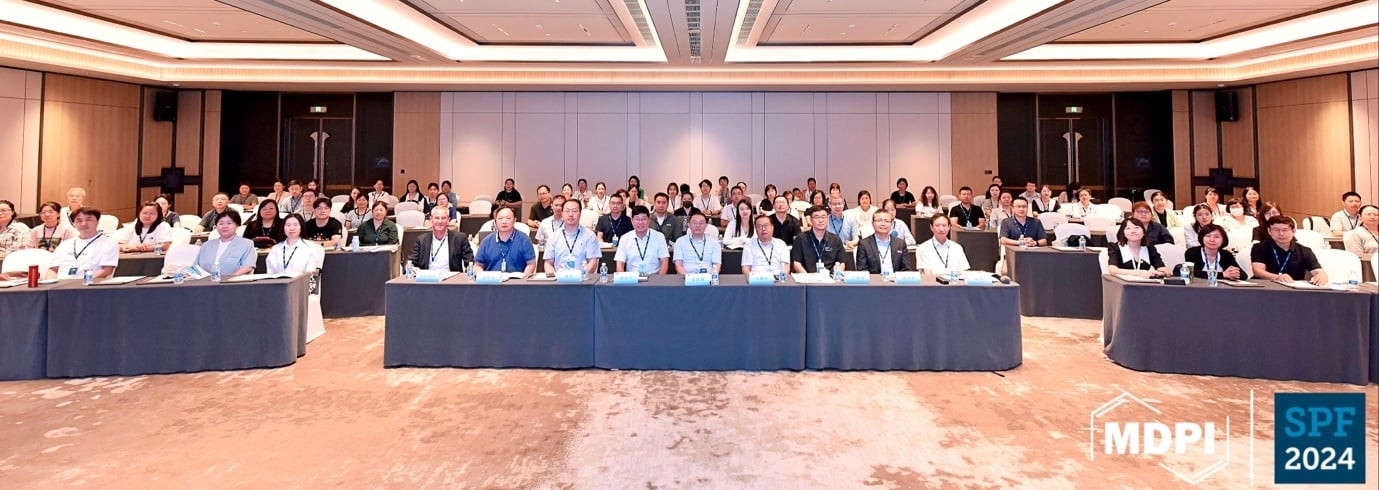
This was an excellent opportunity for us to share more with conference attendees about the approach of our research integrity team. Our Head of Publishing, Peter Roth, also participated, speaking on how to identify and avoid predatory publishers and about the principles that underpin ethical academic publishing.
I extend my thanks to all of our conference speakers, including Hylke Koers (STM Solutions), who presented on STM Trends 2028 and shared insights on the STM Integrity Hub, of which MDPI is a member.
Chief Executive Officer
MDPI AG
19 August 2024
MDPI’s 2023 Young Investigator Awards—Winners Announced

MDPI’s Young Investigator Awards recognize promising early career scientists, acknowledge their contributions, and foster collaboration within the scientific community. We are proud to announce the recipients for 2023, who were carefully selected by the journals’ esteemed Award Evaluation Committee.
We extend our heartfelt congratulations to the 79 winners of MDPI’s 2023 Young Investigator Awards for their excellent contributions in their research field. We look forward to seeing these rising stars continue to contribute to the advancement of science.
MDPI will continue to support and recognize the academic community. To explore details about the awardees by field, please visit the individual pages listed below:
Congratulations to all the winners for their exceptional contributions and dedication to advancing scientific research.
About MDPI Awards:
To support the academic community, particularly young researchers, and to enhance communication among scientists, MDPI journals regularly offer various awards to researchers in specific fields. These awards, serving as a source of inspiration and recognition, help to elevate the profiles of talented individuals who have made outstanding achievements and are making significant contributions to advancements in their respective fields.
To find out more about MDPI awards, please click here.
16 August 2024
Biomolecules | Highly Cited Papers in 2022–2023 in the Section “Biological and Bio-Materials”

As all of the articles published in our journal Biomolecules (ISSN: 2218-273X) are open access, you have free and unlimited access to the full texts. We welcome you to read our most highly cited papers published in 2022 and 2023, which are listed below:
1. “Development of Biodegradable Polymeric Stents for the Treatment of Cardiovascular Diseases”
by Yihong Shen, Xiao Yu, Jie Cui, Fan Yu, Mingyue Liu, Yujie Chen, Jinglei Wu, Binbin Sun and Xiumei Mo
Biomolecules 2022, 12(9), 1245; https://doi.org/10.3390/biom12091245
Full text available online: https://www.mdpi.com/2218-273X/12/9/1245
2. “Advances in the Application of Electrospun Drug-Loaded Nanofibers in the Treatment of Oral Ulcers”
by Yangqi Zhou, Menglong Wang, Chao Yan, Hui Liu and Deng-Guang Yu
Biomolecules 2022, 12(9), 1254; https://doi.org/10.3390/biom12091254
Full text available online: https://www.mdpi.com/2218-273X/12/9/1254
3. ”Design of Biocompatible Chitosan/Polyaniline/Laponite Hydrogel with Photothermal Conversion Capability”
by Liying Zhang, Gao He, Yang Yu, Yu Zhang, Xiang Li and Shige Wang
Biomolecules 2022, 12(8), 1089; https://doi.org/10.3390/biom12081089
Full text available online: https://www.mdpi.com/2218-273X/12/8/1089
4. ”A Review on Electrospun Poly(amino acid) Nanofibers and Their Applications of Hemostasis and Wound Healing”
by Yuexin Ji, Wenliang Song, Lin Xu, Deng-Guang Yu and Sim Wan Annie Bligh
Biomolecules 2022, 12(6), 794; https://doi.org/10.3390/biom12060794
Full text available online: https://www.mdpi.com/2218-273X/12/6/794
5. ”Silk Fibroin Biomaterials and Their Beneficial Role in Skin Wound Healing”
by Łukasz Mazurek, Mateusz Szudzik, Mateusz Rybka and Marek Konop
Biomolecules 2022, 12(12), 1852; https://doi.org/10.3390/biom12121852
Full text available online: https://www.mdpi.com/2218-273X/12/12/1852
6. ”Recent Developments in Biopolymer-Based Hydrogels for Tissue Engineering Applications”
by Rikako Hama, Anudari Ulziibayar, James W. Reinhardt, Tatsuya Watanabe, John Kelly and Toshiharu Shinoka
Biomolecules 2023, 13(2), 280; https://doi.org/10.3390/biom13020280
Full text available online: https://www.mdpi.com/2218-273X/13/2/280
7. ”Electrospun Zein/Polyoxyethylene Core-Sheath Ultrathin Fibers and Their Antibacterial Food Packaging Applications”
by Wenlai Jiang, Ping Zhao, Wenliang Song, Menglong Wang and Deng-Guang Yu
Biomolecules 2022, 12(8), 1110; https://doi.org/10.3390/biom12081110
Full text available online: https://www.mdpi.com/2218-273X/12/8/1110
8. ”Advances in the Preparation of Nanofiber Dressings by Electrospinning for Promoting Diabetic Wound Healing”
by Yukang Liu, Chaofei Li, Zhangbin Feng, Biao Han, Deng-Guang Yu and Ke Wang
Biomolecules 2022, 12(12), 1727; https://doi.org/10.3390/biom12121727
Full text available online: https://www.mdpi.com/2218-273X/12/12/1727
9. ”Recent Progress of Electrospun Herbal Medicine Nanofibers”
by Hang Liu, Yubin Bai, Chang Huang, Ying Wang, Yuexin Ji, Yutong Du, Lin Xu, Deng-Guang Yu and Sim Wan Annie Bligh
Biomolecules 2023, 13(1), 184; https://doi.org/10.3390/biom13010184
Full text available online: https://www.mdpi.com/2218-273X/13/1/184
by Fariborz Sharifianjazi, Samad Khaksar, Amirhossein Esmaeilkhanian, Leila Bazli, Sara Eskandarinezhad, Peyman Salahshour, Farnaz Sadeghi, Sadegh Rostamnia and Seyed Mohammad Vahdat
Biomolecules 2022, 12(2), 155; https://doi.org/10.3390/biom12020155
Full text available online: https://www.mdpi.com/2218-273X/12/2/155
16 August 2024
Biomolecules | Highly Cited Papers in 2022–2023 in the Section “Biological Factors”

As all of the articles published in our journal Biomolecules (ISSN: 2218-273X) are open access, you have free and unlimited access to the full texts. We welcome you to read our most highly cited papers published in 2022 and 2023, which are listed below:
1. “The Degradation of Hyaluronan in the Skin”
by Petra Žádníková, Romana Šínová, Vojtěch Pavlík, Matěj Šimek, Barbora Šafránková, Martina Hermannová, Kristina Nešporová and Vladimír Velebný
Biomolecules 2022, 12(2), 251; https://doi.org/10.3390/biom12020251
Full text available online: https://www.mdpi.com/2218-273X/12/2/251
2. “Role of EPA in Inflammation: Mechanisms, Effects, and Clinical Relevance”
by Rosalia Crupi and Salvatore Cuzzocrea
Biomolecules 2022, 12(2), 242; https://doi.org/10.3390/biom12020242
Full text available online: https://www.mdpi.com/2218-273X/12/2/242
3. “The Effect of Electrical Stimulation on Nerve Regeneration Following Peripheral Nerve Injury”
by Luke Juckett, Tiam Mana Saffari, Benjamin Ormseth, Jenna-Lynn Senger and Amy M. Moore
Biomolecules 2022, 12(12), 1856; https://doi.org/10.3390/biom12121856
Full text available online: https://www.mdpi.com/2218-273X/12/12/1856
4. “Homocysteine, Vitamins B6 and Folic Acid in Experimental Models of Myocardial Infarction and Heart Failure—How Strong Is That Link?”
by Zorislava Bajic, Tanja Sobot, Ranko Skrbic, Milos P. Stojiljkovic, Nenad Ponorac, Amela Matavulj and Dragan M. Djuric
Biomolecules 2022, 12(4), 536; https://doi.org/10.3390/biom12040536
Full text available online: https://www.mdpi.com/2218-273X/12/4/536
5. “Advanced Strategies for Therapeutic Targeting of Wild-Type and Mutant p53 in Cancer”
by Shengliang Zhang, Lindsey Carlsen, Liz Hernandez Borrero, Attila A. Seyhan, Xiaobing Tian and Wafik S. El-Deiry
Biomolecules 2022, 12(4), 548; https://doi.org/10.3390/biom12040548
Full text available online: https://www.mdpi.com/2218-273X/12/4/548
6. “Louis Pasteur: Between Myth and Reality”
by Jean-Marc Cavaillon and Sandra Legout
Biomolecules 2022, 12(4), 596; https://doi.org/10.3390/biom12040596
Full text available online: https://www.mdpi.com/2218-273X/12/4/596
7. “Delayed Onset Muscle Soreness and Critical Neural Microdamage-Derived Neuroinflammation”
by Balázs Sonkodi
Biomolecules 2022, 12(9), 1207; https://doi.org/10.3390/biom12091207
Full text available online: https://www.mdpi.com/2218-273X/12/9/1207
8. “The Challenges and Prospects of p53-Based Therapies in Ovarian Cancer”
by Bryce Wallis, Katherine Redd Bowman, Phong Lu and Carol S. Lim
Biomolecules 2023, 13(1), 159; https://doi.org/10.3390/biom13010159
Full text available online: https://www.mdpi.com/2218-273X/13/1/159
9. “Cross-Talk between p53 and Wnt Signaling in Cancer”
by Qiyun Xiao, Johannes Werner, Nachiyappan Venkatachalam, Kim E. Boonekamp, Matthias P. Ebert and Tianzuo Zhan
Biomolecules 2022, 12(3), 453; https://doi.org/10.3390/biom12030453
Full text available online: https://www.mdpi.com/2218-273X/12/3/453
by Omar Zayed, Omar A. Hewedy, Ali Abdelmoteleb, Mohammed, Mohamed S. Youssef, Ahmed F. Roumia, Danelle Seymour and Ze-Chun Yuan
Biomolecules 2023, 13(10), 1443; https://doi.org/10.3390/biom13101443
Full text available online: https://www.mdpi.com/2218-273X/13/10/1443
16 August 2024
Biomolecules | Highly Cited Papers in 2022–2023 in the Section “Cellular Biochemistry”

As all of the articles published in our journal Biomolecules (ISSN: 2218-273X) are open access, you have free and unlimited access to the full texts. We welcome you to read our most highly cited papers published in 2022 and 2023, which are listed below:
1. “Advanced Glycation End Products and Diabetes Mellitus: Mechanisms and Perspectives”
by Mariyam Khalid, Georg Petroianu and Abdu Adem
Biomolecules 2022, 12(4), 542; https://doi.org/10.3390/biom12040542
Full text available online: https://www.mdpi.com/2218-273X/12/4/542
2. “Metallothionein and Cadmium Toxicology—Historical Review and Commentary”
by Monica Nordberg and Gunnar F. Nordberg
Biomolecules 2022, 12(3), 360; https://doi.org/10.3390/biom12030360
Full text available online: https://www.mdpi.com/2218-273X/12/3/360
3. “Adenosine-Metabolizing Enzymes, Adenosine Kinase and Adenosine Deaminase, in Cancer”
by Galina Zhulai, Eugenia Oleinik, Mikhail Shibaev and Kirill Ignatev
Biomolecules 2022, 12(3), 418; https://doi.org/10.3390/biom12030418
Full text available online: https://www.mdpi.com/2218-273X/12/3/418
4. “Current and Novel Therapeutic Approaches for Treatment of Neovascular Age-Related Macular Degeneration”
by Reem H. ElSheikh, Muhammad Z. Chauhan and Ahmed B. Sallam
Biomolecules 2022, 12(11), 1629; https://doi.org/10.3390/biom12111629
Full text available online: https://www.mdpi.com/2218-273X/12/11/1629
5. “Bcl-2 Family Members and the Mitochondrial Import Machineries: The Roads to Death”
by Lisenn Lalier, François Vallette François Vallette and Stéphen Manon
Biomolecules 2022, 12(2), 162; https://doi.org/10.3390/biom12020162
Full text available online: https://www.mdpi.com/2218-273X/12/2/162
6. “The Disordered Dehydrin and Its Role in Plant Protection: A Biochemical Perspective”
by Margaret A. Smith and Steffen P. Graether
Biomolecules 2022, 12(2), 294; https://doi.org/10.3390/biom12020294
Full text available online: https://www.mdpi.com/2218-273X/12/2/294
7. “Co-Stimulatory Receptor Signaling in CAR-T Cells”
by Mackenzie M. Honikel and Scott H. Olejniczak
Biomolecules 2022, 12(9), 1303; https://doi.org/10.3390/biom12091303
Full text available online: https://www.mdpi.com/2218-273X/12/9/1303
8. “Galactosemia: Biochemistry, Molecular Genetics, Newborn Screening, and Treatment”
by Mariangela Succoio, Rosa Sacchettini, Alessandro Rossi, Giancarlo Parenti and Margherita Ruoppolo
Biomolecules 2022, 12(7), 968; https://doi.org/10.3390/biom12070968
Full text available online: https://www.mdpi.com/2218-273X/12/7/968
9. “Molecular Recognition of Proteins through Quantitative Force Maps at Single Molecule Level”
by Carlos Marcuello, Rocío de Miguel and Anabel Lostao
Biomolecules 2022, 12(4), 594; https://doi.org/10.3390/biom12040594
Full text available online: https://www.mdpi.com/2218-273X/12/4/594
10. “Cellular Senescence in Intervertebral Disc Aging and Degeneration: Molecular Mechanisms and Potential Therapeutic Opportunities”
by Prashanta Silwal, Allison M. Nguyen-Thai, Haneef Ahamed Mohammad, Yanshan Wang, Paul D. Robbins, Joon Y. Lee and Nam V. Vo
Biomolecules 2023, 13(4), 686; https://doi.org/10.3390/biom13040686
Full text available online: https://www.mdpi.com/2218-273X/13/4/686
15 August 2024
Biomolecules | Highly Cited Papers in 2022–2023 in the Section “Bioinformatics and Systems Biology”

As all of the articles published in our journal Biomolecules (ISSN: 2218-273X) are open access, you have free and unlimited access to the full text. We welcome you to read our most highly cited papers published in 2022 and 2023, which are listed below:
1. “Boosting the Full Potential of PyMOL with Structural Biology Plugins”
by Serena Rosignoli and Alessandro Paiardini
Biomolecules 2022, 12(12), 1764; https://doi.org/10.3390/biom12121764
Full text available online: https://www.mdpi.com/2218-273X/12/12/1764
2. “Calcium Overload and Mitochondrial Metabolism”
by Lauren L. Walkon, Jasiel O. Strubbe-Rivera and Jason N. Bazil
Biomolecules 2022, 12(12), 1891; https://doi.org/10.3390/biom12121891
Full text available online: https://www.mdpi.com/2218-273X/12/12/1891
3. “Benchmarking the Accuracy of AlphaFold 2 in Loop Structure Prediction”
by Amy O. Stevens and Yi He
Biomolecules 2022, 12(7), 985; https://doi.org/10.3390/biom12070985
Full text available online: https://www.mdpi.com/2218-273X/12/7/985
4. “Protein Data Bank: A Comprehensive Review of 3D Structure Holdings and Worldwide Utilization by Researchers, Educators, and Students”
by Stephen K. Burley, Helen M. Berman, Jose M. Duarte, Zukang Feng, Justin W. Flatt, Brian P. Hudson, Robert Lowe, Ezra Peisach, Dennis W. Piehl, Yana Rose et al.
Biomolecules 2022, 12(10), 1425; https://doi.org/10.3390/biom12101425
Full text available online: https://www.mdpi.com/2218-273X/12/10/1425
5. “Predicting miRNA-Disease Association Based on Neural Inductive Matrix Completion with Graph Autoencoders and Self-Attention Mechanism”
by Chen Jin, Zhuangwei Shi, Ken Lin and Han Zhang
Biomolecules 2022, 12(1), 64; https://doi.org/10.3390/biom12010064
Full text available online: https://www.mdpi.com/2218-273X/12/1/64
6. “ECMpy, a Simplified Workflow for Constructing Enzymatic Constrained Metabolic Network Model”
by Zhitao Mao, Xin Zhao, Xue Yang, Peiji Zhang, Jiawei Du, Qianqian Yuan and Hongwu Ma
Biomolecules 2022, 12(1), 65; https://doi.org/10.3390/biom12010065
Full text available online: https://www.mdpi.com/2218-273X/12/1/65
7. “The Epigenetic Dimension of Protein Structure Is an Intrinsic Weakness of the AlphaFold Program”
by Fodil Azzaz, Nouara Yahi, Henri Chahinianand Jacques Fantini
Biomolecules 2022, 12(10), 1527; https://doi.org/10.3390/biom12101527
Full text available online: https://www.mdpi.com/2218-273X/12/10/1527
8. “The Metabolomic Approach for the Screening of Endometrial Cancer: Validation from a Large Cohort of Women Scheduled for Gynecological Surgery”
by Jacopo Troisi, Antonio Mollo, Martina Lombardi, Giovanni Scala, Sean M. Richards, Steven J. K. Symes, Antonio Travaglino, Daniele Neola, Umberto de Laurentiis, Luigi Insabato et al.
Biomolecules 2022, 12(9), 1229; https://doi.org/10.3390/biom12091229
Full text available online: https://www.mdpi.com/2218-273X/12/9/1229
9. “Saquinavir: From HIV to COVID-19 and Cancer Treatment”
by Mariana Pereira and Nuno Vale
Biomolecules 2022, 12(7), 944; https://doi.org/10.3390/biom12070944
Full text available online: https://www.mdpi.com/2218-273X/12/7/944
10. “Bioinformatics Prediction and Experimental Validation Identify a Novel Cuproptosis-Related Gene Signature in Human Synovial Inflammation during Osteoarthritis Progression”
by Wenjuan Wang, Ziyi Chen and Yinghui Hua
Biomolecules 2023, 13(1), 127; https://doi.org/10.3390/biom13010127
Full text available online: https://www.mdpi.com/2218-273X/13/1/127
12 August 2024
Prof. Dr. Benoit Coulombe Appointed Section Editor-in-Chief of Section “Biomacromolecules: Proteins” in Biomolecules

We are pleased to announce that Prof. Dr. Benoit Coulombe has been appointed Section Editor-in-Chief of the Section “Biomacromolecules: Proteins” in Biomolecules (ISSN: 2218-273X).
The Section “Biomacromolecules: Proteins” is at the interface between chemistry, biology, and molecular medicine. The Section has a strong focus on the structure and function of proteins, as well as their molecular mechanisms and biological and medical impacts. Basic research, in vitro and in vivo investigations, and pre-clinical studies are welcome.
Prof. Dr. Benoit Coulombe is a full research professor in the Department of Biochemistry and Molecular Medicine, Université de Montréal, Canada. His lab, located at the Institut de Recherches Cliniques de Montréal (IRCM), is developing state-of-the-art methods for high-sensitivity profiling of the human proteome at single-cell resolutions. More specifically, they aim to understand the folding and assembly of protein complexes by the HSP90/PAQosome chaperone machinery, as well as its dysregulation in various diseases.
The following is a short Q&A with Prof. Dr. Benoit Coulombe, who shared his vision for the journal with us, as well as his views on the research area and open access publishing:
1. What appealed to you about the journal that made you want to become its Section Editor-in-Chief?
Two things: (1) the highly rigorous and rapid review process, and (2) the open access approach.
2. What is your vision for this Section?
Proteins are the main functional actors of the cell, and their dysfunctions cause diseases. This makes this Section particularly important.
3. What does the future of this field of research look like?
This field is constantly expanding. Most significant are the new technology developments dealing with proteomics and structural modeling (AlphaFold).
4. Do you have any suggestions for young researchers in this field?
The pursuit of innovation is key for humanity.
5. What do you think of the development of open access publishing in the publishing field?
The development of OA is going in the right direction and journals like Biomolecules are important to push in this direction
We warmly welcome Prof. Dr. Benoit Coulombe as Section Editor-in-Chief for “Biomacromolecules: Proteins”, and we look forward to him leading Biomolecules to achieve many more milestones.
8 August 2024
Meet Us at the Biomolecular Horizons 2024 Congress (BMH 2024), 22–26 September 2024, Melbourne, Australia

MDPI will attend the Biomolecular Horizons 2024 Congress, held from 22 to 26 September 2024 in Melbourne, Australia. This important forum will bring together three prestigious congresses, each with a strong history of attracting the bioscience and biotechnology communities to discuss and examine the latest developments and research:
- 26th Congress of the International Union of Biochemistry and Molecular Biology (IUBMB);
- 17th Congress of the Federation of Asian & Oceanian Biochemists & Molecular Biologists (FAOBMB);
- 22nd ComBio Conference (ComBio).
The overarching theme of the Biomolecular Horizons 2024 (BMH2024) Congress is “Discover, Create, Innovate”, which will be examined across the following key themes:
- Cell, Developmental and Stem Cell Biology;
- Biotechnology and Synthetic Biology;
- Microbial World;
- Cell Signalling and Metabolism;
- Genomics, Gene Regulation and Epigenetics;
- Bioinformatics, Computational Biology and Omics;
- Structural Biology and Biophysics;
- Molecular Basis of Disease;
- Molecular Physiology;
- Education.
The following MDPI journals will be represented:
- International Journal of Molecular Sciences;
- Biomolecules;
- Applied Biosciences;
- BioMedInformatics;
- Biomedicines;
- Cells;
- Applied Microbiology;
- BioTech;
- Biologics;
- Current Issues in Molecular Biology;
- Epigenomes;
- Genes;
- Journal of Developmental Biology;
- Journal of Molecular Pathology;
- Methods and Protocols;
- Muscles;
- Organoids;
- Signals;
- SynBio;
- Cardiogenetics.
If you are planning to attend the above conference, please feel free to stop by our booth. Our delegates look forward to meeting you in person to answer any questions that you may have. For more information about the conference, please visit the following link: https://www.bmh2024.com/.
7 August 2024
MDPI Insights: The CEO's Letter #14 - New Headquarters, Marketing, Poland

Welcome to the MDPI Insights: The CEO's Letter.
In these monthly letters, I will showcase two key aspects of our work at MDPI: our commitment to empowering researchers and our determination to facilitating open scientific exchange.
Opening Thoughts
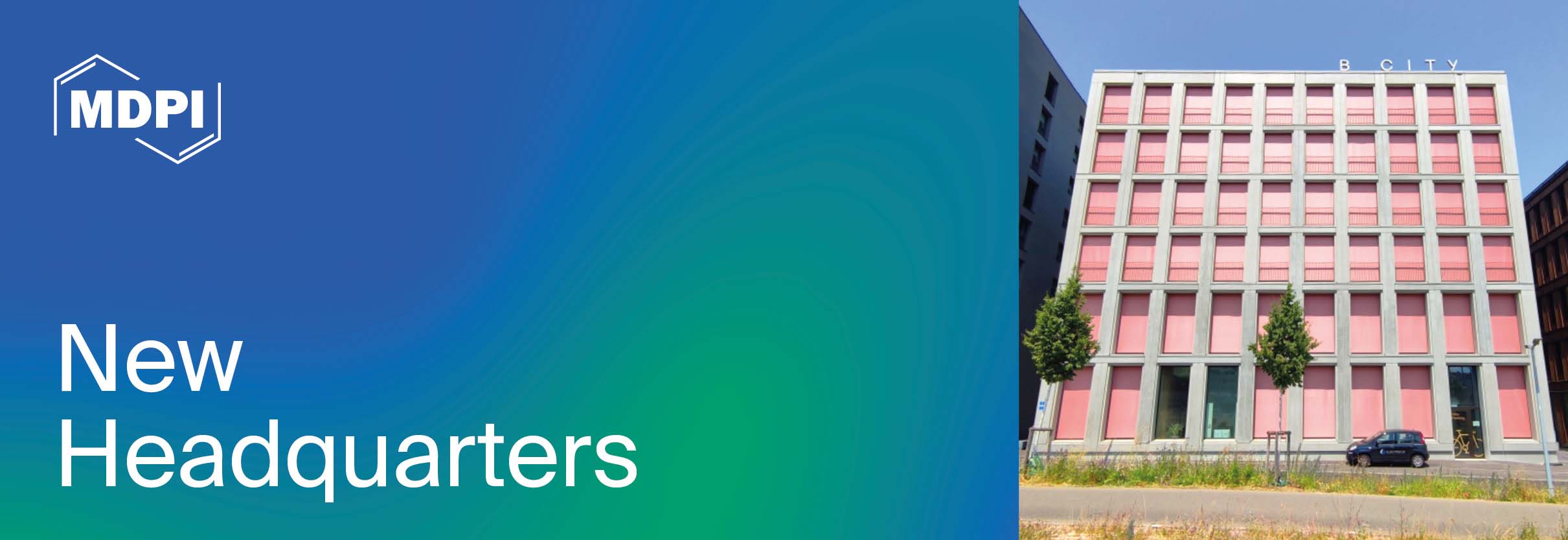
MDPI Moves to New Headquarters in Basel, Switzerland

I am excited to share that MDPI has moved to a new state-of-the-art office space in Basel, Switzerland. This move consolidates our operations by bringing together our two previously separated Basel offices into one central location.
We are always growing our talent pool and encourage you to view our Careers Page for the positions available in Basel and across our offices.
New Address: Grosspeteranlage 5, CH-4052 Basel, Switzerland
Effective Date: 1 July 2024
This new chapter in our company’s journey is designed to continue our mission of positioning MDPI as a leader in Open Access (OA) publishing, highlighting our commitment to making scholarly research accessible to everyone.

Boasting modern amenities, improved meeting and event spaces designed to support our growing needs, the new location provides a more collaborative and efficient working environment for our employees. The location offers convenient accessibility to public transportation and is situated near the Basel SBB railway station, with a variety of nearby services and amenities.
In fact, I can see the trains right outside of my window as I write these lines!
This move marks an exciting milestone in MDPI’s development, and I am confident that the new headquarters will serve as an inspiring and productive space for everyone. We also very much look forward to welcoming visitors here. You can read more about MDPI's history here.
“This new chapter continues our mission of positioning MDPI as a leader in OA publishing”
For Those New to MDPI
A pioneer in scholarly, Open Access publishing, MDPI has supported academic communities since 1996. MDPI is leading the transition to Open Science by making a greater proportion of the research conducted worldwide free and accessible to everyone. To date, over 3.5 million researchers have entrusted MDPI with publishing their scientific discoveries. MDPI’s editorial process is bolstered by a network of dedicated reviewers, a team of 6,000 professional, well-trained staff members, and an in-house article submission platform designed to ensure efficient processes within its 440 fully Open Access titles. MDPI supports more than 800 academic institutions worldwide, helping them adhere to national mandates while facilitating authors’ publication in fully compliant (CC BY) Open Access journals.
Impactful Research
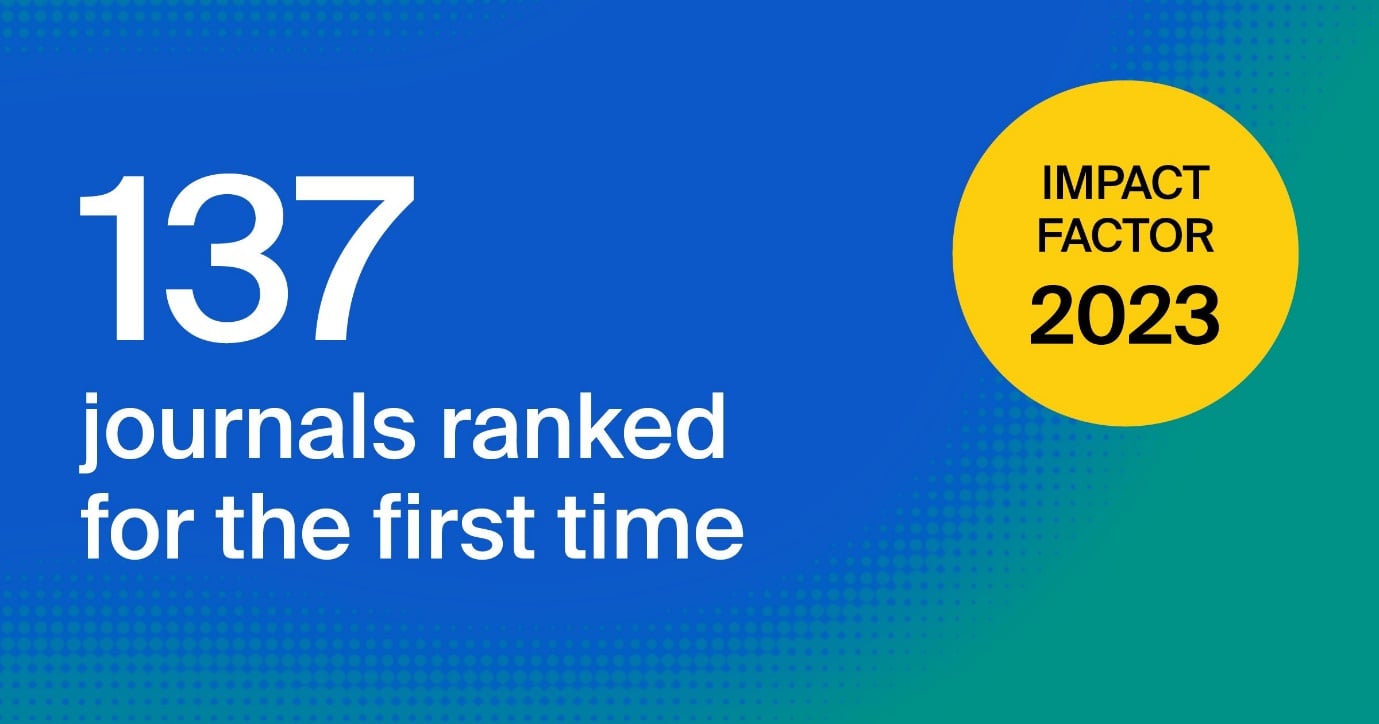
New and Emerging MDPI Journals Making an Immediate Impact
Unpacking some of the Impact Factor updates from the June CEO Letter, I wanted to dive a little deeper into the 137 MDPI journals which received Impact Factor for the first time.
Academic authors highly value efficient publishing processes, robust editorial support, and the opportunity to publish in high-impact journals. We are proud that our newly launched journals typically achieve coverage in the Emerging Sources Citation Index (ESCI) of the Web of Science within just a few years, with a median time of only three years from release to inclusion.
As part of our commitment to advancing academic research and providing high-quality OA publishing, we actively seek new research areas to expand our portfolio of journals. We have a proven track record of successfully establishing new journals.
Our dedicated teams excel in fostering dynamic editorial boards and working closely with Editors-in-Chief (EiC) to define the precise scope and focus of each new journal. Our expertise extends to collaborating with indexing services, ensuring that our journals comply with best practices and are indexed promptly in all relevant databases.
Emerging Titles Ranked for the First Time
Our commitment to excellence is reflected in the annual impact metrics released this past June. The latest edition of the Journal Citation Reports (JCR) showcases the integration of journals from the ESCI in the new unified category rankings, providing a simplified and more complete view of all journals within each subject category, including newly established titles.
Out of 137 new and developing MDPI journals ranked in the 2024 release, 79 are in the top half (Q1 or Q2) of their categories. Here is a breakdown of the number of MDPI’s ESCI-indexed journals by quartile in the JCR:
| Quartile | No. of journals |
| Q1 | 17 (12.4%) |
| Q2 | 62 (45.3%) |
| Q3 | 43 (31.4%) |
| Q4 | 15 (10.9%) |
| Not ranked (humanities-related journals) | 2 |
These rankings highlight our success in rapidly establishing high-impact new journals. Among those that made it directly into the top 25% of their category are the International Journal of Neonatal Screening, Journal of Xenobiotics, Polysaccharides, Smart Cities, and thirteen other journals.
You can browse MDPI journals by Indexing. Simply visit our Journals page and select from the list of Indexing bodies in the top left-hand corner.
Inside MDPI

MDPI Corporate Marketing Strategy and Team Meeting 2024
In July, I hosted the annual Corporate Marketing strategy and team-building activity with 15 of our team members.
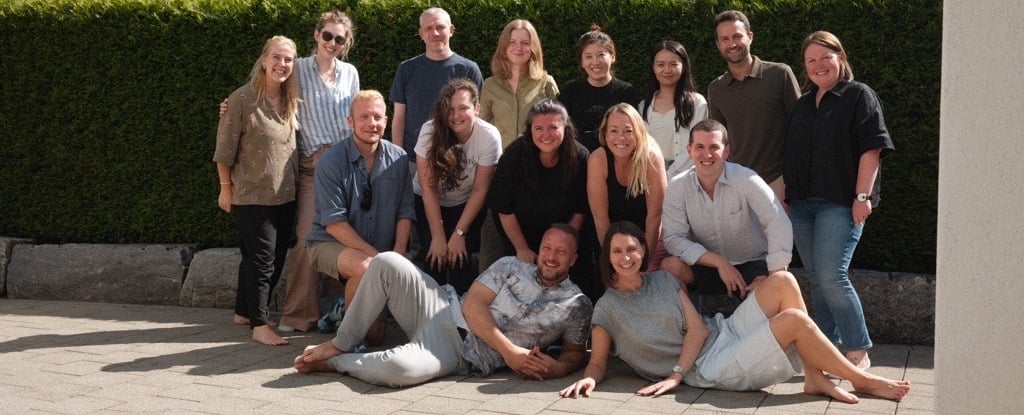
The aim was to align the Corporate Marketing strategy with MDPI's goal of becoming the world's most trusted OA publisher. While we provide a high-level publishing experience for our authors, as seen from our surveys, we need to keep building on our transparent and open communication to foster trust within the scholarly community and continue enhancing our reputation.
The Corporate Marketing team plays an important role as the mouthpiece for all our major activities within MDPI, especially those that model what it means to be a trusted partner. The purpose of the strategy meeting was to develop a feeling of trust in one another and an understanding of how to inspire trust in the stakeholders with whom we interact.
“We need to keep building on our transparent and open communication to foster trust within the scholarly community”

We conducted a set of activities to facilitate that sense of mutual trust and trustworthiness. Examples of some activities we worked on during this strategy-building event include:
- Exploring what trust means
- ‘Letter to self’
- ‘The brand I most trust’
- Most Trusted Academic Publisher
- ‘The brand I would like MDPI to become’
- ‘The 2029 MDPI Annual Report’
- Voice of Customer and Share of Voice – survey/data update on MDPI Brand Experience and Brand Perception
- Integrate Trust-Based Objective into Marketing Plan
- ‘Becoming the MDPI experience’
- ‘Trusting the next steps’
While two days is not enough to finalize a marketing strategy, it is sufficient to get everyone who attended into the mindset of the direction in which we are working. From here, we will develop a program with next steps on main projects, update communications, and collaborate with team leads to incorporate this approach into our work going forward.
As a marketing team, we can communicate our messages, but trust has to be built at every touchpoint in the stakeholder journey. Just talking about it isn’t enough. We need to be about it. That’s a role each of us plays, from editorial to IT, from marketing to HR. We must build trust from the inside out. It starts with each manager and resonates out via every team member.
As a company, our goal is to give all stakeholders with whom we interact – whether internal or external – the experience of working with an organization it can trust.
Coming Together for Science
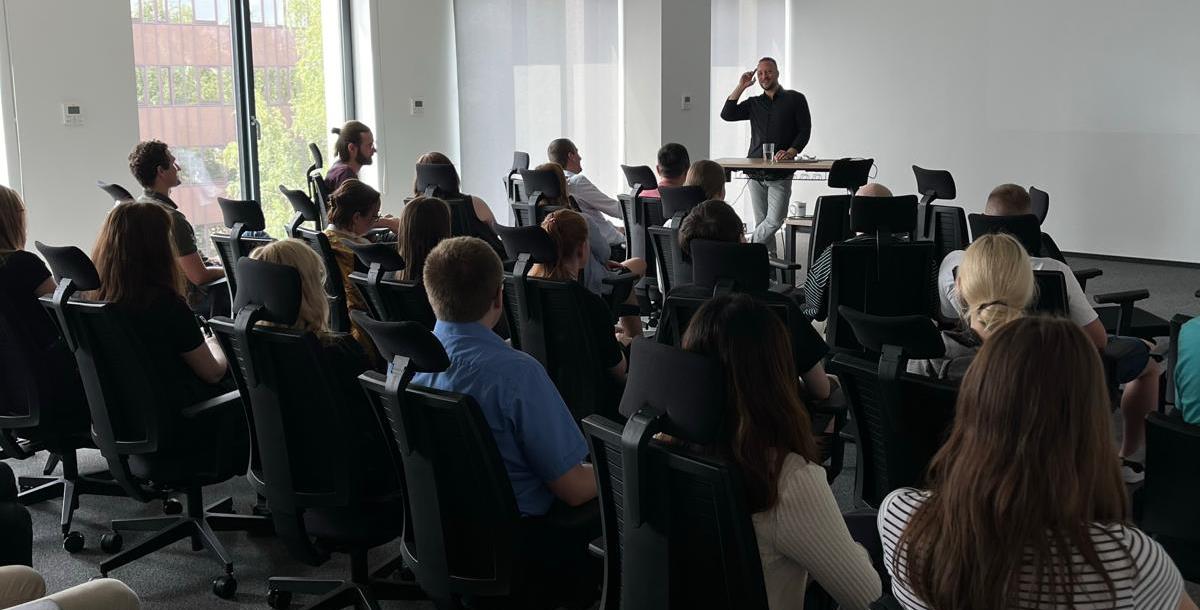
MDPI in Poland: Krakow Office
In July, I had the pleasure of visiting our Krakow office, following my recent trip to Warsaw to meet with the Polish Ministry of Science and Higher Education.

During these visits, I prioritized meeting with our Office Manager, Editorial Director, Group Leads, and members from various teams, including editorial, production, marketing, and journal relationship specialists, to understand their roles and current challenges. Instead of a formal presentation, I opted for an open discussion, sharing updates from headquarters to engage with colleagues in a more personal way.
Our Krakow office has many things to be proud of, including a large number of PhD colleagues (over a third of its staff holds a PhD degree). Krakow provides an opportunity for expanding beyond the 100 colleagues we currently have, by adding new hires in departments including editorial, production and marketing, among others.
About our Krakow office
- Opened in 2020
- 99 staff members as at 1 August 2024
- Main Departments include Editorial, Production, English Department, JRS, PR
Our Krakow office participates in international conferences, conducts author trainings and scholar visits, and engages in local market outreach. The office is also a member of the Polish Chamber of Commerce for High Technology (IZTECH) and is working on expanding its local engagement.
Krakow is the second-largest city in Poland, with a population of about 800,000. It also has a large student population of around 128,000, with seven universities. This means that roughly one in every eight residents is a student.
Poland and MDPI

Poland is a crucial market for MDPI. From 2020 to June 2024, Poland ranked 7th in submissions and 5th in publications for MDPI research articles. As at 31 July 2024, Poland ranks 7th in total MDPI publications, with approximately 70,000 research papers.
Between 2020 and June 2024, 61,500 authors from Poland published with MDPI. As at 30 June 2024, there are 1,205 active Editorial Board Members (EBMs) from Poland, with 661 EBMs (55% of the total) having an H-index over 25.
We also have four Editors-in-Chief (EiC) from Poland leading our journals: Coatings, Venereology, Advances in Respiratory Medicine, and Limnological Review, along with six Section EiC.
In 2023, we received approximately 21,000 submissions from Polish-affiliated authors, of which 12,032 were published.
“Poland is a crucial market for MDPI”
Meeting with Ministry of Education

On 22 July, we visited Warsaw to meet with the Polish Ministry of Science and Higher Education.
We were pleased to learn that they are strong supporters of the OA publishing model and value MDPI’s approach to the peer-review process, including our high ethical standards for quality control.
In 2023 Polish authors predominantly published their papers in OA, with MDPI holding the largest market share in OA publications within the country.
Our commitment to collaborating with Polish institutions is evident through our 33 Institutional Open Access Program (IOAP) agreements with prestigious institutions such as the University of Warsaw, the University of Wroclaw, the Jagiellonian University, and Gdańsk University of Technology. Through IOAP discounts, a healthy waiver rate, and our peer-review voucher system, we provide the Polish scholarly community with significant savings in OA publishing. The Minister greatly appreciated these efforts and our commitment to offsetting some of the APC costs.
We discussed industry concerns about the threat of papermills and presented the preventive measures MDPI has in place to mitigate this risk and uphold high ethical standards. We informed them of our commitment to combating papermills, including our involvement with United2Act and the STM Research Integrity Hub, as well as our efforts to expand our research integrity team and explore proactive measures.
Closing Thoughts

MDPI Thought Leadership Op-ed on Open Access is Now Live on Politico
I am pleased to share that our thought leadership Op-ed piece on Open Access (OA) is now live on Politico. This is a nice push for continued influence and support of OA among policymakers and industry leaders.
Why Politico?
Politico's reputation as a highly credible and influential news platform makes it an important venue to reach key opinion leaders (KOL) from academia, policymakers, and thought leaders from many industries. This visibility helps promote the OA philosophy.
Open Access: A Moral Imperative for Progress
In this piece, I discuss the necessity of making scientific research freely available to all. I argue that publicly funded research should be publicly accessible, highlighting how OA democratizes scientific knowledge, accelerates research availability, and fosters collaboration.
“Open Access is a fundamental right for all citizens”
Democratizing scientific communication
The impulse to democratize scientific communication is nothing new. OA may seem like a recent innovation, but its principles have historical roots traceable to Europe in the 15th century. Just as the printing revolution accelerated the dissemination of new ideas, OA publishing unlocks new scientific insights that would otherwise only be accessible to a few.
Benefits for scholars: amplifying impact through Open Access
Authors publishing in an OA journal can expect more citations of their work, increasing its potential impact. Research findings that are freely available are more likely to be cited than those hidden behind a paywall. Freedom of access greatly increases the potential audience for each paper, fostering a sense of community among researchers worldwide. Heightened visibility can attract prospective collaborators and employers for young scientists. At MDPI, we believe that all these factors can only accelerate the advance of science. Additionally, authors retain copyright in their work instead of signing it away, permitting broader dissemination under Creative Commons licenses and increasing its capacity for impact.
The moral imperative
OA is not just a matter of scientific policy; it is a fundamental right for all citizens and a prerequisite for a brighter, more informed future. Publicly funded research should be a top priority, and I am pleased to see policy moving in this direction. Our capacity to generate transformative scientific insights has to be democratized. The question today is no longer whether we can afford to embrace OA; rather, it is whether we can afford not to.
Chief Executive Officer
MDPI AG
2 August 2024
MDPI Romania Author Training Sessions in May
In May, MDPI Romania held three author training sessions – one endorsing an external event and two stand-alone sessions.
The National Session of Scientific Student Communications took place at Technical University Cluj on 17 and 18 May 2024. MDPI Romania sponsored this event and contributed an author training session on the production of research papers and case study analyses. JRS Norbert Kiss gave a presentation called The World of Open Access to explain different open access publishing models and the benefits of open access publishing. His presentation highlighted the impact of open access publishing on scientific progress and innovation.
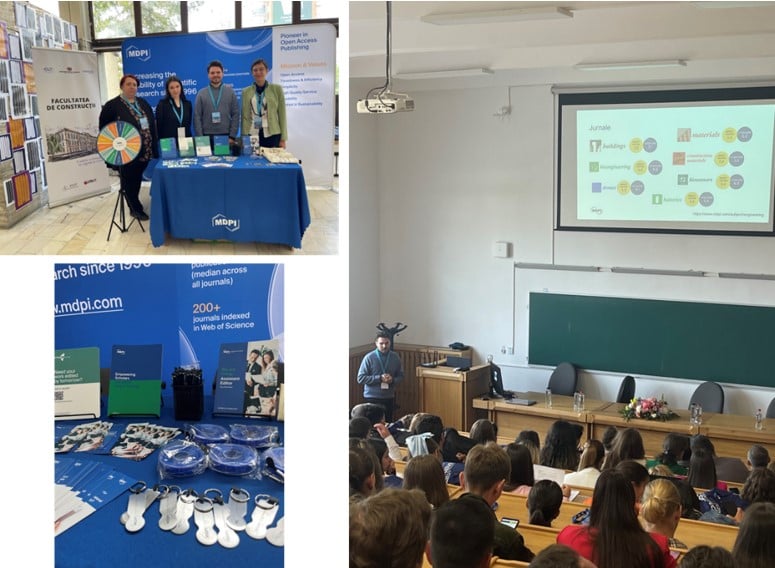
On 29 May 2024, MDPI Romania hosted an author training session for Ph.D. students, early career researchers, and professors at the Carol Davila University of Medicine and Pharmacy. In collaboration with Prof. Andreea Arsene, JRS Ioana Paunescu prepared two presentations: The Steps of the Publishing Process and Elaboration of a Peer Review Report. In her first presentation, she delved into MDPI’s history and mission, MDPI’s editorial process, and MDPI journals of various scopes that are accepting submissions. Her second presentation outlined the types of peer review, the contents of a peer review report by an MDPI reviewer, and the responsibilities of an MDPI reviewer.
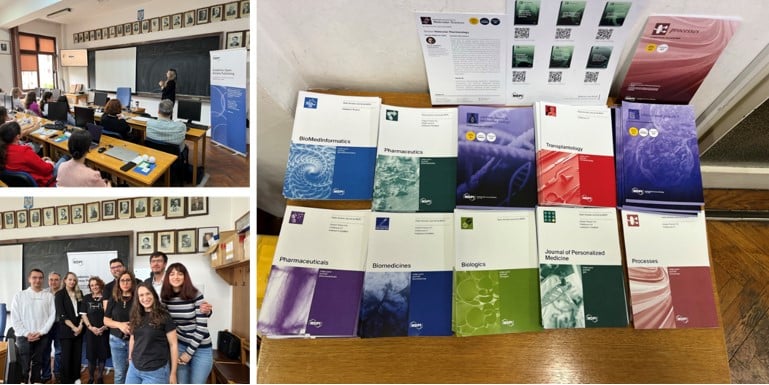
MDPI Romania also hosted an author training session at the Iasi University of Life Sciences on 29 May 2024. JRSs Laurentiu Preda and Cosmin Artan gave four presentations: Efficient Writing of an ISI-Indexed Scientific Article, Benefits of Publishing in the Open Access Model, Various Methods of Open Access Publishing, and MDPI Guide for the Article Review Process. The first three presentations offered guidance on how to improve academic writing, the fourth focused on how to write peer review reports. A highly interactive discussion followed the presentations, during which the JRSs provided extensive answers to attendees’ questions.
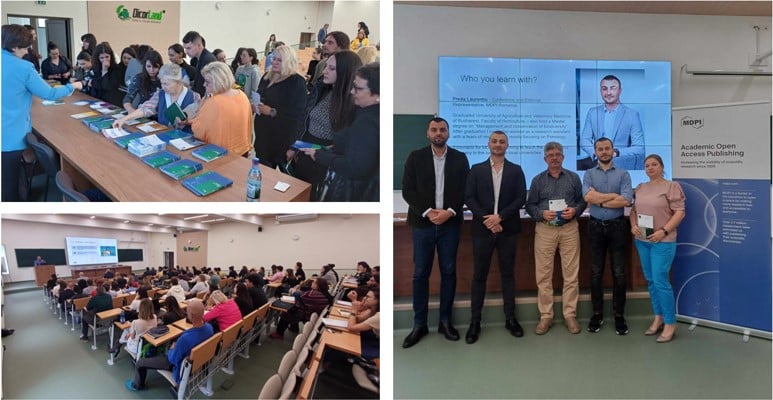
MDPI is grateful for all the attendees, speakers, and organizers involved in these events. Through their enthusiasm and dedication, these events were great successes.
19 July 2024
Meet Us at the Plant Genomics in China XXII, 19–22 August 2024, Hainan, China

Conference: Plant Genomics in China XXII
Organization: Genetic Society of China
Date: 19–22 August 2024
Place: Haikou, Hainan, China
MDPI journals will be attending Plant Genomics in China XXII as exhibitors. This meeting will be held in Haikou, Hainan, China, from 19 to 22 August 2024.
In order to fully demonstrate the latest achievements and progress in the field of plant genome research and promote the in-depth research of plant genomics in the country and the rapid development of the agricultural biotechnology industry, the 23rd National Congress is scheduled to be held in Haikou, Hainan, from August 19 to 22, 2024. The conference will invite experts, scholars and outstanding young scientists at home and abroad who have made outstanding achievements in plant genomics-related fields and have important academic influence to give academic reports. The language of the conference report is English. The organizing committee invites domestic and foreign colleagues and graduate students from relevant universities and research institutes to participate in this conference. This conference is the largest high-level academic event in the field of genetics research in China. This conference invites famous scholars, experts, young talents and entrepreneurs in the field of genetics to conduct in-depth exchanges.
The following MDPI journals will be represented:
- Plants;
- Genes;
- International Journal of Molecular Sciences (IJMS);
- Life;
- Biomolecules;
- Current Issues in Molecular Biology (CIMB);
- International Journal of Plant Biology (IJPB);
- Agronomy;
- BioTech.
If you will be attending this conference, please feel free to start a conversation with us. Our delegates look forward to meeting you in person and answering any questions that you may have.
19 July 2024
Meet Us at the 46th Congress of the Spanish Society of Biochemistry and Molecular Biology, 3–6 September 2024, A Coruña, Spain

MDPI will be attending the 46th Congress of the Spanish Society of Biochemistry and Molecular biology (46th SEBBM Congress), which will be held from 3 to 6 September 2024 in A Coruña, Spain.
The 46th SEBBM Congress will enjoy a wide range of plenary conferences, symposia, including the Hispanic-Luso Scientific Symposium and the Scientific Symposium of Education, meetings of the scientific groups of SEBBMs, poster sessions and the commercial exhibition of collaborating companies. We will be able to enjoy satellite activities such as the Research Initiation Course in Biochemistry and Molecular Biology, the Professional Development Forum for Young Researchers, and the activities of Biochemistry in the city, with exhibitions, scientific–artistic shows, round tables and scientific workshops.
The following MDPI journals will be represented at the conference:
- Cells;
- Biomolecules;
- CIMB;
- IJMS;
- Biomedicines;
- Organoids;
- Biology;
- BioTech;
- Biologics;
- Diagnostics;
- Medicina;
- BioMedInformatics;
- JMP;
- Genes.
If you are planning to attend the above conference, we encourage you to visit our booth and speak to our representatives. We are eager to meet you in person and assist you with any queries that you may have.
For more information about the conference, please visit the official website at https://congresos.sebbm.es/coruna2024/.
17 July 2024
The 30th International Conference on Magnetic Resonance in Biological Systems (ICMRBS 2024), 18–23 August 2024, Seoul, Republic of Korea

Conference: The 30th International Conference on Magnetic Resonance in Biological Systems (ICMRBS 2024)
Date: 18–23 August 2024
Place: COEX, Seoul, Republic of Korea
Organized by: Korean Magnetic Resonance Society (KMRS)
Conference Award: “MDPI Biomolecules Poster Award” sponsored by Biomolecules (ISSN: 2218-273X)
The International Council on Magnetic Resonance in Biological Systems (ICMRBS) organizes biennial conferences that have grown substantially in both size and scope since the initial meeting in 1964. Besides covering important new developments in the use of EPR and in vivo NMR, the meeting is widely considered one of the premier meetings in the rapidly growing field of protein and nucleic acid structure determination by multi-dimensional NMR techniques.
We would especially like to invite young researchers, including M.Sc. students, Ph.D. students, and post-docs, as we think this will be a great opportunity for them to share their scientific experience and interact with our network.
For more information, please visit the following link: https://www.icmrbs2024.org/.
10 July 2024
MDPI's Newly Launched Journals in June 2024
 Five new journals covering multiple subjects have launched their inaugural issue in June 2024. We are excited to be able to share with you the newest research rooted in the value of open access.
Five new journals covering multiple subjects have launched their inaugural issue in June 2024. We are excited to be able to share with you the newest research rooted in the value of open access.
We would like to express our deepest appreciation to all the Editorial Board Members and each journal will ensure its high-quality output using excellent editorial and rigorous peer review processes, to ensure that the articles achieve high impact and visibility.
Please feel free to browse and discover more about the new journals below.
|
Journal |
Founding Editor-in-Chief |
Journal Topics (Selected) |
 |
Prof. Dr. Marco Ranucci, IRCCS Policlinico San Donato, Italy |
anaesthetic medications; blood and fluid management; pain management; critical care; critical illness | view journal scope | submit an article |
 |
Dr. Giovanni E. Cacciamani, University of Southern California, USA |
surgical/procedural complications; complications; perioperative adverse events; postoperative adverse events | view journal scope | submit an article |
 |
Prof. Dr. Gassan Hodaifa, Universidad Pablo de Olavide, Spain |
laboratory management; laboratory safety; protective equipment; laboratory problems and challenges; laboratory Innovation | view journal scope | submit an article |
 |
Prof. Dr. Jan S. Suchodolski, Texas A&M University, USA |
companion animals health and disease; veterinary care and nutrition; genetics and genomics; behavior and welfare; human-animal relations | view journal scope | submit an article |
 |
Prof. Dr. Pierfrancesco De Paola, University of Naples Federico II, Italy |
real estate appraisal; economic and financial valuation of real estate projects; sustainable real estate; housing and urban economics | view journal scope | submit an article |
We wish to thank everyone who has supported the development of open access publishing. You are welcome to send an application here, or contact the New Journal Committee ([email protected]) if you would like to create more new journals.
1 July 2024
Meet Us at the 31st International Carbohydrate Symposium (ICS2024), 14–19 July 2024, Shanghai, China

MDPI will be attending the 31st International Carbohydrate Symposium (ICS2024), which will be held from 14 to 19 July 2024 in Shanghai, China.
ICS2024 will follow the convention of the previous ICS symposiums to provide a global forum for researchers engaging in all aspects of carbohydrates. Besides classical topics on carbohydrate chemistry, chemical glycobiology, and glycobiology, the current developments of carbohydrates and glycotechnologies in the fields of the diagnosis and therapy of diseases, nutrients and cosmetics, agriculture and biofuels, and materials will be highlighted. ICS2024 will reflect the state-of-art as well as future trends of the glycosciences and forge communication and corporations between glycoscientists from various areas and disciplines.
The following topics will be covered:
- Glycochemistry;
- Glycobiology;
- Carbohydrate drugs;
- Sugar vaccines;
- Carbohydrate materials.
The following MDPI journals will be represented at the symposium:
- Nutrients;
- IJMS;
- Molecules;
- Nutraceuticals;
- Foods;
- Biomolecules;
- Marine Drugs;
- Vaccines;
- CIMB;
- BioChem;
- Applied Sciences;
- Antibodies.
If you are planning to attend the above conference, we encourage you to visit our booth and speak to our representatives. We are eager to meet you in person and assist you with any queries that you may have.
For more information about the conference, please visit the official website at https://ics2024.casconf.cn/.
25 June 2024
Meet Us at the ASHG Annual Meeting 2024, 5–9 November 2024, Denver, Colorado, USA

MDPI will attend the ASHG Annual Meeting 2024, held in Denver, Colorado, USA, from 5 to 9 November 2024.
The ASHG Annual Meeting is the largest human genetics and genomics meeting and exposition in the world. Held in the fall, it provides a forum for the presentation and discussion of cutting-edge science in all areas of human genetics. Highlights include invited symposia; abstract-driven plenary, platform, and poster sessions; education/trainee workshops; and career opportunities and networking events.
The following MDPI journals will be represented:
- Genes;
- IJMS;
- Biomedicines;
- Diagnostics;
- Cancers;
- Biomolecules;
- Humans;
- Applied Biosciences;
- DNA;
- Cardiogenetics;
- Vaccines;
- Life;
- Epigenomes;
- Biology;
- CIMB;
- JCDD;
- ncRNA;
- Diseases;
- BioMed;
- Biomedinformatics.
If you plan on attending this conference, please stop by our booth #1058 and speak with us. Our delegates look forward to meeting you in person and answering any questions that you may have.
For more information about the conference, please visit the following link: https://www.ashg.org/meetings/2024meeting/.
25 June 2024
Meet Us at the CRS 2024 Annual Meeting and Expo (CRS 2024), 8–12 July 2024, Bologna, Italy

Conference: the CRS 2024 Annual Meeting and Expo (CRS 2024)
Date: 8–12 July 2024
Location: Bologna, Italy
This conference will be the 51st annual conference of the Controlled Release Society. The annual CRS conference is the most important one in the pharmaceutics field. The main topics of the conference include Nanomedicine and Nanoscale Delivery, Immuno Delivery, Oral Delivery, Skin and Mucosal Delivery, Ocular Delivery, Bioengineering, Gene Delivery and Gene Editing, Alternative Methods to Animal Testing, Long-Acting Drug Delivery Formulations, Delivery to the Nervous System, Artificial Intelligence, and Predictive Models in Pharmaceutical Technologies.
MDPI will be attending the CRS 2024 Annual Meeting and Expo (CRS 2024). We welcome researchers from different backgrounds to visit and share their latest ideas with us.
The following MDPI journals will be represented:
- Pharmaceutics;
- Molecules;
- Pharmaceuticals;
- Future Pharmacology;
- Applied Biosciences;
- IJMS;
- Gels;
- BioMedInformatics;
- CIMB;
- JNT;
- Life;
- Biomolecules.
If you plan to attend this conference, please contact us online. Our delegates look forward to meeting you in person at booth #29 and answering any questions you may have. For more information about the conference, please visit the following website: https://2024crsannualmeeting.eventscribe.net/.
21 June 2024
Biomolecules | Academic Editors’ Selected Papers in the “Cellular Biochemistry” Section from the First Quarter of 2024
The “Cellular Biochemistry” Section of Biomolecules (ISSN: 2218-273X) provides insight into the roles of specific biochemical pathways and processes in inherited and acquired diseases.
Following the kind recommendation of the Section Editor-in-chief, Prof. Dr. Anna Rita Franco Migliaccio, we selected some interesting work published in this Section on cellular biochemistry. We would like to thank all of our authors' contributions and hope they can continue to contribute their interesting work to the journal.
You can access and read the chosen papers below.
1. “Microbiota Metabolite Profiles and Dietary Intake in Older Individuals with Insomnia of Short vs. Normal Sleep Duration”
by Carmel Even, Faiga Magzal, Tamar Shochat, Iris Haimov, Maayan Agmon and Snait Tamir
Biomolecules 2024; 14(4), 419; https://doi.org/10.3390/biom14040419
Available online: https://www.mdpi.com/2218-273X/14/4/419
2. “Mitochondrial Dysfunction as the Major Basis of Brain Aging”
by Stephen C. Bondy
Biomolecules 2024; 14(4), 402; https://doi.org/10.3390/biom14040402
Available online: https://www.mdpi.com/2218-273X/14/4/402
3. “The Influence of Lysosomal Stress on Dental Pulp Stem Cell-Derived Schwann Cells”
by Karen Libberecht, Nathalie Dirkx, Tim Vangansewinkel, Wendy Vandendries, Ivo Lambrichts and Esther Wolfs
Biomolecules 2024; 14(4), 405; https://doi.org/10.3390/biom14040405
Available online: https://www.mdpi.com/2218-273X/14/4/405
4. “Mitochondrial and Nuclear DNA Variants in Amyotrophic Lateral Sclerosis: Enrichment in the Mitochondrial Control Region and Sirtuin Pathway Genes in Spinal Cord Tissue”
by Sharon Natasha Cox, Claudio Lo Giudice, Anna Lavecchia, Maria Luana Poeta, Matteo Chiara, Ernesto Picardi and Graziano Pesole
Biomolecules 2024; 14(4), 411; https://doi.org/10.3390/biom14040411
Available online: https://www.mdpi.com/2218-273X/14/4/411
5. “Astrocytes: The Stars in Neurodegeneration?”
by Katarina Stoklund Dittlau and Kristine Freude
Biomolecules 2024; 14(3), 289; https://doi.org/10.3390/biom14030289
Available online: https://www.mdpi.com/2218-273X/14/3/289
6. “Solute Transport through Mitochondrial Porins In Vitro and In Vivo”
by Roland Benz
Biomolecules 2024; 14(3), 303; https://doi.org/10.3390/biom14030303
Available online: https://www.mdpi.com/2218-273X/14/3/303
7. “Monogenic Disorders of ROS Production and the Primary Anti-Oxidative Defense”
by Nana-Maria Grüning and Markus Ralser
Biomolecules 2024; 14(2), 206; https://doi.org/10.3390/biom14020206
Available online: https://www.mdpi.com/2218-273X/14/2/206
8. “Mechanisms and Functions of the RNA Polymerase II General Transcription Machinery during the Transcription Cycle”
by Stephen R. Archuleta, James A. Goodrich and Jennifer F. Kugel
Biomolecules 2024; 14(2), 176; https://doi.org/10.3390/biom14020176
Available online: https://www.mdpi.com/2218-273X/14/2/176
9. “Factors and Mechanisms of Thyroid Hormone Activity in the Brain: Possible Role in Recovery and Protection”
by Laura Sabatino, Dominga Lapi and Cristina Del Seppia
Biomolecules 2024; 14(2), 198; https://doi.org/10.3390/biom14020198
Available online: https://www.mdpi.com/2218-273X/14/2/198
10. “Cloflucarban Illuminates Specificity and Context-Dependent Activation of the PINK1–Parkin Pathway by Mitochondrial Complex Inhibition”
by Adrian T. Ramirez, Zeyu Liu, Quanbin Xu, Sarah Nowosadtko and Xuedong Liu
Biomolecules 2024; 14(3), 248; https://doi.org/10.3390/biom14030248
Available online: https://www.mdpi.com/2218-273X/14/3/248
11. “Mitochondrial Dysfunction and Protein Homeostasis in Aging: Insights from a Premature-Aging Mouse Model”
by Jaime M. Ross, Lars Olson and Giuseppe Coppotelli
Biomolecules 2024; 14(2), 162; https://doi.org/10.3390/biom14020162
Available online: https://www.mdpi.com/2218-273X/14/2/162
As an open access format, you have free and unlimited access to the full text of all the articles published in Biomolecules: https://www.mdpi.com/journal/biomolecules.
20 June 2024
2023 Impact Factors for MDPI Journals Released

MDPI is pleased to announce the inclusion of 237 journals in the 2024 release of the Journal Citation Reports (JCR) and share the key results (see above).
This year, journals covered in the Emerging Sources Citation Index (ESCI) received category ranks together with journals in the Science Citation Index Expanded (SCIE) and Social Sciences Citation Index (SSCI). Overall, 139 MDPI journals indexed in ESCI are included in the new unified rankings for the first time.
Enhanced Comparability of Data
According to Clarivate, "the creation of unified category rankings [provides] a simpler and more complete category view for the evaluation of journal performance. [...] The category-first approach simplifies journal performance assessment with a holistic view of all journals in each subject category."
We are thrilled to announce that 72% of our ranked MDPI journals (171 of 237) are above average, in Q1 or Q2. Twenty-nine of our journals received their first Impact Factor this year, accounting for more than 5% of the journals accepted into the Web of Science last year.
MDPI Journals Ranked in JCR
The following data includes all MDPI journals indexed in SCIE, SSCI, ESCI and AHCI.
|
Journal |
Impact Factor |
Rank Quartile |
Category |
|
Q3 |
Acoustics |
||
|
Q2 |
Engineering, Mechanical |
||
|
Q2 |
Instruments & Instrumentation |
||
|
Q2 |
Management |
||
|
Q3 |
Respiratory System |
||
|
Q2 |
Engineering, Aerospace |
||
|
Q1 |
Agronomy |
||
|
Q2 |
Agricultural Engineering |
||
|
Q1 |
Agronomy |
||
|
Q1 |
Plant Sciences |
||
|
Q2 |
Computer Science, Artificial Intelligence |
||
|
Q2 |
Computer Science, Interdisciplinary Applications |
||
|
Q3 |
Computer Science, Artificial Intelligence |
||
|
Q2 |
Computer Science, Theory & Methods |
||
|
Q1 |
Agriculture, Dairy & Animal Science |
||
|
Q1 |
Veterinary Sciences |
||
|
Q1 |
Infectious Diseases |
||
|
Q1 |
Pharmacology & Pharmacy |
||
|
Q3 |
Immunology |
||
|
Q1 |
Biochemistry & Molecular Biology |
||
|
Q1 |
Chemistry, Medicinal |
||
|
Q1 |
Food Science & Technology |
||
|
Q2 |
Chemistry, Multidisciplinary |
||
|
Q1 |
Engineering, Multidisciplinary |
||
|
Q3 |
Materials Science, Multidisciplinary |
||
|
Q2 |
Physics, Applied |
||
|
Q2 |
Computer Science, Information Systems |
||
|
Q2 |
Engineering, Electrical & Electronic |
||
|
Q2 |
Telecommunications |
||
|
N/A |
Humanities, Multidisciplinary |
||
|
Q3 |
Environmental Sciences |
||
|
Q3 |
Meteorology & Atmospheric Sciences |
||
|
Q3 |
Physics, Atomic, Molecular & Chemical |
||
|
Q1 |
Audiology & Speech-language Pathology |
||
|
Q1 |
Mathematics, Applied |
||
|
Q2 |
Electrochemistry |
||
|
Q2 |
Energy & Fuels |
||
|
Q2 |
Materials Science, Multidisciplinary |
||
|
Q2 |
Psychology, Multidisciplinary |
||
|
Q2 |
Food Science & Technology |
||
|
Q2 |
Computer Science, Artificial Intelligence |
||
|
Q2 |
Computer Science, Information Systems |
||
|
Q1 |
Computer Science, Theory & Methods |
||
|
Q2 |
Engineering, Biomedical |
||
|
Q1 |
Biology |
||
|
Q2 |
Biochemistry & Molecular Biology |
||
|
Q2 |
Medicine, Research & Experimental |
||
|
Q1 |
Pharmacology & Pharmacy |
||
|
Q1 |
Engineering, Multidisciplinary |
||
|
Q3 |
Materials Science, Biomaterials |
||
|
Q1 |
Biochemistry & Molecular Biology |
||
|
Q1 |
Chemistry, Analytical |
||
|
Q1 |
Instruments & Instrumentation |
||
|
Q2 |
Nanoscience & Nanotechnology |
||
|
Q3 |
Biotechnology & Applied Microbiology |
||
|
Q1 |
Ornithology |
||
|
Q3 |
Neurosciences |
||
|
Q2 |
Construction & Building Technology |
||
|
Q2 |
Engineering, Civil |
||
|
Q2 |
Materials Science, Multidisciplinary |
||
|
Q1 |
Oncology |
||
|
Q4 |
Cardiac & Cardiovascular Systems |
||
|
Q2 |
Chemistry, Physical |
||
|
Q2 |
Cell Biology |
||
|
Q1 |
Materials Science, Ceramics |
||
|
Q3 |
Materials Science, Multidisciplinary |
||
|
Q2 |
Engineering, Chemical |
||
|
Q3 |
Chemistry, Multidisciplinary |
||
|
Q2 |
Chemistry, Analytical |
||
|
Q2 |
Electrochemistry |
||
|
Q1 |
Instruments & Instrumentation |
||
|
Q2 |
Pediatrics |
||
|
Q2 |
Engineering, Environmental |
||
|
Q2 |
Environmental Sciences |
||
|
Q3 |
Green & Sustainable Science & Technology |
||
|
Q2 |
Meteorology & Atmospheric Sciences |
||
|
Q2 |
Medicine, General & Internal |
||
|
Q3 |
Clinical Neurology |
||
|
Q3 |
Neurosciences |
||
|
Q2 |
Materials Science, Coatings & Films |
||
|
Q3 |
Materials Science, Multidisciplinary |
||
|
Q2 |
Physics, Applied |
||
|
Q3 |
Chemistry, Physical |
||
|
Q2 |
Mathematics, Interdisciplinary Applications |
||
|
Q2 |
Computer Science, Interdisciplinary Applications |
||
|
Q3 |
Physics, Condensed Matter |
||
|
Q2 |
Biochemistry & Molecular Biology |
||
|
Q2 |
Dermatology |
||
|
Q3 |
Computer Science, Information Systems |
||
|
Q2 |
Computer Science, Theory & Methods |
||
|
Q2 |
Crystallography |
||
|
Q3 |
Materials Science, Multidisciplinary |
||
|
Q3 |
Biochemistry & Molecular Biology |
||
|
Q2 |
Oncology |
||
|
Q3 |
Computer Science, Information Systems |
||
|
Q2 |
Multidisciplinary Sciences |
||
|
Q2 |
Dentistry, Oral Surgery & Medicine |
||
|
Q3 |
Dermatology |
||
|
Q3 |
Endocrinology & Metabolism |
||
|
Q1 |
Medicine, General & Internal |
||
|
Q2 |
Medicine, Research & Experimental |
||
|
Q2 |
Biodiversity Conservation |
||
|
Q3 |
Ecology |
||
|
Q1 |
Remote Sensing |
||
|
Q3 |
Environmental Sciences |
||
|
Q3 |
Geosciences, Multidisciplinary |
||
|
Q3 |
Ecology |
||
|
Q3 |
Economics |
||
|
Q2 |
Economics |
||
|
Q1 |
Education & Educational Research |
||
|
Q2 |
Computer Science, Information Systems |
||
|
Q2 |
Engineering, Electrical & Electronic |
||
|
Q2 |
Physics, Applied |
||
|
Q3 |
Energy & Fuels |
||
|
Q2 |
Physics, Multidisciplinary |
||
|
Q2 |
Environmental Sciences |
||
|
Q3 |
Genetics & Heredity |
||
|
Q4 |
Critical Care Medicine |
||
|
Q4 |
Dermatology |
||
|
European Journal of Investigation in Health Psychology and Education |
Q1 |
Psychology, Clinical |
|
|
Q2 |
Biotechnology & Applied Microbiology |
||
|
Q2 |
Materials Science, Multidisciplinary |
||
|
Q2 |
Ecology |
||
|
Q1 |
Forestry |
||
|
Q2 |
Fisheries |
||
|
Q2 |
Marine & Freshwater Biology |
||
|
Q3 |
Mechanics |
||
|
Q3 |
Physics, Fluids & Plasmas |
||
|
Q1 |
Food Science & Technology |
||
|
Q2 |
Multidisciplinary Sciences |
||
|
Q1 |
Forestry |
||
|
Q1 |
Mathematics, Interdisciplinary Applications |
||
|
Q3 |
Energy & Fuels |
||
|
Q3 |
Engineering, Chemical |
||
|
Q2 |
Computer Science, Information Systems |
||
|
Q2 |
Astronomy & Astrophysics |
||
|
Q4 |
Economics |
||
|
Q4 |
Mathematics, Interdisciplinary Applications |
||
|
Q4 |
Social Sciences, Mathematical Methods |
||
|
Q3 |
Gastroenterology & Hepatology |
||
|
Q4 |
Gastroenterology & Hepatology |
||
|
Q1 |
Polymer Science |
||
|
Q3 |
Ethnic Studies |
||
|
Q4 |
Family Studies |
||
|
Q3 |
Sociology |
||
|
Q2 |
Genetics & Heredity |
||
|
Q2 |
Geosciences, Multidisciplinary |
||
|
Q3 |
Geriatrics & Gerontology |
||
|
Q2 |
Health Care Sciences & Services |
||
|
Q2 |
Health Policy & Services |
||
|
Q4 |
Hematology |
||
|
Q4 |
Hematology |
||
|
N/A |
Humanities, Multidisciplinary |
||
|
Q2 |
Multidisciplinary Sciences |
||
|
Q1 |
Horticulture |
||
|
N/A |
Humanities, Multidisciplinary |
||
|
Q2 |
Water Resources |
||
|
Q4 |
Immunology |
||
|
Q2 |
Infectious Diseases |
||
|
Q2 |
Computer Science, Interdisciplinary Applications |
||
|
Q3 |
Computer Science, Information Systems |
||
|
Q2 |
Construction & Building Technology |
||
|
Q2 |
Engineering, Civil |
||
|
Q2 |
Transportation Science & Technology |
||
|
Q2 |
Chemistry, Inorganic & Nuclear |
||
|
Q1 |
Entomology |
||
|
Q2 |
Business, Finance |
||
|
Q1 |
Biochemistry & Molecular Biology |
||
|
Q2 |
Chemistry, Multidisciplinary |
||
|
Q1 |
Genetics & Heredity |
||
|
Q1 |
Pediatrics |
||
|
International Journal of Turbomachinery Propulsion and Power |
Q2 |
Engineering, Aerospace |
|
|
Q3 |
Engineering, Mechanical |
||
|
Q2 |
Engineering, Multidisciplinary |
||
|
Q2 |
Computer Science, Information Systems |
||
|
Q2 |
Geography, Physical |
||
|
Q2 |
Remote Sensing |
||
|
Q2 |
Cardiac & Cardiovascular Systems |
||
|
Q1 |
Medicine, General & Internal |
||
|
Q2 |
Materials Science, Composites |
||
|
Q3 |
Developmental Biology |
||
|
Q1 |
Engineering, Biomedical |
||
|
Q2 |
Materials Science, Biomaterials |
||
|
Q1 |
Sport Sciences |
||
|
Q2 |
Microbiology |
||
|
Q1 |
Mycology |
||
|
Q3 |
Imaging Science & Photographic Technology |
||
|
Q1 |
Psychology, Multidisciplinary |
||
|
Q3 |
Engineering, Electrical & Electronic |
||
|
Q2 |
Engineering, Manufacturing |
||
|
Q1 |
Engineering, Mechanical |
||
|
Q2 |
Materials Science, Multidisciplinary |
||
|
Q1 |
Engineering, Marine |
||
|
Q2 |
Engineering, Ocean |
||
|
Q2 |
Oceanography |
||
|
Q2 |
Health Care Sciences & Services |
||
|
Q1 |
Medicine, General & Internal |
||
|
Q2 |
Computer Science, Information Systems |
||
|
Q2 |
Telecommunications |
||
|
Journal of Theoretical and Applied Electronic Commerce Research |
Q1 |
Business |
|
|
Q1 |
Toxicology |
||
|
Q2 |
Biodiversity Conservation |
||
|
Q2 |
Communication |
||
|
Q2 |
Environmental Studies |
||
|
N/A |
Language & Linguistics |
||
|
Q2 |
Linguistics |
||
|
Q1 |
Law |
||
|
Q1 |
Biology |
||
|
Q2 |
Management |
||
|
Q2 |
Operations Research & Management Science |
||
|
Q2 |
Engineering, Mechanical |
||
|
Q2 |
Computer Science, Artificial Intelligence |
||
|
Q2 |
Computer Science, Interdisciplinary Applications |
||
|
Q2 |
Engineering, Electrical & Electronic |
||
|
Q3 |
Engineering, Electrical & Electronic |
||
|
Q2 |
Engineering, Mechanical |
||
|
Q2 |
Chemistry, Inorganic & Nuclear |
||
|
Q3 |
Chemistry, Physical |
||
|
Q3 |
Materials Science, Multidisciplinary |
||
|
Q1 |
Chemistry, Medicinal |
||
|
Q1 |
Pharmacology & Pharmacy |
||
|
Q3 |
Chemistry, Physical |
||
|
Q2 |
Materials Science, Multidisciplinary |
||
|
Q1 |
Metallurgy & Metallurgical Engineering |
||
|
Q2 |
Physics, Applied |
||
|
Q2 |
Physics, Condensed Matter |
||
|
Q2 |
Mathematics, Interdisciplinary Applications |
||
|
Q1 |
Mathematics |
||
|
Q1 |
Medicine, General & Internal |
||
|
Q2 |
Chemistry, Physical |
||
|
Q2 |
Engineering, Chemical |
||
|
Q2 |
Materials Science, Multidisciplinary |
||
|
Q2 |
Polymer Science |
||
|
Q2 |
Biochemistry & Molecular Biology |
||
|
Q3 |
Materials Science, Multidisciplinary |
||
|
Q2 |
Metallurgy & Metallurgical Engineering |
||
|
Q3 |
Biochemical Research Methods |
||
|
Q3 |
Microbiology |
||
|
Q2 |
Chemistry, Analytical |
||
|
Q2 |
Instruments & Instrumentation |
||
|
Q3 |
Nanoscience & Nanotechnology |
||
|
Q2 |
Physics, Applied |
||
|
Q2 |
Microbiology |
||
|
Q2 |
Geochemistry & Geophysics |
||
|
Q2 |
Mineralogy |
||
|
Q2 |
Mining & Mineral Processing |
||
|
Q3 |
Engineering, Multidisciplinary |
||
|
Q4 |
Chemistry, Organic |
||
|
Q2 |
Biochemistry & Molecular Biology |
||
|
Q2 |
Chemistry, Multidisciplinary |
||
|
Q3 |
Computer Science, Artificial Intelligence |
||
|
Q2 |
Computer Science, Cybernetics |
||
|
Q3 |
Computer Science, Information Systems |
||
|
Q2 |
Chemistry, Multidisciplinary |
||
|
Q2 |
Materials Science, Multidisciplinary |
||
|
Q2 |
Nanoscience & Nanotechnology |
||
|
Q2 |
Physics, Applied |
||
|
Q2 |
Clinical Neurology |
||
|
Q3 |
Clinical Neurology |
||
|
Q4 |
Neurosciences |
||
|
Q4 |
Environmental Sciences |
||
|
Q2 |
Biochemistry & Molecular Biology |
||
|
Q2 |
Genetics & Heredity |
||
|
Q1 |
Nursing |
||
|
Q1 |
Nutrition & Dietetics |
||
|
Q3 |
Marine & Freshwater Biology |
||
|
Q3 |
Oceanography |
||
|
Q4 |
Optics |
||
|
Q3 |
Chemistry, Organic |
||
|
Q3 |
Astronomy & Astrophysics |
||
|
Q2 |
Physics, Nuclear |
||
|
Q3 |
Physics, Particles & Fields |
||
|
Q2 |
Microbiology |
||
|
Q2 |
Pathology |
||
|
Q3 |
Pediatrics |
||
|
Q2 |
Chemistry, Medicinal |
||
|
Q1 |
Pharmacology & Pharmacy |
||
|
Q1 |
Pharmacology & Pharmacy |
||
|
Q3 |
Pharmacology & Pharmacy |
||
|
Q2 |
History & Philosophy of Science |
||
|
N/A |
Philosophy |
||
|
Q2 |
Optics |
||
|
Q2 |
Physics, Multidisciplinary |
||
|
Q1 |
Plant Sciences |
||
|
Q3 |
Physics, Fluids & Plasmas |
||
|
Q1 |
Polymer Science |
||
|
Q1 |
Polymer Science |
||
|
Q2 |
Engineering, Chemical |
||
|
Q4 |
Materials Science, Biomaterials |
||
|
Q2 |
Biochemistry & Molecular Biology |
||
|
Q4 |
Psychiatry |
||
|
Q1 |
Information Science & Library Science |
||
|
Q3 |
Instruments & Instrumentation |
||
|
Q3 |
Materials Science, Characterization & Testing |
||
|
Q4 |
Quantum Science & Technology |
||
|
Q2 |
Geosciences, Multidisciplinary |
||
|
Q3 |
Chemistry, Multidisciplinary |
||
|
Q2 |
Green & Sustainable Science & Technology |
||
|
N/A |
Religion |
||
|
Q2 |
Environmental Sciences |
||
|
Q1 |
Geosciences, Multidisciplinary |
||
|
Q2 |
Imaging Science & Photographic Technology |
||
|
Q2 |
Remote Sensing |
||
|
Q3 |
Medicine, General & Internal |
||
|
Q4 |
Obstetrics & Gynecology |
||
|
Q4 |
Reproductive Biology |
||
|
Q2 |
Environmental Sciences |
||
|
Q3 |
Green & Sustainable Science & Technology |
||
|
Q2 |
Business, Finance |
||
|
Q2 |
Robotics |
||
|
Q3 |
Public, Environmental & Occupational Health |
||
|
Q3 |
Pharmacology & Pharmacy |
||
|
Q2 |
Chemistry, Analytical |
||
|
Q2 |
Engineering, Electrical & Electronic |
||
|
Q2 |
Instruments & Instrumentation |
||
|
Q3 |
Chemistry, Analytical |
||
|
Q2 |
Medicine, General & Internal |
||
|
Q3 |
Psychology, Multidisciplinary |
||
|
Q2 |
Social Sciences, Interdisciplinary |
||
|
Q2 |
Womens Studies |
||
|
Q1 |
Engineering, Electrical & Electronic |
||
|
Q1 |
Urban Studies |
||
|
Q2 |
Social Sciences, Interdisciplinary |
||
|
Q2 |
Sociology |
||
|
Q2 |
Soil Science |
||
|
Q3 |
Chemistry, Physical |
||
|
Q3 |
Materials Science, Multidisciplinary |
||
|
Q2 |
Sport Sciences |
||
|
Q4 |
Mathematics, Interdisciplinary Applications |
||
|
Q3 |
Statistics & Probability |
||
|
Q3 |
Chemistry, Physical |
||
|
Q3 |
Materials Science, Multidisciplinary |
||
|
Q4 |
Surgery |
||
|
Q2 |
Environmental Sciences |
||
|
Q2 |
Environmental Studies |
||
|
Q3 |
Green & Sustainable Science & Technology |
||
|
Q2 |
Multidisciplinary Sciences |
||
|
Q1 |
Social Sciences, Interdisciplinary |
||
|
Q1 |
Engineering, Multidisciplinary |
||
|
Q3 |
Telecommunications |
||
|
Q4 |
Hematology |
||
|
Q2 |
Radiology, Nuclear Medicine & Medical Imaging |
||
|
Q2 |
Environmental Sciences |
||
|
Q1 |
Toxicology |
||
|
Q2 |
Food Science & Technology |
||
|
Q1 |
Toxicology |
||
|
Q2 |
Infectious Diseases |
||
|
Q2 |
Parasitology |
||
|
Q1 |
Tropical Medicine |
||
|
Q2 |
Astronomy & Astrophysics |
||
|
Q2 |
Physics, Particles & Fields |
||
|
Q3 |
Environmental Sciences |
||
|
Q3 |
Environmental Studies |
||
|
Q2 |
Geography |
||
|
Q3 |
Regional & Urban Planning |
||
|
Q2 |
Urban Studies |
||
|
Q1 |
Immunology |
||
|
Q1 |
Medicine, Research & Experimental |
||
|
Q2 |
Engineering, Mechanical |
||
|
Q2 |
Transportation Science & Technology |
||
|
Q2 |
Veterinary Sciences |
||
|
Q3 |
Engineering, Mechanical |
||
|
Q3 |
Mechanics |
||
|
Q2 |
Virology |
||
|
Q2 |
Environmental Sciences |
||
|
Q2 |
Water Resources |
||
|
Q2 |
Economics |
||
|
Q2 |
Political Science |
||
|
Q1 |
Social Sciences, Interdisciplinary |
||
|
Q2 |
Engineering, Electrical & Electronic |
||
|
Q2 |
Transportation Science & Technology |
Source: 2023 Journal Impact Factors, Journal Citation Reports TM (Clarivate, 2024)
About MDPI
A pioneer in scholarly, open access publishing, MDPI has supported academic communities since 1996. MDPI is leading the transition to open science by making more research free and accessible to everyone. Over 3.5 million researchers have entrusted MDPI with publishing their scientific discoveries. MDPI’s editorial process is bolstered by a network of dedicated reviewers, a team of 6000 professional, well-trained staff members, and an in-house article submission platform that was designed to ensure efficient processes within its 440 fully open access titles.
11 June 2024
Biomolecules | Academic Editors’ Selected Papers in the “Molecular Medicine” Section in Q1 of 2024
1. “Blood Biomarkers of Alzheimer’s Disease and Cognition: A Literature Review”
by Greta Garcia-Escobar, Rosa Maria Manero, Aida Fernández-Lebrero, Angel Ois, Irene Navalpotro-Gómez, Victor Puente-Periz, José Contador-Muñana, Isabel Estragués-Gazquez, Albert Puig-Pijoan and Joan Jiménez-Balado
Biomolecules 2024, 14(1), 93; https://doi.org/10.3390/biom14010093
Full text available online: https://www.mdpi.com/2218-273X/14/1/93
2. “The Role of the Brain-Derived Neurotrophic Factor in Chronic Pain: Links to Central Sensitization and Neuroinflammation”
by Huan-Yu Xiong, Jolien Hendrix, Siobhan Schabrun, Arne Wyns, Jente Van Campenhout, Jo Nijs and Andrea Polli
Biomolecules 2024, 14(1), 71; https://doi.org/10.3390/biom14010071
Full text available online: https://www.mdpi.com/2218-273X/14/1/71
3. “The Need for Novel Asexual Blood-Stage Malaria Vaccine Candidates for Plasmodium falciparum”
by Eizo Takashima, Hitoshi Otsuki, Masayuki Morita, Daisuke Ito, Hikaru Nagaoka, Takaaki Yuguchi, Ifra Hassan and Takafumi Tsuboi
Biomolecules 2024, 14(1), 100; https://doi.org/10.3390/biom14010100
Full text available online: https://www.mdpi.com/2218-273X/14/1/100
4. “Progress to Clarify How NOTCH3 Mutations Lead to CADASIL, a Hereditary Cerebral Small Vessel Disease”
by Ikuko Mizuta, Yumiko Nakao-Azuma, Hideki Yoshida, Masamitsu Yamaguchi and Toshiki Mizuno
Biomolecules 2024, 14(1), 127; https://doi.org/10.3390/biom14010127
Full text available online: https://www.mdpi.com/2218-273X/14/1/127
5. “Pro-Inflammatory Food, Gut Microbiota, and Cardiovascular and Pancreatic Diseases”
by Bing Chen, Shriraj Patel, Lingyu Bao, Danial Nadeem and Chayakrit Krittanawong
Biomolecules 2024, 14(2), 210; https://doi.org/10.3390/biom14020210
Full text available online: https://www.mdpi.com/2218-273X/14/2/210
6. “The Genetic Basis, Lung Involvement, and Therapeutic Options in Niemann–Pick Disease: A Comprehensive Review”
by Claudio Tirelli, Ornella Rondinone, Marta Italia, Sabrina Mira, Luca Alessandro Belmonte, Mauro De Grassi, Gabriele Guido, Sara Maggioni, Michele Mondoni, Monica Rosa Miozzo et al.
Biomolecules 2024, 14(2), 211; https://doi.org/10.3390/biom14020211
Full text available online: https://www.mdpi.com/2218-273X/14/2/211
7. “Real-World Safety and Effectiveness of Voretigene Neparvovec: Results up to 2 Years from the Prospective, Registry-Based PERCEIVE Study”
by M. Dominik Fischer, Francesca Simonelli, Jayashree Sahni, Frank G. Holz, Rainer Maier, Christina Fasser, Andrea Suhner, Daniel P. Stiehl, Bee Chen, Isabelle Audo et al.
Biomolecules 2024, 14(1), 122; https://doi.org/10.3390/biom14010122
Full text available online: https://www.mdpi.com/2218-273X/14/1/122
8. “Polyphenols: Role in Modulating Immune Function and Obesity”
by Md Abdullah Al Mamun, Ahmed Rakib, Mousumi Mandal, Santosh Kumar, Bhupesh Singla, and Udai P. Singh
Biomolecules 2024, 14(2), 221; https://doi.org/10.3390/biom14020221
Full text available online: https://www.mdpi.com/2218-273X/14/2/221
9. “Bariatric Surgery Induces Alterations in the Immune Profile of Peripheral Blood T Cells”
by Pedro Barbosa, Aryane Pinho, André Lázaro, Diogo Paula, José G. Tralhão, Artur Paiva, Maria J. Pereira, Eugenia Carvalho, and Paula Laranjeira
Biomolecules 2024, 14(2), 219; https://doi.org/10.3390/biom14020219
Full text available online: https://www.mdpi.com/2218-273X/14/2/219
10. “The Complex Interplay between Toxic Hallmark Proteins, Calmodulin-Binding Proteins, Ion Channels, and Receptors Involved in Calcium Dyshomeostasis in Neurodegeneration”
by Danton H. O’Day
Biomolecules 2024, 14(2), 173; https://doi.org/10.3390/biom14020173
Full text available online: https://www.mdpi.com/2218-273X/14/2/173
11 June 2024
Biomolecules Receives an Increased CiteScore of 9.4 and an Improved Category Ranking

We are pleased to inform you that Biomolecules (ISSN: 2218-273X) has received an increased CiteScore of 9.4.
CiteScore provides transparent metrics that enable well-informed publishing strategies, library collection development, and the benchmarking of journal performance. It is now a standard citation metric alongside SNIP and SJR that gives an up-to-date view of a journal’s impact.
The 2023 CiteScore provides an assessment of the scientific influence of journals in the 2020 to 2023 period.
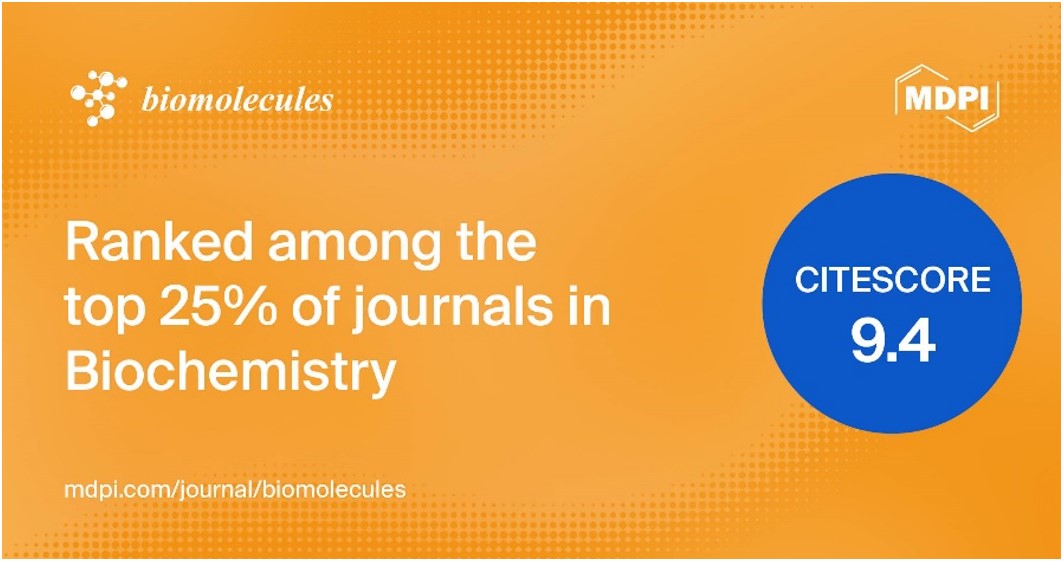
Biomolecules now ranks in the top Q1 in the “Biochemistry” and “Molecular Biology” categories.
Our journal continues to build momentum in [structures and functions of bioactive and biogenic substances, molecular mechanisms with biological and medical implications as well as biomaterials and their applications.
This result is a reflection of the excellent performance, support, and dedication of all journal editors, reviewers, authors, and readers.
We would like to extend our congratulations to all concerned.
Biomolecules’ CiteScore ranks as follows:
- Q1 (69 out of 438) in “Biochemistry”;
- Q1 (89 out of 410) in “Molecular Biology”.
For more journal statistics, please visit https://www.mdpi.com/journal/biomolecules/stats.
Thank you to everyone who has contributed to the journal.
Biomolecules Editorial Office
7 June 2024
MDPI Calls for Greater Open Access to Science for Ocean Protection
On UNESCO’s 2024 Oceans Day, MDPI encourages the scientific community to increase the accessibility of ocean research to accelerate ocean conservation.
Basel, Switzerland, June 7, 2024: MDPI, a leading open access (OA) publisher, is proud to announce its active support for World Oceans Day 2024, celebrated under UNESCO’s Ocean Decade framework. MDPI’s CEO, Stefan Tochev hopes that “the latest ocean research can be made freely accessible to help empower scientists and communities at large to save our oceans,” under UNESCO’s Ocean Decade until 2030.
Open Access: A Catalyst for Ocean Action
MDPI’s presence at the UNESCO Ocean Decade Conference 2024 highlights our unwavering commitment to using OA to advance ocean science, support research communities, and promote sustainable ocean management.
"Our involvement in the UNESCO Ocean Decade Conference underscores MDPI's commitment to the underfunded Ocean SDG. By promoting OA to scientific articles and books on SDGs, we aim to inspire critical actions," said Tochev. "Our initiatives, like the World Sustainability Award and Emerging Sustainability Award, further demonstrate our dedication to advancing sustainability.”
Showcasing MDPI’s Contributions to Ocean Research
Over the past three years, MDPI has published 30,000 papers focused on ocean research and related topics. Key MDPI journals contributing to this body of work include:
- Journal of Marine Science and Engineering (4.9k papers)
- Remote Sensing (2.6k papers)
- Sustainability (2k papers)
- International Journal of Molecular Sciences (IJMS) (1.7k papers)
- Marine Drugs (1.5k papers)
- Water (1.5k papers)
These publications highlight MDPI’s contributions to ocean science, reinforcing our role in the broader sustainability agenda by promoting blue innovation and economy.
Additionally, MDPI has launched Oceans, an international, peer-reviewed forum specifically aimed at publishing studies related to all branches of oceanography with an emphasis on the functioning of the ocean and the sustainable use of its resources and ecosystem services.
Affirming MDPI’s Commitment to Ocean Science
MDPI’s commitment to OA is pivotal in addressing critical global challenges, from climate change to ocean sustainability. Our efforts resonate with Outcome 4 of the UNESCO Ocean Decade action roadmap: an accessible ocean with open and equitable access to data, information, technology, and innovation. By aligning with UNESCO’s goals, MDPI continues to contribute to shaping a sustainable future for our oceans, reinforcing our position as a forward-thinking publisher dedicated to environmental stewardship and scientific excellence.
For more information, contact Rui Duarte at [email protected] or +41764313242.
About MDPI
A pioneer in scholarly, open access publishing, MDPI has supported academic communities since 1996. MDPI is leading the transition to open science by making more research free and accessible to everyone. Over 3.5 million researchers have entrusted MDPI with publishing their scientific discoveries. MDPI’s editorial process is bolstered by a network of dedicated reviewers, a team of over 6000 professional, well-trained staff members, and an in-house article submission platform that was designed to ensure efficient processes within its 430 fully open access titles.
5 June 2024
MDPI Sets a New Benchmark for Publishing Excellence

95% of authors rate MDPI’s publication process as excellent or good, setting a new benchmark in scientific publishing – reveals 2023 Annual Report.
Basel, Switzerland, June 4, 2024: MDPI, the leading open access (OA) publisher, proudly announces the release of its 2023 Annual Report, detailing remarkable achievements and reaffirming its leadership in advancing OA publishing. In 2023, MDPI received 655,065 submissions, of which 285,244 articles were published. The company now commands a 17% market share in gold open access articles, with a median publication time of six weeks.
Stefan Tochev, MDPI's CEO, stated, "As a pioneer in open access publishing, MDPI has long been a game-changer in the scholarly community, serving millions of authors around the world to ensure the latest research is freely available. Reflecting on our incredible journey at MDPI, 2023 has been marked by growth in paper submissions, ambitious projects and initiatives aimed at improving our internal processes and delivering top-notch services to our scientists."
MDPI's 2023 Annual Report highlights several key achievements:
- 17% market share in gold open access articles across all disciplines.
- Record satisfaction rates: 95% of authors, 82% of reviewers, and 85% of guest editors.
- Enhanced editorial standards and feedback processes.
- Increased reach and impact with 54 new MDPI journal inclusions in Scopus, 29 in Web of Science, and 77 in DOAJ.
MDPI’s unwavering commitment to advancing OA has transformed the landscape of scholarly publishing, making high-quality research freely accessible to the global scientific community. The continuous improvement in our editorial standards and feedback processes underscores MDPI’s dedication to ensuring academic integrity and excellence.
Global Reach and Collaboration
MDPI’s global footprint continues to expand, with authors from diverse regions: 37% from Asia/Pacific, 36% from Europe, 15% from the Americas, and 12% from other parts of the world. The company’s fully OA platform attracted nearly 14 million monthly visitors in 2023, reflecting its widespread influence in the scientific community.
Commitment to Partnerships
With over 800 institutional partners, MDPI continues to demonstrate its dedication to providing reliable and collaborative publishing services. The introduction of a transparent flat-fee model highlights MDPI's ongoing efforts to enhance affordability and support to the academic community. For more details read our 2023 Annual Report.
For more information, contact Rui Duarte at [email protected] or +41764313242.
About MDPI
A pioneer in scholarly, open access publishing, MDPI has supported academic communities since 1996. MDPI is leading the transition to open science by making more research free and accessible to everyone. Over 3.5 million researchers have entrusted MDPI with publishing their scientific discoveries. MDPI’s editorial process is bolstered by a network of dedicated reviewers, a team of over 6000 professional, well-trained staff members, and an in-house article submission platform that was designed to ensure efficient processes within its 430 fully open access titles.
5 June 2024
Meet Us at the ESMO Congress 2024, 13–17 September 2024, Barcelona, Spain

The ESMO Congress is a globally influential oncology platform that unites clinicians, researchers, patient advocates, journalists and healthcare industry representatives from all over the world. ESMO 2024 will disseminate the latest cutting-edge data, providing high-quality education and excellent networking opportunities for oncologists and other stakeholders on an international level.
The following MDPI journals will be represented:
- Cancers;
- JCM;
- Healthcare;
- Pharmaceutics;
- Applied Biosciences;
- Dermatopathology;
- Onco;
- Biomedicines;
- Cells;
- Diagnostics;
- Current Oncology;
- Immuno;
- Hemato;
- Gastrointestinal Disorders;
- Biologics;
- Biomolecules;
- Clinics and Practice;
- Medical Sciences.
If you are participating in this conference, please feel free to engage with us online prior to attendance. Our delegates look forward to meeting you in person at booth #P627 and answering any questions you may have. For more information regarding the conference, please visit the following link: https://www.esmo.org/meeting-calendar/esmo-congress-2024.
4 June 2024
MDPI Insights: The CEO's Letter #12 - First Term as CEO, Tu Youyou Award, Books Report

Welcome to the MDPI Insights: The CEO's Letter.
In these monthly letters, I will showcase two key aspects of our work at MDPI: our commitment to empowering researchers and our determination to facilitating open scientific exchange.
Opening Thoughts

Renewed Term as CEO of MDPI
I released the first CEO Letter at the end of June 2023, reflecting on my first month as CEO. Looking back at the first release, I’m pleased to see a marked consistency of content – from talking about open access (OA) and highlighting the great work being done at MDPI, to bringing together the science community with our conferences and building relations with our editorial board members and our industry as a whole.

For example, in the first letter, I highlighted our meeting with Dr. Eric O. Freed, the founding and current Editor-in-Chief (EiC) of our journal Viruses. Meeting with Eric is a pleasure, as he has a strong commitment and clear vision for the journal.
On 21 May, 2024 we met with EiC Prof. Dr. Antonino Carbone, and Section EiC Prof. Dr. Alberto Signore (pictured on the left), of our journal Hemato (tracked for Impact Factor, and indexed in Scopus), showing our continued and active collaboration with our chief editors to develop the visions for the journal. Over the course of the day, we gathered feedback and gained an understanding of the journal's expectations and focus on strategic growth.
Reflections on my first year as CEO: achievements and initiatives
During my first year as CEO, there have been many remarkable moments, including a strong focus on bringing people together, focusing on company communications and performance.
According to a recent study of 3,400 people across 10 countries, “Managers impact employees’ mental health (69%) more than doctors (51%) or therapists (41%) — and even the same as a partner (69%).” This is an important topic for me, and perhaps that’s why I place a high value on management culture due to its tangible impact on people’s lives.
When I joined MDPI, I created a weekly meet-up for the Corporate Marketing department and their team leads. On the final Thursday of every month, we hold a Global Marketing meet-up to present projects, share knowledge, and conduct training. For years, I’ve maintained the tradition of ending each of our monthly global calls with a group photo to boost morale, motivation, and productivity, and to finish on a positive note.
In keeping with this, when I stepped into the role of CEO, I launched a bi-weekly management meeting, chairing over 20 MDPI Management Team meetings in my first year. These sessions provide an opportunity for managers to present their team’s work, focusing on their achievements and the challenges they face, while at the same time creating space for sharing knowledge.
“I firmly believe that OA is the future of publishing”
I co-organized and co-led the 2023 MDPI Strategy Management meeting this past October, from which we established an Executive Task Force that meets monthly to prioritize projects aimed at building MDPI into the world’s most trusted publisher. To achieve our goals, we as managers need to maintain collaborative communication and connect to the bigger picture.

As CEO, I focused on leadership communication by publishing 12 CEO Letters, one for each month of my tenure, to share more about MDPI news and achievements. I also produced ten videos to help further communicate our message.
I was happy to attend eight publishing and conference events, including STM in Frankfurt and Washington, APE, and R2R, and facilitate critical company meetings with Elsevier, Web of Science, ResearchGate, DOAJ, and others. It was a pleasure to meet and have discussions with key organizations and governing bodies such as CAS in China and ANVUR in Italy.
The best part was the opportunity to visit seven MDPI offices across Europe and Asia-Pacific, meeting with local managers and colleagues and supporting them in person. As part of this, I conducted training sessions while continuing to lead the Corporate Marketing department.
Looking ahead
My goal for my second year as CEO is to continue building on the initiatives from the past, including leadership communications, public relations, educational marketing, and company culture, while representing MDPI to the best of my ability. Additionally, I have a few new projects I hope to launch that I believe will be valuable to MDPI and the industry at large.
I firmly believe that OA is the future of publishing, and I am grateful to be in a position to advocate for this belief as part of MDPI, the world's leading open access publisher.
Thank you to our staff and industry friends for your genuine support in this role.
Impactful Research

Nominations Open for the Prestigious Tu Youyou Award 2024
I am pleased to share that MDPI has opened nominations for the 2024 Tu Youyou Award, a prestigious recognition established in honour of Professor Tu Youyou, Nobel Laureate, whose work has significantly transformed the global fight against malaria.
The Tu Youyou Award offers CHF 100,000
In 2015, Professor Tu Youyou was awarded the Nobel Prize in Physiology or Medicine for her discovery of artemisinin, significantly reducing mortality rates from malaria and shaping global health policies. Artemisinin-based combination therapies (ACTs) are now the standard treatment endorsed by the World Health Organization (WHO), saving countless lives, especially in regions heavily burdened by malaria.
MDPI Special Issue
To mark Professor Tu’s 80th birthday in 2009, MDPI’s journal Molecules issued a Special Issue focusing on her contributions to medical research. Recognizing her continuous contribution, MDPI created the Tu Youyou Award in 2016 to honour outstanding achievements in natural products and medicinal chemistry.
The deadline for nominations is 31 December 2024
Nominations are open to scientists excelling in natural products and medicinal chemistry. Eligible nominators include academic institutes, universities, and societies. The deadline for nominations is 31 December 2024, with the winners to be announced on 30 April 2025. The Tu Youyou Award offers CHF 100,000, split equally among the winners.
MDPI encourages the academic community to nominate individuals who have demonstrated excellence and innovation in line with Professor Tu’s legacy. This award not only honours individual achievement but also encourages further scientific exploration and discovery in critical areas of medicine.
This award embodies our deep commitment to groundbreaking research that drives societal progress and celebrates the legacy of one of the greatest medical innovators of our time.
Inside MDPI

2023 MDPI Books Report
In past CEO letters, I have highlighted our publishing process and the impactful peer-reviewed articles that represent the core output of scholarly publishing. However, scholarly books are another pillar of publishing that MDPI also services, which our core audience may not be fully aware of. In this section, I highlight the 2023 MDPI Books report, released by our MDPI Books team in May 2024.
Download the 2023 MDPI Books Report
In the report, you will find a summary of MDPI Books’ 10th anniversary, the books indexed in the Web of Science Book Citation Index, our market outreach, and our outlook for 2024.
MDPI Books celebrated its 10th anniversary in 2023
MDPI Books published its first OA Reprint, “From the Renaissance to the Modern World,” in 2013. Over the past ten years, MDPI Books has seen a significant increase in both the volume and nature of published Reprints. As of December 2023, our catalogue includes a total of 7,369 Reprints, with 1,811 of them added in 2023 alone. MDPI Books includes monographs, book series, edited books and reprints of special issues and topical collections, among other book types.

We’re also celebrating the 10-year MDPI anniversary of Laura Wagner, Head of MDPI Books.
Laura Wagner (Head of Books Division)
Laura holds a Bachelor’s degree in Art History and History from the University of Basel. After her studies, she started her career at an art gallery in Basel.
Since joining MDPI in 2014, Laura has held several roles within the company. This included editorial work, development of reprint and book services, and the temporary management of the journal Arts.
Currently Laura holds the role of Head of Books Division and is in charge of the development and strategic direction of MDPI Books.
MDPI Books indexed in Web of Science Book Citation Index
Another milestone in 2023 was the indexing of four book titles in the Web of Science Book Citation Index. The indexing of our open access books is crucial for their reach and accessibility, ensuring higher visibility within the open science community.

- Self-Representation in an Expanded Field: From Self-Portraiture to Selfie, Contemporary Art in the Social Media Age by editor Ace Lehner
- Towards Socially Integrative Cities: Perspectives on Urban Sustainability in Europe and China by editors Bernhard Müller, Jian Liu, Jianming Cai, Paulina Schiappacasse, Hans-Martin Neumann, and Baojun Yang
- Transitioning to Gender Equality by editors Christa Binswanger and Andrea Zimmermann
- Under Construction: Performing Critical Identity by editor Marie-Anne Kohl
If you would like to learn more about MDPI Books, please visit: www.mdpi.com/books
If you are thinking of writing or editing a book, you can submit your proposal at www.mdpi.com/books/publish-with-us, or email us at [email protected].
Coming Together for Science

Polymers 2024 – Polymers for a Safe and Sustainable Future
Our conference team successfully managed the Polymers 2024 – Polymers for a Safe and Sustainable Future international conference which took place from 28–31 May 2024 in Athens, Greece. The conference was chaired by Prof. Dr. Dimitrios Bikiaris and Prof. Dr. Konstantinos Triantafyllidis from the Aristotle University of Thessaloniki, Greece, and Dr. Ioanna Deligkiozi from AXIA Innovation, Germany. In total, the conference had 259 accepted abstracts and over 300 attendees from 22 different countries.
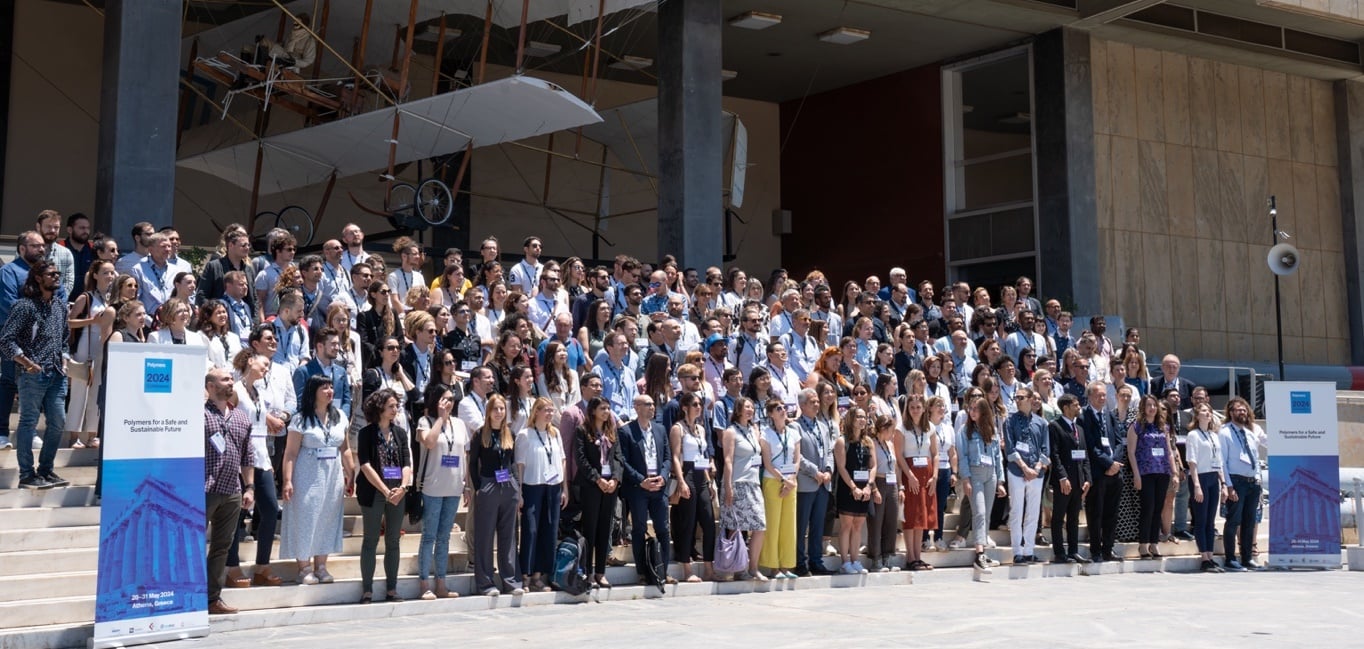
The conference featured three keynote speakers and 12 invited speakers, including esteemed scholars from Europe, Asia, Africa, and Canada. It included 60 selected talks and 189 posters, chosen by the 24 members of the Scientific Committee along with the three Conference Chairs. The event explored the latest scientific advancements and innovations in polymer science, focusing on creating safe, sustainable, and environmentally friendly materials. Emphasizing green polymer chemistry and the use of bioresources, the conference promoted the synthesis of biobased and biodegradable polymers.
The conference featured esteemed scholars from Europe, Asia, Africa, and Canada
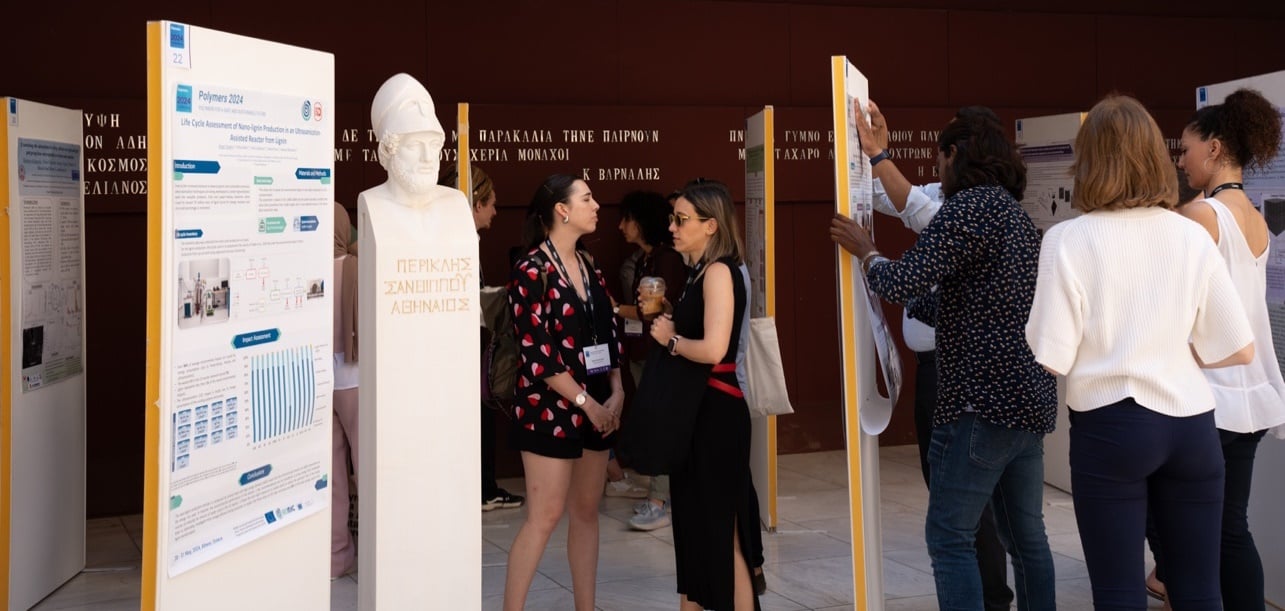
Conference awards
The conference also presented three awards: two sponsored by the journal Polymers – The Best Poster Award (€500) and the Best Oral Presentation Award (€600) – and one sponsored by Ossila, the Best Student Poster Award (€500).
Thank you to our 16 sponsors, three partnering societies (Hellenic Polymer Society, European Polymer Federation, and North American Thermal Analysis Society [NATAS]) and eight media partners.
Upcoming in-person event
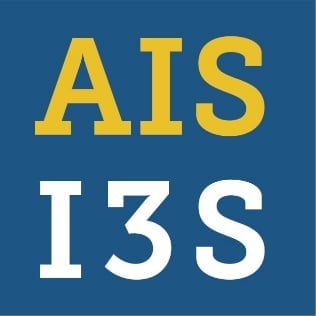
1–4 August, 2024
The 1st International Conference on AI Sensors & The 10th International Symposium on Sensor Science
Location: Singapore
The AI Sensors 2024 Conference will unite innovators and experts in the realms of sensors, sensing technology, and artificial intelligence.
Find more upcoming MDPI events here.
Closing Thoughts
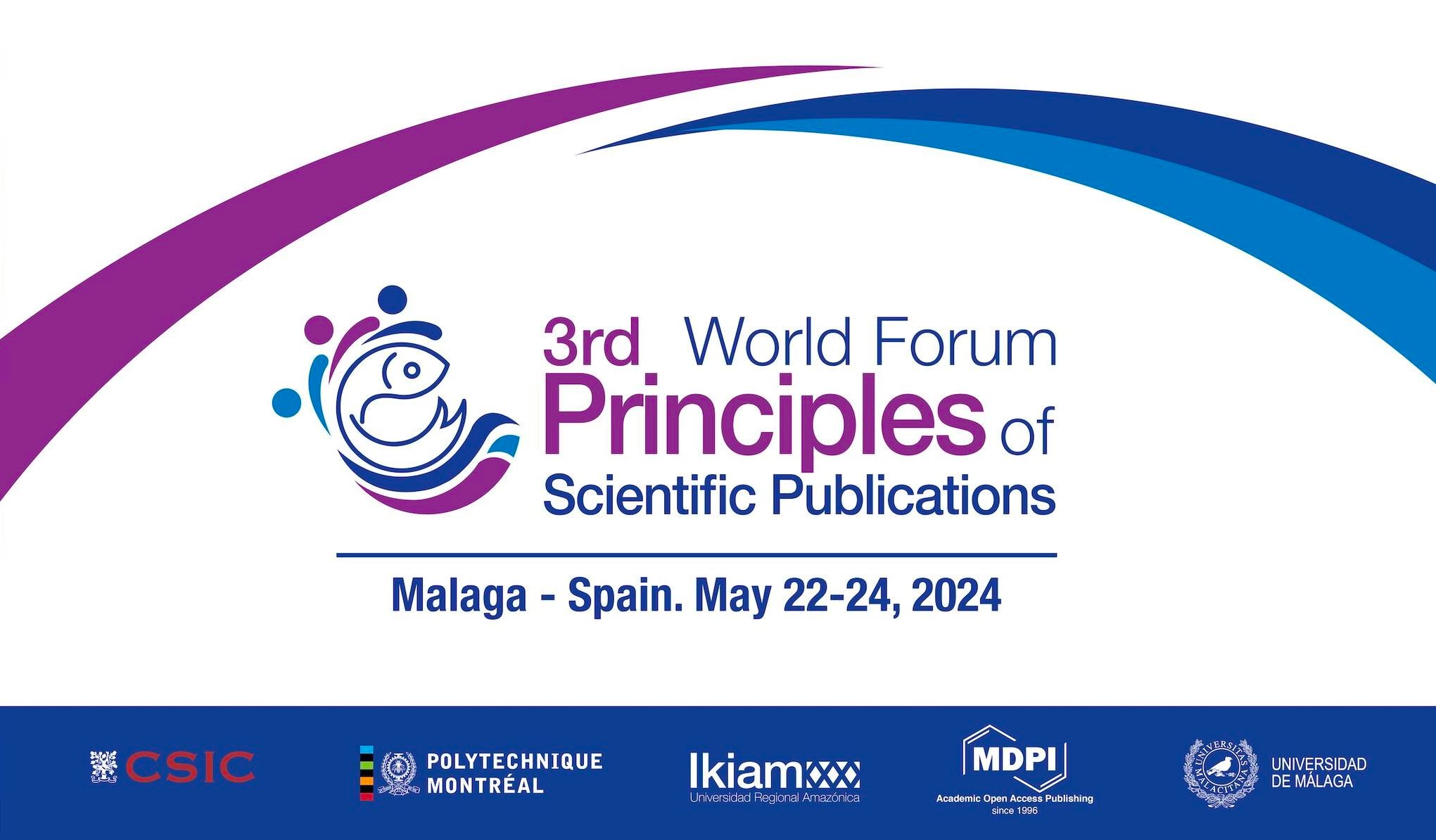
3rd World Forum Principles of Scientific Publications
I’m pleased to share that MDPI sponsored and attended the 3rd World Forum on Principles of Scientific Publications, which took place from 22–24 May in Malaga, Spain. The event brought together academic professionals and leading researchers to discuss critical topics in the realm of publishing and research. Presentation topics included Open Science, AI in Publishing, Predatory Journals, Fake Publications, Challenges for Non-native English Speakers, and more.
“It was great to see strong support from MDPI authors in the audience”
MDPI presentations
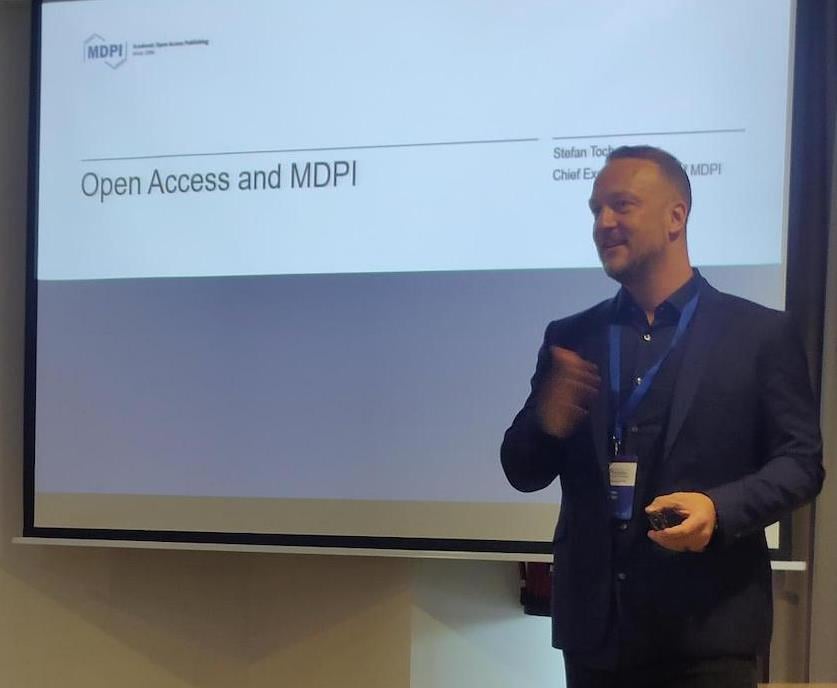
Stefan Tochev (CEO, MDPI) presenting at the 3rd World Forum Principles of Scientific Publications
I had the privilege of attending and presenting at the event, along with my colleague Dr. Enric Sayas (Business Analyst, MDPI) from our Barcelona office, who explored the ethical concerns and opportunities brought by AI in publishing.
I took the opportunity to present on Open Science, the benefits of Open Access, and MDPI’s performance, operations, and investment in ethics. Special thanks to Evan Escamilla (Project Manager, MDPI Books) and Facundo Santomé (Sr. Marketing Manager, MDPI) who also joined the conference.
It was great to see strong support from MDPI authors in the audience who shared their positive experiences publishing with us. Their story reflects the experience of the vast majority of authors who choose to work with MDPI.
We also encountered some conservative views on OA, which created an opportunity for open discussion aimed at addressing concerns about OA and MDPI. Engaging in such discussions is important, as scepticism sometimes arises from misinformation or from a misunderstanding of who we are and how we operate. When we engage in open and honest discussion, we tend to see people getting a better understanding of MDPI, which helps address any misconceptions they may have had.
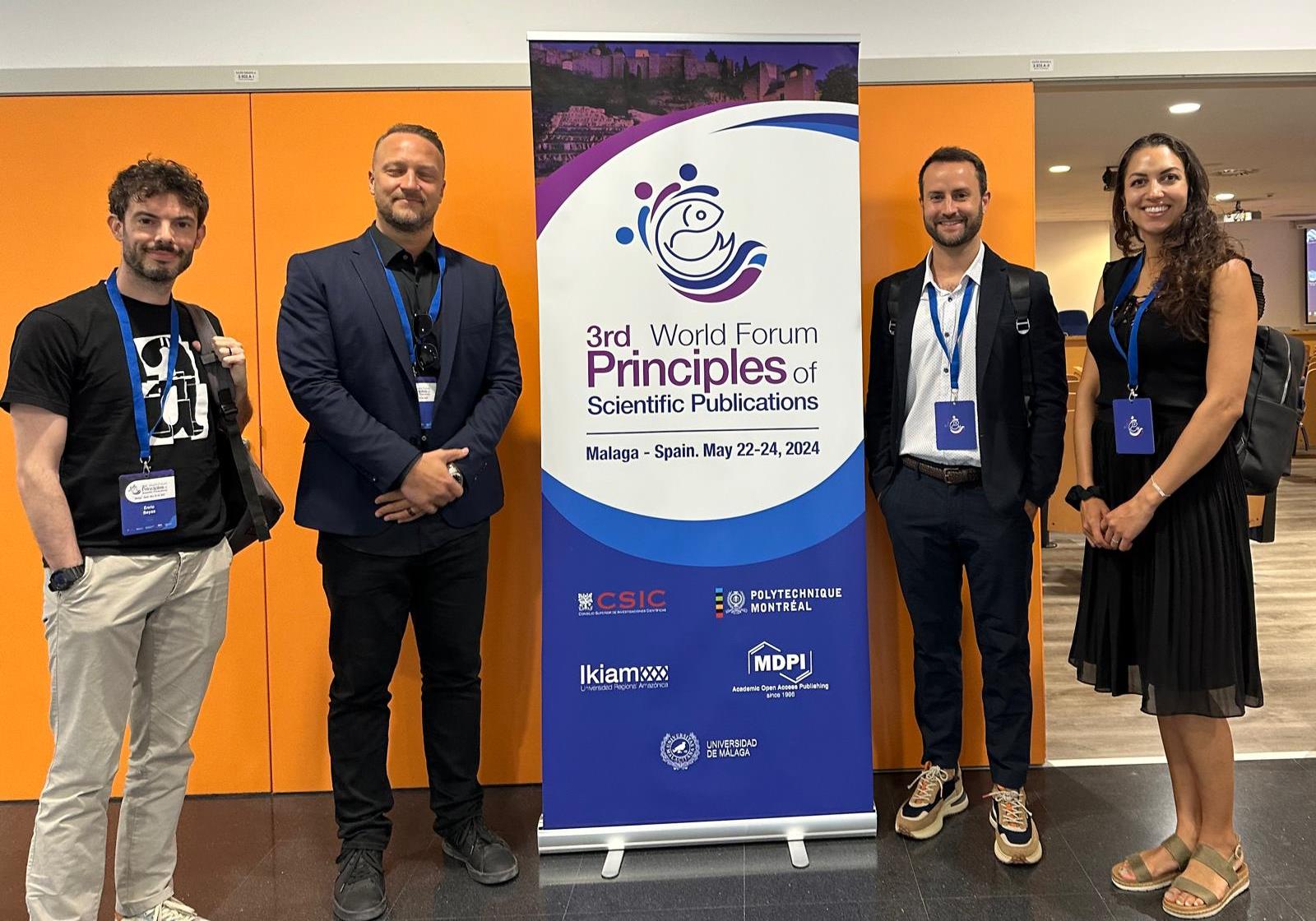
Left to right: Dr. Enric Sayas (Business Analyst, MDPI), Stefan Tochev (CEO, MDPI), Facundo Santomé (Sr. Marketing Manager, MDPI), and Evan Escamilla (Project Manager, MDPI Books) at 3rd World Forum Principles of Scientific Publications
Chief Executive Officer
MDPI AG
31 May 2024
Meet Us at the 8th EUROBIOFILMS 2024 Meeting, 26–29 June 2024, Copenhagen, Denmark

MDPI will be attending the 8th EUROBIOFILMS 2024 meeting, which will be held from 26 to 29 June 2024 in Copenhagen, Denmark.
The program will include all aspects of biofilms, from bench to bedside, and from environment to chronic infections, presented by internationally recognized researchers.
The venue is the modern Panum Institute, Faculty of Health and Medical Sciences, Copenhagen University, situated next to Rigshospitalet—both are internationally recognized centers for biofilm research and are accessible by several bus-lines and close to the center of Copenhagen.
The following MDPI journals will be represented at the conference:
- Antibiotics;
- Microorganisms;
- IJMS;
- Life;
- Applied Microbiology;
- Bacteria;
- Bioengineering;
- Biomolecules;
- CIMB;
- Marine Drugs;
- Microbiology Research;
- Applied Sciences.
If you are planning to attend the above conference, please feel free to stop by our booth (#8) and start a conversation with us. Our delegates look forward to meeting you in person and answering any questions that you may have. For more information about the conference, please visit the following link: https://eurobiofilms2024.dk/.
31 May 2024
Meet Us at the 10th Congress of the European Academy of Neurology, 29 June–2 July 2024, Helsinki, Finland

MDPI will attend the 10th Congress of the European Academy of Neurology, held in Helsinki, Finland, from 29 June to 2 July 2024, at booth #E28. We invite researchers from different backgrounds to visit and share their latest ideas with us.
The EAN Congress covers “big diseases” such as multiple sclerosis, movement disorders, headache, muscle disorders, epilepsy, dementia, and stroke, as well as breakthrough research on rare diseases. This edition will celebrate 10 years of the EAN with over 8000 professionals. The 10th EAN Congress's overarching theme is “Neuromodulation: Advances and Opportunities in Neurological Diseases”. Leading specialists will tackle hot topics in invasive and non-invasive neuromodulation in movement and cognitive disorders, chronic pain, and refractory epilepsy. The current state and future directions of neuromodulation will be addressed with relevant questions regarding which techniques are available as diagnostic tools or therapeutic interventions; how to precisely target specific cortical regions, deep brain structures, and head nerves for therapeutic purposes; and how to advance neuromodulation in new areas of neurology such as chronic minimally conscious state or limb prosthesis.
The following MDPI journals will be represented at the conference:
- Biomedicines;
- Clinical and Translational Neuroscience;
- Brain Sciences;
- Biomolecules;
- Cells;
- Current Issues in Molecular Biology;
- Diagnostics;
- Genes;
- Healthcare;
- International Journal of Translational Medicine;
- Journal of Clinical Medicine;
- Life;
- Muscles;
- Methods and Protocols;
- Neuroglia;
- Neurology International;
- Vaccines.
If you are planning to attend the conference, please feel free to start a conversation with us at our booth #E28. Our delegates look forward to meeting you in person and answering any questions you may have. For more information about the conference, please visit the following website: https://www.ean.org/congress2024.
27 May 2024
Biomolecules | Academic Editors’ Selected Papers in the “Molecular Biomarkers” Section from the First Quarter of 2024
1. “EEG Frequency Correlates with α2-Receptor Density in Parkinson’s Disease”
by Adam F. Kemp, Martin Kinnerup, Birger Johnsen, Steen Jakobsen, Adjmal Nahimi and Albert Gjedde
Biomolecules 2024, 14(2), 209; https://doi.org/10.3390/biom14020209
Full text available online: https://www.mdpi.com/2218-273X/14/2/209
2. “Extracellular Vesicles as Delivery Vehicles for Non-Coding RNAs: Potential Biomarkers for Chronic Liver Diseases”
by Arianna Ferro, Gabriele Saccu, Simone Mattivi, Andrea Gaido, Maria Beatriz Herrera Sanchez, Shafiul Haque, Lorenzo Silengo, Fiorella Altruda, Marilena Durazzo and Sharmila Fagoonee Biomolecules 2024, 14(3), 277; https://doi.org/10.3390/biom14030277
Full text available online: https://www.mdpi.com/2218-273X/14/3/277
3. “Biomarkers of Oxidative and Radical Stress”
by Chryssostomos Chatgilialoglu
Biomolecules 2024, 14(2), 194; https://doi.org/10.3390/biom14020194
Full text available online: https://www.mdpi.com/2218-273X/14/2/194
4. “Effect of 5-Alpha Reductase Inhibitors on Magnetic Resonance Imaging and Prostate Cancer Detection”
by Juan Morote, Natàlia Picola, Jesús Muñoz-Rodriguez, Nahuel Paesano, Xavier Ruiz-Plazas, Marta V. Muñoz-Rivero, Ana Celma, Gemma García-de Manuel, Berta Miró, Pol Servian et al.
Biomolecules 2024, 14(2), 193; https://doi.org/10.3390/biom14020193
Full text available online: https://www.mdpi.com/2218-273X/14/2/193
5. “Defining Melanoma Immune Biomarkers—Desert, Excluded, and Inflamed Subtypes—Using a Gene Expression Classifier Reflecting Intratumoral Immune Response and Stromal Patterns”
by Agata Mlynska, Jolita Gibavičienė, Otilija Kutanovaitė, Linas Senkus, Julija Mažeikaitė, Ieva Kerševičiūtė, Vygantė Maskoliūnaitė, Neda Rupeikaitė, Rasa Sabaliauskaitė, Justina Gaiževska et al.
Biomolecules 2024, 14(2), 171; https://doi.org/10.3390/biom14020171
Full text available online: https://www.mdpi.com/2218-273X/14/2/171
6. “A Challenging Correlation between Tumor Cellularity and Somatic Variant Allele Fraction in Lung and Colorectal Cancers—Specimens of Low Tumor Percentage Should Be Analyzed with Caution”
by Samaneh K. Zarabi, Lidong Zhai and Yu-Wei Cheng
Biomolecules 2024, 14(2), 168; https://doi.org/10.3390/biom14020168
Full text available online: https://www.mdpi.com/2218-273X/14/2/168
7. “Physical Interventions Restore Physical Frailty and the Expression of CXCL-10 and IL-1β Inflammatory Biomarkers in Old Individuals and Mice”
by Diego Marcos-Pérez, Sara Cruces-Salguero, Esther García-Domínguez, Marcos J. Araúzo-Bravo, Mari Carmen Gómez-Cabrera, José Viña, Itziar Vergara and Ander Matheu
Biomolecules 2024, 14(2), 166; https://doi.org/10.3390/biom14020166
Full text available online: https://www.mdpi.com/2218-273X/14/2/166
8. “Mapping Expression Quantitative Trait Loci Targeting Candidate Genes for Pregnancy in Beef Cows”
by Wellison J. S. Diniz, Juliana Afonso, Nicholas C. Kertz, Paul W. Dyce and Priyanka Banerjee
Biomolecules 2024, 14(2), 150; https://doi.org/10.3390/biom14020150
Full text available online: https://www.mdpi.com/2218-273X/14/2/150
9. “Molecular Biomarkers in Ocular Graft-versus-Host Disease: A Systematic Review”
by Jerry Bohlen, Charlyn Gomez, Jason Zhou, Fernando Martinez Guasch, Caitlyn Wandvik and Sarah Brem Sunshine
Biomolecules 2024, 14(1), 102; https://doi.org/10.3390/biom14010102
Full text available online: https://www.mdpi.com/2218-273X/14/1/102
10. “Toward Precision Medicine: Exploring the Landscape of Biomarkers in Acute Kidney Injury”
by Nicole Nourie, Rita Ghaleb, Carmen Lefaucheur and Kevin Louis
Biomolecules 2024, 14(1), 82; https://doi.org/10.3390/biom14010082
Full text available online: https://www.mdpi.com/2218-273X/14/1/82
11. “Advances in Sjögren’s Syndrome Dry Eye Diagnostics: Biomarkers and Biomolecules beyond Clinical Symptoms”
by Kevin Y. Wu, Olivia Serhan, Anne Faucher and Simon D. Tran
Biomolecules 2024, 14(1), 80; https://doi.org/10.3390/biom14010080
Full text available online: https://www.mdpi.com/2218-273X/14/1/80
24 May 2024
Topics Webinar | Recent Advances in Oxidoreductases Biochemistry and Biotechnology, 28 May 2024

Welcome message by webinar chair, Prof. Grzegorz Janusz:
Dear colleagues,
Thank you for your participation in this webinar which will allow us to promote our conference, Oxizymes in Lublin, Poland, 2024, which is related to the MDPI Topic “Recent Advances in Oxidoreductases Biochemistry and Biotechnology”.
Oxidoreductases comprise a large number of enzymes of industrial relevance: peroxidases, peroxygenases, laccases, flavin–containing oxidases, and dehydrogenases, unspecific peroxygenases (UPOs), dye–decolorizing peroxidases (DyPs), copper–containing lytic polysaccharide monooxygenases (LP.M.Os), etc.
This conference and MDPI Topic aim to cover all aspects of this field, from the discovery of novel oxidoreductases, their mechanisms of action, and their structure–activity relationships to their applications in the production of fine chemicals and polymer building blocks, biosensors, and biomaterials, and their use in biorefineries for a bio–based economy.
Today, I a.m. pleased to introduce three of my colleagues who are involved in this webinar: Prof. Magdalena Jaszek, whose major research area is bioactive compounds, oxidoreductases, and proteases; next, Prof. Clemens Peterbauer, whose main research area is the expression and engineering of microbial enzymes for biomass degradation and biocatalysis; and finally, Dr. Katarzyna Szałapata, whose research interests focus on the bioactive aspects of polymer biomaterials.
Date: 28 May 2024
Time: 9:00 a.m. CEST | 3:00 a.m. EDT | 3:00 p.m. CST Asia
Webinar Announcement: https://sciforum.net/event/Topics–23
Register now for free!
|
Speaker/Presentation |
Time in CEST |
Time in CST Asia |
|
Prof. Grzegorz Janusz |
9:00 a.m.–9:10 a.m. |
3:00 p.m.–3:10 p.m. |
|
Prof. Magdalena Jaszek |
9:10 a.m.–9:30 a.m. |
3:10 p.m.–3:30 p.m. |
|
Q&A Session |
9:30 a.m.–9:40 a.m. |
3:30 p.m.–3:40 p.m. |
|
Prof. Clemens Peterbauer |
9:40 a.m.–10:00 a.m. |
3:40 p.m.–4:00 p.m. |
|
Q&A Session |
10:00 a.m.–10:10 a.m. |
4:00 p.m.–4:10 p.m. |
|
Dr. Katarzyna Szałapata |
10:10 a.m.–10:20 a.m. |
4:10 p.m.–4:20 p.m. |
|
Q&A Session |
10:20 a.m.–10:30 a.m. |
4:20 p.m.–4:30 p.m. |
|
Prof. Grzegorz Janusz |
10:30 a.m. |
4:30 p.m. |
After registering, you will receive a confirmation email containing information on how to join the webinar. Registrations with academic institutional email addresses will be prioritized.
Unable to attend? Register anyway and we will inform you when the recording is available.
Webinar Chair and Keynote Speakers:
- Grzegorz Janusz (Chair), Department of Biochemistry and Biotechnology, Institute of Biological Sciences, Maria Curie–Skłodowska University, Lublin, Poland;
- Magdalena Jaszek, Department of Biochemistry and Biotechnology, Institute of Biological Sciences, Maria Curie–Skłodowska University, Lublin, Poland;
- Clemens Peterbauer, Department of Food Sciences and Technology, BOKU—University of Natural Resources and Life Sciences, Vienna, Austria;
- Katarzyna Szałapata, Department of Biochemistry and Biotechnology, Institute of Biological Sciences, Maria Curie–Skłodowska University, Lublin, Poland.
Relevant Topic:
“Recent Advances in Oxidoreductases Biochemistry and Biotechnology”
Topic Editors: Prof. Dr. Grzegorz Janusz, Dr. Anna Pawlik and Dr. Clemens Karl Peterbauer
Manuscript Submission Deadline: 31 October 2024
23 May 2024
Transfer Service in MDPI
We are pleased to announce MDPI’s Transfer Service.
This service provides a convenient method of transferring your manuscript file, along with any reviewer comments, to another journal within our publishing portfolio.
We are committed to helping authors find the right home for their research, and we will provide authors with guidance and technical support through all stages of the transfer process. Authors will be able to choose to transfer in the following two situations:
1. Select alternative journals on submission.
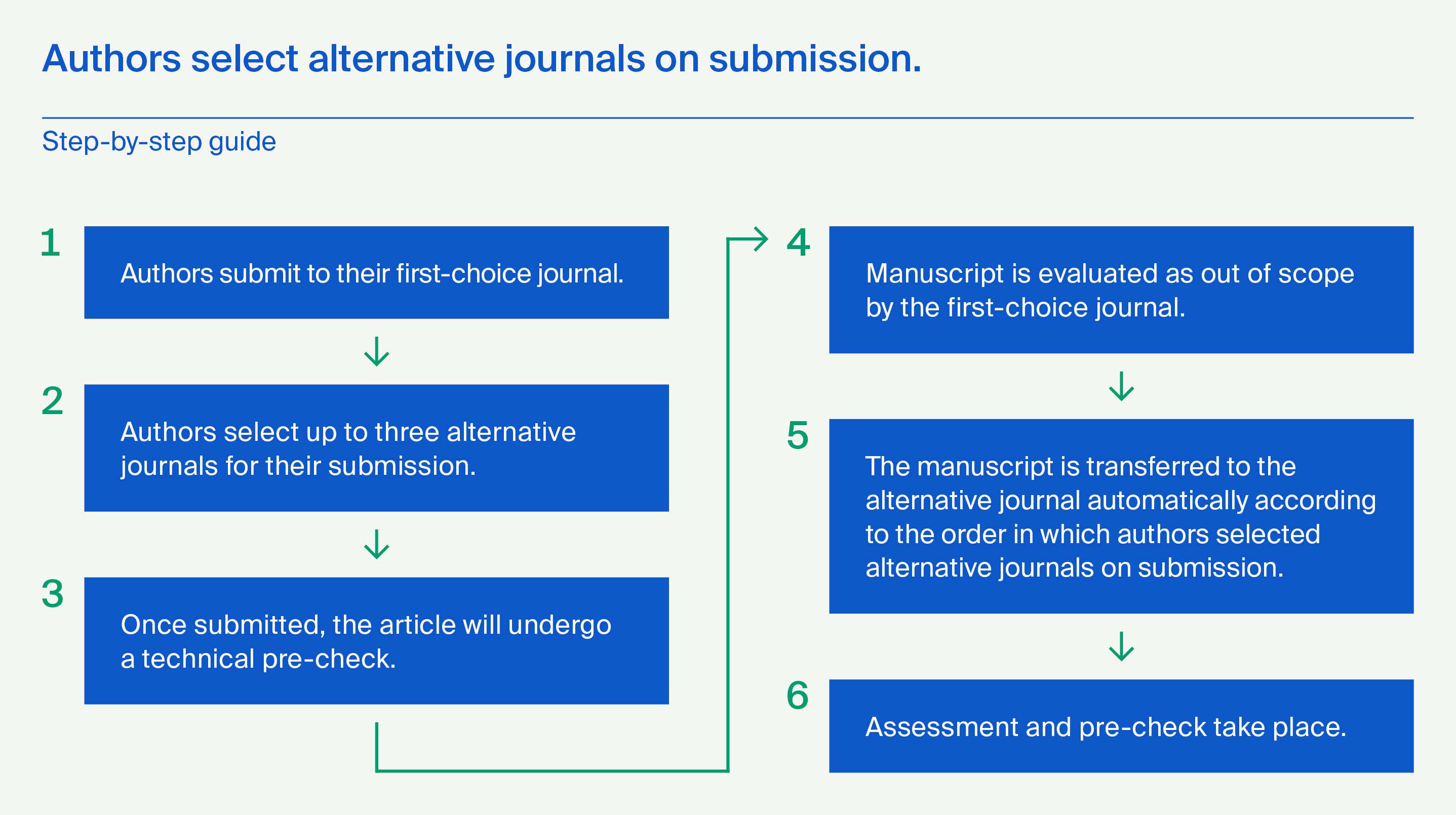
2. Authors are encouraged to transfer manuscripts to other MDPI journals.
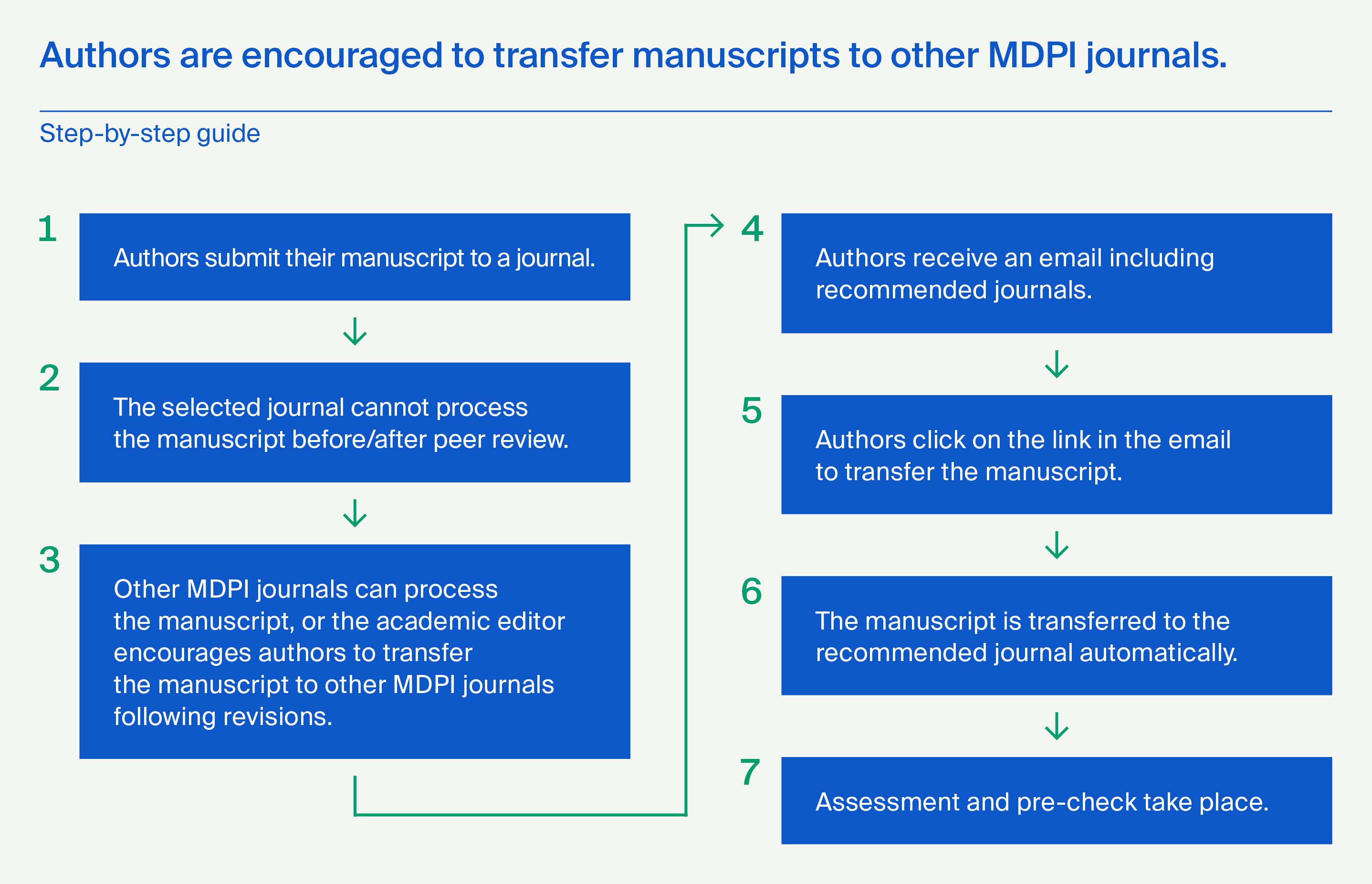
More details about the Transfer Service can be found at the following link:
17 May 2024
Tu Youyou Award—Open for Nominations
In acknowledgment of the groundbreaking achievements of Professor Tu Youyou, the Nobel laureate credited with the discovery of artemisinin, MDPI is proud to announce the Tu Youyou Award. This award, inaugurated in 2016, seeks to honor scholars who excel in the fields of natural products chemistry and medicinal chemistry.
Prize:
- CHF 100,000 in total (If there is more than one winner, the prize will be divided equally amongst the winners);
- An award medal for each winner.
Who should be nominated?
- Scientists with outstanding achievements and contributions in the fields of natural products chemistry and medicinal chemistry.
Who can submit a nomination?
- Academic research institutes
- Universities
- Academic societies
Any personal nominations are not accepted.
How do I submit a nomination?
Candidates’ institutional affiliations need to submit their nominations for final candidates to the Tu Youyou Award Team directly by email after internal screening, and each institution can only nominate a maximum of two candidates for each edition of the Tu Youyou Award. Please note that the nominations cannot be modified once they are submitted and confirmed by the Tu Youyou Award Team.
Required nomination materials:
Nomination Form (Download)
Schedule:
Nomination deadline: 31 December 2024;
Winner announcement: 30 April 2025.
Contact:
Tu Youyou Award Team ([email protected])
More information can be found on the Tu Youyou Award official website. For any inquiries, do not hesitate to contact the Tu Youyou Award Team.
16 May 2024
MDPI Romania Author Training Academic Events in April
MDPI Romania sponsored four events over the month of April, contributing author training sessions to each event.
The NutriSciLabs 2024 conference was held at the Carol Davila University of Medicine and Pharmacy on 12 April 2024. Organized by the Association of Students from the Faculty of Pharmacy Studies, the conference aimed to enhance students’ academic writing and research skills, and bolster their confidence in participating in the academic world. Ioana Paunescu, journal relations specialist for MDPI Romania, led the training session. Paunescu first outlined MDPI’s history and core values, then explained academic writing techniques, ethics, and similarity percentages. The presentation covered the entire editorial process, highlighting the amount of attention paid to details throughout manuscript processing. Paunescu also discussed common errors that authors make while writing, and how to avoid such errors.
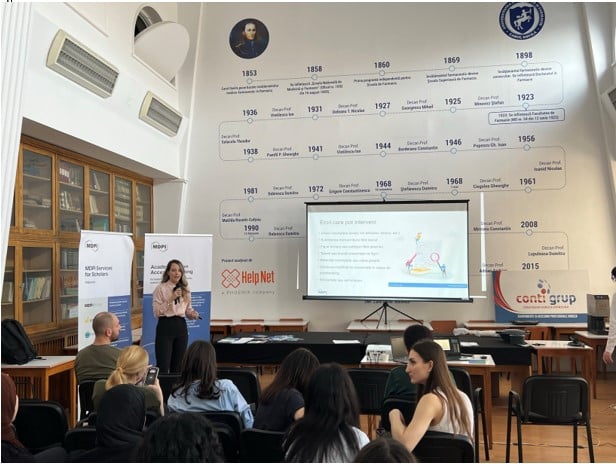
On 13 April 2024, the NextGEN 2.0 Student Conference took place at the Babes-Bolyai University of Cluj-Napoca. NextGen Healthcare organized this event with the university’s European Students’ Society to discuss European and international current affairs. MDPI Romania contributed an author training session called Steps of the Publication Process. Irina Codruta Zaharia, journal relations specialist, began the session with a general introduction of MDPI before diving into different article types, different layout formats, possible journals to submit to, the MDPI submission checklist, and the MDPI editorial process. By explaining the fundamentals of writing and publishing academic papers, Zaharia imparted valuable industry knowledge to the curious minds present. Participants were eager to engage with Zaharia in the subsequent Q&A session.
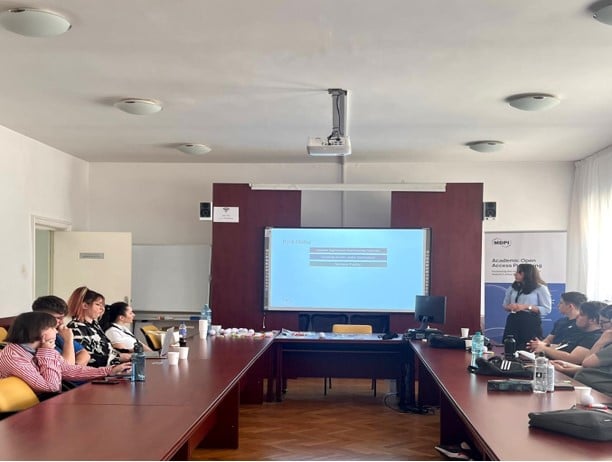
Celebrating its 20th anniversary this year, the International Conference “Students for Students” has long been a gathering place for undergraduate and postgraduate students of all nationalities to present their work and exchange ideas with each other. This year’s conference was held on 18 April 2024, with MDPI Romania contributing an author training session called The World of Open Access. Key speakers included Dr. Norbert Kiss from MDPI Romania and Prof. Dragos Horvath from Strasbourg University. Dr. Kiss discussed the history of open access, differences between open access publishing and traditional publishing, and implications for open access in the future. Attendees expressed keen interest in the subject, approaching Dr. Kiss with questions about academic publishing as well as his career trajectory.
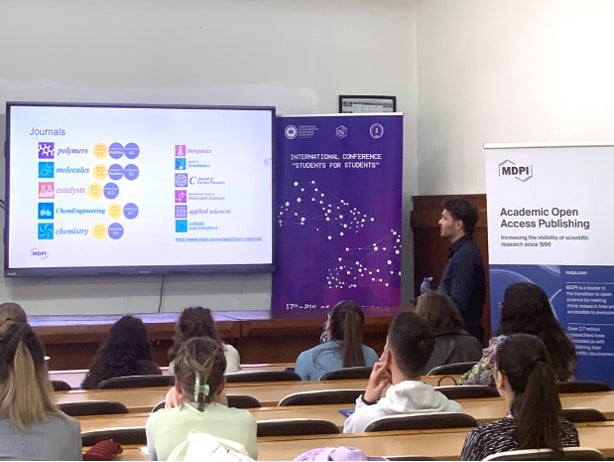
Most recently, on 26 April 2024, MDPI Romania sponsored the National Symposium of Students from Geology and Geophysics Faculties. The AAPG Students Chapter at the Babes-Bolyai University organized this event as an opportunity for geology students from all Romanian universities to present their work and confer with other researchers. Dr. Kiss gave his lecture The World of Open Access at this event as well.
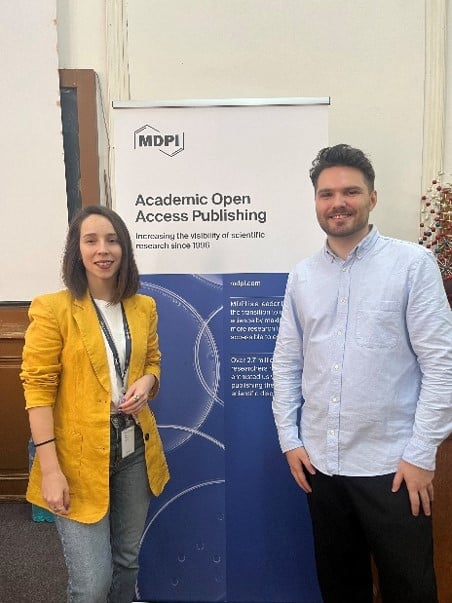
MDPI is thankful to all the participants, speakers, and organizers who attended these events. Through their enthusiasm and dedication, these events were great successes.
13 May 2024
Meet Us at the 34th CCS Congress, 15–18 June 2024, Guangzhou, China

MDPI will attend the 34th CCS Congress, which will be held in Guangzhou, Guangdong Province, China, from 15 to 18 June 2024. Registration for the event opens on 14 June.
This annual congress is hosted by the Chinese Chemical Society (CCS). With the support and active participation of chemists across the country, the annual academic conference of the Chinese Chemical Society has continued to expand in scale and influence and has become a comprehensive academic exchange platform with the most comprehensive categories, the largest scale, and the highest level in chemistry and related fields. The theme of the 34th CCS Congress is “Toward Higher Quality Chemistry Research”. It has established 70 academic branches. The forms of academic exchange include conference plenary reports (PL), keynote reports (KN), invited reports (I), oral reports (O), flash reports (F), and poster reports (P). The annual meeting collects academic papers (abstracts) from chemists. Workers in scientific research, teaching, and industry in chemistry and related fields are welcome to submit papers and actively participate in the meeting.
A series of colorful forums, continuing education, and other activities will be held simultaneously during the annual meeting. An exhibition will also be held, inviting the support and active participation of relevant universities and research institutes, enterprises, book publishing, and academic journals.
The following MDPI journals will be represented at the conference:
- Molecules;
- International Journal of Molecular Sciences;
- Polymers;
- Biomedicines;
- Inorganics;
- Processes;
- Symmetry;
- Separations;
- Membranes;
- Materials;
- Reactions;
- Chemistry;
- Compounds;
- Biomolecules;
- Sustainable Chemistry;
- Chemosensors;
- Applied Sciences.
If you are planning on attending this conference, please do not hesitate to stop by our booth #B37 and start a conversation with us. Our delegates look forward to meeting you in person and answering any questions that you may have. For more information about the conference, please visit the following website: https://www.chemsoc.org.cn/meeting/34th/.
9 May 2024
Meet Us at the 2024 American Society for Microbiology Annual Meeting (ASM Microbe 2024), 13–17 June 2024, Atlanta, GA, USA

The 2024 American Society for Microbiology Annual Meeting (ASM Microbe 2024) will be held in Atlanta, GA, USA, from 13 to 17 June 2024. This annual meeting is the largest gathering of microbiologists in the world, and it is expected that nearly 8,000 professionals from all over the world will attend the meeting. Founded in 1899, the American Society for Microbiology (ASM) is the oldest and largest single life science society in the world, consisting of more than 50,000 scientists and health professionals, of which more than one-third of the members are from countries and regions outside the United States. The mission of the American Society for Microbiology is to promote and advance the science of microbiology.
The following MDPI journals will be represented:
- Microorganisms;
- JoF;
- Vaccines;
- Antibiotics;
- CIMB;
- Fermentation;
- IJMS;
- Life;
- Phycology;
- Applied Microbiology;
- Biomolecules;
- Metabolites;
- Microbiology Research;
- MPs.
If you are attending this conference, please chat with us. Our delegates look forward to meeting you in person and answering any questions you may have. For more information about the conference, please visit the following website: https://asm.org/Events/ASM-Microbe/Home.
2 May 2024
MDPI Insights: The CEO's Letter #11 - 2023 Annual Report, MDPI Awards, STM

Welcome to the MDPI Insights: The CEO's Letter.
In these monthly letters, I will showcase two key aspects of our work at MDPI: our commitment to empowering researchers and our determination to facilitating open scientific exchange.
Opening Thoughts

2023 Annual Report
This is an exciting time of year at MDPI, as we have just released our annual report 2023, recapping the past year and sharing the progress and changes that took place during it.

Stefan Tochev (CEO, MDPI)
Reflecting on 2023, I can't help but think of the changes that have occurred not only at MDPI but also within our industry as a whole. In light of this, I’m reminded that change is the only constant, and that for a publishing enterprise that has experienced rapid growth, adapting to change becomes not only a necessity but also a catalyst for sustained success.
Looking back on the significant ground we covered in 2023, I am pleased to report that the year was marked by a rise in paper submissions, along with a range of initiatives aimed at improving our internal processes and delivering top services to our scientists.
2023 Top-line MDPI Numbers
An important priority for 2023 was to strengthen our editorial policies. Despite a notable increase in the number of papers submitted from 603,000 to 655,000 (+8.6%), there was a decrease in the number of papers published from 303,000 to 285,000 (-5.9%), consistent with the overall trend in the scholarly publishing market. MDPI’s market share in gold open access articles published reached 17% in 2023 (according to Dimensions data).
2023 Open Access Numbers
For over two decades, MDPI has been at the forefront of reshaping the academic publishing landscape, with OA surpassing subscription-based publishing in 2020. This trajectory is deeply rooted in our history and reflects our unwavering commitment to, and vision for, an open future. This momentum continued in 2023, with 39% of the 4.16 million articles and reviews published as gold full-OA, 15% as gold hybrid-OA, 8% as bronze-OA, and 3% as green-OA, relative to 35% behind a paywall. In terms of gold OA (full or hybrid) articles and reviews published, MDPI leads the way in terms of total articles published in 2023.
MDPI is the trusted and preferred OA publisher for the scholarly community
However, in 2023, we saw a downward trend in publication numbers compared to 2022. This trend was also seen in total OA publications. While the number of submissions increased, the decline in MDPI publications can be attributed to several factors, such as improved scrutiny in our peer-review process, including the evaluation of content scope and higher rejection rates, and a post-pandemic decrease in research related to COVID-19 papers.
Download 2023 MDPI Annual Report.
Access 2023 Digital Report.
Impactful Research

Recognizing Scholars – MDPI Awards
MDPI is committed to empowering young researchers as they embark on their careers. In 2023, our journals hosted a total of 400 awards, receiving 8,839 applications and nominations. The evaluation committees selected 959 winners, with the total budget for these awards amounting to CHF 546,500.
For more information about MDPI awards, applications, and winners, please click here
The following awards recognize scholars and the impact of their research, including Young Investigator Awards, Best PhD Thesis Awards, and Travel Awards for junior researchers.
MDPI Awards – The following awards require an application or a nomination.
Young Investigator Award (CHF 1000–2000 for each winner)
This award acknowledges the achievements of young investigators in research areas relevant to the journal’s scope. Candidates must have received their PhD no more than 10 years prior to the award announcement date and must be nominated.
Best PhD Thesis Award (CHF 500–800 for each winner)
This award recognizes young scholars who have completed outstanding PhD theses in research areas relevant to the journal’s scope. It aims to encourage them to continue their excellent work and make further contributions to their field.
Travel Award (CHF 500–800 for each winner)
This award encourages junior scientists to present their latest research at academic conferences relevant to the journal’s scope, thereby increasing their impact.
Distinguished Scholars
Additionally, 220 awards were granted to the most distinguished authors and reviewers in our journals through Best Paper Awards and Outstanding Reviewer Awards. The following awards are selected by the editorial staff of the journal and do not require an application or a nomination. They exemplify the excellent contributions made by our authors, reviewers, and editors.
These awards exemplify the excellent contributions made by our authors, reviewers, and editors
Best Paper Award (CHF 200–500 for each winner)
This award is granted annually to highlight publications of high quality, scientific significance, and extensive influence.
Outstanding Reviewer Award (CHF 500 for partial winners)
This award is given annually to recognize reviewers who generously contribute their time to reviewing papers and demonstrate thoroughness, professionalism, and timeliness in their reviews.
MDPI also offers awards for specific topics in various research fields:
Carbon Neutrality Award (CHF 500–800 for each winner)
Sponsored by MDPI journal Sustainability, this award recognizes applicants who have made exceptional academic or societal contributions to carbon neutrality, either in general or in relation to a specific carbon-neutrality-related issue.
Intelligent Manufacturing Award (CHF 500–800 for each winner)
Administered by MDPI journal Machines, this award is presented to an individual who has made outstanding academic or societal contributions to the field of intelligent manufacturing.
Granted: World Sustainability Awards
Inside MDPI

MDPI Opens Office in Seoul, Korea and Appoints Claude Seo as Office Manager
As CEO of the world’s leading OA publisher, I am pleased to announce the official opening of our Korean branch office. With this addition, MDPI now operates 21 offices in 12 countries worldwide, improving on our position as a truly global publisher. This expansion represents more than just an increase in our physical footprint; it is a pivotal step in our ongoing commitment to making scientific knowledge more accessible across the globe.
MDPI now operates 21 offices in 12 countries worldwide, improving on our position as a truly global publisher

Claude Seo (MDPI Korea Office Manager, Seoul)
Claude Seo, who has over 15 years of experience in the academic publishing industry, has been appointed as the Office Manager of the Seoul office. The launch of our Seoul office allows us to better support the Korean scientific community and to further promote the publication of OA journals in the region.
Reflecting on his role, Claude shared that he is:
“Delighted to have been entrusted with this position within MDPI, the no. 1 scholarly OA publisher. As we establish our presence in Korea, we are dedicated to integrating ourselves into the local community and contributing to its vibrant culture. Our commitment goes beyond business growth; it is about creating a more informed and innovative society by embracing and promoting diversity within the scientific community.”
Sungkyunkwan University Joins MDPI’s Institutional Open Access Program
Additionally, I am pleased to share that Sungkyunkwan University has joined MDPI’s Institutional Open Access Program (IOAP). This program offers free access to MDP’s online submission system for institutions and provides APC discounts to affiliated authors. Thirteen major Korean universities, including Sungkyunkwan University, Kyunghee University, Chung-Ang University, and the Catholic University of Korea, have adopted IOAP in Korea.
Learn more about MDPI’s collaboration in Korea in my previous CEO Letter, in which I recap our visit to Seoul, South Korea.
Coming Together for Science

4th MMCS: Harnessing the Power of New Drug Modalities
Our conference team successfully managed the 4th Molecules Medicinal Chemistry Symposium, held from 24–26 April in Barcelona, Spain. It was chaired by Prof. Dr. Diego Muñoz-Torrero from the Institute of Biomedicine (IBUB), University of Barcelona, Spain, and Prof. Dr. Simona Collina from the University of Pavia, Italy. In total, there were 84 accepted abstracts and 102 conference attendees from 22 different countries.
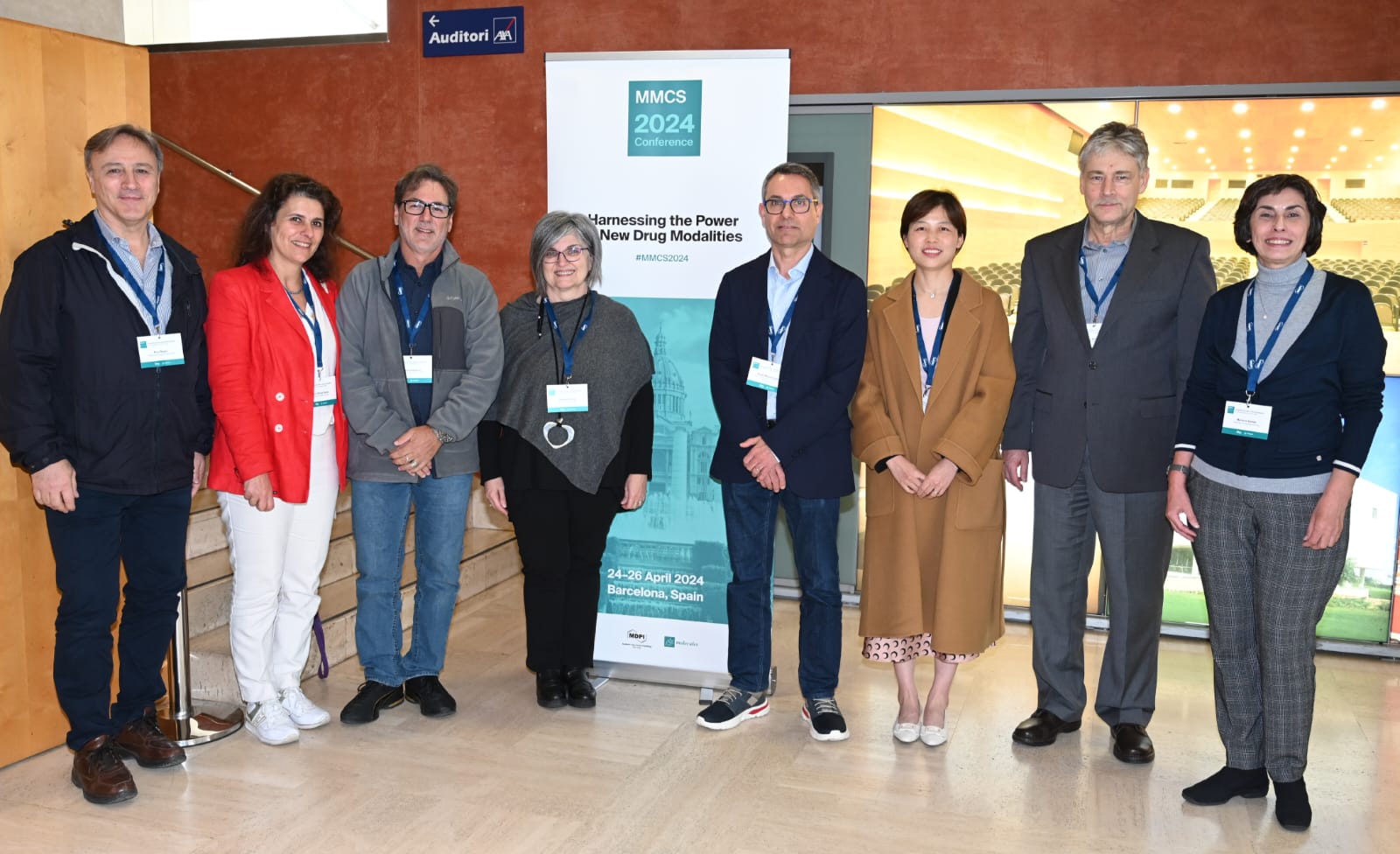
From left to right: Prof. Dr. Rino Ragno (Scientific Committee), Dr. Maria Emilia Sousa (Scientific Committee), Prof. Dr. Claudio Viegas Jr. (Scientific Committee), Prof. Dr. Simona Collina (Chair), Prof. Dr. Diego Muñoz-Torrero (Chair), Alvina Wu (Managing Editor, MDPI), Prof. Dr. Roman Dembinski (Scientific Committee), Prof. Dr. Mariana Spetea (Scientific Committee).
The event comprised 12 Invited Speakers, 35 Selected Talks, 10 Flash Poster Presentations, and 39 Posters. The overarching topic of the conference was the impact of the emergence of new drug modalities on drug discovery, with thematic sessions covering topics such as photoactivatable drugs, candidates targeting RNA and epigenetic targets, covalent modifiers, and the development of new anti-cancer agents, among other medicinal chemistry projects.
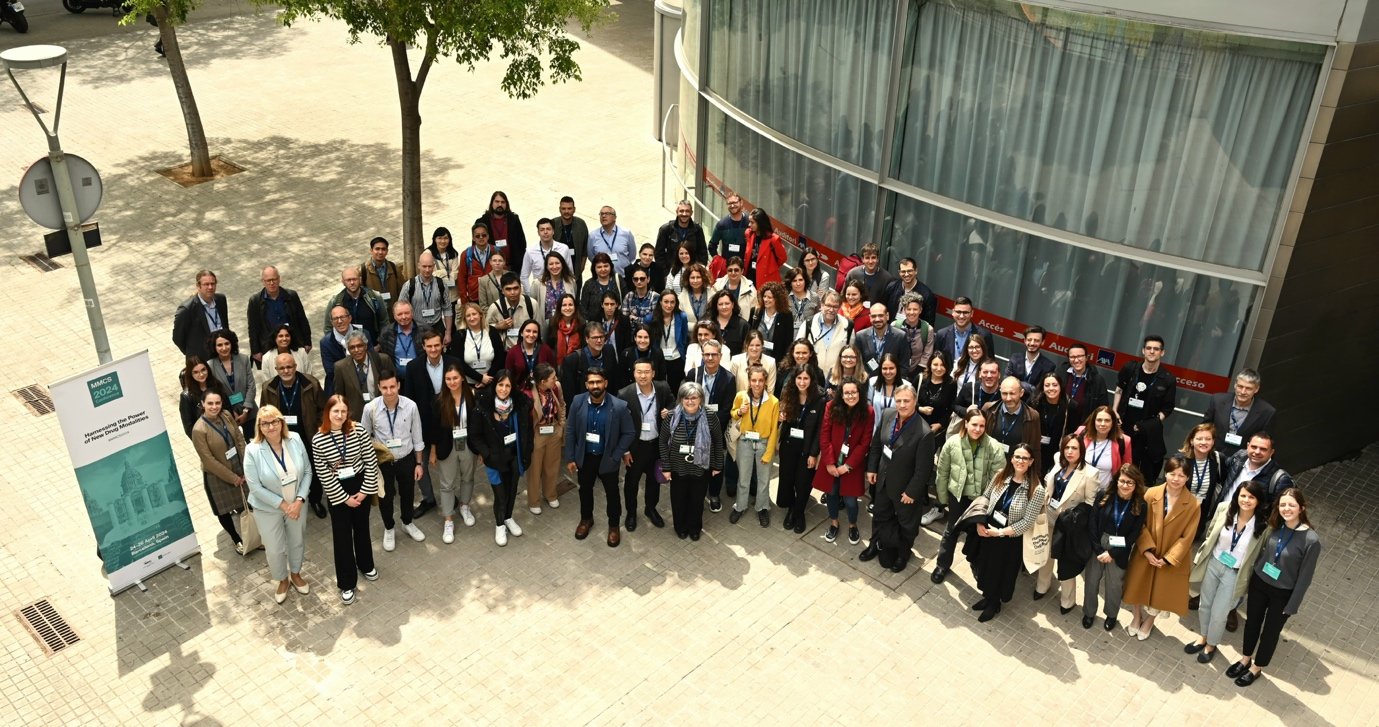
We are pleased to have received feedback from attendees highlighting the professional approach of the conference chairs and participants, the high quality of the talks, and the overall outstanding organization on the part of the MDPI conference team.
Thank you to the conference sponsors, Fluorochem and IBUB, and to our partnering societies, The Spanish Society for Biochemistry and Molecular Biology (SEBBM), and the Spanish Society of Medicinal Chemistry (SEQT).
Upcoming In-Person Event
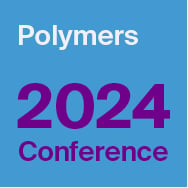
28–31 May, 2024
Polymers 2024 – Polymers for a Safe and Sustainable Future
Location: Athens, Greece
Conference Chairs: Prof. Dr. Dimitrios Bikiaris, Prof. Dr. Konstantinos Triantafyllidis, Dr. Ioanna Deligkiozi
We look forward to welcoming experts Prof. Damià Barceló, Prof. Minna Hakkareinen, and Prof. Armando J. D. Silvestre to this event.
Find more upcoming MDPI events here.
Organize Your Event with MDPI’s Sciforum
Sciforum is MDPI’s platform dedicated to the organization of scientific events. In line with our mission to promote science, Sciforum supports scholars, societies, research networks, and universities at all stages of organizing in-person events, virtual events and webinars. Our platforms are efficient, user-friendly, and cost-effective. We handle all steps related to event management. Contact us for details.
Closing Thoughts
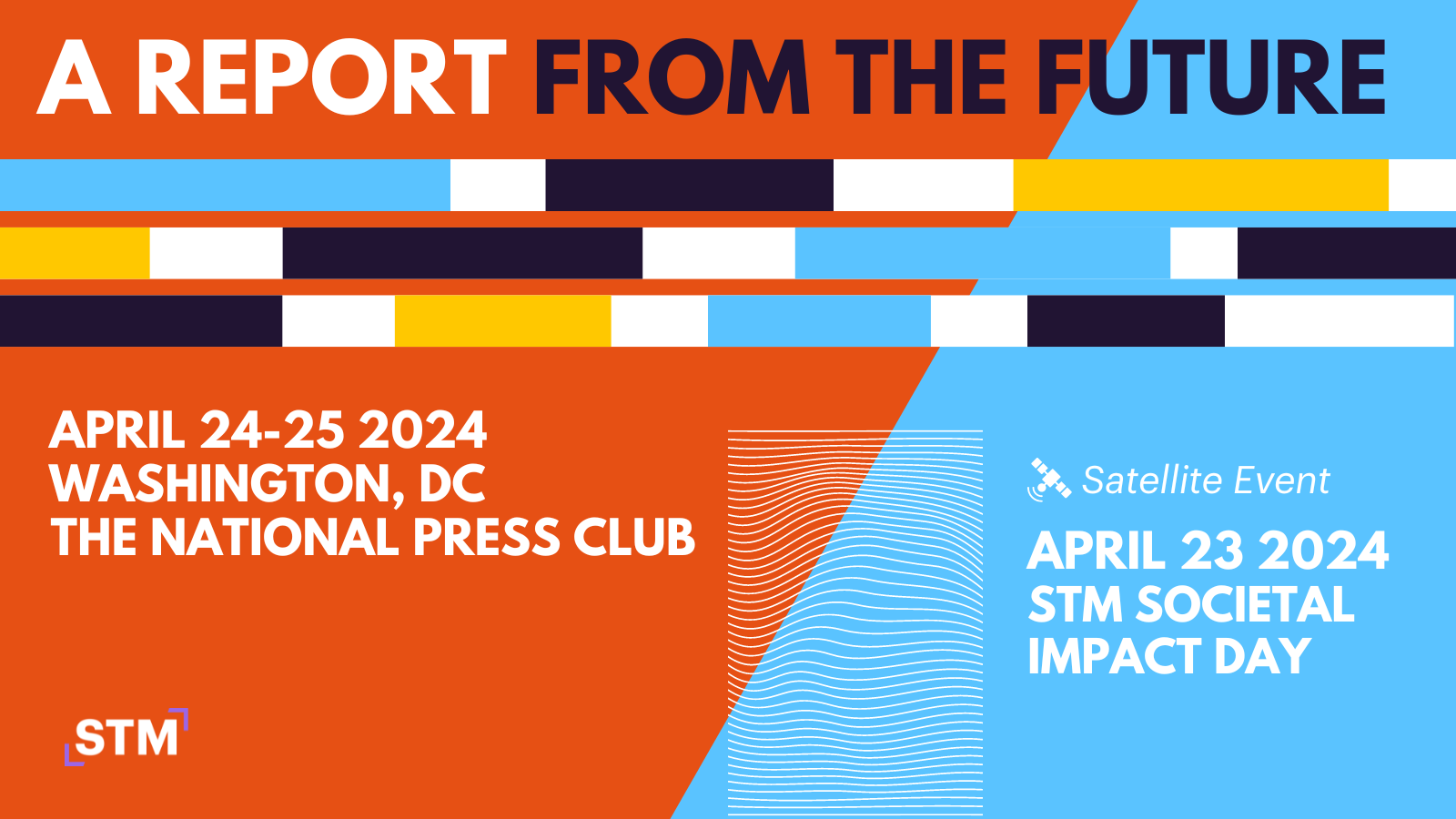
A Report from the Future – STM US Annual Conference 2024
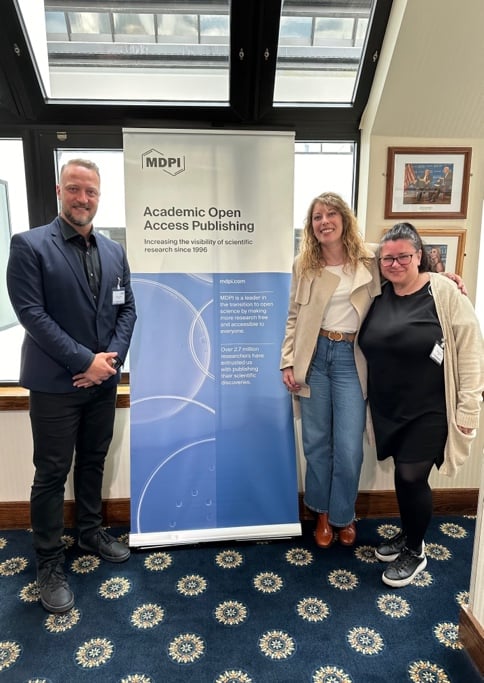
Stefan Tochev (CEO, MDPI), Dr. Giulia Stefenelli and Dr. Ioana Craciun from MDPI’s Scientific Office Board.
MDPI has for a long time been a sponsor of the STM Annual Conferences, held yearly in the US and Frankfurt, and is a trusted partner and supporter of the STM organization. While I have attended the Frankfurt conference for the past three years, this was my first time visiting the Washington, DC session, and I am glad I did.
Although it was a brief trip, I greatly appreciated the opportunity to attend in the company of my colleagues Dr. Giulia Stefenelli and Dr. Ioana Craciun from MDPI’s Scientific Office Board. They always help map some of the new industry trends against MDPI’s operational framework and guidelines. It’s a great group for kicking ideas back and forth on what we can apply at MDPI.
In my experience, STM never fails to deliver. It’s always a great conference for reconnecting with fellow publishers, industry friends, and vendors. As usual, STM this year curated a diverse range of speakers and panels, who proferred valuable knowledge and insights from outside our industry, delivering thought-provoking insights into our field. An example of this was the ‘Trust Panel’ session, which included Alan Schiffres (Managing Director, InfoLinx), who shared a number of the learnings about fraud and risk management from his 40 years in financial services, to help address some of the challenges we are currently facing in the area of publishing integrity.
Launch of STM Trends 2028 Panel
I particularly enjoyed the ‘Launch of STM Trends 2028 Panel’, which presented a report focused on the integration of humans and machines in scholarly publishing. The session highlighted themes such as AI, digitization, and the evolving research ecosystem. The report envisions a future where technology blurs the lines between human and machine involvement in research processes, with significant implications for trust, reputation, and equity. While this presents opportunities for connectivity and knowledge dissemination, it also poses challenges such as disinformation, fragmentation, and geopolitical tensions. We must rely on a wise combination of technology and human agency to navigate this complex landscape and will have to carefully examine its potential impacts on communication and scholarly publishing.
MDPI has joined the STM Integrity Hub. Click here to learn more.
While every presenter brought their own knowledge and personal touch, I was particularly pleased to encounter new speakers such as Heather Whitney (Research Assistant Professor, Radiology, University of Chicago) and Igor Grossmann (Professor of Psychology, University of Waterloo, Canada). Having studied Sociology at the University of Guelph, I have a soft spot for fellow social scientists from Canada, and I was very impressed by Igor’s presentation on ‘The Social Scientist: A View from the Future’ and his participation in the panel session ‘The Future Beyond the Article,’ which was one of my favourites from the conference, given the diversity of perspectives from the panel speakers.
Memorial Park in Washington, DC

On a personal note, this was my first-time visiting Washington, DC, and I’m glad we took an afternoon to visit the Memorial Park, with its incredible monuments to figures ranging from Martin Luther King, Jr. to Abraham Lincoln. The magnitude of the monuments is deeply impressive. I particularly appreciated the Thomas Jefferson memorial and the following quote, which I think speaks to the importance of change and adaptation. It’s something we can apply not only in our industry but also in our personal lives.
"I am not an advocate for frequent changes in laws and constitutions, but laws and institutions must go hand in hand with the progress of the human mind. As that becomes more developed, more enlightened, as new discoveries are made, new truths discovered and manners and opinions change, with the change of circumstances, institutions must advance also to keep pace with the times. We might as well require a man to wear still the coat which fitted him when a boy as a civilized society to remain ever under the regimen of their barbarous ancestors."
– Excerpted from a letter to Samuel Kercheval, July 12, 1816.
Chief Executive Officer
MDPI AG
30 April 2024
MDPI Opens Office in Seoul, Korea and Appoints Claude Seo as Office Manager

MDPI, the leading Open Access (OA) publisher, announced on Monday that it opened its Korean branch office on 29th April 2024. With this addition, MDPI now operates 21 offices in 12 countries worldwide. Claude Seo, with over 20 years of experience in the academic journal publishing industry, including Nature Publishing Group (NPG), has been appointed as the Office Manager of the Seoul office.
With the establishment of a Seoul office, MDPI aims to actively support Korea scientific communities to further promote the publication of OA journals in the region. As of the end of 2023, Korea ranked sixth worldwide in both submissions and publications of MDPI research papers. MDPI is the number one OA publisher in Korea.
Sungkyunkwan University Joins MDPI’s Institutional Open Access Program
In addition, MDPI announced that Sungkyunkwan University joined MDPI’s Institutional Open Access Program (IOAP). This program offers free access to MDPI online submission system for the institutions and APC discounts to affiliated authors. Thirteen major Korean universities, including Sungkyunkwan University, Kyung Hee University, Chung-Ang University and Catholic University of Korea, have adopted IOAP in Korea.
OA aims to break down barriers that have traditionally restricted access to science, ensuring that knowledge is available to all, regardless of financial situation or institutional affiliations. Authors, academia, and scientific communities are rapidly moving toward OA. MDPI has been at the forefront of reshaping the academic publishing landscape, with OA surpassing subscription-based publishing in 2020.
MDPI CEO Visits Seoul, Korea
In March, Stefan Tochev, Chief Executive Officer (CEO) of MDPI, visited Korea and met with various stakeholders including government agencies, research and academic institutions, universities. During his visit, Stefan highlighted that MDPI continues to pave the way for a world where science is accessible to all, supporting a global community of inclusive innovation and collaborative solutions.
Stefan expressed excitement about the new venture, stating, "Today marks a significant milestone for MDPI as we celebrate the opening of our new office in Seoul, Korea. This expansion is more than just an increase in our physical footprint, it is a pivotal step in our ongoing commitment to making scientific knowledge more accessible, participatory, and inclusive across the globe."
Claude Seo, reflecting on his new role, commented, "I am delighted to have been offered this position of trust within MDPI, the no. 1 scholarly OA publisher. As we establish our presence in Korea, we are dedicated to integrating into the local community and contributing to its vibrant culture. Our commitment goes beyond business growth; it is about creating a more informed and innovative society by embracing and promoting diversity within the scientific community.”
For further inquiries, please contact our Seoul office directly.
About MDPI
A pioneer in scholarly, open access publishing, MDPI has supported academic communities since 1996. MDPI is leading the transition to open science by making more research free and accessible to everyone. Over 3.3 million researchers have entrusted MDPI with publishing their scientific discoveries. MDPI’s editorial process is bolstered by a network of dedicated reviewers, a team of 6000 diligent, well-trained staff members, and an in-house article submission platform that was designed to ensure efficient processes within its 430 fully OA titles.
10 April 2024
Meet Us at the 48th FEBS Congress, 29 June–3 July 2024, Milan, Italy

Conference: The 48th FEBS Congress
Date: 29 June–3 July 2024
Location: Milan, Italy
MDPI will be attending the 48th FEBS Congress at Booth #30, and we welcome researchers from different backgrounds to visit us and share their latest ideas.
The Italian Society of Biochemistry and Molecular Biology (SIB), founded in 1951, will host the event. The 48th FEBS Congress—“Mining biochemistry for human health and well-being”—welcomes scientists from Europe and other parts of the world.
The 48th FEBS Congress will present a broad-spectrum and ground-breaking scientific program in a fruitful collaboration with FEBS journals and representatives from FEBS Constituent Societies. The SIB and biochemical community are focusing on human health and well-being through molecular and cellular science approaches; this is a key social issue amid ongoing global transitions. Besides presenting the latest and emerging developments in biochemical sciences, the Congress will include dedicated education-oriented sessions, symposia organized by young biochemists, and biochemistry-related economic discussions. Industry representatives will also give presentations on the latest advances in commercial instrumentation.
The following MDPI journals will be represented:
- Biomedicines;
- IJMS;
- JMP;
- Antioxidants;
- Applied Biosciences;
- BioMedInformatics;
- Biomolecules;
- Dietetics;
- Life;
- Medical Sciences;
- Molecules;
- Biology;
- Cancers;
- CIMB;
- Pharmaceutics.
If you plan to attend this conference, please start an online conversation with us. Our delegates look forward to meeting you in person and answering your questions. For more information about the conference, please visit the following website: https://2024.febscongress.org/.
2 April 2024
MDPI Insights: The CEO's Letter #10 - South Korea, IWD, U2A, Japan

Welcome to the MDPI Insights: The CEO's Letter.
In these monthly letters, I will showcase two key aspects of our work at MDPI: our commitment to empowering researchers and our determination to facilitating open scientific exchange.
Opening Thoughts

Left to right: Dr. Jisuk Kang (Scientific Officer, MDPI), Stefan Tochev (CEO, MDPI), and Dr. Giulia Stefenelli (Chair of Scientific Office Board, MDPI), during media meetings at Prain Agency office in Seoul, South Korea.
Visit to Seoul, South Korea
During my recent visit to South Korea, I had the privilege of meeting various stakeholders, including representatives of government, research institutions, and academia, to understand their needs and communicate MDPI’s commitment to accessible science. Accompanied by my colleagues Dr. Giulia Stefenelli and Dr. Jisuk Kang, I engaged with the Korean scientific community, which is increasingly embracing open access (OA).
As the leading OA publisher in South Korea, MDPI is trusted by local authors and in 2023 enjoyed an approximately 30% share of the OA market. South Korea ranks sixth globally for MDPI in terms of research papers submitted and published.
MDPI and South Korea by Numbers
As at 30 March, over 76,000 MDPI articles have been authored by individuals affiliated with Korean institutions. We have over 1,800 active editorial board members (EBMs) from South Korea, with more than 880 EBMs having an H-index between 26 and 50, including 10 serving as Chief Editors.
“South Korea is the sixth-largest contributor to our total publications”
Over the past five years (2019–2023), nearly 120,000 authors affiliated with South Korean institutes have published with MDPI. Specifically in 2023, we received approximately 25,000 submissions from South Korean authors, publishing close to 13,000 articles, resulting in a rejection rate of 47.4%, which is not far below MDPI’s overall rejection rate of 56.4% in 2023.
Institutional Partnerships with South Korea
I am pleased to share that MDPI has more than 825 institutional partnerships worldwide, with 12 in South Korea, including Kyunghee University, Chung-Ang University, and Inha University, among others.

Left to right: Dr. Jisuk Kang (Scientific Officer, MDPI), Dr. Giulia Stefenelli (Chair of Scientific Office Board, MDPI), and Stefan Tochev (CEO, MDPI) fielding media questions at Prain PR Agency office in Seoul, South Korea.
Over the past three years (2021–2023), we have had some of the most prestigious academic universities ranked among the top 10 Korean institutions publishing with MDPI. Seoul National University had the highest number of publications with MDPI during those three years, publishing nearly 6,000 papers. Universities such as Korea University and Yonsei University also rank among the top 10 Korean institutions publishing with MDPI.
MDPI Hosts Seminar for Academia and Media
As the world’s leading OA publisher, MDPI is actively democratizing science. This is reflected in the seminars we hosted on 21 March to address questions about our editorial processes and ethical standards. The visit garnered media coverage, reflecting our mission to providing high-quality services and fostering open dialogue in the community.
“MDPI is actively democratizing science”
MDPI in the News

Stefan Tochev (CEO, MDPI) leading a seminar on OA and MDPI at Prain PR Agency office in Seoul, South Korea.
Media coverage generated by our visit to Seoul included the following stories:
“Open access is an unstoppable trend…it will lead the development of the knowledge ecosystem.”
I greatly appreciate the contributions of everyone who took the time to meet with us, share their stories, and hold us accountable for continuing to provide high-quality publishing services while identifying areas for improvement. I am also excited to announce that we have opened an MDPI office in Seoul and will release a press release on MDPI.com, with details, by the end April 2024. The purpose of the office is to establish a local presence to connect with and support the South Korean academic community through institutional partnerships, conferences, author workshops, stakeholder communications, and more.
Impactful Research

Featured Articles on Women’s Leadership and Healthcare
In celebration of International Women’s Day (8 March 2024), MDPI curated a collection of research articles on various topics, including women’s leadership, reproductive health, preventive healthcare, and a selection of articles from our journal Women.
Women’s Leadership
- Women Entrepreneurship and Sustainable Development: Bibliometric Analysis and Emerging Research Trends
Sustainability 2022, 14, 9160. https://doi.org/10.3390/su14159160 - Refugee Women Business Mentors: New Evidence for Women’s Empowerment
Sustainability 2022, 14, 9154. https://doi.org/10.3390/su14159154 - Women and Leadership in Higher Education: A Systematic Review
Soc. Sci. 2023, 12, 555. https://doi.org/10.3390/socsci12100555 - Understanding Needs and Potentials for Gender-Balanced Empowerment and Leadership in Climate Change Adaptation and Mitigation in Africa
Sustainability 2022, 14, 9410. https://doi.org/10.3390/su14159410 - Challenges Women Experience in Leadership Careers: An Integrative Review
Merits 2023, 3, 366-389. https://doi.org/10.3390/merits3020021
Women’s Reproductive Health
- Recreational Female Athletes’ Understanding of and Perceived Impact of the Menstrual Cycle on Physical Performance, Mood, and Sleeping Behaviour
Women 2023, 3, 445-456. https://doi.org/10.3390/women3030034 - Difficulties in Adaptation of the Mother and Newborn via Cesarean Section versus Natural Birth—A Narrative Review
Life 2023, 13, 300. https://doi.org/10.3390/life13020300 - The Main Theories on the Pathogenesis of Endometriosis
Int. J. Mol. Sci. 2023, 24, 4254. https://doi.org/10.3390/ijms24054254
Women’s Preventive Healthcare
- Insulin Metabolism in Polycystic Ovary Syndrome: Secretion, Signaling, and Clearance
Int. J. Mol. Sci. 2023, 24, 3140. https://doi.org/10.3390/ijms24043140 - Assessing Barriers Encountered by Women in Cervical Cancer Screening and Follow-Up Care in Urban Bolivia, Cochabamba
Healthcare 2022, 10, 1604. https://doi.org/10.3390/healthcare10091604 - Updates on HPV Vaccination
Diagnostics 2023, 13, 243. https://doi.org/10.3390/diagnostics13020243
Featured Articles in MDPI Journal Women
Below are a few articles from Women, our journal focused on women’s health, the social determinants of health, and the healthcare system that serves women. The aim of Women is to encourage academics to publish their experimental and theoretical results in detail, to aid reproducibility, and in an engaging style, to aid comprehensibility.
- Premenstrual Syndrome and Exercise: A Narrative Review
Women 2023, 3, 348-364. https://doi.org/10.3390/women3020026 - Increasing Awareness of the Human Papillomavirus (HPV) Vaccine for Women 18–45 Years of Age
Women 2023, 3, 365-373. https://doi.org/10.3390/women3030027 - Addressing Women’s Needs with Human Immunodeficiency Virus (HIV) and Enhancing the Visibility of Pharmacists in the Public Health Arena
Women 2022, 2, 346-352. https://doi.org/10.3390/women2040032
Inside MDPI

Championing Women’s Healthcare and Access to Healthcare Information
MDPI colleagues from our offices joined in celebrating #IWD2024. In doing so, we emphasized key missions that encompass:
- Empowering women to assume leadership and decision-making roles in both business and science.
- Helping women and girls make informed decisions about their health.
- Recruiting and developing female talent and fostering inclusive workplace environments.
“We are thrilled to recognize the accomplishments of women scientists”
I am proud to see our colleagues enthusiastically supporting the International Women’s Day call to ‘Inspire Inclusion!’ The heart-hands in the collage below symbolize our appreciation of the achievements of women researchers and the recognition of the trailblazers who have courageously made a mark on societies past and present.

We are thrilled to recognize the accomplishments of women scientists through our many MDPI awards and by highlighting success stories. As inspirational figures, female scientists are paving the way for the next generation of women aspiring to pursue careers in engineering, life sciences, computing, and various other STEM fields.
“I consider myself lucky because I work with incredibly talented women who inspire me every day.”
– Dr. Alessandra Pasut, Winner of MDPI's ‘Biology 2023 Young Investigator Award’
“It’s really important to find a supportive and enabling environment in which to do your science; it would have a big impact on you as a person and on your scientific outputs.”
– Dr. Rhea Longley, Winner of the ‘Pathogens 2023 Young Investigator Award’
Open-access publishing, in particular, allows early-career women researchers to share their work more widely, potentially attracting mentorship opportunities and collaborations. This support is crucial for career development and advancement.
Coming Together for Science

MDPI Joins United2Act in Collective Fight to Stop Paper Mills
In my February 2024 CEO Letter, I highlighted some of our recent initiatives aimed at bolstering our commitment to research integrity, including joining the STM Integrity Hub and expanding our Research Integrity and Publication Ethics team (RIPE). Continuing our efforts in coming together for science, I am pleased to share our participation in the United2Act initiative.
The text below is taken from our official announcement:
United2Act represents an international group of stakeholders in the publishing industry committed to addressing the collective challenge posed to research integrity by paper mills.
Scientists and academic publishers have increasingly noted the alarming proliferation of paper mills, recognized as fraudulent entities seeking to manipulate the publication process for financial profit. These entities engage in fraudulent practices such as falsifying or fabricating data, selling co-authorship of fake papers, manipulating peer review, and including inappropriate citations. These actions pose a significant threat to the integrity of the scholarly record, prompting widespread concern among those involved in the academic community.
MDPI has been actively contributing to combat the undermining of the scientific record. Our editors employ a set of tools to detect potential ethical breaches within a manuscript and to tackle the issue of fake papers.
United2Act’s consensus statement is the outcome of a virtual summit held in May 2023. It involved the participation of research bodies, publishers, researchers/sleuths, universities, and publishing infrastructure from 15 countries and resulted in a Consensus Statement outlining five key areas of action for all stakeholders:
- Education and awareness
- Improve post-publication corrections
- Facilitate and organise research on paper mills
- Enable the development of trust markers
- Facilitate dialogue between stakeholders
MDPI is committed to promoting transparency and integrity in scholarly publishing and is continuing to work closely with the scientific community toward this goal.
Closing Thoughts

Left to right: Ryo Hirayama (Marketing Specialist, MDPI), Takashi Sasabe (Marketing Specialist, MDPI), Dr. Giulia Stefenelli (Chair of Scientific Office Board, MDPI), Dr. Izumi Yamamoto (Marketing Manager, MDPI), and Stefan Tochev (CEO, MDPI), at MDPI’s office in Tokyo, Japan.
Visit to Tokyo and Kyoto, Japan
In March, I had the opportunity to visit our Tokyo office and engage with stakeholders in Tokyo and Kyoto. During the visit, I also recorded a video message to welcome Japanese scholars working with MDPI and to highlight our operations in Japan.
We held meetings with Editors-in-Chief, librarians, scholars, and external consultants to gather feedback on our efforts to enhance our reputation and explore additional steps we can take in that direction. Japan's rich cultural heritage, characterized by tradition, respect, and formality, provided valuable insights into meeting the publishing needs specific to Japan.
Japan’s Open Access statistics
Over the years, we have seen a shift from subscription-only to gold OA publishing in Japan, despite the lack of an official mandate. Here are some statistics:
- 2012: 68% of articles were subscription-only, 6% were green Open Access, and 8% were gold Open Access.
- 2016: 55% of articles were subscription-only, 6% were green Open Access, and 20% were gold Open Access.
- 2022: 43% of articles were subscription-only, 7% were green Open Access, and 39% were gold Open Access.
To learn more about the history of OA in Japan as well as about future trends, please read this blog post.
“Japan is the ninth-largest contributor to our total publications”

Left to right: Stefan Tochev (CEO, MDPI), Dr. Izumi Yamamoto (Marketing Manager, MDPI), and Dr. Giulia Stefenelli (Chair of Scientific Office Board, MDPI) visiting Kyoto University in Kyoto, Japan.
MDPI and Japan by Numbers
As at 1 April, over 50,000 MDPI articles have been authored by scholars affiliated with Japanese institutions, making the country the ninth-largest contributor to our total publications. Over the past three years (2020–2023), nearly 90,000 authors affiliated with Japanese institutes have published with MDPI, and we have collaborated with over 4,600 Guest Editors from Japan.
In 2023, we published over 8,200 papers from authors associated with Japanese institutions. MDPI collaborates with 41 institutional partnerships in Japan, including the University of Tokyo, Hokkaido University, and Nagoya University. We have over 2,100 active EBMs from Japan, more than 1,050 EBMs having an H-index between 26 and 50, including 13 serving as Editors-in-Chief.
General Feedback – a side note
A general takeaway from our discussions with stakeholders from around the world is that negative perceptions of MDPI often stem from misinformation, misconceptions, or misunderstandings about MDPI and our practices. While we acknowledge our mistakes and work diligently to address them, maintaining a strong editorial procedure and robust peer-review process, I find that educating stakeholders about our how we do what we do and our ongoing improvements tends to help shift opinions.
That said, we recognize the importance of addressing individual concerns. We take feedback seriously and are continuously working to get better while not compromising the core principles that millions of authors appreciate about MDPI.
Chief Executive Officer
MDPI AG
29 March 2024
Meet Us at the 20th Annual International Conference of the Metabolomics Society (Metabolomics 2024), 16–20 June 2024, Osaka, Japan

MDPI will be attending the 20th Annual International Conference of the Metabolomics Society (Metabolomics 2024) held in Osaka, Japan, from 16 to 20 June 2024. The conference is the official annual meeting of the Metabolomics Society, and the largest metabolomics meeting worldwide. This is the third time that the conference will be held in Japan, following the 2005 and 2014 conferences held in Tsuruoka. We look forward to welcoming the metabolomics community, building strong connections, and discussing world-class research in a relaxed collegial environment. Let us build on the momentum of the incredible Niagara Falls and Valencia conferences that brought us back together in person, and make it the best meeting of 2024 together!
During this conference, MDPI will welcome researchers from different backgrounds to visit and share their latest views and research with us.
The following MDPI journals will be represented:
- Metabolites;
- Biomolecules;
- Plants;
- IJMS;
- Life;
- Cells;
- Agronomy;
- Nutrients;
- Cancers;
- CIMB;
- Genes;
- Antioxidants.
If you plan on attending this conference, feel free to stop by our booth. Our delegates look forward to meeting you in person to answer any questions you may have. For more information about the conference, please visit the following link: https://www.metabolomics2024.org/.
4 March 2024
MDPI Insights: The CEO's Letter #9 - Romania, Research Integrity, Viruses

Welcome to the MDPI Insights: The CEO's Letter.
In these monthly letters, I will showcase two key aspects of our work at MDPI: our commitment to empowering researchers and our determination to facilitating open scientific exchange.
Opening Thoughts

Reka Kovacs (Deputy Office Manager, MDPI), Stefan Tochev (CEO, MDPI), and Sandra Ana Spatariu (Office Manager, MDPI) at the MDPI office in Cluj, Romania.
MDPI’s Impact on Romania
In February, I visited our office in Cluj, Romania. I worked closely with our senior office managers and various teams, including the departments of training, marketing and conferences, as well as our journal relationship specialists, reviewing our service to the local scholarly community. During the visit, I also met with representatives from Babes-Bolyai University and the Technical University of Cluj-Napoca. Our multifunctional Romanian office plays an important role in supporting our collaborations with the local market as well as helping to meet MDPI’s overall business needs.

Feedback and strategy meeting with a group of MDPI’s Journal Relationship Specialists at the MDPI office in Cluj, Romania.
With 22,436 articles, Romania ranks as a top 20 contributing country to MDPI’s total number of papers published as at 28 February 2024. This highlights the importance of our collaboration with Romanian-affiliated authors and the growing opportunity to support their publishing needs. MDPI is one of the few academic publishers with a significant presence in Romania, boasting over 360 colleagues across our offices in Bucharest and Cluj. We are also proud to hire colleagues from local institutions to launch their careers within publishing.
Romania ranks as a top 20 contributing country.
The Numbers: 2019–2023
MDPI has seen a healthy increase in submissions from Romanian authors over the past three years, from 8,439 in 2021 to 11,866 by end of 2023, with most submissions going to journals such as Sustainability, Medicina, Diagnostics, IJMS, Applied Sciences, and JCM. From 2019 to 2023, MDPI published articles from 32,145 authors affiliated with Romanian institutions. Over those years, we have worked with Romanian Guest Editors on nearly 3,000 occasions to support their Special Issue and Topical collections.
With more than 300 Editorial Board Members from Romania, 34 appear on the board of Mathematics, 27 on Materials, 19 on Polymers, 18 on Coatings, and 16 on Molecules, while three serve as Section Editors-in-Chief (SEiC) on our journals Coatings (3.4 IF, 4.6 Citescore), Magnetochemistry (2.7 IF, 3.5 Citescore), and Chemosensors (4.2 IF, 3.9 Citescore).
Institutional Open Access Programs
Our commitment to working with institutions is evident in Romania, where we have established eight Institutional Open Access Programs (IOAP) with esteemed institutions such as the University of Bucharest, the University of Medicine and Pharmacy Cluj-Napoca, and most recently the National Institute for Laser, Plasma and Radiation Physics.
Our growth and presence in Romania are a true testament.
We also have IOAP agreements with Babes-Bolyai University and the Technical University of Cluj-Napoca, where I had the opportunity to meet senior stakeholders during my visit. Below are a few photos capturing our meeting with Prof. Radu Silaghi-Dumitrescu (Head of Faculty of Chemistry, Babes-Bolyai University) at the MDPI office in Cluj, Romania, along with a photo from our meeting with Vice Deans Nicoleta Cobarzan, Nicoleta Ilies, and Hoda Gavril, from the faculty of Civil Engineering at the Technical University of Cluj, Romania.


Our growth and presence in Romania are a true testament to the service we provide to the scholarly community and the relationships we foster in that region. We look forward to continuing to support Romanian scholars and institutions by providing a valuable and trusted experience with MDPI, the leader in open access publishing.
Impactful Research

MDPI Joins the STM Integrity Hub
MDPI has long been a supporter and partner of STM, with our involvement ranging from sponsoring and attending events to helping organize event programs. By joining the STM Integrity Hub, we aim to further our commitment to STM initiatives aimed at safeguarding the integrity of science.
“We are pleased to welcome MDPI as the 35th organisation participating in the Hub. This expansion is critical, as every new member enhances our capacity to prevent fraudulent submissions from entering the academic record.”
Joris van Rossum, Director of Research Integrity, STM
MDPI operates in full alignment with STM Integrity Hub's values of shared data and experiences. We strongly believe in collaboration and open exchange for the purposes of creating a holistic approach to support research integrity at MDPI itself and across the entire academic publishing industry. The Integrity Hub is an excellent example of how publishers can come together to jointly address industry-wide challenges related to research integrity, such as manuscripts that breach research integrity standards and paper-mills.
I look forward to our Research Integrity and Publication Ethics Team (RIPE) team immersing themselves in this initiative, exchanging information, best practices, and tools for the benefit of the entire scholarly ecosystem. We believe that ethical publishing standards should be implemented across the board, and we aim to be rigorous in our approach, addressing research integrity issues and improving the impact of published research.
Inside MDPI

MDPI Expands Research Integrity and Publication Ethics Team (RIPE)
In addition to external collaborations and joint initiatives aimed at further strengthening our commitment to research integrity, we are also enhancing our internal efforts. This includes improving our processes and guidelines and expanding our teams and departments to ensure quality assurance throughout our publishing process.
We are pleased to announce the expansion of our Research Integrity and Publication Ethics Team (RIPE) at MDPI. The RIPE team has recently welcomed new colleagues, each bringing unique skills and a personal commitment to prioritize ethical considerations in all our work.
The demand for research integrity and high ethical standards in academic publishing is steadily rising across our industry. Our expanded RIPE team will work to enhance and align our practices with industry best practices, ensuring excellence in research integrity and publication ethics.

Stefan Tochev (CEO, MDPI) introduces Dr. Tim Tait-Jamieson (Research Integrity Lead, MDPI) for his presentation on MDPI’s Retraction and Approval Process to a group of Journal Relationship Specialists at the MDPI office in Cluj, Romania: “The demand for research integrity and publication ethics is steadily rising across our industry.”
Introducing our Research Integrity and Publication Ethics Team
Led by Dr. Tim Tait-Jamieson (Research Integrity Lead), the RIPE team comprises Dr. Ivana Resanovic (Research Integrity Manager), Dr. Lavinia Rogojina (Research Integrity Manager), Ms. Diana Apodaritei (Research Integrity Specialist), Dr. Zoltan Mihaly (Research Integrity Specialist), Mr. Aleksandar Đukić (Research Integrity Specialist), Ms. Ana Stankovic (Research Integrity Specialist), and Ms. Anna Pena (Publication Ethics Assistant).
Please click here to access everything that you need to know about MDPI’s Research and Publication Ethics.
With this span of complementary roles, the RIPE team collaborates directly with journal editorial teams and works closely with various departments, including our Scientific Office Board and our Journal Relationship Specialists. The team’s primary objectives are to help prevent issues regarding research integrity and publication ethics during peer review, uphold MDPI’s ethics policies, adhere to industry standards, and resolve publication ethics and research integrity issues and complaints.
Quality Updates to Special Issues Oversight
At MDPI, we are committed to reviewing policies pertaining to the quality of research. In this blog post, Shaheena Patel (Communications Associate, MDPI), outlines two recent updates to MDPI journal processes. These updates pertain to Special Issue (SI) quality guidelines, in line with criteria provided by COPE and DOAJ. Alongside the SI updates, details regarding the new minor corrections policy introduced in 2024 are provided in the blog.
The two updates we implemented include greater oversight and the verification of Guest Editor credentials. These guidelines require that Editors-in-Chief (EiCs) and Editorial Board Members (EBMs) take responsibility for overseeing SIs.
PS. Thank you, James Butcher, for featuring this up in your 67th issue of the Journalogy newsletter.
Read more:
Coming Together for Science

Viruses 2024 – A World of Viruses
I am pleased to share the success of our MDPI conference Viruses 2024 – A World of Viruses, held 14-16 February, in Barcelona. With 240 registrations, this event brought together top scientists, researchers, and industry experts from 40 countries to share their findings on the latest developments in viral pathogenesis and immune responses.
Attendees gathered for the 5th edition of the Viruses’ conference, where we hosted influential keynote speeches from Nobel Prize laureate Dr. Charles M. Rice and ‘Distinguished Senior Virologist’ Prof. Luis Enjuanes, along with 14 invited speakers, 47 selected speakers, and nine flash poster presenters, to discuss the most significant issues in virology today.
Recap on the #Viruses2024 Conference
Take a look at the key moments from MDPI’s Viruses event and please join us in commemorating a gathering for global knowledge and cooperation. A heartfelt thank-you to all attendees; their passion and engagement played a crucial role in making this event an engaging success!
Below are calls to action from the keynote speakers encouraging collaboration and communication:
“There’s never been a better time than now to really take the power that we have both in terms of basic research and also in biotech and pharma to develop antiviral agents.” - Dr. Charles M. Rice, The Rockefeller University, New York, USA
“The collaboration between labs is absolutely essential. Improving initial detection and improving communication is a must for all of us working in science.” - Prof. Dr. Luis Enjuanes, National Center of Biotechnology (CNB-CSIC), Madrid, Spain

Our thanks go to our sponsors and partnering societies, our Viruses journal and editorial team, our Barcelona colleagues, and the social media, conference and other MDPI teams for making this event a memorable occasion. View the event gallery here.
Upcoming In-Person Event

24–26 April, 2024
4th MMCS – Harnessing the Power of New Drug Modalities
Location: Barcelona, Spain
Esteemed speakers at MMCS 2024 include Prof. Arun K. Ghosh, the mind behind the Darunavir molecule, and Prof. Paul Brennan, CSO of Alzheimer's Research UK Oxford Drug Discovery Institute.
Find more upcoming MDPI events here.
Organize Your Event with MDPI’s Sciforum
Sciforum is MDPI’s platform dedicated to the organization of scientific events. In line with our mission to promote science, Sciforum supports scholars, societies, research networks, and universities at all stages of organizing in-person events, virtual events and webinars. Our platforms are efficient, user-friendly, and cost-effective. We handle all steps related to event management. Contact us for details.
Closing Thoughts

Researcher to Reader (R2R) Conference
From 20–21 February 2024, I had the pleasure of attending the Researcher to Reader (R2R) conference in London, which MDPI has proudly sponsored over the years. The conference programme offered a variety of session formats, including workshops, panel discussions, debates, interviews, presentations, and lightning talks, with opportunities to discuss relevant topics.
We take pride in supporting the scientific community, bringing researchers across the world together to network, exchange ideas and share the latest in science and publishing. In 2023, MDPI invested close to 2 million CHF in sponsoring over 2,000 scientific and publishing-related conferences worldwide.
R2R Peer Review Innovations Workshop
I found the R2R conference to be engaging, with the workshops being particularly enjoyable. My colleague Giulia Stefenelli (Chair of Scientific Office Board) and I participated in the “Peer Review Innovations” workshop, which spanned four sessions over the two days. These sessions explored the future of peer review and how we can improve the peer review process for everyone involved. Notably, the large majority of attendees expressed their opinion that peer review, as currently practiced, requires significant improvement. Together, we collaborated on potential immediate and long-term improvements and innovative processes, aiming to create an ecosystem beneficial to all stakeholders by strengthening submission systems with the aim of reducing threats and making authors more responsible for their work. We also discussed the opportunity for academic institutions to better scrutinize the quality of the work produced and submitted to journals.
Our group comprised publishers, software providers, librarians, and more, bringing diverse perspectives to the discussions. These interactions were relevant to MDPI’s ongoing conversations, providing insights to our efforts. The session also made me appreciate that MDPI is doing well, as the group discussions included the subject of various quality checks that we have already embedded in our processes, ensuring that we keep abreast of industry standards.
The need for an optimized system to incentivize the activities of editors and reviewers was also a focus of discussion, as well as the support that reviewers need from publishers via the provision of strong reports through fixed forms, questionnaires and training.
At MDPI, we are currently auditing our reviewer program to improve reviewer recognition, guidelines, and methods for identifying suitable reviewers, while maintaining our commitment to quality and timeliness.
Congratulations to Mark Carden, Conference Director, and the R2R team for organizing a productive and successful event. PS: The break times were greatly appreciated as well!
Chief Executive Officer
MDPI AG
18 February 2024
Prof. Dr. Lukasz Kurgan and Prof. Dr. Peter E. Nielsen Appointed Editors-in-Chief of Biomolecules
We are pleased to announce that Prof. Dr. Lukasz Kurgan and Prof. Dr. Peter E. Nielsen have been appointed Editors-in-Chief of Biomolecules (ISSN: 2218-273X).
Biomolecules lies at the intersection between chemistry, biology, molecular medicine, and material science. We publish studies that involve basic research, in vitro and in vivo investigations, and pre-clinical studies that focus on the structures and functions of bioactive and biogenic substances, molecular mechanisms with biological and medical implications, and biomaterials and their applications.

Prof. Dr. Kurgan’s research is at the intersection of bioinformatics, protein science, and machine learning, focusing on the development of modern tools and resources for the high-throughput prediction and characterization of the function, structure, and intrinsic disorder of proteins. He has published well over 200 peer-reviewed articles, around 30 book chapters, and 2 books. Prof. Dr. Kurgan was elected a Fellow of the Royal Society of Biology (2023), a Member of the European Academy of Sciences and Arts (2022), and a Fellow of the American Institute for Medical and Biological Engineering (2021); he is also a Member of the Faculty Opinions in the field of bioinformatics, biomedical informatics and computational biology. He has been involved with Biomolecules since 2018, recently serving as the Section Editor-in-Chief for the “Bioinformatics and Systems Biology” Section. He is also deeply grateful to the outgoing Editor-in-Chief, Prof. Dr. Uversky, for his many years of leadership that have grown the reputation and reach of Biomolecules. He hopes to further strengthen the position of Biomolecules so that it becomes a preferred destination for high-impact research on biomolecules and bioactive and biogenic compounds.

Prof. Dr. Peter E. Nielsen has been affiliated with the University of Copenhagen since 1980, where he became a full professor in 1995. He is one of the inventors of peptide nucleic acid (PNA) (1991) and has further studied and developed this DNA mimic over the last 30 years in relation to chemistry, molecular biology, and drug discovery. Presently, his research is centered around the delivery and bioavailability of PNA and other potential gene therapeutic drugs with a strong focus on novel antimicrobial agents.
Prof. Dr. Peter E. Nielsen is the co-author of more than 400 scientific papers, reviews, and book chapters (with over 17000 citations). In addition to holding over 20 patents and patent applications, he is the editor of six books, and he serves on the advisory board of several scientific journals. He holds an M.Sc. in biochemistry, a Ph.D. in chemistry, and an honorary doctoral degree, all from the University of Copenhagen. He is the co-founder of two biotech companies in Denmark. He is a member of the EMBO (the European Molecular Biology Organization) and the Danish Academy of Technical Sciences (ATV), and he has received several national and international scientific prizes.
His aim is to make Biomolecules an even more attractive scientific journal that publishes high-quality, high-impact scientific papers on biologically relevant molecules for the benefit of global science. He recognizes that this is a self-reinforcing process.
As we welcome our new Editors-in-Chief, we express our gratitude to the outgoing Editor-in-Chief, Prof. Dr. Vladimir Uversky, for his dedication and continuing support of Biomolecules. We are confident that Prof. Dr. Lukasz Kurgan and Prof. Dr. Peter E. Nielsen will continue to offer invaluable input and support and will maintain the high standards of qualitative scientific communications in Biomolecules.
We warmly welcome Prof. Dr. Lukasz Kurgan and Prof. Dr. Peter E. Nielsen as our Editors-in-Chief and look forward to their collaboration and input for the continued success of Biomolecules.
6 February 2024
Meet Us at the 34th European Congress of Clinical Microbiology and Infectious Diseases (ECCMID 2024), 27–30 April 2024, Barcelona, Spain

MDPI will attend the 34th European Congress of Clinical Microbiology and Infectious Diseases (ECCMID 2024) as an exhibitor. This conference will be held in Barcelona, Spain, from 27 to 30 April 2024.
The following MDPI journals will be represented:
- JCM;
- JPM;
- Pathogens;
- Antibiotics;
- Diagnostics;
- Biomolecules;
- Life;
- Venereology;
- IJMS;
- Microorganisms;
- TropicalMed;
- Medical Sciences;
- CIMB.
If you are attending this conference, please feel free to start a conversation with us at our booth. Our delegates look forward to meeting you in person and answering any questions that you may have.
For more information about the conference, please visit https://www.eccmid.org/.
31 January 2024
MDPI Insights: The CEO's Letter #8 - Altmetric and Flat Fee Agreement

Welcome to the MDPI Insights: The CEO's Letter.
In these monthly letters, I will showcase two key aspects of our work at MDPI: our commitment to empowering researchers and our determination to facilitating open scientific exchange.
Opening Thoughts

MDPI and Digital Science Meeting
At MDPI, we are committed to providing our authors with the essential tools to publish, promote, and track their research. In line with this commitment, we have established a longstanding collaboration with Digital Science, a company specializing in research data and analytical insights for the research community. Our collaboration integrates their Altmetric tool, offering us and our authors the ability to track a variety of sources that monitor and report attention surrounding publications.
As part of our collaboration, we recently hosted Cathy Holland, Director of Global Publisher Business Development, and Helen Cooke, Managing Director of Publisher Sales, from Digital Science, at our MDPI headquarters in Basel, Switzerland.

Left to right: Facundo Santomé (Senior Marketing Manager, MDPI), Constanze Shelhorn (Indexing Manager, MDPI), Cathy Holland (Director of Global Publisher Business Development, Digital Science), Helen Cooke (Managing Director of Publisher Sales, Digital Science), and Stefan Tochev (CEO, MDPI) in front of MDPI headquarters in Basel, Switzerland.
During our meeting, we discussed MDPI’s publishing philosophy and explored further avenues for collaboration. We look forward to continuing our partnership with Digital Science, aiming to improve our services yet further and meet the needs of our authors more closely than ever.
What is Altmetric?
You will notice that MDPI articles feature an Altmetric score, a colourful doughnut capturing the score in the upper right corner of the article page. This score represents ‘alternative metrics,’ as distinct from traditional metrics such as Impact Factor, CiteScore, and Scimago Journal Rank.
Altmetrics complement traditional citation-based metrics by capturing online discussions related to a specific research topic. By analyzing both sets of data, we can obtain a comprehensive understanding of the attention a particular research output receives and the sources in which it is mentioned.
“Almetric provides visual insights into where research is being discussed”
Sources Tracked by Altmetric
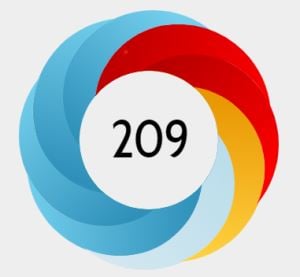
Altmetric badge showing the Altmetric score and colour-coded mention sources.
Altmetric monitors various sources, categorizing them into segments such as policy documents, peer reviews, Wikipedia, news and blogs, and social media, among other sources. Each category is identifiable by a specific colour.
The Altmetric badge provides visual insights into where the research is being discussed. A more colourful badge indicates broader mentions across multiple platforms. Such tracking enables us to gauge the extent of an article’s online dissemination, noting that increased visibility may correlate with higher citation rates.
Read more:
Impactful Research

Ten High-Altmetric Articles Published by MDPI
As at 30 January 2024, Altmetric has tracked 670,500 MDPI research outputs from MDPI, resulting in over 4.3 million mentions. This includes over 71,894 mentions in policy and patents and 294,714 mentions in news and blogs, with some achieving an Altmetric score as high as 28,754.
So, what is a good Altmetric score? There are various ways to put this score into context. You can find out more about the score in context and how to evaluate your work by this means.
Here are ten MDPI papers ranking in the top 5% of all research outputs scored by Altmetric.
|
|
“Accuracy in Wrist-Worn, Sensor-Based Measurements of Heart Rate and Energy Expenditure in a Diverse Cohort” J. Pers. Med. 2017, 7(2), 3; https://doi.org/10.3390/jpm7020003 Altmetric page: https://mdpi.altmetric.com/details/20477344 Altmetric shows that this article appeared in 253 news stories from 209 outlets including Forbes, BBC, and Fox News. |
|
|
“Daylight Saving Time and Acute Myocardial Infarction: A Meta-Analysis” J. Clin. Med. 2019, 8(3), 404; https://doi.org/10.3390/jcm8030404 Altmetric page: https://mdpi.altmetric.com/details/57654628 Altmetric shows that this article appeared in 295 news stories from 207 outlets including Forbes, The Atlantic, and New York Times. |
|
|
“The Preliminary Analysis of Cave Lion Cubs Panthera spelaea (Goldfuss, 1810) from the Permafrost of Siberia” Quaternary 2021, 4(3), 24; https://doi.org/10.3390/quat4030024 Altmetric page: https://mdpi.altmetric.com/details/111086701 Altmetric shows that this article appeared in 182 news stories from 134 outlets including CBC News, CNN, and National Geographic. |
|
|
“Not the Cat’s Meow? The Impact of Posing with Cats on Female Perceptions of Male Dateability” Animals 2020, 10(6), 1007; https://doi.org/10.3390/ani10061007 Altmetric page: https://mdpi.altmetric.com/details/83796184 Altmetric shows that this article appeared in 124 news stories from 98 outlets including VICE, CNN and The Guardian. |
|
|
“Behaviour and Welfare Impacts of Releasing Elephants from Overnight Tethers: A Zimbabwean Case Study” Animals 2022, 12(15), 1933; https://doi.org/10.3390/ani12151933 Altmetric page: https://mdpi.altmetric.com/details/133463915 Altmetric shows that this article appeared in 192 news stories from 186 outlets. |
How do I use altmetrics?
Altmetric Explorer provides a detailed step-by-step guide and instruction video for first-time users of the tool. The guide includes useful diagrams that make it easy to get started.
Sharing Research Online
For research to be tracked across different sources, Altmetric needs a research output with a persistent identifier: a DOI, ISBN, PubMed ID, handle ID, etc. When sharing research, it is important to include a link to the original research output.
|
|
“An Update on Eukaryotic Viruses Revived from Ancient Permafrost” Viruses 2023, 15(2), 564; https://doi.org/10.3390/v15020564 Altmetric page: https://mdpi.altmetric.com/details/142929875 Altmetric shows that this article appeared in 250 news stories from 180 outlets including CTV, Fox News, and CNN. |
|
|
“The Global Problem of Insufficient Sleep and Its Serious Public Health Implications” Healthcare 2019, 7(1), 1; https://doi.org/10.3390/healthcare7010001 Altmetric page: https://mdpi.altmetric.com/details/53406248 Altmetric shows that this article appeared in 252 news stories from 168 outlets including BBC, Harvard Business Review, and Forbes. |
|
|
“A Detailed Review Study on Potential Effects of Microplastics and Additives of Concern on Human Health” Int. J. Environ. Res. Public Health 2020, 17(4), 1212; https://doi.org/10.3390/ijerph17041212 Altmetric page: https://mdpi.altmetric.com/details/86529137 Altmetric shows that this article appeared in 197 news stories from 150 outlets including BBC, The Tribune, and World Economic Forum. |
|
|
“An Empirical Study of Chronic Diseases in the United States: A Visual Analytics Approach to Public Health” Int. J. Environ. Res. Public Health 2018, 15(3), 431; https://doi.org/10.3390/ijerph15030431 Altmetric page: https://mdpi.altmetric.com/details/34714141 Altmetric shows that this article appeared in 232 news stories from 149 outlets including Forbes, New York Times, and Harvard Business Review. |
|
|
“Garden Scraps: Agonistic Interactions between Hedgehogs and Sympatric Mammals in Urban Gardens” Animals 2023, 13(4), 590; https://doi.org/10.3390/ani13040590 Altmetric page: https://mdpi.altmetric.com/details/142934305 Altmetric shows that this article appeared in 172 news stories from 168 outlets including BBC. |
Inside MDPI

MDPI Annual Meeting Celebrations in China
On Thursday 25 January, over 1,300 MDPI colleagues from our two offices in Beijing gathered to kick off MDPI’s traditional ‘Annual Meetings.’ These celebrations take place in MDPI’s offices across China, including Dalian, Tianjin, Wuhan, and Nanjing.
The evenings include performances, informative talks and presentations, awards, and entertainment, providing an ideal platform to recognize our colleagues, celebrate their achievements, and set our sights on the future.
“It is essential that we stay connected and share best practices”

I sent a video congratulating everyone on their work and sharing our vision of building MDPI into the most trusted OA publisher, highlighting the roles each of us has to play in achieving that goal.
Unfortunately I could not join in person, but you may recall my recent trip, when I visited our offices in Beijing and Wuhan, which I look forward to visiting again this year.
Although our headquarters are in Basel, Switzerland, and we are expanding throughout Europe and North America, the majority of MDPI’s workforce is in China and throughout the Asia-Pacific region, including offices in Singapore, Thailand, Japan, and newly opened office in South Korea. It is essential that as a global organization, we stay connected and share best practices in order to grow collectively and continue providing the exceptional service to our authors.
The Annual Meeting is a moment to reflect and enjoy the year’s hard work and dedication.
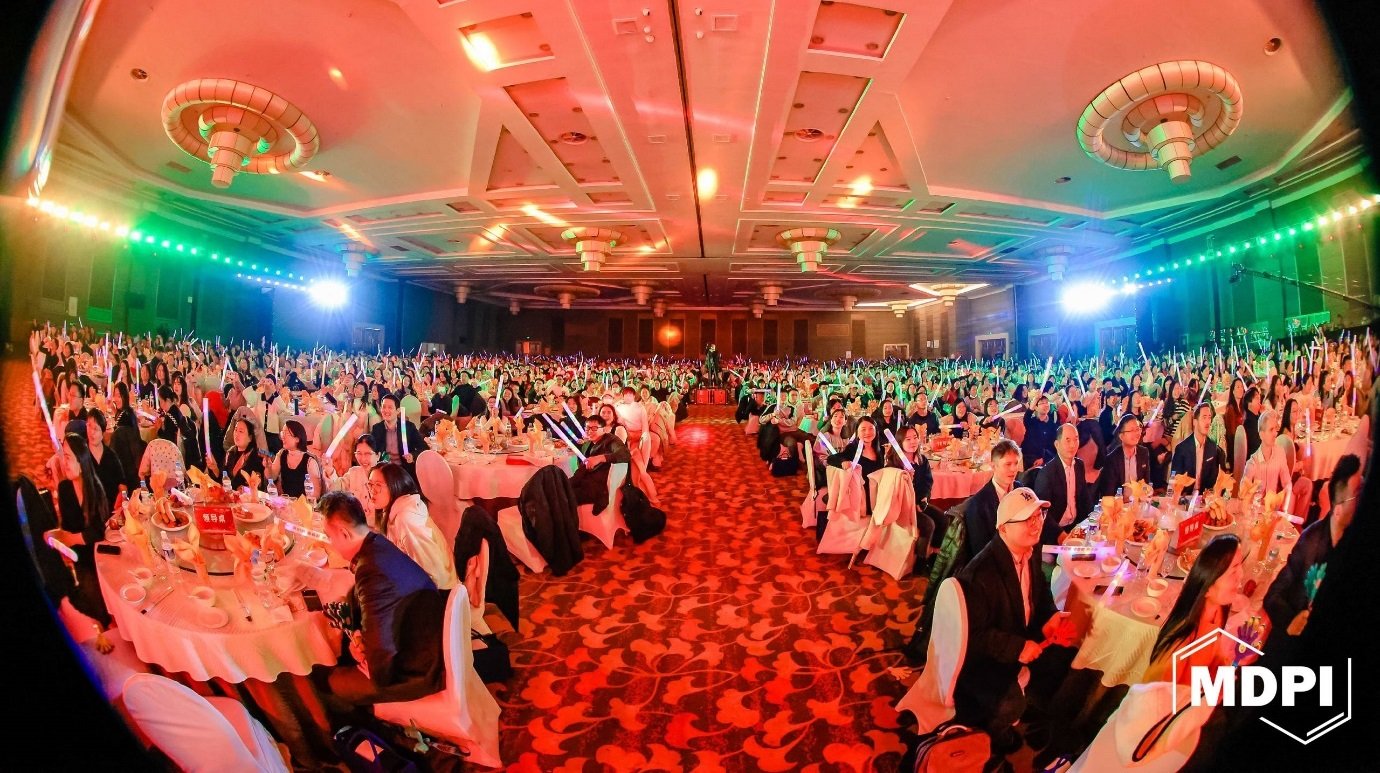
I extend our best wishes to all for the Chinese New Year (Xīnnián kuàilè)!
Coming Together for Science
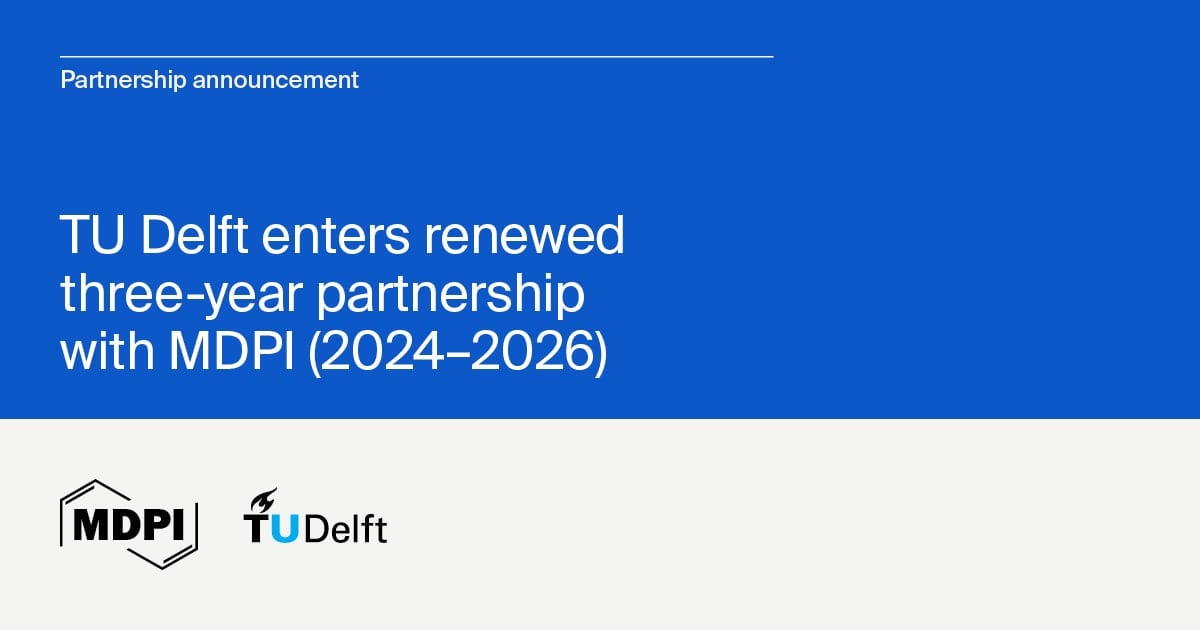
MDPI and TU Delft Adopt Flat Fee Model in Extended Partnership
We are excited to announce a renewed three-year partnership with Delft University of Technology (TU Delft) in the Netherlands. This collaboration introduces a fixed lump-sum fee, covering publishing costs from 2024 to 2026.
“This initiative reflects our dedication to transparent and inclusive publishing”
TU Delft-affiliated authors will enjoy cost-free publishing in any MDPI journal during this period, aligning with our commitment to removing barriers for open access publishing. The agreement supports Plan S compliance and facilitates a seamless publishing process for TU Delft corresponding authors. This initiative reflects our dedication to transparent and inclusive publishing, providing stability and predictability both for authors and for institutions.
For further details on our Institutional Open Access Program (IOAP), please contact us.
Benefits to MDPI’s IOAP
At MDPI we have a long tradition of partnerships, including our Institutional Open Access Program (IOAP). IOAP supports institutions through simplification, access, transparency, APC discounts, and institutional repository deposits. The program simplifies administrative processes, offers central payment, and allows easy opting in and out. Participants gain free access to Susy, MDPI’s online submission system, with extensive article metadata and exportable data. APC discounts and Book Processing Charge discounts are available for affiliated authors. Automated deposits to institutional repositories and streamlined matching of papers to IOAP participants enhance the overall experience.
For further information, see our IOAP FAQ.
Closing Thoughts

Reflections on the 2024 APE Conference
MDPI was proud to co-sponsor the Academic Publishing in Europe (APE) 2024 Conference that took place in Berlin, Germany, from 9–10 January 2024.
The conference theme, ‘Keep the Conversation Going!’, explored the evolving landscape of scholarly communication. APE is one of the key conferences I make a point to attend each year. January offers a valuable opportunity to engage with new contacts, reconnect with familiar faces, and participate in impactful discussions and presentations among professionals, scholars, and practitioners in the field.
“It's fascinating to see how other publishers are leveraging AI”
Highlights
Some of the standout panels for me include: the role of the UN Sustainable Development Goals (SDGs) within the publishing industry. It was encouraging to hear the current status quo, though I was eager also to learn about the exciting projects planned for 2024 and beyond. These will allow us to track progress in subsequent years. At MDPI, we remain committed to promoting Open–Access (OA) content on SDGs through scientific articles and books. Furthermore, we extend our commitment to sustainability by financially supporting researchers through initiatives such as the World Sustainability Award and the Emerging Sustainability Leader Award, as well as waiving the APC for feature papers on each SDG.
In recent years, discussions on AI have become increasingly prominent at such conferences. It’s fascinating to see how other publishers are leveraging AI to meet the evolving needs of their audiences while at the same time using it to safeguard the scientific process. Other engaging panels that I enjoyed included updates on transformation beyond transformative agreements, the principles of lean change, incentive structures related to research integrity, and the panel on reviewer incentives.
“We can share best practices and lessons learned”
Incorporating MDPI’s Insights into Conferences
I must confess that I sometimes feel overlooked when MDPI is not invited to participate in crucial industry discussions. As the leading open access publisher and the third-largest publisher overall, we possess extensive experience in many of these areas and can offer valuable contributions to these discussions. We can share best practices, lessons learned, and our thinking about future trajectories. For instance, in panels discussing reviewer incentives, at MDPI we offer a discount voucher to reviewers for future submissions, reflecting our commitment to fostering a robust peer review process. In 2022 alone, MDPI collected over 1.4 million peer review reports, informing the decision-making processes of our editors. Given our expertise in these areas, it would be natural to include MDPI in such discussions. I therefore extend an invitation to future conference organizers to consider MDPI for speaking engagements and collaborative opportunities.
Chief Executive Officer
MDPI AG
31 January 2024
Acknowledgment of the Reviewers of Biomolecules in 2023
In recognizing the exceptional efforts of our reviewers in 2023, we express our sincere gratitude for upholding the high standards of Biomolecules. Their commitment ensured the rigorous peer review that is integral to quality academic publishing.
In 2023, Biomolecules received 6050 review reports, from 5377 reviewers. This past year, we worked with reviewers from 82 countries and regions, reflecting the diversity in our collaboration with research communities. Their dedication shapes scholarly discourse and advances global research. The editorial team expresses gratitude for the vital role played by each reviewer in the Biomolecules family throughout 2023, and we look forward to their continued support in 2024.
The following are the reviewers who have consented to show their names:
| Andrei. L. Mulyukin | Kiran Lokhande |
| Abbirami Elangovan | Kiril Mishev |
| Abdel Razzaq Mohammad Al Tawaha | Kirsten Haastert-Talini |
| Abdul Rajjak Shaikh | Kirsten Brandt |
| Abdul Sadiq | Konstantin Agladze |
| Abed Saady | Konstantin Moiseenko |
| Abhinav Jain | Krishna Sharma |
| Abhishek Anant Kulkarni | Krzysztof Dołowy |
| Abraham Escobedo-Moratilla | Ksenia Tereshkina |
| Abraham Pouliakis | Kuldeep Gupta |
| Abraham Wall-Medrano | Kumar Katragunta |
| Abril Gijsbers | Kun Lei |
| Adam Benham | Kyeong-Man Kim |
| Adam Krysztofiak | Laihua Xie |
| Adam Reich | Laiza T. Poskus |
| Addolorata Pisconti | Lalith Perera |
| Adelina Vlad | Larisa Ryskalin |
| Adina Chis | László Hazai |
| Adina Roceanu | Laura Gatti |
| Aditya Sharma | Laura López-Pingarrón |
| Aditya Singh | Laura Marroqui |
| Adriana Erica Miele | Laure Poquet |
| Adriana Geisinger | Laure Yatime |
| Adriana Urcan | Laurence Bresson-bepoldin |
| Agnieszka Potęga | Laurence Lagneaux |
| Agnieszka Żebrowska | Laurentiu M. Pop |
| Ahlam Alhusaini | Leggy Arnold |
| Ahmad Jalili | Lenard Farczadi |
| Ahmed B. Abdelwahab | Leonid Bystrykh |
| Ahmed Hamdan | Leonor Guerra-Guimarães |
| Ahmed Mekkawy | Lev Prasov |
| Ahrar Khan | Li Sun |
| Ajna Hamidovic | Li Xiao |
| Akinori Morita | Liang-Jun Yan |
| Akshyaya Pradhan | Lidia Caporossi |
| Alaa Adawy | Liga Lauberte |
| Alain Le Faou | Liliana Argueta-Figueroa |
| Alba Grayston | Liliana Dain |
| Alberto Baldelli | Liliana Torres-López |
| Alberto Marra | Liliya Nikitina |
| Alberto Martínez-Castelao | Lindsey Haute |
| Aleksandar Ž. Kostić | Lisa Gianesello |
| Aleksandr Ivanov | Lisa Ryan |
| Aleksandra Zeljkovic | Liubov Gorbacheva |
| Aleksey Yakovlev | Livio Vitiello |
| Alessandra Ferramosca | Liviu Macovei |
| Alessandra Sinopoli | Loïc Dayon |
| Alessandro Leparulo | Loredana Bergandi |
| Alessandro Maugeri | Lorena Saelices Gomez |
| Alexander Baykov | Lothar Brecker |
| Alexander Dietrich | Lourdes M. Varela |
| Alexander Gusev | Luca Colucci-D'Amato |
| Alexander Kartashov | Luca Giordano |
| Alexander Ljubimov | Luca Potestio |
| Alexander Sapozhnikov | Luca Vanella |
| Alexander Shtil | Lucia Baldino |
| Alexander Trujillo | Luciana Xavier |
| Alexander Zhgun | Luis Cobos Puc |
| Alfons Nadal | Luís Crisóstomo |
| Alfredo Jiménez-Pérez | Luis M. Quirós |
| Alfredo Téllez Valencia | Luisa Dalla Valle |
| Ali Waryah | Luísa Mateus |
| Alicia Viloria-Petit | Lukas Mikolaj Simon |
| Alida Veloo | Lukasz Dobrek |
| Alina Serb (Georgescu) | Łukasz Szeleszczuk |
| Aline Fernanda de Souza | Lukhanyo Mekuto |
| Almerinda Di Venere | Luz Del Razo |
| Amanda Iglesias | Lyudmila Bel'skaya |
| Amaro Saco | Muhammad Junaid Dar |
| Amena Archer | María Luisa Soto Montenegro |
| Amit Kumar | Maciej Przybyłek |
| Ammar Saleem | Maciej Zdun |
| Amrinder Singh | Madhurima Chatterjee |
| Amrita Sarkar | Magdalena Dunowska |
| Amritlal Mandal | Magdalena Kurnik-Łucka |
| Amy MacNeill | Magdalena Martinez-Cañamero |
| Ana Cláudia Martins Cavaco | Magnus Monné |
| Ana Feregrino-Perez | Mahmood Mozaffari |
| Ana Florencia Vega-Benedetti | Mahmoud Abdallah |
| Ana Garcia-Deibe | Mahmoud Azzam |
| Ana Mutis Tejos | Mai Mostafa |
| Ana Podolski-Renić | Małgorzata Gajewska |
| Ana Rilak Simović | Mamdouh Samy |
| Ana Rita Jesus | Manikandan Samidurai |
| Ana Segura | Manohar Kodavati |
| Anastasia A. Anashkina | Mansoor Hussain |
| Anastassios Papageorgiou | Manuela Correia |
| Anatoly Zherdev | Marawan Abdelbaset |
| Anca Toiu | Marc Muller |
| Andaleb Kholmukhamedov | Marc-André Lécuyer |
| André Filipe Gonçalves Gabriel | Marcelo Nieto |
| Andrea Lipińska | Marcin Kozuch |
| Andrea Mastinu | Marco Milanese |
| Andrea Re Cecconi | Marco Velasco-Velazquez |
| Andrea Summer | Marek Kiliszek |
| Andrea Wangorsch | Margalida Monserrat-Mesquida |
| Andreas Brodehl | María Ayelén Pagani |
| Andreas Doetsch | María Behrens |
| Andreas Werner | Maria Botelho |
| Andreas Zwergal | Maria Camilla Bergonzi |
| Andrei A. Eliseev | Maria Carmela Bonaccorsi Di Patti |
| Andrej Perdih | Maria Golikova |
| Andrés Uc-Cachón | María Pérez |
| Andrêssa Fernandes | Maria Romanelli |
| Andrew Leask | Maria Rubtsova |
| Andrey V. Sybachin | Maria Russo |
| Andrey Zamyatnin | Maria Skibińska |
| Andrzej Szutowicz | María Teresa Hernández-Huerta |
| Angel Josabad Alonso-Castro | Maria Xilouri |
| Angel Llamas | Mariano Venanzi |
| Ángel Núñez | Maribel Acién |
| Angel Vértiz-Hernández | Marie Černá |
| Angela Fleischhacker | Marie-Louise Ward |
| Angela Messina | Marie-Paule Gonthier |
| Àngels González-Lafont | Marina Bouche |
| Anh Quynh Le | Marina Holyavka |
| Aniello Maiese | Marina Piscopo |
| Aniruddha Das | Marino Paroli |
| Aniruddha Panda | Mario Congiu |
| Anjali Geethadevi | Mario Fruschelli |
| Anna Fialová | Mario Ščetar |
| Anna Kitaeva | Mario Vega |
| Anna Marabotti | Marisa Colone |
| Anna Maria D’Ursi | Marisol Fernández Ortiz |
| Anna Przybylska-Balcerek | Marius Moga |
| Anna Ruszczynska | Mariusz Stasiolek |
| Anna Sannino | Mariya Smetanina |
| Annalisa Pecoraro | Mark B. Frampton |
| Annamaria Aloisio | Mark McCormick |
| Annarita Stringaro | Markus Leo |
| Anne Zeck | Markus Wehland |
| Annette Graham | Marlene Santos |
| Annette Kaiser | Marta Fiołka |
| Anoop Rawat | Marta Kepinska |
| Antimo Cutone | Marta Pawłowska |
| Antoinette Van Der Kuyl | Marta Riera |
| Anton Jetten | Marta Vitorino |
| Anton S. Tsybko | Marta Zagrebelsky |
| Antonina Giammanco | Martín González-Andrade |
| Antonio Facchiano | Martin Michel |
| António Ferreira | Martin Raspor |
| Antonio Massa | Martin Wawruch |
| Antonio Raffone | Martina Colombo |
| Antonio Rosales Martínez | Maryam Ardalan |
| Antonio Sanchez-Amat | Marzia Gariboldi |
| Antonio Trovato | Masaaki Wachi |
| Anu Paul | Masahiko Tanaka |
| Aram Megighian | Masaki Hata |
| Ari Meerson | Masaki Nagaya |
| Arianna De Mori | Masoud Negahdary |
| Armindo Salvador | Masoud Sadeghi |
| Artem Badasyan | Massimiliano Meli |
| Arthur Kopylov | Massimo D'Archivio |
| Artur Słomka | Mathieu Gonin |
| Arturo Bevilacqua | Mathilde Body-Malapel |
| Arturo Medrano-Soto | Matija Rijavec |
| Arun Kumar Rajendran | Matteo Mozzicafreddo |
| Ashish Kabra | Matthew Merski |
| Ashley Bennett | Mattia Volta |
| Ashraf Madhoun | Mattias Collin |
| Astri Faizah | Maxim Filatov |
| Ateeq Rahman | Maxim Karagyaur |
| Atefeh Najafi | Mayank Choubey |
| Athanasios A. Panagiotopoulos | Mazen Saleh |
| Athar Ansari | Md. Abu Saleh |
| Atta Rahman | Md. Sharker |
| Attila Frigy | Meenakshi Sharma |
| Attila Zsolnai | Meerambika Mishra |
| Augustin C. Moţ | Mehdi Montazer |
| Aurélie Philippe | Mehdi Rezaei |
| Avinash Rai | Mehmet Kaya |
| Aydi Abdelkarim | Mehrdad Behmanesh |
| Aydin Eresen | Melanie Foecking |
| Ayman Elsamanoudy | Mengdi Bao |
| Babak Chehroudi | Mengze Lyu |
| Badr Alshomrani | Menno Hoekstra |
| Bahadar Srichawla | Mercedes Garayoa |
| Baiyan Li | Mi Kyung Park |
| Balenahalli Ramesh | Michael Agaphonov |
| Bangfu Zhu | Michael Breitenbach |
| Barbara De Filippis | Michael Eccles |
| Barbara Hausott | Michael Kim |
| Barbara Ruaro | Michael Koval |
| Barry Cooperman | Michael Madigan |
| Bartłomiej Barczyński | Michael Pedersen |
| Bartłomiej Potaniec | Michael Schirmer |
| Bartłomiej Zapotoczny | Michael Van Dyke |
| Barun Maity | Michal J. Dabrowski |
| Basant Puri | Michal Ordak |
| Bassam Elgamoudi | Michał Rurek |
| Basveshwar Gawali | Michal Zeman |
| Beata Bystrowska | Michel Hanania |
| Bénédicte Ballanger | Michele Samaja |
| Benedict-Tilman Berger | Miguel Santana |
| Benjamin Jantzen | Mihaela Niculae |
| Bernard Haendler | Mihai Babotă |
| Bert Bosche | Mikhail Dubinin |
| Bertrand Liagre | Mikhail Kostik |
| Beshay Zordoky | Mikhail Pyatibratov |
| Bharadwaja Srimat Tirumala Peddinti | Mikko Uusi-Oukari |
| Bihe Cai | Milan D. Perovic |
| Binfeng Yin | Milan Stankovic |
| Binu Jacob | Minhyeok Lee |
| Bipradas Roy | Minjia Wang |
| Birol Akbaş | Mircea Rivis |
| Boel De Paepe | Miriam F. Scelza |
| Boleslaw T. Karwowski | Miriam Hickey |
| Boris Stambuk | Mitsue Nishiyama |
| Borja Herrero de la Parte | Mohamed El Yaagoubi |
| Bouchra Edderkaoui | Mohamed Khalifa |
| Brandon Gassaway | Mohamed Mahdi |
| Brateen Shome | Mohamed S.A. Darwish |
| Brendan Duggan | Mohamed Sharaf |
| Bruce A. Shapiro | Mohamed Soltan |
| Bruno Ramos-Molina | Mohammad Khan |
| Cai Roberts | Mohammad Mohsenzadeh |
| Carla di Stefano | Mohammad Sadraeian |
| Carla Ferreri | Mohammed Ali |
| Carla Mucignat | Mohammed Hawash |
| Carlo Morelli | Mohammed M. Alanazi |
| Carlo Santambrogio | Mohammed Ramadan |
| Carlos Jimenez | Mohd Hanafi Mat Som |
| Carlos Rocha-de-Lossada | Mona Freidin |
| Carsten Carlberg | Monica Berrondo |
| Carsten Theiss | Mostafa Shooshtari |
| Caterina Gagliano | Moumita Datta |
| Catherine Davis | Moustafa Fouda |
| Cathy Lazarus | Mudasir Rashid |
| César López-Camarillo | Muhammad Jameel Mughal |
| Chadi Abdul Kader El Farran | Muhammad Rehman |
| Chandra Mishra | Muhammad Sohaib |
| Chandra Sekhar Yadavalli | Munendra Tomar |
| Chang Lei | Nadine Nagy |
| Chang-Hyun Kim | Naghmeh Mahmoodian |
| Changli Zhao | Nahum Rosenberg |
| Chao Deng | Nancy Saad |
| Chao Wu | Naoki Morita |
| Charis Theodoridis | Narakorn Khunweeraphong |
| Charles Norton | Naresh Poondla |
| Cheng Wang | Naser Alsharairi |
| Chenrong Yu | Natalia Belkova |
| Chennaiah Ande | Natalia Díaz-Valdivia |
| Chenqi Tao | Natalia Golender |
| Chiara Suffritti | Natalia Kreshchenko |
| Chi-Chih Hung | Natalia Ninkina |
| Chien-Chung Yang | Natalia Soriano-Sarabia |
| Chih-Hsing Chou | Natalia Ukleja-Sokołowska |
| Chiranjeev Sharma | Natalya Zinkevich |
| Chloé Prunier | Natércia Conceição |
| Choon Young Kim | Nebojsa Prijovic |
| Christelle Dantec | Neelam Sharma |
| Christian Bailly | Nehru Viji Sankaranarayanan |
| Christian Gernhardt | Nenad Bukvic |
| Christine Allmang | Nicola Armstrong |
| Christine Chuang | Nicola Manfrini |
| Christophe Ampe | Nicolas Casadei |
| Christopher Garnham | Nicoleta Anton |
| Christopher Kobierzycki | Nik Tsotakos |
| Christos Kontos | Nikita Minaev |
| Chuanming Xu | Nikolai Ravin |
| Chung Lin Lee | Nikolaos Kadoglou |
| Chunmin Lo | Nikolaos Labrou |
| Chunyan Wang | Nikolaos Pitsikas |
| Chuqian Liang | Nina Anfinogenova |
| Cinzia Rotondo | Nirav Patel |
| Ciprian Rezus | Nitesh Shashikanth |
| Ciprian Silaghi | Nobuhiro Kanemura |
| Claudia Fallini | Nobuo Shimamoto |
| Cláudia Leopoldina Mieiro | Noélia Custódio |
| Claudia Ricci | Nordine Helassa |
| Claudia Segal-Kischinevzky | Noriaki Iijima |
| Constantin Munteanu | Noriko Takegahara |
| Corinne Prevostel | Noula Shembade |
| Corneliu Ovidiu Vrancianu | Nuno Ferreira |
| Cornelius Krasel | Oksana Rymar |
| Cristian Sandoval | Oksoo Han |
| Cristina Maccallini | Oleg M. Demchuk |
| Cristina Manuela Dragoi | Oleh Pochynyuk |
| Cristina Martín | Olesia Makhutova |
| Cristina Oprean | Olga Ciepiela |
| Daisy Shu | Olga Tarasova |
| Dalius Vitkus | Olga Tsivileva |
| Damien Arnoult | Olgica Mihaljevic |
| Dana Akilbekova | Oliver Tusevski |
| Dane Wolf | Oliviero Italo Carugo |
| Daniel Caetano | Oliviu Vostinaru |
| Daniel Guendel | Omar Porras |
| Daniel Rodriguez | Ondrej Cehlár |
| DANIEL San Juan Orta | Oscar Briz Sanchez |
| Daniel Sánchez de Alcázar Melendo | Oscar Campuzano |
| Daniel Wilson | Oscar Pérez-Méndez |
| Daniela Buchaim | Otávio Augusto Chaves |
| Daniela Montesarchio | Othmane Merah |
| Daniela Opriş-Belinski | Ovidiu Pop |
| Daniela Rossi | Ovidiu Samoila |
| Daniela Sousa | Oxana Dobrovinskaya |
| Danijela Laketa | Pablo Guardado-Calvo |
| Danila Di Meo | Pablo Martín-Vasallo |
| Danilo da Silva | Pandiyan Muthuramalingam |
| Danilo Swann Matassa | Panthakarn Rangsinth |
| Danyang Wang | Paola Cappello |
| Daotong Li | Paola Fini |
| Daria Chudakova | Paola Galozzi |
| Dario Mizrachi | Paolo Cascio |
| Darya Novopashina | Paolo Lauriola |
| David Centruion | Paolo Paoli |
| David Davis | Paolo Pelliccioni |
| David Hall | Paolo Polidori |
| David Hunt | Paolo Tortora |
| David Li-Kroeger | Partha Narayan Dey |
| David Mills | Pasquale Scarcia |
| David Schwartz | Pasquale Stano |
| David Sergeevichev | Patrick Pale |
| David Snyder | Paul Héroux |
| Davide Gabellini | Paula Fernández-Palanca |
| Dawei Xue | Paulina Dumnicka |
| Dean Gilham | Paulo Carmo |
| Deborah Keszenman | Paulo Gavaia |
| Deborah Penque | Pavan Kripashankar Patel |
| Deepak Kasote | Pavel Nazarov |
| Deepak Kulkarni | Pavel Rehak |
| Deepanker Yadav | Pavel Volynsky |
| Deependra Singh | Payal Ganguly |
| Denilce Lopes | Pedro Araujo |
| Denis Beliaev | Pedro Esbrit |
| Denis Silachev | Pedro Gomes |
| Denitsa Teofanova | Pedro Morais |
| Dennis Grayson | Pedro Vaz |
| Dhananjay Yadav | Peli Foka |
| Dharmendra Choudhary | Pengfei Ding |
| Dhiraj Srivastava | Petar Eftimov |
| Diana Amantea | Peter Kusch |
| Diego Castro Musial | Peter Piko |
| Dilip Kumar Swain | Peter Szatmary |
| Dimitri Pestov | Petr Menshanov |
| Dimosthenis Lykouras | Petr Zamostny |
| Dina Manetti | Philip Calder |
| Divya Ail | Pierfrancesco Visaggi |
| Dmitrii Levitsky | Pierre Moffatt |
| Dmitriy Yambulatov | Pingfan Hu |
| Dmitry Bogolyubov | Pingyuan Wang |
| Dmitry Verbenko | Piotr Dobrowolski |
| Dnyaneshwar Garad | Piyush Baindara |
| Dominik Dłuski | Prabhanjan Giram |
| Donatella Delle Cave | Prashant Damke |
| Dongliang Huang | Prashant Kaushik |
| Dongsheng Lei | Preston Bratcher |
| Dongxu Wang | Priyanka Banerjee |
| Dóra K. Menyhárd | Pushpa Rao |
| Dorota Bartusik-Aebisher | Qi Xiang |
| Douglas Glazier | Qiuwang Zhang |
| Douglas J. H. Shyu | Qiwei Li |
| Dragana Dekanski | R. Jurgen Dohmen |
| Dragana Komnenov | Radu Racovita |
| Dragana Kopanja | Raed Seetan |
| E. Cristina Quispe Chávez | Rafael Baltiérrez-Hoyos |
| Édouard Gerbaud | Rafael Kuradomi |
| Eduardo Rial | Rafael Moreno-Gómez-Toledano |
| Eduardo Zatarain Nicolas | Rafael Salto |
| Edwige Voisset | Raffaele Serra |
| Edyta Sutkowska | Raghu Ramanathan |
| Egor Plotnikov | Rahul Gauttam |
| Egor Verbitskiy | Rahul Kumar |
| Eileen Roulis | Rajesh Parsanathan |
| Einas Yousef | Ram Kumar Selvaraju |
| Eirini Anastasaki | Ramachnadran Samivel |
| Elamparuthi Ramasamy | Ramón Santamaría |
| Elena Berezhnaya | Ramses Santacruz-Marquez |
| Elena Ermakova | Ramya Tokala |
| Elena Panizza | Randy Dinkins |
| Eleni Mavrogonatou | Raquel Sanchez-Varo |
| Eleni Rebelos | Raquel Soares |
| Eli Ehrenpreis | Rashmi Panigrahi |
| Elisa Belluzzi | Ravi Sharma |
| Elisa Fasani | Ravi Sonani |
| Elisa Russo | Ravindra Thakkar |
| Elisabeth Jacobsen | Rebeca Busto |
| Elizabeth Coyle | Rebeca Fernandez-Carrion |
| Elnaz Faghfouri | Recai Ergun |
| Előd Nagy | Rekha Jagadapillai |
| Elżbieta Łopieńska-Biernat | Renan Dal-Fabbro |
| Eman M. Othman | Renata Ciccarelli |
| Emanuele Bernardinelli | Renata Siedlecka |
| Emerson Soares Bernardes | Rene Herrera Diaz |
| Emma Burgos-Ramos | Renshi Xu |
| Emmanouil Magiorkinis | Renzhe Bi |
| Emmanuel Hermans | Riccardo Moretti |
| Emmanuel Moyse | Richard Naftalin |
| Emre Bektik | Rina Bandopadhyay |
| Enrique Castano | Rita Businaro |
| Eric Peeples | Rita Teodósio |
| Erica Ferrandi | Rob McCorkle |
| Erik Behringer | Robert A. Linsenmeier |
| Erika Guerrero | Robert Berkecz |
| Erna Karalija | Robert Burghardt |
| Etsuo Niki | Robert E. Lewis |
| Eugene Permyakov | Robert L. Meisel |
| Eva Kudova | Robert Matos |
| Eva Lieto | Robert Stryiński |
| Evert Van Schothorst | Robert Weinzierl |
| Evgen Multia | Roberta Antonia Diotti |
| Evgenia Rapoport | Roberta Fiume |
| Evgeny Ermakov | Roberto Scarpioni |
| Ewa M. Kalemba | Roberto Scicali |
| Ewelina Semik-Gurgul | Rodica Olar |
| Fabiano Poswar | Rodrigo Rodrigues |
| Fabio Del Duca | Rogelio Rodríguez Rodríguez |
| Fabrizia Cesca | Rohit Kumar |
| Fabrizia Tittarelli | Ronald Garner |
| Fabrizio Anniballi | Ronald Nelson |
| Fanfan Hao | Ronghai Cheng |
| Fatima Awwad | Roopa Biswas |
| Federico Gulluni | Rosa Purgatorio |
| Felipe Chaves | Rosa Vona |
| Ferdinando Fiorino | Rosanna Mallamaci |
| Ferenc Erdodi | Rosaria Meccariello |
| Fernanda Priviero | Rosario Gonzalez-Muñiz |
| Fernando Capela e Silva | Rosemeire Pietro |
| Fernando Cardona | Rossella Bruno |
| Fernando Farfán | Roxana Liana Lucaciu (Stan) |
| Filipe Abreu | Roxana Medina |
| Filippo M. Sarullo | Roy Kirsch |
| Fleming Martinez Rodriguez | Rudiger Woscholski |
| Florence Van Tienen | Ruslan Kalendar |
| Fnu Asaduzzaman | Ruta Lavinia |
| Fotis Baltoumas | Sabab Khan |
| Francesca Gatto | Sabine Matou-Nasri |
| Francesca Rinaldi | Sabira Mohammed Jazir |
| Francesca Spinella | Sabrina Bossio |
| Francesco Dondi | Sabrina Lisi |
| Francesco Lodola | Saeed Mohammadi |
| Francesco Pezzella | Saima Imran |
| Francesco Suriano | Sainitin Donakonda |
| Francesco Tomassoni Ardori | Sakthivel Muniyan |
| Francisco Conceição | Salar Vaseghi |
| Francisco J. Romero | Salvatore Crimi |
| Francisco Navarrete | Samuel Lawman |
| Friedrich Altmann | Samuel N. Heyman |
| Fulvio Saccoccia | Sandra Donnini |
| Gábor Nagy | Sang Tae Choi |
| Gabriel Navarrete-Vazquez | Sanika Suvarnapathaki |
| Gabriel Rufino Estrela | Sanja Ivkovic |
| Gabriela Barrientos | Sanja Ražić |
| Gabriella Guerrini | Sanjay Patel |
| Gaetan Jego | Sanjin Kovacevic |
| Galina Aleshina | Sankha Bhattacharya |
| Galina Kovalenko | Santiago Imperial |
| Galina Shepelkova | Sara Casati |
| Gamal Mohamed El-Sherbiny | Sara Correia |
| Garry Kerch | Sarah Sabatinos |
| Gauri Kulkarni | Sari Mattila |
| Georg Damm | Saroj Basak |
| George Gamov | Savvas Lampridis |
| George Livanos | Sazan Rasul |
| George Paraskevas | Scott Eblen |
| Georgiana Nitulescu | Sebastián Chávez |
| Georgios Panos | Sebastian Werneburg |
| Gerald Audette | Sébastien Prévost |
| Gerhild Euler | Semer Maksoud |
| Germán Domínguez-Vías | Senthilkumar Palanisamy |
| Gessica Sala | Seongjae Jang |
| Ghassan Ghssein | Sercan Karav |
| Gheorghita Isvoranu | Serge P. Bottari |
| Gian Luigi Russo | Sergei Gaidin |
| Gianandrea Pasquinelli | Sergey Levitskii |
| Gianfranco Bocchinfuso | Sergey V. Kozyrev |
| Gianfranco Natale | Sergey Vatsadze |
| Gianni Lazzarin | Sérgio Alves |
| Gilbert Lim | Sergio Daishi Sasaki |
| Gill Diamond | Sergio Hidalgo |
| Gilles Lemaître | Sergio Minucci |
| Gina Mendez-Callejas | Sergio Recalde |
| Giorgio Caserta | Shabana Bibi |
| Giorgio Lenaz | Shabnam Bakhshalizadeh |
| Giorgio Mangino | Shailesh Kumar |
| Giou-Teng Yiang | Shakir Khan |
| Giovanna Salata | Shasha Yin |
| Giovanni Cicceri | Shehwaz Anwar |
| Giovanni La Penna | Shek Man Chim |
| Giovanni Pallio | Shichao Ding |
| Gisela Gerardi | Shifali Shishodia |
| Giulia De Riso | Shih-Chao Lin |
| Giulia Festa | Shihyu Chang |
| Giulia Ricci | Shilpi Agrawal |
| Giulio Cabrini | Shimaa Amer |
| Giulio Fortuna | Shoji Tsuji |
| Giuseppe Biagini | Shokrollah Elahi |
| Giuseppe Lanzarone | Shujat Ali |
| Giuseppina Andreotti | Shushu Huang |
| Gleiston Dias | Shuyun Li |
| Grzegorz Jakubiak | Shuzhen Wang |
| Grzegorz Zurek | Siddharth Sunilkumar |
| Guangliang Xing | Silvia Angelova |
| Guanglin Zhang | Silvia Giatti |
| Guangning Zong | Silvia Sgambellone |
| Guanjun Yang | Silvio Maringhini |
| Guglielmo Sorci | Simona Dedoni |
| Guilherme Montes | Simona Tomaselli |
| Guillermo Raúl Pratta | Simone Morselli |
| Gülsüm Yaldiz | Sina Naserian |
| Guoping Guan | Sneha Pillai |
| Guowei He | Snježana Kaštelan |
| Gustavo Kashiwagi | Sobia Niazi |
| Guy R. Adami | Sodeif Azadmard-Damirchi |
| Gyula Batta | Sofia Moran-Ramos |
| Haijun Liu | Sofía Solórzano |
| Hailong Hu | Sofie Lautrup |
| Haim Breitbart | Soma Ghosh |
| Haina Huang | Song Chen |
| Haiqiu Huang | Sonia Do Carmo |
| Hak Jun Kim | Sonia Gera |
| Halilibrahim Ciftci | Sophia Theodossiou |
| Hana Popelka | Sotirios-Spyridon Vamvakas |
| Hans Binder | Sounak Bagchi |
| Hans Christian Beck | Sree Krishna Chanumolu |
| Hans-Christian Kolberg | Sreelakshmi Vasudevan |
| Hao Tian | Stamatia Papoutsopoulou |
| Harald Krentel | Stanislav Naryzhny |
| Harald Mischak | Stanislawa Bazan-Socha |
| Haruhiko Sugimura | Stavroula Tsitkanou |
| Harvey Pollard | Stefan Naydenov |
| Hassan Ishqi | Stefano Bellosta |
| Hatem El-Shanti | Stefano Pascarella |
| Hayato Terayama | Stephane Esnault |
| Hazwani Oslan | Stephen Randall |
| He Zhang | Steven Pascal |
| Heba Sahyon | Su Datt Lam |
| Héctor Quezada | Sudheer Annepu |
| Heinz D. Osiewacz | Sulev Kõks |
| Helioswilton Sales-Campos | Sulin Zhang |
| Hemant Giri | Suman Lama |
| Hemraj Chhipa | Suresh Subramani |
| Herbert Ryan Marini | Susana Fernández |
| Hesham Haffez | Susana Lechuga |
| Hideki Uosaki | Sushil K. Mishra |
| Hilal Rather | Sushil Shakyawar |
| Hilda Petrs-Silva | Swanand Koli |
| Hirokazu Tsuji | Swarnalatha Manickavinayaham |
| Hoang-Thanh Le | Syed Mahmood |
| Hong Yu | Syed Mohd Faisal |
| Honghe Liu | Sylvain Bourgoin |
| Huatao Chen | Tada-aki Kudo |
| Huining Kang | Tadayoshi Kagiya |
| Huiyin Tu | Tadeusz Kaminski |
| Hung-Chi Cheng | Tae-Hong Kang |
| Hyuck Jin Lee | Tahira Sultan |
| Hyun-Ok Song | Takaaki Mizuguchi |
| Ichiro Kawahata | Takashi Ono |
| Idoia Gallego | Takuichi Sato |
| Ifigenia Kostoglou-Athanassiou | Takumi Ishizuka |
| Ignacio Díez López | Talha Demirci |
| Ignacio Rintoul | Tamara Lazarevic-Pasti |
| Ignacio Rodríguez-García | Tamas Lazar |
| Igor Eliseev | Tania Fontanil |
| Igor Turkiewicz | Tânia Soares Martins |
| Ilya Ozhogin | Tanja Vojvoda Zeljko |
| Immacolata Pietraforte | Tao Chen |
| Immacolata Speciale | Tatiana Antipova |
| Ines Drenjancevic | Tatiana Ilchibaeva |
| Ingo Rustenbeck | Tatiana Rakitina |
| Inna Solyanikova | Tatiana Rogasevskaia |
| Innokenty Mokhosoev | Teleky Bernadette-Emoke |
| Ioan Petean | Teling Lu |
| Ioana Stanculescu | Teresa Zoladek |
| Ioannis Giantsis | Thanigaivelan Kanagasabai |
| Iogann Tolbatov | Theodore Wensel |
| Ionel Alexandru Checherita | Theodoros Karalis |
| Iqra Bano Chandio | Thierry Cens |
| Irena Nalepa | Thirumalini Vaithianathan |
| Irene Valasi | Thomas Van Groen |
| Iria Gonzalez-Dopeso | Tianfu Han |
| Irina Kuzikova | Tingming Liang |
| Irina Le-Deygen | Tomas Kacergius |
| Irina Leonova | Tomasz Frączyk |
| Isaac Sundar | Tomasz Gębarowski |
| Istvan Koncz | Tomasz Sadkowski |
| Istvan Zupko | Tomoyuki Soma |
| Itzel López-Rosas | Torben Redmer |
| Iuliia Taskaeva | Torbjörn Ledin |
| Ivaldo Itabaiana Jr. | Toru Togawa |
| Iveta Bernatova | Tracy Murray Stewart |
| Ivona Djurkin Kušec | Tsukasa Okiyoneda |
| Ivonne Loeffler | Tulio L. Campos |
| Iwona Jarocka-Karpowicz | Tuoxian Tang |
| Jacopo Lamanna | Tusty-Jiuan Hsieh |
| Jacques Fantini | Tzu-Ping Ko |
| Jae Kyu Ryu | Uener Kolukisaoglu |
| Jakub Kryczka | Ufuk Okkay |
| Jakub Żurawski | Ulf Anderegg |
| Jan Bocianowski | Uma Gautam |
| Jan Šrámek | Umesh Desai |
| Janet Kumita | Una Riekstiņa |
| Janosch P. Heller | Urszula Karczmarczyk |
| Jaroslav Pejchal | Uwe Rudolph |
| Jarosław Bryk | Vadim Elagin |
| Jasmin Knopf | Valentin Năstasă |
| Javier Manzano-López | Valeria D'Argenio |
| Javier Saenz-Medina | Valeria Visconte |
| Javier Ventura-Juárez | Valerio Leoni |
| Jayanti Tokas | Van Pham |
| Jayesh Ahire | Van-An Duong |
| Jean Boutin | Vangelis Daskalakis |
| Jean Defourny | Vasantha Kumar |
| Jean E. Schwarzbauer | Vasileios P. Papadopoulos |
| Jean-Marc Lobaccaro | Vehary Sakanyan |
| Jean-Michel Savoie | Velia Cassano |
| Jeannette Hübener-Schmid | Velmarini Vasquez |
| Jeff Bronstein | Vendrell Joan |
| Jeff Sands | Venkata Krishna Kowthavarapu |
| Jelena Korać Prlić | Venkateswarlu Kanamarlapudi |
| Jen-Chih Tseng | Veronica Marrella |
| Jennifer Norman | Verónica Martín |
| Jessica L. Mueller | Véronique Giudicelli |
| Jessica Mountford | Viatcheslav Martemyanov |
| Jevrosima Stevanovic | Vicky Sophianopoulou |
| Jianyou Wang | Victor G. Almendro-Vedia |
| Jianchao Zhang | Victor Kuz'min |
| Jianfeng Xiang | Vignesh Sundararajan |
| Jianguo Wu | Vijay Kumar |
| Jianmin Zhang | Vikash Singh |
| Jianyang Du | Violeta Popovici |
| Jie Ying | Visnja Stepanic |
| Jie Zhuang | Vitalii Timofeev |
| Jiekai Yin | Vito Calderone |
| Jifa Zhang | Viviana Maffeis |
| Jimin Han | Vlad Porumb |
| Jin Zhang | Vladimir Babenko |
| Jindong Xie | Vladimir Jurisic |
| Jingan Li | Vladimir Kalinin |
| Jiri Hejnar | Vladimir Tesar |
| Jitendra Kumar Tripathi | Volkmar Lessmann |
| Joana Machado | Vyacheslav Arlyapov |
| Joanna Listos | Waihang Cheng |
| Joanna Sobiak | Wanderley De Souza |
| Joanna Wyszkowska | Wei Lei |
| João Gama Marques | Wei Wang |
| João Miguel Correia Teixeira | Wei Yan |
| João Miguel Marques dos Santos | Weimin Chen |
| Joaquín Cordero-Martínez | Weiwei Xu |
| Joaquin González Marrero | Wenbin Bao |
| Joel Bumgardner | Wenbo Zhi |
| Joelle Coumans | Wenjun Shen |
| Joëlle Wiels | Wenlin Yang |
| Johann Klare | Werner Seebacher |
| Johan-Owen De Craene | Wildan Mubarok |
| John Hildyard | William T. Heller |
| John Lalith Charles Richard | Wojciech Plazinski |
| John Oas | Wojciech Szypuła |
| John Torcivia | Wolfgang Sippl |
| Jonathan Bogan | Wolfram Antonin |
| Jong Kook Park | Xavier Xifró |
| Jong Myong Park | Xiang Li |
| Jordi Marti | Xiang Ma (China) |
| Jorge Serment-Guerrero | Xiang Ma (USA) |
| Jose A. Fontenla | Xiao Lin |
| José Antonio Mirón-Canelo | Xiaoan Wu |
| José Bernardo Noronha-Matos | Xiaohui Zhang |
| Jose Carlos Cameselle | Xiaoning Zhang |
| José Inácio | Xiaosheng Tan |
| José Luis Vázquez-Ibar | Xiaoye Liu |
| José M. Mancheño | Xin Bi |
| Jose M. Romero-Márquez | Xin Liu |
| José Manuel Jaramillo Ortiz | Xingjia Shen |
| Jose Miguel-Hidalgo | Xingjun Feng |
| José Rafael de Almeida | Xinhong Chen |
| Jose Tudela | Xinli Li |
| Joshua Keller | Xinyi Lu |
| Jovanka Gencel-Augusto | Xristo Zarate |
| Jozsef Dudas | Xuchang Zhou |
| József Mihály | Xue Dong |
| Juan C. Luis | Yan Kazakov |
| Juan Miguel Gonzalez | Yan Zhang |
| Juan R. De Los Toyos | Yanan Liu |
| Judit Marsillach | Yann Gallot |
| Julian Freen-van Heeren | Yasukazu Nakahata |
| Julian Muñoz | Yasumasa Okazaki |
| Julio Plaza-Diaz | Yaxiong Tao |
| Julita Minasiewicz | Ye Peng |
| Jun Kobayashi | Yenchun Peng |
| Junheon Kim | Yihang Wang |
| Jupi Li | Yinghuai Zhu |
| Kai Zheng | Yingpeng Hua |
| Kaili Ma | Yingpeng Xie |
| Kaimeng Huang | Yingxue Zhang |
| Kanwal Rehman | Yong Chen |
| Karan Arora | Yongsheng Chen |
| Karel Petrzik | Yongxin Liu |
| Karen Kyuregyan | Yordanka Uzunova |
| Karen Mendez Lara | Yoshiaki Tsuji |
| Kari Naylor | Yoshimitsu Kiiriyama |
| Kari Stone | Youakim Saliba |
| Karoly Mirnics | Young Hye Song |
| Karunakar Reddy Pothula | Youri Pavlov |
| Katarzyna Bączek | Yu Wen Hsu |
| Katarzyna Bergmann | Yue Wang |
| Katarzyna Gawron | Yuji Nagatomo |
| Katarzyna Kabala | Yuliang Zhang |
| Katarzyna Komosinska-Vassev | Yunfeng Zhao |
| Katherina Psarra | Yunhong Li |
| Katherine Hixon | Yuridia Mercado Flores |
| Katherine Theken | Yusuf S. Althobaiti |
| Katsuya Satoh | Zengqian Shi |
| Kawase Masami | Zhan Shu |
| Kazunori Kanemaru | Zhanchao Li |
| Kazuya Kusama | Zhao Cheng |
| Ke Cheng | Zhaoxi Sun |
| Ke Cong | Zheng Fu |
| Keigi Fujiwara | Zhengwei Huang |
| Kenneth N. White | Zhenning Ren |
| Kentaro Okamoto | Zhidong Hu |
| Kevin Bain | Zhihong Yang |
| Khadija Batool | Zhipeng Xu |
| Khalid Muhammad | Zhipeng Yan |
| Khawar Siddiqui | Zhiwei Yang |
| Khuliso Ravhuhali | Zhongshan Cheng |
| Kielan McAlinden | Zoltán Rakonczay |
| Kim Jin-chul | Zuohui Zhang |
| King Hei Stanley Lam | Ivan N. Zorov |
29 January 2024
Interview with Ms. Elizabeth Hill—Winner of the Best Young Academic Talk Award at Prion 2023 Sponsored by Biomolecules
|
|
Ms. Elizabeth (Lizzie) Hill is the winner of the Best Young Academic Talk Award at Prion 2023, which was sponsored by Biomolecules (ISSN: 2218-273X), and she is a final year Ph.D. student at the MRC Prion Unit at UCL in London, UK. She is particularly interested in the mechanisms underlying neurodegeneration with a long-term goal of being involved in facilitating disease-modifying therapies. Ms. Hill has also been involved in long-standing volunteer and public engagement work related to prion diseases and Parkinson’s disease. |
The following is an interview with Ms. Elizabeth Hill:
1. Could you provide an overview of the research project that led to the award?
I am investigating the role of a recently identified genetic risk factor, syntaxin-6 (STX6), in prion diseases and related tauopathies. Using a functional genetics approach, I have generated both cellular and mouse models with manipulated syntaxin-6 expression for thorough characterization of both prion and tau phenotypes to further our knowledge of the molecular mechanisms through which syntaxin-6 affects disease susceptibility.
2. How did you come to choose this particular field of research?
Due to being personally touched by dementia in my family, I became incredibly motivated to contribute to research into neurodegeneration. I was fascinated by the concept of prions and how prion-like mechanisms are increasingly being unraveled in the more common neurodegenerative diseases.
3. Can you describe a specific challenge you have faced/are facing while conducting research and how you have overcome/are overcoming it?
When I started my Ph.D., I found public speaking extremely anxiety-provoking. However, by consistently putting myself in that uncomfortable position through institute-wide presentations, public engagement events, and also attending public speaking training, I have greatly improved.
4. How do you envision the impact of your research on the broader community or society?
My research informs on the mechanisms underlying disease susceptibility and the pathogenesis of prion diseases and tauopathies. I hope that this will provide another puzzle piece to further our understanding of these complex diseases, eventually aiding the development of disease-modifying treatments.
5. What is your impression of Biomolecules and open access publishing?
It allows research to reach a broader audience, allowing more people to access science from non-academic or low- and middle-income settings. Ultimately, I believe this results in scientific progress being maximized.
6. What are your overall thoughts about the conference, and besides winning the award, is there a moment that you particularly cherish from Prion 2023?
It was a wonderful conference with lots of exciting talks and insightful conversations. The moment I cherish the most is the overwhelming level of support I got from my work colleagues prior to presenting, who went over and above what I would have expected.
7. How did you celebrate winning the award, and do you have rituals to mark your accomplishments?
I shared my success with friends and family, and the accomplishment was warmly recognized by my institute.
8. What advice would you give to young researchers who are just starting their careers?
Take every opportunity to talk to people about your research and gain useful insights and expertise. Find good mentors. Take time to celebrate both the little and big successes.
9 January 2024
Meet Us at the 14th World Meeting on Pharmaceutics, Biopharmaceutics and Pharmaceutical Technology, 18–21 March 2024, Vienna, Austria

Conference: The 14th World Meeting on Pharmaceutics, Biopharmaceutics and Pharmaceutical Technology
Date: 18–21 March 2024
Location: Vienna, Austria
MDPI will be attending the 14th World Meeting on Pharmaceutics, Biopharmaceutics and Pharmaceutical Technology at Booth #06, and we welcome researchers from different backgrounds to visit and share their latest ideas with us.
This conference has had an ever-increasing impact among pharmaceutical scientists, and it is organized every two years, in March or April of even years.
The entire spectrum of topics ranging from engineering aspects of the manufacturing process, the portfolio of commercially available excipients enabling the formulation of a large variety of medicinal products, the underlying physico-chemical principles, cutting-edge characterization techniques as well as potential pitfalls and hurdles to be overcome during product development, manufacturing and characterisation will be addressed.
Young and experienced scientists from academia and industry will present their latest research achievements in the form of poster presentations, allowing for fruitful scientific exchanges with the authors.
The meeting is intended to bring together people working in fundamental and applied academic research, in the chemical and pharmaceutical industry and the regulatory field, offering the opportunity to initiate fruitful discussions and collaborations.
The following MDPI journals will be represented:
- Pharmaceutics;
- Pharmaceuticals;
- IJMS;
- DDC;
- Molecules;
- Biomedicines;
- CIMB;
- Applied Biosciences;
- BioMedInformatics;
- Medicines;
- Cosmetics;
- Biomolecules.
2 January 2024
MDPI Insights: The CEO's Letter #7 - Nobel Laureates Entrust MDPI with Their Research

Welcome to the MDPI Insights: The CEO's Letter.
In these monthly letters, I will showcase two key aspects of our work at MDPI: our commitment to empowering researchers and our determination to facilitating open scientific exchange.
Opening Thoughts

Nobel Prize Laureates Entrust MDPI with Their Research
The Nobel Prize stands as a hallmark of distinction, honouring ground-breaking research across disciplines. Annually, the Nobel Prizes are awarded in six categories: Physics, Chemistry, Medicine or Physiology, Literature, Peace, and Economic Sciences.
Through the years, renowned scholars have entrusted MDPI with their work. As at December 2023, 26 Nobel laureates have contributed to more than 75 articles across 25 MDPI journals, including: Antibiotics, Applied Sciences, Biology, Biomedicines, Cancers, Catalysts, Cells, Crystals, Entropy, Games, IJMS, Life, Materials, Micromachines, Molecules, Pharmaceuticals, Pharmaceutics, Photonics, Quantum Beam Science, Remote Sensing, Sensors, Solids, Universe, Vaccines, and Viruses.
The best of the best trust us with their work.
Nobel Prize Laureates Who Have Published with MDPI
We are proud to list the names of Pierre Agostini, Hiroshi Amano, Werner Arber, Aaron Ciechanover, Robert H. Grubbs, Oliver Hart, Gerard ‘t Hooft, Michael Houghton, Harald zur Hausen, Katalin Karikó, Jean-Marie Lehn, Gérard Mourou, Ferid Murad, Shuji Nakamura, William Nordhaus, Kostya S. Novoselov, Giorgio Parisi, Charles M. Rice, Alvin E. Roth, Donna Strickland, K. Barry Sharpless, George F. Smoot, Anne L’Huillier, Drew Weissman, Kurt Wüthrich, Ada Yonath.
The privilege of hosting such contributors resonates deeply with our editorial teams. For instance, in this interview, the Editor-in-Chief (EiC) of Universe speaks on the significance of publishing a paper by Nobel laureate Gerard ’t Hooft within the journal.
2023 Nobel Prize Winners Published by MDPI

Nobel Prize Winners, 2023: Katalin Karikó, Drew Weissman, Anne L’Huillier (Ill. Niklas Elmehed © Nobel Prize Outreach)
Three laureates from the 2023 Nobel Prize cohort have trusted MDPI as their publishing platform. Notably, in a 2022 Pharmaceutics paper, molecular biologist Katalin Karikó and her team presented a methodology for evaluating mRNA capping efficiency, pivotal for therapeutic applications. Pharmaceutics had previously dedicated a Special Issue to “mRNA Therapeutics: A Themed Issue in Honor of Professor Katalin Karikó”, spotlighting ten articles from August 2021 to February 2022.
In the journal Vaccines, Professor Drew Weissman, collaborating with scholars from Pennsylvania University and George Mason University, contributed an influential review titled “Nanomaterial Delivery Systems for mRNA Vaccines”. His collaborative efforts spanned five papers across MDPI journals between 2021 and 2023.
Furthermore, Anne L'Huillier of Lund University, only the fifth female recipient of the Physics Prize, co-authored an article in Applied Sciences focusing on "Advanced EUV and X-Ray Optics". Similarly, Pierre Agostini, an Emeritus Professor from Ohio State University, co-authored an article featured in the special issue "Attosecond Science and Technology: Principles and Applications".
We extend heartfelt congratulations to all Nobel Prize laureates and express sincere gratitude for their confidence in MDPI as a platform for their scholarly contributions.
Read more:
Impactful Research

MDPI Journals Newly Indexed in 2023
The aim of indexing is to enhance the quality and credibility of published research, ensuring that researchers access the most credible resources available. While the principle behind citation indexing is straightforward, it remains one of the most dependable methods for tracking an idea's evolution across various scientific disciplines.
Throughout the year, MDPI works to expand the reach of our publications across premier multidisciplinary databases like Web of Science, Scopus, EBSCO, and ProQuest. This initiative is spearheaded by MDPI's Indexing team, under the leadership of Dr. Constanze Schelhorn.
In 2023, MDPI achieved 54 new acceptances in Scopus, 29 in Web of Science, 52 in EBSCO, and 83 in DOAJ: Directory of Open Access Journals.
The team prioritizes ensuring that our journals feature in numerous specialized databases, including PMC, PubMed, MEDLINE, Inspec, CAS, and FSTA, among others. Currently, MDPI collaborates with over 65 renowned international databases, consistently enhancing our database affiliations annually.
MDPI’s journals are indexed in all major global databases.
Furthermore, we collaborate with universities and government organizations to list our journals in country-specific ranking lists and relevant institutional repositories. This ensures compliance with requirements often set by funders or institutions for authors to publish in specific journals.
Web of Science Adds 24 MDPI Journals to Emerging Sources Citation Index (ESCI)
Clarivate recently analysed MDPI’s new journals, resulting in 24 journals, mainly established in 2020, being added to the ESCI in November and December 2023. Additionally, five journals passed this assessment earlier in the year. For a complete list of our journals in Web of Science, refer here. Journals in the ESCI meet 24 quality criteria, ensuring editorial rigor. They may be considered for inclusion in broader indices like the Science Citation Index Expanded (SCIE), the Social Sciences Citation Index (SSCI), or the Arts and Humanities Citation Index (AHCI), based on four impact criteria.
Read more:
Inside MDPI

MDPI Appoints New Chief Operating Officer (COO)

Alistair Freeland returned to MDPI and assumed the role of Chief Operating Officer in November 2023, a position he previously held from 2013 to 2019. He succeeds Dr. Yu Lin, who will remain a member of MDPI’s Board of Directors, overseeing significant financial decisions for the company. I would like to express my sincere thanks to Dr. Yu Lin for his service as COO.
Alistair brings extensive experience not only in scholarly publishing but also in technology and business management. Prior to rejoining MDPI, he was associated with SIX Group, the entity responsible for Switzerland's financial market infrastructure. There, he played a pivotal role in developing the blockchain-based platform SDX (SIX Digital Exchange), which has gained traction among major Swiss banks and the Swiss National Bank.
As COO, Alistair will collaborate with the MDPI management team to improve the practices and services we offer to scholarly communities. I am pleased to welcome Alistair back to MDPI and look forward to his contributions going forward.
Coming Together for Science

MDPI’s 2024 In-Person Academic Events Schedule
MDPI's Conference Team is dedicated to organizing and hosting in-person academic events across Europe, Asia-Pacific, and North America. We recognize conferences as invaluable platforms for scientific collaboration, scholarly exchange, discussions on contemporary topics, networking, and forging collaborations.
Here's a glimpse of the notable events we currently have scheduled for 2024:
|
|
14–16 February, 2024 |
|
|
24–26 April, 2024 |
|
|
28–31 May, 2024 |
|
|
1–4 August, 2024 |
Upcoming events with details to be announced:
- September 2024, Materials 2024 – Basel, Switzerland
- 19–21 September 2024, International Conference on Nanomaterials Sciences 2024 – Beijing, China
- October 2024, ncRNA 2024 – Basel, Switzerland
- November 2024, Pharmaceuticals 2024 – Barcelona, Spain
- 22–26 November 2024, International Conference on Science of Electronics – Wuhan, China
- Stay tuned for more details on the Sustainable Publishing Forum 2024.
Click here for all upcoming MDPI events.
Organize Your Event with MDPI’s Sciforum
Sciforum is MDPI’s platform dedicated to the organization of scientific events. In line with our mission to promote science, Sciforum supports scholars, societies, research networks, and universities at all stages of organizing in-person events, virtual events and webinars. Our platforms are efficient, user-friendly, and cost-effective. We handle all steps related to event management. Contact us for details.
Closing Thoughts

Reflecting on 2023 and Looking Ahead to 2024
As we approach 2024, I reflect on the incredible journey we’ve had together at MDPI this year. The past 12 months have been marked by ambitious projects and initiatives to improve our internal processes, and a commitment to continue delivering top-notch services to our stakeholders. I’d like to thank each and every one of our staff members for contributing to the positive experiences our stakeholders have reported in our surveys. Your dedication to speed, efficiency, and effective communication with our stakeholders is very much recognized and appreciated.
Becoming a stronger organisation
While we have encountered challenges in 2023, it’s important to understand that these are a part of our growth process. Difficulties provide us with opportunities to reflect, address problems at their roots, and ultimately evolve into a stronger organization. Our stakeholders expect us to overcome tough times, and it’s an expectation that we have for ourselves.
I extend my sincere appreciation to every MDPI employee, from our editorial office and IT department to marketing, indexing, IOAP, societies, Scientific Office board, products, production, conferences, finance, operations, admin, and beyond. To our newest team members, a warm welcome; to our longstanding colleagues, your dedication is invaluable.
“I am committed to taking MDPI to a new level of excellence.”
Interacting with many of you during my visits to our offices and representing MDPI at external events has been a personal highlight. I am deeply grateful to Dr. Lin for entrusting me with the role of CEO of MDPI. Looking forward, I am committed to working closely with our management team to lead MDPI and take it to a new level of excellence, aiming to establish it as the most trusted publisher in open access worldwide. This is a collective endeavour, with each of us shaping MDPI’s reputation. I therefore encourage us to take pride in our work, as it represents not only our craft but also MDPI as a whole.
Accountability and communication
As we look forward to 2024, there’s a lot to be excited about. Together, we’ll navigate challenges, seize growth opportunities, and refine our practices. To solidify MDPI’s position as the premier open access publisher globally, we must bolster accountability, improve stakeholder communication, share MDPI’s best practices, champion the open access philosophy, and educate stakeholders about our mission, methodologies, and motivations.
Thank you for engaging with the CEO Letter over the past six months of 2023. I will continue to release this newsletter as a method of sharing the great work being done at MDPI. Please feel free to connect directly with any insights or questions.
Here’s to a joyous and prosperous 2024!
Chief Executive Officer
MDPI AG
26 December 2023
Biomolecules | Interview with Dr. Alessandro Paiardini, the Session Chair of the 3rd International Electronic Conference on Biomolecules
1. Can you please briefly introduce yourself?
My name is Alessandro Paiardini. I am an Associate Professor of biochemistry and bioinformatics at Sapienza University, Rome. I have built a strong national and international reputation as an expert in drug design and computational structural biology. I completed my formal training with a Ph.D. in biochemical sciences in 2005, under the guidance of Prof. Francesco Bossa, a prominent figure in protein biochemistry. Throughout my doctoral studies, I developed significant expertise in various computational tools such as homology modeling, molecular dynamics, docking, and evolutionary analysis. These experiences laid the foundation for my enduring interest in structural biology.
Following my Ph.D., I pursued post-doctoral research on “Post-genomic Structural Biology” in the laboratory of Prof. Stefano Pascarella, a renowned expert in bioinformatics. This opportunity allowed me to delve deeper into my field. In 2006, I was appointed as a Research Scientist at the Department of Biochemical Sciences at Sapienza University. In the subsequent years, my research focused on unraveling the molecular intricacies of Pyridoxal-5’-phosphate-dependent enzymes. I explored various aspects, including the structure/function relationship, ligand binding, catalytic mechanisms, evolution, and folding of these enzymes. My work aimed to understand these processes at a molecular level and contribute valuable insights for developing therapeutic agents.
To tackle these complex challenges, I honed my skills in protein bioinformatics and gained proficiency in programming languages such as C, C++, Python, and Perl. I also designed algorithms for structural bioinformatics analysis. Additionally, I developed expertise in IT problem solving and management, enhancing my overall capabilities in the field.
2. What do you think of the development status and trends of open access publishing?
In a nutshell, open access has changed the way in which we share and access knowledge. It is making research more accessible, transparent, and collaborative. In the coming years, we can expect open access to become even more entangled in our daily work: it is not just about research papers anymore but also about educational materials, textbooks, early drafts of studies and online free congresses.
3. What is your impression of the Biomolecules journal?
In my opinion, Biomolecules is a reputable, peer-reviewed, scientific journal covering a wide range of topics in the fields of biochemistry, molecular biology, cell biology, and biophysics. In my experience as an editor, it has a rigorous review process and contributes to the scientific community by publishing high-quality research articles, reviews, and communications.
4. What do you think will be the research hotspots in the field of biomolecules in the next few years, and can you describe them to us?
Predicting specific research hotspots in any scientific field is of course challenging. However, the following topics are gaining momentum and could continue to be significant in the next few years:
1) Precision medicine and personalized therapies: Tailoring treatments based on a person’s genetic makeup and biomolecular profiles is likely to be a focus, leading to more effective and personalized therapies;
2) Structural biology and cryo-electron microscopy (Cryo-EM): Cryo-EM technology has revolutionized structural biology, allowing researchers to visualize biomolecular structures with unprecedented detail. Continued developments in this area may reveal new insights into complex biomolecular interactions, leading to drug discovery and targeted therapies;
3) Synthetic biology and bioengineering: The design and construction of novel biological parts, devices, and systems for useful purposes;
4) RNA biology: Research in this area is expanding. Understanding the roles of RNAs in gene regulation, disease processes, and therapeutics is likely to be a focus;
5) Bioinformatics and big data: The integration of biomolecular data with computational methods like AI will likely continue to be a significant area of research.
5. Can you give any advice on academic research for young scholars in related fields?
Scholars should build a strong foundation in biology, chemistry, mathematics, and computer science. Understanding the fundamentals is crucial for advanced studies in structural biology and bioinformatics. It is necessary to learn programming languages commonly used in bioinformatics, such as Python or R. Also, it is important to be familiar with relevant software tools and databases used in structural biology and bioinformatics. Most importantly, stay persistent, be resilient in the face of failures, and maintain your passion for the subject.
6. What are your expectations and outlook for this e-conference?
I would expect it to be a dynamic and interactive platform. The youngest scientists should have the most space and time to bring new ideas. It is nice to have workshops and panel discussions to provide opportunities for in-depth learning and knowledge exchange. Participants could delve into specific techniques and tools, for example. Virtual poster sessions would also be welcomed.
25 December 2023
Meet Us at the International Conference on Nanomedicine and Nanobiotechnology (ICONAN 2024), 15–17 January 2024, Barcelona, Spain

Nanomedicine and nanobiotechnology have tremendous potential for tomorrow’s patient care in a wide variety of disease management, and numerous theoretical concepts are currently being translated into preclinical and clinical studies. The fifth edition of the ICONAN conference brings together high-profile plenary speakers and world-class researchers who have successfully developed and translated nanomedicines over the last decades, offering a vibrant platform for oral and poster presentations, sponsor exhibits, and networking. The conference topics include targeted drug delivery, organ biodistribution and nanocarriers, nanomedicine for the immune system and cancer diagnosis and therapy, biological and medical nanodevices and biosensor 3D models, tissue engineering and regenerative nanomedicine toxicology, risk assessment of nanomedicine systems nano-imaging for diagnosis, etc.
MDPI will attend the International Conference On Nanomedicine And Nanobiotechnology (ICONAN 2024); we welcome researchers from different backgrounds to visit and share their latest ideas.
The following MDPI journals will be represented:
If you plan to attend this conference, please contact us online. Our delegates look forward to meeting you in person and answering any questions that you may have. For more information about the conference, please visit the following website: https://premc.org/conferences/iconan-nanomedicine-nanobiotechnology/.
19 December 2023
Biomolecules | Interview with Prof. Dr. Jürg Bähler, the Session Chair of the 3rd International Electronic Conference on Biomolecules
1. Can you please briefly introduce yourself?
I completed my Ph.D. at the University of Bern (Switzerland), followed by postdoctoral stints at the University of North Carolina (USA) and Imperial Cancer Research Fund (UK). After working at the Wellcome Sanger Institute as a Group Leader, I was appointed as Professor of Molecular Systems Biology at University College London (UK) in 2009, and as Director of UCL’s Institute of Healthy Ageing in 2019. Our laboratory studies cellular quiescence and aging using fission yeast and, recently, the turquoise killifish as model systems. We apply diverse genetic/genomic, cell biological, and computational approaches toward a systems-level understanding of genome regulation and function, ageing-associated processes, and the complex relationships between genotype, phenotype, and environment.
2. What do you think of the development status and trends of open access publishing?
I am a big fan of open access publishing and making research results available without delay on preprint servers. New approaches to peer review as pioneered by Review Commons or eLife, for example, are also promising to improve the publishing experience for authors and readers.
3. What is your impression of the Biomolecules journal?
Biomolecules underwent astonishing growth while maintaining quality peer review and rapid decision times.
4. What do you think will be the research hotspots in the field of biomolecules in the next few years, and can you describe them to us?
Single-cell approaches will become ever more important, including multi-omics and live-cell methods, and much progress may also be achieved at the interface of different disciplines, e.g., between biophysics and cell biology.
5. Can you give any advice on academic research for young scholars in related fields?
Pursue what interests you most rather than what is fashionable, and be resilient because research careers involve frequent rejections (papers, grant proposals, job positions).
6. What are your expectations for this e-conference?
I hope there will be stimulating, fresh insights and inspiring discussions.
30 November 2023
MDPI Insights: The CEO's Letter #6 - MDPI Spain Summit and ResearchGate

Welcome to the MDPI Insights: The CEO's Letter.
In these monthly letters, I will showcase two key aspects of our work at MDPI: our commitment to empowering researchers and our determination to facilitating open scientific exchange.
Opening Thoughts

MDPI Spain Summit

Stefan Tochev (CEO, MDPI) gives the opening speech at the MDPI Spain Summit.
On Friday 10 November 2023 I was in Barcelona, Spain, to deliver the opening presentation and participate in a panel at MDPI’s Spain Summit, a two-day event, inspired by our salon events in China.
With 16 Editors-in-Chief (EiCs) and 20 Editorial Board Members (EBMs) in attendance, the event, organized by our conference team and Barcelona office, featured presentations on open access (OA), MDPI, and publishing market trends in Spain.
The event provided a great opportunity to engage with stakeholders from various MDPI journals, including Nutrients, Vaccines, Buildings, IJMS, and others. We were able to gather feedback and have open conversations around manuscript quality, the peer-review process, and journal development, as well as accreditation agencies.
The main objective of this Summit was to bring together Editors representing MDPI journals across various disciplines within Spanish universities and research centers, primarily from the Barcelona area. The aim was to facilitate an open and fruitful discussion regarding the development of their journals, the future of OA in Spain, and to provide meaningful interactions and networking opportunities.
Connecting with Editorial Board Members

Stefan Tochev in conversation with Summit participants: "Our EBMs are passionate about the journals they serve."
Interacting with our EBMs in person provides a valuable opportunity to show how important it is to us to connect with them, hear their perspectives on their journals and learn more about their own experience collaborating with MDPI.
From my conversations, it was clear that our EBMs are passionate about the journals they serve. I know the advice they provide may sometimes involve just small tweaks, but these can lead to important improvements. As the saying goes, small hinges swing open big doors.
As at November 2023, MDPI has over 6,300 EBMs affiliated with Spanish institutions, with more than 30 of them serving as EiCs or section EiCs. Furthermore, over 68,000 Spanish scholars have contributed as reviewers in MDPI journals.
Open Access in Spain
In 2023, Spain implemented legislation mandating immediate OA for all publicly funded research, aligning with the EU’s Plan S initiative to expedite the transition to OA. The Spanish government also approved a four-year, €23.8 million annual budget for the first national OA strategy, aiming to make publicly funded research freely accessible upon publication. This strategy aims to strengthen the quality and transparency of research in Spain, and to help promote movement towards a digital, low-carbon economy.
For further details of Spain's OA policy and the history of government mandates, click here.
Spain has already seen a notable decline in subscription-only articles, decreasing by 62% over a 10-year period, while gold OA increased by 42%. Green OA slightly decreased, suggesting a shift towards publishing in gold OA journals rather than traditional subscription-based ones. Here are some statistics from Scopus.
A big thank-you to the various MDPI teams, including our conference team and the Barcelona office, for organizing this very successful event!

MDPI colleagues from various offices gathered to host and support the first MDPI Spain Summit, in Barcelona, Spain.
I think this type of gathering has the potential to become an annual event in various locations. For example, Manchester could be an option, as we have over 30 EiCs and over 3,000 EBMs in the UK, a top market for MDPI that publishes high-quality research.
Impactful Research

769 Editorial Board Members of MDPI Journals Recognized as Highly Cited Researchers in 2023
Congratulations to our 769 Editorial Board Members from 40 countries/territories who have been awarded Highly Cited Researcher status for 2023 by Clarivate. This recognition is based on their outstanding scientific research contributions and significant influence in various fields, as evidenced by Web of Science data.
Click here to view the full list of 769 Editorial Board Members.
Clarivate's Highly Cited ResearchersTM list identifies individuals with exceptional impact in scientific and social science domains over the past decade. Their papers rank in the top 1% of citations in 21 fields analysed in ‘Essential Science Indicators,’ showcasing their substantial influence.
This year, 7,125 Highly Cited Researcher 2023 designations were issued to 6,849 individuals from 67 countries, representing just 1 in 1,000 researchers worldwide.
These researchers demonstrate exceptional influence, representing a small fraction of contributors pushing the boundaries of knowledge, contributing to global well-being, sustainability, and security.
Congratulations to these scholars for their remarkable achievement: we are honoured to have them on board with our journals!
Inside MDPI

Corporate Marketing and Communications Strategy Session

Members of MDPI’s Corporate Marketing & Communications team.
For the past few years, I have led the Corporate Marketing & Communications department in our annual strategy session.
This typically involves 2–3 days of focused sessions covering key topics including budgeting, hiring targets, campaign reviews, and planning for the upcoming year, department strategy, and structure.
We are constantly exploring ways to optimize the Corporate Marketing & Communications department to support MDPI’s primary objectives and better convey the MDPI story while serving the scholarly community.
The strategy session also serves as a team-building activity, during which the team voted on bowling!
Strategy Session
In this strategy session, we looked at how to align our teams in order to better streamline our content with our campaigns, build a dedicated marketing team to strategically support our core MDPI products, expand our communications teams and functionalities to focus on company-critical campaigns and press releases, align our new brand design system with our marketing initiatives, set up a community and engagement team to support various teams with their outreach and communication efforts, and increase our use of data in the evaluation of campaign performance.
To grow in these areas, we will be hiring for various positions, including those of Public Relations Manager, Communications Manager, Internal Communications Manager, Campaign Manager, Marketing Associate, and Editorial Engagement Manager.
I am grateful for the way our Corporate Marketing & Communications department has grown and gelled over the years, and I look forward to supporting the department teams and their ideas for the future.
Coming Together for Science

ResearchGate and MDPI Partner to Boost the Visibility of Open Access Content through Journal Home

Stefan Tochev (CEO, MDPI) and Sören Hofmayer (Co-Founder and Chief Strategy Officer, ResearchGate) meet in Berlin, Germany to take their ongoing discussion further.
When I assumed the role of CEO at MDPI, my primary focus was to initiate the building of essential partnerships and collaborations within our industry. After all, I am a firm believer in achieving our goals by helping others achieve theirs and focusing on co-opetition wherever there is an opportunity. I first touched on the notion of co-opetition in MDPI Insights: The CEO's Letter #3, particularly when discussing collaborations with Elsevier.
In light of this, Sören Hofmayer (Co-Founder and Chief Strategy Officer at ResearchGate) and I connected recently to continue a discussion that had been ongoing for months. I was quickly brought up to speed and felt there was an opportunity for MDPI journals to pilot the Journal Home service that ResearchGate had launched. This would provide a new way for MDPI to engage with authors and readers and amplify the visibility of our journals.
While I receive many offers and opportunities for discussions with vendors, I am a firm believer that timing is everything, and in this case, the time for us is now. Sören and I met in person during my recent visit to Berlin and decided to proceed with piloting ten MDPI journals with the Journal Home service.
The press release below provides further details.
Press Release: Berlin (Germany) and Basel (Switzerland), 15 November 2023
ResearchGate, the professional network for researchers, and MDPI, the largest open access publisher in the world and a pioneer in open access publishing, today announced a partnership that will see ten of MDPI’s open access journals benefit from an enhanced presence on ResearchGate through its innovative Journal Home offering.
This new partnership will expand the reach and visibility of MDPI’s participating flagship journals with ResearchGate’s highly relevant community of more than 25 million researchers globally.
Around 210,000 version-of-record articles from these 10 titles will be readily available on ResearchGate, including the full archive material and all new articles as they are published. These journals also benefit from enhanced brand visibility, with dedicated journal profiles, prominent representation on all associated article pages and all relevant touchpoints across the ResearchGate network – keeping the journals top-of-mind with their reader and author audiences. All articles covered by the new partnership will automatically be added to the authors’ publication records in ResearchGate. This not only reduces MDPI authors’ needs for direct management but also offers them valuable insights into the impact of their work, including data about readership and citations.
Closing Thoughts

November is Men’s Health Awareness Month

Stefan Tochev (CEO, MDPI) listening to music as he writes at a coffee shop in Basel, Switzerland.
November is dedicated to raising awareness of various men’s health issues. I have been fortunate to have positive male role models in my life, and I strive to share my experiences with others.
I used to take part in Movember, growing my moustache throughout November to raise awareness and funds and to help “change the face of men’s health.” With male family and friends impacted by physical and mental health issues, I have recently become more interested in men’s overall well-being.
Men often face stigma involving the perceived need always to be strong and have things figured out. Recently, I’ve had meaningful conversations with male friends and colleagues about issues we rarely discuss, and it was a positive experience.
Various factors impact men’s health and well-being, all too easily leading to risky health behaviours including a lack of health awareness, poor health education, and negative, culturally induced, behaviour patterns in our work and personal lives. I hope we can break down these barriers in our work environment.
Healthy men help build healthy families and a healthy society
Men are less likely than women to seek help with their physical and mental health struggles. This is a reminder to prioritize your overall well-being. I hope that as men, we will continue to open up to one another, becoming vulnerable in order to share what we are going through. By sharing and by supporting each other, we can learn and grow together. You are not alone, and when you fall, you can still get up and stand tall.
From one broski to another, you are loved and appreciated. I hope this mindset carries into December and beyond.
Mindfulness
Our content team recently released a handful of articles on mindfulness, a practice that I believe provides a good opportunity for stress release and self-reflection:
Chief Executive Officer
MDPI AG
21 November 2023
769 Editorial Board Members of MDPI Journals Achieve Highly Cited Researcher Recognition in 2023

We extend our sincere congratulations to the 769 Editorial Board Members of our journals – from 40 different countries/territories – who have been recognized as Highly Cited Researchers for the year 2023 by Clarivate. They are being recognized for their high-quality scientific research achievements and outstanding contributions to their professional fields, as indicated by Web of Science data.
Clarivate's annual list of Highly Cited ResearchersTM identifies the most highly cited scientists for the past decade who stand out for their significant and broad influence in various scientific and social science domains. Their impactful papers are among the top 1 per cent in the citation distribution of one or more of 21 fields analyzed in the "Essential Science Indicators", distinguishing them as hugely influential among their peers.
This year, 7,125 Highly Cited Researcher 2023 designations were issued to 6,849 individuals from 67 countries, representing just 1 in 1,000 researchers worldwide.
This means that these researchers have demonstrated an incredible level of significant and broad influence in their chosen field or fields over the last decade. They represent a small fraction of the researcher population whose contributions disproportionately push the boundaries of knowledge, enhancing global well-being, sustainability, and security.
Congratulations to the scholars for their noteworthy achievement – we are honored to have them on board with our journals!
|
Abate, Antonio |
Jaiswal, Amit K. |
Shen, Zexiang |
13 November 2023
Prof. Dr. Hang Fai (Henry) Kwok Appointed Section Editor-in-Chief of Section “Natural and Bio-inspired Molecules” in Biomolecules

We are pleased to announce that Prof. Dr. Hang Fai (Henry) Kwok has been appointed Section Editor-in-Chief of the Section “Natural and Bio-inspired Molecules” in Biomolecules (ISSN: 2218-273X).
The Section “Natural and Bio-inspired Molecules” focuses on papers in the area of natural product research. Contributions may be related to the chemistry and/or biochemistry of naturally occurring compounds or the biology of living systems from which they are sourced, as well as the chemistry and biological properties of synthetic natural compounds derivatives and/or structurally related compounds. For example, they may be articles that describe specific secondary metabolites of microorganisms, including antibiotics and mycotoxins; physiologically active compounds from plants or animal sources; and biochemical studies, including biosynthesis and microbiological transformations and the isolation, structure elucidation, chemical synthesis, and pharmacology of compounds from natural sources.
Articles related to the design and synthesis of new structures, inspired by those of natural compounds, in order to study and modulate their biological activities are also welcome. When new compounds are reported, manuscripts describing their biological activity are much preferred. Studies on complex mixtures of natural products must focus on specific compounds in regard to the pharmacological properties of the mixture.
Prof. Dr. Hang Fai (Henry) Kwok is an associate head and professor in the Department of Biomedical Sciences, Faculty of Health Sciences at the University of Macau, China. His research interests are focused on the areas of proteins (antigens), natural-based peptides (venom-based), and antibodies (targeted therapy/immunotherapy) in the battle against infectious diseases and cancer for novel drug discovery, development, and treatment.
The following is a short Q&A with Prof. Dr. Hang Fai (Henry) Kwok, who shared his vision for the journal with us, as well as his views on the research area and open access publishing:
1. What appealed to you about the journal that made you want to become its Section Editor-in-Chief?
I was thrilled by the journal with a specific Section focusing on natural and bio-inspired molecules, as it provides an ideal platform for conducting research spanning various areas, ranging from fundamental biomedical science and pharmacology studies to clinical investigations.
2. What is your vision for this Section?
This Section aims to serve as an excellent platform for biologists, pharmacists, and clinicians to showcase their cutting-edge research on natural and bio-inspired molecules, thereby expanding the frontiers of the field.
3. What does the future of this field of research look like?
Research on natural and bio-inspired molecules/compounds is a highly dynamic field encompassing a wide range of investigations. It involves understanding the intricate mechanisms by which these remarkable structural molecules interact with our biological systems, as well as exploring how the body responds to them as potential prototype drugs. This field explores the sources, biological effects, chemical properties, and diagnostic/therapeutic applications of natural and bio-inspired molecules. Being actively involved in this field is truly captivating, and the journal's Section “Natural and Bio-inspired Molecules” serves as a vital platform for researchers worldwide, facilitating effective communication and collaboration among experts in the field.
4. Do you have any suggestions for young researchers in this field?
Research is a journey of continuous learning and growth. Be persistent, curious, and open to new ideas and approaches. Young researchers should always stay updated and collaborate with others to keep themselves updated with the latest advancements, trends, and publications in their research area. In addition, attend conferences and join professional networks to stay connected with the research community to seek fruitful collaborations with other researchers both within and outside your institution. In my experience, collaborations provide opportunities for exchanging knowledge, learning from others' expertise, and conducting interdisciplinary research.
5. What do you think of the development of open access in the publishing field?
It is an essential trend in the field of publication. We can continue working together through the open access platform to get our peer-reviewed research to serve the scientific community.
We warmly welcome Prof. Dr. Hang Fai (Henry) Kwok as the Section Editor-in-Chief for “Natural and Bio-inspired Molecules”, and we look forward to him leading Biomolecules to achieve many more milestones.
1 November 2023
MDPI Insights: The CEO's Letter #5 - OA Week, UK, and Strategy

Welcome to the MDPI Insights: The CEO's Letter.
In these monthly letters, I will showcase two key aspects of our work at MDPI: our commitment to empowering researchers and our determination to facilitating open scientific exchange.
Opening Thoughts

Open Access Week 2023 – the Global Drive to Open Continues
As the world's largest open-access (OA) publisher, we believe that unrestricted access to research findings is the cornerstone of transparency, efficiency, and quality control across scientific disciplines. At MDPI, we provide free, immediate access to scientific papers, empowering scientists to examine, validate, replicate, and build upon existing results. This minimizes redundancy, optimizes resources, and fosters innovative approaches.
International OA Week, held from 23 to 29 October 2023, provided a unique opportunity to link the global movement toward open sharing and open science with the progress of policy changes at the local level. Our mission, during OA Week and all the year round, is to offer educational resources highlighting the benefits of open-access publishing. The MDPI Blog is a valuable resource for information on open access and open science.
Core principles of OA publishing
Accessibility, transparency, and collaboration are core principles of OA publishing. OA aims to break down barriers that have traditionally restricted research access, ensuring that knowledge is available to all, regardless of financial situation or institutional affiliations. Our commitment to diverse pathways for OA publishing worldwide includes discounts for researchers. You can learn more about how MDPI supports scientific communities here.
One of the key strengths of OA publishing is its ability to facilitate interdisciplinary research. By removing paywalls and promoting knowledge-sharing across disciplines, OA encourages collaboration and innovation. Researchers from various fields can access and build upon each others’ work, fostering a holistic approach to addressing complex global challenges.
OA holds the potential to democratize knowledge, advance science, and drive positive societal change.
Policy driving change
Governments, institutions, and funding agencies have recognized the transformative potential of OA and have implemented policies to promote it. These policies often require publicly funded research to be made openly accessible, accelerating the growth of OA repositories and journals. Check out our spotlights on OA policies in the US, EU and China.
OA publishing is continuously evolving, with community-driven models and technologies shaping its future. Initiatives such as “Plan S” and “cOAlition S” promote OA publishing from the perspective of national funders, requiring grantees to publish their research openly. A new policy announced by the US administration last year mandates that, with effect from January 2026, all US federally funded research should be freely and immediately available after publication.
Additionally, preprint servers such as MDPI's Preprints.org, which allow researchers to share their findings before formal peer review, have gained popularity, enhancing the speed at which new knowledge is disseminated. The rise of blockchain technology is also being explored to ensure transparency and authenticity in scholarly publishing.
For more than two decades, OA publishing has been revolutionizing academic publishing by promoting accessibility, transparency, and collaboration. Its support for interdisciplinary research, evolving policies, and innovative practices all contribute to its growing influence in the global research community. As OA continues to expand, it holds the potential to democratize knowledge, advance science, and drive positive societal change.
MDPI is proud to lead the transition to open access.
Read more:
Impactful Research

Spotlight on Smart Cities
Smart cities will serve as a cornerstone for future human development. Their implementation will help us tackle many of the significant challenges we are facing – climate change, ageing populations, waste management, public safety, travel, and so on. Recognising the importance of this multifaceted field, MDPI launched the inaugural issue of Smart Cities in 2018 to provide an advanced forum for research into smart technology and society. Here we take a look at how this journal has developed, and its impact in this exciting field.
As at 30 October, 2023, Smart Cities has published 421 papers and has an Impact Factor of 6.4. It also has a CiteScore of 8.5, and more than one quarter of its published papers – 124 – have been cited 10 times or more.
Highly cited papers in Smart Cities
Below are several highly cited papers recently published in Smart Cities. Citation metrics are current as at 31 October 2023.
1. “Introducing the “15-Minute City”: Sustainability, Resilience and Place Identity in Future Post-Pandemic Cities”
Authors: Carlos Moreno, Zaheer Allam, Didier Chabaud, Catherine Gall and Florent Pratlong
Smart Cities 2021, 4(1), 93-111; https://doi.org/10.3390/smartcities4010006
Citations: Crossref (338), Scopus (366), Web of Science (270), Google Scholar (710)
The paper discusses the socio-economic impacts of the COVID-19 on cities, including increasing inequalities and rising unemployment. It introduces the concept of the "15-Minute City," a form of "chrono-urbanism," as a response to the challenges posed by the pandemic.
2. “A Review on Electric Vehicles: Technologies and Challenges”
Authors: Julio A. Sanguesa, Vicente Torres-Sanz, Piedad Garrido, Francisco J. Martinez and Johann M. Marquez-Barja
Smart Cities 2021, 4(1), 372-404; https://doi.org/10.3390/smartcities4010022
Citations: Crossref (359), Scopus (363), Web of Science (268), Google Scholar (558)
This paper provides an overview of the progress in Electric Vehicles (EVs), focusing on battery technology, charging methods, and emerging research challenges. It also analyzes the global EV market and its future outlook.
3. “IoT in Smart Cities: A Survey of Technologies, Practices and Challenges”
Authors: Abbas Shah Syed, Daniel Sierra-Sosa, Anup Kumar and Adel Elmaghraby
Smart Cities 2021, 4(2), 429-475; https://doi.org/10.3390/smartcities4020024
Citations: Crossref (121), Scopus (151), Web of Science (91), Google Scholar (215)
This paper gives an overview of the Internet of Things (IoT) in the context of Smart Cities, discussing the fundamental components, technologies, architectures, networking technologies, and artificial algorithms that underpin IoT-based Smart City systems.
4. “Artificial Intelligence Techniques in Smart Grid: A Survey”
Authors: Olufemi A. Omitaomu and Haoran Niu
Smart Cities 2021, 4(2), 548-568; https://doi.org/10.3390/smartcities4020029
Citations: Crossref (76), Scopus (94), Web of Science (57), Google Scholar (120)
This survey paper reviews the utilization of artificial intelligence (AI) techniques in the context of the smart grid. It covers various applications of AI in load forecasting, power grid stability assessment, fault detection, and security issues in the smart grid and power systems.
5. “The Metaverse as a Virtual Form of Smart Cities: Opportunities and Challenges for Environmental, Economic, and Social Sustainability in Urban Futures”
Authors: Zaheer Allam, Ayyoob Sharifi, Simon Elias Bibri, David Sydney Jones and John Krogstie
Smart Cities 2022, 5(3), 771-801; https://doi.org/10.3390/smartcities5030040
Citations: Crossref (72), Scopus (75), Web of Science (43), Google Scholar (176)
This paper discusses the concept of the Metaverse, a virtual world introduced by Meta (formerly Facebook), and its potential impact on urban life. It explores how emerging technologies such as AI, Big Data, IoT, and Digital Twins could reshape urban design and services in the context of the Metaverse.
Testimonial
“It was indeed a great and pleasant experience with MDPI regarding our recent publication. The submission process was very straightforward and less time-consuming than the norm. The review process was very fast compared to many other open access journals, which is praiseworthy. The support from the Editorial Office during the revision process was highly useful as well. We look forward to publishing with MDPI in the future, and I will most definitely recommend MDPI to my colleagues and collaborators.” – Dr. Luís Rosa, University of Minho
Article in Smart Cities: Mobile Networks and Internet of Things Infrastructures to Characterize Smart Human Mobility
Inside MDPI

MDPI Manchester office, UK Visit

Allie Shi (Editorial Director, MDPI), Stefan Tochev (CEO, MDPI), Jamie Anderson (Manchester Office Manager, MDPI), Michael O’Sullivan (Senior Scientific Officer, MDPI), Hushneara Akhtar, and Becky Castellon (IOAP Team Lead, MDPI), dining out in Manchester, UK.
In October, I visited MDPI’s new office in Manchester. During the visit, I connected with our English Editing (EE) managers, Scientific Officer, members of the Editorial team, the Marketing team, and IOAP Team Lead.
Our Manchester office focuses primarily on EE services and provides local support for the UK market. Additionally, we regularly visit Editorial Board members and participate in local conferences.
I would like to thank Jamie Anderson, Manchester Office Manager, and her team, for their deep commitment to our Manchester staff and to MDPI’s impact on the UK market.
The UK by numbers
The UK is a hub for the world’s top universities, making it a key market for MDPI and the publishing world in general. It is home to two of the top-five-ranked universities globally, 11 in the top 100, and 15 in the top 200.
As a result, the UK plays a key role in MDPI’s global market. As at October 2023, it ranks as the seventh-largest contributor to the total number of papers published by MDPI. We have 3,500 Editorial Board members affiliated with UK institutions, including 34 serving as Editors-in-Chief (EiCs). Our commitment to collaboration with institutions is evident in the UK, where we have successfully established some 60 Institutional Open Access Program (IOAP) agreements with esteemed institutions, such as the University of Oxford, the University of Cambridge, Imperial College London, the University of Edinburgh, and more.
According to InCites Dataset + ESCI for the period 2018–2022, as at October 2023, nearly 65% of UK papers are now published as OA. Just over 10% of total OA publications are by UK authors. UK papers are known for their high quality, with an average of 11 citations per paper. Furthermore, 2.16% of UK papers are in the top 1% of cited papers, and 14.61% are in the top 10% of cited papers, showcasing their impact.
We are currently hiring EEs in various locations worldwide.
English Editing at MDPI
Our English Editing (EE) department consists of two main branches, Quality Control and Learning and Development, reflecting our priorities. We are continuously enhancing the quality of our English Editing services and have raised the relevant standards, which now extend to company-wide communications. English editors participate in international interviews, conduct English assessments, and provide colleagues with presentations on ways to improve their use of written and spoken English.
While expanding, the EE department has proactively refocused its efforts on the quality of our work and how the English Editing department can benefit the company more broadly. We currently have approximately 140 full-time English Editors based across five offices worldwide, supplemented by over 700 freelance English editors.
Our Manchester office serves as the hub for the EE Department, with EE Managers situated there, except for Kurtis Jackson, who serves as the Head of EE and is located in our Basel office. Manchester EEs play a critical role in establishing and developing EE teams in our other offices, overseeing management and recruitment. The EE department plays a vital role in MDPI’s operations, as it is the department that touches every published paper. If this work interests you, I encourage you to explore our available EE positions, whether you are seeking full-time or freelance opportunities.
Testimonials
“MDPI provides an excellent service compared to any other previously used services. It delivers fast and high-quality results but at an affordable price.” – Ardha Apriyanto, University of Potsdam
“In my role as a professor, I consider that MDPI Author Services offer an excellent quality in the editing of Western academic writing while maintaining the required standards of clarity, precision and rigor. Additionally, delivery times are fast compared to other available services.” – Jesus Insuasti, University of Nariño
Read more:
Coming Together for Science

STM and Frankfurt Book Fair
Attending STM
MDPI has been a proud sponsor of the STM Conference for several years. The STM Conference is a dynamic event featuring interactive sessions, expert panellists, idea-sharing, and ample networking opportunities. On 16 October, the event kicked off with arrival drinks, sponsored by MDPI, followed by a welcoming dinner, providing a great chance to connect and network with industry professionals. The following day was filled with speakers, sessions, and further opportunities to connect. STM exemplifies the collaborative spirit of the scientific community, with session topics including achieving open, visible, and impactful research at scale; maintaining research integrity in a rapidly changing world; and exploring the impact of ever-evolving technology in the scholarly community.
Meeting with Web of Science
On a personal note, one of the highlights of STM was a candid and productive conversation with Nandita Quaderi, Editor-in-Chief and SVP at Web of Science. During our discussion, we talked about MDPI, Web of Science, the IJERPH delisting, and ways of moving forward. This open conversation aimed at fostering better collaboration for the future.
“We discussed ways to improve our communication and collaboration.”
I appreciated our frank discussion and felt that Nandita wholeheartedly supports open access. She also expressed her appreciation for the monthly CEO Letter, which she sees as a way to add personality to the MDPI brand and provide insight into the great work we do at MDPI. While we highlighted the positives, we also discussed ways to improve our communication and collaboration moving forward. This meeting alone made the trip worthwhile, and I hope Nandita doesn’t mind my sharing that she found our chat to be “the most honest and constructive discussion” she’s had with someone from MDPI in recent years.
75th Frankfurt Book Fair

Jelena Milojevic (Book Editor, MDPI), Jovana Dubajic (Book Editor, MDPI), Evan Escamilla (Project Manager, MDPI), Laura Wagner (Head of Books, MDPI), and Jenny Knowles (Commissioning Editor, MDPI), at the Frankfurt Book Fair in Frankfurt am Main, Germany.
For the 75th time, the Frankfurter Buchmesse opened its doors in October to celebrate exciting stories and their authors. If you haven’t yet had the chance to visit the Frankfurt Book Fair, I highly recommend it. It’s the largest book fair in the world, attracting thousands of visitors from around the globe. This is the place to gain valuable industry insights from top-class publishing professionals, connect with publishers directly, and learn about the latest trends in publishing.
MDPI Books
Our Books team was also present at the Frankfurt Book Fair, networking and learning from various panels. Did you know that our MDPI Books department publishes OA Books?
The book publishing program includes monographs, book series, edited books and reprints of special issues and topical collections, among other book types.
If you have a book proposal you would like to discuss, please feel free to contact our Books team to understand the benefits and methods of publishing your next book with the OA model.
Closing Thoughts

MDPI Strategy Meeting
As the newly appointed CEO, this is my first year leading the MDPI Senior Management Strategy session. I saw it as an opportunity to explore what MDPI has the potential to become in the next five years. Guided by the vision of its founder and President, Dr. Shu-kun Lin, the company has accomplished remarkable feats over the past 27 years and currently holds the position as the world’s third-largest academic publisher, following Springer Nature and Elsevier.
Our primary objective is to build upon the milestones of the past decades and consolidate MDPI’s position as well-established publishing brand. The two-day meeting emphasized the importance of communicating MDPI’s values more actively via its brand and adopting a straightforward yet impactful approach to managing MDPI as a mature academic publisher.
“Our primary objective is to consolidate MDPI’s position as well-established publishing brand”
As the world’s number one open-access publisher, MDPI has long been a game-changer in the scholarly community, serving millions of authors. The challenge in being a trailblazer is the need to continuously improve and at the same time explore the next blue-ocean strategy, while also maintaining the smooth operation of the business. Our collection model, featuring guest-curated thematic topics in the form of Special Issues, has disrupted the industry. Other publishers closely study us and attempt to replicate our models. The future of this collection model is something we are actively addressing – while, of course, looking ahead to what comes next!
Chief Executive Officer
MDPI AG
19 October 2023
Open Access Week 2023 – the Global Drive to Open Continues

MDPI has been a strong proponent of the open access publishing model right from the beginning. As one of the pioneering fully open access publishers, we firmly believe that unrestricted access to research findings forms the foundation for better transparency, efficiency, and quality control across all scientific disciplines.
In December 2022, we reached a significant milestone by surpassing one million articles published. That is one million articles freely available to all, to circulate and build upon!
Offering free and immediate access to scientific papers empowers scientists to examine, validate, replicate, and expand upon existing results. This not only helps prevent redundancy and optimizes how resources are used but also paves the way for innovative new approaches.
The International Open Access Week takes place from 23 to 29 October 2023, providing a unique opportunity to connect the global movement towards open sharing and open science with the progress of policy transformations at the local level.
Our goal, during Open Access Week as well as throughout the year, is to offer resources for educating people about the benefits of open access publishing. The MDPI Blog offers a wealth of information around open access and open science.
Promoting the values of accessibility, transparency, and collaboration
Open access publishing embodies the fundamental values of democratizing knowledge and fostering global accessibility. It aims to break down barriers that have traditionally limited access to scholarly work, ensuring that knowledge is available to all, regardless of their financial or institutional affiliations.
Discounts are part of our commitment to ensuring there are diverse pathways to Open Access publishing for researchers worldwide. MDPI supports scientific communities in several different ways.
One of the key strengths of open access publishing lies in its ability to facilitate interdisciplinary research. By removing paywalls and promoting the sharing of knowledge across disciplines, OA encourages collaboration and innovation. Researchers from diverse fields can access and build upon each other's work, fostering a holistic approach to addressing complex global challenges.
Funders' policies are getting aligned with open science
Governments, institutions, and funding agencies have recognized the transformative potential of open access and have implemented policies to promote it. These policies often mandate that publicly funded research should be made openly accessible. Such initiatives have accelerated the growth of open access repositories and journals, reinforcing the commitment to open access principles. Check our spotlights on OA policies in the US, EU and China.
Open access publishing is continually evolving, with innovative and community-driven models and technologies shaping its future. Initiatives like "Plan S" and "cOAlition S" promote the adoption of OA publishing from the national funders’ perspective by requiring grantees to publish their research openly. A new policy announced by the US administration last year requires that, as of January 2026, all US federally funded research be made freely and immediately available after publication.
Additionally, preprint servers such as MDPI's Preprints.org, which allow researchers to share their findings before formal peer review, have gained popularity, enhancing the speed at which new knowledge is disseminated. The rise of blockchain technology is also being explored to ensure transparency and authenticity in scholarly publishing.
For more than twenty years, open access scholarly publishing has been revolutionizing academia by promoting the values of accessibility, transparency, and collaboration. Its support for interdisciplinary research, evolving policies, and innovative practices all contribute to its growing influence in the global research community. As open access continues to expand, it holds the potential to democratize knowledge, advance science, and drive positive societal change.
MDPI is proud to be a leader in the transition to open access.
2 October 2023
MDPI Insights: The CEO's Letter #4 - MDPI Presence in China

Welcome to the MDPI Insights: The CEO's Letter.
In these monthly letters, I will showcase two key aspects of our work at MDPI: our commitment to empowering researchers and our determination to facilitating open scientific exchange.
Opening Thoughts

Open Access in China
It is Saturday, 23 September, and I have just returned from an unforgettable 12-day trip to China, visiting our main offices in Beijing and Wuhan. In the wake of a packed and very enjoyable agenda of internal and external meetings, I would like to use this edition of the CEO Letter to showcase how MDPI supports the scholarly community in China.
Coincidentally, Jack McKenna, Communications Associate from MDPI’s corporate content team, has just released a blog article discussing China’s open access (OA) policy. It is a timely read, providing a concise overview of the development of the OA movement in China and reflecting on its future. I shall draw some content from Jack’s piece and use this edition of the CEO Letter to highlight the various ways in which MDPI is involved in this market. And it would be remiss of me not to include some pictures and highlights from my travels!
Open Access Policy in China
As per Jack’s post, in 2020, China became the world’s leading producer of research articles. Today, China is experiencing a “substantial growth rate in OA [Open Access] publication”. This growth is supported by the State’s commitment to research & development and its policy “requiring the promotion of open science”.
Over the past two decades, there have been gradual developments in China’s OA framework, with repositories and platforms being developed in a consistent manner. Currently, key institutions across China – including the National Science Library, the National Science and Technology Library, and the Natural Science Foundation of China – support OA. The State aims to establish consistent policies across government agencies – a framework for a more encompassing embrace of OA across institutions.
In China, the number of subscription-only articles decreased by nearly 30% over the 10-year period of 2011–2021, while gold OA increased by 22%. Between 2017 and 2020 alone, China published 800,921 academic papers in an OA format.
In 2023, as the leading publisher of academic research, China is pursuing “self-reliance”. Therefore, the State will be establishing consistent policies across government agencies, including those related to OA. Additionally, it will want to ensure that Chinese people can access the research that is supported by Chinese funding and produced by Chinese academics. For this reason, “Open Access is a matter of priority in China”.
MDPI Offices in China
While the history of MDPI begins in Basel, Switzerland, the story of MDPI’s founder is very much rooted in China. Dr. Shu-kun Lin, Founder and President of MDPI, graduated with a BSc from Wuhan University in 1982. He also studied physical chemistry at the Lanzhou Institute of Chemical Physics, Chinese Academy of Sciences (1982–1986; MSc in 1985), and at the University of Louisville, USA (1987–1989). Dr. Lin completed his doctorate in organic chemistry at the Swiss Federal Institute of Technology (ETH-Zürich) in 1992.

Stefan Tochev (CEO, MDPI) at MDPI’s Wuhan office.
In 2002, MDPI’s Basel headquarters moved to Matthäusstrasse 11, 4052 Basel, and Dr. Lin opened an editorial office in Qingdao, China, which launched the journal Marine Drugs in the following year. Below is a list of MDPI’s current offices in China and their respective dates of inauguration:
- 2008: Beijing (Tongzhou, Haidian)
- 2013: Wuhan (Hankou, Guanggu)
- 2019: Tianjin
- 2021: Dalian
- 2021: Nanjing
Our Strength is in Our People
With over 6,000 MDPI staff, across 20 offices in 11 countries, MDPI is able to offer authors responsive and efficient round-the-clock support, enabling a rapid publication process.
In my experience, stakeholders are genuinely surprised when they realize the extent of our global operations. My response is to reiterate that our people are our strength. This is why we have fast and efficient processes and top-notch responsiveness. Our global presence ensures that your manuscript is constantly attended to, rather than sitting on someone’s desk. We prioritize our authors’ needs and act quickly to move things through the various stages of publication. MDPI is built on speed, convenience, and competence, which I believe are core pillars for success in any industry. We continually strive to improve our systems and processes on the basis of these core strengths. We literally have over 6,000 staff worldwide dedicated to serving your needs. It’s not magic: it’s people; it’s real.
Impactful Research

MDPI Awards
To support the academic community, and especially young researchers, and also to enhance communication among scientists, MDPI journals offer various awards in specific fields. We serve the scientific community by funding research to facilitate the development of sustainable global solutions through our annual World Sustainability Award and Emerging Sustainability Leader Award.
In 2022, MDPI made awards totalling over US$1 million in recognition and support of researchers worldwide.
Across our journal catalogue, we have granted over 2,000 awards to recognize and support researchers from all disciplines. Since 2016, these awards have served as a source of recognition, acknowledging the impact of research by heightening the influence of talented individuals. The award types mainly include the Young Investigator Award, the Best PhD Thesis Award, the Best Paper Award, and the Outstanding Reviewer Award.
To learn more about MDPI Awards and to find out which are currently available, please click here.
MDPI Awards to Scholars from China
Since 2021, there have been 23 Best Paper Awards granted to authors affiliated with Chinese institutions, identifying their papers as having high-quality scientific impact. A total of 45 Chinese scholars have received awards such as the Young Investigator Award, the Best PhD Thesis Award, the Outstanding Reviewer Award, and the Tu Youyou Award, among others. Prizes for these awards include MDPI grants for paid publications, totalling over CHF 70,000 for scholars affiliated with Chinese institutions.
MDPI’s Tu Youyou Award

Prof. Tu Youyou (left), Dr. Shu-Kun Lin (President, MDPI).
In 2015, Professor Tu Youyou was awarded the Nobel Prize in Physiology or Medicine “for her discoveries concerning a novel therapy against Malaria.” In order to commemorate Professor Tu’s contributions to human health and to promote the passion and spirit conveyed by her experiences, MDPI in 2016 established the ‘Tu Youyou Award’, which runs biennially to recognize outstanding scholars dedicated to the research of natural products and medicinal chemistry.
The 2022 Tu Youyou Award was granted to Prof. Dr. Xiaoguang Lei of Peking University. Click here to access the interview with the winner.
2015 Nobel Prize for Medicine Awarded to Professor Youyou Tu
Professor Tu’s work was celebrated in a Special Issue from Molecules on the occasion of her 80th birthday. The Special Issue: 'Artemisinin (Qinghaosu): Commemorative Issue in Honor of Professor Youyou Tu on the Occasion of her 80th Anniversary” was created five years before she won the Nobel Prize, highlighting the visibility MDPI provides researchers and their work.
Highly Cited Articles by Chinese Scholars Published in MDPI
Click here to access the most cited MDPI papers published by scholars affiliated with Chinese institutions. This list presents the most influential research from the more than 287,000 MDPI papers published by Chinese scholars. With over 9 million total citations, I encourage you to maximize your visibility and impact by publishing with MDPI, the number one most cited open access publisher.
Read more:
- Tu Youyou Award
- World Sustainability Awards
- Available Awards
Inside MDPI
 Stefan Tochev (CEO, MDPI) with the Beijing Marketing team.
Stefan Tochev (CEO, MDPI) with the Beijing Marketing team.
Marketing Department in China
During my visit to our offices in Beijing and Wuhan, I had the opportunity to meet with, and to present to, our local marketing teams. These teams are responsible for various journal-related and corporate promotional activities, including newsletters, conferences, seminars, author training, journal awards, content creation, digital marketing, and social media.
I was pleased by the ambition and curiosity of our marketing colleagues. They showed a strong desire to collaborate and acquire knowledge and tactics to effectively market and promote MDPI-journal-related activities. I presented some of the principles and objectives that we apply in the Corporate Marketing and Communications department, and used the opportunity to strengthen our collaborative communications across offices.
 Stefan Tochev (CEO, MDPI) with the Wuhan Marketing team.
Stefan Tochev (CEO, MDPI) with the Wuhan Marketing team.
Coming Together for Science

Collaborations, Scholarships and Meetings
MDPI maintains partnerships with nearly 190 learned societies and over 800 institutions and consortia, helping to facilitate the transition to OA publishing. Our commitment to working with institutions is evident in China, where we have successfully established over 35 Institutional Open Access Programs (IOAP) with esteemed institutions such as the Tsinghua University, Huazhong University of Science and Technology, and Shanghai Jiao Tong University.
Our institutional partnerships, waiver programs, and article processing cost discounts create diverse pathways to OA publishing for researchers worldwide.
Scholarships in China
Since 2021, several MDPI journals (Sensors, Photonics, Coatings, Materials, Energies, and Journal of Fungi) have funded full scholarships for four Master’s and five Ph.D. projects in China. These scholarships align with Tianjin University, Wuhan University of Technology, Central South University, the Chinese Academy of Sciences, and the China University of Petroleum (Beijing).
Meeting with the Society of Chinese University Journals (CUJS)

Prof. Tieming Zhang (President of CUJS, centre) and MDPI colleagues at CUJS office.
I am pleased to have participated in some highly productive meetings during my visit to China, including one with the Society of Chinese University Journals (CUJS). The meeting involved Prof. Tieming Zhang (President of CUJS), Assoc. Prof. Xin Zhang (Vice President and Secretary General), and Dr. Fei Gao (Executive Member of CUJS). Alongside my colleagues Dr. Guoshi Liu, Dr. Giulia Stefenelli, and Anita Sun, I represented MDPI and held an open discussion to address any questions regarding OA and MDPI.
We discussed several methods for collaboration, including a workshop on the future of peer review, MDPI sponsoring a funding grant for early-career researchers, and transitioning journals from diamond to gold OA. I am thankful for the opportunity to have met our colleagues at CUJS in person and feel very confident about our future collaborations in support of OA publishing in China.
MDPI hosts free academic seminars, author training sessions, and academic conferences as part of its commitment to enrich and support the scholarly community. CUJS often stages academic events (e.g., conferences, editor training, and editor competitions), and I believe there are great opportunities for CUJS and MDPI to collaborate accordingly.
Meeting with National Science Library, Chinese Academy of Sciences (NSLC)

Stefan Tochev (CEO, MDPI), Dr. Giulia Stefenelli (Chair of Scientific Officers, MDPI), Anita Sun (PR Manager, MDPI) and Dr. Guoshi Liu (Managing Director, MDPI) at the National Science Library, Chinese Academy of Sciences.
We also visited the NSLC Director, Xiwen Liu, and colleagues Ying Jin, Zhesi Shen, and Sichao Tong. Following our introductions, we gave a presentation on the history and editorial process at MDPI, discussing specific details related to MDPI’s business and data. We highlighted the status of our IOAP collaborations in China and the makeup of our author base, specifically in China, and drew attention to the fact that MDPI has published research by authors from every country in the world. We then discussed the design indicators, calculation methods and implementation purposes of the ‘Early Warning Journal List’ and how we can have open communication to provide any data regarding MDPI journals. I am pleased to report that we reached a consensus on future communications, and am grateful to NSLC for hosting us in their offices.
In-person meetings with stakeholders provide an invaluable opportunity to communicate what MDPI is about and the various ways in which we serve the scholarly community. While digital marketing and online communication are essential, they are no replacement for the understanding and trust that come about through in-person interactions.
The Numbers
As at September 2023, China holds the largest position in MDPI’s global market, ranking as the largest contributor to the total number of papers published by MDPI.
At this point in time, there were more than 847,000 China mainland scholars who have published with MDPI, 51 of whom are Section-Editors-in-Chief (SEiC) of MDPI journals, with seven serving as Editors-in-Chief (EiCs) for journals such as Air, Big Data and Cognitive Computing, Blockchains, Future, Nanoenergy Advances, and Targets.
Our growth and presence in China are a true testament to the service we provide to the scholarly community, and to the relationships we foster through collaborative activities. We look forward to continuing to support the growth of the scholarly community in China, providing a valuable and trusted experience with MDPI.
Closing Thoughts
Final Reflections on our MDPI Offices in Beijing and Wuhan

Stefan Tochev (CEO, MDPI), Dr. Constanze Schelhorn (Indexing Manager, MDPI), Jiale Shang (Admin, Tongzhou, MDPI) at Beijing Capital International Airport, Beijing.
I spent approximately two weeks visiting some of our offices in China, and the first word that comes to mind when describing my experience is ‘hospitality.’ My colleagues and I were met with enthusiasm and delight at the airport by the Tongzhou Admin team (thank you, Jiale Shang, and thank you, Eric Wang, for keeping us organized on this trip!) and were taken care of with great attention. From hotels to transportation, dinners, and meetings, our stay was catered for perfectly.
Perhaps this is where MDPI’s focus on customers and service originates. At our core, we are a service company that provides a publishing platform for its authors. It’s therefore no surprise that authors consistently rate their experience with MDPI very highly.
95% of submitting authors rate their overall experience with the MDPI publication process as Excellent or Good (Springer Nature report 90%).
91% of submitting authors rate their overall experience with the MDPI peer review process as Excellent or Good.
Speed/Efficiency and Editorial Relationship are two key reasons underlying this high satisfaction score. ‘Editorial Relationship’ can be further explored, but in the past month, the most commonly noted aspects were the professionalism, kindness, availability, communicativeness, and personalized assistance provided by our editorial staff throughout the process. These attributes are at the core of our work across all our offices and continents.
Hospitality and Service
Just as our Chinese colleagues strove to keep us engaged by showing us the city sights (thank you, Thea Pan, and Jason Wu from the Wuhan Marketing team!) and sharing a variety of wonderful meals, our editorial staff are committed to serving our authors throughout their publishing journey. Our aim is to place the author at the centre of everything we do, eager to welcome our ‘guests’ and provide them with a pleasant publishing experience.
I asked my colleague Francis Wu (Senior Publisher, Wuhan office) where this hospitality originates. He responded that it is part of Chinese culture. I reflected long and deep on this answer. China is a vast country, and when visitors arrive, hosts want to ensure they feel welcomed and taken care of in order to maximize their time and visit. I can’t think of a better analogy for how I would want our authors to feel when they visit MDPI for their publishing needs. A company culture that prioritizes service, something that goes beyond products and productivity, and focuses on the overall experience. Over 6,000 people, across all MDPI offices, are ready, willing and able to go the extra mile for their colleagues and their customers. This is something I am truly proud of.
Chief Executive Officer
MDPI AG
19 September 2023
Meet Us at the 13th Member Congress of the Chinese Society of Biochemistry and Molecular Biology and 2023 National Academic Congress, 19–22 October 2023, Hefei, China

MDPI will attend the 13th Member Congress of the Chinese Society of Biochemistry and Molecular Biology and 2023 National Academic Congress. This event will be held from 19 to 22 October 2023 in Hefei, China, and is hosted by the Chinese Society of Biochemistry and Molecular Biology.
This event includes invited reports of the conference, branch (special topic) reports, and posters. The theme of this conference is gene expression and regulation; RNA function and regulation; protein modification and function; metabolic homeostasis and networks; frontier technology and application, etc.
The following MDPI journals will be represented:
- Biomolecules (leading);
- Genes (leading);
- IJMS (leading);
- Cancers;
- Cells;
- Pharmaceutics;
- CIMB;
- Biology;
- Symmetry.
If you plan on attending this conference, please feel free to stop by our booth (#C07) and chat with us. Our delegates look forward to meeting you in person and answering any questions that you may have. For more information about the conference, please visit https://www.csbmb.org.cn/2023/.
6 September 2023
Recap of Awards Granted to Scholars in 2022

MDPI is committed to supporting the academic community, nurturing talent and advancing science. Awards are an important part of the research landscape and play a vital role in helping academics gain recognition, especially young researchers as they embark on new research avenues.
In 2022, our journals presented a total number of 394 Awards, including Travel Awards, Young Investigator Awards, Best PhD Thesis Awards, Best Paper Awards, and Outstanding Reviewer Awards, with several winners announced for some of the awards. The total prize sum amounted to just under 580,000 Swiss francs (CHF), or approximately 650,000 US dollars. Overall, more than 720 scholars were awarded.
The majority of the awards were dedicated to young researchers in relatively early stages of their careers. This encompassed 66 of the afore-mentioned Travel Awards, 60 Young Investigator Awards, supporting research projects and conference attendance, as well as 51 Best PhD Thesis Awards. Additionally, 113 Best Paper Awards were given by our journals. The selection committees were entrusted with identifying the most impactful and novel research and review articles published in their journal within a given year.
MDPI will continue its support and recognition for the academic community moving forward, sponsoring new awards across disciplines. To learn more about all the awardees and their research projects in your field of study, please visit the following pages:
To explore more MDPI awards, please click here.
30 August 2023
MDPI Insights: The CEO's Letter #3 - Sustainability and Co-opetition

Welcome to the MDPI Insights: The CEO's Letter.
In these monthly letters, I will showcase two key aspects of our work at MDPI: our commitment to empowering researchers and our determination to facilitating open scientific exchange.
Opening Thoughts

Our Commitment to Sustainability
As a pioneer in academic open access publishing since 1996, MDPI has always been dedicated to facilitating scientific exchange across all disciplines. Our approach to open science is guided by principles such as Open Access (OA), Timeliness and Efficiency, Simplicity, High-Quality Service, Flexibility, and a commitment to Sustainability. This commitment involves preserving published papers for the long term and supporting the future of science through partnerships, sponsorships, and awards.
In this edition of the CEO Letter, I will delve into MDPI’s various sustainability initiatives. As a leader in OA publishing, we are able to provide the public with a significant amount of environment-related content at no cost.
MDPI and the Sustainable Development Goals (SDGs)
In 2020, the SDG Publishers Compact was launched to accelerate implementation of the SDGs by promoting content that informs, develops, and inspires action. MDPI joined this initiative in 2021 and subsequently launched the MDPI SDG Hub in 2022, offering free access to recent research within the scope of each of the 17 SDGs. We also support authors from underrepresented communities by waiving publication charges for selected SDG-related papers. Detailed sustainability practices and supported publications are available in the report under each Goal page.
“More than 80% of MDPI articles and reviews published in 2022 relate to the Sustainable Development Goals.” [source: InCites, Accessed on 21.08.2023]
As at August 2023, MDPI boasts 14 journals dedicated to sustainability-related topics. Our first journal in this area, Sustainability, has published over 29,000 articles on the SDGs, accumulating over 240,000 citations (source: InCites, as at 1 January 2023). These journals serve as vital platforms for researchers to share insights and address environmental challenges. In addition:
MDPI journals specializing in sustainability-related topics:
- 2009: Sustainability
- 2012: Resources
- 2013: Climate
- 2014: Environments
- 2016: Recycling
- 2019: Clean Technologies
- 2020: Sustainable Chemistry
- 2021: Wind, Biomass, Conservation, Pollutants, Solar
- 2022: Waste, Microplastics
Read more:
Impactful Research

Highly Cited Articles in Sustainability
In 2022, content published in Sustainability and indexed in Journal Citation Reports (JCR) received nearly 190,000 citations. This highlights the fact that Sustainability publishes highly cited research articles related to environmental sciences and SDG-related topics such as climate action.
We are pleased to share that Sustainability received a 2022 CiteScore of 5.8, marking a 16% increase from the 2021 metric. Specifically, the CiteScore positions Sustainability as follows: Q1 (27 out of 163) in the “Environmental Science (miscellaneous)” category, and Q1 (101 out of 779) in the “Geography Planning and Development” category. For additional journal statistics, please visit here.
“Sustainability received a 2022 CiteScore of 5.8”
While MDPI journals such as Climate and Atmosphere have a distinct focus on atmosphere pollution and its impact on climate processes, journals like Sustainability, Environments, Water, Remote Sensing, and IJERPH publish content related to climate change. These journals have published over 32,300 articles related to SDG 13: Climate Action.
Highly Cited Papers in Sustainability
Below are several highly cited papers published in Sustainability over the past three years. Citation metrics are current as at 15 August 2023.
1. “A Global Assessment: Can Renewable Energy Replace Fossil Fuels by 2050?”Authors: Jerry L. Holechek, Hatim M. E. Geli, Mohammed N. Sawalhah, and Raul Valdez
Sustainability 2022, 14(8), 4792; https://doi.org/10.3390/su14084792
Citations: Crossref (97), Scopus (91), Web of Science (82), Google Scholar (125)
This paper addresses one of the most significant challenges of climate change – achieving Net Zero Carbon by 2050. The meta-analysis suggests that while difficult, this transition is possible through the concerted application of pathways, lifestyle changes, and global cooperation.
2. “Anxiety and the Ecological Crisis: An Analysis of Eco-Anxiety and Climate Anxiety”Author: Panu Pihkala
Sustainability 2020, 12(19), 7836; https://doi.org/10.3390/su12197836
Citations: Crossref (144), Scopus (121), Web of Science (159), Google Scholar (382)
This paper has received substantial media attention, including coverage by The Guardian, BBC, Vice, and CNBC. An interview with Dr. Panu Pihkala, a leading interdisciplinary researcher on the topic, can be found on MDPI’s podcast: Insight Faster, Episode 1.
3. “Impact of Climate Change on Agriculture and Its Mitigation Strategies: A Review”Authors: Gurdeep Singh Malhi, Manpreet Kaur, and Prashant Kaushik
Sustainability 2021, 13(3), 1318; https://doi.org/10.3390/su13031318
Citations: Crossref (207), Scopus (221), Web of Science (186), Google Scholar (355)
This paper reviews literature on climate change, addressing its causes, future projections, impact on agriculture, including plant physiology, growth, productivity, pest infestation, and the economic implications of mitigation strategies.
4. “Impacts of Plastic Pollution on Ecosystem Services, Sustainable Development Goals, and Need to Focus on Circular Economy and Policy Interventions”Authors: Rakesh Kumar, Anurag Verma, Arkajyoti Shome, Rama Sinha, Srishti Sinha, Prakash Kumar Jha, Ritesh Kumar, Pawan Kumar, Shubham, Shreyas Das, Prabhakar Sharma, and P. V. Vara Prasad
Sustainability 2021, 13(17), 9963; https://doi.org/10.3390/su13179963
Citations: Crossref (134), Scopus (136), Web of Science (113), Google Scholar (184)
This review aims to assess the adverse effects of plastic pollution on ecosystems, link the management of plastic with the SDGs, and propose policy measures using transdisciplinary approaches. Empowering communities to reduce plastic use is crucial. Addressing global plastic pollution is a priority.
Sustainability is an international, cross-disciplinary, open access journal that explores environmental, cultural, economic, and social sustainability of human beings. It provides a forward-looking platform for research on sustainability and sustainable development, and is published semi-monthly online by MDPI. Sustainability is affiliated with The Canadian Urban Transit Research & Innovation Consortium (CUTRIC) and The International Council for Research and Innovation in Building and Construction (CIB).
Read more:
- Testimonials: See what our editors and authors say about Sustainability.
Inside MDPI

President of Ireland Authors Editorial in MDPI Journal Sustainability
It’s a very special occasion when the president of a country takes the initiative to write an editorial for a journal. Michael D. Higgins, President of the Republic of Ireland, has contributed his insights to a forthcoming Special Issue in Sustainability:

This Special Issue, focusing on “making sustainable development happen” at grassroots levels, allows for perspectives from, and on, the major world faiths, exploring how challenges have been conceptualised and addressed, in addition to case studies of faith-based sustainability initiatives in practice.
The experience of faith institutions and communities in translating theological and moral commitments to sustainable development into action is now a topic we must examine with urgency; one on which I am so glad this Special Issue focuses.
As President of Ireland, I very much support this Special Issue of Sustainability. It is my great hope that the contents of the papers contained herein will assist in making sustainable development happen at grassroots levels across the world so that we can cooperate together, people of faith and of none, to ensure a just, inclusive and sustainable future for all on our fragile planet.
Read the completed editorial here:
Special Issue “Faith and Sustainable Development: Exploring Practice, Progress and Challenges among Faith Communities and Institutions”: Foreword by the President of Ireland
Author: Michael D. Higgins
Sustainability 2023, 15(12), 9683; https://doi.org/10.3390/su15129683
Coming Together for Science

The World Sustainability Forum 2023
The World Sustainability Forum (WSF) is a biennial MDPI event focused on sustainability. WSF 2023 marks the tenth anniversary of the conference series, taking place on 14 September. For the first time, the event will be hosted as a 24-hour conference across three locations – Singapore, Basel in Switzerland, and Toronto in Canada – alongside virtual streaming.
This unique format allows us to span three time zones, providing live coverage of critical sustainability-related topics throughout the day:
- The Singapore Hub, chaired by Professor Horn Mun Cheah and Associate Professor Renee Tan, will explore “Sustainability for Social and Community Impact”.
- The Basel Hub, chaired by Prof. Dr. Anet Režek Jambrak and Dr. Lela Mélon, will delve into “Sustainability in the industry, and at university and corporate settings”.
- The Toronto Hub, led by Dr. Umberto Berardi, will discuss “The Sustainable Built Environment”.
MDPI Sustainability Foundation: Recognizing Excellence in Sustainability Research
The MDPI Sustainability Foundation supports researchers through two sustainability-focused awards:
- The World Sustainability Award, amounting to USD 100,000, is given to senior researchers.
- The Emerging Sustainability Leader Award, valued at USD 20,000, sponsored by the journal Sustainability, is presented to early-career researchers.
The winners of the Sustainability Foundation will be formally awarded during the WSF2023 on 14 September. Interviews with the award winners and finalists are available below.
2023 World Sustainability Award Winners
Interviews with 2023 Emerging Sustainability Leader Award Finalists
- Dr. Bahareh Kamranzad
- Dr. Youjin Kim
- Dr. Julia Lohmann
As a hybrid event, WSF23 provides scholars with the option to attend in person at one of the conference sites or, for a more sustainable approach, virtually. All sessions will be recorded and archived for future access. Registration is open until 3 September 2023, with in-person and virtual tickets available here.
Read more:
Closing Thoughts
“Co-opetition”: Collaboration Plus Healthy Competition – A Visit to Elsevier
I firmly believe in fostering collaboration and at the same time promoting healthy competition within the academic publishing industry. The market offers ample room for publishers and related companies to provide valuable services and products that enrich the academic community. While MDPI is recognized for its efficient and streamlined processes –thanks to our over 6,000 colleagues, in-house tools, and initiatives that support the author journey – our ethos has always involved learning from and collaborating with other organizations.
MDPI’s Interaction with Elsevier
In January 2023, I had a brief conversation with Judy Verses, President of Global Academic and Government Markets at Elsevier, following her participation in a panel discussion at the Academic Publishers Europe event in Berlin. One of the highlights for me was Judy’s insight into the impact of research, particularly her emphasis on the role of collaboration, including policy and showing the impact of research to influence on funding decisions.
“Such collaborations drive forward-looking strategies to elevate our support for the scholarly community”

Judy and I resumed our discussion in August, when I visited Elsevier's office to review current projects, such as our recent agreement with Science Direct and the continued indexing of MDPI journals in Scopus (indexing database owned by Elsevier). We also explored possible opportunities for the future, including a potential collaboration to expand MDPI’s Scilit data infrastructure. This endeavour aims to aggregate and provide access to scholarly metadata encompassing journal articles, conference papers, books, preprints, and more. While these discussions are ongoing, the underlying principle remains that such collaborations drive forward-looking strategies to elevate our services and support for the scholarly community.
It was great that Judy and I acknowledged the merits of 'co-opetition,' a concept based of the belief that fostering cooperation alongside healthy competition can lead to shared advancements for both individual companies and the industry at large.
‘Fully OA’ Organizations Dedicated to Open Access

MDPI proudly aligns with the ‘Fully OA’ group, a collaborative initiative comprising nine organizations dedicated to Open Access. Our monthly meetings, including an OASPA representative, serve as platforms to share non-confidential information, resources, and projects. These gatherings also facilitate discussions on topics relevant to fully OA organizations. Occasionally, joint actions spring from these interactions, such as collaborative blog posts on pertinent subjects and joint statements, such as a recent response to the House Appropriations Committee.
This display of cooperation among competing entities forms a strategic alliance focused on nurturing the best interests of the OA publishing model.
As I wrap up this third edition of the CEO Letter, I encourage you to seize opportunities for collaboration and contribute to advancing our shared academic culture. As the African proverb has it, “If you want to go fast, go alone; if you want to go far, go together.”
Chief Executive Officer
MDPI AG
24 August 2023
Meet Us at the ASHG Annual Meeting 2023, 1–5 November 2023, Washington D.C., USA

MDPI will attend the ASHG Annual Meeting 2023, held in Washington, D.C., USA, from 1 to 5 November 2023.
The ASHG Annual Meeting is the largest human genetics and genomics meeting and exposition in the world. Held in the fall, it provides a forum for the presentation and discussion of cutting-edge science in all areas of human genetics. Highlights include invited symposia; abstract-driven plenary, platform, and poster sessions; education/trainee workshops; and career opportunities and networking events.
The following MDPI journals will be represented:
- Genes;
- JPM;
- Biomolecules;
- Medicina;
- Diagnostics;
- Cancers;
- Biomedicines;
- Humans;
- Applied Biosciences;
- DNA;
- IJMS;
- Brain Sciences;
- Cardiogenetics;
- Vaccines;
- Life;
- Epigenomes;
- BioTech;
- Biology;
- CIMB;
- Biomedinformatics.
If you plan on attending this conference, please stop by our booth and speak with us. Our delegates look forward to meeting you in person and answering any questions that you may have.
For more information about the conference, please visit https://www.ashg.org/meetings/.
14 August 2023
MDPI’s 2022 Young Investigator Awards in Biology and Life Sciences—Winners Announced

MDPI’s Young Investigator Awards recognize promising junior researchers, acknowledge their contributions, and enhance communication among scientists. We are proud to present the winners for the year 2022 in biology and life sciences. The winners were selected by the journals’ Award Evaluation Committee.
We warmly congratulate the awarded young investigators for their outstanding contributions. MDPI will continue to provide support and recognition to the academic community.
- Thomas Hartinger, University of Veterinary Medicine Vienna, Austria
- Leontina Lipan, Universidad Miguel Hernández, Spain
- Daniel Stec, Polish Academy of Sciences, Poland
- Dibyadeep Datta, Yale Medical School, USA
- Giacomo Valle, ETH Zurich, Switzerland
- Morgan H. James, Rutgers University, USA
- Xiaonan Lu, McGill University, Canada
- Alfredo Iacoangeli, King's College London, UK
- Elisa De Franco, University of Exeter, UK
- Riccardo Pecori, German Cancer Research Center, Germany
- Vanessa Silva, University of Trás-os-Montes and Alto Douro, Portugal
- Massimiliano Renna, University of Bari Aldo Moro at Bari, Italy
- Adam G. Dolezal, University of Illinois Urbana-Champaign, United States
- Carla Rodrigues, Institut Pasteur, France
- Lorena Rodriguez-Rubio, University of Barcelona, Spain
- Kevin Solomon, University of Delaware, USA
- Colleen Deane, University of Southampton, UK
- Paz Otero Fuertes, University of Vigo, Spain
- Marta Giovanetti, National Reference Laboratory of Flavivirus in the Oswaldo Cruz Foundation, Brazil
- Carrie M. Long, National Institute of Allergy and Infectious Diseases (NIAID), USA
- Carina Joe, University of Oxford, UK
About MDPI Awards:
In order to reward the academic community, especially young researchers and enhance communication among scientists, MDPI journals regularly offer various awards to researchers in specific fields. These awards, serving as a source of inspiration and recognition, help raise the influence of talented individuals who have been credited with outstanding achievements and are making a significant contribution to the advancement of their fields.
To explore more MDPI awards, please click here.
14 August 2023
MDPI’s 2022 Travel Awards in Biology and Life Sciences—Winners Announced

We are proud to recognize the winners of MDPI’s 2022 Travel Awards in biology and life sciences for their outstanding presentations.
MDPI journals regularly offer travel awards to encourage junior scientists to present their latest research at academic conferences in specific fields, which helps to increase their influence.
The winners mentioned below were carefully selected by the journal editors based on an outline of their research and the work to be presented at an academic conference.
We would like to warmly congratulate the winners of the 2022 Travel Awards and wish them the greatest success in their future research endeavors. MDPI will continue to enhance communication among scientists.
- Liloia Donato, University of Turin, Italy
- Roberta Bettoni, University of Milano Bicocca, Italy
- Vanessa Silva, University of Trás-os-Montes and Alto Douro, Portugal
- Carlo Matera, University of Milan, Italy
- Elisabetta Coppi, University of Florence, Italy
- Ilaria Tonazzini, Nanoscience Institute—National Research Council (CNR) @ NEST in Pisa, Italy
- Pere Catala, University Eye Clinic Maastricht, Maastricht University Medical Center, the Netherlands
- Angela Blasimann, University of Antwerp, Belgium
- Angelo Sabag, Western Sydney University, Australia
About MDPI Awards:
In order to reward the academic community, especially young researchers and enhance communication among scientists, MDPI journals regularly offer various awards to researchers in specific fields. These awards, serving as a source of inspiration and recognition, help raise the influence of talented individuals who have been credited with outstanding achievements and are making a significant contribution to the advancement of their fields.
To explore more MDPI awards, please click here.
14 August 2023
MDPI’s 2022 Outstanding Reviewer Awards in Biology and Life Sciences—Winners Announced

In order to acknowledge our reviewers, who demonstrate diligence, professionalism, and timeliness when generously dedicating their time to reviewing manuscripts, MDPI journals regularly offer outstanding reviewer awards to scholars who participate in the peer review process.
We are proud to recognize the winners for the year 2022 in biology and life sciences for their outstanding contributions, among extensive competition, by presenting them with an Outstanding Reviewer Award.
We would like to take this opportunity to congratulate all of the winners on their achievements. MDPI will continue to provide support and recognition to the academic community.
- Ewa Ropelewska, The National Institute of Horticultural Research, Poland
- Marek Rašovský, Slovak University of Agriculture in Nitra, Slovakia
- Prakash Jha, Kansas State University, USA
- Vasileios Greveniotis, Institute of Industrial and Forage Crops, Greece
- Alberto Collareta, University of Pisa, Italy
- Francisco Curate, University of Coimbra, Portugal
- Gianpiero Greco, University of Study of Bari, Italy
- Luca Poli, University of Study of Bari, Italy
- Shaohua Chen, South China Agricultural University, China
- Chong Chen, Yamaguchi University Graduate School of Medicine, Japan
- Marco Sapienza, University of Catania, Italy
- Sabina Barrios-Fernández, University of Extremadura, Spain
- Corrado Battisti, Torre Flavia LTER (Long Term Ecological Research) Station, Italy
- Daniel Stec, Institute of Systematics and Evolution of Animals of the Polish Academy of Sciences, Poland
- Emilia Grzędzicka, Institute of Systematics and Evolution of Animals of the Polish Academy of Sciences, Poland
- Igor Zelnik, University of Ljubljana, Slovenia
- Eva S. Liu, 1Harvard Medical School, USA 2Brigham and Women’s Hospital, USA
- Aleksandra Szydlowska, Warsaw University of Life Sciences (WULS), Poland
- Mohamed Ali Abdel-Rahman, Al-Azhar University, Egypt
- Andrew G. Jeffs, University of Auckland, New Zealand
- Mohamed Samy-Kamal, Universitat d'Alacant, Spain
- Baskaran Stephen Inbaraj, Fu Jen Catholic University, Taiwan
- Marzena Włodarczyk-Stasiak, University of Life Sciences in Lublin, Poland
- Minaxi Sharma, Haute Ecole Provinciale de Hainaut-Condorcet, Belgium
- Viviani Ruffo de Oliveira, Federal University of Rio Grande do Sul (UFRGS), Brazil
- Federico Manuel Giorgi, University of Bologna, Italy
- Jan Bocianowski, Poznań University of Life Sciences, Poland
- Magdalena Mroczek, Center for Cardiovascular Genetics and Gene Diagnostics, Switzerland
- Keigi Fujiwara, University of Texas MD Anderson Cancer Center, USA
- Tomasz W. Kaminski, University of Pittsburgh, USA
- Takujiro Homma, Yamagata University, Japan
- William Bryan Terzaghi, Wilkes University, United States
- Zong-jie Cui, Beijing Normal University, China
- Abraão Almeida Santos, University of Florida, USA
- Agata Kaczmarek, Polish Academy of Sciences, Poland
- Miguel A. García-Martínez, Universidad Veracruzana, Mexico
- Andrei S. Rodin, Diabetes and Metabolism Research Institute, USA
- Kazuhiko Kotani, Jichi Medical University, Japan
- Jianing Mi, King Abdullah University of Science and Technology, Saudi Arabia
- Nguyen Phuoc Long, Inje University College of Medicine, Republic of Korea
- Xian Luo, University of Alberta, Canada
- Guillaume Fiches, Ohio State University, USA
- Jianxuan Wu, Gilead Sciences, USA
- Tomasz M. Karpiński, Poznań University of Medical Sciences, Poland
- Alicia Ayerdi Gotor, Institut Polytechnique UniLaSalle, France
- Andrea Mastinu, University of Brescia, Italy
- Edyta Paczos-Grzeda, University of Life Sciences in Lublin, Poland
- Narayan Bhusal, Seoul National University, Republic of Korea
- Mohsen Hesami, University of Guelph, Canada
- Christian Müller, University of Greifswald, Germany
- Margarita Fernández-Tejedor, IRTA, Spain
- Christian Napoli, “Sapienza” University of Rome, Italy
- Federico Marchesi, University of Parma, Italy
- Roger E. Thomas, University of Calgary, Canada
- Fun-In Wang, National Taiwan University, Taiwan
- Valeria Grieco, University of Milan, Italy
About MDPI Awards:
In order to reward the academic community, especially young researchers and enhance communication among scientists, MDPI journals regularly offer various awards to researchers in specific fields. These awards, serving as a source of inspiration and recognition, help raise the influence of talented individuals who have been credited with outstanding achievements and are making a significant contribution to the advancement of their fields.
To explore more MDPI awards, please click here.
14 August 2023
MDPI’s 2022 Best PhD Thesis Awards in Biology and Life Sciences—Winners Announced

MDPI’s Best PhD Thesis Awards are presented to recognize the young scholars who are judged to have completed the most outstanding PhD thesis in their field of research and to encourage them to continue their outstanding work and further contributions to their field.
We would like to warmly congratulate the winners of the 2022 Best PhD Thesis Awards and wish them success in their future research endeavors. MDPI will continue to enhance communication among scientists.
- “CYP2D in the Brain Alters Response to Drugs and Neurotoxins”
by Marlaina R. Stocco, University of California, USA - “Neural Encoding of Prior Experience in Sensorimotor Behavior”
by Nicolas Meirhaeghe, Institut de Neurosciences de la Timone, France
- “Perinatal Stem Cell: Epigenetic, Biological and Differentiative Characteristics”
by Giulia Gaggi, University "G.D'Annunzio" of Chieti-Pescara, Italy
- “Uncovering the Genetic Variation Involved in Asthma Exacerbations through Multiple Genomic Approaches”
by Esther Herrera Luis, Universidad de La Laguna, Spain
- “Development of Novel Tools for Monitoring Antimicrobial Resistance in Complex Microbial Communities and Their Application to Improving Our Stewardship of Antimicrobials in Livestock”
by Ashenafi Feyisa Beyi, Iowa State University, United States
About MDPI Awards:
In order to reward the academic community, especially young researchers and enhance communication among scientists, MDPI journals regularly offer various awards to researchers in specific fields. These awards, serving as a source of inspiration and recognition, help raise the of talented individuals who have been credited with outstanding achievements and are making a significant contribution to the advancement of their fields.
To explore more MDPI awards, please click here.
14 August 2023
MDPI’s Best Paper Awards in Biology and Life Sciences—Winners Announced in 2022

The purpose of our Best Paper Awards is to promote and recognize the most impactful contributions published within MDPI journals.
The editors of each journal carefully selected reviews and research papers through a rigorous judging process based on criteria such as scientific merit, overall impact, and the quality of presentation.
We are honored to present the winners for the year 2022 in biology and life sciences, who were selected amongst extensive competition, and congratulate the authors for their outstanding scientific publications. MDPI will continue to provide support and recognition to the academic community.
- “From Smart Farming towards Agriculture 5.0: A Review on Crop Data Management”
by Verónica Saiz-Rubio and Francisco Rovira-Más
Agronomy 2020, 10(2), 207; https://doi.org/10.3390/agronomy10020207
- “Comparison of Biochemical, Anatomical, Morphological, and Physiological Responses to Salinity Stress in Wheat and Barley Genotypes Deferring in Salinity Tolerance”
by Muhammad Zeeshan, Meiqin Lu, Shafaque Sehar, Paul Holford and Feibo Wu
Agronomy 2020, 10(1), 127; https://doi.org/10.3390/agronomy10010127
- “The Use of a Plant-Based Biostimulant Improves Plant Performances and Fruit Quality in Tomato Plants Grown at Elevated Temperatures”
by Silvana Francesca Carmen Arena, Bruno Hay Mele, Carlo Schettini, Patrizia Ambrosino, Amalia Barone and Maria Manuela Rigano
Agronomy 2020, 10(3), https://doi.org/10.3390/agronomy10030363
- “The Management of Agricultural Waste Biomass in the Framework of Circular Economy and Bioeconomy: An Opportunity for Greenhouse Agriculture in Southeast Spain”
by Mónica Duque-Acevedo, Luis J. Belmonte-Ureña, José A. Plaza-Úbeda and Francisco Camacho-Ferre
Agronomy 2020, 10(4), 489; https://doi.org/10.3390/agronomy10040489
- “Apoptotic Bodies: Particular Extracellular Vesicles Involved in Intercellular Communication”
by Michela Battistelli and Elisabetta Falcieri
Biology 2020, 9(1), 21; https://doi.org/10.3390/biology9010021
- “Vegetation and Environmental Changes on Non-Reclaimed Spoil Heaps in Southern Poland”
by Oimahmad Rahmonov, Robert Krzysztofik, Dorota Środek and Justyna Smolarek-Lach
Biology 2020, 9(7), 164; https://doi.org/10.3390/biology9070164
- “Formyl Peptide Receptor 1 Signaling in Acute Inflammation and Neural Differentiation Induced by Traumatic Brain Injury”
by Roberta Fusco, Enrico Gugliandolo, Rosalba Siracusa, Maria Scuto, Marika Cordaro, Ramona D’Amico, Maurizio Evangelista, Angelo Peli, Alessio Filippo Peritore, Daniela Impellizzeri et al.
Biology 2020, 9(9), 238; https://doi.org/10.3390/biology9090238
- “Cholesterol and Alzheimer’s Disease Risk: A Meta-Meta-Analysis”
by Olalla Sáiz-Vazquez, Alicia Puente-Martínez, Silvia Ubillos-Landa, Joaquín Pacheco-Bonrostro and Javier Santabárbara
Brain Sci. 2020, 10(6), 386; https://doi.org/10.3390/brainsci10060386
- “Psychosocial and Behavioral Impact of COVID-19 in Autism Spectrum Disorder: An Online Parent Survey”
by Marco Colizzi, Elena Sironi, Federico Antonini, Marco Luigi Ciceri, Chiara Bovo and Leonardo Zoccante
Brain Sci. 2020, 10(6), 341; https://doi.org/10.3390/brainsci10060341
- “More Than a Functional Group: Diversity within the Legume–Rhizobia Mutualism and Its Relationship with Ecosystem Function”
by Benton N. Taylor, Ellen L. Simms and Kimberly J. Komatsu
Diversity 2020, 12(2), 50; https://doi.org/10.3390/d12020050
- “A Common Approach to the Conservation of Threatened Island Vascular Plants: First Results in the Mediterranean Basin”
by Giuseppe Fenu, Gianluigi Bacchetta, Charalambos S. Christodoulou, Donatella Cogoni, Christini Fournaraki, Giusso del Galdo Gian Pietro, Panagiota Gotsiou, Angelos Kyratzis, Carole Piazza, Magdalena Vicens et al.
Diversity 2020, 12(4), 157; https://doi.org/10.3390/d12040157
- “Plant Diversity Patterns and Conservation Implications under Climate-Change Scenarios in the Mediterranean: The Case of Crete (Aegean, Greece)”
by Konstantinos Kougioumoutzis, Ioannis P. Kokkoris, Maria Panitsa, Panayiotis Trigas, Arne Strid and Panayotis Dimopoulos
Diversity 2020, 12(7), 270; https://doi.org/10.3390/d12070270
- “Conserving the Diversity of Ecological Interactions: The Role of Two Threatened Macaw Species as Legitimate Dispersers of ‘Megafaunal’ Fruits”
by José L. Tella, Fernando Hiraldo, Erica Pacífico, José A. Díaz-Luque, Francisco V. Dénes, Fernanda M. Fontoura, Neiva Guedes and Guillermo Blanco
Diversity 2020, 12(2), 45; https://doi.org/10.3390/d12020045
- “Genomics in Bacterial Taxonomy: Impact on the Genus Pseudomonas”
by Jorge Lalucat, Magdalena Mulet, Margarita Gomila and Elena García-Valdés
Genes 2020, 11(2), 139; https://doi.org/10.3390/genes11020139
- “Histone Deacetylases (HDACs): Evolution, Specificity, Role in Transcriptional Complexes, and Pharmacological Actionability”
by Giorgio Milazzo, Daniele Mercatelli, Giulia Di Muzio, Luca Triboli, Piergiuseppe De Rosa, Giovanni Perini and Federico M. Giorgi
Genes 2020, 11(5), 556; https://doi.org/10.3390/genes11050556
- “COVID-19 and Genetic Variants of Protein Involved in the SARS-CoV-2 Entry into the Host Cells”
by Andrea Latini, Emanuele Agolini, Antonio Novelli, Paola Borgiani, Rosalinda Giannini, Paolo Gravina, Andrea Smarrazzo, Mario Dauri, Massimo Andreoni, Paola Rogliani et al.
Genes 2020, 11(9), 1010; https://doi.org/10.3390/genes11091010
- “Clustered DNA Double-Strand Breaks: Biological Effects and Relevance to Cancer Radiotherapy”
by Jac A. Nickoloff, Neelam Sharma and Lynn Taylor
Genes 2020, 11(1), 99; https://doi.org/10.3390/genes11010099
- “Inhibition of Angiotensin-Converting Enzyme Ameliorates Renal Fibrosis by Mitigating DPP-4 Level and Restoring Antifibrotic MicroRNAs”
by Swayam Prakash Srivastava, Julie E. Goodwin, Keizo Kanasaki and Daisuke Koya
Genes 2020, 11(2), 211; https://doi.org/10.3390/genes11020211
- “Regulation of Ergosterol Biosynthesis in Saccharomyces cerevisiae”
by Tania Jordá and Sergi Puig
Genes 2020, 11(7), 795; https://doi.org/10.3390/genes11070795
- “Laccase Properties, Physiological Functions, and Evolution”
by Grzegorz Janusz, Anna Pawlik, Urszula Świderska-Burek, Jolanta Polak, Justyna Sulej, Anna Jarosz-Wilkołazka and Andrzej Paszczyński
Int. J. Mol. Sci. 2020, 21(3), 966; https://doi.org/10.3390/ijms21030966
- “Lysosomal Exocytosis, Exosome Release and Secretory Autophagy: The Autophagic- and Endo-Lysosomal Systems Go Extracellular”
by Sandra Buratta, Brunella Tancini, Krizia Sagini, Federica Delo, Elisabetta Chiaradia, Lorena Urbanelli and Carla Emiliani
Int. J. Mol. Sci. 2020, 21(7), 2576; https://doi.org/10.3390/ijms21072576
- “Recent Advances in Lipopolysaccharide Recognition Systems”
by Lalita Mazgaeen and Prajwal Gurung
Int. J. Mol. Sci. 2020, 21(2), 379; https://doi.org/10.3390/ijms21020379
- “Redox Interactions of Vitamin C and Iron: Inhibition of the Pro-Oxidant Activity by Deferiprone”
by Viktor A. Timoshnikov, Tatyana V. Kobzeva, Nikolay E. Polyakov and George J. Kontoghiorghes
Int. J. Mol. Sci. 2020, 21(11), 3967; https://doi.org/10.3390/ijms21113967
- “Modulation of Pro-Oxidant and Pro-Inflammatory Activities of M1 Macrophages by the Natural Dipeptide Carnosine”
by Claudia G. Fresta, Annamaria Fidilio, Giacomo Lazzarino, Nicolò Musso, Margherita Grasso, Sara Merlo, Angela M. Amorini, Claudio Bucolo, Barbara Tavazzi, Giuseppe Lazzarino et al.
Int. J. Mol. Sci. 2020, 21(3), 776; https://doi.org/10.3390/ijms21030776
- “SAAMBE-3D: Predicting Effect of Mutations on Protein–Protein Interactions”
by Swagata Pahari, Gen Li, Adithya Krishna Murthy, Siqi Liang, Robert Fragoza, Haiyuan Yu and Emil Alexov
Int. J. Mol. Sci. 2020, 21(7), 2563; https://doi.org/10.3390/ijms21072563
- “Diversity and Global Distribution of Viruses of the Western Honey Bee, Apis mellifera”
by Alexis Beaurepaire, Niels Piot, Vincent Doublet, Karina Antunez, Ewan Campbell, Panuwan Chantawannakul, Nor Chejanovsky, Anna Gajda, Matthew Heerman and Delphine Panziera
Insects 2020, 11(4), 239; https://doi.org/10.3390/insects11040239
- “Soil Health and Arthropods: From Complex System to Worthwhile Investigation”
by Cristina Menta and Sara Remelli
Insects 2020, 11(1), 54; https://doi.org/10.3390/insects11010054
- “Influence of Temperature on Age-Stage, Two-Sex Life Tables for a Minnesota-Acclimated Population of the Brown Marmorated Stink Bug (Halyomorpha halys)”
by Byju N. Govindan and William D. Hutchison
Insects 2020, 11(2), 108; https://doi.org/10.3390/insects11020108
- “Characterization of Resistance in Gram-Negative Urinary Isolates Using Existing and Novel Indicators of Clinical Relevance: A 10-Year Data Analysis”
by Márió Gajdács, Zoltán Bátori, Marianna Ábrók, Andrea Lázár and Katalin Burián
Life 2020, 10(2), 16; https://doi.org/10.3390/life10020016
- “Neuroprotection or Neurotoxicity of Illicit Drugs on Parkinson’s Disease”
by Carla Ferreira, Catarina Almeida, Sandra Tenreiro and Alexandre Quintas
Life 2020, 10(6), 86; https://doi.org/10.3390/life10060086
- “Carbonic Anhydrase Inhibitors Targeting Metabolism and Tumor Microenvironment”
by Andrea Angeli, Fabrizio Carta, Alessio Nocentini, Jean-Yves Winum, Raivis Zalubovskis, Atilla Akdemir, Valentina Onnis, Wagdy M. Eldehna, Clemente Capasso, Giuseppina De Simone et al.
Metabolites 2020, 10(10), 412; https://doi.org/10.3390/metabo10100412
- “MetaboAnalystR 3.0: Toward an Optimized Workflow for Global Metabolomics”
by Zhiqiang Pang, Jasmine Chong, Shuzhao Li and Jianguo Xia
Metabolites 2020, 10(5), 186; https://doi.org/10.3390/metabo10050186
- “Tryptophan Metabolism, Inflammation, and Oxidative Stress in Patients with Neurovascular Disease”
by Martin Hajsl, Alzbeta Hlavackova, Karolina Broulikova, Martin Sramek, Martin Maly, Jan E. Dyr and Jiri Suttnar
Metabolites 2020, 10(5), 208; https://doi.org/10.3390/metabo10050208
- “Production and Purification of Artificial Circular RNA Sponges for Application in Molecular Biology and Medicine”
by Janina Breuer and Oliver Rossbach
Methods Protoc. 2020, 3(2), 42; https://doi.org/10.3390/mps3020042
- “Effectiveness of Chemical Compounds Used against African Swine Fever Virus in Commercial Available Disinfectants”
by Małgorzata Juszkiewicz, Marek Walczak, Natalia Mazur-Panasiuk and Grzegorz Woźniakowski
Pathogens 2020, 9(11), 878; https://doi.org/10.3390/pathogens9110878
- “Betanodavirus and VER Disease: A 30-year Research Review”
by Isabel Bandín and Sandra Souto
Pathogens 2020, 9(2), 106; https://doi.org/10.3390/pathogens9020106
- “The Bradyzoite: A Key Developmental Stage for the Persistence and Pathogenesis of Toxoplasmosis”
by Aude Cerutti, Nicolas Blanchard and Sébastien Besteiro
Pathogens 2020, 9(3), 234; https://doi.org/10.3390/pathogens9030234
- “Understanding Flavivirus Capsid Protein Functions: The Tip of the Iceberg”
by Stephanea Sotcheff and Andrew Routh
Pathogens 2020, 9(1), 42; https://doi.org/10.3390/pathogens9010042
- “Photosynthetic Metabolism under Stressful Growth Conditions as a Bases for Crop Breeding and Yield Improvement”
by Fermín Morales, María Ancín, Dorra Fakhet, Jon González-Torralba, Angie L. Gámez, Amaia Seminario, David Soba, Sinda Ben Mariem, Miguel Garriga and Iker Aranjuelo
Plants 2020, 9(1), 88; https://doi.org/10.3390/plants9010088
- “Plant Roots Release Small Extracellular Vesicles with Antifungal Activity”
by Monica De Palma, Alfredo Ambrosone, Antonietta Leone, Pasquale Del Gaudio, Michelina Ruocco, Lilla Turiák, Ramesh Bokka, Immacolata Fiume, Marina Tucci and Gabriella Pocsfalvi
Plants 2020, 9(12), 1777; https://doi.org/10.3390/plants9121777
- “Feeding Behavior and Virus-transmission Ability of Insect Vectors Exposed to Systemic Insecticides”
by Elisa Garzo, Aránzazu Moreno, María Plaza and Alberto Fereres
Plants 2020, 9(7), 895; https://doi.org/10.3390/plants9070895
- “Transcriptome Analyses and Antioxidant Activity Profiling Reveal the Role of a Lignin-Derived Biostimulant Seed Treatment in Enhancing Heat Stress Tolerance in Soybean”
by Cristina Campobenedetto, Giuseppe Mannino, Chiara Agliassa, Alberto Acquadro, Valeria Contartese, Christian Garabello and Cinzia Margherita Bertea
Plants 2020, 9(10), 1308; https://doi.org/10.3390/plants9101308
- “Aflatoxin Biosynthesis and Genetic Regulation: A Review”
by Isaura Caceres, Anthony Al Khoury, Rhoda El Khoury, Sophie Lorber, Isabelle P. Oswald, André El Khoury, Ali Atoui, Olivier Puel and Jean-Denis Bailly
Toxins 2020, 12(3), 150; https://doi.org/10.3390/toxins12030150
- “Diet Breadth Mediates the Prey Specificity of Venom Potency in Snakes”
by Keith Lyons, Michel M. Dugon and Kevin Healy
Toxins 2020, 12(2), 74; https://doi.org/10.3390/toxins12020074
- “Rapid Quantification of SARS-CoV-2-Neutralizing Antibodies Using Propagation-Defective Vesicular Stomatitis Virus Pseudotypes”
by Ferdinand Zettl, Toni Luise Meister, Tanja Vollmer, Bastian Fischer, Jörg Steinmann, Adalbert Krawczyk, Philip V’kovski, Daniel Todt, Eike Steinmann, Stephanie Pfaender et al.
Vaccines 2020, 8(3), 386; https://doi.org/10.3390/vaccines8030386
- “Influences on Attitudes Regarding Potential COVID-19 Vaccination in the United States”
by Kendall Pogue, Jamie L. Jensen, Carter K. Stancil, Daniel G. Ferguson, Savannah J. Hughes, Emily J. Mello, Ryan Burgess, Bradford K. Berges, Abraham Quaye and Brian D. Poole
Vaccines 2020, 8(4), 582; https://doi.org/10.3390/vaccines8040582
- “Recent Progress on the Versatility of Virus-Like Particles”
by Ciying Qian, Xinlin Liu, Qin Xu, Zhiping Wang, Jie Chen, Tingting Li, Qingbing Zheng, Hai Yu, Ying Gu, Shaowei Li et al.
Vaccines 2020, 8(1), 139; https://doi.org/10.3390/vaccines8010139
- “COVID-19: Mechanisms of Vaccination and Immunity”
by Daniel E. Speiser and Martin F. Bachmann
Vaccines 2020, 8(3), 404; https://doi.org/10.3390/vaccines8030404
- “Manure as a Potential Hotspot for Antibiotic Resistance Dissemination by Horizontal Gene Transfer Events”
by Tiago Lima, Sara Domingues and Gabriela Jorge Da Silva
Vet. Sci. 2020, 7(3), 110; https://doi.org/10.3390/vetsci7030110
- “Seasonality of Nosema ceranae Infections and Their Relationship with Honey Bee Populations, Food Stores, and Survivorship in a North American Region”
by Berna Emsen, Alvaro De la Mora, Brian Lacey, Les Eccles, Paul G. Kelly, Carlos A. Medina-Flores, Tatiana Petukhova, Nuria Morfin and Ernesto Guzman-Novoa
Vet. Sci. 2020, 7(3), 131; https://doi.org/10.3390/vetsci7030131
About MDPI Awards:
In order to reward the academic community, especially young researchers and enhance communication among scientists, MDPI journals regularly offer various awards to researchers in specific fields. These awards, serving as a source of inspiration and recognition, help raise the influence of talented individuals who have been credited with outstanding achievements and are making a significant contribution to the advancement of their fields.
To explore more MDPI awards, please click here.
27 July 2023
MDPI Insights: The CEO's Letter #2 - Open Peer-Review and IJERPH

Welcome to the MDPI Insights: The CEO's Letter.
In these monthly letters, I will showcase two key aspects of our work at MDPI: our commitment to empowering researchers and our determination to facilitating open scientific exchange.
Opening Thoughts

Open Peer Review Reports
Continuing the topic of openness from my inaugural monthly CEO letter, in these Opening Thoughts, I highlight the growth and importance of open peer-review reports at MDPI. Open peer reports align with the principles of open science, making the publishing process more transparent and facilitating rigorous peer review.
MDPI journals operate an open peer-review option by default, allowing authors to publish review reports and author responses (often referred to as open reports) together with the published paper. Publishing the reviewer reports and author responses together with the article provides greater transparency and trust for readers, as this allows them to track the editorial decision-making process. Open peer-review also encourages reviewers and editors to provide high-quality comments, as these will be made public if the article is accepted for publication.
Start and Growth of Open Peer Review at MDPI
The MDPI journal Life was a pioneer in offering this opportunity to its authors in 2014. The first MDPI article with peer-review reports openly published was a review by the Nobel Laureate Werner Arber, in which the review reports were published as supplementary material. By 2018, open peer-review was available across all MDPI journals. As such, MDPI authors have embraced the open peer-review model, providing a steady increase in the number of MDPI articles. As of 2023, approximately one-third (34.0%) of MDPI articles were published with open review reports.
As at July 2023, the percentage of MDPI articles published with open peer review has increased to 36.2% of the total papers published in 2023 so far, indicating ongoing growth in adoption.
Open peer review continues to play a critical role in the assessment of the peer-review process in Life. For further insights, please see the recent editorial by Dr. Pabulo Henrique Rampelotto, the former Editor-in-Chief of Life, who spearheaded the implementation of the open peer-review process.
Benefits of Open Peer Review
The benefits of open peer review include increased transparency, trust and constructive feedback. To promote open communication further and increase the robustness of the peer-review process, we encourage reviewers to sign their reports so that their name appears on the review report (this process is referred to as open identity). The default option is for reviewers to remain anonymous; however, by signing the reports, reviewers receive direct credit for their contribution to the peer-review process and show their commitment towards open science.
As the leading open access publisher, MDPI remains committed to promoting open peer-review and encourages authors to choose this approach. Our goal is to provide a rigorous and transparent peer-review process that benefits the scientific community, and we believe that open peer-review is a vital step in fostering openness and collaboration in scientific communication.
Impactful Research

MDPI Papers Cited in the News – IJERPH edition
Every month, our corporate marketing team compiles data from Altmetrics to create a list of MDPI papers that have been cited in the news. This list continues to grow as renowned news outlets regularly reference research published by MDPI in their articles.
During 2022, a total of 111,965 MDPI research papers were mentioned in prominent news outlets such as National Geographic, The Washington Post, Forbes, The Guardian, the BBC, CNN, Time, and Harvard Business Review.
Highly Cited Journal Publications
IJERPH, known for publishing impactful research, received the most news mentions among all MDPI journals in 2022, based on Altmetrics data:
- International Journal of Environmental Research and Public Health: 3509 mentions
- Nutrients: 2698 mentions
- International Journal of Molecular Sciences: 1701 mentions
- Journal of Clinical Medicine: 1131 mentions
- Viruses: 1111 mentions
These numbers show the recognition and impact of the articles published in IJERPH. For a more detailed view of the journal’s most cited and viewed papers, you can visit here. In total, IJERPH has garnered over 28,000 mentions in prominent news outlets, and as at July 2023, an impressive count of over 17,000 papers cited 10 times or more. These figures highlight the impactful contribution of IJERPH publications to the scientific community.
Example of Recent Mentions
During May and June 2023, a noteworthy selection of articles from IJERPH was cited in news articles, including:
The Washington Post: “Bringing nature inside can improve your health. Here’s how to do it.”
IJERPH paper: “Physiological Benefits of Viewing Nature: A Systematic Review of Indoor Experiments”
Harvard Business Review: “How to Take Better Breaks at Work, According to Research”
IJERPH paper: “Canine-Assisted Therapy Improves Well-Being in Nurses”
National Geographic: “Lyme disease is spreading fast—but a vaccine may be on the way”
IJERPH paper: “Range Expansion of Tick Disease Vectors in North America: Implications for Spread of Tick-Borne Disease”
Inside MDPI

MDPI Develops an Artificial Intelligence Tool to Enhance the Peer-Review Process
At MDPI, we believe that rigorous peer-review is the corner-stone of high-quality academic publishing. We are grateful to the scholars who generously dedicate their time to peer-review articles submitted to MDPI journals. Their contributions are invaluable to the advancement of science.
Peer-review is a critical part of the publication process, ensuring that MDPI upholds the highest quality standards for the papers we publish. Every manuscript submitted to our journals undergoes a comprehensive peer-review process conducted by subject-matter experts.
To further enhance our peer-review process, our Data Analytics team has developed an Artificial Intelligence (AI) tool designed to support the selection of reviewers. This proprietary tool utilizes Natural Language Processing (NLP), a specially designed AI language model, to extract information from the title and abstract of submitted papers. It then searches our database for similar manuscripts and suggests potential reviewers based on this analysis. Integrated with MDPI's submission system (SuSy), the AI tool cross-references the suggested candidates with our reviewer database to verify their invitation status and availability.
The goal of this tool is to provide better targeted peer-review invitations, reducing the number of emails sent for each paper and increasing the efficiency of our editorial staff.
In the near future, our Data Analytics team plans to deploy similar AI projects to improve other critical aspects of our services, offering an enhanced experience to our authors and readers.
Click here to learn about MDPI’s review process, including procedures, responsibilities, and benefits.
Read more:
Coming Together for Science
The Future of IJERPH

On 5 July 2023, Prof. Dr. Paul B. Tchounwou, the founding Editor-in-Chief of IJERPH, along with five Section Editors in Chief (Prof. Dr. Germán Vicente-Rodríguez, Prof. Dr. Karl Goodkin, Prof. Dr. William A. Toscano, Prof. Dr. Jimmy T. Efird, and Prof. Dr. William Douglas Evans), gathered in Basel to discuss the future of the journal. The meeting provided an opportunity to address the recent decision by The Web of Science to delist IJERPH due to the journal failing the Content Relevance criterion, and propose best strategies that will ensure high scientific rigor as well as a clear scope and aim of IJERPH, going forward.
While the delisting is disappointing for IJERPH, as well as for our authors, academic editors, and the entire scientific community supporting our journal, we see it as an opportunity to reflect and prepare for the future direction of the journal.
Since its launch in 2004, IJERPH’s vision and mission have evolved to be more complete and comprehensive in engaging scientific communities. In light of this, we will refresh the journal’s aims and scope, ensuring they align with the organic expansion of IJERPH. Additionally, we will restructure the journal sections into broader categories, encouraging collaborative research and transdisciplinary approaches for authors. This is designed to foster collaboration and knowledge exchange among diverse fields, contributing to a holistic understanding of health promotion and disease prevention. We are confident that these next steps will enhance the scientific strength and societal impact of our journal.

Journal Achievements
In addition to the productive discussions, we took the time to celebrate some of the remarkable achievements of IJERPH, which I highlight below:
- Founded by Prof. Dr. Paul B. Tchounwou in 2004
- Indexed in PubMed in 2008
- Received its first Impact Factor in 2012
- Published its 5000th paper in 2017
- Over 60,000 papers published as at June 30, 2023
- 131,628,173 paper views in 2018–2022
- Over 28,000 mentions in prominent news outlets
- 17,000 papers cited 10 times or more as at June 30, 2023
- No.1 journal in the 2022 Google Scholar Metrics in the category of Public Health
- Awarded several editions of Young Investigator Awards, Travel Awards, and Outstanding Reviewer Awards since 2018.
These achievements showcase the journal’s significant contributions to the field and its impact on global health. We are proud of the exceptional work accomplished by the IJERPH team and look forward to building upon this success in the years to come.
Closing Thoughts
MDPI’s Impact in Spain

During the past month, I had the opportunity to visit our new office building in Barcelona, where I met with our local colleagues to discuss the ways we serve the scholarly community, particularly in Spain. The multi-functional office plays a vital role in supporting various business needs, including editorial, design, conference management, data analytics, journal relationship management, publishing partnerships, and collaborations with societies.
Spain holds a significant position in MDPI’s global market, ranking as the fourth-largest contributor to the total number of papers published by MDPI as at July 2023, ranking next to Italy, the USA, and China, with Germany completing the top five.
The Numbers
Out of the 1,680,000 total MDPI articles published as at 25 July, almost 80,000 articles are contributed by Spanish authors, representing nearly 40,000 unique authors affiliated with Spanish institutions. Remarkably, over 6,300 of these authors hold editorial board member (EBM) positions within MDPI journals, with 30 of them serving as Editors-in-Chief (EiCs).
Our commitment to working with institutions is very evident in Spain, where we have successfully established over 40 Institutional Open Access Programs (IOAP) with esteemed institutions such as the University of Barcelona, the Autonomous University of Barcelona, Pompeu Fabra University, the University of Navarre, and Complutense University of Madrid.
Over the past five years, we have successfully organized eight in-person conferences in Barcelona, attracting over 1,150 registrations, with two forthcoming events scheduled for 2024. Barcelona's excellent connectivity to international airports makes it easily accessible to participants from around the world. Its welcoming atmosphere provides us with the perfect environment for knowledge-sharing, networking, and contributing to the local economy.
Our growth and presence in Spain are a true testament to the incredible service we provide to the scholarly community and the relationships we foster through responsive and collaborative communication. We look forward to continuing to support Spanish scholars, providing them a valuable and trusted experience with MDPI, the leader in open access publishing.
Testimonials
I close this letter as I did in the first edition, by sharing testimonials from our stakeholders. Here are a few IJERPH testimonials from a Spanish guest editor and an author:
Guest Editor
“I want to thank the kindness, attention and professionalism of the MDPI team throughout the editorial process of the Special Issue. I believe that it is a very professional and quality editorial process.”
- Professor Víctor Arufe-Giráldez, University of A Coruña
Special Issue in International Journal of Environmental Research and Public Health: Physical Activity in Childhood and Adolescence
Special Issue in International Journal of Environmental Research and Public Health: Physical Education: Present and Future
__
Author
“I want to thank the rigor of the revisions made to the manuscripts to improve their quality, the support to the authors for the editor assignment system they have and the follow-up they carry out, for the speed in answering and in carrying out the entire process of the revision, and for doing all this at an affordable price.”
- Dr. María Paz García-Caro, University of Granada
Article in International Journal of Environmental Research and Public Health: Factors Associated with Suicide Attempts and Suicides in the General Population of Andalusia (Spain)
Chief Executive Officer
MDPI AG
26 July 2023
Meet Us at the 45th Congress of the Spanish Society of Biochemistry and Molecular Biology (SEBBM 2023), 5–8 September 2023, Zaragoza, Spain

Conference: The 45th Congress of the Spanish Society of Biochemistry and Molecular Biology (SEBBM 2023)
Date: 5–8 September 2023
Place: University of Zaragoza Faculty of Medicine, Zaragoza, Spain
Booth: #30
MDPI journals will be attending the 45th Congress of the Spanish Society of Biochemistry and Molecular Biology (SEBBM 2023) as an exhibitor. This meeting will be held in Zaragoza, Spain, from 5 to 8 September 2023.
SEBBM contributed significantly to the creation of the Federation of European Biochemical Societies (FEBS) in 1964, represents Spain in the International Union of Biochemistry and Molecular Biology (IUBMB), is one of the founding members of the Confederation of Spanish Scientific Societies (COSCE) and belongs to the Spanish Association of Biocompanies (ASEBIO), which develops activities in the field of biotechnology in Spain.
The following MDPI journals will be represented:
- Genes;
- Cells;
- Biomolecules;
- IJMS;
- Biomedicines;
- Applied Biosciences;
- CIMB;
- Biomedinformatics;
- DNA;
- Biology;
- Medicina;
- BioTech;
- Biologics;
- Diagnostics;
- JMP.
If you are attending this conference, please feel free to start a conversation with us. Our delegates look forward to meeting you in person and answering any questions you may have. For more information about the conference, please visit the following website: https://www.acs.org/meetings/acs-meetings/fall-2023.html.
11 July 2023
MDPI’s Newly Launched Journals in June 2023
With the first issue released in June 2023, five new MDPI journals disseminating multi-disciplinary science are due to launch, which will cover the subjects of medicine & pharmacology, biology and physical sciences.
The newly launched journals will be overseen by professional Editorial Board Members and Editors to ensure an accurate and rapid publication, rigorous peer review and broad visibility.
Please feel free to browse and discover more about the new journals below.
| Journal | Founding Editor-in-Chief | Journal topics (selected) |
| Prof. Dr. Jun Ma, Peking University, China| Editorial | view inaugural issue | growth and development; diet and nutrients; school health promotion policies and practices; child health and care; adolescent health and wellbeing | view journal scope | submit an article |
|
| Prof. Dr. Bernd Rehm, Griffith University, Australia | Editorial | view inaugural issue | DNA and gene synthesis; synthetic transcription factors; protein engineering; viral engineering; metabolic engineering | view journal scope | submit an article | |
| Prof. Dr. Varsha Gandhi, University of Texas MD Anderson Cancer Center, USA | Editorial | view inaugural issue | lymphatics; cancers associated with lymphocytes and lymphoblasts; lymphatic tissues; lymphoma; lymphoid leukemia | view journal scope | submit an article | |
| Dr. Bradley Turner, University of Melbourne, Australia | Editorial | view inaugural issue | multiple sclerosis; amyotrophic lateral sclerosis; primary lateral sclerosis; atherosclerosis; systemic sclerosis | view journal scope | submit an article | |
 |
Prof. Dr. Clemens Burda, Case Western Reserve University, USA | Editorial | view inaugural issue | Gamma ray, X-ray, and UV–Vis spectroscopies; NIR/mid-infrared/Raman spectroscopy; microwave and THz spectroscopy; high-resolution gas-phase atomic, molecular, and cluster spectroscopy; MS, NMR, and EPR spectroscopy | view journal scope | submit an article |
We wish to thank everyone who has supported the development of open access publishing. You are welcome to submit an application to the New Journal Committee ([email protected]) if you would like to create more new journals.
4 July 2023
Meet Us at the CRS 2023 Annual Meeting, 24–28 July 2023, Las Vegas, USA

The conference is the 50th annual conference of the Controlled Release Society. The annual CRS conference is the most important conference in the pharmaceutics field. The main topics of the conference include drug delivery and controlled release, nanomedicine and nanotechnology, and biopharmaceutics. The conference organizer has a full program for the duration of the conference with highly prominent plenary talks, technical sessions covering a wide scope of topics, industry-led workshops, and technical forums.
Pharmaceutics (ISSN: 1999-4923) is a peer-reviewed, open access journal on the science and technology of pharmaceutics and biopharmaceutics, and is published monthly online by MDPI. Pharmaceutics will participate in this event as an exhibitor together with eleven other MDPI journals.
The following MDPI journals will be represented:
- Pharmaceutics (leading journal);
- Pharmaceuticals;
- Biomedicines;
- Vaccines;
- Biomimetics;
- IJMS;
- Future Pharmacology;
- Polymers;
- Nanomaterials;
- BioMedInformatics;
- Scientia Pharmaceutica;
- Biomolecules.
If you are attending this conference, please feel free to start a conversation with us at our booth #409. Our delegates look forward to meeting you in person and answering any questions that you may have.
For more information about the conference, please visit https://www.eventscribe.net/2023/CRSAnnualMeeting or contact the Pharmaceutics Editorial Office at [email protected].
3 July 2023
MDPI Insights: The CEO's Letter #1 - Open Access and Impactful Research

Welcome to the MDPI Insights: The CEO's Letter.
In these monthly letters, I will showcase two key aspects of our work at MDPI: our commitment to empowering researchers and our determination to facilitating open scientific exchange.
Opening Thoughts
The Future is Open, and MDPI is Leading the Way
I strongly believe in a future that embraces openness, where open source, open information, and open access (OA) take center stage. This belief that led me to join MDPI in 2020, and I am honored to have recently been appointed as Chief Executive Officer (CEO). In this capacity, and operating in close liaison with Dr. Lin and MDPI’s senior management, I shall work to build on Dr. Lin’s achievements of the past quarter-century. In this role, I will focus on communication initiatives to promote MDPI's remarkable work and continue to build our company as a trusted leader in OA publishing. For over two decades, MDPI has been at the forefront of reshaping the academic publishing landscape, with OA surpassing subscription-based publishing in 2020. This trajectory is deeply rooted in our history and reflects our unwavering commitment and vision for an open future.
1 Million Published Articles
2023 began with a remarkable achievement for MDPI, as we became the first OA publisher to reach the milestone of 1 million published articles. This represents 2.7 million unique authors who have trusted us with their work, or about a third of all researchers worldwide. As the world's most cited OA publisher, we are proud in sharing these significant milestones.
Our mission remains unchanged: to make science open and accessible to all. We understand the importance of knowledge access, empowering researchers to stay at the forefront of a rapidly changing world. Our diverse range of journals covers a wide spectrum of disciplines, offering cutting-edge insights, trusted tools, and crucial knowledge to address global challenges.
Liberating Science
As the world’s leading OA publisher, MDPI is actively liberating science. We are committed to eliminating the frustrations researchers and the general public face when accessing information, ensuring it is not locked behind paywalls. We firmly believe that everyone has a right to information, and our commitment to open access publishing drives our work.
In this inaugural edition of Insights: The CEO's Letter, I draw inspiration from the upcoming 20th anniversary of the Berlin Declaration on Open Access. Its stated mission reminds us that true impact is achieved when knowledge is widely and readily available to society:
"Our mission of disseminating knowledge is only half complete if the information is not made widely and readily available to society”
Impactful Research

MDPI Publishes Impactful Research: Recognized by Leading Indexing Databases
MDPI journals are indexed in every single top database in the world.
As of June 2023, we have 214 journals indexed within Web of Science, 223 indexed within Scopus, 87 indexed within PubMed and PMC, and 17 indexed within MEDLINE, and these numbers increase every month. We constantly strive to expand the coverage of our journals within leading multi-disciplinary and scope-specific databases, resulting in an incredibly broad range of journals that are indexed within a variety of databases. MDPI has active relationships with approximately 65 well-known databases around the world, and we continue to expand our portfolio every year so that your work can be found, cited, and referenced with ease.
Continued Growth of MDPI Journals
The 2022 Scopus and Web of Science journal citation metrics were officially released in June, and I am pleased to report that 31 MDPI journals received their first CiteScore, taking the total number of journals with a CiteScore to 216. The number of MDPI journals receiving an Impact Factor (IF) also continues to grow with 111 receiving their first, by being covered in the ESCI, bringing our total number of journals with an IF to 208 of which 41 journals received an IF above 4.0. Looking at 2022 CiteScores in the Scopus database, 80% of MDPI journals have a score that ranks them in Q1 or Q2 in at least one subject category.
Publishing impactful science would not be possible without all of our authors, editors and reviewers. Thank you for your contribution and continued support! Together we share the latest scientific insights faster and ensure that your work is accessible to all.
Read more
Inside MDPI

Preprints.org: Clarivate adds the Preprint Citation Index to the Web of Science
At MDPI, we are dedicated to driving the advancement of science. Through our initiative, Preprints.org, researchers can publish their work and gain valuable feedback from the broader research community, ensuring rapid progress in their respective fields. This is particularly crucial during times of health and climate challenges, where timely dissemination of findings is essential.
Increased Visibility for Preprints
I am pleased to share that Clarivate recognizes the significance of preprints and has taken a crucial step to enhance their visibility. Clarivate has added the Preprint Citation Index to the Web of Science, encompassing preprints published not only on Preprints.org but also on other reputable repositories.
Looking ahead, the future of preprints appears promising, bolstered by the recent indexing announcement from the Web of Science. As a result, preprints will receive increased visibility, serving as a valuable resource for staying informed about the latest research developments.
Read more
What are Preprints?
The Pros and Cons of Preprints
Preprints and COVID-19
Preprints—The Future of Open Access Publishing?
Coming Together for Science

The First International Conference on Antioxidants: Sources, Methods, Health Benefits and Industrial Applications
In this edition of ‘Coming Together for Science,’ I am pleased to highlight the First International Conference on Antioxidants organized by our conference team in the beautiful city of Barcelona, Spain. The conference attracted over 130 attendees, who engaged in 42 talks, and 89 poster presentations spread across several sessions.
Working Together
Under the leadership of Prof. Dr. Alessandra Napolitano (Department of Chemical Sciences, University of Naples ‘Federico II’, Naples, Italy) and Prof. Dr. Rosa M. Lamuela Raventos (Department of Nutrition, Food Sciences and Gastronomy, University of Barcelona, Spain) as chairs, and supported by the committee members, 10 invited keynote speakers, poster presenters, and all the attendees, this dedicated group of academics came together to discuss the natural sources, methodologies, health benefits, and industrial applications of antioxidants.
Especially noteworthy is the positive feedback received from attendees, with 94% rating the overall organization of the conference as good or excellent. I particularly love the picture above, capturing the gathering of some of the participants. You can browse through more photos in the event gallery located here.
Managing Events With Sciforum
If you are considering hosting your own academic event, I highly recommend checking out Sciforum, MDPI's event management platform. Sciforum simplifies the entire process, making it easy to host your own event by allowing you to focus on what really matters: Science!
Read more
Closing Thoughts
 Stefan Tochev, Dr. Shu-Kun Lin, Dr. Eric O. Freed, Peter Roth, Wynne Wang, Allison Yang
Stefan Tochev, Dr. Shu-Kun Lin, Dr. Eric O. Freed, Peter Roth, Wynne Wang, Allison Yang
Viruses and Editorial Quality: Acknowledging the Dedication of our Viruses Journal Team
During a June meeting with Dr. Eric O. Freed, the founding and current Editor-in-Chief of our journal Viruses, I was reminded of the exceptional dedication of our editorial board. Meeting with Eric is a pleasure, as he has a strong commitment and clear vision for the journal. Over the course of two days, we gained a deep understanding of the journal’s expectations and focus on strategic growth, editorial board representation, and engagement.
I am pleased to share that Viruses holds a CiteScore of 7.1 (an increase of 7.57% versus the 2021 metric) and an Impact Factor of 4.7. You can view the journal statistics here. Viruses publishes highly cited papers, and is indexed in renowned databases such as Scopus, SCIE (Web of Science), PubMed, and others, and maintains affiliations with prestigious societies. Moreover, the Viruses team has recently announced an exciting upcoming event titled ‘Viruses 2024 – A World of Viruses,’ scheduled to take place in Barcelona, Spain, from 14–16 February 2024.
Testimonials
If you notice my enthusiasm regarding our editorial service, it’s because the surveys and testimonials we receive speak volumes about the experiences of our authors, reviewers, and guest editors who collaborate with MDPI. The purpose of these letters is to highlight the exceptional work that we do and the experiences we create for the scholars – thus, let me end with this testimonial from an author:
“It was a great pleasure to publish in Viruses Special Issue [Emerging Viruses in Aquaculture]. The submission process was easy. Guest editors were very helpful and provided all the guidance and support as needed. The handling of the manuscript by the Editorial Team was very fast, efficient, and professional. The reviewer’s comments were insightful, and the publication processes were remarkably rapid.”
– Ms. Magdalena Stachnik, Państwowy Instytut Weterynaryjny | PIWet
Article in Viruses: Emerging Viral Pathogens in Sturgeon Aquaculture in Poland: Focus on Herpesviruses and Mimivirus Detection
Chief Executive Officer
MDPI AG
28 June 2023
2022 Impact Factors for MDPI Journals
The 2022 citation metrics have been released in the Journal Citation Reports (JCR), and we’re pleased to announce the following results for MDPI journals:

We are thrilled to announce that 90% of our ranked MDPI journals, specifically 86 out of 96 (captured in the table below), are performing above average in Q1 or Q2. This year, Clarivate has expanded its Impact Factor (IF) awards to include journals in the Emerging Sources Citation Index (ESCI) and the Arts and Humanities Citation Index (AHCI), providing greater transparency for the full set of journals indexed in the Web of Science Core Collection. As a result, 111 of MDPI journals have received their first IF in 2023, with 37 journals surpassing an IF of 3.0. In total, 208 MDPI journals have been honored with an IF.
Clarivate explains that by "expanding the coverage but holding to highly selective standards, the [Impact Factor] is now a reliable indicator of trustworthiness, as well as a measure of scholarly impact, at the journal level."
Please visit our blog post where we discuss the release of the latest citation metrics with our Indexing Manager, Dr. Constanze Schelhorn, to find out what's different this time around and how to make use of different metrics available.
| Journal | Impact Factor | Rank Quartile | Category |
| Vaccines | 7.8 | Q1 | Immunology |
| Medicine, Research & Experimental | |||
| Antioxidants | 7.0 | Q1 | Food Science & Technology |
| Biochemistry & Molecular Biology | |||
| Chemistry, Medicinal | |||
| Cells | 6.0 | Q2 | Cell Biology |
| Nutrients | 5.9 | Q1 | Nutrition & Dietetics |
| International Journal of Molecular Sciences | 5.6 | Q1 | Biochemistry & Molecular Biology |
| Q2 | Chemistry, Multidisciplinary | ||
| Journal of Theoretical and Applied Electronic Commerce Research | 5.6 | Q2 | Business |
| Biomolecules | 5.5 | Q1 | Biochemistry & Molecular Biology |
| Biosensors | 5.4 | Q1 | Chemistry, Analytical |
| Instruments & Instrumentation | |||
| Q2 | Nanoscience & Nanotechnology | ||
| Fractal and Fractional | 5.4 | Q1 | Mathematics, Interdisciplinary Applications |
| Marine Drugs | 5.4 | Q1 | Chemistry, Medicinal |
| Pharmacology & Pharmacy | |||
| Pharmaceutics | 5.4 | Q1 | Pharmacology & Pharmacy |
| Nanomaterials | 5.3 | Q1 | Physics, Applied |
| Q2 | Chemistry, Multidisciplinary | ||
| Materials Science, Multidisciplinary | |||
| Nanoscience & Nanotechnology | |||
| Cancers | 5.2 | Q2 | Oncology |
| Foods | 5.2 | Q1 | Food Science & Technology |
| Polymers | 5.0 | Q1 | Polymer Science |
| Remote Sensing | 5.0 | Q1 | Geosciences, Multidisciplinary |
| Q2 | Remote Sensing | ||
| Imaging Science & Photographic Technology | |||
| Environmental Sciences | |||
| Antibiotics | 4.8 | Q1 | Pharmacology & Pharmacy |
| Q2 | Infectious Diseases | ||
| Drones | 4.8 | Q2 | Remote Sensing |
| Journal of Functional Biomaterials | 4.8 | Q2 | Engineering, Biomedical |
| Materials Science, Biomaterials | |||
| Biomedicines | 4.7 | Q1 | Pharmacology & Pharmacy |
| Q2 | Biochemistry & Molecular Biology | ||
| Medicine, Research & Experimental | |||
| Journal of Fungi | 4.7 | Q2 | Mycology |
| Microbiology | |||
| Viruses | 4.7 | Q2 | Virology |
| Bioengineering | 4.6 | Q2 | Engineering, Biomedical |
| Gels | 4.6 | Q1 | Polymer Science |
| Molecules | 4.6 | Q2 | Chemistry, Multidisciplinary |
| Biochemistry & Molecular Biology | |||
| Pharmaceuticals | 4.6 | Q2 | Pharmacology & Pharmacy |
| Chemistry, Medicinal | |||
| Toxics | 4.6 | Q1 | Toxicology |
| Q2 | Environmental Sciences | ||
| Biomimetics | 4.5 | Q1 | Engineering, Multidisciplinary |
| Q2 | Materials Science, Biomaterials | ||
| Microorganisms | 4.5 | Q2 | Microbiology |
| Plants | 4.5 | Q1 | Plant Sciences |
| Biology | 4.2 | Q2 | Biology |
| Chemosensors | 4.2 | Q2 | Instruments & Instrumentation |
| Chemistry, Analytical | |||
| Electrochemistry | |||
| Membranes | 4.2 | Q2 | Engineering, Chemical |
| Materials Science, Multidisciplinary | |||
| Chemistry, Physical | |||
| Polymer Science | |||
| Toxins | 4.2 | Q1 | Toxicology |
| Q2 | Food Science & Technology | ||
| Metabolites | 4.2 | Q2 | Biochemistry & Molecular Biology |
| Batteries | 4.0 | Q2 | Electrochemistry |
| Materials Science, Multidisciplinary | |||
| Q3 | Energy & Fuels | ||
| Catalysts | 3.9 | Q2 | Chemistry, Physical |
| Journal of Clinical Medicine | 3.9 | Q2 | Medicine, General & Internal |
| Land | 3.9 | Q2 | Environmental Studies |
| Sensors | 3.9 | Q2 | Instruments & Instrumentation |
| Chemistry, Analytical | |||
| Engineering, Electrical & Electronic | |||
| Sustainability | 3.9 | Q2 | Environmental Sciences (SCIE) |
| Environmental Studies (SSCI) | |||
| Q3 | Green & Sustainable Science & Technology (SCIE) | ||
| Green & Sustainable Science & Technology (SSCI) | |||
| Buildings | 3.8 | Q2 | Construction & Building Technology |
| Engineering, Civil | |||
| Agronomy | 3.7 | Q1 | Agronomy |
| Q2 | Plant Sciences | ||
| Fermentation | 3.7 | Q2 | Biotechnology & Applied Microbiology |
| Pathogens | 3.7 | Q2 | Microbiology |
| Agriculture | 3.6 | Q1 | Agronomy |
| Diagnostics | 3.6 | Q2 | Medicine, General & Internal |
| Genes | 3.5 | Q2 | Genetics & Heredity |
| Journal of Intelligence | 3.5 | Q2 | Psychology, Multidisciplinary |
| Lubricants | 3.5 | Q2 | Engineering, Mechanical |
| Processes | 3.5 | Q2 | Engineering, Chemical |
| Coatings | 3.4 | Q2 | Materials Science, Coatings & Films |
| Physics, Applied | |||
| Q3 | Materials Science, Multidisciplinary | ||
| ISPRS International Journal of Geo-Information | 3.4 | Q2 | Geography, Physical |
| Q3 | Computer Science, Information Systems | ||
| Remote Sensing | |||
| Materials | 3.4 | Q2 | Metallurgy & Metallurgical Engineering |
| Physics, Applied | |||
| Physics, Condensed Matter | |||
| Q3 | Materials Science, Multidisciplinary | ||
| Chemistry, Physical | |||
| Micromachines | 3.4 | Q2 | Instruments & Instrumentation |
| Physics, Applied | |||
| Chemistry, Analytical | |||
| Q3 | Nanoscience & Nanotechnology | ||
| Water | 3.4 | Q2 | Water Resources |
| Environmental Sciences | |||
| Brain Sciences | 3.3 | Q3 | Neurosciences |
| Energies | 3.2 | Q3 | Energy & Fuels |
| Fire | 3.2 | Q1 | Forestry |
| Q2 | Ecology | ||
| Life | 3.2 | Q2 | Biology |
| Current Issues in Molecular Biology | 3.1 | Q3 | Biochemistry & Molecular Biology |
| Horticulturae | 3.1 | Q1 | Horticulture |
| Animals | 3.0 | Q1 | Agriculture, Dairy & Animal Science |
| Veterinary Sciences | |||
| Insects | 3.0 | Q1 | Entomology |
| Atmosphere | 2.9 | Q3 | Meteorology & Atmospheric Sciences |
| Environmental Sciences | |||
| Electronics | 2.9 | Q2 | Engineering, Electrical & Electronic |
| Physics, Applied | |||
| Q3 | Computer Science, Information Systems | ||
| Forests | 2.9 | Q1 | Forestry |
| Inorganics | 2.9 | Q2 | Chemistry, Inorganic & Nuclear |
| Journal of Marine Science and Engineering | 2.9 | Q1 | Engineering, Marine |
| Q2 | Oceanography | ||
| Engineering, Ocean | |||
| Metals | 2.9 | Q2 | Metallurgy & Metallurgical Engineering |
| Q3 | Materials Science, Multidisciplinary | ||
| Tropical Medicine and Infectious Disease | 2.9 | Q2 | Tropical Medicine |
| Parasitology | |||
| Q3 | Infectious Diseases | ||
| Universe | 2.9 | Q2 | Astronomy & Astrophysics |
| Physics, Particles & Fields | |||
| Healthcare | 2.8 | Q2 | Health Policy & Services (SSCI) |
| Q3 | Health Care Sciences & Services (SCIE) | ||
| Applied Sciences | 2.7 | Q2 | Engineering, Multidisciplinary |
| Physics, Applied | |||
| Q3 | Chemistry, Multidisciplinary | ||
| Materials Science, Multidisciplinary | |||
| Crystals | 2.7 | Q2 | Crystallography |
| Q3 | Materials Science, Multidisciplinary | ||
| Entropy | 2.7 | Q2 | Physics, Multidisciplinary |
| Magnetochemistry | 2.7 | Q2 | Chemistry, Inorganic & Nuclear |
| Q3 | Chemistry, Physical | ||
| Materials Science, Multidisciplinary | |||
| Symmetry | 2.7 | Q2 | Multidisciplinary Sciences |
| Actuators | 2.6 | Q2 | Instruments & Instrumentation |
| Engineering, Mechanical | |||
| Aerospace | 2.6 | Q1 | Engineering, Aerospace |
| Behavioral Sciences | 2.6 | Q2 | Psychology, Multidisciplinary |
| Current Oncology | 2.6 | Q3 | Oncology |
| Machines | 2.6 | Q2 | Engineering, Mechanical |
| Q3 | Engineering, Electrical & Electronic | ||
| Medicina | 2.6 | Q3 | Medicine, General & Internal |
| Separations | 2.6 | Q3 | Chemistry, Analytical |
| Minerals | 2.5 | Q2 | Mining & Mineral Processing |
| Mineralogy | |||
| Geochemistry & Geophysics | |||
| Children | 2.4 | Q2 | Pediatrics |
| Diversity | 2.4 | Q2 | Biodiversity Conservation |
| Q3 | Ecology | ||
| Journal of Cardiovascular Development and Disease | 2.4 | Q3 | Cardiac & Cardiovascular Systems |
| Mathematics | 2.4 | Q1 | Mathematics |
| Photonics | 2.4 | Q3 | Optics |
| Veterinary Sciences | 2.4 | Q1 | Veterinary Sciences |
| Fishes | 2.3 | Q2 | Marine & Freshwater Biology |
| Fisheries | |||
| Axioms | 2.0 | Q2 | Mathematics, Applied |
| Systems | 1.9 | Q2 | Social Sciences, Interdisciplinary |
| Tomography | 1.9 | Q3 | Radiology, Nuclear Medicine & Medical Imaging |
Note: The Journal of Personalized Medicine's Impact Factor was omitted in the original release and will be assigned separately. Please find the data on the journal webpage in due course.
Source: 2022 Journal Impact Factors, Journal Citation Reports TM (Clarivate, 2023)
14 June 2023
Meet Us at the 2023 Chinese Biophysics Congress, 19–23 July 2023, Changsha, China

Conference: 2023 Chinese Biophysics Congress
Date: 19–23 July 2023
Place: Changsha, China
MDPI will be attending the 2023 Chinese Biophysics Congress, which will be held from 19 to 23 July 2023 in Changsha, China.
The Chinese Biophysics Congress is the largest and most developed academic event in the field of biophysics in China. Prof. Tao Xu, the chairman of the Chinese Society of Biophysics, will be the chair of the organizing committee. The main theme is Biophysics and Human Health, focusing on the latest research progress and development trend of biophysics and related research fields.
The following MDPI journals will be represented:
- IJMS;
- Biophysica;
- Biomedicines;
- Physics;
- CIMB;
- Bioengineering;
- Biomolecules.
Please do not hesitate to reach out ([email protected]) if you plan on attending this conference. Our delegates look forward to meeting you in person and answering any questions that you might have. For more information about the conference, please visit the following website: https://www.bsc.org.cn/2023/.
16 May 2023
Meet Us at the 19th Annual International Conference of the Metabolomics Society, 18–22 June 2023, Niagara Falls, Ontario, Canada

Conference: 19th Annual International Conference of the Metabolomics Society
Date: 18–22 June 2023
Place: Niagara Falls Convention Centre, 6815 Stanley Avenue, Niagara Falls, Ontario, Canada L2G 3Y9
Booth: #T12
MDPI will be attending the 19th Annual International Conference of the Metabolomics Society, which will be held from 18 to 22 June 2023 in downtown Niagara Falls, Canada, at the Niagara Falls Convention Centre.
The conference is the official annual meeting of the Metabolomics Society, and the largest metabolomics meeting worldwide. It will cover the major scientific themes of: technology advances; computational metabolomics, statistics, and bioinformatics; metabolomics in health and disease; and metabolomics of plants, food, environment and microbes. A special theme for this conference will focus on mental health, drug addiction and medicinal cannabis. The scientific program will include plenary and keynote talks, three parallel scientific sessions, interactive poster sessions, sponsor lunches, other networking events and a specially organized parallel session to promote metabolomics research in industry. A strong line-up of both introductory and advanced workshops will take place on Sunday, 18 June, and the morning of Monday, 19 June. To complement the exciting scientific program, the conference will offer a welcome reception, vibrant early career events, a conference dinner and other engaging social activities.
The following MDPI journals will be represented:
- Metabolites;
- Agronomy;
- Antioxidants;
- Applied Biosciences;
- BioMed;
- BioMedInformatics;
- Biomolecules;
- Cancers;
- Cells;
- Children;
- CIMB;
- Diseases;
- Foods;
- Genes;
- JPM;
- Nutrients;
- Plants.
Please do not hesitate to reach out ([email protected]) if you plan on attending this conference. Our delegates look forward to meeting you in person and answering any questions that you might have.
For more information about the conference, please visit the following website: https://www.metabolomics2023.org/.
15 May 2023
Meet Us at the 10th FEMS Congress of European Microbiologists, 9–13 July 2023, Hamburg, Germany
FEMS was established in 1974 and is now an active and diverse federation of 55 European learned societies that includes around 30,000 professionals who are committed to advancing microbiology for the benefit of society. Located in 38 European countries, around half of these professionals are early career researchers, and the remainder include industry scientists, established academics, educators and campaigners. The 10th FEMS Congress of European Microbiologists will take place in Hamburg, Germany, from 9 to 13 July 2023. This event is dedicated to showcasing the latest developments in microbiology and to connecting microbiologists from all over the world.
Main topics:
- Environmental Microbiology & Ecology;
- Biotechnology & Synthetic Microbiology;
- Food Microbiology;
- Infection Biology & Pathogens;
- Infectious Diseases;
- Taxonomy & Systematics;
- Genetics & Genomics;
- Virology;
- Microbiology Education & Profession;
- Molecular Microbiology & Biochemistry.
The following MDPI journals will be represented:
- Microorganisms;
- Veterinary Sciences;
- Foods;
- MPs;
- CIMB;
- Diversity;
- Biology;
- Fermentation;
- Microbiology Research;
- JoF;
- Pathogens;
- Antibiotics;
- Biomolecules.
If you are attending this conference, please feel free to start an online conversation with us. Our delegates look forward to meeting you at booth #B18 in person and answering any questions you may have. For more information about the conference and our virtual booth, please visit the following link: https://www.fems2023.org/.
11 May 2023
Strolling through the Porticoes: A Conversation with Prof. Dr. Lucio Cocco
Interviewer: Dr. Stephen B. Shears, Inositol Signaling Group, Signal Transduction Laboratory, National Institute of Environmental, Health Sciences, Research Triangle Park, NC, 27709 USA
I am delighted to have been given the opportunity to interview Prof. Dr. Lucio Cocco for the Special Issue of Biomolecules, “Versatility of a Cellular Signaling Scaffold: The Inositol Ring Rules! – Honorary Special Issue Commemorating the Work of Prof. Lucio I. M. Cocco”, that honors his seminal work, which began in the late 1970s with his identification of nuclear phospholipids. During the following decade, Lucio pursued a new concept that, within the nuclear matrix, there are pools of inositol lipids with distinct cell-signaling activities. As noted elsewhere [1], this hypothesis was initially greeted with some skepticism; at that time, the inositol lipid field was preoccupied with the canonical functions of these signaling molecules at the plasma membrane. But Lucio persisted. He and his colleagues subsequently published a considerable and highly influential body of work that has furthered the understanding of the role of this nuclear signaling pathway during myogenic differentiation, giving new insight into its role in myotonic dystrophies, as well as during haemopoietic differentiation, and envisaging the pathophysiological significance of nuclear phosphoinositide signaling in myelodysplastic syndromes.
Dr. Stephen B. Shears (SBS): Hi, Lucio, thanks for agreeing to this interview. Can I begin by asking you to describe the career path that introduced you to phospholipid research?
Prof. Dr. Lucio Cocco (LC): In the mid-1970s I was an undergraduate at the University of Chieti Medical School. As part of my studies in medicine and surgery, Antonio Manzoli became my mentor in the Histology Laboratory. Others [2] had published studies stating that the phospholipid content of active chromatin was 5-fold higher compared to repressed chromatin. We were interested in pursuing the biological significance of this observation with regard to cell cycle regulation, but the stumbling block was the persisting controversy over the extent to which these phospholipids might arise by contamination from non-nuclear membranes. Antonio and I investigated this problem, and we concluded that non-contaminating phospholipids were genuinely associated with non-histone chromosomal proteins (NCHP), perhaps regulating DNA stability and replication. We also reported that NHCP fractions prepared from leukemic B-lymphocytes contained 40% less sphingomyelin and 4-fold higher levels of phosphatidylcholine compared to normal B-cells [3]. This work is also the origin of my interest in cancer research.
SBS: And after you graduated?
LC: I remained at Chieti and studied for a Ph.D. in sports medicine. It seemed such a qualification might provide good employment prospects. I must confess I was also tempted by the possibility of sharing time with famous football players: one of my friends was Leonardo Vecchiet, a university physician who worked with Fino Fini. They were the doctors for the Italian National Football Team, and Fini was also the Director of the Specialty in Sports Medicine.
But my passion for studying the biochemistry and functionality of nuclear lipids prevailed, and in 1978 I accepted a tenured position at the University of Bologna.
SBS: This was a significant change in your academic lifestyle; you swapped an institution that had not yet reached its 20th birthday for a position at the oldest university in the Western world.
LC: Bologna was a very attractive opportunity; to live in a medieval city that is so rich in history, science and culture, and yet is compact and walkable, in no small part due to its 38 kilometers of porticoes, which were recently added to the UNESCO World Heritage List. It is a wonderful walk to and from the laboratory.
SBS: But almost immediately you took off to Glasgow, Scotland.
LC: In 1979 I began a series of sabbaticals at the Beatson Institute for Cancer Research. The late John Paul was Director at the time. Under his leadership, a small research team, originally housed in the one-time servant’s quarters of a local cancer hospital, had been transformed into a newly constructed, purpose-built institute within the picturesque grounds of Glasgow University; it had attracted several internationally reputed scientific teams and was considered the top place to study gene regulation.
SBS: Our paths almost crossed in the late 1970s; I worked just 74 km from you, at the Edinburgh Medical School. I found it challenging to follow the Edinburgh version of the Scottish accent, but Glaswegian can be incomprehensible.
LC: I had assumed I would be better prepared. English is my second language, courtesy of my father having placed me in an English primary school. However, my wife Erminia and I both struggled at first. Nevertheless, eventually we successfully adapted to this new way of communicating.
SBS: Stewart Gilmour was your colleague at the Beatson; how did he come to share your enthusiasm for nuclear phospholipids?
LC: Stewart and John Paul were studying the regulation of beta-globin genes. I recall a meeting in which I convinced them it could be instructive to investigate if there could be a role for nuclear phospholipids. In 1980, Stewart and I published our first paper together, which described the analysis of Triton-treated nuclear material to remove nuclear membranes [4]. We felt this short paper presented an important finding that put to bed the criticism that phospholipids in our nuclear preparations must have arisen from contaminating membranes: now we had shown nuclear phospholipids need not even be associated with membranes.
SBS: After your return to Bologna in 1983, what specifically drew your attention to the inositol lipids?
LC: The emergence of inositol lipids as cellular signals [5] initially escaped my attention. After all, they are present at very low levels and at that time were canonical plasma membrane signals. However, my enthusiasm for these particular phospholipids changed following the description by Smith and Wells in 1983 [6] of nuclear inositol lipid synthesis.
SBS: And you returned to the UK to pursue this…
LC: In 1985, I visited Stewart, who had relocated to the Institute of Animal Physiology in Babraham, Cambridge, and through him I met Robin Irvine. I asked Robin if we could work together to study nuclear inositol lipids. That was despite us both having our doubts; Smith and Wells had concluded inositol lipid synthesis occurred in the nuclear envelope, which we both thought was probably contaminated by the endoplasmic reticulum. Our hesitancy evaporated when we used 0.4% Triton to prepare membrane-free nuclei that were able to synthesize PtdIns(4,5)P2 in a cytoplasm-independent manner; this work was published in 1987 [7].
SBS: From looking at your resume, it seems this period was a very busy time: you were Chair of the Anatomy Department at the University of Chieti, and then you became the Director of their post-graduate School in Hygiene.
LC: It was a very interesting time. I took on a number of academic commitments while still remaining active in research, part of which was still going on in Bologna. During this time Stewart and I co-authored several follow-up papers that helped our ideas become more generally accepted, and then others also began to publish studies into nuclear phosphoinositide signaling [8,9].
I would also like to acknowledge Stewart’s continuing guidance as I performed more experiments with Alberto M. Martelli in our Bologna laboratory; we had identified a nuclear-specific species of Phospholipase PLCβ that was activated within 2 minutes’ treatment of 3T3 mouse fibroblasts with insulin-like growth factor-1. These data yielded a manuscript that we submitted to Nature in 1992. The reviewers were positive but demanded additional experiments. Alberto didn't think these were necessary, but I did. However, the journal office put us under pressure to return the manuscript promptly. It was the Easter weekend, which in Italy is the second most important holiday after Christmas. I remember spending Good Friday and Easter Eve in the lab making dozens of Western blots; we were all relieved and excited when the work was accepted for publication in early April of 1992 [10].
SBS: Were there any immediate benefits from the Nature publication?
LC: Naturally, all of the members of our lab were excited by the novelty of the observations, and by the recognition that we were performing research that was deemed to be important to the scientific world. The publication of this work in a journal as prestigious as Nature gave me visibility and subsequently the opportunity to successfully request that our Cellular Signaling Laboratory be set up in Bologna. The location of the laboratory has historical significance in that the space was once occupied by Professor Oliviero Mario Olivo, a distinguished embryologist and labmate of Nobel Laureate Rita Levi Montalcini at the renowned School of Giuseppe Levi in Turin.
Our new setup encouraged generous financial support from the Italian Ministry for Research. Sadly, fundraising in my country is now very difficult; support from private institutions has become very important.
SBS: Another of your important scientific contributions in Bologna has been to organize annual symposia, Advances in Biological Regulation.
LC: This symposium series—originally Advances in Enzyme Regulation—was founded in the United States in the 1960s by George Weber and Sir Hans Krebs. I gave my first presentation in 1978 on the possible role of phospholipids in the nucleus in normal and neoplastic cells [11]. Beginning in 1995, I collaborated with George in the organization of these symposia in Indianapolis. Then, in 2005, George asked me if I felt like continuing his work, and so the symposium was renamed and moved to Bologna.
My feeling is that the success of this so-called closed conference is to bring together a group of scientists that are obliged for two days to communicate with each other, exchange ideas and hopefully initiate new collaborations. I have also been honored that a number of Nobel Laureates accepted my invitations to present plenary lectures. They seemed to have enjoyed the experience, always warmly thanking me for having had the opportunity to participate in this "historic" symposium.
SBS: I would like to express my gratitude for the privilege to attend several of these meetings. I must also thank your lab staff that perform much organizational work behind the scenes, but my special thanks go to Erminia, who is the most generous and gracious hostess each time we have been invited to your apartment in downtown Bologna. I can also testify that an evening stroll through the porticoes is fun too!
I won’t forget one year when attendees were also invited to the anatomical wax museum in Bologna; fortunately, its visitors are no longer treated to a public dissection of freshly executed criminals! I recently learned of this 16th-century practice from reading your 2000 account of the history of this museum [12].
LC: I was involved in writing this article because as a doctor I had acquired a deep knowledge of anatomy, which is also one of the fundamental disciplines of our department. It was instructive to go back in history and discover that research activities in the eighteenth century took place not in the University but at the Academy of Sciences of the Bologna Institute.
SBS: Another collateral benefit of my attending your Bologna meetings has been to keep me informed of the significant body of work that you have published on the links between nuclear inositol lipid signaling and myelodysplastic syndromes.
LC: In this area of work, Matilde Follo’s paper in the Journal of Clinical Oncology [13] has been particularly important. She and her co-workers determined that mono-allelic deletion of PLCβ1 is associated with worse clinical outcomes in myelodysplastic syndromes. This study captured the attention of hematologists, while also paving the way for further epigenetic analysis that demonstrated how PLCβ1 mRNA levels are predictive of whether the response to azacitidine therapy will be either clinically favorable or lead to a worsening condition; this work was published in PNAS and the Journal of Leukocyte Biology [14,15].
SBS: Recent years have seen considerable documentation of the extent to which women continue to be under-represented in senior scientific positions. Any who might not appreciate your efforts to counter this bias will find it instructive to direct their attention to the list of authors on the publications that you just mentioned.
LC: Throughout my career, I have simply tried to recruit the best scientists. It just worked out that many of these were female. The reward for me has been to mentor a number of female scientists who have attained important and successful academic positions.
SBS: Your most recent publications confirm that you continue to explore new areas of phosphoinositide pathogenesis.
LC: In addition to hematological diseases, my current work is focused on the possible role of abnormalities of PLCs in the pathogenesis of glioblastoma: it is the most common and most malignant of adult gliomas, and hence it also carries the worst prognosis. The first data are very encouraging [16].
SBS: As I reflect upon our brief conversation, I am led to guess you must be deeply satisfied that your early championing of the importance of nuclear inositol lipids has been rewarded with a wealth of data describing their regulation of chromatin remodeling, DNA repair, RNA processing, and gene transcription. Nevertheless, I find it intriguing that recent reviews by you and your colleagues (e.g., [17]) pose some of the same fundamental questions about inositol lipids that you were asking 40 years ago; for example, concerning their origins (nuclear delivery vs. nuclear synthesis?), their biophysical presentation (protein bound and/or present in biomolecular condensates?), and, of course, their mechanisms of action.
LC: We know so much more than we knew in the 1980s, yet full understanding is yet to be achieved. I believe that the most important thing we should solve is the total comprehension of how inositol lipids and other signal transduction systems are responsible for cell growth and differentiation processes. It is the pursuit of this information and the hope of providing new weapons for medical therapy that keeps me inspired and enthusiastic.
SBS: Many of my scientific publications owe much to the collegiate nature of our field and the generosity of my many colleagues. Are there any that were particular sources of inspiration that you would like to acknowledge?
LC: Among the colleagues who have inspired me in the continuation of my research activity, I wish to make particular mention of Robin Irvine, Daniel Raben, John York, Vytas Bankaitis, and last but not least, Sue Goo Rhee and Pann-Ghill Suh, who shared with me their own antibodies against PLCs, which are far superior to any of the commercial ones. I am keen to thank the organizations that have supported me financially in my research: the Italian Ministry of Research, the Italian Association for Cancer Research, the CARISBO Foundation, the Intesa San Paolo Foundation, and the Italian National Research Council.
But the biggest thanks go to my wife Erminia, who has totally supported me since the early years of my career, who followed me to Glasgow and who continues to be a precious stone in the social part of the Advances in Biological Regulation Symposia.
SBS: Thank you very much, Lucio!
Acknowledgment: This interview was supported by the Intramural Research Program of the NIH, National Institute of Environmental Health Sciences, USA.
References
- Irvine, R. Nuclear lipid signaling. Sci STKE 2000, 2000, re1, doi:10.1126/stke.2000.48.re1.
- Rose, H. G.; Frenster, J. H. Composition and metabolism of lipids within repressed and active chromatin of interphase lymphocytes. Biochim Biophys Acta 1965, 106, 577-591, doi:10.1016/0005-2760(65)90073-1.
- Manzoli, F. A.; Maraldi, N. M.; Cocco, L.; Capitani, S.; Facchini, A. Chromatin phospholipids in normal and chronic lymphocytic leukemia lymphocytes. Cancer Res 1977, 37, 843-849.
- Cocco, L.; Maraldi, N. M.; Manzoli, F. A.; Gilmour, R. S.; Lang, A. Phospholipid interactions in rat liver nuclear matrix. Biochem Biophys Res Commun 1980, 96, 890-898, doi:10.1016/0006-291x(80)91439-4.
- Michell, R. H.; Kirk, C. J.; Jones, L. M.; Downes, C. P.; Creba, J. A. The stimulation of inositol lipid metabolism that accompanies calcium mobilization in stimulated cells: defined characteristics and unanswered questions. Philos. Trans. R. Soc. Lond. [Biol] 1981, 296, 123-138.
- Smith, C. D.; Wells, W. W. Phosphorylation of rat liver nuclear envelopes. II. Characterization of in vitro lipid phosphorylation. J Biol Chem 1983, 258, 9368-9373.
- Cocco, L.; Martelli, A. M.; Gilmour, R. S.; Ognibene, A.; Manzoli, F. A.; Irvine, R. F. Rapid changes in phospholipid metabolism in the nuclei of Swiss 3T3 cells induced by treatment of the cells with insulin-like growth factor I. Biochem. Biophys. Res. Commun 1988, 154, 1266-1272.
- Divecha, N.; Banfic, H.; Irvine, R. F. The polyphosphoinositide cycle exists in the nuclei of Swiss 3T3 cells under the control of a receptor (for IGF-I) in the plasma membrane, and stimulation of the cycle increases nuclear diacylglycerol and apparently induces translocation of protein kinase C to the nucleus. EMBO J 1991, 10, 3207-3214, doi:10.1002/j.1460-2075.1991.tb04883.x.
- Payrastre, B.; Nievers, M.; Boonstra, J.; Breton, M.; Verkleij, A. J.; Van Bergen en Henegouwen, P. M. P. A differential localization of phosphoinositide kinases, diacylglycerol kinase and phospholipase c in the nuclear matrix. J. Biol. Chem 1992, 267, 5078-5084.
- Martelli, A. M.; Gilmour, R.S.; Bertagnolo, V.; Neri, L.M.; Manzoli, L.; Cocco, L. Nuclear localization and signalling activity of phosphoinositidase Cb in swiss 3t3 cells. Nature 1992, 358, 242-245.
- Manzoli, F. A.; Capitani, S.; Maraldi, N. M.; Cocco, L.; Barnabei, O. Chromatin lipids and their possible role in gene expression. A study in normal and neoplastic cells. Adv Enzyme Regul 1978, 17, 175-194, doi:10.1016/0065-2571(79)90013-x.
- Maraldi, N. M. M., G.; Cocco L.; Manzoli, F.A. Anatomical Waxwork Modeling: The History of the Bologna Anatomy Museum. The Anatomical Record 2000, 261, 5-10.
- Follo, M. Y.; Finelli, C.; Clissa, C.; Mongiorgi, S.; Bosi, C.; Martinelli, G.; Baccarani, M.; Manzoli, L.; Martelli, A.M.; Cocco, L. Phosphoinositide-phospholipase C beta1 mono-allelic deletion is associated with myelodysplastic syndromes evolution into acute myeloid leukemia. J Clin Oncol 2009, 27, 782-790, doi:10.1200/JCO.2008.19.3748.
- Follo, M.Y.; Finelli, C.; Mongiorgi, S.; Clissa, C.; Bosi, C.; Testoni, N.; Chiarini, F.; Ramazzotti, G.; Baccarani, M.; Martelli, A. M.; et al. Reduction of phosphoinositide-phospholipase C beta1 methylation predicts the responsiveness to azacitidine in high-risk MDS. Proc Natl Acad Sci U S A 2009, 106, 16811-16816, doi:10.1073/pnas.0907109106.
- Cocco, L.; Finelli, C.; Mongiorgi, S.; Clissa, C.; Russo, D.; Bosi, C.; Quaranta, M.; Malagola, M.; Parisi, S.; Stanzani, M.; et al. An increased expression of PI-PLCbeta1 is associated with myeloid differentiation and a longer response to azacitidine in myelodysplastic syndromes. J Leukoc Biol 2015, 98, 769-780, doi:10.1189/jlb.2MA1114-541R.
- Ratti, S.; Marvi, M. V.; Mongiorgi, S.; Obeng, E. O.; Rusciano, I.; Ramazzotti, G.; Morandi, L.; Asioli, S.; Zoli, M.; Mazzatenta, D.; et al. Impact of phospholipase C beta1 in glioblastoma: a study on the main mechanisms of tumor aggressiveness. Cell Mol Life Sci 2022, 79, 195, doi:10.1007/s00018-022-04198-1.
- Xian, J.; Owusu Obeng, E.; Ratti, S.; Rusciano, I.; Marvi, M. V.; Fazio, A.; De Stefano, A.; Mongiorgi, S.; Cappellini, A.; Ramazzotti, G.; et al. Nuclear Inositides and Inositide-Dependent Signaling Pathways in Myelodysplastic Syndromes. Cells 2020, 9, doi:10.3390/cells9030697.
30 March 2023
Meet Us at the 2023 American Society for Microbiology Annual Meeting (ASM Microbe 2023), 15–19 June 2023, Houston, USA

The 2023 American Society for Microbiology Annual Meeting (ASM Microbe 2023) will be held in Houston, USA, from 15 to 19 June 2023. This annual meeting is the largest gathering of microbiologists in the world, and it is expected that nearly 8,000 professionals from all over the world will attend the meeting. Founded in 1899, the American Society for Microbiology (ASM) is the oldest and largest single life science society in the world, consisting of more than 50,000 scientists and health professionals, of which more than one-third of the members are from countries and regions outside the United States. The mission of the American Society for Microbiology is to promote and advance the science of microbiology.
Topics include:
- Disaster Microbiology;
- Emerging Infections – What is the next pandemic? (Focus on Nipah and Marburg);
- Natural Product Discovery and Synthesis;
- Combating the Climate Crisis with Critters: Microbial Carbon Capture;
- Powering the Future: Applied Microbiology in the Energy Industry;
- Equity and Access in Laboratory Diagnostics;
- Microbiome Management in a Changing World.
The following MDPI journals will be represented:
- Microorganisms;
- Journal of Fungi;
- Viruses;
- Applied Biosciences;
- MPs;
- IJMS;
- Vaccines;
- Fermentation;
- Diversity;
- Metabolites;
- Biomolecules;
- Antibiotics;
- Pathogens;
- Life.
If you are attending this conference, please feel free to start an online conversation with us. Our delegates look forward to meeting you at booth number #2504 in person and answering any questions you may have. For more information about the conference and our virtual booth, please visit the following link: https://asm.org/Events/ASM-Microbe/Home.
13 March 2023
MDPI’s Newly Launched Journals in December 2022
As a leading open access publisher, MDPI provides scholars with a high-quality and rich academic exchange platform by continuously expanding into new and exciting research areas.
In December 2022, MDPI launched five new journals, covering multiple subjects such as life sciences, biology, medicine and pharmacology, social sciences and humanities. These new journals are being edited by established scholars across the world.
|
Journal |
Founding Editor-in-Chief |
Journal Topics (Selected) |
|
Prof. Dr. Fabio Gresta, University of Messina, Italy| Editorial | view inaugural issue |
grass/forage/turf production; grassland management; pasture monitoring; grazing and livestock; grass agro-ecosystems| view journal scope | submit an article |
|
|
Prof. Dr. Christos G. Athanassiou, University of Thessaly, Greece| Editorial | view inaugural issue |
pesticides; fungicides; herbicides; fertilizers; soil conditioners| view journal scope | submit an article |
|
|
Prof. Dr. Stephen H. Safe, Texas A&M University, USA| Editorial | view inaugural issue |
receptor structure; receptor function; receptor signaling; receptor expression and regulation; receptor interactions with drugs| view journal scope | submit an article |
|
|
Dr. Jean Jacques Vanden Eynde, University of Mons-UMONS, Belgium| Editorial | view inaugural issue |
drug discovery; medicinal chemistry; preclinical and clinical research; marketed drugs; intellectual property and regulatory affairs| view journal scope | submit an article |
|
|
Prof. Dr. Heather Kanuka, University of Alberta, Canada| Editorial | view inaugural issue |
higher education; tertiary education; policy and practice in higher education; educational leadership in higher education; educational administration and management in higher education| view journal scope | submit an article |
If you are interested in creating more open access journals with us to publish cutting-edge research, please send your journal proposal application to [email protected].
7 March 2023
Displaying Co-Authors’ Email Addresses on the Webpage of Published Papers
MDPI is pleased to announce that we now display the co-authors’ email addresses in addition to the corresponding author’s email address on the webpage of published papers, protected by Captcha. For more information about this change, please visit the journal’s instructions for authors page.
We believe this change will facilitate academic discussions and advance our cause of open science and research. The corresponding authors are responsible for communicating with their co-authors and indicating in our system (https://susy.mdpi.com/) if co-authors would prefer for their email addresses not to be displayed.
16 February 2023
Increasing Visibility for Preprints.org – Clarivate adds the Preprint Citation Index to the Web of Science

On 9 February 2023, Clarivate, a global leader in providing trusted insights and analytics, added the Preprint Citation Index to the Web of Science platform, streamlining the research process by allowing researchers to locate and link to preprints alongside other trusted content in the database.
The Preprint Citation Index will act as a bridge to connect cutting-edge preprints with peer-reviewed journal articles published within the Web of Science Core Collection. Alerts can be easily set to monitor new research across several repositories and authors will also be able to include preprints on their Web of Science Research Profile to more accurately display their various research outputs.
As of its launch, the Preprint Citation Index will provide nearly two million preprints from various repositories, including MDPI’s own Preprints.org.
MDPI's Preprints Platform – Preprints.org
To advance Open Science and the fast dissemination of research, MDPI offers researchers a free multidisciplinary preprint platform. Preprints.org accepts submissions from all research areas and offers authors high visibility, permanent archiving, article-level Metrics and immediately citable content by assigning a Digital Object Identifier (DOI) to all preprints.
During submission to any MDPI journal, authors have the option to share their research as a preprint. After an initial screening, the manuscript is available online in 48 hours or less. Once online, preprints can be downloaded, shared, commented on, and cited, providing authors maximum visibility.
We invite you to join the ranks of the over 100k researchers using Preprints.org and share your research.
For more information, please visit Preprints.org.
14 February 2023
Meet Us at the 11th National Conference on Bioinformatics and Systems Biology, 25–27 February 2023, Guangzhou, China

Conference: 11th National Conference on Bioinformatics and Systems Biology
Date: 25–27 February 2023
Place: Guangzhou, China
MDPI will be attending the 11th National Conference on Bioinformatics and Systems Biology (CCBSB2023) as the exhibitor. The National Academic Conference on Bioinformatics and Systems Biology has been successfully held for ten sessions since its first session in 1998. It is a national event with the highest academic level and the greatest influence in the field of bioinformatics research in China. The theme of the conference is "The Latest Frontier Research of Bioinformatics and Systems Biology and Their Applications", and the topics cover translational informatics and data sharing security, biomedical data mining and computing, genome informatics, artificial intelligence and life sciences, group bioinformatics and integrated biology, non-coding RNA and RNA informatics, network biology, major disease omics informatics, biological macromolecular structure prediction and simulation, bioinformatics algorithm research, biological data resources, bioinformatics and drugs discovery, computational synthetic biology, agricultural and forestry informatics and other bioinformatics, and other frontier directions.
The following MDPI journals will be represented:
- Genes;
- JPM;
- Cardiogenetics;
- Bioengineering;
- Biomolecules;
- Metabolites;
- Cells;
- Symmetry;
- Biomedicines;
- Computers;
- COVID;
- Epigenomes.
If you are attending this conference, please feel free to start a conversation with us. Our delegates look forward to meeting you in person and answering any questions that you may have. For more information about the conference, please visit https://ccbsb2022.casconf.cn/.
22 December 2022
Special Issue Mentor Program
We are pleased to announce the launch of a new initiative—the MDPI Special Issue Mentor Program.
This program will enable early career researchers (who must hold a Ph.D. in a related field) to experience editing a Special Issue in MDPI journals, under the mentorship of our experienced Editorial Board Members or other experienced scientists. The mentor program will provide an excellent opportunity for early career scientists to gain editorial experience, and to cultivate their ability to edit scientific research.
The mentee’s responsibilities include:
- Proposing a Special Issue title and assisting the mentor in preparing a summary (around 200–400 words) and 3–10 keywords describing the background, importance, and goal of the Issue;
- Writing a brief promotion plan for the Special Issue;
- Preparing a list of scholars who may be interested in the Issue and personally e-mailing invitations on behalf of Guest Editors;
- Writing an editorial for the online Special Issue together with the mentor.
The mentor’s responsibilities include:
- Conducting a final check before the Special Issue is published online;
- Performing editorial control of the Special Issue and quality control of the publications, both of which must be carried out in a timely manner;
- Providing suggestions to younger scholars if they have any doubts or concerns regarding submissions;
- Organizing video calls with young scholars and the Editorial Office regularly to discuss problems and improvement suggestions for the Special Issue;
- Making and submitting decisions regarding submissions with the assistance of mentees.
Certificates and awards:
After the Special Issue closes, the Editorial Office will provide official certificates for all the mentors and early career researchers.
If you are interested in this opportunity, please send your Special Issue proposal to the Editorial Office of a journal you choose, and we will discuss the process (i.e., mentor collaboration, Special Issue topic feasibility analysis, etc.) in further detail. The full list of MDPI journals is as follows: https://www.mdpi.com/about/journals.
In addition to the new Special Issue Mentor Program, we will continue to welcome all Special Issue proposals focusing on hot research topics.
21 December 2022
Meet Us at the 100th Anniversary Annual Meeting of The Physiological Society of Japan, 14–16 March 2023, Kyoto, Japan

Conference: The 100th Anniversary Annual Meeting of The Physiological Society of Japan
Date: 14–16 March 2023
Venue: Kyoto International Conference Center *Hybrid Format, Kyoto, Japan
MDPI will be attending the 100th Anniversary Annual Meeting of The Physiological Society of Japan as the exhibitor. This meeting will take place from 14 to 16 March 2023 in Kyoto, Japan.
This meeting has been organized by the Physiological Society of Japan (PSJ), and will thus mark the 100th meeting of the society—the 100th Memorial meeting. This meeting has been given the theme of “Homeostasis for Sustainability—Toward the Next Century of Physiological Sciences”.
The following MDPI journals will be represented:
If you are planning to attend this conference, please feel free to stop by our booth. Our delegates look forward to meeting you in person and answering any questions you may have.
For more information about the conference, please visit the following website: https://www2.aeplan.co.jp/psj2023/en_index/.
14 December 2022
"Thanks a Million!" – One Million Articles Published in MDPI Journals
MDPI has just become the first open access (OA) publisher to reach the milestone of one million articles published. That is one million articles freely available to all, to circulate and build upon! We are proud to share this special moment with the global scientific community.
This landmark has been reached thanks to the immeasurable support of more than 600,000 expert reviewers, 66,000 editorial board members and 6700 hard-working colleagues across MDPI’s global offices.
Within more than 25 years of publishing, our journals received 2.1 million manuscripts and generated 4.6 million peer review reports to get to one million papers published.
Reaching the milestone of one million articles published reinforces our mission to remove any existing barriers and to make scientific research accessible to all. Since its inception, MDPI’s goal has been to create reliable processes to make science open. This is a path towards facilitating the dissemination of novel insights in scientific communities.
Regular feedback from authors and reviewers shows that our service is greatly appreciated and needed. At the same time, the feedback helps us identify areas for further improvement.
As it stands, a significant share of published research findings remain closed access. More than half of the content published with the most well-known legacy publishers stays behind a paywall, and that is not including articles published in hybrid OA journals, or made available months or years after publication.
A new policy announced by the US administration in August 2022 requires that, as of January 2026, all US federally funded research be made freely and immediately available after publication. While the new policy does not mandate articles be published under an open access license, it is aligned with the open access movement in removing all barriers to research. Similarly, some of the most advanced research institutions in the world intend to have all funded research articles published in open access by 2025.
MDPI is proud to be the leading agent of the transition to open access.
"Thanks a Million" to all the contributors!
8 December 2022
MDPI Sustainability Foundation: New Look and Nominations for the 2023 Sustainability Awards Now Open

We are pleased to announce that the website of the MDPI Sustainability Foundation has been revamped! For the past couple of months, our UX UI team and front-end developers have been working hard to launch the website in time for the opening of the Sustainability Awards nominations.
The website is not the only thing that has had a remodeling. Indeed, the format of the Emerging Sustainability Leader Award (ESLA) has been updated. ESLA is now a competition open to individual researchers or start-ups founded by researchers under the age of 35. Nominee applications will go through 2 rounds of selection until the final 3 are decided. The finalists will then be invited to give pitch presentations during the Award Ceremony to win either first place (10,000 USD) or runner-up (2 x 5000 USD).
The World Sustainability Award, on the other hand, remains the same: a total prize money of 100,000 USD is up for grabs by senior individual researchers or groups of researchers from the international research community.
Nominations for both the World Sustainability Award and the Emerging Sustainability Leader award are now open! Check out our new website for more information on how to nominate.
18 November 2022
Editorial Board Members from Biomolecules Featured in Stanford’s List of the World's Top 2% Scientists
Stanford University has recently published an update of the list of the top 2% most widely cited scientists—The World’s Top 2% Scientists.
The time node of the statistical data of this list is from 1960 to 2022, and it is divided into two lists: "Lifetime Scientific Influence Ranking" and "2022 Annual Scientific Influence Ranking". The "Lifetime Scientific Influence Ranking" counts the comprehensive influence performance of scientists during their careers, and the "2022 Annual Influence Ranking" focuses on highlighting the academic influence of scientists in the previous year. This ranking, considered the most prestigious worldwide, is based on the bibliometric information contained in the Scopus database and includes more than 200,000 researchers from the more than 10 million scientists considered to be active worldwide, with 22 scientific fields and 176 subfields taken into account.
We are pleased to share that 172 Editorial Board Members from MDPI’s Biomolecules (ISSN: 2218-273X) were featured in Stanford University’s list of the World’s Top 2% Scientists in 2022.
|
Name |
Affiliation |
|
Prof. Dr. A. Joshua Wand |
Texas A&M University, USA |
|
Prof. Dr. Akira Nakagawara |
Heavy Ion Beam Cancer Therapy Center, Japan |
|
Dr. Albert J. Sinusas |
Yale University School of Medicine, USA |
|
Prof. Dr. Alessandra Bitto |
University of Messina, Italy |
|
Prof. Dr. Alex Zelikovsky |
Georgia State University, USA |
|
Prof. Dr. Alois Jungbauer |
University of Natural Resources and Life Sciences, Austria |
|
Prof. Dr. Anna Orlova |
Uppsala University, Sweden |
|
Dr. Annamaria Colao |
Federico II University Medical School of Naples, Italy |
|
Prof. Dr. Antonio Evidente |
Università di Napoli Federico II, Italy |
|
Dr. Armen Y. Mulkidjanian |
Osnabrueck University, Germany |
|
Prof. Dr. Attila Fehér |
University of Szeged, Hungary |
|
Dr. Avraham Raz |
Wayne State University, USA |
|
Prof. Dr. Ayyalusamy Ramamoorthy |
University of Michigan, USA |
|
Dr. Bahman Anvari |
University of California Riverside, USA |
|
Dr. Barbara Borroni |
University of Brescia, Italy |
|
Prof. Dr. Bart A. Ellenbroek |
Victoria University of Wellington, New Zealand |
|
Prof. Dr. Ben A. Bahr |
University of North Carolina-Pembroke, USA |
|
Dr. Bridget Carragher |
Columbia University, USA |
|
Dr. Carla Cicala |
University of Naples Federico II, Italy |
|
Dr. Carlo Perricone |
University of Perugia, Italy |
|
Prof. Dr. Carmen Formisano |
University of Naples Federico II, Italy |
|
Prof. Dr. Carmen Socaciu |
University of Agricultural Sciences and Veterinary Medicine Cluj-Napoca, Romania |
|
Prof. Dr. Carola Yvette Förster |
Julius-Maximilians-Universitat Wurzburg, Germany |
|
Dr. Cédric Rébé |
University of Bourgogne Franche-Comté, France |
|
Dr. Chrisostomos Prodromou |
University of Sussex, UK |
|
Prof. Dr. Christian Schulz |
Ludwig Maximilian University |
|
Dr. Christophe Hano |
Université ď Orléans, France |
|
Prof. Dr. Chryssostomos Chatgilialoglu |
Consiglio Nazionale delle Ricerche, Italy |
|
Prof. Dr. Claes Wahlestedt |
University of Miami Miller School of Medicine, USA |
|
Prof. Dr. Corrado Angelini |
University of Padova, Italy |
|
Dr. Cristina Martínez-Villaluenga |
Institute of Food Science, Spain |
|
Prof. Dr. Daniela Grimm |
Otto-von-Guericke-University Magdeburg, Germany |
|
Prof. Dr. David Hui |
University of New Orleans, USA |
|
Dr. David Montani |
Hopital de Bicetre, France |
|
Prof. Dr. Dirk Grimm |
University of Heidelberg, Germany |
|
Prof. Dr. Dongqing Wei |
Shanghai Jiao Tong University, China |
|
Prof. Dr. Eben Alsberg |
University of Illinois at Chicago, USA |
|
Prof. Dr. Emanuela Masini |
University of Florence, Italy |
|
Dr. Fabio Di Domenico |
Sapienza University of Rome, Italy |
|
Dr. Ferdinando Nicoletti |
Sapienza University of Rome, Italy |
|
Prof. Dr. Francesco Giorgino |
University of Bari Aldo Moro, Italy |
|
Dr. Francesco Lotti |
University of Florence, Italy |
|
Prof. Dr. Francesco Scaglione |
Università degli Studi di Milano, Italy |
|
Prof. Dr. Francisco Domínguez-Adame |
Universidad Complutense de Madrid, Spain |
|
Prof. Dr. Francisco J. Blanco |
Centro de Investigaciones Biologicas, Spain |
|
Prof. Dr. Frank Grosveld |
Erasmus University Rotterdam, the Netherlands |
|
Dr. Gaetano T. Montelione |
Rensselaer Polytechnic Institute, USA |
|
Dr. Gal Bitan |
David Geffen School of Medicine at UCLA, USA |
|
Dr. Gang Hu |
Nankai University, China |
|
Prof. Dr. George Kokotos |
National and Kapodistrian University of Athens, Greece |
|
Dr. Gernot Riedel |
University of Aberdeen, UK |
|
Prof. Dr. Gert Lubec |
Paracelsus Private Medical University, Austria |
|
Dr. Gian Gaetano Tartaglia |
Istituto Italiano di Tecnologia, Italy |
|
Dr. Gilda Varricchi |
University of Naples Federico II, Italy |
|
Prof. Dr. Giuseppe Legname |
Scuola Internazionale Superiore di Studi Avanzati, Italy |
|
Dr. Giuseppe Limongelli |
University of Campania Luigi Vanvitelli, Italy |
|
Prof. Dr. Gordon G. Carmichael |
University of Connecticut Health Center, USA |
|
Prof. Dr. Gunnar Jeschke |
Laboratory of Physical Chemistry, Switzerland |
|
Dr. Guohua Zhao |
Southwest University, China |
|
Prof. Dr. Gurmit Singh |
McMaster University, Canada |
|
Prof. Dr. Gyeong Hoon Kang |
Seoul National University College of Medicine, South Korea |
|
Prof. Dr. Håvard Jenssen |
Roskilde Universitetscenter, Denmark |
|
Prof. Dr. Hiroshi Nakagawa |
Chubu University, Japan |
|
Prof. Dr. Hiroyuki Shimada |
Stanford University Medical School, USA |
|
Dr. Hong Lu |
University of Kentucky, USA |
|
Prof. Dr. Hongbin Li |
The University of British Columbia, Canada |
|
Prof. Dr. Israel Silman |
Weizmann Institute of Science, Israel |
|
Prof. Dr. Jesús Balsinde |
Consejo Superior de Investigaciones Científicas (CSIC), Spain |
|
Dr. Jesús Pérez-Gil |
Complutense University Madrid, Spain |
|
Prof. Dr. Jiangning Song |
Monash University, Australia |
|
Prof. Dr. Jianlin Cheng |
University of Missouri, USA |
|
Prof. Dr. Jijie Chai |
Tsinghua University, China |
|
Prof. Dr. Joachim Frank |
Columbia University, USA |
|
Prof. Dr. João Ramalho-Santos |
University of Coimbra, Portugal |
|
Prof. Dr. John A. Carver |
The Australian National University, Australia |
|
Prof. Dr. John McDermott |
York University, Canada |
|
Prof. Dr. John Mitrofanis |
University of Sydney, Australia |
|
Dr. Jonathan Kerr |
Norfolk & Norwich University Hospitals NHS Foundation Trust, UK |
|
Dr. Jordana T. Bell |
King's College London, UK |
|
Dr. Jordi Camps |
Institut d’Investigació Sanitària Pere Virgili, Spain |
|
Prof. Dr. Jorge Joven |
Institut d’Investigació Sanitària Pere Virgili, Spain |
|
Prof. Dr. José de la Fuente |
Instituto de Investigación en Recursos Cinegéticos, Spain |
|
Prof. Dr. José L. Medina-Franco |
National Autonomous University of Mexico, Mexico |
|
Dr. José Menéndez |
Universidad Complutense of Madrid, Spain |
|
Dr. Jun Hee Lee |
University of Michigan, USA |
|
Prof. Dr. Jun Lu |
Auckland University of Technology, Auckland |
|
Prof. Dr. Jürgen Brockmöller |
University Medicine Göttingen, Germany |
|
Prof. Dr. Karoly Mirnics |
Munroe-Meyer Institute for Genetics and Rehabilitation, USA |
|
Prof. Dr. Karsten Melcher |
Van Andel Research Institute, USA |
|
Prof. Dr. Kyoungwhan Back |
Chonnam National University, South Korea |
|
Prof. Dr. Lucilla Parnetti |
University of Perugia, Italy |
|
Prof. Dr. Lukasz Kurgan |
Virginia Commonwealth University |
|
Dr. Mark Harrison |
Queensland University of Technology, Australia |
|
Prof. Dr. Mark Johnson |
Åbo Akademi University, Finland |
|
Prof. Dr. Marta Ruiz-Ortega |
Universidad Autónoma de Madrid (UAM), Spain |
|
Dr. Masaru Yamaguchi |
Ginza Orthodontic Clini, Japan |
|
Dr. Mathias Ziegler |
University of Bergen, Norway |
|
Dr. Matteo Cameli |
University of Siena, Italy |
|
Dr. Mauro Mandrioli |
University of Modena and Reggio Emilia, Italy |
|
Prof. Dr. Michael Ibba |
Ohio State University, USA |
|
Prof. Dr. Michael R. Brent |
Washington University, USA |
|
Prof. Dr. Michele Fornaro |
Midwestern University, USA |
|
Prof. Dr. Mikhail A. Anisimov |
University of Maryland, USA |
|
Prof. Dr. Miroslaw Janowski |
University of Maryland, USA |
|
Prof. Dr. Neven Zarkovic |
Institute Ruder Boskovic, Croatia |
|
Prof. Dr. Nicolas Foray |
INSERM U1296, France |
|
Prof. Dr. Nuno M. Neves |
University of Minho, Portugal |
|
Dr. Nuno Vale |
University of Porto, Portugal |
|
Dr. Nurhayat Tabanca |
Subtropical Horticulture Research Station, USA |
|
Dr. Olga Corti |
Paris Brain Institute (ICM), France |
|
Prof. Dr. Omar Cauli |
University of Valencia, Spain |
|
Dr. Pablo Argüeso |
Tufts University School of Medicine, USA |
|
Prof. Dr. Paolo Ascenzi |
Roma Tre University, Italy |
|
Prof. Dr. Paolo Pinton |
University of Ferrara, Italy |
|
Prof. Dr. Paolo Sassone-Corsi |
University of California, USA |
|
Dr. Patrick Tso |
University of Cincinnati College of Medicine, USA |
|
Dr. Pedro J. Ballester |
INSERM U1068, France |
|
Dr. Peter Boag |
Monash University, Australia |
|
Dr. Peter Celec |
Comenius University, Slovakia |
|
Prof. Dr. Peter E. Nielsen |
University of Copenhagen, Denmark |
|
Prof. Dr. Peter Kaiser |
University of California, USA |
|
Dr. Petr Novák |
Institute of Microbiology, Czech Republic |
|
Dr. Piergiorgio Gentile |
Newcastle University, UK |
|
Prof. Dr. Piergiorgio Messa |
Università degli Studi di Milano, Italy |
|
Dr. Pierre Germain |
Université de Montpellier, France |
|
Dr. Ralf J. Ludwig |
University of Lübeck, Germany |
|
Prof. Dr. Reinhard Schweitzer-Stenner |
Drexel University, USA |
|
Dr. Robert E. London |
National Institute of Environmental Health Sciences, USA |
|
Dr. Robert J. Kreitman |
National Institutes of Health, USA |
|
Prof. Dr. Robert W. Sobol |
University of South Alabama, USA |
|
Dr. Ronny Drapkin |
University of Pennsylvania Perelman School of Medicine, USA |
|
Prof. Dr. Roosmarijn E. Vandenbroucke |
Ghent University, Belgium |
|
Dr. Rosanna Squitti |
AFaR Fatebenefratelli Hosp San Giovanni Calibita, Italy |
|
Prof. Dr. Ruhong Zhou |
Zhejiang University, China |
|
Prof. Dr. Ruth Nussinov |
National Cancer Institute, USA |
|
Prof. Dr. Salvador Ventura |
Autonomous University of Barcelona, Spain |
|
Prof. Dr. Seth Blackshaw |
Johns Hopkins University, USA |
|
Prof. Dr. Shigeo Murata |
The University of Tokyo, Japan |
|
Prof. Dr. Shinji Sakai |
Osaka University, Japan |
|
Prof. Dr. Shiroh Futaki |
Kyoto University, Japan |
|
Dr. Sonia Longhi |
Aix-Marseille University, France |
|
Prof. Dr. Sudhir Kumar |
Temple University, USA |
|
Prof. Dr. Suk Woo Nam |
The Catholic University of Korea, South Korea |
|
Prof. Dr. Sunil S. Badve |
Indiana University School of Medicine, USA |
|
Dr. Tao Liu |
Children's Cancer Institute Australia for Medical Research, Australia |
|
Dr. Tao Lu |
Indiana University School of Medicine, USA |
|
Prof. Dr. Ted Hupp |
University of Gdansk, UK |
|
Dr. Theodoros Eleftheriadis |
University of Thessaly, Greece |
|
Prof. Dr. Thomas Helleday |
Karolinska Institutet, Sweden |
|
Prof. Dr. Thomas Müller |
St. Joseph Hospital Berlin-Weissensee, Germany |
|
Dr. Trond Aasen |
Universitat Autònoma de Barcelona, Spain |
|
Prof. Dr. Undurti N. Das |
UND Life Sciences, USA |
|
Dr. Vaibhav Tiwari |
Midwestern University, USA |
|
Dr. Vicente Rubio |
Institute of Biomedicine of Valencia of the Spanish Research Council (IBV-CSIC), Spain |
|
Prof. Dr. Viswanathan Natarajan |
University of Illinois, USA |
|
Dr. Vito Verardo |
University of Granada, Spain |
|
Dr. Vsevolod Katritch |
University of Southern California, USA |
|
Prof. Dr. Walid A. Houry |
University of Toronto, Canada |
|
Dr. Wei Seong Toh |
National University of Singapore, Singapore |
|
Dr. Wei Zhong |
University of North Carolina at Greensboro, USA |
|
Prof. Dr. Wim Van den Ende |
KU Leuven, Belgium |
|
Prof. Dr. Xiaobo Zhou |
The University of Texas Health Science Center at Houston (UTHealth), USA |
|
Dr. Xuri Li |
Sun Yat-sen University, China |
|
Dr. Yan Li |
Florida State University, USA |
|
Prof. Dr. Yang Zhang |
University of Michigan, USA |
|
Dr. Yasuhiro Maejima |
Tokyo Medical and Dental University, Japan |
|
Prof. Dr. Yong Sang Song |
Seoul National University College of Medicine, South Korea |
|
Prof. Dr. Yong Yeon Cho |
The Catholic University of Korea, South Korea |
|
Prof. Dr. Yosef Shaul |
Weizmann Institute of Science, Israel |
|
Prof. Dr. Yunjun Yan |
Huazhong University of Science and Technology, China |
|
Prof. Dr. Yusuf A. Hannun |
Stony Brook University, USA |
|
Dr. Zhengxin Wang |
Clark Atlanta University, USA |
The latest Stanford rankings reflect the significant influence and research excellence of the scientists, who are committed to furthering their knowledge for the benefit of the world.
We would like to congratulate our Editorial Board Members on their excellent achievement and thank them for their immense contribution to the scientific progression and development of Biomolecules.
29 September 2022
Meet Us at the 2022 BMES Annual Meeting, 12–15 October 2022, San Antonio, Texas, USA

Conference: 2022 BMES Annual Meeting
Date: 12–15 October 2022
Place: San Antonio, Texas, USA
Booth: #346
MDPI will be attending the 2022 BMES Annual Meeting as an exhibitor from 12 to 15 October 2022 in San Antonio, Texas, USA.
BMES holds an annual meeting where they have hosted up to 5,500 biomedical engineers who attend more than 2,500 scientific presentations on cancer treatment, heart disease, women’s health, global health disparities, and more. The meeting allows members to advocate for their innovative solutions, demonstrating their commitment to the society’s core value of health equity for all individuals. In addition, BMES shares scientific information to inspire the up-and-coming generation through four scientific journals, three special interest groups, and collaborations with other scientific societies to elevate the visibility and significant impact that the biomedical engineering community has worldwide as the thought leaders behind the future of human health.
From 12 to 15 October 2022, in the vibrant multicultural city of San Antonio, we will celebrate the tremendous contributions made by BMES members in research, teaching, education, and the workforce that directly impact many sectors of our society. We also aim to highlight equity issues in healthcare and education, stemming from racial and socioeconomic diversity, gender and sexual orientation, and disabilities.
The following MDPI journals will be represented:
- Applied Sciences;
- Bioengineering;
- Biomedicines;
- Biomimetics;
- Biomolecules;
- Biosensors;
- Cancers;
- CIMB;
- Diseases.
Please do not hesitate to reach out if you plan on attending this conference. Our delegates look forward to meeting you in person and answering any questions that you might have.
For more information about the conference, please visit the following website: https://www.bmes.org/annualmeeting.
28 September 2022
Peer Review Week 2022 – Research Integrity: Creating and Supporting Trust in Research

Peer Review Week began 19 September 2022 under the theme of “Research Integrity: Creating and Supporting Trust in Research”. Through various blog articles, podcast, and webinar, we discussed this crucial subject throughout the week, celebrating the essential role peer review plays in maintaining research quality.
To begin, we held a Webinar on the topic. Professor Peter W. Choate and Dr. Emmanuel Obeng-Gyasi joined Dr. Ioana Craciun, one of MDPI’s scientific officers, for an in-depth discussion.
We invite you to view the event recording:
During the week, the MDPI Blog in a series articles highlighted how good Peer Review safeguards research integrity. The following topics were covered:
- Peer Review Week 2022
- Research Integrity
- What We’ve Learned About Peer Review Reports
- 4 Steps to the Perfect Peer Review Report
- How to Write the Perfect Peer Review Report: An Interview
- Inviting Great Peer Reviewers
In a new edition of Insight Faster, an MDPI podcast, we were delighted to talk to the co-chairs of the Peer Review Week committee, Jayashree Rajagopalan (Senior Manager of Global Community Engagement for CACTUS) and Danielle Padula (Head of Marketing and Community Development at Scholastica) to get their take on this year’s event and its related topics.
You can find the Podcast here.
We hope you enjoy the contents!
7 September 2022
Meet Us at the ASHG Annual Meeting 2022 (ASHG 2022), 25–29 October 2022, Los Angeles, USA

MDPI will be attending ASHG 2022, held in Los Angeles, USA, from 25 to 29 October 2022.
The following MDPI journals will be represented:
- Genes;
- JPM;
- Biomedicines;
- Biomolecules;
- Cardiogenetics;
- Cancers;
- Brain Science;
- Symmetry;
- Diagnostics;
- Metabolites;
- Cells;
- Biology;
- Humans;
- DNA.
If you plan on attending this conference, feel free to stop by our booth: #1844. Our delegates look forward to meeting you in person to answer any questions you may have.
For more information about the conference, please see the following link:
26 July 2022
Meet Us at the 44th Congress of the Spanish Society of Biochemistry and Molecular Biology (SEBBM 2022), 6–9 September 2022, Malaga, Spain

MDPI will be attending SEBBM 2022, held in Malaga, Spain, from 6 to 9 September 2022.
The following MDPI journals will be represented:
- Genes (leading journal);
- Biomolecules (co-leading);
- Cells (co-leading);
- Marine Drugs;
- JFB;
- Biochem;
- CIMB;
- Metabolites;
- Proteomes;
- IJMS.
If you plan on attending this conference, feel free to stop by our booth #25. Our delegates look forward to meeting you in person to answer any questions you may have.
For more information about the conference, please see the following link: https://congresos.sebbm.es/malaga2022/.
28 June 2022
2021 Impact Factors - Released
The 2021 citation metrics have been released in the Journal Citation Reports (JCR), and we’re pleased to announce the following results for MDPI journals:

| Journal | Impact Factor | Rank | Category |
| Antioxidants | 7.675 | Q1 | Food Science & Technology |
| Biochemistry & Molecular Biology | |||
| Chemistry, Medicinal | |||
| Cells | 7.666 | Q2 | Cell Biology |
| Nutrients | 6.706 | Q1 | Nutrition & Dietetics |
| Cancers | 6.575 | Q1 | Oncology |
| Pharmaceutics | 6.525 | Q1 | Pharmacology & Pharmacy |
| International Journal of Molecular Sciences | 6.208 | Q1 | Biochemistry & Molecular Biology |
| Q2 | Chemistry, Multidisciplinary | ||
| Marine Drugs | 6.085 | Q1 | Chemistry, Medicinal |
| Pharmacology & Pharmacy | |||
| Biomolecules | 6.064 | Q2 | Biochemistry & Molecular Biology |
| Batteries * | 5.938 | Q2 | Electrochemistry |
| Energy & Fuels | |||
| Materials Science, Multidisciplinary | |||
| Viruses | 5.818 | Q2 | Virology |
| Biosensors | 5.743 | Q1 | Chemistry, Analytical |
| Instruments & Instrumentation | |||
| Q2 | Nanoscience & Nanotechnology | ||
| Journal of Fungi | 5.724 | Q1 | Mycology |
| Q2 | Microbiology | ||
| Nanomaterials | 5.719 | Q1 | Physics, Applied |
| Q2 | Chemistry, Multidisciplinary | ||
| Materials Science, Multidisciplinary | |||
| Nanoscience & Nanotechnology | |||
| Metabolites | 5.581 | Q2 | Biochemistry & Molecular Biology |
| Foods | 5.561 | Q1 | Food Science & Technology |
| Drones * | 5.532 | Q2 | Remote Sensing |
| Remote Sensing | 5.349 | Q1 | Geosciences, Multidisciplinary |
| Imaging Science & Photographic Technology | |||
| Q2 | Remote Sensing | ||
| Environmental Sciences | |||
| Journal of Theoretical and Applied Electronic Commerce Research | 5.318 | Q2 | Business |
| Antibiotics | 5.222 | Q1 | Pharmacology & Pharmacy |
| Q2 | Infectious Diseases | ||
| Pharmaceuticals | 5.215 | Q1 | Pharmacology & Pharmacy |
| Q2 | Chemistry, Medicinal | ||
| Biology | 5.168 | Q1 | Biology |
| Fermentation | 5.123 | Q2 | Biotechnology & Applied Microbiology |
| Toxins | 5.075 | Q1 | Toxicology |
| Q2 | Food Science & Technology | ||
| Bioengineering * | 5.046 | Q2 | Engineering, Biomedical |
| Polymers | 4.967 | Q1 | Polymer Science |
| Journal of Clinical Medicine | 4.964 | Q2 | Medicine, General & Internal |
| Vaccines | 4.961 | Q2 | Immunology |
| Medicine, Research & Experimental | |||
| Molecules | 4.927 | Q2 | Chemistry, Multidisciplinary |
| Biochemistry & Molecular Biology | |||
| Microorganisms | 4.926 | Q2 | Microbiology |
| Journal of Functional Biomaterials * | 4.901 | Q2 | Engineering, Biomedical |
| Materials Science, Biomaterials | |||
| Biomedicines | 4.757 | Q2 | Medicine, Research & Experimental |
| Pharmacology & Pharmacy | |||
| Biochemistry & Molecular Biology | |||
| Plants | 4.658 | Q1 | Plant Sciences |
| International Journal of Environmental Research and Public Health | 4.614 | Q1 | Public, Environmental & Occupational Health (SSCI) |
| Q2 | Public, Environmental & Occupational Health (SCIE) | ||
| Environmental Sciences (SCIE) | |||
| Membranes | 4.562 | Q1 | Polymer Science |
| Q2 | Engineering, Chemical | ||
| Materials Science, Multidisciplinary | |||
| Chemistry, Physical | |||
| Pathogens | 4.531 | Q2 | Microbiology |
| Catalysts | 4.501 | Q2 | Chemistry, Physical |
| Toxics | 4.472 | Q2 | Toxicology |
| Environmental Sciences | |||
| Gels | 4.432 | Q1 | Polymer Science |
| Journal of Cardiovascular Development and Disease | 4.415 | Q2 | Cardiac & Cardiovascular Systems |
| Chemosensors | 4.229 | Q1 | Instruments & Instrumentation |
| Q2 | Chemistry, Analytical | ||
| Q3 | Electrochemistry | ||
| Genes | 4.141 | Q2 | Genetics & Heredity |
| Diagnostics | 3.992 | Q2 | Medicine, General & Internal |
| Agronomy | 3.949 | Q1 | Agronomy |
| Plant Sciences | |||
| Land | 3.905 | Q2 | Environmental Studies |
| Sustainability | 3.889 | Q2 | Environmental Sciences (SCIE) |
| Environmental Studies (SSCI) | |||
| Q3 | Green & Sustainable Science & Technology (SCIE) | ||
| Q4 | Green & Sustainable Science & Technology (SSCI) | ||
| Sensors | 3.847 | Q2 | Instruments & Instrumentation |
| Chemistry, Analytical | |||
| Engineering, Electrical & Electronic | |||
| Materials | 3.748 | Q1 | Metallurgy & Metallurgical Engineering |
| Q2 | Physics, Applied | ||
| Physics, Condensed Matter | |||
| Q3 | Materials Science, Multidisciplinary | ||
| Chemistry, Physical | |||
| Biomimetics * | 3.743 | Q2 | Engineering, Multidisciplinary |
| Q3 | Materials Science, Biomaterials | ||
| Tropical Medicine and Infectious Disease * | 3.711 | Q1 | Tropical Medicine |
| Q2 | Parasitology | ||
| Q3 | Infectious Diseases | ||
| Lubricants * | 3.584 | Q2 | Engineering, Mechanical |
| Fractal and Fractional | 3.577 | Q1 | Mathematics, Interdisciplinary Applications |
| Water | 3.530 | Q2 | Water Resources |
| Q3 | Environmental Sciences | ||
| Micromachines | 3.523 | Q2 | Instruments & Instrumentation |
| Physics, Applied | |||
| Chemistry, Analytical | |||
| Q3 | Nanoscience & Nanotechnology | ||
| Journal of Personalized Medicine | 3.508 | Q2 | Medicine, General & Internal |
| Health Care Sciences & Services | |||
| Agriculture | 3.408 | Q1 | Agronomy |
| Processes | 3.352 | Q2 | Engineering, Chemical |
| Separations | 3.344 | Q2 | Chemistry, Analytical |
| Magnetochemistry | 3.336 | Q2 | Chemistry, Inorganic & Nuclear |
| Q3 | Chemistry, Physical | ||
| Materials Science, Multidisciplinary | |||
| Brain Sciences | 3.333 | Q3 | Neurosciences |
| Buildings | 3.324 | Q2 | Construction & Building Technology |
| Engineering, Civil | |||
| Forests | 3.282 | Q1 | Forestry |
| Energies | 3.252 | Q3 | Energy & Fuels |
| Life | 3.251 | Q2 | Biology |
| Coatings | 3.236 | Q2 | Materials Science, Coatings & Films |
| Physics, Applied | |||
| Q3 | Materials Science, Multidisciplinary | ||
| Animals | 3.231 | Q1 | Agriculture, Dairy & Animal Science |
| Veterinary Sciences | |||
| Journal of Intelligence * | 3.176 | Q2 | Psychology, Multidisciplinary |
| Fishes | 3.170 | Q1 | Marine & Freshwater Biology |
| Q2 | Fisheries | ||
| Healthcare | 3.160 | Q2 | Health Policy & Services (SSCI) |
| Health Care Sciences & Services (SCIE) | |||
| Inorganics * | 3.149 | Q2 | Chemistry, Inorganic & Nuclear |
| Insects | 3.139 | Q1 | Entomology |
| Atmosphere | 3.110 | Q3 | Meteorology & Atmospheric Sciences |
| Environmental Sciences | |||
| Current Oncology | 3.109 | Q3 | Oncology |
| ISPRS International Journal of Geo-Information | 3.099 | Q2 | Geography, Physical |
| Q3 | Computer Science, Information Systems | ||
| Remote Sensing | |||
| Diversity | 3.029 | Q2 | Biodiversity Conservation |
| Ecology | |||
| Tomography | 3.000 | Q3 | Radiology, Nuclear Medicine & Medical Imaging |
| Current Issues in Molecular Biology | 2.976 | Q3 | Biochemistry & Molecular Biology |
| Medicina | 2.948 | Q3 | Medicine, General & Internal |
| Symmetry | 2.940 | Q2 | Multidisciplinary Sciences |
| Horticulturae | 2.923 | Q1 | Horticulture |
| Machines | 2.899 | Q2 | Engineering, Mechanical |
| Engineering, Electrical & Electronic | |||
| Systems * | 2.895 | Q2 | Social Sciences, Interdisciplinary |
| Applied Sciences | 2.838 | Q2 | Engineering, Multidisciplinary |
| Physics, Applied | |||
| Q3 | Chemistry, Multidisciplinary | ||
| Materials Science, Multidisciplinary | |||
| Children | 2.835 | Q2 | Pediatrics |
| Minerals | 2.818 | Q2 | Mining & Mineral Processing |
| Mineralogy | |||
| Geochemistry & Geophysics | |||
| Universe | 2.813 | Q2 | Astronomy & Astrophysics |
| Q3 | Physics, Particles & Fields | ||
| Journal of Marine Science and Engineering | 2.744 | Q1 | Engineering, Marine |
| Q2 | Oceanography | ||
| Engineering, Ocean | |||
| Entropy | 2.738 | Q2 | Physics, Multidisciplinary |
| Fire * | 2.726 | Q2 | Forestry |
| Q3 | Ecology | ||
| Metals | 2.695 | Q2 | Metallurgy & Metallurgical Engineering |
| Q3 | Materials Science, Multidisciplinary | ||
| Electronics | 2.690 | Q3 | Engineering, Electrical & Electronic |
| Computer Science, Information Systems | |||
| Physics, Applied | |||
| Crystals | 2.670 | Q2 | Crystallography |
| Q3 | Materials Science, Multidisciplinary | ||
| Aerospace | 2.660 | Q1 | Engineering, Aerospace |
| Mathematics | 2.592 | Q1 | Mathematics |
| Photonics | 2.536 | Q3 | Optics |
| Actuators | 2.523 | Q2 | Instruments & Instrumentation |
| Q3 | Engineering, Mechanical | ||
| Veterinary Sciences | 2.518 | Q2 | Veterinary Sciences |
| Behavioral Sciences * | 2.286 | Q3 | Psychology, Multidisciplinary |
| Axioms * | 1.824 | Q2 | Mathematics, Applied |
For more information on Impact Factors and what it means to index academic journals, please visit our related blog posts.
* Journals given their first Impact Factor in 2022
Source: 2021 Journal Impact Factors, Journal Citation Reports TM (Clarivate, 2022)
9 June 2022
2021 CiteScores - Released

The 2021 citation metrics have been officially released in Scopus!
We are pleased to announce that 182 MDPI journals are included, of which:
● 21 journals received their first CiteScore.
● 85% of journals increased their CiteScore from 2020.
● 155 journals (85%) ranked above average, in at least one category.
The following 65 MDPI journals (36%) ranked among the top 25% of journals, in at least one category:
|
Journal |
CiteScore |
Quartile |
Category |
|
10.1 |
Q1 |
Genetics |
|
|
10.0 |
Q1 |
Biomedical Engineering |
|
|
8.1 |
Q1 |
Pharmacology, Toxicology and Pharmaceutics (miscellaneous) |
|
|
7.9 |
Q1 |
Electrical and Electronic Engineering |
|
|
7.9 |
Q1 |
Nutrition and Dietetics |
|
|
7.4 |
Q1 |
General Earth and Planetary Sciences |
|
|
7.2 |
Q1 |
Computer Science Applications |
|
|
6.9 |
Q1 |
Inorganic Chemistry |
|
|
6.9 |
Q1 |
Computer Networks and Communications |
|
|
6.7 |
Q1 |
General Biochemistry, Genetics and Molecular Biology |
|
|
6.6 |
Q1 |
General Chemical Engineering |
|
|
6.6 |
Q1 |
Health, Toxicology and Mutagenesis |
|
|
6.6 |
Q1 |
Infectious Diseases |
|
|
6.5 |
Q1 |
Food Science |
|
|
6.5 |
Q1 |
Civil and Structural Engineering |
|
|
6.4 |
Q1 |
Nature and Landscape Conservation |
|
|
6.4 |
Q1 |
Instrumentation |
|
|
6.1 |
Q1 |
Management Information Systems |
|
|
5.9 |
Q1 |
Chemistry (miscellaneous) |
|
|
5.7 |
Q1 |
Polymers and Plastics |
|
|
5.6 |
Q1 |
Engineering (miscellaneous) |
|
|
5.5 |
Q1 |
General Environmental Science |
|
|
5.5 |
Q1 |
Urban Studies |
|
|
5.4 |
Q2 |
Computer Networks and Communications |
|
|
5.3 |
Q1 |
Food Science |
|
|
5.3 |
Q1 |
Plant Science |
|
|
5.2 |
Q1 |
Ecology, Evolution, Behavior and Systematics |
|
|
5.2 |
Q1 |
General Engineering |
|
|
Journal of Open Innovation: Technology, Market, and Complexity |
5.1 |
Q1 |
Development |
|
5.0 |
Q1 |
Chemistry (miscellaneous) |
|
|
5.0 |
Q1 |
Control and Optimization |
|
|
5.0 |
Q1 |
Geography, Planning and Development |
|
|
5.0 |
Q1 |
Geography, Planning and Development |
|
|
4.9 |
Q1 |
Forestry |
|
|
4.9 |
Q1 |
Control and Optimization |
|
|
4.9 |
Q1 |
Soil Science |
|
|
4.8 |
Q1 |
General Earth and Planetary Sciences |
|
|
4.8 |
Q1 |
Mechanical Engineering |
|
|
4.8 |
Q1 |
Public Health, Environmental and Occupational Health |
|
|
4.8 |
Q1 |
Geography, Planning and Development |
|
|
International Journal of Environmental Research and Public Health |
4.5 |
Q1 |
Public Health, Environmental and Occupational Health |
|
4.5 |
Q1 |
Physical Therapy, Sports Therapy and Rehabilitation |
|
|
4.4 |
Q1 |
Mathematical Physics |
|
|
4.4 |
Q1 |
General Medicine |
|
|
4.3 |
Q1 |
General Mathematics |
|
|
4.2 |
Q1 |
Surgery |
|
|
4.1 |
Q1 |
Health Professions (miscellaneous) |
|
|
4.1 |
Q1 |
Plant Science |
|
|
4.0 |
Q1 |
General Engineering |
|
|
4.0 |
Q1 |
Forestry |
|
|
4.0 |
Q1 |
Education |
|
|
3.9 |
Q1 |
General Pharmacology, Toxicology and Pharmaceutics |
|
|
3.9 |
Q1 |
Applied Mathematics |
|
|
3.8 |
Q1 |
Development |
|
|
3.8 |
Q1 |
Architecture |
|
|
3.8 |
Q1 |
Metals and Alloys |
|
|
3.5 |
Q1 |
Communication |
|
|
3.4 |
Q1 |
General Social Sciences |
|
|
2.9 |
Q1 |
General Mathematics |
|
|
2.8 |
Q1 |
Analysis |
|
|
2.7 |
Q1 |
General Veterinary |
|
|
2.6 |
Q1 |
Algebra and Number Theory |
|
|
1.8 |
Q1 |
Conservation |
|
|
1.0 |
Q1 |
Religious Studies |
|
|
0.9 |
Q1 |
Philosophy |
Source: 2021 CiteScores™ (Elsevier)
2 June 2022
MDPI’s 2021 Outstanding Reviewer Awards in “Biology & Life Sciences”—Winners Announced
In order to acknowledge our reviewers, who so generously dedicate their time to reviewing papers and demonstrate diligence, professionalism, and timeliness when reviewing manuscripts, MDPI journals regularly offer outstanding reviewer awards to scholars who participate in the peer-review process.
We are proud to recognize winners for the year 2021 in the “Biology & Life Sciences” category for their outstanding contributions among extensive competition by presenting them with an Outstanding Reviewer Award.
We would like to take this opportunity to congratulate all the winners on their achievement.
MDPI will continue to provide support and recognition to the academic community.
- Enrico Vito Perrino, CIHEAM, Mediterranean Agronomic Institute of Bari, Italy
- Dhirendra Kumar, National Institute of Environmental Health Sciences, Research Triangle Park, USA
- Carlos A. Viegas, Univesity of Trás-os-Montes e Alto Douro, Portugal
- Yuri Shavrukov, Flinders University, Australia
- Bipin Gaihre, Mayo Clinic, USA
- Craig D. Workman, University of Iowa, USA
- Vivian Ciaramitaro, University of Massachusetts Boston, USA
- Yang Zhang, University of Minnesota, USA
- Bonam Srinivasa Reddy, Université de Paris, France
- Homma Takujiro, Yamagata University, Japan
- Hwang, In Koo, Seoul National University, South Korea
- Kobeissy Firas, University of Florida, USA
- Rebelo, Sandra, University of Aveiro, Portugal
- Günter Gollmann, University of Vienna, Austria
- Stephan Koblmüller, University of Graz, Austria
- Emiliano Mori, Istituto di Ricerca sugli Ecosistemi Terrestri, Italy
- Joshua D. Klein, Agricultural Research Organization—The Volcani Center, Israel
- Ana Cristina S Figueiredo, Faculdade de Ciências da Universidade de Lisboa, Portugal
- Carmelo Peter Bonsignore, Università Mediterranea di Reggio Calabria, Italy
- Klaus H. Hoffmann, University of Bayreuth, Germany
- Ivan Milosavljević, University of California, USA
- Remigiusz Bachor, University of Wrocław, Poland
- Nguyen Phuoc Long, Inje University College of Medicine, South Korea
- Chi Chen, University of Minnesota, USA
- Jadwiga Hamułka, Warsaw University of Life Sciences, Poland
- Grace Campbell, University of Sydney, Australia
- Nicholas Norwitz, Harvard Medical School, USA
- Stefan Kabisch, Charité University Hospital Berlin, Germany
- Luis Rodrigo, University of Oviedo, Spain
- Carlos Viegas, Univesity of Trás-os-Montes e Alto Douro, Portugal
- Arvind Sharma, The University of Queensland, Australia
2 June 2022
MDPI’s 2021 Young Investigator Awards in “Biology & Life Sciences”—Winners Announced
MDPI’s Young Investigator Awards recognize promising junior researchers, acknowledge their contributions, and enhance communication among scientists. We are proud to present the 2021 winners in the “Biology & Life Sciences” category. The winners were selected by the journals’ editors.
We warmly congratulate the awarded young investigators for their outstanding contributions.
MDPI will continue to provide support and recognition to the academic community.
- Carlos Guzmán, University of Cordoba, Spain
- Katharina Hohlbaum, Freie Universität Berlin, Germany
- Uri Ben-David, Tel Aviv University, Israel
- Enrico Lunghi, Institute of Zoology Chinese Academy of Sciences in Beijing, China
- Guodong Zhang, University of Massachusetts Amherst, USA
- Luke Bell, Temperate Horticulture, University of Reading, UK
International Journal of Molecular Sciences:
- Alessandro D’Urso, University of Catania, Italy.
- Apostolos Zaravinos, University of Cyprus, Cyprus
- Cesar de la Fuente-Nunez, University of Pennsylvania, USA
- Maria Teresa Caccamo, Messina University, Italy
- Tiziana Bonifacino, University of Genoa, Italy
- Federico Baltar, University of Vienna, Austria
- Rebecca Drummond, University of Birmingham, UK
- Miriam Oses-Ruiz, Public University of Navarre, Spain
Life:
- João Pedro da Silva Machado Lobo, University of Porto, Portugal
- Vincenzo Russo, University of Campania Luigi Vanvitelli, Italy
- Gabriele Rocchetti, Catholic University of Sacred Heart, Italy
- Fiona Lavelle, Queen's University Belfast, UK
- Matthew Snelson, Monash University, Australia
- Si Ming Man, Australian National University, Australia
- Jasper Fuk-Woo Chan, University of Hong Kong, China
- Stefania Sut, University of Padova, Italy
- Mohamed Ahmed El-Esawi, Tanta University, Tanta, Egypt
- Nicholas M. Provine, University of Oxford, UK
- Nicholas S. Heaton, Duke University, USA
2 June 2022
MDPI’s 2021 Travel Awards in “Biology & Life Sciences”—Winners Announced
We are proud to recognize the winners of MDPI’s 2021 Travel Awards in the “Biology & Life Sciences” category for their outstanding presentations and to present them with the prize.
MDPI journals regularly offer travel awards to encourage talented junior scientists to present their latest research at academic conferences in specific fields, which helps to increase their influence.
The winners mentioned below were carefully selected by the journal editors based on an outline of their research and the work to be presented at an academic conference.
We would like to warmly congratulate the winners of 2021 Travel Awards and wish them the greatest success with their future research endeavors. MDPI will continue to enhance communication among scientists.
- Zahra Bitarafan, Norwegian Institute of Bioeconomy Research (NIBIO), Norway
- Nikolaos Tsoulias, Leibniz Institute for Agricultural Engineering and Bioeconomy (ATB), Germany
- Michela Verni, University of Bari, Italy
- Philipp Demling, RWTH Aachen University, Germany
- Jagveer Singh, Punjab Agricultural University, India
- Ibrar Hussain, State University of Londrina, Brazil
- Francis Muchaamba, University of Zurich, Switzerland
- Tanja Eisemann, SBP Medical Discovery Institute, USA
- Mrinalini Dey, National Institute for Health Research, UK
- Ben Kirk, University of Melbourne, Australia
- Kirrilly Pursey, University of Newcastle, Australia
- Dieuwertje Kok, Wageningen University, the Netherlands
- Hanna Huber, University of Bonn, Germany
- Marlene Lages, University of Porto, Portugal
- Zohra S. Lassi, University of Adelaide, Australia
- Rik Olde Engberink, Amsterdam University Medicial Center, the Netherlands
- Sarah Warkentin, University of Porto (ISPUP), Portugal
- Álvaro Hernáez, Norwegian Institute of Public Health, Norway
- Leila Abdelhamid, Virginia-Maryland College of Veterinary Medicine, Virginia Tech, USA
- Maria Michela Cesare, University of Siena, Italy
- Kaisa Hiippala, University of Helsinki, Finland
- Vanessa Silva, University of Trás-os-Montes and Alto Douro, Portugal
- Hejun Liu, Scripps Research Institute, USA
- Tomokazu Tamura, Princeton University, USA
- Cecilie Knudsen, Technical University of Denmark, Denmark
- Laura Biessy, Cawthron Institute, New Zealand
- Marcelo Mendes Rabelo, University of Florida, USA
- Hee Chun Chung, Seoul National University, South Korea
- Alejandro Marin Lopez, Yale University, USA
2 June 2022
MDPI’s 2021 Best Paper Awards in “Biology & Life Sciences”—Winners Announced
The purpose of our Best Paper Awards is to promote and recognize the most impactful contributions published within MDPI journals.
The editors of each journal carefully selected reviews and research papers through a rigorous judging process based on criteria such as the scientific merit, overall impact, and the quality of presentation of the papers published in the journal last year.
We are honored to present the winners in the subject areas of “Biology & Life Sciences”, who were selected amongst extensive competition, and congratulate the authors for their outstanding scientific publications.
MDPI will continue to provide support and recognition to the academic community.
by Wenchao Liu, Yilin Yuan, Chenyu Sun, Balamuralikrishnan Balasubramanian, Zhihui Zhao and Lilong An
Animals 2019, 9(8), 506, doi 10.3390/ani9080506
by Peter Coals, Dawn Burnham, Andrew Loveridge, David W. Macdonald, Michael ’t Sas-Rolfes, Vivienne L. Williams and John A. Vucetich
Animals 2019, 9(2), 52; doi 10.3390/ani9020052
by Giovanni Sogari, Mario Amato, Ilaria Biasato, Silvana Chiesa and Laura Gasco
Animals 2019, 9(4), 119; doi 10.3390/ani9040119
by Mark L. Chiu; Dennis R. Goulet; Alexey Teplyakov and Gary L. Gilliland
Antibodies 2019, 8(4), 55; doi 10.3390/antib8040055
by Luca Frattaruolo, Gabriele Carullo, Matteo Brindisi, Sarah Mazzotta, Luca Bellissimo, Vittoria Rago, Rosita Curcio, Vincenza Dolce, Francesca Aiello and Anna Rita Cappello
Antioxidants 2019, 8(6), 186; doi 10.3390/antiox8060186
by Chunhe Gu, Kate Howell, Frank R. Dunshea and Hafiz A. R. Suleria
Antioxidants 2019, 8(9), 405; doi 10.3390/antiox8090405
by Spyridon A. Petropoulos, Ângela Fernandes, Maria Inês Dias, Ioannis B. Vasilakoglou, Konstantinos Petrotos, Lillian Barros and Isabel C. F. R. Ferreira
Antioxidants 2019, 8(8), 293; doi 10.3390/antiox8080293
by Rubén Domínguez, Mirian Pateiro, Mohammed Gagaoua, Francisco J. Barba, Wangang Zhang and José M. Lorenzo
Antioxidants 2019, 8(10), 429; doi 10.3390/antiox8100429
by Michael H. Hastings, Elizabeth S. Maywood and Marco Brancaccio
Biology 2019, 8(1), 13; doi 10.3390/biology8010013
by Gail D. Schwieterman, Daniel P. Crear, Brooke N. Anderson, Danielle R. Lavoie, James A. Sulikowski, Peter G. Bushnell and Richard W. Brill
Biology 2019, 8(3), 56; doi 10.3390/biology8030056
by Shuichi Nakamura and Tohru Minamino
Biomolecules 2019, 9(7), 279; doi 10.3390/biom9070279
by Dmitrii Usoltsev, Vera Sitnikovaandrey Kajava and Mayya Uspenskaya
Biomolecules 2019, 9(8), 359; doi 10.3390/biom9080359
by Gerhard Liebisch, Josef Ecker, Sebastian Roth, Sabine Schweizer, Veronika Öttl, Hans-Frieder Schött, Hongsup Yoon, Dirk Haller, Ernst Holler, Ralph Burkhardt and Silke Matysik
Biomolecules 2019, 9(4), 121; doi 10.3390/biom9040121
by Anna Janaszewska, Joanna Lazniewska, Przemysław Trzepiński, Monika Marcinkowska and Barbara Klajnert-Maculewicz
Biomolecules 2019, 9(8), 330; doi 10.3390/biom9080330
by Heng Sheng Sow, Jiang Ren, Marcel Camps, Ferry Ossendorp and Peter ten Dijke
Cells 2019, 8(4), 320; doi 10.3390/cells8040320
by Dinender K. Singla, Taylor A. Johnson and Zahra Tavakoli Dargani
Cells 2019, 8(10), 1224; doi 10.3390/cells8101224
by Laura M. Doyle and Michael Zhuo Wang
Cells 2019, 8(7), 727; doi 10.3390/cells8070727
by Yu Han, Xuezhou Li, Yanbo Zhang, Yuping Han, Fei Chang and Jianxun Ding
Cells 2019, 8(8), 886; doi 10.3390/cells8080886
by Sarah B. Kingan, Haynes Heaton, Juliana Cudini, Christine C. Lambert, Primo Baybayan, Brendan D. Galvin, Richard Durbin, Jonas Korlach and Mara K. N. Lawniczak
Genes 2019, 10(1), 62; doi 10.3390/genes10010062
by Katherine E Bohnsack, Claudia Höbartner and Markus T Bohnsack
Genes 2019, 10(2), 102; doi 10.3390/genes10020102
by Laura M. Boykin, Peter Sseruwagi, Titus Alicai, Elijah Ateka, Ibrahim Umar Mohammed, Jo-Ann L. Stanton, Charles Kayuki, Deogratius Mark, Tarcisius Fute, Joel Erasto, Hilda Bachwenkizi, Brenda Muga, Naomi Mumo, Jenniffer Mwangi, Phillip Abidrabo, Geoffrey Okao-Okuja, Geresemu Omuut, Jacinta Akol, Hellen B. Apio, Francis Osingada, Monica A. Kehoe, David Eccles, Anders Savill, Stephen Lamb, Tonny Kinene, Christopher B. Rawle, Abishek Muralidhar, Kirsty Mayall, Fred Tairo and Joseph Ndunguru
Genes 2019, 10(9), 632; doi 10.3390/genes10090632
by Elamin Hafiz Baillo, Roy Njoroge Kimotho, Zhengbin Zhang and Ping Xu
Genes 2019, 10(10), 771; doi 10.3390/genes10100771
by Lida Fuentes, Carlos R. Figueroa and Monika Valdenegro
Horticulturae 2019, 5(2), 45; doi 10.3390/horticulturae5020045
by Marta Guarise, Gigliola Borgonovo, Angela Bassoli and Antonio Ferrante
Horticulturae 2019, 5(1), 13; doi 10.3390/horticulturae5010013
by Rik Clymans, Vincent Van Kerckvoorde, Eva Bangels, Wannes Akkermans, Ammar Alhmedi, Patrick De Clercq, Tim Beliën and Dany bylemans
Insects 2019, 10(7), 200; doi 10.3390/insects10070200
by Marc Kenis, Hannalene du Plessis, Johnnie Van den Berg, Malick Niango Ba, Georg Goergen, Koffi Eric Kwadjo, Ibrahim Baoua, Tadele Tefera, Alan Buddie, Giovanni Cafà, Lisa Offord, Ivan Rwomushana and Andrew Polaszek
Insects 2019, 10(4), 92; doi 10.3390/insects10040092
by Rafael R. da Costa, Haofu Hu, Hongjie Li and Michael Poulsen
Insects 2019, 10(4), 87; doi 10.3390/insects10040087
International Journal of Molecular Sciences:
by Rüdiger Hardeland
Int. J. Mol. Sci. 2019, 20(5), 1223; doi 10.3390/ijms20051223
by Elise Lévy, Nadine El Banna, Dorothée Baïlle, Amélie Heneman-Masurel, Sandrine Truchet, Human Rezaei, Meng-Er Huang, Vincent Béringue, Davy Martin and Laurence Vernis
Int. J. Mol. Sci. 2019, 20(16), 3896; doi 10.3390/ijms20163896
by Beatriz Herrero-Fernandez, Raquel Gomez-Bris, Beatriz Somovilla-Crespo and Jose Maria Gonzalez-Granado
Int. J. Mol. Sci. 2019, 20(21), 5293; doi 10.3390/ijms20215293
by Claudia Beaurivage, Elena Naumovska, Yee Xiang Chang, Edo D. Elstak, Arnaud Nicolas, Heidi Wouters, Guido van Moolenbroek, Henriëtte L. Lanz, Sebastiaan J. Trietsch, Jos Joore, Paul Vulto, Richard A.J. Janssen, Kai S. Erdmann, Jan Stallen and Dorota Kurek
Int. J. Mol. Sci. 2019, 20(22), 5661; doi 10.3390/ijms20225661
by Maiko Okano, Masanori Oshi, Ali Linsk Butash, Eriko Katsuta, Kazunoshin Tachibana, Katsuharu Saito, Hirokazu Okayama, Xuan Peng, Li Yan, Koji Kono, Toru Ohtake and Kazuaki Takabe
Int. J. Mol. Sci. 2019, 20(17), 4197; doi 10.3390/ijms20174197
by Shaista Afroz, Rieko Arakaki, Takuma Iwasa, Masamitsu Oshima, Maki Hosoki, Miho Inoue, Otto Baba, Yoshihiro Okayama and Yoshizo Matsuka
Int. J. Mol. Sci. 2019, 20(3), 711; doi 10.3390/ijms20030711
Life:
by Márió Gajdács, Zoltán Bátori, Marianna Ábrók, Andrea Lázár and Katalin Burián
Life 2020, 10(2), 16; doi 10.3390/life10020016
by Carla Ferreira, Catarina Almeida, Sandra Tenreiro and Alexandre Quintas
Life 2020, 10(6), 86; doi 10.3390/life10060086
by Ronald D. Hills, Benjamin A. Pontefract, Hillary R. Mishcon, Cody A. Black, Steven C. Sutton and Cory R. Theberge
Nutrients 2019, 11(7), 1613; doi 10.3390/nu11071613
by Harri Hemilä and Elizabeth Chalker
Nutrients 2019, 11(4), 708; doi 10.3390/nu11040708
by Humaira Jamshed, Robbie A. Beyl, Deborah L. Della Manna, Eddy S. Yang, Eric Ravussin and Courtney M. Peterson
Nutrients 2019, 11(6), 1234; doi 10.3390/nu11061234
by Israr Kha, Naeem Ullah, Lajia Zha, Yanrui Bai, Ashiq Khan, Tang Zhao, Tuanjie Che and Chunjiang Zhang
Pathogens 2019, 8(3), 126; doi 10.3390/pathogens8030126
by Spyridoula-Angeliki Nikou,Nessim Kichik, Rhys Brown, Nicole O. Ponde, Jemima Ho, Julian R. Naglik and Jonathan P. Richardson
Pathogens 2019, 8(2), 53; doi 10.3390/pathogens8020053
by Steven Batinovic, Flavia Wassef, Sarah A. Knowler, Daniel T.F. Rice, Cassandra R. Stanton, Jayson Rose, Joseph Tucci, Tadashi Nittami, Antony Vinh, Grant R. Drummond, Christopher G. Sobey, Hiu Tat Chan, Robert J. Seviour, Steve Petrovski and Ashley E. Franks
Pathogens 2019, 8(3), 100; doi 10.3390/pathogens8030100
by Muhammad Hammad Saleem, Johan Potgieter and Khalid Mahmood Arif
Plants 2019, 8(11), 468; doi 10.3390/plants8110468
by Ida Linić, Dunja Šamec, Jiří Grúz, Valerija Vujčić Bok, Miroslav Strnad and Branka Salopek-Sondi
Plants 2019, 8(6), 155; doi 10.3390/plants8060155
by Marie Agatha Mohn, Besarta Thaqi and Katrin Fischer-Schrader
Plants 2019, 8(3), 67; doi 10.3390/plants8030067
by Chiara Biselliandrea Volante, Francesca Desiderio, Alessandro Tondelli, Alberto Gianinetti, Franca Finocchiaro, Federica Taddei, Laura Gazza, Daniela Sgrulletta, Luigi Cattivelli and Giampiero Valè
Plants 2019, 8(8), 292; doi 10.3390/plants8080292
12 April 2022
Biomolecules | Special Issue Mentor Program
We are pleased to announce the launch of a new initiative, the Special Issue Mentor Program.
This program intends to provide an opportunity for early-career scientists to enhance their editing, networking, and organizational skills and to work closely with our journal to gain more editorial experience. Early-career scientists who have novel ideas for new Special Issues of Biomolecules (5-Year IF: 5.362, ISSN 2218-273X) will act as Guest Editors under the mentorship of an experienced scientist; this mentor could be a member of the Biomolecules Editorial Board or may be from other well-established research institutes or laboratories, etc.
If you are interested in this opportunity, please send your Special Issue proposal to the Biomolecules Editorial Office ([email protected]); we will discuss the process (i.e., mentor collaboration, Special Issue topic feasibility analysis, etc.) in further detail. When the Special Issue is closed, our office will provide certificates to all of our mentors and to those who complete the program. Younger scholars will be prioritized as candidates for our journal award.
In addition to the new Special Issue Mentor Program, Biomolecules will continue to welcome all Special Issue proposals based on hot research topics in the field as usual.
29 November 2021
Prof. Dr. Robert V. (Rob) Stahelin Appointed Editor-in-Chief of the Section “Biomacromolecules: Lipids” in Biomolecules
We are pleased to announce that Prof. Dr. Robert V. (Rob) Stahelin has been appointed Editor-in-Chief of the Section “Biomacromolecules: Lipids” in Biomolecules (ISSN 2218-273X).

Prof. Dr. Robert V. Stahelin is the Retter Professor of Pharmacy and a Professor of Medicinal Chemistry and Molecular Pharmacology at Purdue University, West Lafayette, IN, USA. Since receiving his Ph.D. in Chemistry, in 2003, from at the University of Illinois in Chicago in 2003, he has specialized in biological membranes, sphingolipids signaling in cancers, and lipid-binding proteins. His current research is targeted at understanding how viral proteins interact with host cell lipids to hijack host cell membranes for the formation of the viral lipid envelope. The goals of his current research are to identify protein drug targets in the viral life cycle, understanding the structural and biophysical basis of viral assembly and budding, and understanding their biological mechanisms by which viruses alter host lipid metabolism. He has published more than 120 PubMed/SCIE-listed papers on lipids.
The following is a short Q&A with Prof. Dr. Robert V. Stahelin, who shared his vision for the journal with us, as well as his views on the research area and open access publishing:
1. What appealed to you about the journal that made you want to take the role as its Section Editor-in-Chief?
I have had the pleasure of reviewing articles for Biomolecules, as well as publishing three articles in the journal in recent years. I was excited for the opportunity to help improve the quality of submissions to the lipids section of this journal and ensure that cutting-edge lipid topics are sought after for future submissions.
2. What motivated you to go into the field of lipids?
When I was an undergraduate researcher, I worked on a bacterial protein that could be inserted into lipid membranes. This was fascinating to me, and the more I learned about lipid membranes and how proteins are associated with lipid headgroups, the more enthusiastic I was about digging deeper into this field. My graduate work with Dr. Wonhwa Cho focused on the basis of lipid-protein interactions and I have been immersed in this field ever since.
3. What does the future of this field of research look like?
The lipid research field continues to grow and expand into new areas. I expect to see more studies encompassing lipids in precision medicine, cancer biology, host-pathogen interactions, and lipid biophysical properties involved in cell signaling and the molecular basis of disease.
4. Who will be your main readers? Who should contribute to the journal, and what can readers expect?
Our main readers will be those interested in the biochemical and biophysical properties of lipid molecules and how lipids are involved in health and disease. Readers can expect to find articles that have undergone rigorous peer review and those that present cutting-edge findings in a variety of fields related to lipids. Authors whose work encompasses important and high-quality findings on lipids from diverse scientific backgrounds should consider submitting their work.
5. What do you think about the development of open access in the publishing field? How do you respond to open access skeptics?
I support open access and making articles accessible to anyone, as opposed to restricting access behind a paywall. One concern of open access, however, is that it usually costs the submitting author higher fees of publication. However, there are often alternative means to assist authors who may not be able to afford the publication cost of open access.
We extend a warm welcome to Prof. Dr. Robert V. Stahelin as he starts his new role as the Section Editor-in-Chief, and we look forward to him leading Biomolecules to achieve many more milestones.
Biomolecules Editorial Office
22 November 2021
722 MDPI Editorial Board Members Receiving "2021 Highly Cited Researchers" Distinction
It is our great honor to congratulate the Editorial Board Members and Editors in MDPI's journals who have been distinguished as 2021 Highly Cited Researchers by Clarivate, according to Web of Science data. We herewith express our gratitude for the immense impact the named researchers continue to make on scientific progress and on our journals' development.
Clarivate's annual list of Highly Cited ResearchersTM identifies the most highly cited scientists for the past decade. Their impactful papers are among the top 1 per cent in the citation distribution of one or more of 22 fields analyzed in the "Essential Science Indicators", distinguishing them as hugely influential among their peers.
| Abate, Antonio Abatzoglou, John T. Abbaszadeh, Mostafa Acharya, U. Rajendra Acharya, Viral V. Agarwal, Ravi P. Ahn, Myung-Ju Airoldi, Laura Ali, Imran Allakhverdiev, Suleyman I. Aluko, Rotimi E. Anasori, Babak Andersson, Dan I. Andes, David Anker, Stefan D. Apergis, Nicholas Ariga, Katsuhiko Arqub, Omar Abu Aschner, Michael Assaraf, Yehuda G. Astruc, Didier Atala, Anthony Atanasov, Atanas G. Atangana, Abdon Bahram, Mohammad Bakris, George L. Balandin, Alexander A. Baleanu, Dumitru Balsamo, Gianpaolo Bando, Yoshio Banks, William A. Bansal-Travers, Maansi Barba, Francisco J. Barros, Lillian Basit, Abdul W. Baskonus, Haci Mehmet Bassetti, Matteo Battino, Maurizio Bell, Jordana T. Bellomo, Nicola Benediktsson, Jon Atli Benelli, Giovanni Benjakul, Soottawat Bhatnagar, Amit Biddle, Stuart J. H. Biondi, Antonio Biondi-Zoccai, Giuseppe Bjarnsholt, Thomas Blaabjerg, Frede Blaschke, Thomas Blay, Jean-Yves Blumwald, Eduardo Blunt, John W. Boffetta, Paolo Bogers, Marcel Bonomo, Robert A. Bowman, David M.J.S. Boyer, Cyrille Brestic, Marian Brevik, Eric C. Buhalis, Dimitrios Burdick, Jason A. Byrd, John C. Cabeza, Luisa F. Cai, Xingjuan Cai, Jianchao Calhoun, Vince D. Calin, George Cao, Jinde Cao, Guozhong Carvalho, Andre F. Castellanos-Gomez, Andres Cerqueira, Miguel Ângelo Parente Ribeiro Chang, Jo-Shu Chang, Chih-Hao Chastin, Sebastien Chau, Kwok-wing Chemat, Farid Chen, Xiaobo Chen, YangQuan Chen, Jianmin Chen, Chaoji Chen, Min Chen, Qi Chen, Jun Chen, Xi Chen, Peng Chen, Yulin Chen, Bo Chen, Chen Chen, Zhi-Gang Chen, Wei-Hsin Chen, Gang Chen, Yongsheng Chen, Xiang Chen, Yimin Chen, Runsheng Chen, Lidong Chen, Shaowei Chen, Qian Chen, Yu Chen, Shuangming Chiclana, Francisco Cho, Sun Young Choi, Wonyong Chowdhary, Anuradha Choyke, Peter L. Cichocki, Andrzej Corella, Dolores Corma, Avelino Cortes, Javier Cortes, Jorge Costanza, Robert Crommie, Michael F. Cui, Yi Cui, Haiying Cui, Qinghua Cummings, Kenneth Michael Dai, Shifeng Dai, Sheng Daiber, Andreas Davis, Steven J. Dawson, Ted M. de la Fuente-Nunez, Cesar Decker, Eric Andrew Dekel, Avishai Demaria, Marco Deng, Yong Deng, Xiangzheng DePinho, Ronald A. Desneux, Nicolas Dimopoulos, Meletios-Athanasios Ding, Aijun Dionysiou, Dionysios D. Dokmeci, Mehmet Remzi Dolgui, Alexandre Dong, Fan Dou, Shi Xue Dou, Letian Du, Qian Du, Bo Dube, Shanta Rishi Dufresne, Alain Dummer, Reinhard Dupont, Didier Edwards, David Elaissari, Abdelhamid Elhoseny, Mohamed Ellahi, Rahmat Ellis, Erle C. ElMasry, Gamal Esteller, Manel Estévez, Mario Fabbro, Doriano Facchetti, Antonio Fan, Zhanxi Fang, Chuanglin Fasano, Alessio Fečkan, Michal Felser, Claudia Feng, Liangzhu Fensholt, Rasmus Ferdinandy, Péter Fernandez-Lafuente, Roberto Ferreira, Isabel C. F. R. Filippi, Massimo Fisher, Helen Fortino, Giancarlo Fosso Wamba, Samuel Franceschi, Claudio Fujita, Hamido Fujita, Masayuki Gai, Francesco Gaisford, Simon Galanakis, Charis M. Galluzzi, Lorenzo Galvano, Fabio Gan, Ren-You Gan, Lihua Gandomi, Amir H. Gao, Bin Gao, Feng Gao, Minrui Gao, Huijun Gao, Wei Gao, Huile Garbe, Claus Garcia, Hermenegildo Gasbarrini, Antonio Gasco, Laura Gautret, Philippe Geng, Yong Gerdts, Gunnar Geschwind, Daniel H. Ghadimi, Noradin Ghaffari, Roozbeh Ghamisi, Pedram Giampieri, Francesca Glick, Bernard R. Gnant, Michael Goel, Ajay Gogotsi, Yury Goldewijk, Kees Klein Gong, Jinlong Gong, Yongji Govindan, Kannan Granato, Daniel Grancini, Giulia Green, Douglas R. Grosso, Giuseppe Gu, Ke Guan, Cao Guastella, Adam J. Guerrero, Josep M. Gui, Guan Guizani, Mohsen Guo, Zaiping Gupta, Rangan Gutzmer, Ralf Haase, Dagmar Habibi-Yangjeh, Aziz Hagemann, Stefan Hagger, Martin Hamblin, Michael R. Hammoudeh, Shawkat Han, Heesup Hanes, Justin Harrison, Roy M. Hartung, Hans-Peter Hasanuzzaman, Mirza He, Jr-Hau He, Hongwen He, Jiaqing He, Debiao Henseler, Jörg Herrera, Francisco Herrera-Viedma, Enrique Hetz, Claudio Ho Kim, Jung Holmes, Elaine Hossain, Ekram Hsueh, Po-Ren Hu, Xiaosong Hu, Wenbin Huang, Jianping Huang, Hongwei Huang, Yu Huang, Jianying Huang, Peng Huang, Baibiao Huang, Shaoming Hubacek, Klaus |
Iqbal, Hafiz M. N. |
Saad, Fred |
The full list of 2021 Highly Cited Researchers can be accessed at the following webpage in the Web of ScienceTM https://recognition.webofscience.com/awards/highly-cited/2021/.
--- Highly Cited Researchers (HCR) is a Clarivate product.
16 November 2021
Topical Advisory Panel Established to Support Editorial Board
Academic editors play a crucial role in leading our journals and ensuring that each article undergoes a robust and timely peer-review. With the launch of Topics this year and addition of Topic Editors to our family of academic editors, we decided it would be a good time to restructure our academic boards, thus providing more clarity and support for each role. MDPI is pleased to announce the launch of a new position—Topical Advisory Panel Member, that will replace the previous position of Topics Board Member. The Topical Advisory Panel will be comprised of early career researchers eager to gain experience in editorial work.
The main responsibility of the new members of the Topical Advisory Panel is to regularly provide support to Guest Editors, Topic Editors, and Section Board Members. The responsibilities of the Topical Advisory Panel are available here: https://www.mdpi.com/editors.
Each year, the members’ performances are evaluated, and outstanding members are promoted to the Editorial Board by the Editor-in-Chief.
To qualify as a Topical Advisory Panel Member, applicants must:
- Have expertise and experience in the field related to the journal;
- Have received a Ph.D. in the last 10 years, approximately;
- Have at least 6-8 published papers in the last 5 years as first author or corresponding author;
- Currently hold an independent research position in academia or a government institute.
If you are interested in this role, please contact the editorial office by email.
We look forward to hearing from you soon.
29 October 2021
Recruiting Topical Advisory Panel Members for Biomolecules

To expand our biomolecules science community, Biomolecules is launching a new position—Topical Advisory Panel Member.
Biomolecules (ISSN 2218-273X) is an international, peer-reviewed open access journal whose scope lays at the intersection between chemistry, biology, molecular medicine and material sciences. The journal has a strong focus on structures and functions of bioactive and biogenic substances, molecular mechanisms with biological and medical implications as well as biomaterials and their applications. Biomolecules publishes articles, reviews, communications and editorials. The 2020 impact factor for Biomolecules was 4.879. The Biomolecules website can be accessed here: https://www.mdpi.com/journal/biomolecules.
Should you decide to serve on the Topical Advisory Panel, you would be responsible for some of the following tasks, depending on your availability:
- Providing regular reviews of manuscripts;
- Setting up at least one Special Issue (SI) in partnership with a senior researcher within two years of the appointment and proposing a detailed strategic plan for the SI. The topic of the proposal should be within the scope of the journal. The scope of the Special Issue should be broad enough to attract a reasonable number of submissions but narrow enough to provide a cohesive collection of articles. The Special Issue should cover a small part of the scope of the journal, but not its entirety;
- Providing a detailed strategic plan for the SI including assisting in preparing the Special Issue’s/Topic’s title, aim and scope, summary and keywords, soliciting papers and promoting the SI;
- Providing support for the Special Issues/Topics related to your expertise when the Guest Editor(s) is not available. This includes SI promotion via social media and giving advice on some scientific cases;
- Promoting the journal at conferences (adding 1–2 slides into your presentation, distributing flyers, recommending the journal to your colleagues, etc.), on social media and other relevant platforms;
- Participating in working with Editorial Board Members or the Editorial Office in promoting high-quality/featured papers (for example writing summary or highlights for the editor's selected papers).
If you are interested in this position or know of potential candidates to recommend, or wish to request further information, please contact the Biomolecules Editorial Office ([email protected]). We look forward to hearing from you soon.
25 October 2021
Open Access Week 2021 | It Matters How We Open Knowledge: Building Structural Equity, 25–31 October

Founded in 1996, MDPI was one of the first fully Open Access publisher. Over 25 years MDPI has grown to become the largest Open Access publisher globally, publishing over 160,000 articles across more than 350 journals in 2020. At the core, MDPI was founded in response to a pressing need of fast publication and inclusion. The scholar was set at the centre of the publication process for the first time. Acting as a service provider, rather than a product provider, MDPI exists to help scientists achive their objective to disseminate research results. At MDPI, we believe scientists deserve a better service from the publishing world.
The International Open Access Week (Open Access Week), founded by the SPARC (the Scholarly Publishing and Academic Resources Coalition) Alliance and student partners in 2008, has been successfully running for 13 years. As an advocate and pioneer of open access publishing, MDPI actively responds to the call of International Open Access Week. This year’s theme of “It Matters How We Open Knowledge: Building Structural Equity” highlights the Recommendation’s call for equitable participation from all authors and readers.
For the last 25 years, MDPI has been committed to disseminating open research. Here is a video showing MDPI’s Commitment to Equity, Inclusion and Diversity for More than 25 Years.
International Open Access Week is an important opportunity to catalyze new conversations, create connections across and between communities that can facilitate this co-design, and advance progress in the building of more equitable foundations for opening knowledge—discussions and actions that need to be continued, year in and year out. MDPI has always aimed to provide professional and efficient publishing services to scholars around the world.
Our mission is to make scientific research accessible to everyone; this year, we interview and hold discussions with open science ambassadors on how to build an equal and inclusive environment for open science. Academic editors help us collaborate with more institutions to advocate for open access ideas.
Besides this, our scientific community is a key driver of our success and MDPI’s remarkable growth. Despite the pandemic, we have prepared online conferences and workshops to gather scholars from different communities.
The Basel Sustainable Publishing online forum provides an equal opportunity for stakeholders and researchers from multi-cultural environments to exchange ideas and eliminate barriers to participation.
Conference date: 25 October 2021, online
Conference website: https://bspf2021.sciforum.net/
Main topics: MDPI discusses the current dilemma of open access science from various perspectives such as governments, libraries, and publishers, and related measures on how to change the status quo of discrimination from a global perspective.
We aim to support equality, inclusion, diversity, and accessibility in scholarly communications. We collaborate with universities and key laboratories and have scholarly communications with researchers, teachers, and students on open access workshops.

- 25 October 2021
Energies journal and Institute of Mechanics, Chinese Academy of Sciences
- 28 October 2021
Machines journal and State Key Laboratory of Traction Power, Southwest Jiaotong University
- 29 October 2021
Processes journal and Beijing Institute of Technology
- 29 October 2021
Coatings journal and Wuhan University of Technology
MDPI is committed to providing open access and high-quality publishing services for scholars and promoting rapid dissemination of academic achievements. We hope to promote the practices and policies of open access publishing and diversify the dissemination of academic achievements.
19 October 2021
Prof. Dr. Jürg Bähler Appointed Editor-in-Chief of Section “Molecular Genetics” in Biomolecules
We are pleased to announce that Prof. Dr. Jürg Bähler has been appointed Editor-in-Chief of the “Molecular Genetics” Section in Biomolecules (ISSN 2218-273X).

Name: Prof. Dr. Jürg Bähler
Affiliation: Department of Genetics, Evolution & Environment and Institute of Healthy Ageing, University College London, Darwin Building, Gower Street, London, WC1E 6BT, UK
Interests: gene regulation; genomics; transcriptomics; non-coding RNAs; genome function and evolution; fission yeast; cellular quiescence and aging
The following is a short Q&A with Prof. Dr. Jürg Bähler:
- What appealed to you about the journal that made you want to take the role as its Section Editor-in-Chief?
Biomolecules make rapid decisions on submitted manuscripts without compromising on scrutiny and peer-review quality. - What is your vision for the journal?
To further increase the quality, rather than quantity, of published papers in a broad range of topics. - What does the future of this field of research look like?
The advances in genome editing, like CRISPR/Cas9, are now enabling molecular genetic approaches in many different organisms, beyond the traditional model organisms. Other technological advances are allowing more and more types of large-scale or single-cell analyses. These developments will provide many fresh insights into gene function, genetic diversity, and molecular processes contributing to phenotypes. - What do you think of the development of Open Access in the publishing field?
It makes no sense to restrict access to scientific publications behind paywalls, and Open Access publishing is a positive development to maximize scientific progress.
We extend a warm welcome to Prof. Dr. Jürg Bähler as he starts his new role as the Section Editor-in-Chief, and we look forward to him leading Biomolecules to achieve many more milestones.
Biomolecules Editorial Office
23 September 2021
2020 MDPI Top Reviewer Award—Winners Announced

Rigorous peer-review is the cornerstone of high-quality academic publishing. Over 369,916 scholars served as reviewers for MDPI journals in 2020. We are extremely appreciative of all those who made a contribution to the editorial process in this capacity. At the beginning of every year, journal editorial offices publish a list of all reviewers’ names to express our gratitude. In addition, this year, the MDPI Top Reviewer Award was announced, to recognize the very best reviewers for their expertise and dedication, and their high-quality, and timely review reports. We are pleased to announce the following winners of the 2020 MDPI Top Reviewer Award:
- Adriana Burlea-Schiopoiu;
- Alban Kuriqi;
- Álvaro González-Vila;
- Alessandro Alaimo;
- Alexey Beskopylny;
- Alexander Yu Churyumov;
- Alberto Fernández-Isabel;
- Andrea Mastinu;
- Antonios N. Papadopoulos;
- Anton Rassõlkin;
- Antonio Humberto Hamad Minervino;
- Arkadiusz Matwijczuk;
- Artur Słomka;
- Baojie He;
- Bartłomiej Potaniec;
- Bojan Đurin;
- Camilo Arturo Rodriguez Diaz;
- Carmelo Maria Musarella;
- Chiachung Chen;
- Chiman Kwan;
- Cristian Busu;
- Danil Pimenov;
- Dan-Cristian Dabija;
- Delfín Ortega-Sánchez;
- Demetrio Antonio Zema;
- Denis Butusov;
- Elena Lucchi;
- Gaurab Dutta;
- Livia Anastasiu;
- M. R. Safaei.
For more information about how to become a reviewer of MDPI journals, please see: www.mdpi.com/reviewers.
22 September 2021
MDPI Joins SDG Publishers Compact

UN's 17 Sustainable Development Goals (SDGs) are the blueprint to achieve a better and more sustainable future for all. In 2020 the SDG Publishers Compact was launched, aimed to inspire publishers and accelerate progress to achieve the 17 goals by 2030. Members of the programme are committed to support the publication of materials that will promote and inspire actions towards SDGs.
MDPI is an eager advocate of SDGs and has already been supporting the programme by creating Special Issues and publishing a series of books on SDGs prior to joining the Compact in 2021. MDPI's Sustainability Foundation initiated the World Sustainability Awards in 2016. We fully support UN's goals to promote sustainable actions that make the world a better place for all and, as part of its commitment, we will focus our actions on SDG10: Reduced Inequalities whilst promoting all 17 SDGs. For more details, please visit the programme’s website: https://www.un.org/sustainabledevelopment/sdg-publishers-compact/.
Joining this initiative was a unanimous decision. MDPI has in its core values the dissemination of science for all, breaking the wall between research access and under-represented members of the scientific community and the general population. To support this initiative further and continue to support under-represented scientists, MDPI will take a series of actions that will be announced once ready.
The first action MDPI takes is to nominate Dr. Liliane Auwerter as the coordinator of the programme. Dr. Auwerter studied Environmental Process Technology (UTFPR, Brazil), obtained her MSc degree in Water and Environmental Engineering (University of Surrey, UK) and in 2020 completed her PhD in self-healing low-friction materials for water transport (Imperial College London, UK), always focusing on diverse scientific projects that would potentially bring sustainability to industrial processes. As a student in Brazil, she engaged in volunteering activities focused on environmental education and took part in the Millennial Development Goals meetings held at the university.
For more information, please contact:
Dr. Liliane Auwerter
Scientific Officer
[email protected]
3 August 2021
Announcement on Japanese Consumption Tax (JCT)
This serves to announce to our valued authors based in Japan that value-added tax, or consumption tax will now be imposed on article processing fees and other service fees for all papers submitted, or resubmitted (assigned new paper IDs), effective from 15 August 2021. The change is in accordance with the Japanese "Act for Partial Revision of the Income Tax Act and Other Acts" (Act No. 9 of 2015), which includes a revision of consumption taxation on cross-border supplies of services such as digital content distribution.
For additional information from the National Tax Agency please see here ("Cross-border supplies of electronic services").
Contact: Setsuko Nishihara, MDPI Tokyo
7 July 2021
Biomolecules | Three New Sections Established
In order to specifically develop different research areas and attract more high-quality papers, we are pleased to announce the addition of the following three new sections in Biomolecules to cover all the disciplines of natural and applied science:
Alternatively, you may wish to submit your work directly via the following link: https://susy.mdpi.com/user/manuscripts/upload?form[journal_id]=111.
Biomolecules is a peer-reviewed, open access journal on structures and functions of bioactive and biogenic substances, molecular mechanisms with biological and medical implications, as well as biomaterials and their applications. Biomolecules is published monthly online by MDPI.
30 June 2021
2020 Impact Factors - Released
The 2020 citation metrics have been officially released in the Journal Citation Reports (JCR)!
We are pleased to announce that 85 MDPI journals are included, of which:
- 10 journals received their first impact factor
- 96% of journals increased their impact factor from 2019
- 32 journals (38%) ranked among the top 25% of journals, in at least one category
| Journal | Impact Factor | Rank | Category |
| Cancers | 6.639 | Q1 | • Oncology |
| Cells | 6.600 | Q2 | • Cell Biology |
| Pharmaceutics | 6.321 | Q1 | • Pharmacology & Pharmacy |
| Antioxidants | 6.313 | Q1 | • Food Science & Technology |
| • Biochemistry & Molecular Biology | |||
| • Chemistry, Medicinal | |||
| Biomedicines | 6.081 | Q1 | • Medicine, Research & Experimental |
| • Pharmacology & Pharmacy | |||
| • Biochemistry & Molecular Biology | |||
| International Journal of Molecular Sciences | 5.924 | Q1 | • Biochemistry & Molecular Biology |
| Q2 | • Chemistry, Multidisciplinary | ||
| Pharmaceuticals | 5.863 | Q1 | • Pharmacology & Pharmacy |
| • Chemistry, Medicinal | |||
| Journal of Fungi | 5.816 | Q1 | • Mycology |
| • Microbiology | |||
| Nutrients | 5.719 | Q1 | • Nutrition & Dietetics |
| Biosensors | 5.519 | Q1 | • Chemistry, Analytical |
| • Instruments & Instrumentation | |||
| Q2 | • Nanoscience & Nanotechnology | ||
| Marine Drugs | 5.118 | Q1 | • Chemistry, Medicinal |
| • Pharmacology & Pharmacy | |||
| Biology | 5.079 | Q1 | • Biology |
| Nanomaterials | 5.076 | Q1 | • Physics, Applied |
| Q2 | • Chemistry, Multidisciplinary | ||
| • Materials Science, Multidisciplinary | |||
| • Nanoscience & Nanotechnology | |||
| Viruses | 5.048 | Q2 | • Virology |
| Journal of Personalized Medicine | 4.945 | Q1 | • Medicine, General & Internal |
| • Health Care Sciences & Services | |||
| Metabolites | 4.932 | Q2 | • Biochemistry & Molecular Biology |
| Biomolecules | 4.879 | Q2 | • Biochemistry & Molecular Biology |
| Remote Sensing | 4.848 | Q1 | • Geosciences, Multidisciplinary |
| Q2 | • Remote Sensing | ||
| • Imaging Science & Photographic Technology | |||
| • Environmental Sciences | |||
| Gels * | 4.702 | Q1 | • Polymer Science |
| Antibiotics | 4.639 | Q2 | • Infectious Diseases |
| • Pharmacology & Pharmacy | |||
| Toxins | 4.546 | Q1 | • Toxicology |
| • Food Science & Technology | |||
| Vaccines | 4.422 | Q2 | • Immunology |
| • Medicine, Research & Experimental | |||
| Molecules | 4.412 | Q2 | • Chemistry, Multidisciplinary |
| • Biochemistry & Molecular Biology | |||
| Foods | 4.350 | Q2 | • Food Science & Technology |
| Polymers | 4.329 | Q1 | • Polymer Science |
| Journal of Clinical Medicine | 4.242 | Q1 | • Medicine, General & Internal |
| Toxics | 4.146 | Q2 | • Toxicology |
| • Environmental Sciences | |||
| Catalysts | 4.146 | Q2 | • Chemistry, Physical |
| Microorganisms | 4.128 | Q2 | • Microbiology |
| Membranes | 4.106 | Q1 | • Polymer Science |
| Q2 | • Engineering, Chemical | ||
| • Materials Science, Multidisciplinary | |||
| • Chemistry, Physical | |||
| Genes | 4.096 | Q2 | • Genetics & Heredity |
| Fermentation * | 3.975 | Q2 | • Biotechnology & Applied Microbiology |
| Journal of Cardiovascular Development and Disease * | 3.948 | Q2 | • Cardiac & Cardiovascular Systems |
| Plants | 3.935 | Q1 | • Plant Sciences |
| Life | 3.817 | Q2 | • Biology |
| Diagnostics | 3.706 | Q2 | • Medicine, General & Internal |
| Current Oncology | 3.677 | Q3 | • Oncology |
| Materials | 3.623 | Q1 | • Metallurgy & Metallurgical Engineering |
| Q2 | • Materials Science, Multidisciplinary | ||
| • Chemistry, Physical | |||
| • Physics, Applied | |||
| • Physics, Condensed Matter | |||
| Sensors | 3.576 | Q1 | • Instruments & Instrumentation |
| Q2 | • Chemistry, Analytical | ||
| • Engineering, Electrical & Electronic | |||
| Pathogens | 3.492 | Q2 | • Microbiology |
| Agronomy | 3.417 | Q1 | • Agronomy |
| • Plant Sciences | |||
| Chemosensors | 3.398 | Q2 | • Instruments & Instrumentation |
| • Chemistry, Analytical | |||
| Q3 | • Electrochemistry | ||
| Land | 3.398 | Q2 | • Environmental Studies |
| Brain Sciences | 3.394 | Q3 | • Neurosciences |
| International Journal of Environmental Research and Public Health | 3.390 | Q1 | • Public, Environmental & Occupational Health (SSCI) |
| Q2 | • Public, Environmental & Occupational Health (SCIE) | ||
| • Environmental Sciences (SCIE) | |||
| Tomography | 3.358 | Q2 | • Radiology, Nuclear Medicine & Medical Imaging |
| Fractal and Fractional * | 3.313 | Q1 | • Mathematics, Interdisciplinary Applications |
| Sustainability | 3.251 | Q2 | • Environmental Sciences (SCIE) |
| • Environmental Studies (SSCI) | |||
| Q3 | • Green & Sustainable Science & Technology (SCIE) | ||
| • Green & Sustainable Science & Technology (SSCI) | |||
| Water | 3.103 | Q2 | • Water Resources |
| • Environmental Sciences | |||
| Journal of Theoretical and Applied Electronic Commerce Research | 3.049 | Q3 | • Business |
| Energies | 3.004 | Q3 | • Energy & Fuels |
| Agriculture | 2.925 | Q1 | • Agronomy |
| ISPRS International Journal of Geo-Information | 2.899 | Q2 | • Geography, Physical |
| • Computer Science, Information Systems | |||
| Q3 | • Remote Sensing | ||
| Micromachines | 2.891 | Q2 | • Instruments & Instrumentation |
| • Physics, Applied | |||
| Q3 | • Chemistry, Analytical | ||
| • Nanoscience & Nanotechnology | |||
| Coatings | 2.881 | Q2 | • Materials Science, Coatings & Films |
| • Physics, Applied | |||
| Q3 | • Materials Science, Multidisciplinary | ||
| Children | 2.863 | Q2 | • Pediatrics |
| Processes | 2.847 | Q3 | • Engineering, Chemical |
| Separations | 2.777 | Q3 | • Chemistry, Analytical |
| Insects | 2.769 | Q1 | • Entomology |
| Animals | 2.752 | Q1 | • Agriculture, Dairy & Animal Science |
| • Veterinary Sciences | |||
| Symmetry | 2.713 | Q2 | • Multidisciplinary Sciences |
| Atmosphere | 2.686 | Q3 | • Meteorology & Atmospheric Sciences |
| • Environmental Sciences | |||
| Applied Sciences | 2.679 | Q2 | • Engineering, Multidisciplinary |
| • Physics, Applied | |||
| Q3 | • Chemistry, Multidisciplinary | ||
| • Materials Science, Multidisciplinary | |||
| Photonics | 2.676 | Q2 | • Optics |
| Buildings * | 2.648 | Q2 | • Construction & Building Technology |
| • Engineering, Civil | |||
| Healthcare | 2.645 | Q2 | • Health Policy & Services (SSCI) |
| Q3 | • Health Care Sciences & Services (SCIE) | ||
| Minerals | 2.644 | Q2 | • Mining & Mineral Processing |
| • Mineralogy | |||
| • Geochemistry & Geophysics | |||
| Forests | 2.634 | Q1 | • Forestry |
| Crystals | 2.589 | Q2 | • Crystallography |
| Q3 | • Materials Science, Multidisciplinary | ||
| Entropy | 2.524 | Q2 | • Physics, Multidisciplinary |
| Diversity | 2.465 | Q2 | • Biodiversity Conservation |
| Q3 | • Ecology | ||
| Journal of Marine Science and Engineering | 2.458 | Q2 | • Oceanography |
| • Engineering, Marine | |||
| • Engineering, Ocean | |||
| Medicina | 2.430 | Q2 | • Medicine, General & Internal |
| Machines * | 2.428 | Q2 | • Engineering, Mechanical |
| Q3 | • Engineering, Electrical & Electronic | ||
| Electronics | 2.397 | Q3 | • Engineering, Electrical & Electronic |
| • Computer Science, Information Systems | |||
| • Physics, Applied | |||
| Fishes * | 2.385 | Q2 | • Fisheries |
| • Marine & Freshwater Biology | |||
| Metals | 2.351 | Q2 | • Metallurgy & Metallurgical Engineering |
| Q3 | • Materials Science, Multidisciplinary | ||
| Horticulturae * | 2.331 | Q1 | • Horticulture |
| Veterinary Sciences * | 2.304 | Q1 | • Veterinary Sciences |
| Universe | 2.278 | Q3 | • Physics, Particles & Fields |
| • Astronomy & Astrophysics | |||
| Mathematics | 2.258 | Q1 | • Mathematics |
| Magnetochemistry | 2.193 | Q3 | • Chemistry, Inorganic & Nuclear |
| • Chemistry, Physical | |||
| • Materials Science, Multidisciplinary | |||
| Current Issues in Molecular Biology | 2.081 | Q4 | • Biochemistry & Molecular Biology |
| Actuators | 1.994 | Q3 | • Instruments & Instrumentation |
| • Engineering, Mechanical | |||
| Aerospace * | 1.659 | Q2 | • Engineering, Aerospace |
* Journals given their first Impact Factor in 2021
Source: 2020 Journal Impact Factors, Journal Citation Reports ® (Clarivate, 2021)
28 April 2021
Book Builder—Compile a Customized E-Book from Your Favorite MDPI Open Access Content
MDPI Books recently released Book Builder, a new online tool to conveniently arrange, design and produce an eBook from any content published in MDPI journals. Book Builder offers two functions: on the one hand (1) Selections, available to every registered user of MDPI; on the other hand (2) Special Issue Reprints, which can be used exclusively by Guest Editors of Special Issues.
Selections
In just a matter of a few clicks, all users are now able to assemble books from MDPI articles and receive instantaneous feedback in the form of a fully produced and compiled book (PDF), which can be downloaded or ordered as print copy. Selections can include any paper published with MDPI, picking and combining content from different journals and special issues.
This way, the user may for example choose to compile an ebook focusing around a particular topic, or assemble articles from a group of others.
We invite you to make yourself familiar with the new tool! The Book Builder can be found here: https://www.mdpi.com/books/book_builder.
Special Issue Reprints
The Book Builder allows Guest Editors of MDPI journals to create a reprint from a successfully completed Special Issue or Topical Collection in book format. If you are a Guest Editor for an MDPI journal, you can use the new tool to create an PDF document which includes all articles published in the Special Issue as well as a book cover and table of contents.
For Special Issues containing a minimum of 5 articles, the Guest Editor can request its publication on the MDPI Book platform. Published reprints are assigned an ISBN and DOI.
In addition to the PDF copy of the Reprint Book, as a token of our gratitude, MDPI offers every Guest Editor one (1) complimentary print copy (via print-on-demand). All contributors benefit from a discount on orders of any additional print copies, to share with colleagues or libraries or others.
In line with our organization's values, MDPI Books publishes all content in open access, promoting the exchange of ideas and knowledge in a globalized world. MDPI Books encompasses all the benefits of open access—high availability and visibility, as well as wide and rapid dissemination. MDPI Books are distributed under the terms and conditions of the Creative Commons Attribution License, meaning as an author you retain the copyright for your work. In addition, with MDPI Books you can complement the digital version of your work with a high-quality printed counterpart.
If you are interested in editing a book volume or series, or have a monograph manuscript to be considered for publication, please submit your proposal online and look at our Information for Authors.
Contact: Laura Wagner, MDPI Books Manager (email)
15 April 2021
MDPI Celebrates Company Milestone With 25th Anniversary Page
"We exist to help scientists achieve their own objectives"

In June of this year, MDPI will celebrate the 25th anniversary of its foundation. To mark this significant milestone, we have created a 25th Anniversary page on our website that evokes the development of our company over the past quarter-century.
MDPI has been a pioneer of Open Access publishing ever since the concept was first created.
In a wide-ranging interview, our CEO Delia Mihaila reflects on the company’s 25th anniversary and its contribution to the world of scientific publishing.
Delia considers how MDPI has evolved since starting life in 1996 as a visionary ‘project’ run out of an apartment in Basel, Switzerland, by Dr. Shu-Kun Lin. A chemist who was passionate about the long-term preservation of rare chemical sample, Dr. Lin was determined to help scholars publish their findings as quickly as possible and make their research results available to as wide a readership as possible worldwide. That determination remains unchanged 25 years later.
Today, MDPI is an international organization with over 4,000 employees based on three continents and in ten countries, and ranks among the world's top four academic publishers.
MDPI's mission is to accelerate access to new scientific research, delivering insight faster for researchers worldwide. Read more here about the company's remarkable success story and what the Open Access publishing model can offer the global scientific community.
10 March 2021
Journal Selector: Helping to Find the Right MDPI Journal for Your Article
At MDPI, we strive to make your online publication process seamless and efficient. To achieve this, our team is continuously developing tools and features to make the user experience useful and convenient.
As the number of academic papers continues to grow, so does the need to analyze and work with them on a large scale. This prompted us to design a new feature aimed at helping researchers find journals that are relevant to their publication by matching their abstract topic. In this regard, we designed a similarity model that automatically identifies the most suitable academic journals for your paper.
We are pleased to introduce Journal Selector, a new feature that measures similarity in academic contexts. By simply entering the title and/or abstract into our Journal Selector, the author will see a list of the most related scientific journals published by MDPI. This method helps authors select the correct journals for their papers, highlighting the time of publication and citability.
The methodology is known as representation learning, where words are represented as vectors in hyperspace. Representation helps us differentiate between different concepts within articles, and in turn, helps us identify similarities between them.
We used an advanced machine learning model to better capture the semantic meanings of words. This helps the algorithm make better predictions by leveraging scientific text representation. In turn, this ensures high precision, helping authors decide which journal they should submit their paper to.
The goal is to support authors to publish their work in the most suitable journal for their research, as fast as possible, accelerating their career progress.
Contact: Andrea Perlato, Head of Data Analytics, MDPI (email)
15 December 2020
MDPI adopts C4DISC principles to improve diversity and inclusion in scholarly communications
MDPI is proud to adopt the principles of the Coalition for Diversity & Inclusion in Scholarly Communications (C4DISC) to support building equity, inclusion, diversity, and accessibility in scholarly communications.
The C4DISC represents organizations and individuals working in scholarly communications and is focused on addressing issues of diversity and inclusion within the publishing industry.
MDPI’s Managing Editors encourage the Editors-in-Chief and Associate Editors to appoint diverse expert Editorial Boards. This is also reflective in our multi-national and inclusive workplace. We are proud to create equal opportunities without regard to gender, ethnicity, geographic location, sexual orientation, age, disability, political beliefs, religion, or socio-economic status. There is no place for discrimination in our workplace and editors of MDPI journals are to uphold these principles in high regard.
Representatives from C4DISC meet monthly, and have started to implement initiatives to shed light and improve on the lack of diversity in scholarly communications. Some of the initiatives include developing a joint statement of principles; conducting market research; providing training resources, best practices, toolkits, and documentation for our collective memberships; and establishing outreach programs, curricula, events, and publications.
The Coalition is committed to:
- eliminating barriers to participation, extending equitable opportunities across all stakeholders, and ensuring that our practices and policies promote equitable treatment and do not allow, condone, or result in discrimination;
- creating and maintaining an environment that respects diverse traditions, heritages, and experiences;
- promoting diversity in all staff, volunteers, and audiences, including full participation in programs, policy formulation, and decision-making;
- raising awareness about career opportunities in our industries to groups who are currently underrepresented in the workforce;
- supporting our members in achieving diversity and inclusion within their organizations.
14 December 2020
Article Layout and Templates Revised for Future Volumes
At MDPI we have slightly revised the layout for articles to be published in the 2021 Volume, starting at the end of December 2020. As of today, the article templates available for download on ‘Instructions for Authors’ pages have been updated.
The most noticeable change can be found on the first page of the article, where a left-hand column has been created to include the following front matter elements: (i) the recommended citation style for the article, (ii) the publishing history, (iii) as well as the Creative Commons Attribution license used (iv) a standard note regarding affiliations. At the same time, the extra spacing on the left means the authors’ affiliations are now more clearly set apart than before. Other front matter key elements such as journal logo, article type, article title, authors, abstract and keywords remain unchanged.
The blank column on the left runs through all pages in an article; as a result, the main text is slightly more condensed, which improve reader friendliness for smaller screens. Small figures/tables are aligned on the left with standard indenture, while large figures/tables are centered and covering the full width of the page. The revised layout was applied in the article pictured below, to serve as an example:

1) Information is displayed in the left information bar.

2) In the main text, there is a blank column on the left.

3) Small tables/figures are aligned on the left, large tables/figures are centered.
11 December 2020
2020 "Highly Cited Researchers" on MDPI Journal's Editorial Boards
We are pleased to acknowledge that many academic editors who have made an impact on MDPI journals as editorial board members, editors-in-chief, or section editors, are recognized as 2020 Highly Cited Researchers by Clarivate.
Highly Cited Researchers highlights the top 1% of researchers, by citations, in one or more of the 22 fields used in Clarivate Analytics Essential Science Indicators. We offer our congratulations to 279 academic editors of MDPI journals who were recognized as the most influential scholars in their fields in 2020.
Adams, Dave Agarwal, Ravi P. Ahn, Choon Ki Ahn, Myung-Ju Albrecht, Randy A. Andersson, Dan I. Anker, Stefan D. Apergis, Nicholas Ariga, Katsuhiko Artaxo, Paulo Balsamo, Gianpaolo Barba, Francisco J. Benediktsson, Jon Atli Benelli, Giovanni Bhatnagar, Amit Bialystok, Ellen Blaabjerg, Frede Blay, Jean-Yves Bogers, Marcel Bolton, Declan J. Boyer, Cyrille Brocca, Luca Bruix, Jordi Buhalis, Dimitrios Burdick, Jason A. Byrd, John C. Cabeza, Luisa F. Cabrerizo-Lorite, Francisco Javier Cai, Jianchao Calhoun, Vince D. Cantu, Robert C. Cerqueira, Miguel Chang, Jo-Shu Chau, Kwok-wing Chemat, Farid Chen, Jianmin Chen, Jun Chen, Min Chen, Shaowei Chen, Wei Chen, Wei-Hsin Chen, Xiaofeng Chen, Yangkang Chen, Zhi-Gang Chiclana, Francisco Corella, Dolores Cortes, Javier Cortes, Jorge Cummings, Kenneth Michael Dai, Shifeng Decker, Eric A. DePinho, Ronald A. Dimopoulos, Meletios-Athanasios Dincer, Ibrahim Du, Yihong Dupont, Didier Edwards, David Ellahi, Rahmat Ellis, Erle C. ElMasry, Gamal Esteller, Manel Estruch, Ramón Fang, Chuanglin Fasano, Alessio Fernandez-Lafuente, Roberto Ferreira, Isabel Fortino, Giancarlo Galluzzi, Lorenzo Galvano, Fabio Gandomi, Amir H. Gandomi, Amir H. Gao, Bin Gao, Feng Gao, Wei Garbe, Claus García, Hermenegildo Geschwind, Daniel H. Giampieri, Francesca Giralt, Sergio A. Glanz, Karen Goldewijk, Kees Klein Gössling, Stefan Govindan, Kannan Granato, Daniel Grosso, Giuseppe Grosso, Giuseppe Guerrero, Josep M. Haase, Dagmar Hagger, Martin S. Hamblin, Michael R. Han, Heesup Jankovic, Joseph Janotti, Anderson |
Jiang, Hai-Long Kalaji, Hazem M. Kalantar-Zadeh, Kourosh Kaner, Richard B. Karimi, Hamid Reza Kataoka, Kazunori Keesstra, Saskia Kepp, Oliver Kerminen, Veli-Matti Keyzers, Robert A. Khademhosseini, Ali Khan, Nafees A. Kim, Ki-Hyun Klemeš, Jiří Jaromír Klenk, Hans-Peter Konopleva, Marina Y. Krammer, Florian Krebs, Frederik C. Kroemer, Guido Kudo, Masatoshi Kurths, Juergen Kurzrock, Razelle Kuznetsov, Nikolay V. Kyrpides, Nikos C. La Vecchia, Carlo Lai, Yuekun Lam, James Lancellotti, Patrizio Lee, Sangmoon Leung, Victor C. M. Li, Jinghong Li, Yurui Lindahl, José M. Merigó Lip, Gregory Y. H. Loh, Xian Jun Long, Hualou Lund, Henrik Luo, Jingshan Luque, Rafael Lyons, Timothy W. Ma, Jun Ma, Wen-Xiu Ma, Yanming Maeda, Keisuke Makarova, Kira Mantovani, Alberto Martín-Belloso, Olga Martinoia, Enrico Marzband, Mousa Masclaux-Daubresse, Celine Masson, Patrick Mateos, María Victoria Mathiesen, Brian Vad Matyjaszewski, Krzysztof McArthur, Grant A. McCauley, Darren Medlock, Jolyon M. Melero, Ignacio Mezzetti, Bruno Miroshnichenko, Andrey E. Moran, Daniel Mueller, Lukas A. Mueller-Roeber, Bernd Naushad, Mu Nemeroff, Charles B. Nieto, Juan J. O'Donnell, Colm Ogino, Shuji Olabi, Abdul-Ghani O'Regan, Donal Orsini, Nicola Oswald, Isabelle P. Ozcan, Aydogan Pahl-Wostl, Claudia Pang, Huan Payne, James E. Peng, Shushi Perc, Matjaz Perez-Alvarez, Jose Angel Piquero, Alex R. Ploss, Alexander Postolache, Mihai Pradhan, Biswajeet Prinsep, Michele R. Qian, Dong Qu, Xiaogang Reiter, Russel J. Riahi, Keywan Richter, Andreas Rignot, Eric Robert, Caroline Ros, Emilio Rosell, Rafael |
Rosen, Marc A. |
The full list of 2020 Highly Cited Researchers can be accessed on https://recognition.webofsciencegroup.com/awards/highly-cited/2020/
--- Highly Cited Researchers (HCR) is a Clarivate product.
13 October 2020
4th Free Webinar on Biomolecules: Recent advances on lysosomal storage disorders pathogenesis: an emerging Gaucher disease paradigm shift — 23rd October 2020

MDPI has provided several free open platforms that may help accelerate scientific exchange and support academics during this particularly difficult period. Thanks to our brilliant technical support, we are pleased to report that the fourth Free Webinar on Biomolecules: Recent advances on lysosomal storage disorders pathogenesis: an emerging Gaucher disease paradigm shift is coming soon.
Date & Time: 23 October 2020 03:00pm (CEST)
Duration: Maximum 2 hours
Webinar ID: 825 9187 3796
Register for Free Here: https://biomolecules-4.sciforum.net/

Chair: Dr. Enrico Moro
Department of Molecular Medicine, University of Padova, Padova, Italy.
Dr. Enrico Moro is an Associate Professor of Cell Biology at the Medical School of the University of Padova (Italy). He authored 60 full-length publications in peer-reviewed journals, including several high impact journals, such as Endocrine Reviews, Lancet, Developmental Cell, Cell Reports and PNAS. He was co-editor of two Special Issues of the Journal of Endocrinological Investigation, and he is currently Guest Editor of a Special Issue on Lysosomal Disorders in Biomolecules. His research publications present a total impact factor of 336 and a mean impact factor of 5.6; he has an h-index of 27. His research has been funded by different entities (Italian Ministry of Health 2010-2013, Genzyme-Sanofi 2012-2017 and MPS society 2019-2021). Dr. Moro has been invited as a speaker in several international and national meetings. He is also a member of the Scientific Advisory Board for the International Society for Mannosidosis & Related Diseases (ISMRD). He has a strong background in human cell biology, mouse and zebrafish manipulation, and his current research focuses on the study of lysosomal storage disorders, particularly Gaucher disease and Hunter Syndrome (Mucopolysaccharidosis type II).
Speakers: Dr. Ricardo A. Feldman, Dr. Andrea Dardis

Dr. Ricardo A. Feldman
Department of Microbiology and Immunology, University of Maryland School of Medicine (UMSOM), Baltimore, USA.
Dr. Ricardo A. Feldman is an Associate Professor at the University of Maryland School of Medicine (UMSOM). Dr. Feldman received his PhD from the Department of Cell Biology at New York University School of Medicine, working with Drs. Takashi Morimoto and David D. Sabatini. After that he was a post-doctoral fellow in Dr. Hidesaburo Hanafusa's laboratory at the Rockefeller University, where he identified several new tyrosine kinase oncogenes that had been captured by RNA tumor viruses, and their cellular homologs. Dr. Feldman then moved to the lab of Dr. Doug Lowy at the National Cancer Institute (NCI, USA). He then joined the faculty of the UMSOM Department of Microbiology and Immunology, where he currently studies the developmental and cellular abnormalities caused by GBA1 mutations in Gaucher disease and GBA1-associated Parkinson’s disease. Using patient-derived induced pluripotent stem cells (iPSC), his laboratory identified the Wnt/B-catenin and mTORC1 pathways as critical targets of the sphingolipid imbalance caused by GCase deficiency. Dr. Feldman is a founding member of The Center for Stem Cell Biology and Regenerative Medicine at UMSOM.

Dr. Andrea Dardis
Laboratory of the Regional Coordinator Centre for Rare Diseases, University Hospital of Udine, Italy.
Dr. Andrea Dardis is Head of the Laboratory of the Regional Coordinator Centre for Rare Diseases, Udine, Italy. She obtained her PhD in Molecular Biology from the University of Buenos Aires, Argentina and continued her training as a post-doctoral fellow at the Metabolic Unit, University of California, San Francisco, USA. During her training she was awarded Fellowship of the Lawson Wilkins Pediatric Endocrine Society. She then moved to Italy where she got a Specialist Degree in Medical Genetics at the University of Genoa. In 2003 she joined the Metabolic Diseases Unit, Pediatric Hospital “Burlo Garofolo”, Trieste, Italy, as a Research Scientist. In 2009 she moved to the Regional Coordinator centre for Rare Diseases in Udine, Italy, where she became Head of the laboratory. Dr. Dardis laboratory is mainly focused in the biochemical and molecular diagnosis of lysosomal storage diseases, the functional characterization of defective lysosomal enzymes and the study of molecular mechanisms involved in the pathogenesis of lysosomal storage disorders. Dr. Dardis is a board member of the European Working Group of Gaucher Disease and member of the board of trustees of the international Niemann Pick disease registry (INPDR).
Webinar Program
|
Presentation |
Time |
|
Dr. Enrico Moro "Blowin’ in the Wnt: how glucocerebrosidase may shape a cell differentiation program" |
03:00 pm (CEST) |
|
Q&A |
03:20 pm (CEST) |
|
Dr. Ricardo A. Feldman "GBA1 mutations cause neurodevelopmental defects and lysosomal dysfunction" |
03:30 pm (CEST) |
|
Q&A |
03:50 pm (CEST) |
|
Dr. Andrea Dardis "Cellular models for the study of the pathogenic cascade in Gaucher disease" |
04:00 pm (CEST) |
|
Q&A |
04:20 pm (CEST) |
|
Discussion and Concluding Remarks |
04:30 pm (CEST) |
For any questions about the webinar, please send an email to [email protected].
13 October 2020
3rd Free Webinar on Biomolecules: Role of Nrf2 in Neurodegeneration: Novel Molecular Mechanisms and Therapeutic Approaches—16th October 2020

MDPI has provided several free open platforms that may help accelerate scientific exchange and support academics during this particularly difficult period. Thanks to our brilliant technical support, we are pleased to report that the third Free Webinar on Biomolecules: Role of Nrf2 in Neurodegeneration: Novel Molecular Mechanisms and Therapeutic Approaches is coming soon.
Date: 16 October 2020 03:00pm (CEST)
Duration: Maximum 2 hours
Webinar ID: 863 2534 8347
Register for Free Here: https://biomolecules-3.sciforum.net/
Chair: Prof. Dr. Isabel Lastres-Becker

Department of Biochemistry, School of Medicine, Universidad Autonoma de Madrid, Madrid, Spain.
Centro de Investigación Biomédica en Red sobre Enfermedades Neurodegenerativas (CIBERNED), Instituto de Investigación Sanitaria La Paz (IdiPaz), Instituto de Investigaciones Biomédicas "Alberto Sols", UAM-CSIC, Madrid, Spain.
Dr. Lastres-Becker has more than 20 years of experience in the field of neurodegenerative diseases. The study of neurodegenerative diseases has been at the focus from the beginning of her doctoral thesis and until now, the thread that has guided her entire scientific career. Her work is focused on the molecular bases of neurodegeneration related to proteinopathy, neuroinflammation, and oxidative stress. She is the head of the laboratory of “New therapeutic strategies in neurodegenerative diseases: Parkinson's disease (PD), tauopathies and amyotrophic lateral sclerosis (ALS)”. The research projects she has developed have a multidisciplinary approach that combines basic and translational research, using cell culture techniques, murine models (transgenic mice and adeno-associated viral vectors), and postmortem samples from patients with AD, PD, and ALS. She is engaged in the development of advanced biological markers, new drugs, and appropriate technology toward establishing treatments for those diseases.
Speakers: Prof. Dr. Bianca Marchetti, Prof. Dr. Manuela G. López, Dr. Fabio Di Domenico

Prof. Dr. Bianca Marchetti
Department of Biomedical and Biotechnological Sciences (BIOMETEC), Pharmacology Section, University of Catania Medical School, Italy.
Dr. Bianca Maria Marchetti is a Full Professor of Pharmacology at the School of Medicine, University of Catania, Italy, and directs the research activities of the Molecular and Experimental Neuropharmacology Section at the OASI Institute—IRCCS-Troina. Studies of the last decades concentrated on glia-neuron dialogue in Parkinson’s disease with a specific focus on Nrf2/Wnt-signaling axis, its crosstalk with inflammatory and survival pathways in neuroprotection, the activation of adult neurogenesis, and the development of therapeutic strategies to counteract progressive neuronal degeneration and boost the inherent self-protective and reparative capacities of the aged, injured brain.

Prof. Dr. Manuela G. López
Instituto Teófilo Hernando for Drug Discovery, Universidad Autónoma de Madrid, Madrid, Spain.
Dr. Manuela G. Lopez is a Full Professor of Pharmacology at the School of Medicine, Autonomous University of Madrid (UAM), Spain. She is the current Director of the Institute Teofilo Hernando for R&D of drugs and trustee of the Foundation Teofilo Hernando. Her research focuses on the R&D of neuroprotective drugs for neurodegenerative diseases and cerebral ischemia, from the identification of new potentially therapeutic targets to the dissection of the mechanism of action of drugs already marketed or newly synthesized. She has published over 150 scientific articles and has an h-index of 48. She is a co-inventor of 11 patents related to neuroprotective compounds for neurodegenerative diseases and stroke and has participated in over thirty research projects as IP or collaborator. At the UAM, she has promoted the teaching of pharmacology, coordinates the Master’s Degree in Pharmacological Research, and has mentored 17 Ph.D. theses and 16 Master’s theses.

Dr. Fabio Di Domenico
Department of Biochemical Sciences, Sapienza University of Rome, Italy.
Dr. Di Domenico graduated at Sapienza University of Rome where he also obtained his PhD degree in Biochemistry in 2009. Dr. Di Domenico’s research is currently focused on understanding the role of defective proteostasis in the development of Alzheimer’s-like dementia in order to propose novel effective therapeutic approaches that might ameliorate cognitive decline. Collected data from Dr. Di Domenico’s laboratory postulate that aberrant proteostasis, observed in both Alzheimer’s and Down syndrome patients, is strictly associated with the increase of oxidative damage as result of compromised antioxidant response and faulty protein degradative systems. Recently, his studies revealed that chronic induction of the unfolded protein response has a prominent role in the development of AD-like dementia in DS brain. Indeed, the pharmacological rescue of UPR function leads to the reduction in neuropathological hallmarks and to decrease in protein oxidation in a mechanism involving the Nrf2 antioxidant response.
Webinar Program
|
Presentation |
Time |
|
Prof. Dr. Isabel Lastres-Becker Introduction |
03:00 pm (CEST) |
|
Prof. Dr. Bianca Marchetti "Resilience of Nrf2-ARE axis and Wnt/β-catenin intertwined signaling cascades to fight ageing and nigrostriatal degeneration in Parkinson’s disease" |
03:20 pm (CEST) |
|
Q&A |
03:40 pm (CEST) |
|
Prof. Dr. Manuela G. López "NRF2: a therapeutic target for Alzheimer's disease" |
03:50 pm (CEST) |
|
Q&A |
04:10 pm (CEST) |
|
Dr. Fabio Di Domenico "The aberrant crosstalk between PERK and Nrf2 in Down syndrome: A novel target for therapeutic intervention" |
04:20 pm (CEST) |
|
Q&A |
04:40 pm (CEST) |
|
Discussion and Concluding Remarks |
04:50 pm (CEST) |
For any questions about the webinar, please send an email to [email protected].
17 September 2020
10th Anniversary of Biomolecules
This year marks the 10th anniversary of the open access MDPI journal Biomolecules. To celebrate this important occasion, we are delighted and proud to celebrate with a series of Special Issues and events. To date, the journal has received more than 6000 contributions and published more than 2600 articles, and the journal website attracts more than 26,483 monthly page views. We would like to express our sincerest thanks to our readers, innumerable authors, anonymous peer reviewers, editors, and all the people working in some way for the journal who have made substantial contributions for years. Without your support, we would never have made it.
Anniversary Special Issues
To celebrate the 10th anniversary of Biomolecules, we have launched a series of Anniversary Special Issues.
10th Anniversary of Biomolecules—Recent Advances in Protein Evolution
10th Anniversary of Biomolecules—Advances in Biomarkers, Therapeutics and Prevention
10th Anniversary of Biomolecules—Recent Advances in Peptide and Protein Therapeutics
10th Anniversary of Biomolecules—Recent Advances in Cardiomyopathy
Anniversary Awards
Biomolecules 2020 Best Paper Awards for Anniversary Special Issues

Biomolecules Best Cover Awards

Collection of Excellent Works
26 August 2020
Recruiting Editors for Biomolecules
Biomolecules is recruiting Editorial Board members who would like to become involved in one of the sections listed below:
- Molecular Structure and Dynamics
- Bioinformatics and Systems Biology
- Molecular Medicine
- Natural and Bio-inspired Molecules
- Synthetic Biology and Bioengineering
- Chemical Biology
- Biochemistry
- Biomacromolecules
- Biological Factors
- Biological Materials
- Enzymology
- Molecular Pathology
- Molecular Genetics
- Molecular Biology
These sections will expand the Editorial Board and cover areas that are less well represented by the current team. If you are interested in this position or know of potential candidates to recommend, please contact us ([email protected]) by 31 December 2020.
Biomolecules provides an advanced forum for studies related to biogenic substances and their biological functions, structures, and interactions with other molecules and the microenvironment as well as biological systems. The 2019 Journal Impact Factor for Biomolecules is 4.082. The website of Biomolecules can be accessed here.
As an Editorial Board member, you have the following responsibilities:
- Leading at least one Special Issue related to your research field every two years;
- Promoting Biomolecules and increase its visibility at related academic conferences;
- Inviting at least two high-quality papers from senior scholars, or help to send call-for-paper emails for Special Issues or Sections related to your research field;
- Pre-screening submissions and making decisions on whether a manuscript can be accepted or not based on the reports we collect
To apply or request further information, please contact the Biomolecules Editorial Office ([email protected]). We look forward to hearing from you soon.
25 August 2020
2nd Free Webinar on Biomolecules: Understanding the Potential of Host Defense Peptides in Treating Cancer—26 August 2020

MDPI has provided several free open platforms that may help accelerate scientific exchange and support academics during this particularly difficult period. Thanks to our brilliant technical support, we are pleased to report that the Second Free Webinar on Biomolecules: Understanding the Potential of Host Defense Peptides in Treating Cancer is coming soon.
Date & Time: 26 August 2020 10:00am (PT) | 2:00pm (ADT) | 7:00pm (CEST)
Duration: Maximum 2 hours
Webinar ID: 843 6975 2868
Register for Free Here: https://sciforum.net/conference/biomolecules-2
Webinar Chairs

Dr. Melanie R. Power Coombs
Department of Biology, Acadia University, Wolfville, Canada
Department of Pathology, Dalhousie University, Halifax, Canada
Dr. Melanie Coombs’s research interests include the investigation of the anti-cancer and immunomodulatory effects of natural products such as phytochemicals and anti-microbial peptides at the cellular and molecular level. A recent focus of hers has been to examine the anti-microbial peptide mastoparan from wasp venom, as well as its derivatives, to study the mechanisms of action of killing cancer cells as well as effects on immune cell function. Investigations will examine the potential of these as future anti-cancer or immunomodulatory treatments.

Prof. Dr. David W. Hoskin
Departments of Pathology, Microbiology and Immunology, and Surgery, Dalhousie University, Halifax, Canada
Dr. David Hoskin has found that a fragment of milk protein known as lactoferricin triggers the death of cancer cells obtained from a wide range of human malignancies, including breast, colon and ovarian tumors and various leukemias and lymphomas. Recent studies from the Hoskin laboratory have focused on the anticancer activity of pleurocidins. Dr. Hoskin is currently working on methods to deliver these anti-cancer peptides directly to cancer cells.
Special Invited:

Prof. Dr. Hans J. Vogel
Biochemistry Research Group, Department of Biological Sciences, University of Calgary, Calgary, Alberta, Canada
Dr. Vogel completed his original academic training at the University of Groningen in the Netherlands, which was followed by a PhD degree from the University of Alberta in Edmonton, Canada. After a postdoctoral fellowship at the University of Lund, Sweden, he joined the University of Calgary, where he was appointed in 1985, and promoted to Full Professor in 1991. Over the years, he has led an active and successful research group, working in different research areas, such as calcium- and iron-binding proteins, metabolomics and host-defense peptides. His group published more than 450 widely cited scientific publications. His research on antimicrobial peptides has recently expanded into the areas of antibiofilm, antifungal and anticancer activities.

Prof. Dr. Valerie Booth
Department of Biochemistry, Department of Physics and Physical Oceanography, Memorial University of Newfoundland, Canada
Since she could not decide what to be when she grew up, Valerie Booth became a biophysicist and now enjoys working at the interface between biochemistry and physics. She holds a BSc in Physics from the University of Victoria, an MSc in Biophysics from the University of Waterloo, and a PhD in Medical Biophysics from the University of Toronto. She has been a professor at Memorial University of Newfoundland since 2005, where she researches lung surfactant, antimicrobial peptides, and molecular crowding.

Dr. Evan Haney
Hancock Lab, Centre for Microbial Diseases and Immunity Research, Department of Microbiology and Immunology, University of British Columbia, Vancouver, BC, Canada
Dr. Haney graduated in 2004 with a BSc (Honours) in Biochemistry and received his doctoral degree in 2011, both from the University of Calgary, Canada. His PhD work, under the supervision of Dr. Hans Vogel, focused on the structural and biophysical characterization of antimicrobial peptides to elucidate their antibacterial mechanism of action. He is currently a research associate in the laboratory of Dr. Robert Hancock (University of British Columbia, Vancouver, Canada), where he investigates host defense peptides and their potential as therapeutics—in addition to their antimicrobial effects, they also possess immunomodulatory, antibiofilm, and antitumorigenic properties.
Webinar Program
|
Presentation |
Time |
|
Welcome |
2:00 pm (ADT) |
|
Prof. Dr. David W. Hoskin and Dr. Melanie R. Power Coombs: Introduction |
2:05 pm (ADT) |
|
Prof. Dr. Hans J. Vogel: "Selective Anticancer Activities of Trp- and Arg-rich Antimicrobial Peptides" |
2:10 pm (ADT) |
|
Q&A |
2:20 pm (ADT) |
|
Prof. Dr. Valerie Booth: "Histidine-rich HDPs and HDP-induced Membrane Disruption of Intact Cells as Studied by NMR" |
2:25 pm (ADT) |
|
Q&A |
2:55 pm (ADT) |
|
Dr. Evan Haney: "Designing Synthetic Host Defense Peptides with Improved Selectivity for Cancer Cells" |
3:00 pm (ADT) |
|
Q&A |
3:20 pm (ADT) |
|
Discussion and Concluding Remarks |
3:25 pm (ADT) |
For any questions about the webinar, please email [email protected].
9 July 2020
Open Access Agreement Between Jisc Collections and MDPI
We are delighted to announce the establishment of our Open Access agreement with Jisc Collections, which will allow UK institutions to benefit from access to article processing charge (APC) discounts and streamlined payment workflows.
All institutions participating in the agreement will also gain access to the MDPI online submission system where they can find full article metadata and pricing information for easy identification and additional transparency.
Eligible authors affiliated with the participating institutions are prompted to choose the corresponding Institutional Open Access Program (IOAP) when they submit an article via our online submission system.
About Jisc
Jisc's vision is for the UK to be the most digitally advanced education and research nation in the world. At its heart is the super-fast national research and education network, Janet, with built-in cyber security protection. Jisc also provides technology solutions for its members (colleges, universities and research centres) and customers (public sector bodies), helps members save time and money by negotiating sector-wide deals and provides advice and practical assistance on digital technology. Jisc is funded by the UK higher and further education and research funding bodies and member institutions.
For more information, contact [email protected].
About MDPI
MDPI is a publisher of fully peer-reviewed, Open Access journals with a focus on thorough and rapid editorial processing. Its aim is to ensure that high-quality research is verified and made available to the research community as quickly as possible. MDPI stands at the forefront of the Open Access movement, having launched its first online journal Molecules in 1996. Today, MDPI is a leader in Open Access publishing with over 250 journals across all research disciplines, and all content published under a Creative Commons Attribution License (CC BY).
For any questions about this agreement, please contact the MDPI IOAP team at [email protected].
1 July 2020
1st Free Webinar on Biomolecules: Molecular Aspects of Cellular Dysfunction in Alzheimer's Disease—1 July 2020

MDPI has provided several free open platforms that may help accelerate scientific exchange and support academics during this particularly difficult period. Thanks to our brilliant technical support, we are pleased to report that the First Free Webinar on Biomolecules: Molecular Aspects of Cellular Dysfunction in Alzheimer's Disease is coming soon.
Date: 1 July 2020 3:00 p.m. (CEST) | 9:00 a.m. (EDT) | 9:00 p.m. (CST Asia)
Duration: Maximum 1 hour 45 minutes
Webinar ID: 827 4661 3931
Register for Free Here: https://sciforum.net/conference/biomolecules-1
Chair: Prof. Dr. Dmitry Lim
|
Prof. Dr. Dmitry Lim Guest Editor of Special Issue "Molecular Aspects of Cellular Dysfunction in Alzheimer's Disease" |
Interests: calcium signaling; biosensors for calcium; neuroscience; neurodegeneration; Alzheimer’s disease; glial cells; astrocytes; CNS homeostasis |
Co-chairs: Dr. Sara Merlo, Dr. Simona Federica Spampinato
|
Dr. Sara Merlo Guest Editor of Special Issue "Molecular Aspects of Cellular Dysfunction in Alzheimer's Disease" |
Interests: Alzheimer’s disease; beta-amyloid toxicity; neurodegeneration; neuroinflammation; glial–neuron crosstalk; microglia; sirtuins; melatonin; estrogens |
|
Dr. Simona Federica Spampinato Guest Editor of Special Issue "Molecular Aspects of Cellular Dysfunction in Alzheimer's Disease" |
Interests: neurodegeneration; neuroinflammation; BBB; astrocytes; endothelial cells; glial cells; beta amyloid; estrogens; sphingosine 1-phosphate; metabotropic glutamate receptors |
Special Invited:
Mr. Shun Fat Lau, Dr. Maria Grazia Morgese, Dr. Eleni K. Argyrousi
|
Mr. Shun Fat Lau Shun Fat Lau is currently a second-year Ph.D. student with the laboratory of Prof. Nancy Ip (The Hong Kong University of Science and Technology—HKUST). His research focuses on the functional roles of neuroimmunity in neurodegenerative diseases, such as Alzheimer’s disease (AD). Specifically, he investigates how modulating cytokine milieus, such as through interleukin-33 administration, in the central nervous system drives the functional state transition of microglia, resulting in the amelioration of AD pathology. |
|
Dr. Maria Grazia Morgese Maria Grazia Morgese is a Tenure Track Assistant Professor of Pharmacology with the Department of Clinical and Experimental Medicine of the University of Foggia, Italy. Her main research interests include the neurochemistry of neurodegenerative diseases. She is interested in the pharmacological modulation of neurotransmitter systems and the role of oxidative stress in neuropsychiatric disorders. More recently, she started investigating the preventive role of n-3 polyunsaturated fatty acids in these pathologies. |
|
Dr. Eleni K. Argyrousi Eleni K. Argyrousi is a Postdoctoral Research Scientist with the laboratory of Prof. Ottavio Arancio, Taub Institute, Columbia University, USA. Her main research interests are neurodegenerative diseases, pathogenesis in Alzheimer’s disease, phosphodiesterase inhibitors, tau pathology, memory processes, and plasticity mechanisms. |
Webinar Program
|
Presentation |
Time |
|
Chair Introduction: Prof. Dr. Dmitry Lim |
3:00 p.m. (CEST) |
|
Dr. Sara Merlo: "Beta-amyloid and microglia: mechanisms for neuroprotection" |
3:05 p.m. (CEST) |
|
Q&A |
3:25 p.m. (CEST) |
|
Mr. Shun Fat Lau: "The functional roles of IL33/ST2 signaling in modulating microglial phenotypes in Alzheimer's disease" |
3:30 p.m. (CEST) |
|
Q&A |
3:50 p.m. (CEST) |
|
Dr. Maria Grazia Morgese: "Depressive like behavior associated with amyloid beta: protective role of n-3 polyunsaturated fatty acids" |
3:55 p.m. (CEST) |
|
Q&A |
4:15 p.m. (CEST) |
|
Dr. Eleni K. Argyrousi: "Amyloid-beta-induced impairment of long-term synaptic plasticity and memory is tau independent" |
4:20 p.m. (CEST) |
|
Q&A |
4:40 p.m. (CEST) |
|
Concluding remarks |
4.45 p.m. (CEST) |
For any questions about the webinar, please email [email protected].
29 June 2020
Updated Impact Factors Released in the Journal Citation Reports (Clarivate)
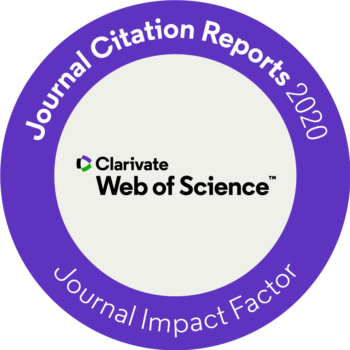
The updated citation metrics have been released in the Journal Citation Reports (JCR), published by Clarivate. The recent release of the JCR includes seventy-one MDPI titles. Out of these, 18 titles are newcomers, receiving a first Journal Impact Factor which is based on citation activity in 2019: Actuators, Agriculture, Biology, Biomedicines, Biosensors, Chemosensors, Children, Healthcare, Journal of Fungi, Journal of Personalized Medicine (JPM), Land, Life, Magnetochemistry, Membranes, Pharmaceuticals, Photonics, Separations and Toxics.
- Out of the previously listed journals, a total of 72 percent boast an increased Impact Factor.
- 25 journals are ranked among the top 25% of journals in at least one of the categories they are ranked for.
- Articles published in 2019 in MDPI journals account for approximately 17 percent of of articles published in gold Open Access journals covered in the Science Citation Index Expanded (SCIE) and Social Sciences Citation Index (SSCI).
First Impact Factors
| Journal | Impact Factor | Rank | Category | Details |
| Actuators | 1.957 | 31/64 (Q2) | • Instruments & Instrumentation | Link |
| Agriculture | 2.072 | 25/91 (Q2) | • Agronomy | Link |
| Biology | 3.796 | 19/93 (Q1) | • Biology | Link |
| Biomedicines | 4.717 | 30/138 (Q1) 36/270 (Q1) |
• Medicine, Research & Experimental • Pharmacology & Pharmacy |
Link |
| Biosensors | 3.240 | 24/86 (Q2) | • Chemistry, Analytical | Link |
| Chemosensors | 3.108 | 16/64 (Q1) 27/86 (Q2) 13/27 (Q2) |
• Instruments & Instrumentation • Chemistry, Analytical • Electrochemistry |
Link |
| Children | 2.078 | 50/128 (Q2) | • Pediatrics | Link |
| Healthcare | 1.916 | 62/102 (Q3) 45/87 (Q3) |
• Health Care Sciences & Services (SCIE) • Health Policy & Services (SSCI) |
Link |
| Journal of Fungi | 4.621 | 5/29 (Q1) 31/135 (Q1) |
• Mycology • Microbiology |
Link |
| Journal of Personalized Medicine | 4.433 | 24/165 (Q1) 10/102 (Q1) |
• Medicine, General & Internal • Health Care Sciences & Services |
Link |
| Land | 2.429 | 58/123 (Q2) | • Environmental Studies (SSCI) | Link |
| Life | 2.991 | 26/93 (Q2) 109/267 (Q2) |
• Biology • Microbiology |
Link |
| Magnetochemistry | 1.947 | 22/45 (Q2) 109/159 (Q3) 201/314 (Q3) |
• Chemistry, Inorganic & Nuclear • Chemistry, Physical • Materials Science, Multidisciplinary |
Link |
| Membranes | 3.094 | 53/143 (Q2) 129/314 (Q2) 23/89 (Q2) |
• Engineering, Chemical • Materials Science, Multidisciplinary • Polymer Science |
Link |
| Pharmaceuticals | 4.286 | 49/270 (Q1) | • Pharmacology & Pharmacy | Link |
| Photonics | 2.140 | 48/97 (Q2) | • Optics | Link |
| Separations | 1.900 | 53/86 (Q3) | • Chemistry, Analytical | Link |
| Toxics | 3.271 | 32/92 (Q2) 92/265 (Q2) |
• Toxicology • Environmental Sciences |
Link |
Updated Impact Factors
| Journal | Impact Factor | Rank | Category | Details |
| Agronomy | 2.603 | 18/91 (Q1) 65/234 (Q2) |
• Agronomy • Plant Sciences |
Link |
| Animals | 2.323 | 10/63 (Q1) 14/142 (Q1) |
• Agriculture, Dairy & Animal Science • Veterinary Sciences |
Link |
| Antibiotics | 3.893 | 23/93 (Q1) 64/270 (Q1) |
• Infectious Diseases • Pharmacology & Pharmacy |
Link |
| Antioxidants | 5.014 | 10/139 (Q1) 56/297 (Q1) 7/61 (Q1) |
• Food Science & Technology • Biochemistry & Molecular Biology • Chemistry, Medicinal |
Link |
| Applied Sciences | 2.474 | 161/314 (Q3) 32/91 (Q2) 88/177 (Q2) 62/154 (Q2) |
• Materials Science, Multidisciplinary • Engineering, Multidisciplinary • Chemistry, Multidisciplinary • Physics, Applied |
Link |
| Atmosphere | 2.397 | 48/93 (Q3) | • Meteorology & Atmospheric Sciences | Link |
| Biomolecules | 4.082 | 98/297 (Q2) | • Biochemistry & Molecular Biology | Link |
| Brain Sciences | 3.332 | 113/271 (Q2) | • Neurosciences | Link |
| Cancers | 6.126 | 37/244 (Q1) | • Oncology | Link |
| Catalysts | 3.520 | 65/159 (Q2) | • Chemistry, Physical | Link |
| Cells | 4.366 | 70/195 (Q2) | • Cell Biology | Link |
| Coatings | 2.436 | 10/21 (Q2) | • Materials Science, Coatings & Films | Link |
| Crystals | 2.404 | 10/26 (Q2) 165/314 (Q3) |
• Crystallography • Materials Science, Multidisciplinary |
Link |
| Diagnostics | 3.110 | 39/165 (Q1) | • Medicine, General & Internal | Link |
| Diversity | 1.402 | 119/168 (Q3) | • Ecology | Link |
| Electronics | 2.412 | 125/266 (Q2) | • Engineering, Electrical & Electronic | Link |
| Energies | 2.702 | 63/112 (Q3) | • Energy & Fuels | Link |
| Entropy | 2.494 | 33/85 (Q2) | • Physics, Multidisciplinary | Link |
| Foods | 4.092 | 27/139 (Q1) | • Food Science & Technology | Link |
| Forests | 2.221 | 17/68 (Q1) | • Forestry | Link |
| Genes | 3.759 | 53/177 (Q2) | • Genetics & Heredity | Link |
| Insects | 2.220 | 18/101 (Q1) | • Entomology | Link |
| International Journal of Environmental Research and Public Health (IJERPH) | 2.849 | 58/193 (Q2) 32/170 (Q1) 105/265 (Q2) |
• Public, Environmental & Occupational Health (SCIE) • Public, Environmental & Occupational Health (SSCI) • Environmental Sciences (SCIE) |
Link |
| International Journal of Molecular Sciences (IJMS) | 4.556 | 74/297 (Q1) 48/177 (Q2) |
• Biochemistry & Molecular Biology • Chemistry, Multidisciplinary |
Link |
| ISPRS International Journal of Geo-Information (IJGI) | 2.239 | 31/50 (Q3) 18/30 (Q3) |
• Geography, Physical • Remote Sensing |
Link |
| Journal of Clinical Medicine | 3.303 | 36/165 (Q1) | • Medicine, General & Internal | Link |
| Journal of Marine Science and Engineering | 2.033 | 31/66 (Q2) | • Oceanography | Link |
| Marine Drugs | 4.073 | 16/61 (Q2) | • Chemistry, Medicinal | Link |
| Materials | 3.057 | 132/314 (Q2) | • Materials Science, Multidisciplinary | Link |
| Mathematics | 1.747 | 28/324 (Q1) | • Mathematics | Link |
| Medicina | 1.205 | 107/165 (Q3) | • Medicine, General & Internal | Link |
| Metabolites | 4.097 | 95/297 (Q2) | • Biochemistry & Molecular Biology | Link |
| Metals | 2.117 | 18/79 (Q1) 185/314 (Q3) |
• Metallurgy & Metallurgical Engineering • Materials Science, Multidisciplinary |
Link |
| Micromachines | 2.523 | 56/92 (Q3) 23/64 (Q2) |
• Nanoscience & Nanotechnology • Instruments & Instrumentation |
Link |
| Microorganisms | 4.152 | 37/135 (Q2) | • Microbiology | Link |
| Minerals | 2.380 | 6/21 (Q2) 11/30 (Q2) |
• Mining & Mineral Processing • Mineralogy |
Link |
| Molecules | 3.267 | 70/177 (Q2) 141/297 (Q2) |
• Chemistry, Multidisciplinary • Biochemistry & Molecular Biology |
Link |
| Nanomaterials | 4.324 | 89/314 (Q2) 42/103 (Q2) |
• Materials Science, Multidisciplinary • Nanoscience & Nanotechnology |
Link |
| Nutrients | 4.546 | 17/89 (Q1) | • Nutrition & Dietetics | Link |
| Pathogens | 3.018 | 65/135 (Q2) | • Microbiology | Link |
| Pharmaceutics | 4.421 | 44/270 (Q1) | • Pharmacology & Pharmacy | Link |
| Plants | 2.762 | 58/234 (Q1) | • Plant Sciences | Link |
| Polymers | 3.426 | 16/89 (Q1) | • Polymer Science | Link |
| Processes | 2.753 | 59/143 (Q2) | • Engineering, Chemical | Link |
| Remote Sensing | 4.509 | 9/30 (Q2) | • Remote Sensing | Link |
| Sensors | 3.275 | 22/86 (Q2) 77/266 (Q2) 15/64 (Q1) |
• Chemistry, Analytical • Engineering, Electrical & Electronic • Instruments & Instrumentation |
Link |
| Sustainability | 2.576 | 120/265 (Q2) 26/41 (Q3) 53/123 (Q2) 6/8 (Q3) |
• Environmental Sciences (SCIE) • Green & Sustainable Science & Technology (SCIE) • Environmental Studies (SSCI) • Green & Sustainable Science & Technology (SSCI) |
Link |
| Symmetry | 2.645 | 29/71 (Q2) | • Multidisciplinary Sciences | Link |
| Toxins | 3.531 | 21/92 (Q1) 34/139 (Q1) |
• Toxicology • Food Science & Technology |
Link |
| Universe | 1.752 | 18/29 (Q3) 42/68 (Q3) |
• Physics, Particles & Fields • Astronomy & Astrophysics |
Link |
| Vaccines | 4.086 | 57/158 (Q2) 50/138 (Q2) |
• Immunology • Medicine, Research & Experimental |
Link |
| Viruses | 3.816 | 12/37 (Q2) | • Virology | Link |
| Water | 2.544 | 31/94 (Q2) | • Water Resources | Link |
Source: Clarivate 2020, InCites Journal Citation Reports®.
13 May 2020
COVID-19 Academic Resources Center

Since 1996, MDPI has been committed to supporting the research community by providing the latest research freely available and making relevant and useful research available as quickly as possible. The world is current experiencing a pandemic of COVID-19, and researchers are working extremely hard to understand it and find a cure.
The values MDPI holds strongly are particularly important at the moment, and we will continue to publish relevant, peer-reviewed research as quickly as possible in open access format. This means that it will immediately be available for researchers, health professionals, and the general public to read, distribute, and reuse. We believe that scientific advancements will be crucial to overcoming this pandemic, and will do everything we can to support researchers working looking for solutions.
COVID-19 Academic Resources Center contains a variety of information related to COVID-19 available from MDPI, including journal articles, special issues, and preprints, among others.
For more information, please visit: https://www.mdpi.com/covid-19
9 April 2020
Free Open Platforms to Support Academics During the COVID-19 Pandemic

As a leading Open Access publisher, MDPI is committed to fostering open scientific exchange in all forms across all disciplines. Due to the outbreak of COVID-19, many researchers have to stay at home and many academic conferences have been cancelled or postponed. In light of these changes, MDPI has adopted numerous initiatives that may help accelerate scientific exchange and provide support to the academics during this period.
Scholarly Community—Encyclopedia
Encyclopedia is an online reference created and curated by active scholars. It aims to highlight the latest research results as well as providing benchmark information for researchers and the general public interested in accurate and advanced knowledge on specific topics.
Comprehensive and Free Literature Database—Scilit
Scilit is a comprehensive, free database for scientists that uses a new method to collate data and index scientific material. Our crawlers extract the latest data from CrossRef and PubMed on a daily basis. This means that newly published articles are immediately added to Scilit.
Display Academic Achievements—SciProfiles
SciProfiles is an innovative social network for researchers and scholars that is developed by MDPI. In line with our broad mission, the purpose of SciProfiles is to accelerate discovery and innovation by facilitating immediate access to research results and providing opportunities for academic networking.
Organize and Participate in Conferences Online—Sciforum
Sciforum is an event planning platform that supports open science by offering the opportunity to host and participate in academic conferences. It provides an environment for scholarly exchange, discussion of topics of current interest, building of networks, and establishing collaborations.
Post Early Versions of Research Outputs—Preprints
Preprints is a platform dedicated to making early versions of research outputs permanently available and citable. We post original research articles and comprehensive reviews, and papers can be updated by authors at any time. Content on Preprints is not peer-reviewed, and feedback can be received from readers.
***
MDPI remains committed to open science and open data and has signed a statement, along with more than thirty scholarly publishers, showing our intention to facilitate sharing of new research findings as early on as possible. The initiative sees publishers collectively removing barriers to new research, in the face of a global healthcare crisis.
31 March 2020
Biomolecules Reaches 2000 Article Milestone

Biomolecules (ISSN 2218-273X) is an international, peer reviewed, and open access journal focusing on biogenic substances, and published monthly online by MDPI. Biomolecules has passed another milestone by publishing the 2000th article since its inception in 2011.
Biomolecules is now indexed in Science Citation Index Expanded (Web of Science), Scopus, and PubMed. Biomolecules received an Impact Factor of 4.694 in 2019, which corresponds to a ranking of 58 out of 298 (80.70%, Q1) in the JCR category 'Biochemistry and Molecular Biology'. Biomolecules’ current CiteScore in Scopus is 5.72, ranking 33 out of 407 (Q1) in the category 'Biochemistry' and 44 out 375 (Q1) in the category 'Molecular Biology'.
Our sincere thanks to the Editor-in-Chief of Biomolecules, Dr. Vladimir N. Uversky, and all Editorial Board members as well as Guest Editors of Special Issues, who ensure the continued significance of the journal.
25 March 2020
MDPI Comment on the COVID-19 Virus
The world is currently suffering from a global pandemic of the corona virus COVID-19. MDPI expresses its sympathies for all of those affected by the virus and stands in solidarity with medical staff and researchers treating patients and searching for scientific solutions.
MDPI has previously published papers covering corona viruses in addition to new papers on the current outbreak, see all papers here. In particular, Viruses has published a number of Special Issues and papers on the topic (see here, here, and here) as well as a forthcoming Special Issue.
Alongside journal articles, MDPI has been a strong supporter of preprints, which are increasingly being used to rapidly disseminate the latest research, and we run the preprint server Preprints.org. Our database of research articles, Scilit, is free to use and covers all publishers including preprint servers. New papers are often in search results within hours of publication and users can set up alerts for new papers.
Our main priority during this period has been the health and safety of staff, and we continue to allow staff to work at home and closely monitor the situation in all locations in which we work. Despite the restrictions, we continue to provide a full publication service and, by close collaboration with our editorial boards and making use our in-house teams, ensure that there are no unnecessary delays in publishing vital research. Fast and open publication has always been at the core of MDPI values and is now more important than ever.
We hope that a solution to the current situation will emerge soon. In the meantime, we will do our best to continue communicating vital research in all fields.
20 March 2020
MDPI Backs Open Pharma Statement on Open Access
MDPI has endorsed Open Pharma’s Position Statement in support of open access publishing with the aim of advancing medical science and ultimately, improving patient care. Open pharma is a group of research funders, healthcare professionals, publishers, academics, and other healthcare stakeholders.
Since its inception in 1996, MDPI’s efforts have aligned with Open Pharma’s vision of more effective and transparent publishing, collaborating internationally with experts to deliver peer-reviewed online research journals to the scientific community and the general public. MDPI publishes 56 journals in the field of Medicine and Pharmacology and is planning to hold the World Pharma Forum in Basel in 2021.
Published under a Creative Commons License, MDPI’s articles can be freely shared and their content re-used, upon proper attribution. In support of the statement, MDPI will continue to uphold its open access policy and provide fast editorial services to ensure that new medical evidence can be read by everyone, without paywall restrictions.
20 March 2020
Meet us at the 43rd Annual Meeting of the Spanish Society of Biochemistry & Molecular Biology (SEBBM 2020) in Barcelona, Spain, 20–23 July 2020

MDPI will be attending SEBBM 2020, held in Barcelona, Spain, 20th–23rd July 2020.
La Sociedad Española de Bioquímica y Biología Molecular (SEBBM) is committed to promoting research links, encouraging years of study, promoting the dissemination of knowledge, improving teaching, and promoting young scientists among Spanish researchers for the international development of Spanish science and to contribute to scientific aspects of the public interest.
The following MDPI journals will be represented:
- Genes (Leading journal)
- Biomolecules (co-leading)
- Brain Sciences
- Biology
- IJMS
- Applied Sciences
- Antibiotics
- Cancers
- Cells
If you are also attending this conference, feel free to stop by our booth (Booth #17). Our delegates look forward to meeting you in person to answer any questions you may have. For more information about the conference, please see the following link:
https://www.sebbm.es/web/es/congresos/congresos-de-la-sebbm/3311-43-congreso-de-la-sebbm-barcelona-2020
18 March 2020
MDPI Co-Signed Position Statement on Transformative Agreements
The advantages of the open access model of scientific publishing are being increasingly recognized in the scientific community. It allows new scientific evidence to be accessed from the moment of publication for free by anyone around the globe, boosting the impact of new research. In response, many funders, libraries and universities have been adopting new principles to accelerate the transition to open access.
Recently, “transformative agreements” have been negotiated between traditional publishers and various institutions. While increasing the number of open access papers, these agreements lack binding commitments to a full transition to open access, their conditions vary across different regions, and access is still limited for many users.
MDPI is a co-signatory of the recent position statement raising concerns about potential downsides of transformative agreements and how they may delay a full transition to open access. The statement highlights that these models “risk perpetuating current limitations on access, transparency and market competitiveness, while simultaneously facilitating excessive charges on the public purse”.
As a pioneering open access journal publisher, MDPI is the first to promote the importance of science being made available to everyone. Our peer-reviewed journals, covering diverse academic disciplines, are fully accessible to the public free of charge under a Creative Commons Attribution License (CC BY). This is why, along with other open access publishers, MDPI is a proud signatory of the position paper and is committed to contributing to the replacement of weak transitional agreements with “agreements with publishers that are already fully committed to open science and who offer full, immediate and transparent Open Access”.
Read the position paper here
16 March 2020
Encyclopedia Outstanding Contributor Awards 2020 - Open for Application
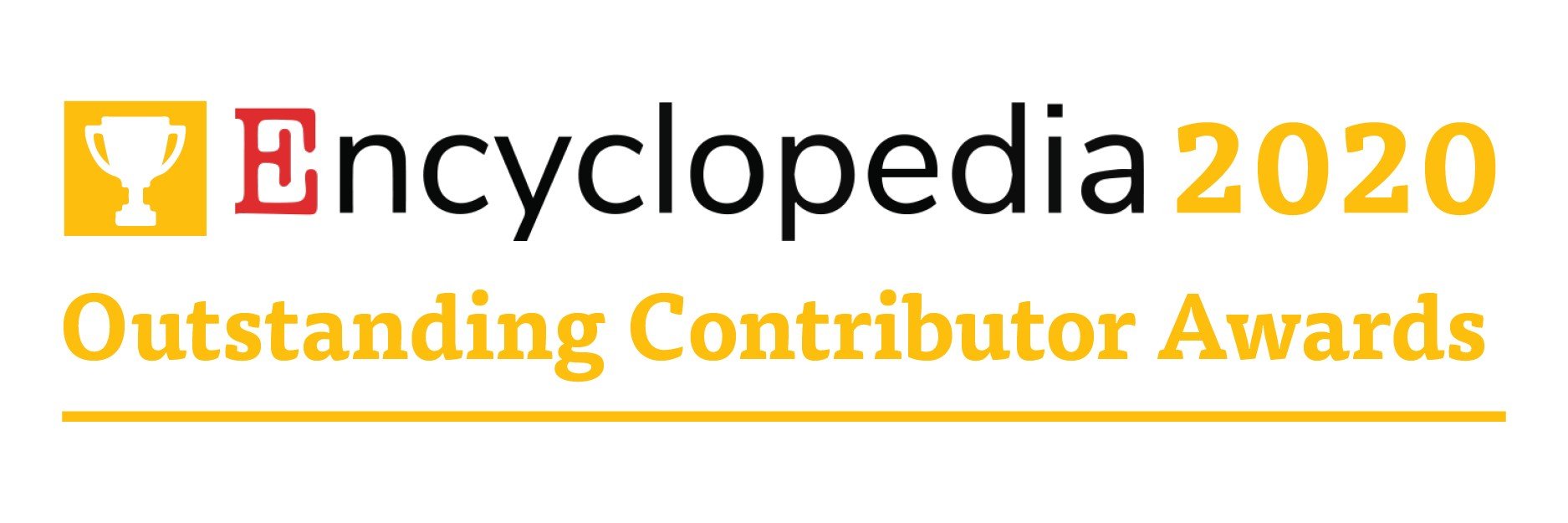
We are pleased to announce that Encyclopedia will be awarding five Outstanding Contributor Awards for researchers in 2020. The nominations and applications will be assessed by an Evaluation Committee consisting of senior scholars from the Encyclopedia Editorial Board.
Prize for Winners
- An official certificate;
- A cash award of 500 CHF or an MDPI discount voucher of 800 CHF.
Application Deadline
31 December, 2020 (Please send your application email with a list of all entries you contributed to our office before the deadline: [email protected])
Candidate Requirements
- Have a Ph.D. degree;
- Have more than three qualified entries published in Encyclopedia in 2020.
Evaluation Standards
- Number of entries published in Encyclopedia in 2020;
- Quality of entries online (including length, figure quality, and novelty);
- Impact of entries (including the number of likes, discussion contents, views, and downloads).
If you are a researcher and have not yet contribute entries to Encyclopedia, please do not miss this chance to highlight your research results.
16 December 2019
Meet Us at SFFRI in Taoyuan, Taiwan, 17–20 March 2020

MDPI will be attending the 20th Biennial Meeting for the Society for Free Radical Research International (SFRRI 2020), Taoyuan, Taiwan, 17-20 March 2020.
The Society for Free Radical Research, founded in the United Kingdom in 1982, is an International Society and operates as a charitable voluntary, non-profit institution. The aims and objectives of the International Society are to advance education in free radical processes with particular reference to their industrial and medical importance, informing education for the benefit of the public. The Society promotes interest in all aspects of research into the reactions and properties of free radicals and into their physical, chemical, biological, medical, and industrial roles. Founded in 1982, and now with over 2500 members worldwide, the Society consists of five autonomous regional groups: SFRR Asia, SFRR Europe, SFRR Australasia, Society for Free Radical Biology and Medicine (SFRR Americas), and SFRR Africa. A number of regional groups have also been established within these areas.
The following MDPI journals will be represented:
- Antioxidants
- Molecules
- Biology
- International Journal of Molecular Sciences (IJMS)
- Medicines
- Biomolecules
- Life
- Metabolites
- Biomedicines
If you are also attending this conference, please feel free to stop by our booth. Our delegates look forward to meeting you in person and answering any questions you may have. For more information about the conference, please visit the website: http://www.sfrri2020.org/.
20 November 2019
Meet Us at ICoFF2019 and ISNFF2019 in Kobe, Japan, 1–5 December 2019

MDPI will be attending the 7th International Conference on Food Factors and the 12th International Conference and Exhibition on Nutraceuticals and Functional Foods (ICoFF2019 / ISNFF2019) in Kobe, Japan, 1–5 December 2019.
With the mission of promoting research into all aspects of basic and applied Food and Nutritional Science, ICoFF held its first conference in 1995 and has continued to hold every four years. ICoFF is one of the largest international conferences for researchers, scientists, professors and students in the field of food factors and their health-promoting effects. ISNFF, founded in 2007, has been focusing on the research and development on materials that can be used as functional foods.
The following MDPI journals will be represented:
If you are also attending this conference, please feel free to stop by our booth (Booth #34). Our delegates look forward to meeting you in person to answer any questions you may have. For more information about the conference, please visit: http://icoff2019.umin.jp/index.html.
11 October 2019
Introducing SciProfiles, an Academic Social Network
MDPI is pleased to announce the release of SciProfiles, its social network platform for researchers and scholars.
The purpose of SciProfiles is aligned with MDPI’s broad mission to accelerate discovery and innovation by facilitating immediate access to research results and to serve scholars and communities by providing opportunities for academic networking.
SciProfiles also ambitions to serve as a sustainable, transparent and community-driven research evaluation system aligned with the DORA principles (https://sfdora.org/). Through their scientific profiles, academics can highlight their contribution to research communities, and measure their impact on their field, beyond publication numbers and impact factors. SciProfiles is currently a beta version and will enrich to give researchers the possibility to highlight all of their contributions to science and their scientific communities as authors, reviewers, editors, conference organizers, conference panelists, conference keynote speakers, or even as lecturers or student mentors at their University.
The classic components of popular community social networks, including follower/following, classical metrics, endorsements and recommendations (https://www.mdpi.com/about/announcements/1690), comments (https://www.mdpi.com/about/announcements/1397) are or will be very soon highlighted in SciProfiles as open science contributions.
To help increase the impact and visibility of articles and their authors to an appropriate audience, the platform offers a NewsFeed that includes recommendations of relevant content based on interests, publication history, saved searches or colleagues’ recommendations.
SciProfiles’ avatars are now being integrated on several MDPI platforms, meaning that you will directly access researchers’ profiles from any of the MDPI platforms:
MDPI's journal publishing website: www.mdpi.com
MDPI's conference hosting and management website: www.sciforum.net
MDPI's pre-print website : www.preprints.org
MDPI's knowledge sharing website : www.encyclopedia.pub
MDPI's books store: www.mdpi.com/books
MDPI's literature database : www.scilit.net
SciProfiles aims to serve scientific communities at large. It can be embedded into third-party websites and also welcomes integration of data from third-parties.
Dr. Shu-Kun Lin: https://sciprofiles.com/profile/2
Dr. Franck Vazquez: https://sciprofiles.com/profile/FranckVazquez
Dr. Martyn Rittman: https://sciprofiles.com/profile/martynrittman
2 October 2019
Winners of the 2019 MDPI Writing Prize
We are delighted to announce the winners of the 2019 MDPI Writing Prize. Entrants were asked to write on the theme "Judging research: How should research and researchers be evaluated and rewarded?" We received a large number of excellent essays from PhD students and postdocs, and the process of shortlisting and choosing winners was not an easy one. The winners demonstrated excellent writing skills alongside interesting and thought-provoking ideas.
As last year, we will begin the process of collating all entries into a book that will be available in open access format. Alongside promoting good writing skills, we see the prize as a way to promote the voices of early career researchers within broader debates and policy discussions.
Congratulations to all of the participants and especially the winners. The winners are:
1st Prize (500 CHF):
Albin Nilsson (National Centre for Nuclear Research, Warsaw, Poland)
[Read here]
2nd Prize (250 CHF):
Qi Zhang (Shandong University, Jinan, China)
[Read here]
Igor Ogashawara (Indiana University, Indianapolis, US)
[Read here]
3rd Prize (100 CHF):
Margaret Sivapragasam (Universiti Teknologi Petronas, Perak, Malaysia)
[Read here]
Arvind Sharma (The University of Queensland, Gatton, Australia)
[Read here]
Jose Flores-Guerrero (University Medical Center Groningen, Groningen, The Netherlands)
[Read here]
The MDPI Writing Prize is an annual award supported by MDPI Author Services, which provides services including language editing, reformatting, plagiarism checks, and image editing.
20 September 2019
MDPI Now Gives Scholars the Possibility to Endorse and Recommend Articles

MDPI is pleased to announce the release of a new functionality giving the possibility for researchers and scholars to endorse, and formally recommend articles to their colleagues.
MDPI was an early signatory of the San Francisco Declaration on Research Assessment (https://sfdora.org/read/) which calls for improvement in how quality and impact of scholarly research outputs are evaluated, especially in moving beyond journal-based citation metrics (journal Impact Factor, Scopus Citescore, etc.).
MDPI supports the establishment of article-level impact metrics, including citations, views, downloads, and Altmetric scores. These measures serve as an impact indicator for research articles on a case–by-case basis, assessing paper on its own merit. However, these metrics are also subjective and can give a biased picture of the article impact: they do not directly reflect the quality or the intrinsic scientific value of the article.
In our view, community engagement with publications based on community-driven metrics can help to overcome this limitation. We have therefore launched an option for scholars to endorse articles, indicating their own assessment of its content and making a recommendation to their community. This follows our implementation of the open source Hypothesis commenting tool, which has been available for all articles published by MDPI for over a year (https://www.mdpi.com/about/announcements/1397). Both endorsement and commenting are available for all previously published and forthcoming MDPI articles.
In addition to potentially serving as a sustainable solution to article assessment, endorsements will help scientific communities to identify the most relevant articles, independently of the journal in which it was published.
The code for the endorsing functionality, which relies on DOIs and ORCIDs, will be made available on GitHub with an open source license.
Dr. Shu-Kun Lin, President and Founder
Dr. Franck Vazquez, Chief Scientific Officer
Dr. Martyn Rittman, Publishing Director
11 September 2019
Meet Us at ASCB|EMBO 2019 in Washington DC, 7–11 December 2019

We are glad to inform you that MDPI will be attending the 2019 joint meeting of the American Society for Cell Biology (ASCB) and European Molecular Biology Organization (EMBO). The 2019 joint meeting of the American Society for Cell Biology (ASCB) and European Molecular Biology Organization (EMBO) will focus on cell biology as the fundamental basis of biology, and will offer sessions on emerging topics such as nontraditional model organisms, and the use of computational modeling and biophysics to "Build the Cell from the Ground Up".
Representatives of the following open-access journals will attend:
Biology
Biomolecules
Brain Sciences
Cancers
Cells
Genes
Healthcare
IJMS
Metabolites
Pathogens
Plants
Processes
Vaccines
If you are also attending this conference, please feel free to stop by our booth (Booth #132). Our delegates look forward to meeting you in person to answer any questions you may have.
11 September 2019
Create an Entry in Encyclopedia to Get a 100 CHF Voucher in Publishing in MDPI Journals
Encyclopedia is a free online reference created and curated by active scholars. It aims to highlight the latest research results as well as provide a comprehensive record of scientific development. If you have any suggestions or questions, please feel free to contact us via [email protected].

30 August 2019
Biomolecules Reaches 1000 Articles Milestone
Biomolecules, MDPI's open access journal of biogenic substances, has published more than one thousand papers since its inception in 2011. Biomolecules is covered in the Science Citation Index Expanded in Web of Science and received its first Impact Factor of 4.694 for 2018. The journal ranks 33/407 (Q1) in 'Biochemistry' and 44/375 (Q1) in 'Molecular Biology'.
The main focus of the journal remains on biogenic substances including but not limited to proteins, nucleic acids, polysaccharides, membranes, lipids, metabolites, etc.
Biomolecules publishes original research including but not limited to the following topical areas: small molecules; monomers; polymers.
Our sincere thanks go to the Editors of Biomolecules, Dr. Vladimir N. Uversky, Dr. Prakash Kulkarni, Dr. Lukasz Kurgan, and Assoc. Prof. Dr. Irina Nesmelova as well as to the numerous Guest Editors of Special Issues, who have ensured the continued significance of the journal.
6 August 2019
Preprints Reaches 10,000 Posted Articles Milestone
We are pleased to announce that Preprints has passed the milestone of 10,000 posted preprints. We are delighted to have reached this after just over three years of operation. Our congratulations and thanks go to our authors and advisory board who have supported growth of the platform and been crucial to its operation.
You can find further details at https://www.preprints.org/announcement/show/37.
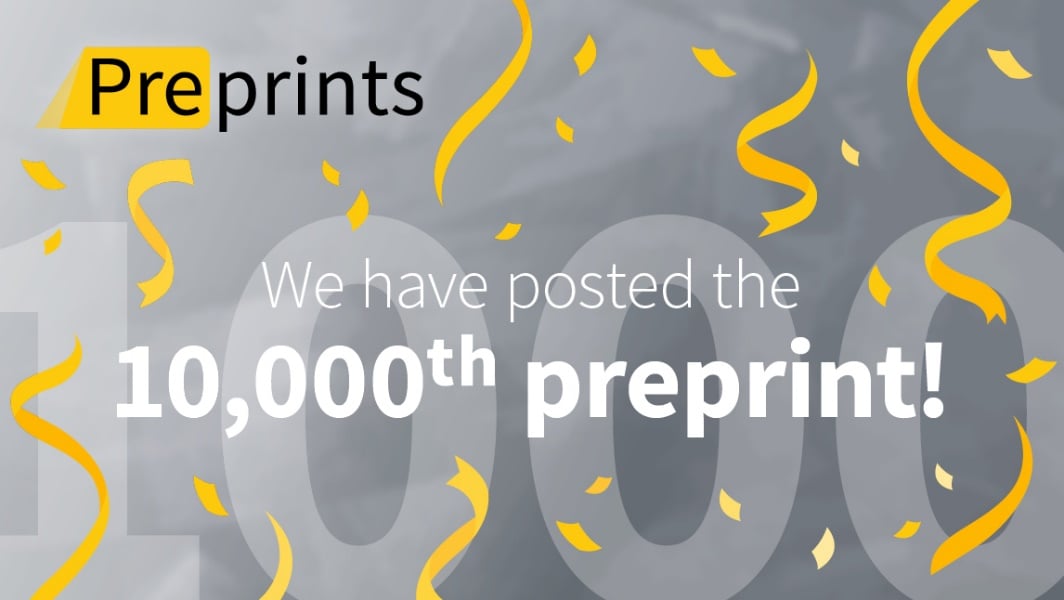
2 August 2019
DeepGreen Partnering with Publishers and Universities in Distributing Open Access Content to Institutional Repositories
Last week, the DeepGreen initiative in Germany started into an advanced test phase with the publishing partners S. Karger AG, SAGE Publishing, MDPI, Frontiers and De Gruyter, as well as 27 universities from all over Germany, from Hamburg University of Applied Sciences to University of Konstanz.
DeepGreen aims at lowering the barriers for open access publishing by automatically delivering metadata and full text publications from participating publishers to authorized repositories at German universities.
In preparation for a later live operation, the advanced test phase serves to gain experience with extensive data deliveries from publishers and also handling different repository software (including OPUS4, DSpace, EPrints, MyCoRe). DeepGreen thereby acts as a sophisticated platform, receiving articles published by authors affiliated with German universities and depositing these articles to respective university repositories, based on the affiliation metadata. For more information about DeepGreen: https://deepgreen.kobv.de
Karger AG has been a close cooperation partner of the DeepGreen consortium since 2016. S. Karger has more than 80 subscription-based and around 20 open access journals covering a wide spectrum in health science. DeepGreen will assign S. Karger articles to authorized institutions on the legal basis of German alliance and national licenses.
SAGE Publishing was founded by Sara Miller McCune in 1965 to support the dissemination of usable knowledge and educate a global community. SAGE publishes more than 1,000 journals and over 600 new books each year, spanning a wide range of subject areas. Our growing selection of library products includes archives, data, case studies and video. SAGE remains majority owned by our founder and after her lifetime will become owned by a charitable trust that secures the company’s continued independence. Principal offices are located in Los Angeles, London, New Delhi, Singapore, Washington DC and Melbourne. SAGE Publishing has been a close cooperation partner of DeepGreen since 2016.
MDPI is a scientific open access publisher and has been a partner of DeepGreen since 2017. MDPI comprises 205 peer-reviewed journals of various disciplines. All articles are published under a CC-BY license and are freely available without embargo period.
Frontiers is a scientific open access publisher with 61 journals of over 600 academic disciplines. All articles are peer-reviewed and published freely available under CC-BY license.
De Gruyter is an academic publisher with more than 700 subscription-based and open access journals of 29 disciplines. Articles provided by De Gruyter will be assigned to institutions with German alliance and national licenses.
There is promising communication with other publishers.
DeepGreen is funded by the German Research Foundation (DFG) and the consortium comprises six institutions: the Cooperative Library Network Berlin-Brandenburg, Bavarian State Library, Bavarian Library Network, University Library of the Technische Universität Berlin, University Library of Erlangen-Nuremberg and the Helmholtz Open Science Coordination Office at the GFZ German Research Centre for Geosciences.
If you would like to know in more detail which institutions take part in the advanced test phase of DeepGreen, you can find more information here.
17 July 2019
First Basel Sustainable Publishing Forum
The University of Basel and the MDPI Sustainability Foundation are organizing the First Basel Sustainable Publishing Forum on 9th September 2019.
The aim of this event is to provide background and perspectives on Plan S to Learned Societies, which have to make well-informed decisions to transition their journals to Open Access (OA).
The BSPF will bring together several representatives of Learned societies, Plan S architects as well as representatives from various publishers and publishing platforms. After getting the big picture from cOAlition S, panel discussions will allow to better understand the diverse challenges that Learned societies are facing to transition their journals to OA as well as to identify sustainable, implementable and scalable solutions for successful Open Access transition.
For program details and registration, please follow the link below:
https://sciforum.net/conference/SustainableSolutionsToOpenAccess
20 June 2019
Biomolecules Receives First Journal Impact Factor of 4.694
We are pleased to announce that Biomolecules has received a first Impact Factor in the latest Edition of the Journal Citation Reports®, published by Clarivate Analytics in June 2019.
Biomolecules is covered in the Science Citation Index Expanded (SCIE) in Web of Science and received a first Impact Factor of 4.694. The journal ranks 58/298 (Q1) in the 'BIOCHEMISTRY & MOLECULAR BIOLOGY' category.
The Journal Citation Reports®, 2019 release, is a Clarivate Analytics product.
18 June 2019
Meet Us at the 42nd Congress of the Spanish Society of Biochemistry and Molecular Biology in Madrid, Spain, 16–19 July 2019

We will be attending the 42nd Congress of the Spanish Society of Biochemistry and Molecular Biology. The conference aims to organize a balanced and top-quality scientific program, holding Plenary talks delivered by leading voices in Biochemistry and Molecular Biology, three parallel sessions of Symposia, workshops of the multiple scientific groups of the Society, and participation of many students and postdocs with contributed talks and posters. Representatives of the following open access journals will attend:
Cells
Healthcare
Plants
Cancers
Genes
Biomolecules
If you are also attending this conference, please feel free to stop by our booth (Booth #15). Our delegates look forward to meeting you in person to answer any questions you may have. For more information about the conference, please visit: https://congresosebbm.madrid2019.es/welcome/.
11 April 2019
Meet Us at the 46th Controlled Release Society Annual Meeting & Exposition

We will be attending the 46th Controlled Release Society Annual Meeting & Exposition. It is one of the biggest events in pharmaceutical field. Representatives of the following open access journals will attend:
Pharmaceutics
JCM
Biomolecules
Materials
IJMS
Molecules
Nanomaterials
Pharmaceuticals
Scientia Pharmaceutica
Vaccines
JPM
Genes
JFB
IJERPH
Biomedicines
Healthcare
If you are also attending this conference, please feel free to stop by our booth (Booth #303). Our delegates look forward to meeting you in person to answer any questions you may have. For more information about the conference, please visit: https://2019.controlledreleasesociety.org/
2 April 2019
The Spanish Society for Biochemistry and Molecular Biology (SEBBM) is Now an Affiliated Society Member of Biomolecules, Cells and Genes
In January 2019, the the Spanish Society for Biochemistry and Molecular Biology (SEBBM) became affiliated to Biomolecules, Cells and Genes. As part of this collaboration, all members of SEBBM enjoy a discount on the article processing charges (APC) when submitting articles to these three journals.
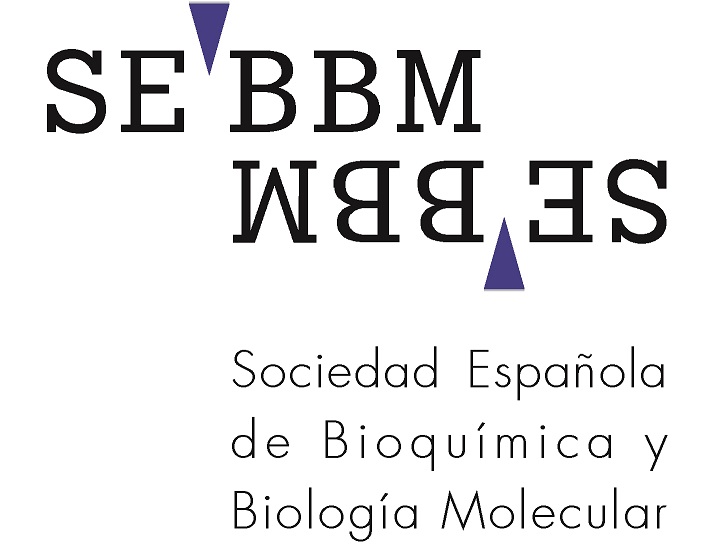
The Spanish Society for Biochemistry and Molecular Biology (SEBBM), founded in 1963, currently has more than 3’700 members and is Spain's main scientific association coordinating activities related to the broad field of Biochemistry and Molecular Biology. The SEBBM is one of the founding societies of FEBS (the Federation of European Biochemical Societies) and COSCE (the Confederation of Scientific Societies of Spain).
Among the major goals of the society are to facilitate interaction among researchers in this field as well as between researchers and life science companies; to encourage young scientists; and to give scientists, and more particularly biochemists and molecular biologists, a voice in society.
SEBBM is a professional organization whose functions are highly relevant to the scope of Biomolecules, Cells and Genes. We look forward to collaborating with SEBBM and publishing state-of-the-art research from its members in this field.
20 March 2019
Fostering Open Access Publishing Worldwide: New IOAP Participants in February and March 2019
We are pleased to welcome more universities from Poland, Italy, Germany, Brazil and other parts of the world to MDPI's Institutional Open Access Program (IOAP). A warm welcome to the institutions listed below, who have joined the Program in February and March this year.
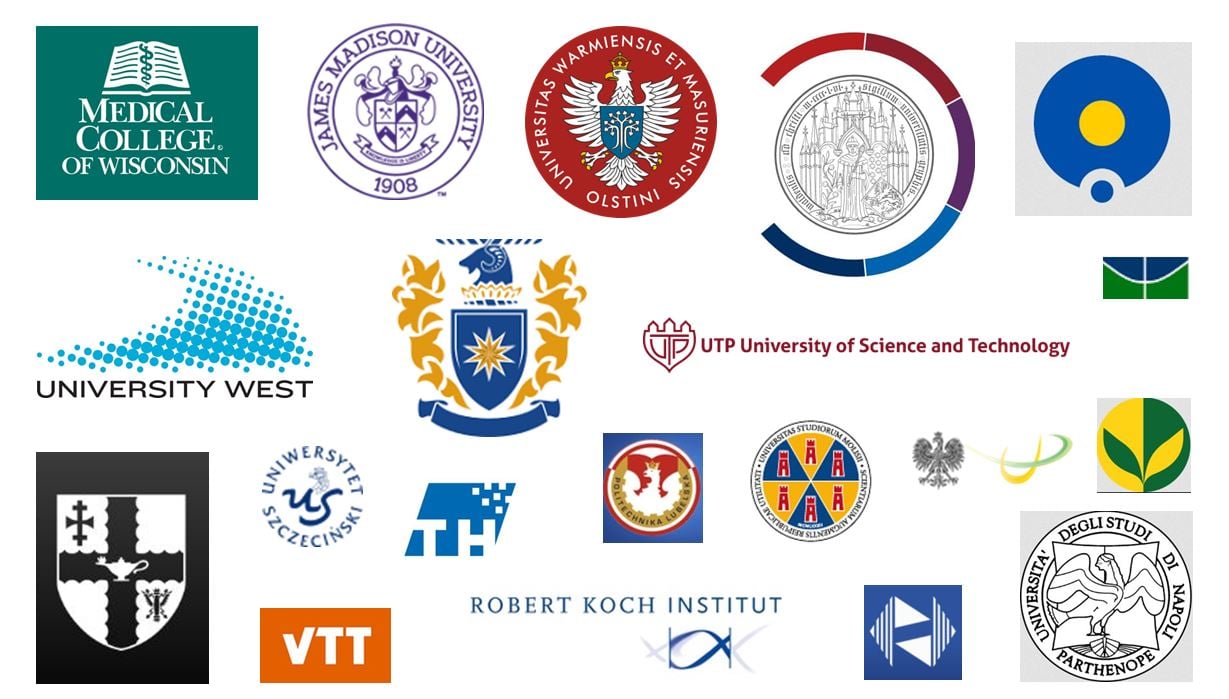
Authors affiliated with these institutions can now enjoy a discount on the APC for papers accepted for publication in any MDPI journal. If you would like to learn more about our program, please visit: https://www.mdpi.com/about/ioap or email us at [email protected].
8 March 2019
Meet Us at the ACS National Meeting & Exposition in Orlando, 31 March – 4 April 2019

We will be attending the ACS 2019 National Meeting & Exposition. It is an interdisciplinary forum open to anyone with an interest in chemistry and related disciplines. Representatives of the following open access journals will attend:
Biomolecules
Catalysts
Diagnostics
Fibers
Inorganics
Materials
Membranes
Micromachines
Molbank
Molecules
Pharmaceuticals
Processes
If you are also attending this conference, please feel free to stop by our booth (Booth #1123). Our delegates look forward to meeting you in person to answer any questions you may have. For more information about the conference, please visit: https://www.acs.org/content/acs/en/meetings/national-meeting.html
5 March 2019
MDPI Joins Jisc’s Publications Router Service
We are delighted to announce our participation in Jisc’s Publication Router project, as of March 2019.
Publications Router is a Jisc service that automatically sends notifications about research articles to institutions' systems such as their repositories or CRISs, since May 2015. Through this agreement, MDPI will provide Jisc with daily feeds and information regarding published articles, which will be gathered by their system and delivered to institutions also registered to this service. Nearly all of our articles are published within 15 days of acceptance, so institutions will receive them quite promptly.
The feed will include the full text of the published version of record, with no embargo, so the articles can be exposed immediately for public view. They are accompanied by rich metadata, including confirmation of the immediate CC BY licence, minimising the need for any manual intervention or checking.
For more information about Publications Router, you may contact Jisc’s central helpdesk at [email protected]. For any queries about MDPI’s institutional agreements and collaborations, you may get in touch with MDPI’s Institutional Engagement team at [email protected], which would be very happy to hear from further UK institutions.
1 February 2019
2018 MDPI Top Reviewer Award—Winners Announced
Rigorous peer-review is the cornerstone of high quality academic publishing. Over 97,000 scholars served as reviewers for MDPI journals in 2018. We are extremely appreciative of all those who made a contribution to the editorial process in this capacity. At the beginning of every year, journal editorial offices publish a list all reviewers’ names to express our gratitude. In addition, this year the “MDPI Top Reviewer Awards” are announced, to recognize the very best reviewers for their expertise, dedication, high quality, and timely review reports. We are pleased to announce the following winners of the 2018 MDPI Top Reviewer Awards:
- Ali Behnood
- Andrea Pezzuolo
- Angela Gorgoglione
- Anna D'Auria
- Antonio D'Andrea
- Azhar Abbas
- Bogdan Zagajewski
- Chunhui Chen
- Dominika Głąbska
- Dominika Guzek
- Dragan Pamucar
- Francisco J. G. Silva
- Frank Li
- Gianluca Serafini
- Gyorgy Szekely
- Haozhi Pan
- Helvi Heinonen-Tanski
- José Manuel Gómez-Soberón
- Kathy Lewis
- Klara Kosova
- Luis N. López De Lacalle
- M. Z. Naser
- Malwina Tytła
- Masoume Amirkhani
- Matteo Ghidelli
- Moretti Laura
- Petra Schneider
- Roberto Cerchione
- Spyros Papaefthymiou
- Ştefan Cristian Gherghina
24 January 2019
JAMS Journals: A Low-Cost Publishing Platform

Since 2010, MDPI has run its own online submission system. More recently, we have made the software, with accompanying publishing services, available to other publishers as JAMS (Journal and Article Management System). We are now delighted to announce the launch of JAMS Journals, a standardized platform for operating open access journals at low cost.
JAMS Journals provides a comprehensive service, including a shared submission website, journal websites hosted at a URL provided by the publisher, and a full production service. There is a small setup fee and the cost for each published paper is just a few hundred Swiss francs.
The platform demonstrates that running an open access journal can be straightforward and affordable. The JAMS Journals platform is suitable for
- small publishers or groups of scholars looking to launch their own journal;
- existing publishers or societies seeking to explore open access options;
- publishers looking to convert an existing subscription journal to open access.
JAMS journals launches with two journals from Canadian-based publisher Etcetera Publications:
- Canadian Journal of Pesticides & Pest Management (http://www.cjppm.ca)
- Nanotechnology in Agriculture, Food & Environment (http://www.nanoafe.ca)
Dr AJ Al-Rajab (President of Etcetera Publications) comments:
“In the past few months, we were working on our project to launch new open access scientific journals in the field of agricultural and environmental sciences. We decided to go with JAMS for this venture because of the high quality of their services, reasonable prices, professionalism and easy communication. Our portfolio is expected to grow rapidly during 2019 to include more titles covering different areas in agriculture and environment. MDPI earned already our complete satisfaction and we are looking for a long term cooperation.”
Alongside the new platform, we continue to provide flexible, tailored journal management solutions for existing publishers. For any questions or to request a quotation, contact Dr. Constanze Schelhorn ([email protected]).
24 January 2019
Popularity of Preprints Continues to Grow

2018 was a great year for preprints, with increasing numbers of authors looking to make their papers available online before peer review. Along with other preprint servers, our platform Preprints.org saw an increase in the uptake from authors, and more than double the number of announced papers compared to 2017. In fact, we recently passed two important milestones: 8000 preprints online and 30,000 authors.
We believe that the whole research community has the opportunity to benefit from work being available online as early as possible. We thank and congratulate our authors for supporting us to make this goal a reality.
In 2019, we will be looking carefully at how to provide better value for authors, maintain efficiency while growing in size, and make sure we remain well-connected with the research community.
If you want to participate, you can consider screening preprints or joining our advisory board. And, of course, posting your own work.
9 January 2019
Open Access Agreement between the Austrian Academic Library Consortium (KEMÖ), the Austrian Science Fund (FWF), and MDPI

We are delighted to announce the establishment of our national Open Access agreement with the Austrian Academic Library Consortium (KEMÖ) and the Austrian Science Fund (FWF). Through this national agreement, the Austrian institutions listed below as well as FWF will cover the Article Processing Charges (APC) of manuscripts published by eligible corresponding or funded authors in MDPI journals as long as central funds are available.
All participating institutions have gained access to the MDPI online submission system where they can find full article metadata and pricing information as well as Funder and Grant ID details for easy identification and additional transparency. At the same time eligible authors are benefited from an APC discount which comes at no cost for the institutions.
Eligible corresponding authors affiliated with the participating institutions are prompted to choose the corresponding Institutional Open Access Program (IOAP) when they submit an article via our online submission system. The program will be selected automatically if authors submit their papers using their institutional email address. To claim their discount, FWF funded authors should choose the particular funder and add their Grant ID upon online submission of their manuscript. The institutions will then crosscheck the information and confirm the APC funding.
Eligible authors that have their APC covered by their institution or funder are advised to include the following sentence in their acknowledgments: "Open Access Funding by the [name of the institution/funder]".
The full text of the agreement is openly available online at: http://doi.org/10.5281/zenodo.2536007
For any questions about the agreement, please contact the KEMÖ Consortium at [email protected], FWF at [email protected], or the MDPI IOAP team at [email protected].
The Austrian institutions participating in this agreement are:
- Austrian Science Fund (FWF)
- University for Continuing Education Krems
- University of Applied Sciences BFI Vienna
- University of Applied Sciences Upper Austria
- University of Applied Sciences Technikum Wien
- Vorarlberg University of Applied Sciences
- International Institute for Applied Systems Analysis (IIASA)
- Institute of Science and Technology Austria
- MCI Management Center Innsbruck
- University of Graz
- University of Linz
- University of Salzburg
- Graz University of Technology
- TU Wien
- University of Veterinary Medicine Vienna
- University of Vienna
This is our first collective agreement with a national library consortium, while the individual institutions around the world participating in our IOAP are now more than 500 - see details here: https://www.mdpi.com/about/ioap. We would be mostly interested in discussing about possible collaborations with other consortia, funders, and institutions in our mutual efforts to accelerate Open Access.
2 January 2019
Encyclopedia—the Scholarly Community Encyclopedia

We are pleased to announce the new platform Encyclopedia, which is an online reference created and curated by active scholars. It aims to highlight the latest research results as well as providing benchmark information for researchers and the general public interested in accurate and advanced knowledge on specific topics.
We encourage authors of review articles to quote and adapt the content of their published papers to create Encyclopedia entries. You can create completely new entries on topics in which you have knowledge and expertise. There is no limit on the topics or research fields. All of science and the humanities are included. Each entry will be published directly after submission.
We also have prepared a DOI application function in Encyclopedia. Once a DOI application is approved, the entry website will announce the DOI number and a pdf version with DOI information will be automatically created.
We look forward to your contributions and hope you will make use of this service. Find more about the service at: https://encyclopedia.pub/
18 December 2018
Intrinsically Disordered Proteins and the Janus Challenge
On behalf of the Editors-in-Chief, Dr. Prakash Kulkarni and Dr. Vladimir N. Uversky, we are pleased to present the Janus Challenge.
The Janus Challenge consists in identifying an intrinsically disordered protein (IDP), naturally occurring or synthetic, that has catalytic activity. Meeting this challenge may not only shed new light and even provide an alternative to the RNA world hypothesis, but may also serve as an impetus for technological advances with important biomedical applications. As a reward, we offer to publish the research article reporting results that meet this challenge in Biomolecules free of charge.
A more comprehensive description of the Janus Challenge and the selection criteria for the reward was published as an Editorial in the journal Biomolecules: https://www.mdpi.com/2218-273X/8/4/179
In order to support the Janus Challenge and improve the communication within the IDP community, we have opened the discussion group “Intrinsically Disordered Proteins and the Janus Challenge”, which is publicly available at the following Sciforum site: https://sciforum.net/discussiongroup/display/IDPs_and_the_janus_challenge. Therewith, we aim to set in motion a debate in which every scientist can share their interesting ideas and points of views regarding the science behind the Janus Challenge.
30 October 2018
Institutional Open Access Agreement between Bill and Melinda Gates Foundation and MDPI

We are delighted to announce that the Bill and Melinda Gates Foundation (BMGF) is now a participant of our Institutional Open Access Program (IOAP). Authors funded by the BMGF can enjoy discounts on the APC, while the funder covers the costs of eligible articles centrally. BMGF also has access to the MDPI online submission system where they can find full article metadata and pricing information as well as Grant ID details for easy identification and additional transparency.
We hope that funded authors find the programme beneficial and we are happy to offer our IOAP to other funders that need a streamlined workflow of compliance checking and APC coverage.
To claim their discount, BMGF funded authors should choose the particular funder and add their Grant ID upon online submission of their manuscript.
For any questions about the BMGF agreement, please contact the funder at [email protected] or the MDPI IOAP team at [email protected].
11 October 2018
Meet Us at the NanoBio&Med2018 conference in Barcelona, Spain, 20–22 November 2018

MDPI will be attending NanoBio&Med2018, to be held in Barcelona, Spain, 20–22 November 2018.
This conference presents the most recent international developments in the field of Nanobiotechnology and Nanomedicine. Emerging and future trends of the converging fields of Nanotechnology, Biotechnology and Medicine will be discussed among industry, academic, governmental and non-governmental institutions and the conference will provide a platform for multidisciplinary communication.
The following MDPI journals will be represented:
If you are also attending this conference, please feel free to stop by our booth. Our delegates look forward to meeting you in person to answer any question you may have. For more information about the conference, please visit: http://www.nanobiomedconf.com/NBM18/index.php
2 October 2018
MDPI Welcomes Plan S
Recently, it was announced that a group of European funders supported 10 principles that will help to expand open access, known as Plan S. MDPI warmly welcomes this move as a step towards achieving more open and accessible communication of research across all disciplines. Some aspects remain to be clarified, however the details given so far match the aims and values that MDPI has held over the past two decades.

We believe that open access publishers should be active participants in discussions around Plan S, particularly regarding potential new business models and practical aspects of implementation. MDPI supports APCs as a transparent unit of payment for article publishing, however we are committed to exploring other measures and recently signed the Jussieu Call. Sustainability is a key value for MDPI, and future funding models should have at their heart the sustainability of knowledge and research dissemination. Plan S provides an opportunity for funders and publishers to directly discuss funding of open access journals in ways that are beneficial to all parties involved.
30 August 2018
MDPI establishes Open Access agreement with Qatar National Library

We are happy to announce the establishment of an Open Access (OA) agreement with Qatar National Library (QNL). QNL is committed to supporting and helping Qatar authors publish OA at no cost. Through this national agreement, QNL will cover the Article Processing Charges (APC) of manuscripts published by Qatar-based corresponding authors in MDPI journals.
Eligible corresponding authors affiliated with Qatar research centers and universities are prompted to choose QNL as part of our Institutional Open Access Program (IOAP) when they submit an article via our online submission system. The program will be selected automatically if authors submit their papers using their institutional email and/or a computer registered with the institution’s IP range. QNL will then crosscheck the information and confirm the APC funding.
Qatar authors that have their APC covered by QNL are advised to include the following sentence in their acknowledgments: "The publication of this article was funded by Qatar National Library".
For more information, please visit Open Access at QNL or email the QNL Open Access team at [email protected].
6 June 2018
Dr. Vladimir N. Uversky Appointed Editor-In-Chief of Biomolecules
We are pleased to announce that Dr. Vladimir N. Uversky has been appointed Editor-in-Chief of the open access journal Biomolecules (ISSN 2218-273X). Vladimir N. Uversky is an Associate Professor at the Department of Molecular Biology at the University of South Florida. He has a PhD in Biophysics (Moscow Institute of Physics and Technology, 1991), as well as a DSc in Biophysics (Institute of Experimental and Theoretical Biophysics, Russian Academy of Sciences, 1998).

In addition to being the Editor-in-Chief of Biomolecules, Vladimir serves as a Co-Editor-in-Chief for the “Molecular Biophysics” Section of the International Journal of Molecular Sciences (IJMS), an Executive Editor of the Biochemistry and Biophysics Reports; Section Editor for the Biochemistry, Biophysics, Molecular Biology Section of the PeerJ, an Academic Editor for Protein and Peptide; an Associate Editor for the Biochimica et Biophysica Acta—Proteins and Proteomics, Current Protein and Peptide Science, and Frontiers in Protein Folding, Misfolding and Degradation; and an Editorial Board Member of more than 10 journals in the fields of protein science and bioinformatics. He was a Co-Founder and one of the first council members (2007–2010) of the Intrinsically Disordered Proteins Subgroup of the Biophysical Society. He also co-founded the “Intrinsically Disordered Proteins” Gordon Research Conference.
Vladimir’s research interests include experimental studies on protein folding, misfolding and aggregation, as well as experimental and computational characterization of intrinsically disordered proteins (i.e., biologically active without unique structures). His work on different aspects of protein physics has received international recognition. Each year from 2014–2017, he was selected as a Thomson Reuters Highly Cited Researcher.
We warmly welcome Dr. Vladimir N. Uversky as our Editor-in-Chief and look forward to his valuable input for the continued success of Biomolecules.
31 May 2018
Biomolecules 2017 CiteScore™ Announced - 5.72
We are pleased to report Biomolecules received a CiteScore of 5.72 for 2017. The metric reflects citation activity in 2017 in Scopus for papers published in the period 2014‒2016.
Biomolecules ranks in the Top 10% of journals in the 'Biochemistry' category.
For the full details in the current CiteScore release, please see the journal's Source profile. To check the full list of MDPI journals receiving CiteScores, please see here.
31 May 2018
2017 CiteScore™ Metrics Released
The 2017 CiteScore™ data is available now, based on citation data in the Scopus® database. The current CiteScore reflects citation activity in 2017 for articles published in 2014‒2016. Please note that the list below includes journals assigned a CiteScore in this year’s release. For a full list of journals indexed in Scopus, please see our journal list.
Thirteen of our journals received a CiteScore which is in the top 10% of the distribution in at least one of the categories (marked with * in the table below), while a further 32 journals exhibit scores that are in the first quartile of the respective categories.
To access the full data for MDPI journals, please see here. More data can also be found in SJR Scimago Journal & Country Rank.
Unlike CiteScores and the widely used Journal Impact Factors, the Source Normalized Impact per Paper (SNIP) metrics are normalized in order to correct for differences in citation practices between scientific fields. Therefore, the SNIP allows direct comparison between journals specialized in different fields.
According to 2017 data, MDPI publishes six journals with an average citation impact, or SNIP, in excess of 1.500. These journals are Biomolecules, Cancers, Journal of Clinical Medicine (JCM), Marine Drugs, Remote Sensing and Sensors (see the last column in the table below).
CiteScore Data for MDPI Journals
| Journal | Rank (Quartile) |
Category | Link | CiteScore 2017 | 2016 |
2015 |
SNIP 2017 |
| Aerospace | 43/116 (Q2) | • Aerospace Engineering | Link | 1.23 | - | - | 1.152 |
| Agriculture | 69/309 (Q1) 91/398 (Q1) 78/255 (Q2) |
• Agronomy and Crop Science • Plant Science • Food Science |
Link | 1.93 | - | - | 1.133 |
| Agronomy | 46/309 (Q1) | • Agronomy and Crop Science | Link | 2.38 | - | - | 1.115 |
| Algorithms | 22/46 (Q2) 61/125 (Q2) 60/107 (Q3) 64/114 (Q3) |
• Numerical Analysis • Computational Mathematics • Computational Theory and Mathematics • Theoretical Computer Science |
Link | 1.03 | 1.15 | 1.07 | 0.749 |
| Animals | 12/154 (Q1) * 48/367 (Q1) |
• General Veterinary • Animal Science and Zoology |
Link | 2.02 | 1.46 | 1.66 | 1.099 |
| Antibiotics | 6/68 (Q1) * 62/263 (Q1) 55/230 (Q1) 31/108 (Q2) 47/134 (Q2) 139/398 (Q2) |
• General Pharmacology, Toxicology and Pharmaceutics • Infectious Diseases • Pharmacology (medical) • Microbiology (medical) • Microbiology • Biochemistry |
Link | 2.85 | 1.65 | - | 0.975 |
| Antibodies | 43/143 (Q2) 61/164 (Q2) 85/189 (Q2) |
• Drug Discovery • Immunology and Allergy • Immunology |
Link | 2.85 | - | - | 0.844 |
| Antioxidants | 23/119 (Q1) 35/169 (Q2) 100/398 (Q2) 119/367 (Q2) 102/264 (Q2) |
• Clinical Biochemistry • Physiology • Biochemistry • Molecular Biology • Cell Biology |
Link | 3.42 | - | - | 1.361 |
| Applied Sciences | 48/270 (Q1) 15/66 (Q1) 31/116 (Q2) 18/53 (Q2) 151/434 (Q2) 186/535 (Q2) |
• General Engineering • Fluid Flow and Transfer Processes • Instrumentation • Process Chemistry and Technology • General Materials Science • Computer Science Applications |
Link | 1.90 | - | - | 0.801 |
| Biology | 12/177 (Q1)* 32/186 (Q1) 10/40 (Q1) |
• General Agricultural and Biological Sciences • General Biochemistry, Genetics and Molecular Biology • General Immunology and Microbiology |
Link | 3.48 | 3.02 | 2.78 | 0.961 |
| Biomolecules | 31/398 (Q1) * 41/367 (Q1) |
• Biochemistry • Molecular Biology |
Link | 5.72 | 1.67 | 3.08 | 1.542 |
| Biosensors | 20/119 (Q1) | • Clinical Biochemistry | Link | 3.59 | 2.83 | 2.37 | 1.122 |
| Brain Sciences | 47/111 (Q2) | • General Neuroscience | Link | 2.56 | - | - | 0.695 |
| Cancers | 26/323 (Q1) * 23/191 (Q1) |
• Oncology • Cancer Research |
Link | 5.82 | 5.02 | 4.07 | 1.567 |
| Catalysts | 32/151 (Q1) 21/46 (Q2) |
• Physical and Theoretical Chemistry • Catalysis |
Link | 3.23 | 3.44 | 3.45 | 0.954 |
| Crystals | 76/272 (Q2) 140/434 (Q2) 127/398 (Q2) 26/64 (Q2) |
• General Chemical Engineering • General Materials Science • Condensed Matter Physics • Inorganic Chemistry |
Link | 1.97 | 1.89 | 1.47 | 0.745 |
| Diagnostics | 49/119 (Q2) | • Clinical Biochemistry | Link | 2.43 | - | - | 0.788 |
| Diversity | 30/124 (Q1) 14/52 (Q2) 83/306 (Q2) 11/29 (Q2) |
• Nature and Landscape Conservation • Agricultural and Biological Sciences (miscellaneous) • Ecology • Ecological Modelling |
Link | 2.15 | 2.03 | 1.96 | 1.300 |
| Electronics | 109/644 (Q1) 26/148 (Q1) 42/224 (Q1) 50/259 (Q1) 23/96 (Q1) |
• Electrical and Electronic Engineering • Hardware and Architecture • Control and Systems Engineering • Computer Networks and Communications • Signal Processing |
Link | 2.97 | - | - | 1.227 |
| Energies | 6/73 (Q1) * 31/192 (Q1) 103/644 (Q1) 4/16 (Q1) 47/140 (Q2) |
• Control and Optimization • Energy Engineering and Power Technology • Electrical and Electronic Engineering • Energy (miscellaneous) • Renewable Energy, Sustainability and the Environment |
Link | 3.11 | 2.50 | 2.87 | 1.340 |
| Entropy | 35/202 (Q1) | • General Physics and Astronomy | Link | 2.41 | 1.87 | 1.99 | 1.189 |
| Forests | 17/129 (Q1) | • Forestry | Link | 2.31 | 2.06 | 1.76 | 0.990 |
| Future Internet | 132/259 (Q3) | • Computer Networks and Communications | Link | 1.25 | - | - | - |
| Games | 132/187 (Q3) 78/110 (Q3) 305/418 (Q3) |
• Statistics and Probability • Statistics, Probability and Uncertainty • Applied Mathematics |
Link | 0.61 | 0.87 | 0.57 | 1.038 |
| Genes | 21/91 (Q1) 74/311 (Q1) |
• Genetics (clinical) • Genetics |
Link | 3.49 | 3.62 | 3.18 | 0.374 |
| Geosciences | 32/182 (Q1) |
• General Earth and Planetary Sciences | Link | 1.97 | 1.67 | 1.29 | 0.856 |
| Information | 143/251 (Q3) | • Information Systems | Link | 1.16 | 0.78 | 0.94 | 1.146 |
| Insects | 27/135 (Q1) | • Insect Science | Link | 1.85 | 1.81 | 1.38 | 0.719 |
| International Journal of Environmental Research and Public Health (IJERPH) | 80/478 (Q1) 34/106 (Q2) |
• Public Health, Environmental and Occupational Health • Health, Toxicology and Mutagenesis |
Link | 2.41 | 2.38 | 2.42 | 0.931 |
| International Journal of Molecular Sciences (IJMS) | 7/69 (Q1) * 61/535 (Q1) 20/163 (Q1) 9/64 (Q1) 26/151 (Q1) 89/367 (Q2) 17/46 (Q2) |
• Spectroscopy • Computer Science Applications • Organic Chemistry • Inorganic Chemistry • Physical and Theoretical Chemistry • Molecular Biology • Catalysis |
Link | 3.86 | 3.73 | 3.37 | 0.998 |
| ISPRS International Journal of Geo-Information (IJGI) | 79/605 (Q1) 22/82 (Q2) 13/36 (Q2) |
• Geography, Planning and Development • Earth and Planetary Sciences (miscellaneous) • Computers in Earth Sciences |
Link | 2.10 | 1.62 | 1.52 | 1.062 |
| Journal of Clinical Medicine (JCM) | 10/841 (Q1) * | • General Medicine | Link | 7.07 | - | - | 1.535 |
| Journal of Functional Biomaterials (JFB) | 43/199 (Q1) 23/77 (Q2) |
• Biomedical Engineering • Biomaterials |
Link | 3.47 | - | - | 1.344 |
| Journal of Low Po- wer Electronics and Applications (JLPEA) |
301/644 (Q2) | • Electrical and Electronic Engineering | Link | 1.12 | 0.98 | 0.83 | 0.367 |
| Journal of Personalized Medicine (JPM) | 54/189 (Q2) | • Medicine (miscellaneous) | Link | 2.61 | - | - | 0.944 |
| Land | 50/124 (Q2) 129/306 (Q2) 36/65 (Q3) |
• Nature and Landscape Conservation • Ecology • Global and Planetary Change |
Link | 1.44 | - | - | 0.658 |
| Life | 4/94 (Q1) * 70/561 (Q1) 40/186 (Q1) 20/80 (Q2) |
• Palaeontology • Ecology, Evolution, Behavior and Systematics • General Biochemistry, Genetics and Molecular Biology • Space and Planetary Science |
Link | 3.16 | 2.95 | 1.68 | 0.935 |
| Marine Drugs | 17/146 (Q1) | • Drug Discovery | Link | 4.58 | 3.83 | 3.66 | 1.537 |
| Materials | 83/434 (Q1) | • General Materials Science | Link | 3.02 | 3.26 | 3.11 | 1.285 |
| Membranes | 5/18 (Q2) 15/53 (Q2) 4/10 (Q2) |
• Chemical Engineering (miscellaneous) • Process Chemistry and Technology • Filtration and Separation |
Link | 2.69 | 2.19 | 2.95 | 0.880 |
| Metabolites | 47/209 (Q1) 103/398 (Q2) 127/367 (Q2) |
• Endocrinology, Diabetes and Metabolism • Biochemistry • Molecular Biology |
Link | 3.35 | - | - | 0.925 |
| Metals | 155/434 (Q2) | • General Materials Science | Link | 1.87 | - | - | 0.955 |
| Micromachines | 105/554 (Q1) 154/644 (Q1) 64/224 (Q2) |
• Mechanical Engineering • Electrical and Electronic Engineering • Control and Systems Engineering |
Link | 2.31 | 1.83 | 1.78 | 0.987 |
| Minerals | 33/175 (Q1) 45/208 (Q1) |
• Geotechnical Engineering and Engineering Geology • Geology |
Link | 2.21 | 2.13 | 1.77 | 1.149 |
| Molecules | 4/25 (Q1) 25/172 (Q1) 18/104 (Q1) 31/163 (Q1) 30/151 (Q1) 31/146 (Q1) 55/160 (Q2) |
• Chemistry (miscellaneous) • Pharmaceutical Science • Analytical Chemistry • Organic Chemistry • Physical and Theoretical Chemistry • Drug Discovery • Molecular Medicine |
Link | 3.27 | 3.09 | 2.65 | 1.146 |
| Nutrients | 11/255 (Q1) * 9/112 (Q1) * |
• Food Science • Nutrition and Dietetics |
Link | 4.35 | 4.29 | 4.07 | 1.403 |
| Pathogens | 38/263 (Q1) 20/108 (Q1) 9/40 (Q1) 40/164 (Q1) 110/367 (Q2) |
• Infectious Diseases • Microbiology (medical) • General Immunology and Microbiology • Immunology and Allergy • Molecular Biology |
Link | 3.52 | - | - | 1.166 |
| Pharmaceuticals | 14/172 (Q1) * 33/160 (Q1) |
• Pharmaceutical Science • Molecular Medicine |
Link | 4.12 | 4.90 | 3.64 | 1.370 |
| Pharmaceutics | 21/172 (Q1) | • Pharmaceutical Science | Link | 3.68 | 3.83 | 2.68 | 1.092 |
| Photonics | 30/116 (Q1) 80/270 (Q2) 53/160 (Q2) |
• Instrumentation • Radiology Nuclear Medicine and Imaging • Atomic and Molecular Physics, and Optics |
Link | 1.96 | - | - | 0.817 |
| Plants | 73/561 (Q1) 48/389 (Q1) 44/306 (Q1) |
• Ecology, Evolution, Behavior and Systematics • Plant Science • Ecology |
Link | 3.13 | - | - | 0.969 |
| Polymers | 17/142 (Q1) 63/359 (Q1) |
• Polymers and Plastics • General Chemistry |
Link | 3.30 | 3.74 | 3.37 | 1.213 |
| Religions | 26/389 (Q1) * | • Religious Studies | Link | 0.56 | - | - | 0.676 |
| Remote Sensing | 13/182 (Q1) * | • General Earth and Planetary Sciences | Link | 4.03 | 3.56 | 3.76 | 1.559 |
| Resources | 19/142 (Q1) 39/261 (Q1) |
• Nature and Landscape Conservation • Management, Monitoring, Policy and Law |
Link | 2.69 | - | - | 1.387 |
| Scientia Pharmaceutica | 92/172 (Q3) | • Pharmaceutical Science | Link | 0.86 | - | - | 0.513 |
| Sensors | 9/116 (Q1) * 25/160 (Q1) 100/644 (Q1) 19/104 (Q1) 113/398 (Q2) |
• Instrumentation • Atomic and Molecular Physics, and Optics • Electrical and Electronic Engineering • Analytical Chemistry • Biochemistry |
Link | 3.23 | 2.78 | 2.21 | 1.550 |
| Social Sciences | 81/213 (Q2) | • General Social Sciences | Link | 0.60 | - | - | 0.445 |
| Sustainability | 61/605 (Q1) * 55/261 (Q1) 60/140 (Q2) |
• Geography, Planning and Development • Management, Monitoring, Policy and Law • Renewable Energy, Sustainability and the Environment |
Link | 2.37 | 1.96 | 1.78 | 1.030 |
| Symmetry | 44/327 (Q1) 17/45 (Q2) 16/40 (Q2) 14/25 (Q2) |
• General Mathematics • Computer Science (miscellaneous) • Physics and Astronomy (miscellaneous) • Chemistry (miscellaneous) |
Link | 1.32 | 1.12 | 0.95 | 0.802 |
| Toxins | 18/106 (Q1) 21/111 (Q1) |
• Health, Toxicology and Mutagenesis • Toxicology |
Link | 3.32 | 3.34 | 3.76 | 1.136 |
| Vaccines | 5/230 (Q1) * 13/263 (Q1) * 18/302 (Q1) * 11/146 (Q1) * 32/189 (Q1) |
• Pharmacology (medical) • Infectious Diseases • Pharmacology • Drug Discovery • Immunology |
Link | 4.88 | 1.23 | 3.76 | 1.255 |
| Viruses | 29/263 (Q1) 16/68 (Q1) |
• Virology • Infectious Diseases |
Link | 3.88 | 3.60 | 3.74 | 1.130 |
| Water | 66/605 (Q1) 37/191 (Q1) 43/199 (Q1) 193/398 (Q2) |
• Geography, Planning and Development • Water Science and Technology • Aquatic Science • Biochemistry |
Link | 2.29 | 2.05 | 1.96 | 1.007 |
30 May 2018
MDPI sponsors the latest issue of CHIMIA
28 May 2018
Deadline Extension: Special Issue on "Biomolecules for Translational Approaches in Cardiology"
The deadline submission for the special issue "Biomolecules for Translational Approaches in Cardiology" (Editors: Dr. Mahir Karakas, Prof. Dr. Tanja Zeller) has been extended to 31 July 2018.
For more information about the special issue, please visit: https://www.mdpi.com/journal/biomolecules/special_issues/Biomol_Card.
30 April 2018
Winners of the First MDPI Writing Prize
We are pleased to announce the results of the first MDPI Writing Prize. We received a large number of entries from across the globe on the theme of “The Global Benefits of Open Research”. It was a pleasure to read so many original, well-researched and well-presented ideas, and the final choice was not an easy one. We are pleased to announce that the winners are as follows:
1st prize (500 CHF, Swiss knife and certificate)
Edmond Sanganyado, Shantou University, China
2nd prizes (250 CHF, Swiss knife and certificate)
Kamala T. Rajahgopal, Asia e University, Malaysia
Yin Zhixuan, Qingdao University of Technology, China
3rd prizes (100 CHF, Swiss knife and certificate)
Alexandra Ticea, Carol Davila University of Medicine and Pharmacy, Romania
Ankur Sarker, University of Virginia, USA
Daniel Attoye, United Arab Emirates University, UAE
Congratulations to all of them! The winning entries can be downloaded by clicking on the names above. A compilation of all entries will soon be available as an open access book.
The writing prize is sponsored by the MDPI English editing service.
23 March 2018
Check for Updates: A New Function in the Article PDF Version

At MDPI, we always want to keep you up to date. Even for already published articles, some corrections or minor changes may occur. To prevent you from missing any updates, from now on you will be able to access the latest version of any manuscript by clicking on the “check for updates” logo that you can find in the PDF file, even if you have saved the file on your computer.
13 March 2018
MDPI Becoming a Member of UKSG

We are proud to announce that MDPI is now a member of UKSG, the UK´s largest scholarly communications community. Through UKSG, different stakeholders share their knowledge and experience in order to improve the knowledge and information environment for researchers. UKSG´s members include universities, publishers, content providers, intermediaries, and other similar organisations. Members participate in discussions and events on issues around scholarly communications.
The UKSG Annual Conference and Exhibition is a flagship initiative from the UKSG and one of the most stimulating events in the scholarly communications calendar. It is held annually and attracts a large number of delegates. More information is available at https://www.uksg.org/events/annualconference
MDPI is delighted to be a part of this active community and we look forward to making our own contribution. We will continue to support organisations and initiatives that boost collaboration and vision within scholarly communication.
More information about UKSG can be found at https://www.uksg.org/. The full membership list is available at: https://www.uksg.org/members.
23 February 2018
Biomolecules (ISSN 2218-273X) Accepted for Coverage in the Science Citation Index Expanded
We are pleased to announce that Biomolecules (ISSN 2218-273X) has been accepted for inclusion in the Science Citation Index Expanded (SCIE) and BIOSIS Previews in Web of Science.
Biomolecules is an international, peer-reviewed open access journal focusing on biogenic substances and their biological functions, structures, interactions with other molecules, and their microenvironment as well as biological systems.
To view a list of Special Issues currently open for submitting papers, please see here.
Science Citation Index Expanded, BIOSIS Previews and Web of Science™ are Clarivate Analytics products.
1 February 2018
MDPI Signed the San Francisco Declaration on Research Assessment (DORA)

The DORA initiative addresses the need for advanced approaches in the evaluation and measurement of the quality of scientific research outputs. It is a worldwide initiative covering all scholarly disciplines. MDPI proudly joins a list of more than 400 organizations around the world which support DORA’s recommendations for improving the way the quality of research results is evaluated.
More info can be found at http://www.ascb.org/dora/
19 December 2017
Announcing the MDPI English Writing Prize
The competition is still open until end of March! Please check out the banner for more details: https://mdpi-res.com/data/english-prize.pdf
15 December 2017
UCL Press Adopts the MDPI Editorial Platform JAMS

We are delighted to announce that UCL Press has adopted MDPI's Journal Article & Management System, JAMS, including production services. JAMS is a modular, integrated editorial platform for academic publishers. It offers flexibility, ease-of-use, and is a fully integrated solution for the end-to-end management of scholarly journals. JAMS is based on the software used to publish MDPI’s portfolio of journals.
Ian Caswell, UCL Press Journals Manager, says he is "excited to see UCL Press and MDPI partner together to implement the JAMS submission system for all UCL Press journals. The system offered a flexible, efficient and straightforward solution for our processes from author submission to ready for publication. I am grateful for the valuable experience and support MDPI have offered and look forward to developing our programme with an effective submission system in place.” Dr Martyn Rittman, MDPI’s Publishing Services Manager, adds, “We are proud to support one of the UK’s premier university presses in their publishing operation. This is an excellent way for us at MDPI to share our experience and knowledge, and benefit the research community beyond our own journals.”
JAMS combines services that are kept separate for many publishers. The entire editorial process, production and invoicing (e.g. for open access article processing charges) are fully integrated into a single platform. This allows for efficient, fast manuscript processing. For further information about JAMS, see https://www.mdpi.com/publishing_services.
23 November 2017
New Participants in the Institutional Open Access Program (IOAP)
We are pleased to welcome new participants to MDPI's Institutional Open Access Program (IOAP), designed to help institutions manage the transition to the Open Access publishing model. Researchers affiliated with participating universites benefit from a 10% discount on the Article Processing Charges (APC) for any paper published in an MDPI journal, while the participating library or university incurs no basic fee for participating in the program.
The IOAP set of free services, provided by MDPI to institutions that sign up, include:- No fee for participants and no obligation to prolong after the initial 12 months. The participants may withdraw from the programme at any time, and we will also keep it free for the library for as long as they continue in the programme.
- Authors affiliated with the university will receive a 10% discount on the APC.
- The institution is granted free access to the MDPI submission system and can receive free alerts of new submissions to our journals.
- By default, authors from the institution will continue to be invoiced directly unless the institution opts for central billing.
- Auto-archiving of papers into the institutions´ repository as long as it supports SWORD 1.3.
More details about the programme and a list of our current participant institutions can be found at: https://www.mdpi.com/about/ioap
Institutions which are interested to participate may do so online at: https://www.mdpi.com/ioap-form
The following North American universities have signed up to the IOAP program recently:
Connecticut College, USA
Emory University, USA
Florida International University, USA
Johns Hopkins University, USA
Mississippi State University, USA
Northeastern University, USA
Rice University, USA
University of Ontario Institute of Technology, Canada
University of Rhode Island, USA
University of Texas Southwestern Medical Center, USA
University of Toronto, Canada
University of Windsor, Canada
University of Wisconsin–Madison, USA
Wellesley College, USA
West Virginia University, USA
Many prestigious institutions from Europe and Asia have joined as well:
Asia Pacific University of Technology & Innovation, Malaysia
Czech Technical University in Prague, Czech Republic
Gdansk University of Technology, Poland
Martin-Luther-Universität Halle-Wittenberg, Germany
National Chung Hsing University, Taiwan
Newcastle University, UK
Northumbria University, UK
Southwest University, China
Technical University of Crete, Greece
University Malaya, Malaysia
University of Antwerp, Belgium
University of Cyprus, Cyprus
University of Manchester, UK
University of Reading, UK
University of Sussex, UK
University of Warwick, UK
West Pomeranian University of Technology Szczecin, Poland
We offer a warm welcome to the new participants!
10 November 2017
Available Journal Awards at MDPI
In order to reward the academic community, especially young researchers, and enhance communication among scientists, MDPI journals regularly offer various awards to researchers in specific fields, for example, Young Investigator Awards, Travel Awards, Best Paper Awards, and Best Poster Awards, etc. The awardees range from PhD students to junior scientists.
Currently, the following 44 awards given by MDPI journals are accepting applications. Please click on the award title below to check whether you are eligible for it and start the application process.
|
Subject |
Journal |
Award |
Intended Awardee |
|
Biology & Life Sciences |
Animals |
PhD students or postdoctoral researchers |
|
|
Antioxidants |
Postdoctoral researchers or PhD students |
||
|
Biology |
PhD or postdoctoral fellows |
||
|
Forests |
Postdocs or PhD students |
||
|
International Journal of Molecular Sciences (IJMS) |
Ground-breaking contribution in the fields of Molecular Biology, and Molecular Pathology |
||
|
Journal of Fungi (JoF) |
Travel Awards 2018 |
PhD graduate students, and postdoctoral fellows |
|
|
Life |
Travel Award 2018 |
PhD students or postdoctoral fellows |
|
|
Metabolites |
PhD students |
||
|
Pharmaceuticals |
PhD students |
||
|
Toxins |
Postdoctoral fellows |
||
|
Viruses |
Viruses 2018 participants |
||
|
Viruses |
Viruses 2018 participants |
||
|
Water |
2018 Young Investigator Award |
Young investigators |
|
|
Chemistry & Materials Science |
Biomimetics
|
Graduate Student or Postdoctoral Trainee / Research Associate |
|
|
Catalysts |
PhD students |
||
|
Chemosensors |
PhD or postdoctoral fellows |
||
|
Entropy |
Young investigators |
||
|
Fibers |
2018 Travel award |
Postdocs or PhD students |
|
|
Magnetochemistry |
Postdocs |
||
|
Materials |
PhD or postdoctoral fellows |
||
|
Metals |
PhD or postdoctoral fellows |
||
|
Minerals |
PhD or postdoctoral fellows |
||
|
Sensors |
Travel Award 2018 |
PhD or postdoctoral fellows |
|
|
Sensors |
Sensors' reviewers in 2017 |
||
|
Sensors |
Young investigators |
||
|
Technologies |
PhD students |
||
|
Computer Science & Mathematics |
Multimodal Technologies and Interaction (MTI) |
Postdoctoral researchers or PhD students |
|
|
ISPRS International Journal of Geo-Information(IJGI) |
Postdocs |
||
|
Journal of Sensor and Actuator Networks (JSAN) |
Postdoctoral fellows and PhD students |
||
|
Journal of Imaging |
Postdoctoral fellows and PhD students |
||
|
Engineering |
Actuators |
PhD or postdoctoral fellows |
|
|
Remote Sensing |
Authors |
||
|
Machines |
PhD or postdoctoral fellows |
||
|
Micromachines |
PhD or postdoctoral fellows |
||
|
Fluids |
Postdoctoral fellows and PhD students |
||
|
ChemEngineering |
Postdoctoral researchers and PhD students |
||
|
Environmental & Earth Sciences |
Diversity |
Travel Awards 2018 |
Postdoctoral fellows |
|
International Journal of Environmental Research and Public Health (IJERPH) |
Authors who submit from 1 Nov 2017 to 31 Oct 2018 |
||
|
Resources |
Postdocs or PhD students |
||
|
Geosciences |
Postdoctoral fellows and PhD students |
||
|
Physical Sciences & Astronomy |
Galaxies |
Ph.D. students, postdoctoral fellows, or lecturers in cosmology or galaxies physics |
|
|
Applied Science |
Postdocs |
||
|
Medicine & Pharmacology; Public Health & Healthcare |
Journal of Clinical Medicine (JCM) |
PhD or postdoctoral fellows |
|
|
Medicines |
Postdocs |
7 November 2017
MDPI has signed the Jussieu Call for Open Science and Bibliodiversity
The Jussieu Call aims to develop and implement alternative models to meet the aims of open science while promoting bibliodiversity. In particular it wishes to promote new business models for funding open access publication. It was drafted on the Jussieu campus in Paris by a group of French researchers and scientific publishing professionals.
MDPI supports scholarly communities and initiatives that innovate and further promote Open Access publishing. There is a need to explore different frameworks to fund open access in ways that ensure that excessive funds are not diverted from research towards publishing. Many fair funding models already exist, and they can be further developed and extended. These include institutional support, library contributions or subsidies, premium services, participatory funding, etc. For this reason, MDPI has signed up to the Jussieu call and welcomes its aims.
More information can be found at http://jussieucall.org/ (archived here)
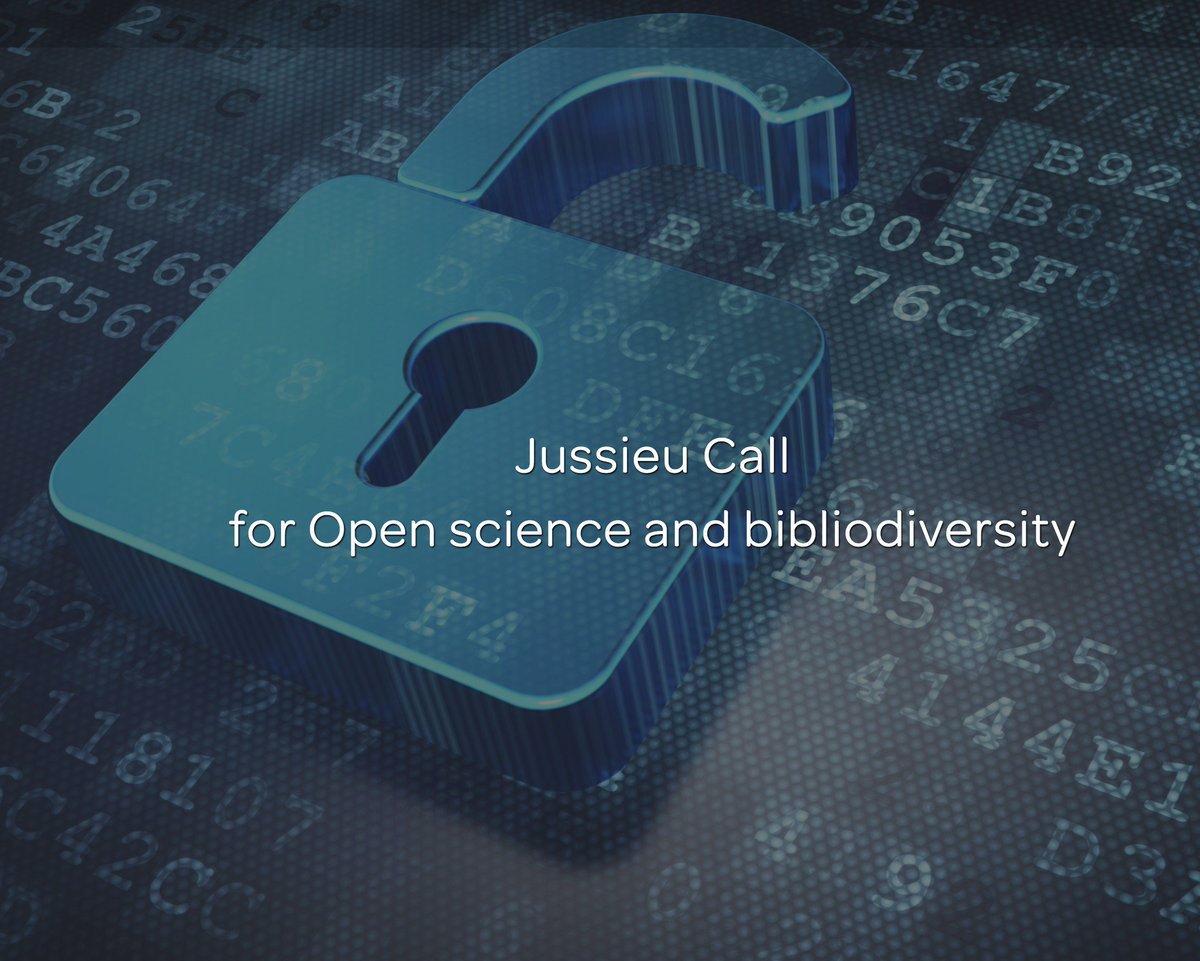
6 October 2017
Dr. Franck Vazquez, MDPI CEO, Interviewed by Scholarly Kitchen
The Society for Scholarly Publishing’s popular blog about topics in academic publishing, Scholarly Kitchen, recently interviewed MDPI’s CEO, Dr. Franck Vazquez. He shared some thoughts and information on the past and future of MDPI and open access publishing in general:
“In the long run, we aim to anchor MDPI in research communities. We recently developed and launched the preprint platform Preprints, revamped our free-to-use conference hosting platform Sciforum, and are working on other projects, such as Scilit, our bibliographic database.”
Read the full interview here.
2 October 2017
Meet Us at the ASHG 2017 Conference in Orlando
We will attend the American Society of Human Genetics (ASHG 2017) Conference that will be held in Orlando, FL, USA 17–21 October 2017, representing our open access journals at the interface of nanotechnology, medicine and biology:
Biomolecules
Genes
Journal of Personalized Medicine
High-Throughput
Please stop by booth 534 to chat with our delegates about the journals. They will answer any questions about open access publishing and our journals. We look forward to meeting you in Orlando!
For more information on the conference, please visit:
http://www.ashg.org/2017meeting/
25 September 2017
Meet Us at the ICONAN 2017 Conference in Barcelona
We will attend the International Conference On Nanomedicine And Nanobiotechnology (ICONAN 2017) that will be held in Barcelona, Spain, 25–27 September 2017, representing our open access journals at the interface of nanotechnology, medicine and biology:
Bioengineering
Biomedicines
Biomimetics
Biomolecules
Journal of Functional Biomaterials
Journal of Personalized Medicine
High-Throughput
Medical Sciences
Scientia Pharmaceutica
Please stop by our booth to chat with our delegates about our journals. They will answer any questions about open access publishing and our journals. We look forward to meeting you in Barcelona!
For more information on the conference, please visit:
http://premc.org/conferences/iconan-nanomedicine-nanobiotechnology/
19 September 2017
A Warm Welcome to the New IOAP Participants
We are delighted to have welcomed 24 new participants to our Institutional Open Access Programme (IOAP) since the beginning of September this year. These are University libraries and Research Institutions located around the world; from the USA and Canada to the UK, and from Norway and Spain to Greece. Well respected Universities, such as the University of Denver, the University of Colorado Boulder, and the University of Arizona in the US, have signed up, while their researchers can now benefit from a 10% discount on the Article Processing Charges (APC) for any papers they publish in MDPI journals, at no cost for the library or the University.
We are more than happy to see the Open Access movement growing stronger and wider every day and we appreciate the vital role which librarians, repository managers, and other scholarly communications professionals play in the field. Our communication with and service to this community is, therefore, one of our principal priorities. The IOAP is our way to support academic and scientific Institutions as well as their scholars in managing, administrating, and publishing research in an Open Access world.
The IOAP set of free services, provided by MDPI to institutions that sign up, include:
- No fee for participants and no obligation to prolong after the initial 12 months. The participants may withdraw from the programme at any time, and we will also keep it free for the library for as long as they continue in the programme.
- Authors affiliated with the university will receive a discount on the article processing charge (APC).
- The institution is granted free access to the MDPI submission system and can receive free alerts of new submissions to our journals.
- By default, authors from the institution will continue to be invoiced directly unless the institution opts for central billing.
- Auto-archiving of papers into the institutions´ repository as long as it supports SWORD 1.3.
More details about the programme and a list of our current participant institutions can be found at: https://www.mdpi.com/about/ioap
Institutions which are interested to participate may do so online at: https://www.mdpi.com/ioap-form
The full list of the Institutions that signed up in September is as follows:
- University of Denver, USA
- University of Colorado Boulder, USA
- University of Arizona, USA
- Institute of Metrology of Bosnia and Herzegovina, Bosnia and Herzegovina
- Middlebury College, USA
- Touro College, USA
- University of New Orleans, USA
- University of Leicester, UK
- Indiana University-Purdue University Indianapolis, USA
- University of Strathclyde, UK
- Cranfield University, UK
- Hope College, USA
- Oregon State University, USA
- Drew University, USA
- Swansea University, UK
- University of South Florida, USA
- University of Georgia, USA
- Arizona State University, USA
- University of Southern Mississippi, USA
- Université du Québec à Chicoutimi, Canada
- Grinnell College, USA
- Norwegian University of Science and Technology, Norway
- University of Patras, Greece
- Public University of Navarre, Spain
23 June 2017
Congratulations for Publishing the 100,000th Peer-Reviewed Article
Congratulations to the authors Javier Monroy and Javier Gonzalez-Jimenez from Universidad de Malaga, Spain, Victor Hernandez-Bennets, Han Fan and Achim Lilienthal from Örebro University, Sweden for publishing the 100,000th peer-reviewed article.
The article is published in the Chemical Sensors section of Sensors.
GADEN: A 3D Gas Dispersion Simulator for Mobile Robot Olfaction in Realistic Environments
Evermore pressing environmental concerns have led global actors and decision-makers to search for stricter emission monitoring approaches. As part of novel monitoring systems, robots with gas and environmental sensors are a promising solution. However, validation of such robotic inspectors is expensive, time consuming, and plagued by repeatability issues. In this article, we present GADEN (the short form for Gas Dispersion Simulator for Mobile Robot Olfaction in Realistic Environments), which combines gas dispersion and robotics simulation in a common framework. Developed under the widely used Robot Operating System (ROS), GADEN enables validation of sensing strategies with gas dispersion being simulated using computational fluid dynamics and filament dispersion theory. GADEN allows simulating complex, realistic, 3D environments for reproducible testing of robotic gas sensing algorithms. Through qualitative and quantitative evaluations, we show that GADEN is a versatile and user-friendly evaluation tool and emphasize its enormous potential for the mobile robot olfaction community.
Read the full article here: https://www.mdpi.com/1424-8220/17/7/1479/htm
6 June 2017
CiteScore™ Metrics Released for Scopus Journals
The CiteScore, the new citation metric for journals covered in the Scopus® database, was released on 1 June 2017, reflecting the citation activity in 2016 for articles published during the three previous years. Please note that the list below does not contain all MDPI journals covered in Scopus. For the CiteScore to serve as a reliable metric at least three volumes of articles need to be indexed in Scopus; journals which have not met this criterion have been omitted here.
Ten MDPI journals received a CiteScore which is in the Top 10% of scores in at least one of the categories, while a further 21 journals exhibit scores that are in the first quartile of the respective categories.
CiteScore Data for MDPI Journals
| Journal | Rank | Category | Link | CiteScore 2016 | 2015 |
2014 |
| Algorithms | 44/112 (Q2) 49/111 (Q2) 19/42 (Q2) 52/113 (Q2) |
• Numerical Analysis • Computational Mathematics • Computational Theory and Mathematics • Theoretical Computer Science |
Link | 1.15 | 1.07 | 1.06 |
| Animals | 69/343 (Q1) 21/146 (Q1) |
• Animal Science and Zoology • General Veterinary |
Link | 1.46 | 1.66 | 0.74 |
| Biology | 13/92 (Q1) 34/81 (Q1) 10/75 (Q1) |
• General Agricultural and Biological Sciences • General Biochemistry, Gene- tics and Molecular Biology • General Immunology and Microbiology |
Link | 3.02 | 2.78 | 1.74 |
| Biomolecules | 234/382 (Q3) 260/353 (Q3) |
• Biochemistry • Molecular Biology |
Link | 1.67 | 3.08 | 1.00 |
| Biosensors | 36/118 (Q2) 209/2156 (Q1) |
• Clinical Biochemistry • General Medicine |
Link | 2.83 | 2.37 | 2.04 |
| Cancers | 29/196 (Q1) 27/321 (Q1) |
• Cancer Research • Oncology |
Link | 5.02 | 4.07 | 2.31 |
| Catalysts | 18/44 (Q2) 27/144 (Q1) |
• Catalysis • Physical and Theoretical Chemistry |
Link | 3.44 | 3.45 | 2.17 |
| Crystals | 70/270 (Q2) 25/64 (Q2) 118/398 (Q2) 131/424 (Q2) |
• General Chemical Engineering • Inorganic Chemistry • Condensed Matter Physics • General Materials Science |
Link | 1.89 | 1.47 | 1.03 |
| Diversity | 10/41 (Q1) 9/25 (Q2) 76/291 (Q2) 24/109 (Q1) |
• Agricultural and Biological Sciences (miscellaneous) • Ecological Modelling • Ecology • Nature and Landscape Conservation |
Link | 2.03 | 1.96 | 1.82 |
| Energies | - | - | Link | 2.50 | 2.87 | 2.66 |
| Entropy | 51/198 (Q2) | • General Physics and Astronomy | Link | 1.87 | 1.99 | 1.69 |
| Forests | 17/127 (Q1) | • Forestry | Link | 2.06 | 1.76 | 1.84 |
| Games | 204/398 (Q3) 83/181 (Q2) 48/105 (Q2) |
• Applied Mathematics • Statistics and Probability • Statistics, Probability and Uncertainty |
Link | 0.87 | 0.57 | 0.64 |
| Genes | 62/300 (Q1) 18/90 (Q1) |
• Genetics • Genetics (clinical) |
Link | 3.62 | 3.18 | 1.33 |
| Geosciences | 36/169 (Q1) |
• General Earth and Planetary Sciences | Link | 1.67 | 1.29 | 1.13 |
| Information | 156/237 (Q3) | • Information Systems | Link | 0.78 | 0.94 | 0.74 |
| Insects | 28/131 (Q1) | • Insect Science | Link | 1.81 | 1.38 | 1.23 |
| International Journal of Environmental Research and Public Health (IJERPH) | 67/446 (Q1) 31/102 (Q2) |
• Public Health, Environmental and Occupational Health • Health, Toxicology and Mutagenesis |
Link | 2.38 | 2.42 | 2.47 |
| International Journal of Molecular Sciences (IJMS) | 23/157 (Q1) 8/64 (Q1) 90/353 (Q1) 22/144 (Q1) 16/44 (Q1) 8/62 (Q1) |
• Organic Chemistry • Inorganic Chemistry • Molecular Biology • Physical and Theoretical Chemistry • Catalysis • Spectroscopy |
Link | 3.73 | 3.37 | 3.06 |
| ISPRS International Journal of Geo-Information | 12/29 (Q2) 28/79 (Q2) 96/587 (Q1) |
• Computers in Earth Sciences • Earth and Planetary Sciences (miscellaneous) • Geography, Planning and Development |
Link | 1.62 | 1.52 | - |
| Journal of Low Power Electronic Applications (JLPEA) | 301/645 (Q2) | • Electrical and Electronic Engineering | Link | 0.98 | 0.83 | 0.83 |
| Life | 65/525 (Q1) 36/186 (Q1) 5/92 (Q1) 20/80 (Q2) |
• Ecology, Evolution, Behavior and Systematics • General Biochemistry, Gene- tics and Molecular Biology • Palaeontology • Space and Planetary Science |
Link | 2.95 | 1.68 | 1.20 |
| Marine Drugs | 18/145 (Q1) | • Drug Discovery | Link | 3.83 | 3.66 | 3.59 |
| Materials | 63/424 (Q1) | • General Materials Science | Link | 3.26 | 3.11 | 2.69 |
| Membranes | 103/424 (Q1) | • Materials Science | Link | 2.19 | 2.95 | 2.42 |
| Micromachines | 173/645 (Q2) 69/211 (Q2) 113/526 (Q1) |
• Electrical and Electronic Engineering • Control and Systems Engineering • Mechanical Engineering |
Link | 1.83 | 1.78 | 2.10 |
| Minerals | 45/206 (Q1) 29/167 (Q1) |
• Geology • Geotechnical Engineering and Engineering Geology |
Link | 2.13 | 1.77 | - |
| Molecules | 32/157 (Q1) | • Organic Chemistry | Link | 3.09 | 2.65 | 2.62 |
| Nutrients | 12/247 (Q1) | • Food Science | Link | 4.29 | 4.07 | 3.78 |
| Pharmaceuticals | 8/168 (Q1) 21/158 (Q1) |
• Pharmaceutical Science • Molecular Medicine |
Link | 4.90 | 3.64 | 1.92 |
| Pharmaceutics | 19/168 (Q1) | • Pharmaceutical Science | Link | 3.83 | 2.68 | 2.46 |
| Polymers | 13/138 (Q1) 44/354 (Q1) |
• Polymers and Plastics • General Chemistry |
Link | 3.74 | 3.37 | 4.10 |
| Remote Sensing | 13/169 (Q1) | • General Earth and Planetary Sciences | Link | 3.56 | 3.76 | 3.23 |
| Sensors | 25/96 (Q2) 25/159 (Q1) 124/382 (Q2) 103/645 (Q1) |
• Analytical Chemistry • Atomic and Molecular Physics, and Optics • Biochemistry • Electrical and Electronic Engineering |
Link | 2.78 | 2.21 | 2.40 |
| Sustainability | 49/129 (Q2) 68/587 (Q1) 56/236 (Q1) |
• Renewable Energy, Sustai-nability and the Environment • Geography, Planning and Development • Management, Monitoring, Policy and Law |
Link | 1.96 | 1.78 | 1.52 |
| Symmetry | 17/42 (Q2) 49/111 (Q2) |
• Numerical Analysis • Computational Mathematics |
Link | 1.12 | 0.95 | 1.02 |
| Toxins | 16/102 (Q1) 16/108 (Q1) |
• Health, Toxicology and Mutagenesis • Toxicology |
Link | 3.34 | 3.76 | 2.85 |
| Vaccines | 146/184 (Q4) 151/250 (Q3) 93/145 (Q3) 186/299 (Q3) 130/232 (Q3) |
• Immunology • Infectious Diseases • Drug Discovery • Pharmacology • Pharmacology (medical) |
Link | 1.23 | 3.76 | 2.85 |
| Viruses | 15/68 (Q1) 34/250 (Q1) |
• Virology • Infectious Diseases |
Link | 3.60 | 3.74 | 3.80 |
| Water | 33/184 (Q1) 48/195 (Q1) 62/587 (Q1) 198/382 (Q3) |
• Water Science and Technology • Aquatic Science • Geography, Planning and Development • Biochemistry |
Link | 2.05 | 1.96 | 1.45 |
17 May 2017
Three New Institutional Memberships Established
We are pleased to announce that the Goethe University of Frankfurt, the Technical University of Hamburg (TU Hamburg-Harburg), as well as the Humboldt University of Berlin, in Germany, have joined MDPI's institutional membership program: Primary authors from these instititions will benefit from a 10% discount on the article processing charges.
Additional details can be found on our institutional membership page.
4 May 2017
MDPI Supports the Initiative for Open Citations (I4OC)
As an open access publisher, we are keen to support openness and transparency in the research process. Citation data is very important for assessing the value of individual papers and the contribution of researchers. As such, we support the recently launched Initiative for Open Citations (I4OC). The initiative recognizes that citations should be freely available and machine-readable. By doing so, authors gain the maximum benefit from having their work cited.
MDPI now uploads citation data with metadata uploaded to Crossref when registering digital object identifiers (DOIs) for published papers. We are delighted to take this step to support a truly open research environment.
2 May 2017
Publons Peer Review Academy Goes Live
Getting high quality review reports is critical for any journal’s editorial process. At MDPI we have put in place several measures to motivate reviewers and reward them for their work. We are proud of the quality of reviewer reports we receive and grateful for the hours put in by active researchers from across the globe.
Reviewers of MDPI’s largest journals can get recognition via Publons, a website dedicated to rewarding peer reviewers. They have now taken this one step further and launched the Publons Reviewer Academy to help train reviewers to provide useful feedback. Through the academy, researchers can be trained and tutored in various aspects of how to provide structured feedback that will be of genuine help to editors and authors. We support this initiative and recommend it to potential MDPI reviewers, especially early career researchers. See the Publons announcement for further information.
More information on reviewing for MDPI, including how to volunteer as a reviewer, can be found here.
24 April 2017
Two New Institutional Memberships Established
We are pleased to announce that the following universities have joined MDPI's institutional membership program: Trinity University, San Antonio, Texas, USA and the University of New South Wales (UNSW), Sydney, Australia. Primary authors from these instititions will benefit from a 10% discount on the article processing charges.
Additional details can be found on our institutional membership page.
30 March 2017
Credit for Preprints Comments via Publons
Preprints.org is a platform run by MDPI that allows authors to make early versions of manuscripts available before peer review has been completed.
One of the major benefits of putting a preprint online is to get feedback before journal submission. Until now, however, the feedback has been on a voluntary basis. Preprints is delighted to be the first preprint server to collaborate with Publons to acknowledge substantial comments as reviews and give commentators the opportunity to receive credit for their efforts.
When you add a comment to any article, there is a check box to click for it to appear on Publons. If you have already linked your account it will be passed on automatically. If you don't already have a Publons account, you will be contacted soon afterwards with instructions on how to create one.
We appreciate the enthusiasm and cooperation of Publons in this project and expect it to be of great benefit to authors and commenters alike.
20 March 2017
MDPI 2016 Annual Report Released
We are pleased to announce that our annual report for the year 2016 has now been published.
It contains information regarding company and journal performance, conferences and other publishing services that we provided throughout 2016.
To read the report in full or download a copy, please click here.
15 March 2017
Our 100,000th Article Could be Yours!
After the 20th anniversary of MDPI in 2016, we will reach another milestone this year and will publish the 100,000th peer-reviewed article in one of our 170+ open access journals.
We would like you to be part of this great achievement and so are offering to publish the 100,000th accepted paper free of charge.
To be in with a chance, select a journal in one of our 10 scientific subject areas and submit your paper.
Access the live tracker on published articles here.
![]()
3 March 2017
1000 Preprints Online
We are delighted that Preprints now has 1000 papers online since its launch on 3 May 2016.
For more information, see the editorial here.
9 February 2017
Minister and State Secretaries Visit MDPI Office at STP, Belgrade, Serbia
Earlier this week the Science Technology Park in Belgrade, Serbia was visited by Swiss Secretary of State Dr. Mauro Dell’Ambrogio, as well as Serbian Minister of Public Administration and Local Self-Government Ana Brnabic, State Secretary Dr. Vladimir Popovic and Mayor of Belgrade Mr. Siniša Mali.
During the visit to the STP they had a short presentation from MDPI’s CEO Dr. Franck Vazquez and IT Manager Mr. Miloš Čučulović, and further discussed important issues such as Open Access and Open education. Dr. Dell'Ambrogio said he was impressed with the potential for development and ideas for business.
For more information please see:
http://bit.ly/2kpIu7k and http://bit.ly/2kpUQfz
7 February 2017
The 6th World Sustainability Forum: Final Press Release
Basel, 29 January 2017
The 6th World Sustainability Forum #WSF2017SA: African universities critical to achieving the Sustainable Development Goals
Jeffrey and Sonia Sachs win first World Sustainability Award.
Universities need to take the lead in solving the greatest challenges the world faces today, particularly in Africa. They need to do this not only through education – teaching the next generation to think critically and creatively to find sustainable solutions – but also through research that cuts across a range of disciplines. To ensure these solutions are implemented, they need to partner with the private sector and with government.
This was the key message from the 6th World Sustainability Forum (WSF2017), which took place in Cape Town on 27 and 28 January 2017. Sponsored by MDPI and the journal Sustainability under the patronage of the Universities of the Western Cape (UWC), Cape Town (UCT), University of Basel and the National Research Foundation (NRF) of South Africa, the conference was attended by key national and international speakers, including world-leading economist Professor Jeffrey D. Sachs, senior United Nations (UN) advisor and director of the Earth Institute at Columbia University.
The WSF is an annual sustainability conference which addresses research in a range of areas related to sustainable development and sustainability globally. This was the first WSF to take place on the African continent. Discussions at the 2017 conference were driven by the 17 sustainable development goals (SDGs) adopted as part of the 2030 Agenda for Sustainable Development by the UN in September 2015.
Achieving the SDGs “is the moonshot for our generation,” said Sachs. “Like the moonshot [moon landing] of the 1960s, these are tough, bold and achievable objectives.”
“This is a nasty, tough world we live in, and our world agrees on very little. So when 193 governments agree on something, that is important. And when they agree on something as important as sustainable development, that is really something for us to grab hold of – that is a lifeline.”
There was agreement at the WSF that the SDGs are particularly important for Africa, and that African universities in particular have a role to play in achieving them.
Said Professor Tyrone Pretorius, vice-chancellor of UWC: “The quest for sustainable development can only be met through education. Universities today are the oil that fuels the knowledge economy.”
As part of the drive to develop academic capacity to provide the knowledge needed to meet the SDGs, WSF2017 was preceded by the 1st Postgraduate Forum on Sustainability. “A series of workshops for postgraduate education linked to WSF are important, in order to equip postgraduates with the skills necessary to promote sustainability,” said Professor Thandi Mgwebi, director for research at UWC. A second postgraduate forum will take place alongside the WSF2018 in Beijing.
This capacity development is particularly critical to Africa. Said Sachs: “African universities need to do research to find solutions to Africa’s development challenges, because no other university will.”
The UN set a target of achieving the SDGs by 2030: “I regard this as the breakthrough period to end extreme poverty on the continent,” said Sachs, “and for Africa to become one of the most dynamic centres of the world economy.”
It is a critical time for South African universities, said Professor Mamokgethi Phakeng, deputy vice-chancellor for research and internationalisation at UCT: “Higher education is at a crossroads, and there is much polarisation. We need to think carefully about how this sustainable development agenda is owned by all so that it is inclusionary.”
There was also strong emphasis on public–private partnerships – for universities, business and government to work together to achieve the goals.
Said Professor Francis Petersen, deputy vice-chancellor at UCT and vice-chancellor designate at the University of the Free State: “Business sustainability has become critical, because there is increasing demand and complexity of demand on business from the natural, social and economic environment. Sustainability cannot be a standalone issue, divorced from business as usual. Sustainability needs to be embedded into business.”
Environmental crises and climate change was also high on the WSF agenda. In his keynote address, Sachs noted the irreversibility of the climate- and environmental-related challenges.
“If we don’t get our act together, we lose the chance of safety,” he said.
Said Professor Mark New, pro vice-chancellor and director of the African Climate and Development Initiative at UCT: “We have a fundamental challenge in responding to climate change, and we must go further than just putting a plaster on a wound. We need to address the deep structural issues, to move from our current model of development into climate-compatible development.”
“This requires researchers to find the evidence for the correct development pathways to take, and then support the ability of policymakers at all levels to enable the shift to climate-compatible development planning.”
Said Dr. Aldo Stroebel, executive director of international relations and cooperation at the NRF, in closing: “We have seen over the past two days an urgency towards the next step of thinking, that critical type of framework that we all must engage with, not only from an academic perspective, but further up into the policy environment and into rural-based environments where one can clearly see the links and effectiveness of the work.”
World Sustainability Awards
The first World Sustainability Award and the first Emerging Sustainability Leader Awards were presented by Prof. Thandi Mgwebi, Director of Research at UWC, and Dr. Franck Vazquez, CEO of MDPI, during the ceremony on 27 January 2017 as part of the gala dinner of the 6th World Sustainability Forum in South Africa.after day one of proceedings of the 2017 World Sustainability Forum South Africa.
Professor Jeffrey D. Sachs and Dr. Sonia Ehrlich Sachs are the joint recipients of the first World Sustainability Award. Jeffrey Sachs is a world-renowned economist and senior United Nations (UN) advisor and director of the Earth Institute at Columbia University. Sonia Sachs is a paediatrician and public health specialist, and director of the Health Centre at the Centre for Sustainable Development, also at Columbia University.
The joint recipients of the first Emerging Sustainability Leader Award are Dr. Esther Ngumbi and Dr. Xiaosong Hu. Esther Ngumbi is a postdoctoral researcher at Auburn University in Alabama USA and serves as a 2015 Clinton Global University Mentor for agriculture. Xiaosong Hu is a professor at the Chongqing University in China and specialises in automotive control systems and mechanical engineering.
The World Sustainability Award and the Emerging Sustainability Leader Awards are funded to encourage new initiatives and developments in sustainability with the ultimate aim of fostering the transition to sustainable practices and societies.
The World Sustainability Award is funded by the MDPI Sustainability Foundation, and included a monetary prize of USD 100,000 to Jeffrey and Sonia Sachs. The Emerging Sustainability Leader Award is funded by the journal Sustainability, awarded to researchers under 40, and included a monetary prize of USD10,000.
Issued jointly by: UCT Global Strategy and Visibility, Research Office, UWC Communications & Media and MDPI AG
Conference photos are free available at: https://sciforum.net/conference/wsf-6/page/175 Photo credit: Matthias Burkhalter
|
Carla Bernardo |
Luthando Tyhalibongo |
Matthias Burkhalter |
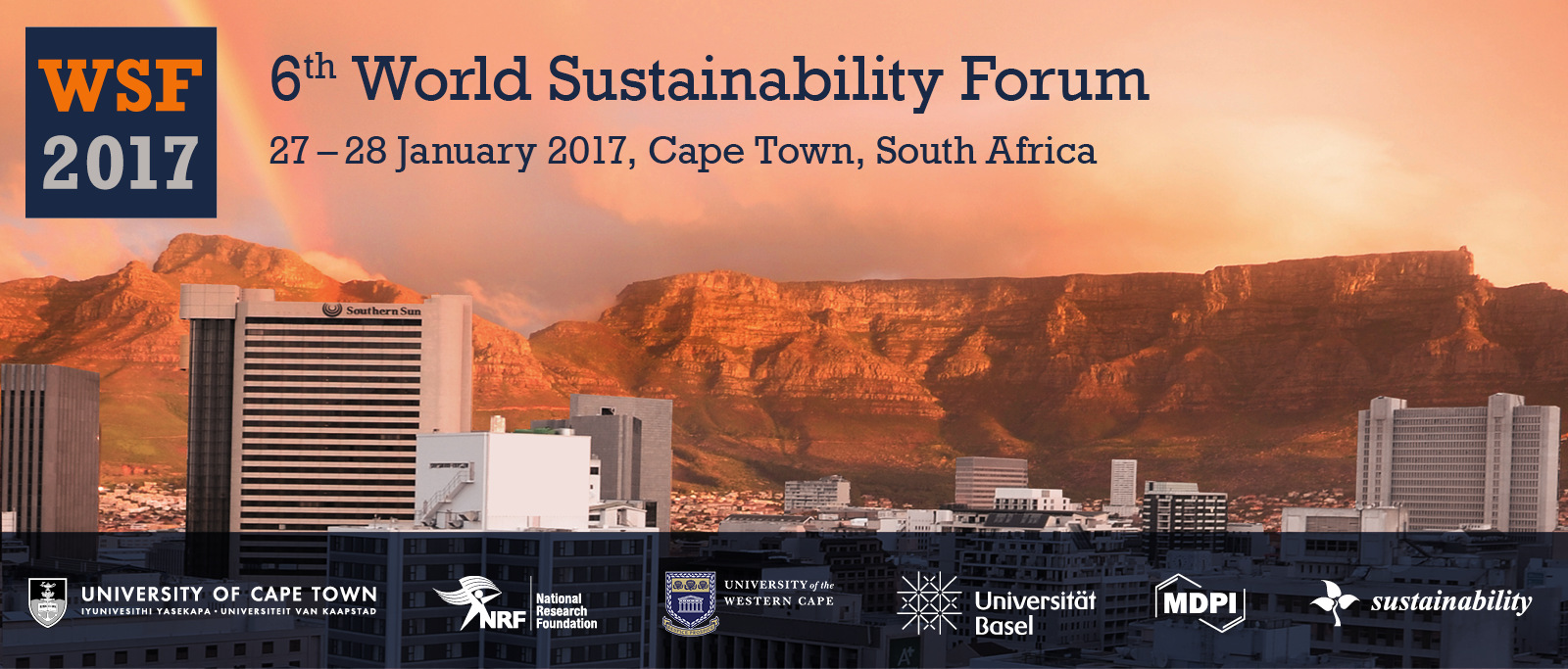
31 January 2017
Three New Institutional Memberships Established
We are pleased to announce that the Chalmers University of Technology, Sweden, the University of Manitoba, Canada and the Technical University of Cartagena, Spain, have joined MDPI's institutional membership program: Primary authors from these institutions will benefit from a 10% discount on the article processing charges.
Additional details can be found on our institutional membership page.
27 January 2017
6th World Sustainability Forum under way in South Africa
The 6th World Sustainability Forum is currently being held at the Cape Sun Hotel until 28 January 2017.
The Forum will showcase the work of internationally renowned researchers and include more than 150 presentations. During the conference dinner, the World Sustainability Award, associated with a US$ 100,000 prize, will be announced, as well as the Emerging Sustainability Leader Award, associated with a US$ 10,000 prize. The prizes are sponsored by the MDPI Sustainability Foundation and Sustainability, an academic open access journal by MDPI.
Here are some pictures from the forum so far:
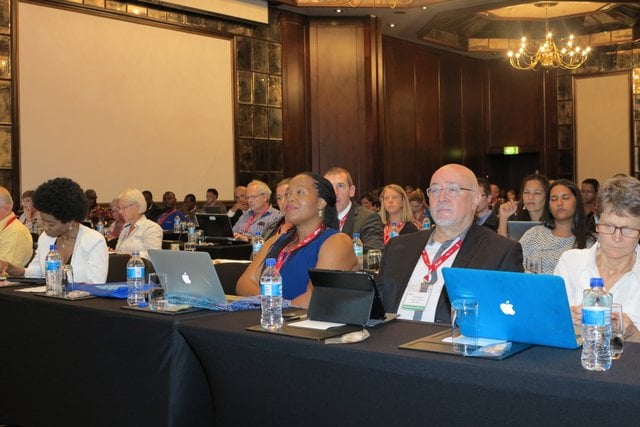
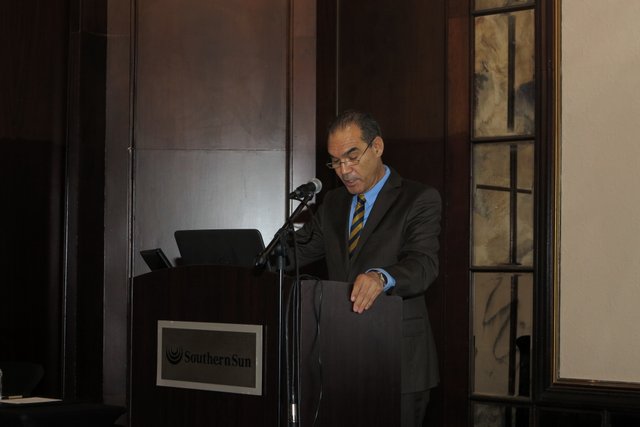
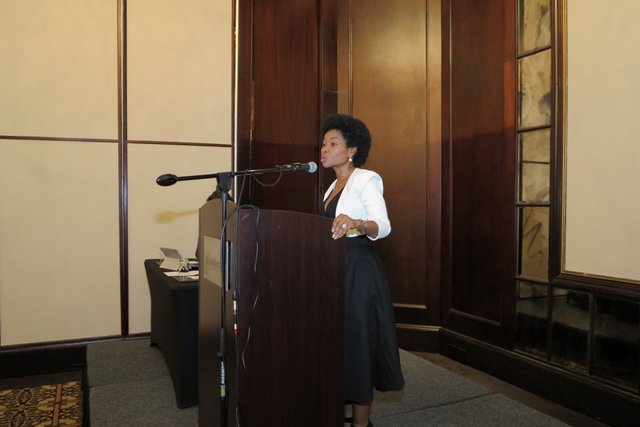
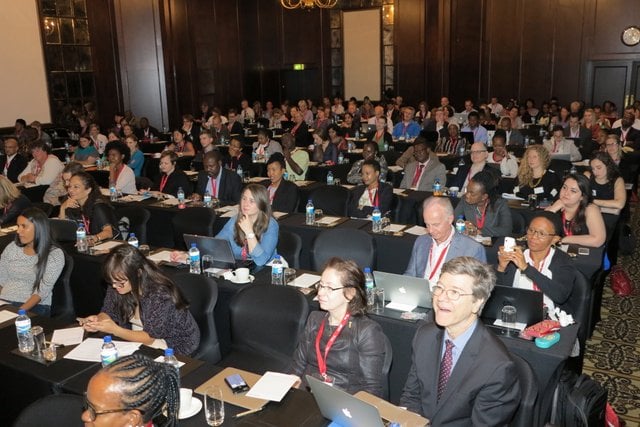
To see the full WSF2017 program and schedule, please see here: https://sciforum.net/conference/wsf-6/page/schedule
19 January 2017
Cape Town to Host the 6th World Sustainability Forum
Cape Town will host the 6th World Sustainability Forum at the Cape Sun Hotel on 27 and 28 January 2017. This prominent event, held for the first time in Africa, will include many illustrious South African and international experts, such as Her Excellency Graça Machel (Sustainable Development Advocate for the United Nations, Mozambique), Joyene Isaacs (HoD Agriculture Western Cape Government), Jeffrey Sachs (Columbia University, USA), Max Bergman (SRaM, University of Basel), Mark New (Pro Vice-Chancellor, University of Cape Town), Frans Swanepoel (FutureAfrica, University of Pretoria) and Francis Petersen (Vice-Chancellor-designate, University of the Free State). The Forum will provide a stage for national and international debates on sustainability in South Africa, the African continent, and about international perspectives on sustainability. It brings together researchers and representatives from government and the business sector to discuss a wide-ranging set of issues associated with sustainability, including food security, water and energy scarcity, mining, poverty reduction, climate change, and urbanisation.
The next few decades will be marked by profound changes in the relationships between global economics, national societies, and the environment. We have entered what some call the Anthropocene, an age in which human activity dominates the climate and the environment. These changes will have numerous consequences on societies around the globe. South Africa and Africa will play a central role, for better or worse, in creating opportunities and risks during these changing times as Africa is profoundly influencing and being influenced by global developments.
The adoption of the 17 United Nations Sustainable Development Goals and the 2030 Agenda for Sustainable Development in September 2015 was accompanied by what insiders considered an optimism they have not experienced in relation to UN resolutions before. The relative efficiency in the drafting, the lack of trenches between East and West, or between North and South, and the unanimity of support of the 193 countries speak volumes. In stark contrast, sustainability seems to go against a changing economic and political tide, where waves of nationalism and protectionism from some of the most powerful countries risk the wellbeing of the rest of the world. The 6th World Sustainability Forum will enable fruitful exchanges, which sensitise South African and international communities to the global urgency and specifics of sustainability.
The Forum will showcase the work of internationally renowned researchers and include more than 150 presentations. During the conference dinner, the World Sustainability Award, associated with a US$ 100 000 prize, will be announced, as well as the Emerging Sustainability Leader Award, associated with a US$ 10 000 prize. The prizes are sponsored by the MDPI Sustainability Foundation and Sustainability, an academic open access journal by MDPI. The World Sustainability Forum is preceded by the Postgraduate Forum on Sustainability, which will introduce more than 100 young scholars from South Africa and the African continent to sustainability research. Both events are organized and sponsored by the University of Cape Town, the University of the Western Cape, the University of Basel, MDPI, and by the National Research Foundation of South Africa.
Contacts:
Scientific Matters: Prof Manfred Max Bergman, Social Research and Methodology Group (SRaM), University of Basel, Switzerland; Email: [email protected]
Press Accreditation and General Enquiries: Mr Matthias Burkhalter, MDPI AG, Basel, Switzerland; Email: [email protected]; Tel. +41 61 683 77 34
Follow us on Twitter
#WSF2017SA
6 January 2017
MDPI Supports the OA2020 Initiative
MDPI is now a proud supporter of the OA2020 Initiative.
Open Access 2020 is an international initiative that aims to induce the swift, smooth and scholarly-oriented transformation of today’s scholarly journals from subscription to open access publishing.
MDPI is participating in the upcoming Berlin13 conference in March 2017, where we are contributing to the initiative by aiding in the design of the roadmap which will make OA the default publishing model.
For more information please see here.
5 January 2017
Three New Institutional Memberships Established
We are pleased to announce that the University of Texas at Arlington, USA, the Harbin Institute of Technology, China and TU Darmstadt, Germany, have joined MDPI's institutional membership program: Primary authors from these institutions will benefit from a 10% discount on the article processing charges.
Additional details can be found on our institutional membership page.
22 December 2016
Two New Institutional Memberships Established
We are pleased to announce that the Otto-von-Guericke-Universität Magdeburg, Germany and the University of California, Berkeley, USA, have joined MDPI's institutional membership program: Primary authors from these instititions will benefit from a 10% discount on the article processing charges.
Additional details can be found on our institutional membership page.
19 December 2016
MDPI and Wellcome Trust Compliance
The Wellcome Trust has, for a number of years, required that the results of its funded projects are published in open access format. Recently it announced criteria that publishers must fulfil for publication fees to be paid by the Trust. MDPI is pleased to have been added to the list of compliant publishers.
Only publishers who have confirmed their compliance by 16 December 2016 will be eligible to receive payment of APCs by the Wellcome Trust as of 1 April 2017. For more information on the criteria and a full list of publishers that meet them, see here.
13 December 2016
Meet MDPI at the 2016 AGU Fall Meeting
 MDPI is currently attending the 2016 AGU Fall Meeting (12–16 December, 2016)
MDPI is currently attending the 2016 AGU Fall Meeting (12–16 December, 2016)
If you are also attending the conference, please feel free to stop by our booth (Booth #1147) and meet the representative editors.
Conference details:
2016 AGU Fall Meeting
12–16 December 2016
Moscone Center
747 Howard St
San Francisco, CA 94103, USA
8 December 2016
Three New Institutional Memberships Established
We are pleased to announce that Purdue University, USA, the Universitat Politécnica de Valencia, Spain and the Queensland University of Technology, Australia, have joined MDPI's institutional membership program: Primary authors from these instititions will benefit from a 10% discount on the article processing charges.
Additional details can be found on our institutional membership page.
16 November 2016
World Sustainability Award - Final Extension
The deadline for the World Sustainability Award has been extended for one last time! You now have one more month to nominate an individual researcher, group or project! The final deadline for nominations will be December 15, 2016.
For full details, please visit here.
11 November 2016
Three New Institutional Memberships Established
We are pleased to announce that the University of Minnesota, USA, the Universidad Politécnica de Madrid, Spain and Shanghai Jiao Tong University, China, have joined MDPI's institutional membership program: Primary authors from these instititions will benefit from a 10% discount on the article processing charges.
Additional details can be found on our institutional membership page.
4 November 2016
MDPI Joins the United Nations Global Compact
MDPI has become a member of the United Nations Global Compact to support corporate sustainability and have committed ourselves to the ten principles associated with the Compact.
Sustainability has always been at the core of MDPI’s values, starting with the collection and preservation of rare chemical samples that started in 1996 and led to the first journal, Molecules. Sustainability has become one of our flagship journals and we have supported and organized several conferences and events based on Sustainability, including the upcoming 6th World Sustainability Forum. As a global enterprise, we see it as our duty to promote responsible practices that will ensure a bright future for our planet. Given this, the choice to join the Global Compact was an easy one and we will do our utmost to fully implement it.
3 November 2016
MDPI Now a Member of SPARC Europe
We are delighted to announce that MDPI has become a member of SPARC Europe, an organization that works for open scholarship in Europe, including support of open access publication.
As one of the few publishers to join SPARC Europe to date, MDPI looks forward to making a contribution that puts open scholarship on a positive and sustainable path. We fully support the goals of open scholarship that allow the largest number of people possible to benefit from work of researchers in all disciplines. We hope that our membership will enable us to work with other stakeholders to find the best possible solution.
2 November 2016
World Sustainability Award Deadline Extension
The deadline for the World Sustainability Award has been extended! You now have until November 15, 2016 to nominate an individual researcher, group or project!
For full details, please visit here.
26 October 2016
Four New Institutional Memberships Established
We are pleased to announce that the Wuppertal Institut, Germany, the University of Girona, Spain and Central South University and Huazhong University of Science and Technology, China, have joined MDPI's institutional membership program: Primary authors from these instititions will benefit from a 10% discount on the article processing charges.
Additional details can be found on our institutional membership page.
24 October 2016
International Open Access Week 2016
Meet us during International Open Access Week 2016! We will be presenting at various locations in Europe and China.
To get involved and for full details see the complete list of events organised by MDPI here.
18 October 2016
Institutional Membership established with Universitat Pompeu Fabra, Spain and Aalto University, Finland
We are pleased to announce that the Universitat Pompeu Fabra, Spain and Aalto University, Finland, have joined MDPI's institutional membership program: Primary authors from these universities will benefit from a 10% discount on the article processing charges.
Additional details can be found on our institutional membership page.
12 October 2016
Institutional Membership Established with Iowa State University and the University of North Texas, USA
We are pleased to announce that the Iowa State University and the University of North Texas, USA, have joined MDPI's institutional membership program: Primary authors from these universities will benefit from a 10% discount on the article processing charges.
Additional details can be found on our institutional membership page.
7 October 2016
MDPI at Open Access Days in Munich, 10-11 October 2016
Meet MDPI during the Open Access Days held from 10-11 October 2016 at Ludwig Maximilian University of Munich, Germany.
The two-day event will feature experts from the open access sector, scientists from all disciplines, publishing representatives and supporters of scientific research and communication from libraries as well as research institutes and funding institutions. Join us!
For more information about the event and to see the program, visit the event webpage.
7 October 2016
Institutional Membership Established with the University of Sevilla and the University of Alicante, Spain
We are pleased to announce that the University of Sevilla and the University of Alicante, Spain have joined MDPI's institutional membership program: Primary authors from these universities will benefit from a 10% discount on the article processing charges.
Additional details can be found on our institutional membership page.
29 September 2016
Institutional Membership Established with the University of Delaware
We are pleased to announce that the University of Delaware, USA, has joined MDPI's institutional membership program: Primary authors from this university will benefit from a 10% discount on the article processing charges.
Additional details can be found on our institutional membership page.
19 September 2016
Peer Review Week 2016
As an open access publisher indebted to the work of our peer reviewers, we are proud to support Peer Review Week 2016. As part of the week's activities and to celebrate this year's theme "Recognition for Review", MDPI will host two webinars that anyone can join.
These webinars will explore the role and value of reviewers and the recognition they receive from a publishers perspective, with examples from MDPI's experience in publishing nearly 80,000 peer reviewed papers, along with evidence from reviewer surveys. It will also touch upon potential changes in how review is carried out and tips for early career researchers who want to be involved in the review process.
Details and links to join can be found below:
Wednesday September 21, 08:00 (CEST)
Friday September 23, 16:00 (CEST)
For more information about all the activites taking place, please visit the Peer Review Week website.
6 September 2016
Institutional Membership established with Kansas State University and Northwestern University, USA
We are pleased to announce that Kansas State University and Northwestern Universty, USE, have joined MDPI's institutional membership program: Primary authors from these universities will benefit from a 10% discount on the article processing charges.
Additional details can be found on our institutional membership page.
5 September 2016
Institutional Membership Established with University College Cork
We are pleased to announce that University College Cork, Ireland, has joined MDPI's institutional membership program: Primary authors from this university will benefit from a 10% discount on the article processing charges.
Additional details can be found on our institutional membership page.
22 August 2016
MDPI New Office Location
We are pleased to announce that MDPI has now moved to a new permanent address:
MDPI AG
St. Alban Anlage 66
CH-4052 Basel
Postfach, CH-4020 Basel
Switzerland
Telephone and fax numbers remain unchanged.
18 August 2016
Antibiotics, Biomolecules and Brain Sciences Accepted for Coverage in Scopus
We are pleased to announce that the journals Antibiotics (ISSN 2079-6382), Biomolecules (ISSN 2218-273X) and Brain Sciences (ISSN 2076-3425) were recently selected to be included in Scopus. Citations are expected to be available in Scopus soon.
Scopus is the largest abstract and citation database of peer-reviewed literature and is published by Elsevier B.V. This means that the research you publish with Antiobiotics, Biomolecules and Brain Sciences will be more visible than ever.



17 August 2016
MDPI is Attending the 252nd American Chemical Society National Meeting & Exposition
We are pleased to announce that MDPI will be attending the 252nd American Chemical Society National Meeting & Exposition (21-25 August, 2016) representing the following open access journals:
Molecules
Materials
Marine Drugs
IJMS
Polymers
Applied Sciences
Membranes
Metabolites
Pharmaceuticals
Biomolecules
Symmetry
If you are also attending this conference, please feel free to stop by our booth (Booth 411) and meet our representatives.
Conference details:
ACS - American Chemical Society Fall Meeting 2016
21-25 August, 2016
Pennsylvania Convention Center
1101 Arch St
Philadelphia
PA 19107
USA
10 August 2016
Institutional Membership established with the University of Texas at Austin, USA, the Wroclaw University of Science and Technology, Poland and the University of Granada and the Compultense University of Madrid, Spain
We are pleased to announce that the following institutions have joined MDPI's institutional membership program in August 2016:
- University of Texas at Austin, USA
- Wroclaw University of Science and Technology, Poland
- University of Granada, Spain
- Compultense University of Madrid, Spain
Authors affiliated with these institutions will benefit from a 10% discount on the article processing charges.
Additional details can be found on our institutional membership page.
18 July 2016
Institutional Membership established with Louisiana State University and Florida State University, USA, Royal College of Surgeons, Ireland, University of Rostock, Germany, AGH University of Science and Technology, Poland and Southeast University, China
We are pleased to announce that the following institutions have joined MDPI's institutional membership program in July 2016:
- Louisiana State University, USA
- Florida State University, USA
- Royal College of Surgeons, Ireland
- University of Rostock, Germany
- AGH University of Science and Technology, Poland
- Southeast University, China
Authors affiliated with these institutions will benefit from a 10% discount on the article processing charges.
Additional details can be found on our institutional membership page.
12 July 2016
MDPI Moving to New Office Location in Basel (Switzerland) in August 2016
As of 20 August 2016, MDPI's new address in Basel will be:
MDPI AG
St. Alban-Anlage 66
CH-4052 Basel
Switzerland
Telephone and fax numbers remain unchanged.
St. Alban-Anlage 66 was built from 1947 to 1948 and initially the home of the "Bühler AG", a book printing business.


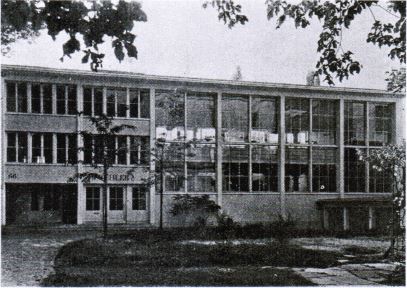

For more information about this building, see: https://www.mdpi.com/about/headquarters
21 June 2016
"Behind the Scenes of Academic Publishing—A Publisher's Perspective" - MDPI's Lecture at the University of Basel
From the 15-16 September, 2016, MDPI will run a course on Academic Publishing at the University of Basel.
In this two day workshop, MDPI will look in detail at the role performed by academic journal publishers and how they interact with academics. Ethical dimensions, what happens when problems occur and how the publisher coordinates all aspects of the submission process will also be covered.
For more detailed information about the program, trainers and registration please visit the course webpage.
14 June 2016
2015 Impact Factors Released
We are pleased to report the 2015 Journal Impact Factors in the latest Journal Citation Reports® Science Edition, published by Thomson Reuters in June 2016. Twenty out of 25 journals have seen an increase in their Impact Factor and two journals (Crystals and IJGI) received a first Impact Factor. Coatings was recently added to SCIE and will receive its first Impact Factor in next year’s JCR.
Updated Impact Factors for Journals in the Science Citation Index Expanded (SCIE)
| Journal | 2015 Impact Factor | Details | Category Rank |
| Applied Sciences | 1.726 | Link | 83/163 (Q3) in ‘Chemistry, Multidisciplinary’; 129/271 (Q2) in ‘Materials Science, Multidisciplinary’; 64/145 (Q2) in ‘Physics, Applied’ |
| Atmosphere | 1.221 | Link | 66/84 (Q4) in ‘Meteorology & Atmospheric Sciences’ |
| Catalysts | 2.964 | Link | 53/144 (Q2) in ‘Chemistry, Physical’ |
| Energies | 2.077 | Link | 43/88 (Q2) in ‘Energy & Fuels’ |
| Entropy | 1.743 | Link | 25/79 (Q2) in ‘Physics, Multidisciplinary’ |
| Forests | 1.583 | Link | 19/66 (Q2) in ‘Forestry’ |
| Genes | 3.242 | Link | 60/165 (Q2) in ‘Genetics & Heredity’ |
| International Journal of Environmental Research and Public Health (IJERPH) | 2.035 | Link | 101/225 (Q2) in ‘Environmental Sciences’ |
| International Journal of Molecular Sciences (IJMS) | 3.257 | Link | 110/289 (Q2) in ‘Biochemistry & Molecular Biology’; 51/163 (Q2) in ‘Chemistry, Multidisciplinary’ |
| Marine Drugs | 3.345 | Link | 13/59 (Q1) in ‘Chemistry, Medicinal’ |
| Materials | 2.728 | Link | 63/271 (Q1) in ‘Materials Science, Multidisciplinary’ |
| Metals | 1.574 | Link | 18/73 (Q1) in ‘Metallurgy & Metallurgical Engineering’; 145/271 (Q3) in ‘Materials Science, Multidisciplinary’ |
| Micromachines | 1.295 | Link | 30/56 (Q3) in ‘Instruments & Instrumentation’ 63/83 (Q4) in ‘Nanoscience & Nanotechnology’ |
| Minerals | 1.468 | Link | 9/21 (Q2) in ‘Mining & Mineral Processing; 14/29 (Q2) in ‘Mineralogy’ |
| Molecules | 2.465 | Link | 24/59 (Q2) in ‘Chemistry, Organic’ |
| Nanomaterials | 2.690 | Link | 64/271 (Q1) in ‘Materials Science, Multidisciplinary’; 36/83 (Q2) in ‘Nanoscience & Nanotechnology’ |
| Nutrients | 3.759 | Link | 16/78 (Q1) in ‘Nutrition & Dietetics’ |
| Polymers | 2.944 | Link | 20/85 (Q1) in ‘Polymer Science’ |
| Remote Sensing | 3.036 | Link | 5/28 (Q1) in ‘Remote Sensing’ |
| Sensors | 2.033 | Link | 36/75 (Q2) in ‘Chemistry, Analytical’; 16/27 (Q3) in ‘Electrochemistry’; 12/56 (Q1) in ‘Instruments & Instrumentation’ |
| Sustainability | 1.343 | Link | 146/225 (Q3) in ‘Environmental Sciences’; 22/29 (Q4) in ‘Green & Sustainable Science & Technology’ |
| Symmetry | 0.841 | Link | 31/63 (Q2) in ‘Multidisciplinary Sciences’ |
| Toxins | 3.571 | Link | 16/89 (Q1) in ‘Toxicology’ |
| Viruses | 3.042 | Link | 14/33 (Q2) in ‘Virology’ |
| Water | 1.687 | Link | 33/85 (Q2) in ‘Water Resources’ |
Journals with First Impact Factors
| Journal | 2015 Impact Factor | Details | Category Rank |
| Crystals | 2.075 | Link | 13/26 (Q2) in ‘Crystallography’ |
| ISPRS International Journal of Geo-Information | 0.651 | Link | 45/49 (Q4) in ‘Geography, Physical’; 26/28 (Q4) in ‘Remote Sensing’. |
26 May 2016
Institutional Membership established with University of Bremen, Germany, Koç University, Turkey, IIASA, Austria and Jilin University and Kunming Institute of Botany, CAS, China
We are pleased to announce that the following institutions have joined MDPI's institutional membership program in May 2016:
- Unversity of Bremen, Germany
- Koç University, Turkey
- International Institute for Applied Systems Analysis (IIASA), Austria
- Jilin University, China
- Kunming Institute of Botany, Chinese Academy of Sciences, China
Authors affiliated with these institutions will benefit from a 10% discount on the article processing charges.
Additional details can be found on our institutional membership page.
23 May 2016
Institutional Membership Established with the KTH Royal Institute of Technology, Sweden and the South China University of Technology, Beijing University of Technology and Southern Medical University, China
We are pleased to announce that the following institutions have joined MDPI's institutional membership program in April and May 2016:
- KTH Royal Institute of Technology, Sweden
- South China University of Technology, China
- Beijing University of Technology, China
- Southern Medical University, China
Authors affiliated with these institutions will benefit from a 10% discount on the article processing charges.
Additional details can be found on our institutional membership page.
26 April 2016
New Section on www.mdpi.com - Latest Books
You may have noticed a new section that is now visible on our home page. This section is called "Latest Books" and showcases recent publications from MDPI Books, our book publishing service.
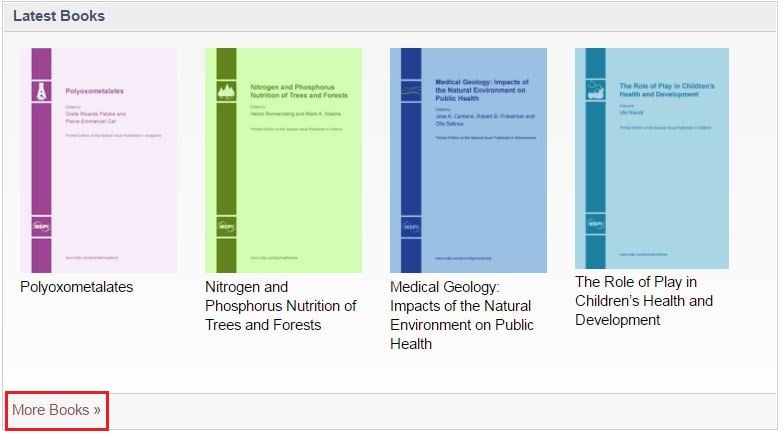
By clicking on the hyperlink "More Books" you will be taken to the MDPI Books Home Page. There you will find more information about the service, as well as the "Recent Publications" list.
Clicking on any of the book images in this list will take you to detailed information about that book (shown below). Here you can also download a PDF version of the book, or order a hardcover printed copy.
For further information about the MDPI Books service, please visit the webpage or contact [email protected].
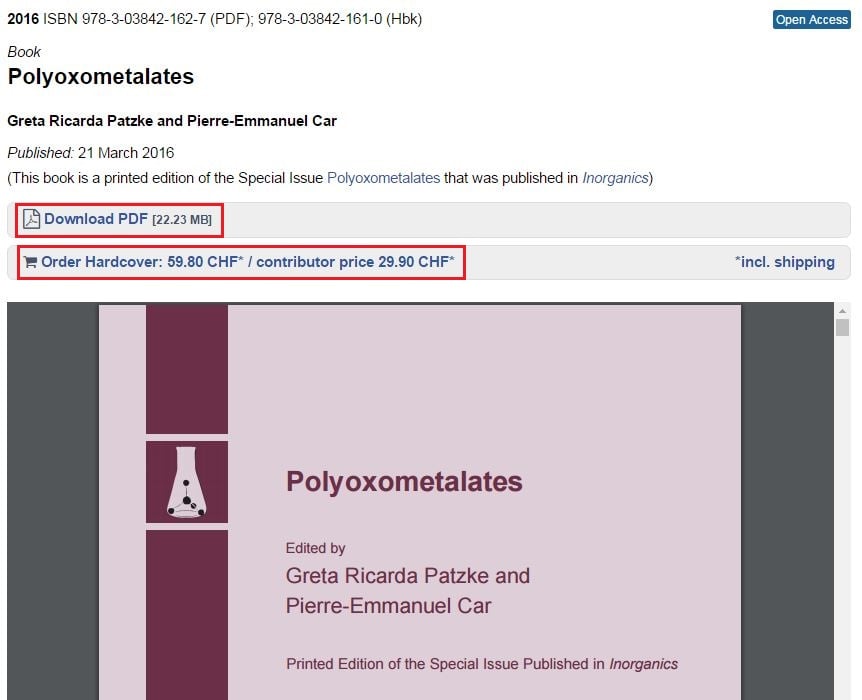
31 March 2016
Axioms, Behavioral Sciences, Photonics, Separations and Toxics added to the Emerging Sources Citation Index in Web of Science
We are pleased to announce that the journals Axioms, Behavioral Sciences, Photonics, Separations and Toxics were recently accepted for inclusion in the newly launched Emerging Sources Citation Index (ESCI) in Web of Science.
ESCI serves to highlight promising journals which are still under consideration for the Science Citation Index Expanded (SCIE) or the Social Sciences Citation Index (SSCI).
The Emerging Sources Citation Index (ESCI), Science Citation Index Expanded (SCIE), Social Sciences Citation Index
(SSCI), and Web of Science™ (WoS) are Thomson Reuters products.
30 March 2016
Institutional Membership established with the University of Winchester, UK, Silesian University of Technology, Poland and Beijing Jiaotong University and Zhejiang University, China
We are pleased to announce that the University of Winchester, UK, the Silesian University of Technology, Poland and Beijing Jiaotong University and Zhejiang University, China, have joined our Institutional Membership program. Primary authors from these universities will benefit from a 10% discount on article processing charges.
Additional details can be found on our institutional membership page.
24 March 2016
New Editorial Office in Barcelona, Spain
We are excited to announce the opening of our new editorial office in Barcelona, Spain. The launch team is led by a Senior Editor and comprises further staff holding doctoral degrees with several years of research experience. The new editorial team will help us to get closer to European research communities and progress Sciforum, the platform to support the scientific community via conference hosting and other functions. They will also help spread the word about Open Access and meet academics at scientific events.
We are in the process of hiring more doctoral and masters graduates to join the editorial team and welcome applications via [email protected]. For contact details about the office, see our contact page.

22 February 2016
Membership Established with the Max Planck Society
We are pleased to announce that the Max Planck Digital Library (MPDL) has signed an agreement with MDPI to support authors associated with the Max Planck Society (Max-Planck-Gesellschaft). As of 22 February 2016, corresponding authors will receive full funding from the MPDL for articles published in MDPI journals, with a 10% discount applied to the Article Processing Charges. Additional details can be found at our institutional membership page.
Founded in 1948, The Max Planck Society is one of Germany’s leading research organizations, and is currently made up of 83 institutes conducting basic research in natural sciences, life sciences, social sciences and humanities. 18 Nobel laureates have emerged from its ranks of scientists and the society has more than 15,000 publications in scientific journals each year.
5 February 2016
Institutional Membership Extension: Wageningen University, CSIC, University of Zürich, ETH Zürich, University of Tübingen and Osnabrück University
We are pleased to announce that Wageningen University, the Netherlands, the Spanish National Research Council (CSIC), Spain, the University of Zürich and ETH Zürich, Switzerland, and the University of Tübingen and Osnabrück University, Germany, have not only renewed their institutional memberships with MDPI after two years of successful cooperation, but have also increased the reduction of the article processing charges (APCs) for affiliated authors to 25%.
Additional details can be found on our institutional membership page.
5 February 2016
Institutional Membership established with Brock University, Canada and the University of Pisa, Italy
We are pleased to announce that Brock University, Cananda, and the University of Pisa, Italy, have joined MDPI's institutional membership program: Primary authors from these universities will benefit from a 10% discount on the article processing charges as of 01 February 2016.
Additional details can be found on our institutional membership page.
25 January 2016
MDPI Sponsors diss:kurs with the University of Basel
MDPI is pleased to announce its newly established sponsorship of diss:kurs, an event coordinated by the University of Basel to support their doctorate program. For more information about the event and how to register, please visit the diss:kurs webpage.
7 January 2016
New Institutional Memberships Established with Tsinghua University, the Chinese Society of Micro-Nano Technology, Ruhr University Bochum and the University of Ulm
We are pleased to announce that the following institutions have joined MDPI's institutional membership program as of 1 January 2016:
- Tsinghua University, China
- Chinese Society of Micro-Nano Technology (CSMNT)
- Ruhr University Bochum, Germany
- University of Ulm, Germany
Authors affiliated with these institutions will benefit from a 10% discount on the article processing charges.
Additional details can be found on our institutional membership page.
5 January 2016
Safety, Fermentation, C-Journal of Carbon Research, Magnetochemistry, Batteries and Horticulturae Released Their First Issue in December 2015
We are pleased to announce that MDPI's open access journals Safety, Journal of Imaging, Fermentation, C-Journal of Carbon Research, Magnetochemistry, Batteries and Horticulturae released their first issue at the end of December 2015.
17 December 2015
Institutional Membership Extension: University of Bern, Switzerland
We are pleased to announce that the University of Bern, Switzerland has not only renewed their institutional membership with MDPI after two years of successful cooperation, but also increased the reduction of the article processing charges (APCs) for affiliated authors to 25%.
17 December 2015
Institutional Membership with the University of Ulm and Helmholtz Zentrum Munich
We are pleased to announce that University of Ulm, Germany and Helmholtz Zentrum Munich, Germany has joined MDPI's institutional membership program:
Primary authors from the University of Ulm and Helmholtz Zentrum Munich will benefit from a 10% discount on the article processing charges as of 1 January 2016. Additional details can be found on our institutional membership page.
9 December 2015
Membership Established with the Virginia Polytechnic Institute and State University (Virginia Tech)
We are pleased to announce that Virginia Tech has joined MDPI's institutional membership program. Authors from Virginia Tech will benefit from a 10% discount on the article processing charges as of 1 December 2015. Additional details can be found on our institutional membership page.
1 December 2015
Membership Established with the Technical University of Denmark and the University of North Florida
We are pleased to announce that the following universities have joined MDPI's institutional membership program:
- Technical University of Denmark (as of 1 November 2015)
- University of North Florida, USA (as of 15 November 2015)
Primary authors from the Technical University of Denmark and the University of North Florida will benefit from a 10% discount on the article processing charges.
Additional details can be found on our institutional membership page.
16 November 2015
Emerging Sources Citation Index (ESCI) Launched in Web of Science™
The Emerging Sources Citation Index (ESCI) has been launched by Thomson Reuters as a new index in Web of Science™ alongside the established Science Citation Index Expanded (SCIE) and Social Sciences Citation Index (SSCI). Web of Science™ thereby continues to reflect the growing importance of Open Access scholarly literature as nearly half of the newly incorporated journals are Open Access journals.
We are pleased to announce that 32 journals published by MDPI were selected for inclusion in the Emerging Sources Citation Index (ESCI). Articles published after 1 January 2015 now appear in ESCI and Web of Science™. This will bring higher visibility to the published research, while they will continue to be under evaluation for SCIE or SSCI.
The following MDPI journals are covered by ESCI:
| Journal Title |
Established | About the Journal |
| Algorithms | 2008 | Link |
| Agriculture | 2011 | Link |
| Agronomy | 2011 | Link |
| Biomolecules | 2011 | Link |
| Brain Sciences | 2011 | Link |
| Diagnostics | 2011 | Link |
| Membranes | 2011 | Link |
| Metabolites | 2011 | Link |
| Antibiotics | 2012 | Link |
| Antibodies | 2012 | Link |
| Antioxidants | 2012 | Link |
| Arts | 2012 | Link |
| Computers | 2012 | Link |
| Electronics | 2012 | Link |
| Foods | 2012 | Link |
| Journal of Clinical Medicine | 2012 | Link |
| Pathogens | 2012 | Link |
| Plants | 2012 | Link |
| Atoms | 2013 | Link |
| Chemosensors | 2013 | Link |
| Climate | 2013 | Link |
| Computation | 2013 | Link |
| Economies | 2013 | Link |
| Fibers | 2013 | Link |
| International Journal of Financial Studies | 2013 | Link |
| Journal of Developmental Biology | 2013 | Link |
| Mathematics | 2013 | Link |
| Processes | 2013 | Link |
| Publications | 2013 | Link |
| Risks | 2013 | Link |
| Systems | 2013 | Link |
| Vaccines | 2013 | Link |
The Emerging Sources Citation Index (ESCI), Science Citation Index Expanded (SCIE), Social Sciences Citation Index (SSCI), and Web of Science™ (WoS) are Thomson Reuters products.
2 October 2015
Membership Established with the University of Freiburg and the University of Regensburg
We are pleased to announce that the following universities have joined MDPI's institutional membership program:
University of Freiburg, Germany
University of Regensburg, Germany
Primary authors from the University of Freiburg and the University of Regensburg will benefit from a 10% discount on the article processing charges as of 1 October 2015 and 1 November 2015.
Additional details can be found on our institutional membership page.
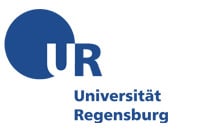




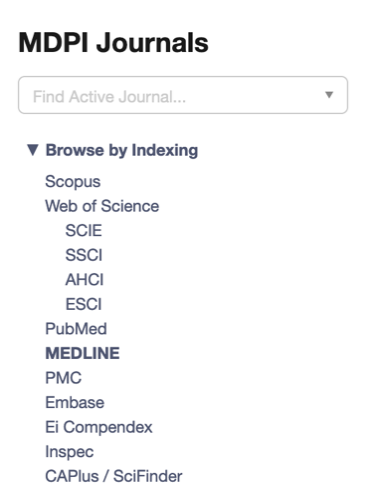





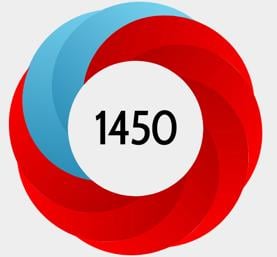












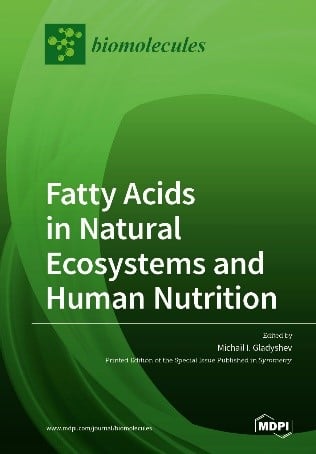
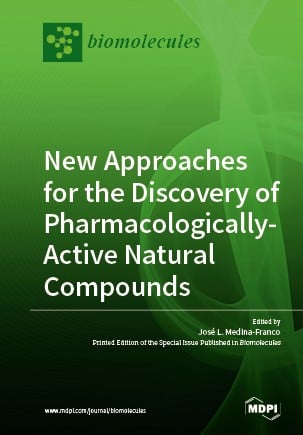










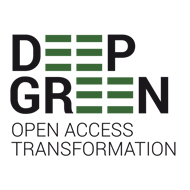

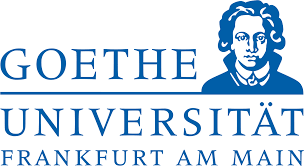
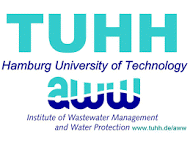




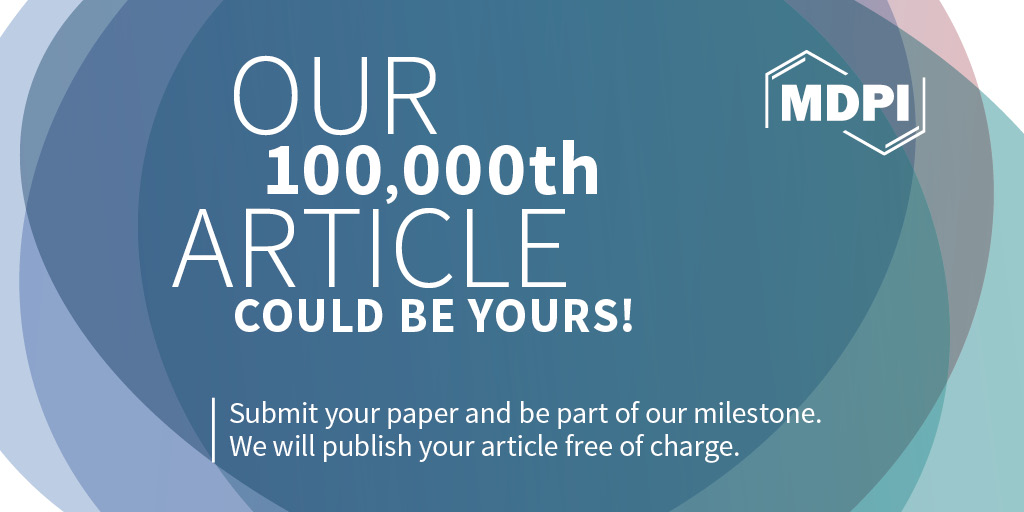



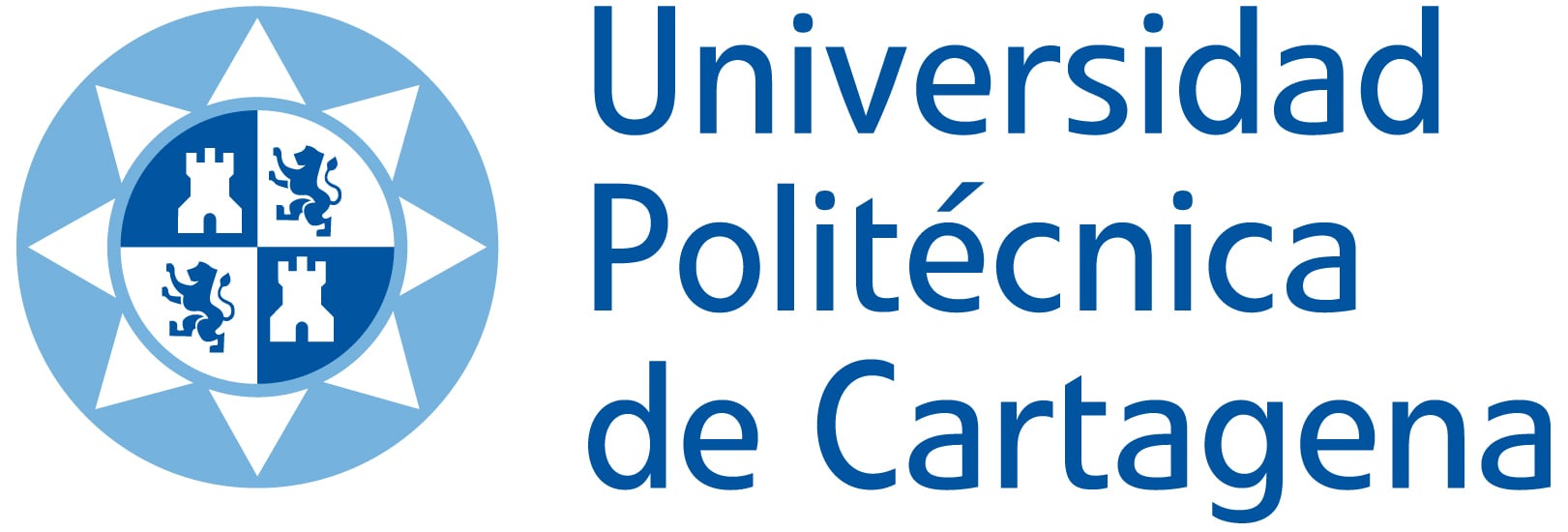
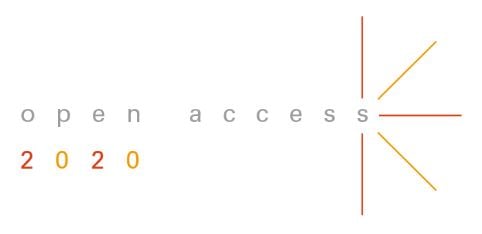



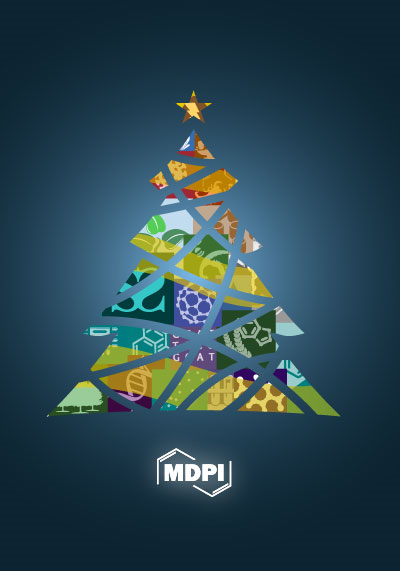





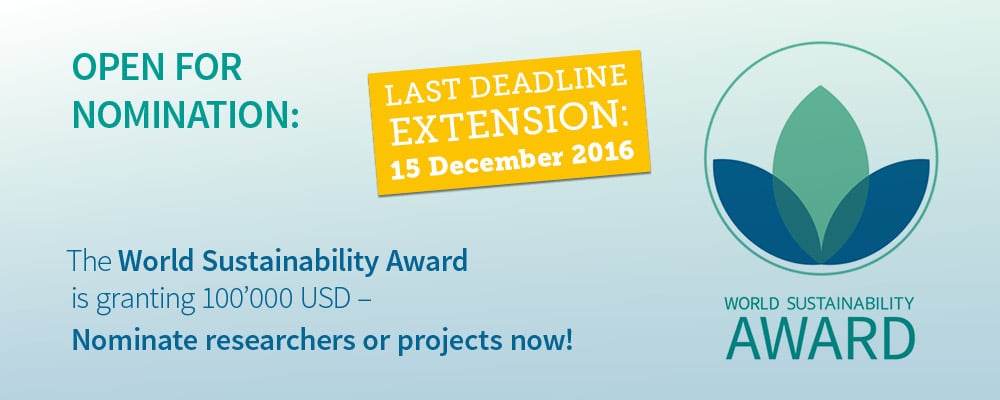



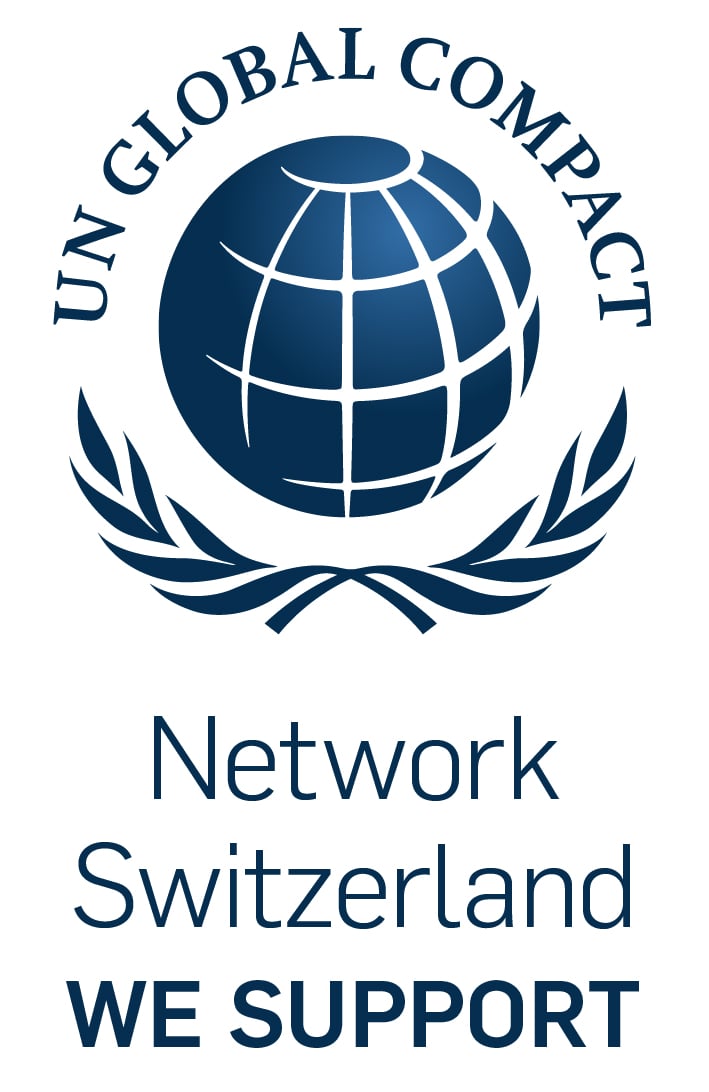
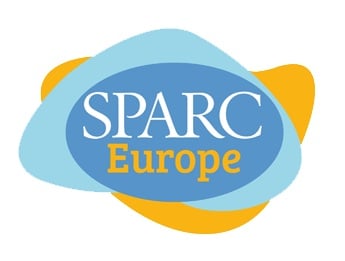
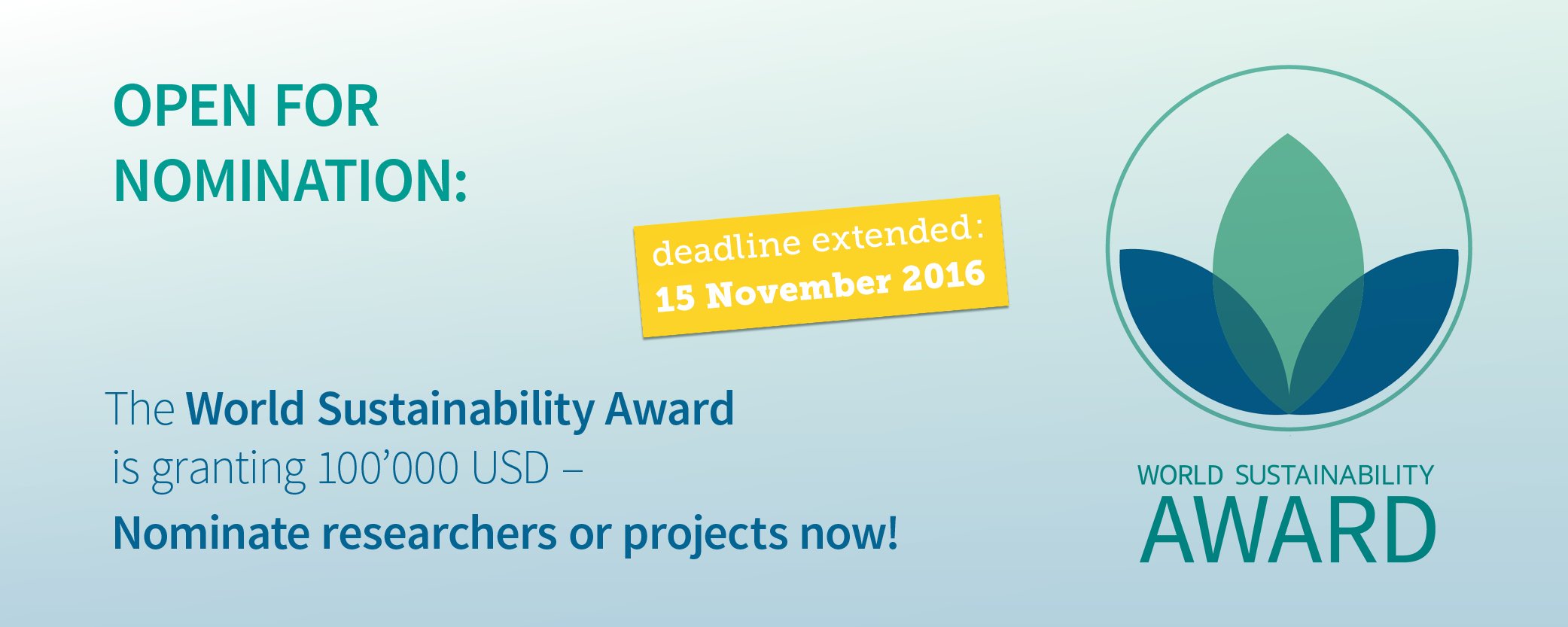 .
.